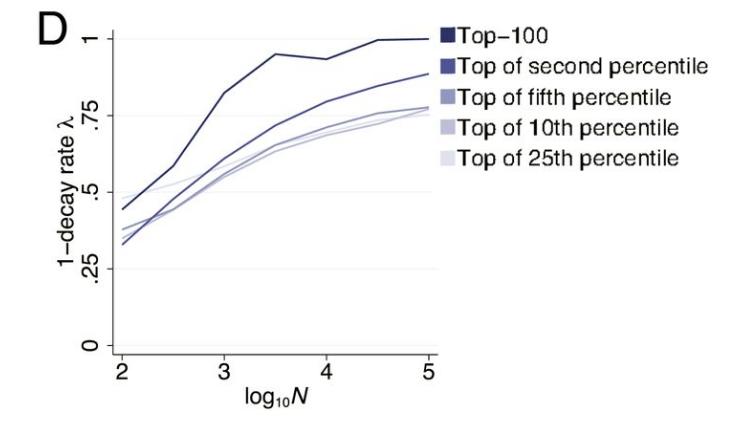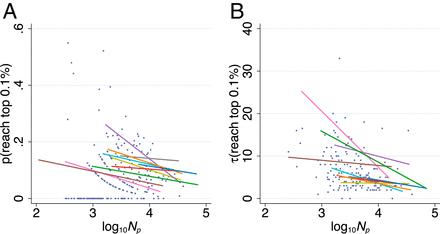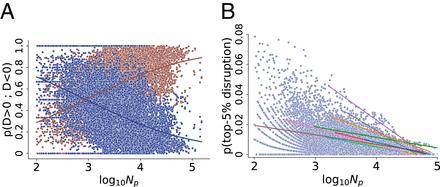目录
序言:论科学认识
〔一、当代的科学任务〕〔1.真理之为科学的体系2.当代的文化3.真理之为原则及其展开〕
〔二、从意识到科学的发展过程〕〔1.绝对即主体的概念2.知识的生成过程3.个体的教养〕
〔三、哲学的认识〕〔1.真实与虚假2.历史的认识和数学的认识3.概念的认识〕
〔四、哲学研究中的要求〕〔1.思辨的思维2.天才的灵感与健康的常识3.结语,作者与读者的关系〕
导论
甲、意识
第一章感性确定性;这一个和意谓
第二章知觉;事物和幻觉
〔一、事物的简单概念〕
〔二、事物的矛盾概念〕
〔三、朝向无条件的普遍性和知性领域的发展运动〕
第三章力和知性;现象和超感官世界
〔一、力与力的交互作用〕
〔二、力的内在本质〕
〔Ⅰ.超感官世界〕〔1.内在核心,外表现象,知性或理智2.超感官世界即现象界3.规律作为现象的真理〕
〔Ⅱ.规律作为差别与同一〕〔1.特定的规律与普遍的规律2.规律与力3.说明或解释〕
〔Ⅲ.关于纯粹差别的规律〕
〔三、无限性〕
乙、自我意识
第四章意识自身确定性的真理性
〔Ⅰ.自我意识自身〕
〔Ⅱ.生命〕
〔Ⅲ.自我与欲望〕
一、自我意识的独立与依赖;主人与奴隶
〔Ⅰ.双重的自我意识〕
〔Ⅱ.对立的自我意识的斗争〕
〔Ⅲ.主人与奴隶〕〔1.统治2.恐惧3.培养或陶冶〕
二、自我意识的自由;斯多葛主义、怀疑主义和苦恼的意识
〔Ⅰ.斯多葛主义〕
〔Ⅱ.怀疑主义〕
〔Ⅲ.苦恼的意识,坏的主观唯心主义〕
〔1.变化的意识 2.不变的形态 3.现实与自我意识的统一——(1)纯粹的意识(2)个别的本质与现实性,虔敬的意识的活动(3)自我意识达到了理性〕
丙(甲)、理性
第五章理性的确定性与真理性
〔Ⅰ.唯心主义〕
〔Ⅱ.范畴〕
〔Ⅲ.空虚的主观唯心主义的知识〕
一、观察的理性
(a)对自然的观察
〔Ⅰ.对无机物的观察〕〔1.描写 2.特征 3.规律的发现——(1)概念与规律经验(2)实验(3)物质〕
〔Ⅱ.对有机物的观察〕〔1.一般规定——(1)有机物与自然原素(2)理性本能所理解的目的概念(3)有机物的行动及其内在与外在的方面 2.有机物的形态——(1)有机属性与有机系统(2)内在方面的诸环节相互关联(3)内在与外在方面的关系 3.关于有机物的思想——(1)有机的统一(2)规律的扬弃(3)整个有机物,它的自由与规定性〕
〔Ⅲ.将自然当作一有机整体来观察〕〔1.无机物的组织:比重,凝聚性,数 2.有机物的组织:类属,种,单一性,个体 3.生命,偶然的理性〕
(b)对自我意识的纯粹自身及其与外在现实的关系的观察;逻辑规律与心理学规律
〔Ⅰ.思维规律〕
〔Ⅱ.心理学的规律〕
〔Ⅲ.个体性的规律〕
(c)对自我意识与其直接现实的关系的观察;面相学与头盖骨相学
〔Ⅰ.器官的面相学的含义〕
〔Ⅱ.这种含义的双义性〕
〔Ⅲ.头盖骨相学〕〔1.头盖骨作为精神的外在现实2.头盖骨的形状与个体性的关系3.潜在与现实结束语〕
二、理性的自我意识通过其自身的活动而实现
〔Ⅰ.自我意识的直向运动;伦理世界〕
〔Ⅱ.自我意识的反向运动;道德世界〕
(a)快乐与必然性
〔Ⅰ.快乐〕
〔Ⅱ.必然性〕
〔Ⅲ.自我意识里的矛盾〕
(b)心的规律和自大狂
〔Ⅰ.心的规律和现实的规律〕
〔Ⅱ.将心置入于现实〕
〔Ⅲ.个体性的自大狂〕
(c)德行与世界进程
〔Ⅰ.自我意识与普遍的关联〕
〔Ⅱ.世界进程是普遍在个体性里的现实性〕
〔Ⅲ.个体性是普遍的实在性〕
三、自在自为地实在的个体性
(a)精神动物的王国和欺骗,或事情自身
〔Ⅰ.个体性的概念作为实在的个体性〕
〔Ⅱ.事情自身与个体性〕
〔Ⅲ.相互欺骗与精神实体〕
(b)立法的理性
(c)审核法律的理性
丙(乙)、精神
第六章精神
一、真实的精神;伦理
(a)伦理世界;人的规律和神的规律,男人和女人
〔Ⅰ.民族和家庭;白日的法律和黑夜的法律〕〔1.人的规律2.神的规律3.个体的权利〕
〔Ⅱ.两种规律的运动〕〔1.政府,战争;否定力量2.作为兄弟与姐妹的男性与女性之间的伦理关系3.神的规律与人的规律双方互相过渡〕
〔Ⅲ.伦理世界之为无限或整体〕
(b)伦理行为;人的知识和神的知识;罪过与命运
〔Ⅰ.伦理本质与个体性之间的矛盾〕
〔Ⅱ.伦理行为中的对立〕
〔Ⅲ.伦理本质的消亡〕
(c)法权状态
〔Ⅰ.个人的有效性〕
〔Ⅱ.个人的偶然性〕
〔Ⅲ.抽象的个人;世界主宰〕
二、自身异化了的精神;教化
a.异化了的精神的世界
(a)教化及其现实王国
〔Ⅰ.教化是自然存在的异化〕〔1.善与恶;国家权力与财富2.自我意识的判断:高贵意识与卑贱意识3.服务与建议〕
〔Ⅱ.语言是异化或教化的现实〕〔1.阿谀2.表示分裂的语言3.教化的虚假性〕
(b)信仰与纯粹识见
〔Ⅰ.信仰的思想〕
〔Ⅱ.信仰的对象〕
〔Ⅲ.纯粹识见的合理性〕
b.启蒙
(a)启蒙与迷信的斗争
〔Ⅰ.识见对信仰的否定态度〕〔1.纯粹识见的传播2.识见反对信仰3.识见是对它自己的误解〕
〔Ⅱ.启蒙的原理〕〔1.启蒙对信仰的颠倒2.启蒙的肯定命题3.有用是启蒙的基本概念〕
〔Ⅲ.启蒙的正当权利〕〔1.思维的自身运动2.对信仰的诸论点的批判3.信仰变为空无内容〕
(b)启蒙的真理性
〔Ⅰ.纯粹思维与纯粹物质〕
〔Ⅱ.功利世界〕
〔Ⅲ.自身确定性〕
c.绝对自由与恐怖
〔Ⅰ.绝对自由〕
〔Ⅱ.恐怖〕
〔Ⅲ.自由主体性的觉醒〕
三、对其自身具有确定性的精神、道德
(a)道德世界观
〔Ⅰ.义务与现实之间被设定的和谐〕
〔Ⅱ.神圣的立法者和不完全的道德自我意识〕
〔Ⅲ.论道德世界观〕
(b)倒置
〔Ⅰ.道德世界观里的矛盾〕
〔Ⅱ.道德转化为它的反面〕
〔Ⅲ.道德自我意识的真理性〕
(c)良心,优美灵魂,恶及其宽恕
〔Ⅰ.良心是在自己本身内的自我的自由〕〔1.良心作为义务的现实2.对信念的承认3.信念的绝对自由〕
〔Ⅱ.良心的普遍性〕〔1.信念的无规律性2.信念的语言3.优美的灵魂〕
〔Ⅲ.罪恶及其宽恕〕〔1.真诚与伪善的冲突2.道德判断3.宽恕与和解〕
丙(丙)、宗教
第七章宗教
一、自然宗教
(a)光明之神
(b)植物和动物〔崇拜〕
(c)工匠
二、艺术宗教
(a)抽象的艺术品
〔Ⅰ.神像〕
〔Ⅱ.赞美歌〕
(Ⅲ.崇拜〕
(b)有生命的艺术品
(c)精神的艺术品
〔Ⅰ.史诗〕〔1.它的伦理世界2.人与神3.诸神自身间的关系〕
〔Ⅱ.悲剧〕〔1.合唱队的、悲剧英雄的、神圣力量的不同个体性2.个体性的意识的双重含义3.个体性的没落〕
〔Ⅲ.喜剧〕〔1.自然存在的本质2.神的抽象个体性之无本质性3.确知自己即绝对本质的个别自我〕
三、天启宗教
〔Ⅰ.天启宗教概念的前提〕
〔Ⅱ.绝对宗教的简单内容:上帝化身的现实性〕〔1.神圣的自我意识的直接存在2.最高本质的概念因个别自我使得抽象性与直接性同一而达到完成3.玄思知识是绝对宗教的社团的表象〕
〔Ⅲ.绝对宗教的概念的发展〕〔1.在自身中的精神;三一体2.外在化的精神;圣子的王国3.在自己的充实状态中的精神;圣灵的王国〕
丙(丁)、绝对知识
第八章绝对知识
〔一、确知自己是存在的”自我”的简单内容〕
〔二、科学即对自我自身的概念式的理解〕
〔三、达到概念式理解的精神向着特定存在的直接性的返回〕
序言:论科学认识
一、当代的科学任务
1.真理之为科学的体系
在一本哲学著作的序言里,如果也象在普通的书序里惯常所做的那样先作一个声明,以说明作者所怀抱的著述目的和动机以及作者所认为他的著作与这同一问题上早期和同时的其他论著的关系,那么这样的一种声明似乎不仅是多余的,而且就一部哲学著作的性质来说是不适宜的、不合目的的。因为,在一篇序言里,不论对哲学作出怎么样周详的陈述,比如说,给哲学的趋势和观点,一般内容和结果作一种历史性的叙述,或就真理问题上各家各派的主张和断言作一种兼容并蓄的罗列,如此等等,毕竟不能算是适合于陈述哲学真理的方式和办法。而且,由于在本质上哲学所探讨的那种普遍性的因素本身就包含着特殊,所以在哲学里比在其他科学里更容易使人觉得,仿佛就在目的或最终结果里事情自身甚至其全部本质都已得到了表达,至于实现过程,与此结果相比,则根本不是什么本质的事情。
相反,譬如在解剖学是什么(解剖学是就身体各部分之为僵死的存在物而取得的知识)这样的一般观念里,我们则深信我们尚未占有事实本身,尚未占有这门科学的内容,而必须进一步去探讨特殊。——再者,在这样一种不配被称之为科学的知识堆积里,谈论目的之类普遍性的东西时所采用的方式,通常也就是叙述内容本身如神经、肌肉等等时所使用的那种历史性的无概念的方式,两者没有什么不同。但在哲学序言:论科学认识里,如果也采取这样的一种方式先作说明,而哲学本身随后又证明这种方式不能把握真理,那就很不一致了。
同样,由于对某一哲学著作与讨论同一对象的其他论著所持有的关系进行规定,这就引进来一种外来的兴趣,使真理认识的关键所在为之模糊。人的见解愈是把真理与错误的对立视为固定的,就愈习惯于以为对某一现有的哲学体系的态度不是赞成就必是反对,而且在一篇关于某一哲学体系的声明里也就愈习惯于只在其中寻找赞成或反对。这种人不那么把不同的哲学体系理解为真理的前进发展,而毋宁在不同的体系中只看见了矛盾。花朵开放的时候花蕾消逝,人们会说花蕾是被花朵否定了的;同样地,当结果的时候花朵又被解释为植物的一种虚假的存在形式,而果实是作为植物的真实形式出而代替花朵的。这些形式不但彼此不同,并且互相排斥互不相容。但是,它们的流动性却使它们同时成为有机统一体的环节,它们在有机统一体中不但不互相抵触,而且彼此都同样是必要的;而正是这种同样的必要性才构成整体的生命。但对一个哲学体系的矛盾,人们并不习惯于以这样的方式去理解,同时那把握这种矛盾的意识通常也不知道把这种矛盾从其片面性中解放出来或保持其无片面性,并且不知道在看起来冲突矛盾着的形态里去认识其中相辅相成的环节。
对这一类说明的要求以及为满足这种要求所作的努力,往往会被人们当成了哲学的主要任务。试问在什么地方一本哲学著作的内在含义可以比在该著作的目的和结果里表达得更清楚呢?试问用什么办法可以比就其与当代其他同类创作间的差别来认识该著作还更确切些呢?但是,如果这样的行动不被视为仅仅是认识的开始,如果它被视为就是实际的认识,那它事实上就成了躲避事情自身的一种巧计,它外表上装出一副认真致力于事情自身的样子,而实际上却完全不作这样认真的努力。——因为事情并不穷尽于它的目的,而穷尽于它的实现,现实的整体也不仅是结果,而是结果连同其产生过程;目的本身是僵死的共相,正如倾向是一种还缺少现实性的空洞的冲动一样;而赤裸的结果则是丢开了倾向的那具死尸。——同样,差别毋宁说是事情的界限;界限就是事情终止的地方,或者说,界限就是那种不复是这个事情的东西。因此,象这样地去说明目的或结果以及对此一体系或彼一体系进行区别和判断等等工作,其所花费的气力,要比这类工作乍看起来轻易得多。因为,象这样的行动,不是在掌握事情,而永远是脱离事情;象这样的知识,不是停留在事情里并忘身于事情里,而永远是在把握另外的事情,并且不是寄身于事情,献身于事情,而勿宁是停留于其自身中。——对那具有坚实内容的东西最容易的工作是进行判断,比较困难的是对它进行理解,而最困难的,则是结合两者,作出对它的陈述。
在文化的开端,即当人们刚开始争取摆脱实质生活的直接性的时候,永远必须这样入手:获得关于普遍原理和观点的知识,争取第一步达到对事情的一般的思想,同时根据理由以支持或反对它,按照它的规定性去理解它的具体和丰富的内容,并能够对它作出有条理的陈述和严肃的判断。但是,文化教养的这个开端工作,马上就得让位给现实生活的严肃性,因为这种严肃性使人直接经验到事情自身;而如果另一方面,概念的严肃性再同时深入于事情的深处,那么这样的一种知识和判断,就会在日常谈话里保有它们应有的位置。
只有真理存在于其中的那种真正的形态才是真理的科学体系。我在本书里所怀抱的目的,正就是要促使哲学接近于科学的形式,——哲学如果达到了这个目标,就能不再叫做对知识的爱,而就是真实的知识。知识必然是科学,这种内在的必然性出于知识的本性,要对这一点提供令人满意的说明,只有依靠对哲学自身的陈述。但是,外在的必然性,如果我们抛开了个人的和个别情况的偶然性,而以一种一般的形式来理解,那么它和内在的必然性就是同一个东西,即是说,外在的必然性就在于时间呈现它自己的发展环节时所表现的那种形态里。因此,如果能揭露出哲学如何在时间里升高为科学体系,这将是怀有使哲学达到科学体系这一目的的那些试图的唯一真实的辩护,因为时间会指明这个目的的必然性,甚至于同时也就把它实现出来。
2.当代的文化
当我肯定真理的真实形态就是它的这种科学性时,或者换句话说也一样,当我断言真理的存在要素只在概念之中时,我知道这看起来是与某一种观念及其一切结论互相矛盾的,这种观念自命不凡,并且已经广泛取得我们时代的信任。因此,就这种矛盾作一个说明,似乎不是多余的;即使这个说明在这里也只不过是与它自己所反对的那种观念同样是一个直接的断言而已。这就是说,如果说真理只存在于有时称之为直观有时称之为关于绝对、宗教、存在(不是居于神圣的爱的中心的存在,而就是这爱的中心自身的存在)的直接知识的那种东西中,或者甚至于说真理就是作为直观或直接知识这样的东西而存在着的,那么按照这种观念就等于说,为了给哲学作系统的陈述我们所要求的就不是概念的形式而勿宁是它的反面。按照这种说法,绝对不是应该用概念去把握,而是应该予以感受和直观;应该用语言表达和应该得到表述的不是绝对的概念,而是对绝对的感觉和直观。
对于这样的一种要求,如果我们从它的较为一般的关联上来理解它的出现,并且就自觉的精神当前所处的发展阶段来予以考察,我们就会发现自觉的精神已经超出了它通常在思想要素里所过的那种实体性的生活,超出了它的信仰的这种直接性,超出了它因在意识上确信本质与本质的内在和外在的普遍呈现已经得到了和解而产生的那种满足和安全。自觉的精神不仅超出了实质的生活进入于另一极端:无实质的自身反映,而且也超出了这种无实质的自身反映。它不仅仅丧失了它的本质性的生活而已,它并且意识到了它这种损失和它的内容的有限性。由于它拒绝这些空壳,由于它承认并抱怨它的恶劣处境,自觉的精神现在不是那么着重地要求从哲学那里得到关于它自己是什么的知识,而主要是要求再度通过哲学把存在所已丧失了的实体性和充实性恢复起来。为了满足这种需要,据说哲学不必那么着重地展开实体的重封密锁,并将实体提高到自我意识的水平上,不必那么着重地去把混乱的意识引回到思想的整齐和概念的单纯,而倒反主要地在于把思想所分解开来的东西搅拌到一起去,压制有区别作用的概念而建立关于本质的感觉体会。据说哲学不必那么着重于提供洞见而主要在于给予启发或启示。美、神圣、永恒、宗教与爱情都是诱饵,所以需要它们,乃是为了引起吞饵的欲望;保持并开拓实体的财富所依靠的力量,据说不是概念而是喜悦,不是事实自身冷静地循序前进的必然性而是我们对待它的那种激扬狂放的热情。
适应这种要求,就有一种非常紧张而几乎带有焦急和急躁情绪的努力,要想将人类从其沉溺于感激的、庸俗的、个别的事物中解救出来,使其目光远瞻星辰;仿佛人类已完全忘记了神圣的东西而正在象蠕虫一样以泥土和水来自足自娱似的。从前有一个时期,人们的上天是充满了思想和图景的无穷财富的。在那个时候,一切存在着的东西的意义都在于光线,光线把万物与上天联结起来;在光线里,人们的目光并不停滞在此岸的现实存在里,而是越出于它之外,瞥向神圣的东西,瞥向一个,如果我们可以这样说的话,彼岸的现实存在。那时候精神的目光必须以强制力量才能指向世俗的东西而停留于此尘世;费了很长时间才把上天独具的那种光明清彻引进来照亮尘世之见的昏暗混乱,费了很长时间才使人相信被称之为经验的那种对现世事物的注意研究是有益和有效的。——而现在的当务之急却似乎恰恰相反,人的目光是过于执着于世俗事物了,以至于必须花费同样大的气力来使它高举于尘世之上。人的精神已显示出它的极端贫乏,就如同沙漠旅行者渴望获得一口饮水那样在急切盼望能对一般的神圣事物获得一点点感受。从精神之如此易于满足,我们就可以估量它的损失是如何巨大了。
然而这种感受上的易于满足或给予上的如此悭吝,并不合于科学的性质。谁若只寻求启示,谁若想把他的生活与思想在尘世上的众象纷纭加以模糊,从而只追求在这种模糊不清的神性上获得模糊不清的享受,他尽可以到他能找得到的一些地方去寻找;他将很容易找到一种借以大吹大擂从而自命不凡的工具。但哲学必须竭力避免想成为有启示性的东西。
这种放弃科学而自足自乐的态度,更不可提出要求,主张这样的一种蒙昧的热情是什么比科学更高超一些的东西。
这种先知式的言论,自认为居于正中心和最深处,蔑视规定和确切,故意回避概念和必然性,正如它回避那据说只居于有限世界之中的反思一样。但是,既然有一种空的广阔,同样也就有一种空的深邃;既然有一种实体的广延,它扩散到有限世界的纷纭万象里去而没有力量把它们团聚在一起,同样也就有一种无内容的深度,它表现为单纯的力量而没有广延,这种无实体的深度其实与肤浅是同一回事。精神的力量只能象它的外在表现那样强大,它的深度也只能象它在它自行展开中敢于扩展和敢于丧失其自身时所达到的那样深邃。
而且,如果这种无概念的实体性的知识佯言已经把自身的特性沉浸于本质之中,并佯言是在进行真正的神圣的哲学思辨,那么这种知识自身就隐瞒着这样的事实:它不仅没皈依于上帝,反而由于它蔑视尺度和规定,就时而自己听任内容的偶然性,时而以自己的任意武断加之于上帝。——由于这样的精神完全委身于实质的毫无节制的热情,他们就以为只要蒙蔽了自我意识并放弃了知性,自己就是属于上帝的了,上帝就在他们睡觉中给予他们智慧了;但正因为这样,事实上他们在睡眠中所接受和产生出来的,也不外是些梦而已。
3.真理之为原则及其展开
此外,我们不难看到,我们这个时代是一个新时期的降生和过渡的时代。人的精神已经跟他旧日的生活与观念世界决裂,正使旧日的一切葬入于过去而着手进行他的自我改造。事实上,精神从来没有停止不动,它永远是在前进运动着。但是,犹如在母亲长期怀胎之后,第一次呼吸才把过去仅仅是逐渐增长的那种渐变性打断——一个质的飞跃——从而生出一个小孩来那样,成长着的精神也是慢慢地静悄悄地向着它新的形态发展,一块一块地拆除了它旧有的世界结构。只有通过个别的征象才预示着旧世界行将倒塌。现存世界里充满了的那种粗率和无聊,以及对某种未知的东西的那种模模糊糊若有所感,在在都预示着有什么别的东西正在到来。可是这种逐渐的、并未改变整个面貌的颓毁败坏,突然为日出所中断,升起的太阳就如闪电般一下子建立起了新世界的形相。
但这个新世界也正如一个初生儿那样还不是一个完全的现实。这一点十分要紧,必须牢牢记住。首先呈现出来的才仅只是它的直接性或者说它的概念。我们不能说一个建筑物在奠基的时候就算是已经落成,同样我们也不能把对于一个全体所获得的概念视为是该全体自身。当我们盼望看见一棵身干粗壮枝叶茂密的橡树,而所见到的不是橡树而是一粒橡实的时候,我们是不会满意的。同样,科学作为一个精神世界的王冠,也决不是一开始就完成了的。新精神的开端乃是各种文化形式的一个彻底变革的产物,乃是走完各种错综复杂的道路并作出各种艰苦的奋斗努力而后取得的代价。这个开端乃是在继承了过去并扩展了自己以后重返自身的全体,乃是对这全体所形成的单纯概念。但这个单纯的全体,只在现在已变成环节了的那些以前的形态,在它们新的原素中以已经形成了的意义而重新获得发展并取得新形态时,才达到它的现实。
由于一方面新世界的最初表现还只是隐藏在它的单纯性中的全体,或者说,最初所表现的还只是全体的一般基础,所以另一方面过去的生活里的丰富内容对意识来说还是记忆犹新的。在新出现的形态里,意识见不到内容的展开和特殊化的过程了,但它更见不到的,则是将诸差别加以准确规定并安排出其间固定关系的那个形式的发展形成过程。没有这种发展形成过程,科学就缺乏普遍理解的可能性,就仿佛只是少数个别人的一种内部秘传的东西;我们所以说是一种秘传的东西,因为在这种情况下科学仅只才存在于它的概念或内在本性里;我们所以说它是少数个别人的,因为在这种情况下科学还没广泛地出现,因而它之客观存在是个别的。只有完全规定了的东西才是公开的、可理解的,能够经学习而成为一切人的所有物。科学的知性形式是向一切人提供的、为一切人铺平了的通往科学的道路,而通过知性以求达取理性知识乃是向科学的意识的正当要求;因为知性一般说来即是思维,即是纯粹的自我,而知性的东西则是已知的东西和科学与非科学的意识共有的东西,非科学的人通过它就能直接进入科学。
科学既然现在才刚开始,在内容上还不详尽,在形式上也还不完全,所以免不了因此而受谴责。但是如果这种谴责进而涉及到科学的本质,那就很不公平了,这就犹如不愿意承认科学有继续展开的必要之不合理是一样的。这两方面〔谴责科学不完全与反对科学继续发展〕的对立,显然是科学文化上当前所殚精竭虑而还没取得应有的理解的最主要的关键所在。一方面的人在夸耀其材料的丰富和可理解性,另一方面的人则至少是在鄙视这一切,而吹嘘直接的合理性和神圣性。不论是纯然由于真理的力量,还是也同时慑于对方的声势,前者现在总算是归于沉寂,但他们虽然在事实根据上自觉为对方所压倒,却并未因此而停止他们的上述要求;因为那些要求是正当的,而还没得到满足。前者的这种沉寂,只有一半是由于后者的胜利,而另一半则是由于厌倦和冷淡;当诺言不断地引起期待而又始终不得实现时,通常总是产生厌倦和冷淡的。
后一派的人有时确实也非常方便地在内容上作出巨大的开展。他们的办法就是把大量的材料,即把已经熟悉的和整理就绪的东西搬进他们的领域里来;而且由于他们专门爱去注意奇特的和新奇的东西,他们就更好象是已经掌握了人类业已有所认知的一切其余的材料,同时还占有了尚未整理就绪的材料;这样,他们就把一切都归属于绝对理念之下,以致绝对理念仿佛已在一切事物中都被认识到了,并已成功地发展成为一门开展了的科学。但仔细考察起来,我们就发现他们所以达到这样的开展,并不是因为同一个理念自己取得了不同的形象,而是因为这同一个理念作了千篇一律地重复出现;只因为它外在地被应用于不同的材料,就获得了一种无聊的外表上的差别性。如果理念的发展只是同一公式的如此重复而已,则这理念虽然本身是真实的,事实上却永远仅只是个开始。如果认知主体只把唯一的静止的形式引用到现成存在物上来,而材料只是从外面投入于这个静止的要素里,那么这就象对内容所作的那些任意的想象一样不能算是对于上述要求的满足,即是说,这样做出来的不是从自身发生出来的丰富内容,也不是各个形态给自身规定出来的差别,而勿宁是一种单调的形式主义。这种形式主义之所以能使内容有差别,仅只因为这种差别已经是现成的而且已为众所熟知。
同时,这样的形式主义还认为这种单调性和抽象普遍性即是绝对;并断言凡不满足于这种普遍性的人,都是由于没有能力去掌握和坚持于这种绝对的观点。如果说在从前,用另一方式来想象某一东西的那种空洞的可能性,曾经足够用以驳倒一种观念,而空洞的可能性,即,普遍性的思想,又曾具有现实知识的全部积极价值,那么现在,我们同样地看到,这种非现实的空洞形式下的普遍理念被赋予了一切价值;
而且我们看到,区别与规定之被消溶,或者换句话说,区别与规定之被抛入于空虚的无底深渊(这既不是发展出来的结论也不是本身自明的道路),就等于是思辨的方法。现在,考察任何一个有规定的东西在绝对里是什么的时候,不外乎是说:此刻我们虽然把它当作一个东西来谈论,而在绝对里,在a=a里,则根本没有这类东西,在那里一切都是一。无论是把”在绝对中一切同一”这一知识拿来对抗那种进行区别的、实现了的或正在寻求实现的知识,或是把它的绝对说成黑夜,就象人们通常所说的一切牛在黑夜里都是黑的那个黑夜一样,这两种作法,都是知识空虚的一种幼稚表现。——形式主义既然在备受近代哲学的指斥和谴责之后,还又在哲学里面再生了出来,可见它的缺点虽然已为众所周知,但在绝对现实的知识没完全明了它自己的本性以前,形式主义将不会从科学里消失掉的。——由于我们考虑到,一般的概念先行出现,关于一般概念的阐述发挥随后出现,将使这种阐述易于理解,所以我们觉得在这里指出这个一般概念的梗概,是有益的,同时我们还想利用这个机会把一些形式予以破坏,因为习惯于这些形式,乃是哲学认识上的一个障碍。
二、从意识到科学的发展过程
1.绝对即主体的概念
照我看来,——我的这种看法的正确性只能由体系的陈述本身来予以证明——一切问题的关键在于:不仅把真实的东西或真理理解和表述为实体,而且同样理解和表述为主体。同时还必须注意到,实体性自身既包含着共相(或普遍)或知识自身的直接性,也包含着存在或作为知识之对象的那种直接性。——如果说,上帝是唯一实体①这个概念曾在它被宣布出来时使整个时代为之激怒,那么所以如此,一部分是因为人们本能地觉得在这样的概念里自我意识不是被保留下来而是完全毁灭了,但另一部分则是因为人们相反地坚持思维就是思维,坚持普遍性本身就是这个单一性或这个无差别不运动的实体性②。而如果说有第三种见解,认为思维在其自身中就是与实体的存在合为一体的并且把直接性或直观视为思维,那还要看这种理智的直观是否不重新堕入毫无生气的单一性中以及是否它不重新以一种不现实的方式来陈述现实自身③。
①指斯宾诺莎哲学。——拉松版编者
②指康德和费希特哲学。——拉松版编者
③指谢林哲学。——拉松版编者
而且活的实体,只当它是建立自身的运动时,或者说,只当它是自身转化与其自己之间的中介时,它才真正是个现实的存在,或换个说法也一样,它这个存在才真正是主体。实体作为主体是纯粹的简单的否定性,唯其如此,它是单一的东西的分裂为二的过程或树立对立面的双重化过程,而这种过程则又是这种漠不相干的区别及其对立的否定。所以唯有这种正在重建其自身的同一性或在他物中的自身反映,才是绝对的真理,而原始的或直接的统一性,就其本身而言,则不是绝对的真理。真理就是它自己的完成过程,就是这样一个园圈,预悬它的终点为目的并以它的终点为起点,而且只当它实现了并达到了它的终点它才是现实的。
上帝的生活和上帝的知识因而很可以说是一种自己爱自己的游戏;但这个理念如果内中缺乏否定物的严肃、痛苦、容忍和劳作,它就沦为一种虔诚,甚至于沦为一种无味的举动。
这种神性的生活就其自在而言确实是纯粹的自身同一性和统一性,它并没严肃地对待他物和异化,以及这种异化的克服问题。但是,这种自在乃是抽象的普遍性,而在抽象的普遍性里自在的那种自为而存在的本性就被忽视了,因而形式的自身运动也根本被忽视了。正因为形式被宣布为等于本质,所以如果以为只认识自在或本质就够了而可以忽略形式,以为有了绝对原则或绝对直观就不需要使本质实现或使形式展开,乃是一个大大的误解。正因为形式就象本质自己那样对本质是非常本质的东西,所以不应该把本质只理解和表述为本质,为直接的实体,或为上帝的纯粹自身直观,而同样应该把本质理解和表述为形式,具有着展开了的形式的全部丰富内容。只有这样,本质才真正被理解和表达为现实的东西。
真理是全体。但全体只是通过自身发展而达于完满的那种本质。关于绝对,我们可以说,它本质上是个结果,它只有到终点才真正成为它之所以为它;而它的本性恰恰就在这里,因为按照它的本性,它是现实、主体、或自我形成。不错,把绝对本质地理解为结果好象是矛盾的,但只要稍微考虑一下,就能把这矛盾的假相予以揭示。开端、原则或绝对,最初直接说出来时只是个共相。当我说”一切动物”时,这句话并不能就算是一部动物学,那么同样,我们都很明白,上帝、绝对、永恒等字也并不说出其中所含的东西,事实上这样的字只是把直观当作直接性的东西表述出来。比这样的字更多些的东西,即使仅只变为一句话,其中也包含着一个向他物的转化(这个转化而成的他物还必须重新被吸收回来),或一个中介。而这个中介却为人嫌恶,仿佛如果承认中介不仅限于表明它自己不是绝对的东西并且决不存在于绝对之中,而还具有更多的含义,那就等于放弃了绝对知识。
但事实上人们所以嫌恶中介,纯然是由于不了解中介和绝对知识本身的性质。因为中介不是别的,只是运动着的自身同一,换句话说,它是自身反映,自为存在着的自我的环节,纯粹的否定性,或就其纯粹的抽象而言,它是单纯的形成过程。这个中介、自我、一般的形成,由于具有简单性,就恰恰既是正在形成中的直接性又是直接的东西自身。——因此,如果中介或反映不被理解为绝对的积极环节而被排除于绝对真理之外,那就是对理性的一种误解。正是这个反映,使真理成为发展出来的结果,而同时却又将结果与其形成过程之间的对立予以扬弃;因为这个形成过程同样也是单一的,因而它与真理的形式(真理在结果中表现为单一的)没有区别,它勿宁就是这个返回于单一性的返回过程。诚然,胎儿自在地是人,但并非自为地是人;只有作为有教养的理性,它才是自为的人,而有教养的理性使自己成为自己自在地是的那个东西。这才是理性的现实。但这结果自身却是单纯的直接性,因为它是自觉的自由,它静止于自身,并且它不是把对立置于一边听其自生自灭,而是已与对立取得了和解。
上面所说的话还可以表示为:理性乃是有目的的行动。过去有人误解了自然也错认了思维,把自然高举于思维之上,特别是否认外在自然中含有目的性,因而使一般的目的形式处于很不名誉的地位。但是,亚里士多德曾规定自然为有目的的行动,同样我们认为,目的是直接的、静止的、不动的东西;不动的东西自身却能引起运动,所以它是主体。它引起运动的力量,抽象地说,就是自为存在或纯粹的否定性。结果之所以就是开端,只因为开端就是目的;或者换句话说,现实之所以就是关于此现实的概念,只因为直接性的东西,作为目的其本身就包含着”自身”(dasselbst)或纯粹的现实。
实现了的目的或具体存在着的现实就是运动,就是展开了的形成过程;但恰恰这个运动就是”自身”,而它之所以与开端的那种直接性和单纯性是同一的,乃因它就是结果,就是返回于自身的东西;但返回于自身的东西恰恰就是”自身”,而”自身”就是自相关联的同一性和单纯性。
由于需要将绝对想象为主体,人们就使用这样的命题:上帝是永恒,上帝是世界的道德秩序,或上帝是爱等等。在这样的命题里,真理只直接被当作主体,而不是被表述为自身反映运动。在这样的命题里,人们从上帝这个词开始。但这个词就其本身来说只是一个毫无意义的声音,一个空洞的名称。只有宾词说出究竟上帝是什么之后,这个声音或名称才有内容和意义;空虚的开端只在达到这个终点时,才是一个现实的知识。在这种情况下,我们看不出,何以人们不仅限于谈永恒、世界的道德秩序等等,或者不象古人所做的那样仅限于谈本身即是意义的纯粹概念、存在、一等等,而还外加上毫无意义的声调?但通过这种名词,人们恰恰是想表示这里所建立的不是一般的存在或本质或共相,而是一种反映了其自身的东西,一种主体。但同时须知这个主体只是被揣测到的。揣测中的主体被当成一个固定的点,宾词通过一个运动被粘附在这个作为它们的支持物的点上;而这个运动是认识这个固定点的人的运动,根本不能视为是这个固定点自身的运动;但只有通过固定点自身的运动,内容才能被表述为主体。按照这个运动的发生经过来说,它不可能是固定点的运动;但既然假定了这个固定点,这个运动也就不可能是别的,而只能是外在的。因此,上述关于绝对即主体的那个揣测,不仅不是主体这个概念的现实,而且甚至于使现实成为不可能的,因为揣测把主体当作静止的点,但现实却是自身运动。
在上面的讨论所能得出的一些结论中,这一条是可以强调指出的:知识只有作为科学或体系才是现实的,才可以被陈述出来;而且一个所谓哲学原理或原则,即使是真的,只要它仅仅是个原理或原则,它就已经也是假的了;要反驳它因此也就很容易。反驳一个原则就是揭露它的缺陷,但它是有缺陷的,因为它仅只是共相或本原或开端。如果反驳得彻底,则这个反驳一定是从原则自身里发展出来的,而不是根据外来的反面主张或意见编造出来的。所以真正说来,对一个原则的反驳就是对该原则的发展以及对其缺陷的补足,如果这种反驳不因为它只注意了它自己的行动的否定方面没意识它的发展和结果的肯定方面从而错认了它自己的话。——
真正地展开开端固然是对开端的一种肯定的行动,同时却也是对它的一种否定的行动,即否定它仅仅才是直接的或仅仅才是目的这个片面性。因此,人们也同样可以说展开或实现乃是对体系的根据(grund)的一种反驳,但比较正确的观点是把开端的展开视为一种表示,它表明体系的根据或原则事实上仅只是体系的开端。
说真理只作为体系才是现实的,或者说实体在本质上即是主体,这乃是绝对即精神这句话所要表达的观念。精神是最高贵的概念,是新时代及其宗教的概念。惟有精神的东西才是现实的;精神的东西是本质或自在而存在着的东西,——自身关系着的和规定了的东西,他在和自为存在——并且它是在这种规定性中或在它的他在性中仍然停留于其自身的东西;——或者说,它是自在而自为。——但它首先只对我们而言或自在地是这个自在而自为的存在,它是精神的实体。它必须为它自身而言也是自在而自为的存在,它必须是关于精神的东西的知识和关于作为精神的自身的知识,即是说,它必须是它自己的对象,但既是直接的又是扬弃过的、自身反映了的对象。当对象的精神内容是由对象自己所产生出来的时候,对象只对我们而言是自为的;但当它对它自身而言也是自为的时候,这个自己产生,即纯粹概念,就同时又是对象的客观因素,而对象在这种客观因素里取得它的具体存在,并且因此在它的具体存在里对它自身而言是自身反映了的对象。——经过这样发展而知道其自己是精神的这种精神,乃是科学。科学是精神的现实,是精神在其自己的因素里为自己所建造的王国。
2.知识的生成过程
在绝对的他在中的纯粹的自我认识,——这样的以太(ather)本身①,乃是科学或普遍性的知识的根据和基地。哲学的开端所假定或需要的意识正是处于这种因素里的意识。但这种因素只在它的形成运动中才达到完成并取得它的透明性。它是纯粹的精神性,纯粹精神性作为普遍的东西具有着简单的直接性的样式;——这种简单的东西,当它作为简单的东西而存在着的时候,乃是科学的基地,即只存在于精神中的那种思维。由于这种因素,精神的这种直接性是精神的一般的实体,所以这种直接性也就是纯化了的本质性,也就是反映,也就是存在;因为反映是简单的、自为的直接性本身而存在是在自身中的反映。科学从它自己这一方面出发,要求个体的自我意识去超越这种以太,以便能够与科学一起生活,能够生活在科学里,并且真正地生活。另一方面,个体却又有权要求科学至少给他提供达到这种立足点所用的梯子并且给他指明这种立足点就在他自身。个体所以有权提出要求,是以他的绝对自主性为根据的;他知道在任何形态下他的知识里都具有自主性,因为不论他的知识形态是否为科学所承认,不论其内容是什么,在任何一种形态下的知识里个体都是绝对的形式,即是说,他总是他自己的直接确定性,假如大家喜欢另一个名词那么还可以说,他总是无条件的存在。如果说,当意识把客观事物理解为与它自己对立,并把自己理解为与客观事物对立的时候,意识所处的立足点是科学的对立:在这个科学的对立中意识只知道自己在其自身,这勿宁是完全丧失了精神;那么反过来说,科学的因素乃是意识的一个辽远的彼岸:在这辽远的彼岸里意识不再占有它自己。这两方面的任何一方,在对方看起来都是真理的颠倒。朴素的意识将自己直接托付给科学,这乃是它的一个尝试,它不自知其受什么力量的驱使而也想尝试一次头朝下来走路;驱使意识采取这种异乎寻常的姿势来行动的那种势力,是意识必须竭力加以抑制的、一种既无准备又显然并无必要的强制力量。——无论科学自身是什么样子,但当它与直接的自我意识关联起来时,它就呈现为一种与后者正相反对的东西;或者换句话说,由于朴素的意识以它自己的确定性为它的现实性的原则,科学就取得了一种非现实性的形式,因为现实性原则就它自身来说是在科学之外的。因此,科学必须将这样的因素跟它自己结合起来,或者甚至于它必须指明这样的因素是以及如何是属于它自己的。由于缺乏这样的现实性,科学就仅只是自在着的内容,内在着的目的,它还不是精神,而仅仅才是精神的实体。这个自在的东西必须将自己加以外化,必须变成自为的,这等于说,这个自在的东西必须使自我意识与它自己合而为一。
这部《精神现象学》②所描述的,就是一般的科学或知识的这个形成过程。最初的知识或直接的精神,是没有精神的东西,是感性的意识。为了成为真正的知识,或者说,为了产生科学的因素,产生科学的纯粹概念,最初的知识必须经历一段艰苦而漫长的道路。——这条形成的道路,犹如在它的内容上以及在它表现的各种形态上所将展示出来的那样,将不是人们首先会想到的、引导不科学的意识使之进入科学的那样一种科学入门;它也将不是对科学基础的一种说明;当然更不是一种象手枪发射那样突如其来的兴奋之情:一开始就直接与绝对知识打交道,对于其他观点认为只宣布一律不加理睬就算已经清算了。
①在《耶拿时期的逻辑》(手稿)〔拉松版《黑格尔全集》第18卷,197页〕里,黑格尔曾说:”以太是与自身相关的绝对精神,但这绝对精神却不自知其为绝对精神”。——法文译者
②第一版对《精神现象学》有一按语:”科学的体系的第一部”,后来的版本中黑格尔删去此句。——英文译者
3.个体的教养
引导一个个体使之从它的未受教养的状态变为有知识,这是个任务,我们应该在它的一般意义下来理解这个任务,并且应该就个体的发展形成来考察普遍的个体,有自我意识的精神。——谈到特殊的个体与普遍的个体的关系,那是这样的:每个〔特殊的〕环节都以其所取得的具体形式和独有的形态在普遍的个体里显现出来。特殊的个体是不完全的精神,是一种具体的形态,统治着一个具体形态的整个存在的总是一种规定性,至于其中的其他规定性则只还留有模糊不清的轮廓而已。因为在比较高一级的精神里,较为低级的存在就降低而成为一种隐约不显的环节;从前曾是事实自身的那种东西现在只还是一种遗迹,它的形态已经被蒙蔽起来成了一片简单的阴影。每个个体,凡是在实质上成了比较高级的精神的,都是走过这样一段历史道路的,而他穿过这段过去,就象一个人要学习一种较高深的科学而回忆他早已学过了的那些准备知识的内容时那样,他唤起对那些旧知识的回忆而并不引起他的兴趣使他停留在旧知识里。各个个体,如就内容而言,也都必须走过普遍精神所走过的那些发展阶段,但这些阶段是作为精神所已蜕掉的外壳,是作为一条已经开辟和铺平了的道路上的段落而被个体走过的。这样,在知识领域里,我们就看见有许多在从前曾为精神成熟的人们所努力追求的知识现在已经降低为儿童的知识,儿童的练习,甚至成了儿童的游戏;而且我们还将在教育的过程里认识到世界文化史的粗略轮廓。这种过去的陈迹已经都成了普遍精神的一批获得的财产,而普遍精神既构成着个体的实体,同时因为它显现于个体之外又构成着个体的无机自然。——这种意义下的发展形成,如果就个人方面来看,那么个体的形成就在于个体获得这些现成的财产,消化他的无机自然而据为己有。但如果从普遍精神方面来看,既然普遍精神就是实体,那么这个发展过程就不是别的,只是实体赋予自己以自我意识,实体使它自己发展并在自身中反映。
科学既要描述这种形成运动的发展经过及其必然性,又要描述那种已经沉淀而为精神的环节和财产的东西所呈现的形态。目标在于使精神洞悉知识究竟是什么。没有耐心就会盼望不可能的事,既盼望不以手段而达取目的。要有耐心,一方面,这是说,必须忍耐这条道路的辽远,因为每个环节都是必要的;另方面,这是说,必须在每个环节那里都作逗留,因为每个环节自身就是一个完整的个体形态,而且只当它的规定性被当作完整的或具体的东西来考察时,或者说,只有当全体是在这种规定性的独特性下加以考察时,每个环节才算是得到了充分的或绝对的考察。——由于不仅个体的实体,甚至于世界精神,都具有耐心来经历漫长的时间里的这些形式,并有耐心来担当形成世界历史的艰巨工作(在世界史的每个形式下世界精神都曾就该形式所能表现的范围内将它整个的内容体现出来),又由于世界精神在达到它的自我意识时也没能轻而易举,所以按照事情的性质来说,个体要想把握它的实体是不可能有捷径可走的;不过虽然如此,个体的任务的艰巨性却已经减小了,因为一切都是自在地已经完成了的〔史实〕,内容已经不是现实性,而是被扬弃为可能性了的现实性,或被克服了的直接性;〔旧的〕形态已经变成了形态的缩影,变成了简单的思想规定。内容既然已经是一种在思想中的东西,所以就是实体的财富;个体不再需要把具体存在转化为自在存在的形式,而仅只需要把已经呈现于记忆中的自在存在——既不只是原始的,也不是沉没于具体存在中的自在存在——转化为自为存在的形式。这种行动的情况,应该加以详细叙述。
从我们现在开始这个运动的这一观点来看,我们整个地可以节省的一个过程,是对具体存在的扬弃过程。但不能节省的而必须加以比较高度改造的,则是我们关于各个形式的表象(vorstel-lung)以及对这些形式的熟悉(bekanntschaft)。被收回到精神实体里去的具体存在,通过上述的第一个否定,仅只是被直接地搬进自我的因素里去;因此,自我所获得的这份财富,还具有着与没经理解的直接性、不动的无差别性等相同的性质,如同具体存在自身一样;具体存在只是这样地过渡到表象里去而已。同时,由于进入了表象,具体存在就成了一种熟知的东西,对于这样的一种东西,具体存在着的精神已经不再理会,因而对它也不复有什么活动和兴趣了。如果说,已经不再理会具体存在的那种活动,本身只是不对自己进行概念把握的特殊精神的运动,那么正相反,〔真正的〕知识则是把矛头指向这样构成的表象、指向这种熟知的东西的!它是普遍自我的行动和思维的兴趣。
一般说来,熟知的东西所以不是真正知道了的东西,正因为它是熟知的。有一种最习以为常的自欺欺人的事情,就是在认识的时候先假定某种东西是已经熟知了的,因而就这样地不去管它了。这样的知识,既不知道它是怎么来的,因而无论怎样说来说去,都不能离开原地而前进一步。主体与客体,上帝与自然,以及知性与感性等等都被不加考察地认为是熟悉的和有效率的东西,既构成固定的出发点又构成固定的归宿点。这些据点停滞不动,而认识运动往来进行于其间,因而就只是在它们的表面上运动而已。在这种情况下,所谓理解和检验,也就是去看看关于这些东西的说法是否在每个人的观念里都有,是否每个人都觉得它是这个样子,真正认识到它是这个样子。
对于一个表象的分析,就过去所做的那样来说,不外是扬弃它的熟悉形式。将一个表象分解为它的原始因素就是把它还原为它的环节,这些环节至少不具有当前这个表象的形式,而构成着自我的直接财产。这种分析诚然只能分析出思想来,即,只能分析出已知的固定的和静止的规定来。但这样分解出来的、非现实的东西,是一个本质性的环节;因为只有由于具体的东西把自己分解开来成为非现实的东西,它才是自身运动着的东西。分解活动就是知性[理解]的力量和工作,知性是一切势力中最惊人的和最伟大的,或者甚至可以说是绝对的势力。圆圈既然是自身封闭的、自身依据的东西并且作为实体而保持其环节于自身内,它就是一种直接的关系,因而是没有什么可惊奇的关系。但是,偶然的事物本身,它离开它自己的周围而与别的东西联结着并且只在它与别的东西关联着时才是现实的事物,——这样的东西之能够获得一个独有的存在和独特的自由,乃表示否定物的一种无比巨大的势力,这是思维、纯粹自我的能力。死亡,如果我们愿意这样称呼那种非现实的话,它是最可怕的东西,而要保持住死亡了的东西,则需要极大的力量。柔弱无力的美之所以憎恨知性,就因为知性硬要它做它所不能做的事情。但精神的生活不是害怕死亡而幸免于蹂躏的生活,而是敢于承当死亡并在死亡中得以自存的生活。精神只当它在绝对的支离破碎中能保全其自身时才赢得它的真实性。精神是这样的力量,不是因为它作为肯定的东西对否定的东西根本不加理睬,犹如我们平常对某种否定的东西只说这是虚无的或虚假的就算了事而随即转身他向不再闻问的那样,相反,精神所以是这种力量,乃是因为它敢于面对面地正视否定的东西并停留在那里。精神在否定的东西那里停留,这就是一种魔力,这种魔力就把否定的东西转化为存在。而这种魔力也就是上面称之为主体的那种东西;主体当它赋予在它自己的因素里的规定性以具体存在时,就扬弃了抽象的、也就是说仅只一般地存在着的直接性,而这样一来它就成了真正的实体,成了存在,或者说,成了身外别无中介而自身即是中介的那种直接性。
这样,表象中的东西就变成纯粹自我意识的财富;但这种变为一般的普遍性的上升过程还只是精神发展的一个方面,这还不是精神的全部形成。——古代人的研究方式跟近代的研究很不相同,古代人的研究是真正的自然意识的教养和形成。古代的研究者通过对他的生活的每一细节都作详尽的考察,对呈现于其面前的一切事物都作哲学的思考,才给自己创造出了一种渗透于事物之中的普遍性。但现代人则不同,他能找到现成的抽象形式;他掌握和吸取这种形式,可以说只是不假中介地将内在的东西外化出来并隔离地将普遍的东西(共相)制造出来,而不是从具体事物中和现实存在的形形色色之中把内在和普遍的东西产生出来。因此,现在的工作与其说在于使个体脱离直接的感性方式使之成为被思维的和能思维的实体不如说情形相反,在于扬弃那些固定的思想从而使普遍的东西成为现实的有生气的东西。但要使固定的思想取得流动性却比将感性存在变成流动的要困难得多。其原因就是上面说过了的那些:思维的规定都以自我、否定物的力量或纯粹现实为实体和它们的存在因素,而感性的规定则只以全无力量的抽象的直接性或存在自身为其实体。
思想要变成流动的,必须纯粹思维,亦即这种内在的直接性认识到它自己是环节,或者说,必须对它自己的纯粹确定性进行自身抽象;——确定性的这种自身抽象,不是自身舍弃和抛弃,而是对它的自身建立中所含的固定性的扬弃,既扬弃作为纯然具体的东西而与不同的内容相对立的那种自我自身的固定性,也扬弃呈现于纯粹思维的因素之中因而分有自我的无条件性的那些不同内容的固定性。通过这样的运动,纯粹的思想就变成概念,而纯粹思想这才真正是纯粹思想、自身运动、圆圈,这才是它们的实体,这才是精神本质性(geistigewesenheiten)。
纯粹本质性的这种运动构成着一般的科学性进程的本性。这种运动,就其为它的内容的关联来看,乃是它的内容扩张为一个有机的整体的必然的发展运动。由于这种运动,到达知识的概念的那条道路也同样成了一条必然的完全的形成道路。因此,这段知识的准备过程就不再是一种偶然的哲学思考了,偶然的哲学思考总是偶然地与不完全的意识的这些或那些对象、关系以及思想结合在一起,或者试图从特定的思想出发,通过循环往复的推理、推论和引伸来论证真理。而这条达到知识的道路将通过概念的运动而在它的必然性里包括着意识的整个客观世界。
而且,这样的一种系统陈述之所以是科学的第一部分,是因为精神的实际存在作为最初的东西不是别的,仅仅是直接性或开端,而开端还不是向开端的返回。因此直接的实际存在这个因素就是科学的这一部分所据以有区别于其他部分的规定性。而叙述这种区别,就不能不讨论一些在这方面通常出现的固定观念。
三、哲学的认识
1.真实与虚假
精神的直接的实际存在作为意识具有两个方面:认识和与认识处于否定关系中的客观性。精神自身既然是在这个意识因素里发展着的,它既然把它的环节展开在这个意识因素里,那么这些精神环节就都具有意识的上述两方面的对立,它们就都显现为意识的形象。叙述这条发展道路的科学就是关于意识的经验的科学;实体和实体的运动都是作为意识的经验对象而被考察的意识所知道和理解的,不外乎是它的经验里的东西;因为意识经验里的东西只是精神的实体,即只是作为经验的自我的对象。但精神所以变成了对象,因为精神就是这种自己变成他物、或变成它自己的对象和扬弃这个他物的运动。而经验则被认为恰恰就是这个运动,在这个运动中,直接的东西,没经验过的东西,即是说,抽象的东西,无论属于感性存在的或属于单纯的思想事物的,先将自己予以异化,然后从这个异化中返回自身,这样,原来没经验过的东西才呈现出它的现实性和真理性,才是意识的财产。
在意识里发生于自我与作为自我的对象的实体之间的不同一性,就是它们两者的差别,一般的否定性。我们可以把否定性视为两者共同的缺陷,但它实在是两者的灵魂或推动者。正是因为这个理由,有些古代哲学家曾把空虚理解为推动者;他们诚然已经知道推动者是否定的东西,但还没有了解它就是自身(selbst)。——如果这个否定性首先只表现为自我与对象之间的不同一性,那么它同样也是实体对它自己的不同一性。看起来似乎是在实体以外进行的,似乎是一种指向着实体的活动,事实上就是实体自己的行动,实体因此表明它自己本质上就是主体。当实体已完全表明其自己即是主体的时候,精神也就使它的具体存在与它的本质同一了,它既是它自己又是它自己的对象,而知识与真实性之间的直接性和分裂性所具有的那种抽象因素于是克服了。存在于是被绝对中介了,成了实体性的内容,它同样是自我的财产,是自身性的,或者说,就是概念。到这个时候,精神现象学就终结了。精神在现象学里为自己所准备的是知识因素,有了这种知识因素,精神的诸环节现在就以知道自身即是其对象的那种单一性的形式扩展开来。这些环节不再分裂为存在与知识的对立,而停留于知识的单一性中,它们都是具有真理的形式的真理,它们的不同只是内容上的不同而已。它们在这种知识因素里自己发展成为一个有机整体的那种运动过程,就是逻辑或思辨哲学。
现在,由于精神的那个经验体系仅只包括精神的现象,好象这个体系对于具有真理形态的真理科学纯然是一种否定的东西,因而人们也许会不愿意去和这否定的东西即虚假的东西找麻烦而要求直捷了当地立即走向真理;因为,与虚假的东西打交道有什么好处呢?——上面曾经提出过这个论点,认为应当立即从科学本身开始,对于这个问题,要从这方面来回答:即作为虚妄的东西的否定物到底具有什么性质。与此有关的观念,特别阻碍着通往真理的道路。因此,我们将讨论一下数学知识,数学知识通常被非哲学的知识视为是哲学所应该争取而一直徒劳地没能达到的理想。
真实与虚妄通常被认为是两种一定不移的各具有自己的本质的思想,两者各据一方,各自孤立,互不沟通。与这种看法相反,我们必须断言真理不是一种铸成了的硬币,可以现成地拿过来就用①。同样地,既不是现成地有一种虚假也不是现成地有一种过恶。过恶与虚假确实不是象魔鬼那样的坏,因为如果作为魔鬼,过恶与虚假就甚至于被当成特殊的主体了;而作为过恶与虚妄,则它们仅是些普遍,不过各有自己的本质性而已。——虚妄(因为我们在这里只讨论它)应该是实体的他物或否定物,因为实体作为知识的内容是真实的东西。但是,实体自身本质上也是否定的东西,一部分由于它是内容的区别和规定,一部分由于它是一种单纯的区别,即,它是一般的自我与知识。我们很可能做出错误的认识。某种东西被认识错了,意思就是说,知识与它的实体不同一。但这种不相等正是一般的区别,是本质的环节。从这种区别里很可能发展出它们的同一性,而且发展出来的这种同一性就是真理。但这种真理:不是仿佛其不等同性被抛弃了,犹如矿渣从纯粹金属里被排除了那样,或工具被遗留在造成的容器以外那样,而勿宁是,不同一性作为否定性,作为自身还直接呈现于真理本身之中。不过,我们却不能因此而说虚假的东西是真实的东西的一个环节或甚至于一个组成部分。在”任何虚妄的东西里都含有些真实的东西”这句话里,真实与虚妄是被当作象水和油那样只能外在联合而不能混合的东西看待的。正是为了使意义明确,为了专门用以指明完全的他物这种环节,真实与虚妄这两个名词不应该在它们的对方或他物已经被扬弃了的时候还继续使用。所以,就象主体与客体、有限与无限、存在与思维等的统一体这个名词之不尽适当那样,(因为客体与主体等等名词意味着在它们的统一体之外的客体与主体等等,因而当说它们在统一体之中时它们已不是它们的名词所说的那种东西了,)同样,虚妄的东西也不再是作为虚妄的东西而成为真理的一个环节的。
①勒新:《先知拿丹》卷四,第6页:”仿佛真理是钱币一样的东西”。——原编者
知识里和哲学研究里教条主义的思想方法不是别的,只是这种见解:以为真理存在于表示某种确定结果的或可以直接予以认识的一个命题里。对于象”凯撒生于何时?””一个运动场要有多少尺长?”这类问题,诚然应该给予一个明确的简捷的答复。同样,直角三角形斜边的平方等于其余两边的平方之和,也确定是真的。但这样的所谓真理,其性质与哲学真理的性质不同。
2.历史的认识和数学的认识
在历史真理方面,如果为论述简便只就其纯粹历史性的东西而言,则人们很容易承认历史真理所涉及的是个别的客观存在,是一种带有偶然性和武断性的内容,是这种内容的一些非必然的规定。——
但即使象上面引述的这样赤裸的真理,也不是全不需要自我意识的运动的。为了认识一条这样的真理,就得与很多其他的真理进行比较,参考很多书籍,或不管采取什么方式来加以分析研究;甚至于对于一种直接去直观的东西,也只于理解了它的理由根据以后这直观得来的知识才可被视为是某种有真实价值的东西,虽然严格说来在这里人们所要关心的仿佛只是那赤裸的结果。
谈到数学的真理,我们更不会把这样的人当作一位几何学家,他能外在地知道(熟记)欧几里得的定理,而不懂它们的证明,或者如果人们可以对比起来说的话,而不内在地知道(理解)它们。同样的,如果一个人通过对很多直角三角形的测量而得知它们的各边相互之间有那个著名的比率,那我们也会认为这样的知识是不能令人满意的。不过,证明在数学知识里虽然已是本质的东西,但即使在数学知识里,证明也还没取得其为结果自身之一环节的意义和性质;事实上当证明得出了结果,证明倒反已成过去而归于消失。几何定理作为结果,诚然是一条已被审查承认为真的定理。但这种审查承认纯然是定理以外附加进来的事情,并不涉及定理的内容,仅只涉及它对认识主体的关系。数学证明的运动并不属于证明的对象,而是外在于对象的一种行动。譬如,直角三角形的性质自身并不分解其自己,并不按照证明直角三角形各边比率定理所需要的那种几何作图而自行分解;结果的整个产生过程只是认识的一种过程,认识的一种手段而已。——在哲学知识里,实际存在作为实际存在其形成也是与本质或事物的内在本性的形成不同的。但是第一,哲学知识包含着两种形成,而数学知识则只代表着实际存在的形成,即是说,只代表着在认识里事实的性质的存在本身的形成。第二,哲学知识还把这两种特殊的形成运动结合起来。内在的发生过程或实体的形成过程乃是不可分割的、向外在的东西或实际存在或为他存在的过渡过程;反过来,实际存在的形成过程也就是将其自身收回于本质的过程。这个运动是整体的双重形成过程:每个环节都同时建立另一环节,而因此每个环节又将两者作为两个方面而包含于其自身;它们共同构成全体,因为它们消溶其自身并使自身成为全体的环节。
在数学知识里,审查考核是在事实以外的一种行动;由于这种行动是事实以外的,真正的事实就被它改变了。尽管在进行审核时所使用的工具,以及作图和证明都包含着真命题,但我们仍然应该说内容是虚假的。因为上述例子里的三角形被拆碎了,它的各部分被变成为因在它上面作图而发生的其他图形的构成部分。被审核证明的这个三角形,直到最终才被重新建立起来,在证明过程中它自身是消失了的,它只还散见于构成着其他图形的那些片断里。——于是我们看到,在这里出现的这种内容的否定性,犹如概念的运动里的确定思想的消失一样,应该也可以称之为内容的虚假性。
但这种知识的真实缺点,既与认识过程自身有关也与它的材料有关。——就认识过程而言,首先,它的缺陷在于,作图的必然性没受到审核。这种必然性并不是从定理的概念里产生出来的,而是给规定下来的;人们必须盲目地遵守这种规定而恰恰作出这些线条来,虽然本来可以作出无数其他的线条;人们别的什么也不知道,只相信这样的作图会有助于或适合于进行证明。这种适合性即使事后得到了证实,它也只是一种外在的,因为它只于事后在证明过程里才显现出来。——同样,这种证明从随便一个什么地方起始前进,而证明的人却还不知道这个起点与应该产生的结果究竟有什么关系。证明的过程采取这些规定和关系而放弃别的规定和关系,证明的人却并不直接明白这是出于什么必然性。这个运动是受一种外在的目的支配着。
数学以这种有缺陷的知识的自明性而自豪,并且以此而向哲学骄傲;但这种知识的自明性完全是建筑在它的目的之贫乏和材料之空疏上面的,因而是哲学所必须予以蔑视的一种自明性。——数学的目的或概念是数量,而数量恰恰是非本质的、无概念的关系。因此,数学知识的运动是在表面上进行的,不触及事情自身,不触及本质或概念,因而不是一种概念性的把握。——数学给人们提供可喜的真理宝藏,这些真理所根据的材料乃是空间和一。空间是这样的一种实际存在,概念把它的差别登记到这种实际存在里就象登记到一种空虚的、僵死的因素里去一样,而在这种空虚的僵死的因素里概念的差别也同样是不动的和无生命的。现实的东西不是象数学里所考察的那样的一种空间性的东西;象数学事物这样的非现实的东西,无论具体感性直观,或是哲学,都不去跟它打交道的。在这样非现实的因素里,也就只有非现实的真理,换句话说,也就只有些固定的、僵死的命题;在每一个命题那里都能够停住,随后的命题自己再从新开始;而并不是从前一个进展到后一个去,更不是因此而通过事物自身的性质产生出一种必然的关联来。而且,由于它出于这样的原则和要素——数学自明性的形式性就在于这里——所以数学知识也就是沿着同一性的路线进行的,因为死的东西,自身不动的东西,到达不了本质的差别,到达不了在本质上对立或不同一的东西,因而到达不了对立面向对立面的过渡,到达不了质的、内在的运动,到达不了自身运动。因为数学所考察的只是数量,或非本质的差别。数学根本不关心什么依靠概念来分析空间为空间向度,来规定各向度之间和各向度内部的联系这一事实。比如说,它并不考察线与面积的关系;
而当它比较直径与圆周的关系时,它就遭遇到这两者的不可通约的关系,换句话说,就遭遇到一种概念的关系、一种数学不能予以规定的无限的东西。
内在的数学,或所谓纯粹数学,也并不把时间作为时间而与空间对置起来,并不当作它自己的第二种研究题材。应用数学固然研究时间,也研究运动以及其他现实事物,但应用数学只从经验里接纳一些综合命题,即接受那些通过事物概念而规定了的现实事物关系的命题,并且只在这个前提上应用它这些公式。对于这样的一些命题,例如关于杠杆平衡的,关于落体运动中空间时间关系的等等,应用数学所作的,以及它认为是证明的那些所谓证明,其本身只是一种证明,证明知识是如何地需要得到证明,因为这表示当它得不到真正的证明时,就连空的假的证明也受到重视,也使之聊以自慰。
如果人们能对这种证明加以批判①,将是一件既值得注意又富有教益的事情,这可以一方面将数学里的这种伪误的粉饰洗刷清净,另方面指明数学的界限,并从而指明另外一种知识的必要性。——至于谈到时间,人们曾认为它和空间配成一对,是构成纯粹数学的另一题材的东西,其实它就是实际存在着的概念自身。数量的原则,即无概念的差别的原则和同一性原则,即抽象的无生命的统一性原则,既然不能够掌握生命的和绝对区别的纯粹变动性,因而这种变动性、否定性就只得变成瘫痪了的静止的东西,即变成数学认识的第二种材料:这种数学认识是一种外在的行动,它把自身运动着的东西降低为材料,以便以之为自己的一种不相干的、外在的、无生命的内容。
①黑格尔在《哲学全书》第267节里曾就此处的论点对落体运动进行详细讨论(见德文本《哲学文库》第33卷,第229页)。——原编者
3.概念的认识
与此相反,哲学并不考察非本质的规定,而只考察本质的规定;它的要素和内容不是抽象的或非现实的东西,而是现实的东西,自己建立自己的东西,在自身中生活着的东西,在其概念中实际存在着的东西。哲学的要素是那种产生其自己的环节并经历这些环节的运动过程;而这全部运动就构成着肯定的东西及其真理。因此,肯定的东西的真理本身也同样包含着否定的东西,即也包含着那种就其为可舍弃的东西而言应该被称之为虚假的东西。正在消失的东西本身勿宁应该被视为本质的东西,而不应该视之为从真实的东西上割除下来而弃置于另外我们根本不知其为何处的一种固定不变的东西;同样,也不应该把真实的东西或真理视为是在另外一边静止不动的、僵死的肯定的东西。
现象是生成与毁灭的运动,但生成毁灭的运动自身却并不生成毁灭,它是自在地存在着的,并构成着现实和真理的生命运动。这样,真理就是所有的参加者都为之酩酊大醉的一席豪饮,而因为每个参加豪饮者离开酒席就立即陷于瓦解,所以整个的这场豪饮也就同样是一种透明的和单纯的静止。在上述运动的审判面前,个别的精神形态诚然象确定的思想一样并不会持续存在,但它们正象它们是否定的和正在消失着的环节那样,也都是肯定的必然的环节。——在运动的整体里(整体被理解为单纯的静止),那种在运动中区别出自己并使自己取得特殊的实际存在的东西,是作为这样的一种东西被保存下来,这种东西,回忆其自己,以对自己的知识为它的实际存在,而这种对自己的知识本身也同样是直接的实际存在。
有关这种运动的或有关科学的方法的许多主要之点,看来也许需要先行予以说明。但这个方法的概念早已包含在我们上面讲过的东西里了,而真正对这个方法的陈述则是属于逻辑的事情,或甚至于可以说就是逻辑自身。因为方法不是别的,正是全体的结构之展示在它自己的纯粹本质性里。不过,谈到这一点至今流行的意见,我们必须意识到,就连与哲学方法有关的那些观念所构成的体系,也只是一种已成过去的文化。——如果说我这种说法有些危言耸听或带有革命语气(其实我是知道避免这种语气的),那么我们必须考虑到,数学遗赠给我们的科学体制,即由说明、分类、公理、一系列定理及其证明、原则和结论及其推论等等所构成的科学体制,至少在流行意见自身看来也是已经过时了的。即使那种科学体制的无用性还没清晰地显露出来,至少它已是不再有用或用处不大的了;即使它本身还没遭到非难,至少它已不是被喜爱的了。对于优秀的东西,我们必须抱有这样的成见,相信它会使它自己有用并为人所喜爱。但是,我们不难看出,象提出一个命题,替它找出理由根据,并以理由来驳斥反对命题这样的做法,并不是表达真理的方式。真理是它在其自身中的运动;但上述的方法却是外在于材料的一种认识。因此,这种方法是数学所独有的方法,并且必须听任数学自己去使用它;因为数学,如我们所已注意到的,是以数量的无概念的关系为其原理,并以僵死的空间和同样僵死的一为其材料的。这种方法当然也可以采取一种比较自由的方式,即是说,采取一种夹杂着更多的任意和偶然的方式,继续保存在日常生活里,继续保存在一席谈话或象一篇序言那样的能满足好奇而不大能提供知识的历史教训里。在日常生活里,意识以知识、经验、感性的具体事物、以及思想、原理诸如此类的现成的东西或固定的静止的存在或本质作为它的内容。
有时候意识是跟随着它的内容而前进不已,有时候却对这样的内容任意妄为打断其关联,自己俨然以内容的一个外在的决定者和处理者自居。意识总是把这种内容归结到某种它所确知的东西上,哪怕只是一时的感觉之类的东西;而当信念达到了一个它自己熟知的休息所时,它就满足了。
但是,如果概念的必然性排斥日常谈话里松散的推理过程和科学里学究式的严格推理过程,那么前面已经提到过,代替这种推理过程的不应该是取得灵感和预感时的那样全不凭借方法,也不应该是预言家说话时的那种任意武断,预言不仅蔑视上述的那种科学性,而且根本蔑视一切科学性。
康德的三一体,在康德那里还只是由本能刚才重新发现出来的,还是死的。还是无概念的。如果在这种无概念的三一体被提升到了它的绝对意义的程度,因而真正的形式同时在它真正的内容里被展示了出来,科学的概念也呈现了出来,如果在此以后,象上述那样使用这种形式,那么对这种方式的使用,同样也还不能视为是什么科学的东西。因为通过使用,我们眼见这种形式被降低成为无生命的图式,成为一种真正的幻象,同时科学的有机组织也被降低成为图表了。——这种形式主义,上面已经一般地谈到过,现在我们还想详细地叙述它的作风;它认为只要它把图式的某一个规定当作某一个形态的宾词表述出来,就算是已经对该形态的性质和生命作了概念的把握和陈述;——这个宾词可能是主观性或客观性,可能是电、磁等等,也可能是收缩性或膨胀性、东方或西方以及诸如此类,这是可以无限增多的,因为按照这种方式,每个规定或形态在别的规定或形态那里都可以重新被当作图式的形式或环节使用,因而每一个都可以出于感激而同样地为别一个服务;这是一个相互为用的圆圈,通过这个圆圈,人们无法知道事情自身究竟是什么,既不知道互相作用着的这一个,也不知道别一个究竟是什么。当这种形式主义这样地把捉和陈述形态的性质和生命的时候,有时是从通常的直观中吸取一些感性规定,这些规定应该是除它们所说出的之外另有含义的;有时就不加审查不加批判地直接使用本身具有含义的、纯粹的思想规定,如主体、客体、实体、原因、普遍性等,犹如在日常生活里直接使用强和弱、膨胀和收缩等表象那样。因此,这样的形而上学就和这些感性的表象一样地是非科学的了。
这样,被表述出来的,就不是内在生命及其实际存在的自身运动;按照一种表面的类比而表述出来的,勿宁是关于直觉即关于感性知识的这样一种单纯规定性,而对公式的这种外在的空洞的应用,则被称之为构造。——不过,这种形式主义的情况是和任何一种形式主义一样的。一个人如果在一刻钟之内不能搞清楚一种理论①,不能了解有衰弱病、亢进病和间接衰弱病以及这些病各有治疗的药方,如果他不能希望在这样短暂的时间内能够从一个只知墨守成规的人变成具有医学理论的医生(因为上述的那样一种课程不久前还曾使人达到过这一目的),那么这个人该是多么愚蠢呢?如果自然哲学的形式主义教导人们说,知性是电,或动物是氮气,或它等于南方或北方等,或它代表南方或北方,无论在教导的时候是象我们此地所说的这样赤裸裸的或是还有其他名词混杂在一起,既然这种说教是用一种力量把相隔遥远的表面现象捏合在一起,并且静止的感性的东西因这种捏合而感受暴力,而这暴力又因此而给予感性的东西以一个概念的假象,而不给它主要的东西,即不表述概念自身或感性表象的意义,那么,对于这种力量和暴力,一个没有经验的人就会惊羡不已,就会崇拜之为一种深刻的天才之作,就会因这样的一些规定的那种兴高采烈(因为这些规定以直观的东西代替了抽象概念并使之更加令人喜悦)而感到愉快;并且就会由于感觉到在精神上与这样光辉的行动具有亲合关系而为自己额手称庆。这样一种智慧所行使的伎俩,由于它容易行使,立即就被学会了;而当它已是众所熟知了的时候还去重复它,那就象重复一种己被看穿了的戏法一样的无聊。这种单调的形式主义所用的乐器人们要去掌握它,并不比掌握这样的一种绘画调色板还更困难些,在这种调色板上,只有,比如,红绿两种颜色,要画历史画就调用红色,要画风景画就调用绿色。——一切东西,无论在天上的,在地上的以及在地底下的,一律用这样的颜料加以涂抹,这是件很畅快的事情,同时,以为这种颜料是对任何东西都能使用的妙品,这是需要想象的;如果有人问究竟是这种畅快还是这种想象更大些,这倒是难以决定的;两者是彼此互相支持的。这种方法,既然它给所有天上的和地上的东西,所有自然的和精神的形态都粘贴上普遍图式的一些规定并这样地对它们加以安排整理,那么这种方法所产生出来的就至多不过是一篇关于宇宙的有机组织的明白报道②,即是说,不过是一张图表而已,而这张图表等于一具遍贴着小标签的骨架,或等于一家摆着大批贴有标签的密封罐子的香料店,图表就象骨架和香料店一样把事情表示得明明白白,同时,它也象骨架之没有血肉和香料店的罐子所盛的东西之没有生命那样,也把事情的活生生的本质抛弃掉或掩藏了起来。——关于这种作风,它如何由于以图式的诸差别为羞耻而把它们当作反思的东西沉没于绝对的空虚性里去,因而它同时就把自己构成为一幅单色的绝对的图画,以便纯粹的同一性、无形式的白色得以建立起来,凡此种种,我们在上面都已经提到过了。图式及其无生命的规定的那种一色性,和这种绝对的同一性,以及从一个到另一个的过渡,都同样是僵死的知性或理智,同样是外在的认识。然而优秀的东西不但逃脱不了它的命运,注定了要被夺去生命夺去精神并眼看着自己的皮被剥下来蒙盖在毫无生命的、空疏虚幻的知识表面上;而我们还可以认识到,就在这种注定的命运本身之内,优秀的东西也在对于心情,如果不说是对于精神,施加着强力,同时还可以认识到,优秀的东西的优秀形式所具有的普遍性和规定性,就在这种注定的厄运里也正在展开形成着,而且唯其正在展开形成,这种普遍性才有可能被使用到表面上去。
①所谓勃郎主义:参看勃郎于1780年出版的《医学原理》。——原编者
②这个措词是故意用来嘲笑费希特的,因为他有一篇著作,名为:《就新哲学的真正本质向读者的明白报道》(1801年)——原编者
科学只有通过概念自己的生命才可以成为有机的体系;
在科学中,那种来自图式而被从外面贴到实际存在上去的规定性,乃是充实了的内容使其自己运动的灵魂。存在着的东西的运动,一方面,是使它自己成为他物,因而就是使它成为它自己的内在内容的过程,而另一方面,它又把这个展开出去的他物或它自己的这个具体存在收回于其自身,即是说,把它自己变成一个环节并简单化为规定性。在前一种展开运动中,否定性使得实际存在有了区别并建立起来,而在后一种返回自身运动中,否定性是形成被规定了的简单性的功能。
就是通过这种方式,内容显示出它的规定性都不是从另外的东西那里接受过来外贴在自己身上的,而是内容给自己建立起规定性来,自己把自己安排为环节,安排到全体里的一个位置上。图表式的知性,把内容的必然性和概念都掩蔽起来,即把构成具体事物、构成现实、构成它所安排处理的事物的活生生的运动的那种东西掩蔽起来;或者毋宁说,知性并不是把这种东西掩蔽起来,而是根本不知道这种东西,因为如果它有此洞见,它该早就把这种洞见的能力表示出来了。它甚至连知道需要有此洞见都不知道,因为否则它就会早已放弃它的图式化,或至少就会不再满足于那种仅仅是内容目录式的知识;因为,它给予我们的,仅只是内容的目录,内容自身它是不提供的。——一种规定性,即使象磁性这样的一种规定性,如果它是一种本身具体的或现实的规定性,它就会被降低而成为一种僵死的东西,因为它只变成了另外一种存在的宾词,而没有被认为是这种存在的内在生命,或者,是这种存在所具有的独特和固有的自我产生和自我呈现。主要之点,形式的知性自己没办到,只得留待别人来补充了。——
形式的知性并不深入于事物的内在内容,而永远站立在它所谈论的个别实际存在之上综观全体,这就是说,它根本看不见个别的实际存在。但科学的认识所要求的,毋宁是把自己完全交付给认识对象的生命,或者换句话说,毋宁是去观察和陈述对象的内在必然性。科学的认识既然这样深入于它的对象,就忘记了对全体的综观,而对全体的综观只是知识脱离了内容而退回到自己的一种反思而已。但是,科学的认识则是深入于物质内容,随着物质的运动而前进,从而返回于其自身的;不过它的这种返回于自身,不是发生于内容被纳入于自身中之前,相反,内容先把自己简单化为规定性,把自己降低为它自己的实际存在的一个方面,转化为它自己的更高的真理,然后科学认识才返回于其自身。通过了这个过程,单纯的、综观自身的全体本身,才从本来好象已把这个全体的反思淹没了的财富中浮现出来。
一般说来,由于象上面说过的那样,实体本身就是主体,所以一切内容都是它自己对自己的反思。一个实际存在物的持续存在或者说,实际存在物的实体,乃是一种自身同一性;
因为如果它与自身不同一,它就会陷于瓦解。不过自身同一就是纯粹的抽象,而纯粹的抽象就是思维。当我说质的时候,我是在说单纯的规定性;一个实际存在所以与另一个不同,或它所以成为一个实际存在,就在于有质。实际存在为它自己而存在着,换句话说,它存在着乃是由于它跟它自身有这种单纯性。但是,这样一来,实际存在从本质上说就是思想了。——在这里人们已经理解到存在即是思维了;在这里也已透露出一种总与通常关于思维与存在的同一的那种无概念的说法互相分歧的洞见。——可是,这样一来,即是说,实际存在物的持续存在,既然就是自身同一性或纯粹的抽象,那么,它的持续存在就是它对其自身的抽象,或者说,它的持续存在而不瓦解,就是它与它自身的不同一,就是它的瓦解,——就是它固有的内向和返于自身,——就是它的形成。——由于存在的东西具有这样的性质,而且存在的东西的这种性质又是对认识而言的,所以认识不是把内容当作一种外来物对待的活动,不是从内容那里走出来而返回于自身的反思;科学不是那样的一种唯心主义,这种唯心主义以一种提供保证的或确信其自身的独断主义来代替那作出断言的独断主义,而勿宁是,由于认识眼看着或任凭内容返回于它固有的内在本性,所以认识的活动就同时既是深入于内容又是返回于自身,说深入于内容,是因为认识活动是内容的内在的自己,说返回于自身,是因为认识活动是在他物里面的纯粹的自身同一性。因此,认识的活动是这样的一种诡计:它自己好象并不活动,却眼看着规定及规定的具体生命恰恰在其自以为是在进行自我保持和追求特殊兴趣的时候,适得其反,成了一种瓦解或消溶其自身的行动,成了一种把自己变为全体的环节的行动。
如果说以前所讲的是从实体的自我意识这一方面论述了知性的意义,那么刚才所说的,则从存在着的实体的规定这一方面阐明了知性的意义。——实际存在是质,是自身同一的规定性或规定了的单一性、规定了的思想;这就是实际存在的知性。因为这样,实际存在就是,阿那克萨哥拉当年作为第一个认识到本质的人所说的那种心灵(nus)。在阿那克萨哥拉以后,实际存在的性质就更加确切地被理解为eidos或idea,即规定了的普遍性或类。表面看起来,类这个名词对于表达现时流行的美、神圣、永恒等观念似乎有点太通俗太不够味。但事实上观念所表示的不多不少恰恰就是类。可是我们现在时常看到,一个名词,确切地标示着一个概念,反为人所舍弃,而另外一个名词,即使仅仅由于它是从一个外国语里借用来的,因而把概念弄得含含糊糊,听起来好象意味更为深远,就为人所喜爱。——正是因为实际存在被规定为类,实际存在就是一种单一的思维;而心灵,或单一性,就是实体。至于实体,由于它具有单纯性或自身同一性,就表现为固定的和持续存在的。但是,这种自身同一性同样又是否定性;由于这样,那种固定的实际存在就过渡到它的瓦解或消溶。规定性之所以初看起来是这个样子,只因为规定性总是与他物联系着的,而且规定性之所以运动,似乎是它受了一种外来势力的结果。但是,它的他物就在它自身之内以及它的运动是自身运动,这一点恰恰在那个思维的单一性里就已经包含着了。因为单一性就是使其自己运动并将其自己加以区别的那个思想,就是固有的内在本性,就是纯粹的概念。那么因此,理知性就是一种形成过程,而它作为这种形成过程,也就是合理性。
一般说来,逻辑必然性就在于事物的存在即是它的概念这一性质里。只有逻辑的必然性才是合理的东西,才是有机整体的节奏;它是内容的知识,正如内容是概念和本质一样,——换句话说,只有它才是思辨的东西。——具体形象在使自己运动的同时使自己变成为单纯的规定性;从而把自己提高为逻辑的形式,并存在于它自己的本质性之中,形态的实际存在仅仅就是这个运动,并且直接就是逻辑的实际存在。因此,根本不需要给具体的内容外加上一个形式主义;具体内容本身就是向形式主义的过渡,不过这里,形式主义不再是那种外在的形式主义了,因为形式就是具体内容自身所本有的形成过程。
科学方法的这种性质,即,一方面是方法与内容不分,另一方面是由它自己来规定自己的节奏,这种性质,就象我们已经提到过的那样,在思辨哲学里才获得它真正的表述。至于这里所说的,固然也表达概念,但只能算是一种预先的断言。科学方法的真理性,并不寄托在这种带有一部分叙述的断言里,因此,即使提出了相反的断言:无论是把已经成为现成的和众所周知的真理的那些旧有观念予以旧话重提,或是从内心的神圣直观的宝库里搬出新的法宝,从而断言事情不是如此这般,而是如何如何,它的真理性也同样是不会被驳倒的。——这样的一种接纳事物的态度,乃是科学当初在遇到不知道的东西时所惯常采取的第一个反应,这是为了借以挽救科学自由,挽救自己的看法,并在外来权威面前(因为现在刚才被接纳的东西是以这种权威姿态出现的)挽救自己的权威,同时,这也是为了消除羞耻,因为据说接受了或学习了某种不知道的东西就算是一种可耻的事情。同样的,这样的一种接纳事物的态度,这样的反应,也表现在对某种不知道的东西的欢呼喝采热烈接受里,例如,对于那种在另外一个领域里曾经是极富革命性的言论和行动的东西的接受。
四、哲学研究中的要求
1.思辨的思维
因此,在科学研究里,重要的是把概念的思维努力担负起来。概念的思维努力要求我们注意概念本身,注意单纯的规定,注意象自在的存在、自为的存在、自身同一性等等规定;因为这些规定都是这样的一些纯粹自身运动,我们可以称之为灵魂,如果它们的概念不比灵魂这个名词表示着更高些的东西的话。概念的思维打断以表象进行思维的习惯,这无论对于表象思维习惯来说,还是对于那种在非现实的思想里推论过来推论过去的形式思维来说,都同样是件讨厌的事情。表象思维的习惯可以称为一种物质的思维,一种偶然的意识,它完全沉浸在材料里,因而很难从物质里将它自身摆脱出来而同时还能独立存在。与此相反,另一种思维,即形式推理,乃以脱离内容为自由,并以超出内容而骄傲;而在这里,真正值得骄傲的是努力放弃这种自由,不要成为任意调动内容的原则,而把这种自由沉入于内容,让内容按照它自己的本性,即按照它自己的自身而自行运动,并从而考察这种运动。因为,避免打乱概念的内在节奏,不以任意武断和别处得来的智慧来进行干涉,象这样的节制,本身乃是对概念的注意的一个本质环节。
在形式推理里,有两个方面应该加以进一步的注意,在这两个方面上,概念思维与形式推理是互相对立的。——就一方面说,形式推理否定地对待所认识的内容,善于驳斥和消灭这种内容。可是看出内容不是这样,这种看法本身只是空洞的否定;这空洞的否定本身乃是一种极限,它并不能超越其自己而达到一种新内容,相反地,它为了重新获得一个内容,必须从别的不管什么地方取来另外某种东西以为其内容。这种推理,乃是返回于空虚的自我的反思,乃是表示自我知识的虚浮。——这种虚浮都不仅表示这种内容是空虚的而已,并且也表示这种看法本身是虚浮的,因为这种看法是看不见在其自身中具有肯定的东西的一种否定的东西。这种反思既然不以它自己的否定性本身为内容,它就根本不居于事物之内,而总是漂浮于其上;它因此就自以为它只作空无内容的断言总比一种带有内容的看法要深远一层。与此相反,在概念的思维里,如前面所指出的那样,否定本身就是内容的一部分;无论作为内容的内在运动和规定,或是作为这种运动和规定的全体,否定也就是肯定。因为就其为结果而言,否定乃是从这种运动里产生出来的东西:规定了的否定,所以同样也是一种肯定的内容。
但如果我们考虑到,这样的推理思维,不论以表象为内容,或以思想为内容或以两者的混合物为内容,总有一个内容,那么它就还有另外一个方面了;它因有这个方面就难于进行概念的理解。这个方面的独特性质是与上述的理念的本质密切结合着的,或者还不如说,它表述着理念,而理念是作为进行思维地把捉的那种运动而出现的。——如果说,在推理思维的上述否定活动里,推理思维自身乃是内容要返回的那个自身,那么与此相反,在它的肯定认识里,自身乃是一个想象出来的主体,内容作为偶性和宾词就是与这个主体联系着的。这个主体充当基础,以供内容和它相结合并让运动在它上面往复进行。在概念的思维里,情况就不是这样。由于概念是对象所本有的自身,而这个自身又呈现为对象的形成运动,所以对象的自身不是一个静止的、不动的、负荷着偶性的主体,而是自己运动着的并且将它自己的规定收回于其自身的那种概念。在这个运动里,那种静止的主体自身趋于崩溃;它深入于各种区别和内容,可以说构成着规定性,即是说,构成着有区别的内容以及这种内容的运动,而不再与运动彼此对立。因此,推理思维在静止的主体那里所找到的坚固基地动摇了,而只有这个运动本身,成为它的对象。主体充实着内容,它不再超越内容,不能再有别的宾词或别的偶性。反之,这样一来,分散的内容就在这个自身之下集结起来,不是可以脱离主体而分属于许多东西的那种共相或普遍了。事实上,内容不再是主体的宾词,它就是实体,就是所谈的东西的本质和概念。表象思维,由于按它的本性来说是以偶性或宾词为依据而进行思维的,并且有权超越它们,因为它们不过是偶性或宾词而已,所以当具有命题里的宾词形式的东西即是实体自身的时候,表象思维的进行就受到了阻碍。我们甚至可以想象它遭到了反击。因为它从主体出发,仿佛主体始终可以作为基础,可是当宾词即是实体的时候,它发现主体已经转化为宾词,因而已经被扬弃了;而且,好象是宾词的东西既然已经变成了完整的和独立的物体,思维就不能再自由地到处漂流,而是被这种重力所阻滞而停顿下来了,——通常总是首先把主体作为对象性的固定的自身确立为基础;从这个基础上开始进行那种向各种各样的规定或宾词发展的必然运动;现在,代替那种主体而出现的,是从事于认识的自我本身,是各种宾词的结集点,是一种保持着各种宾词的主体。但由于第一个主体深入于各种规定本身里去,成了它们的灵魂,所以第二个主体,即,从事于认识的主体,虽然愿意了结与第一个主体的关系,并超过它而返回于自身,却发现它还在宾词里面;第二个主体不能在宾词的运动里作为进行推理的行动者,以推断哪一种宾词应该附加于第一个主体,它勿宁还必须与内容的自身继续打交道,它不应该自为地存在,而应该与内容的自身同在一起。
以上所说的,可以正式地表示为:判断或命题一般地说是在自身中包含着主词和宾词的差别的,命题的这种性质已被思辨命题所破坏,而由思辨命题所变成的同一命题,包含着对上述主词与宾词关系的反击。——一般命题的形式与破坏着这种形式的概念统一性之间的这种冲突,颇类似于音节与重音之间在韵律上所发生的那种冲突。韵律是从音节和重音之间的音差中数与两者的合成中产生出来的结果。所以在哲学命题里主词与宾词的同一也不应该消灭命题形式所表示的那种主词与宾词的差别,相反地,主词与宾词的统一应该表现为两者的一种和谐。命题的形式,乃是特定意义的表现,或者可以说是区别命题内容的重音;但是宾词表述实体,而主词自身又属于共相或普遍,这就是在其中听不见重音了的统一。
为了说明以上所说的,我们可以举这个命题为例:上帝是存在。在这个命题里,宾词、存在,具有着主词熔化于其中的那种实体性的意义。在这里,存在不应该是宾词,而应该是本质;这样一来,上帝就好象不再是它因命题里的位置而取得的那种身分,即是说,它不再是固定的主词了。——
思维并不是继续在从主词向宾词过渡,而勿宁由于主词的丧失而感到受了抑制,并且因为它失掉了主词而感到被抛回于主体的思想;换句话说,由于宾词本身被表述为一个主体,表述为存在,表述为穷尽主体的本性的本质,思维就发现主体直接也就在宾词里;现在,思维不但没有在宾词中返回于自身,取得形式推理的那种自由态度,它反而更深地沉浸于内容,或者至少可以说,它被要求深入于内容之中。——那么,如果说:现实就是普遍,同样地,作为主词,现实就消失在它的宾词里。普遍不应该只具有宾词的意义,以致命题所表述的是”现实是普遍的”,相反,普遍应该表述着现实的本质。——因此,思维既在宾词中被抛回于主体,又同样地丧失了它在主体中曾经具有的那个坚固的对象性的基地;并且在宾词中思维不是回到自身,而是回到内容的主体。
人们通常抱怨说,即使一个人具备了理解哲学著作的一切其他文化条件,仍然感到哲学著作不好懂,象这样的抱怨所以产生,绝大部分是由于上述的那种很不习惯的阻抑。我们从以上所说的里面,也可以看出人们为什么时常对哲学著作提出极端确定的责难,指责它们之中有很多是必须经过反复阅读,然后才能获得理解的,——这样的一种责难,应该说含有不太恰当和趋于极端的东西,仿佛只要承认是有根据的,就再也不容任何辩解了。——其实,事情的真实情况,上文已经闸明了:哲学命题,由于它是命题,它就令人想起关于通常的主宾词关系和关于知识的通常情况的见解。这种知识情况和关于这种情况的见解,却为命题的哲学内容所破坏了,旧日的见解现在经验到,情况与它原来所以为的大不相同;而旧的见解既已作了这种修正,知识于是就不得不回到命题上来,以与从前不同的方式来把握命题。
如果我们对一个主词所表述的,在一个时候意味着主词的概念,而在另一个时候,又仅只意味着它的宾词或偶性,因而将思辨和推理这两种方式予以混淆,那就要造成一种应该加以避免的困难情况。——思辨的与推理的方式是互相干扰的,惟有上面谈到过的那种哲学表述的方式,才会具有伸缩性,从而严格地排除一个命题的两部分之间的那种通常的关系。
事实上,非思辨的思维也有它的权利,只是这种权利虽然有效,而在思辨命题的方式里却没得到注意。命题的形式,决不能仅仅以直接的方式予以扬弃,即是说,命题的形式之被扬弃,不应该仅只通过命题的内容而已;这个相反的扬弃的运动,也必须被表示出来,这个运动不应该仅限于是那种内在的阻抑而已,概念的这个返回自身的运动也必须被表述出来。这个担当着通常应由证明来担当的任务的运动,就是命题自身的辩证运动。惟有这个运动才是现实的思辨的东西,只有对这个运动的叙述才是思辨的陈述或外现。作为命题,思辨的东西仅只是内在的阻抑,仅只是本质的一种非实际存在着的自身返回。因此,我们发现我们时常被哲学的表述引导了去进行这种内在的直观,并因而不再去陈述这个辩证运动,而陈述这个辩证运动,乃是我们当初所要求的。——诚然,命题应该表述真理,但真理在本质上乃是主体;作为主体,真理只不过是辩证运动,只不过是这个产生其自身的、发展其自身并返回于其自身的进程。——在通常的认识里,构成着内在性的这个外在陈述方面的是证明。但在辩证法与证明分开了以后,哲学证明这一概念,事实上就已经丧失了。
关于这一点,可以加以提醒的是:辩证的运动也同样是以命题为其组成部分或原素的;因此,上面所揭示出来的那种困难似乎是要永远不断地重新出现的,似乎是一种属于事情本身的困难。——这种情况与通常在证明里所发生的下列情况颇相类似:证明要使用根据,而这根据本身又需要一个根据,根据还要根据,前进不已,以至于无穷。但这种形式的寻求根据和提供条件,是属于与辩证的运动全然不同的那种证明的,因而是属于外在的认识的。至于辩证的运动本身,则以纯粹的概念为它自己的原素;它因此具有一种在其自身就已经彻头彻尾地是主体的内容。因此,根本就不发生这样的一种内容:仿佛这种内容是与充当基础或作为根据的主体关联着的,并且仿佛它只因为是这个主体的一个宾词,才具有意义;就其直接性而言,命题是一种纯粹空洞的形式。——
在这里,表示着纯粹主体的,表示着空洞的无概念的一的东西,除去在感性上直观到的或想象出的自身之外,主要就是作为名称用的那种名称。基于这个理由,如果人们避免使用例如上帝这样的名称,可能是有好处的,因为这个词汇并不同时也直接就是概念,而仅仅是个道地的名称,是充当基础的主体的一个稳固的安身之所;而且因为,例如存在或一、个别、主体等等词汇,则与上帝的情况相反,本身同时也直接就指示着概念。——至于前一种主体,如上帝,即使说出了关于它的一些思辨的真理,这些真理的内容毕竟还是缺乏内在概念的,因为这种内容只是作为静止着的主体存在着,而由于这种情况,关于它的那些真理也就很容易取得纯然属于启示性的形式。——因此,从这一方面看,通常把思辨的宾词按命题的形式不理解为概念和本质的那种习惯所造成的阻碍,也将可能因哲学论述上的过失而为之增大或减小。哲学的陈述,为了忠实于它对思辨的东西的本性的认识,必须保存辩证的形式,并且避免夹杂一切没被撕念地理解的和不是概念的东西。
2.天才的灵感与健康的常识
对于哲学研究来说,不进行推理而妄自以为占有了现成的真理,这也和专门从事推理的那种办法同样是一种障碍。这种占有者以为根本不需要再回头来对现成的真理进行推理,而直接就把它们当作根据,相信他自己不但能够表述它们,并且还能根据它们来进行评判和论断,从这一方面来看,重新把哲学思维视为一种严肃的任务,乃是特别必要的。在所有的科学、艺术、技术和手艺方面,人们都确信,要想掌握它们,必需经过学习锻炼等等多方努力。在哲学方面,情况却与此相反,现在似乎流行着一种偏见,以为每个人虽然都生有眼睛和手指,但当他获得皮革和工具的时候并不因为有了眼和手就能制造皮鞋,反倒以为每个人都能直接进行哲学思维并对哲学作出判断,因为他在他天生的理性里已经具有了哲学判断的标准,仿佛他不是在他自己的胸上同样已经具有了鞋的标准似的。——占有哲学,似乎恰恰由于缺少知识和缺乏研究,而知识和研究开始的地方,似乎正就是哲学终止的地方。哲学时常被人视为是一种形式的、空无内容的知识;人们完全没认识到,在任何一门知识或科学里按其内容来说可以称之为真理的东西,也只有当它由哲学产生出来的时候,才配得上真理这个名称;人们完全没认识到,其他的科学,它们虽然可以照它们所愿望的那样不要哲学而只靠推理来进行研究,但如果没有哲学,它们在其自身是不能有生命、精神、真理的。
至于在真正的哲学方面,我们看到,神的直接启示和既没通过别的知识也没通过真正哲学思维而得到锻炼和陶冶的那种普通人的常识,认为它们自己简直就完全等于或至少可以很好地代替漫长的文化陶冶道路以及精神借以求得知识的那种既丰富又深刻的发展运动,这就如同苦蕒之自誉为可以代替咖啡一样。事实上,当我们注意到,有些根本不能思维一个抽象命题更不能思维几个命题的相互关联的人,他们的那种无知无识的状态,他们的那种放肆粗疏的作风,竟有时说成是思维的自由和开明,有时又说成是天才或灵感的表现,诸如此类的事实,是很令人不快的。哲学里现在流行的这种天才作风,大家都知道,从前在诗里也曾盛极一时过;但假如说这种天才的创作活动还具有一种创作意义的话,那么应该说,创作出来的并不是诗,而是淡而无味的散文,或者如果说不是散文,那就是一些狂言呓语。同样地,现在有一种自然的哲学思维,自认为不屑于使用概念,而由于缺乏概念,就自称是一种直观的和诗意的思维,给市场上带来的货色,可以说是一些由思维搅乱了的想象力所作出的任意拼凑——一些既不是鱼又不是肉,既不是诗又不是哲学的虚构。
可是反过来说,流驶于常识的平静河床上的这种自然的哲学思维,却最能就平凡的真理创造出一些优美的词令。如果有人指责说,词令是无关重要的东西,那么它就会相反地提出保证说,在它内心里确实体会到了意义和内容,而且相信别人的内心里一定也是这样,因为它以为一提到心的天真和纯洁等等就已经说出了既不能反驳也不能补充了的最后的东西。但是,我们的问题关键,本在于不让最好的东西继续隐藏在内部,而要让它从这种矿井里被运送到地面上显露于日光之下。至于那种隐而未显的最后真理,本来早就可以不必花费力气去表述,因为它们早就包含在象答问式的宗教读本里以及民间流行的谚语里面了。——事实上,要在它们的不确定和不端正的形式下去意识这样的真理是不困难的,甚至于指明在对这样的真理的意识里有时包含着恰恰相反的真理,也是容易事情。但当意识力图摆脱它本身的混乱的时候,它将陷于新的混乱之中,并且很可能将坚决表示:事情肯定是如此这般,至于以前的说法都是诡辩——诡辩乃是常识反对有训练的理性所用的一个口号,不懂哲学的人直捷了当地认为哲学就是诡辩,就是想入非非。——常识既然以情感为根据,以它的内心的神谕为根据,它对持不同意见的人就没有事可办了;它对那种在自己内心里体会不到和感受不到同样真理的人必须声明,它再也没有什么话好说了。换句话说,常识是在践踏人性的根基。因为人性的本性正在于追求和别人意见的一致,而且人性只存在于意识与意识所取得的共同性里。违反人性的东西或动物性,就在于只以情感为限,只能以情感来进行彼此的交往。
如果有人想知道一条通往科学的康庄大道,那么最简便的捷径莫过于这样的一条道路了:信赖常识,并且为了能够跟得上时代和哲学的进步,阅读关于哲学著作的评论,甚至于阅读哲学著作里的序言和最初的章节;因为哲学著作的序言和开头,是讲述与一切问题有关的一般原则,而对哲学著作的评论,则除介绍该著作的经过之外还提供对该著作的评判,而评判既是一种评判,谈论的范围,就甚至于超越于被评判的东西本身以外去。这是一条普通的道路,在这条道路上,人们是穿着家常便服走过的,但在另有一条道路上,充满了对永恒、神圣、无限的高尚情感的人们,则是要穿着法座的道袍阔步而来的——这样的一条道路,勿宁说本身就已经是最内心里的直接存在,是产生深刻的创见和高尚的灵感的那种天才。不过,创见虽深刻,还没揭示出内在本质的源泉,同样,灵感虽闪烁着这样的光芒,也还没照亮最崇高的穹苍。真正的思想和科学的洞见,只有通过概念所作的劳动才能获得。只有概念才能产生知识的普遍性,而所产生出来的这种知识的普遍性,一方面,既不带有普通常识所有的那种常见的不确定性和贫乏性,而是形成了的和完满的知识,另方面,又不是因天才的懒惰和自负而趋于败坏的理性天赋所具有的那种不常见的普遍性,而是已经发展到本来形式的真理,这种真理能够成为一切自觉的理性的财产。
3.结语,作者与读者的关系
由于我认定科学赖以存在的东西是概念的自身运动,又由于我注意到,就我已经谈到的和其他还未谈到的方面来说,现时流行的关于真理的性质和形态的见解和我的看法很有出入,甚至于完全相反,所以我感觉到以我的看法来陈述科学体系的这一试图,是不会受到读者欢迎的。但同时我又想到,比如说,虽然有的时候人们认为柏拉图哲学里优秀的东西就是他那些毫无科学价值的神话,究竟也还有过另外的时期,在这些甚至可以称之为狂热时期的年代里,亚里士多德哲学由于它思辨的深刻而受到重视,柏拉图的《巴门尼德篇》——这可以说是古代辩证法的最伟大的作品——也被认为是对神圣生活的真实揭露和积极表述,而且不管狂热所产生出来的东西如何幽暗,这种被误解了的狂热本身事实上应该说不是别的,正是纯粹概念;
我又想到,当代哲学里优秀的东西,是自认为它的价值在于它的科学性里的,并且,不管别人的看法如何,事实上优秀的东西所以被人承认为优秀的东西,完全由于科学性。因此,我也就可以希望,我想从概念里产生出科学来并以科学特有的原素来陈述科学的这一试图,或许能够由于事情的内在真理性而替自己开辟出道路来。我们应该确信,真理具有在时间到来或成熟以后自己涌现出来的本性,而且它只在时间到来之后才会出现,所以它的出现决不会为时过早,也决不会遇到尚未成熟的读者;同时我们还必须确信,作者个人是需要见到这种情况的,为的是他能够通过读者来考验他的原属他独自一人的东西,并且能够体会到当初只属于特殊性的东西终于成了普遍性的东西。但就在这里,我们时常要把读者和自命为读者的代表和代言人的那些人区别开来。两者在很多方面的作风不同,甚至于彼此相反。如果说,读者当遇到一本哲学著作与自己的意见不相投合的时候,勿宁总是好心地归咎于自己,那么相反,这些代表和代言人们则由于深信他们自己的裁判能力,把一切过错都推诿到作者身上。哲学作品对读者所生的实际效用,比起这些死人在埋葬他们的死人时①的行动来,是和缓得多的。如果说,一般的见解现在比较有修养了,它对于新事物比较敏感了,它下判断比较快了,因而抬你出去的人们的脚已经到了门口②,那么,我们必须从这里时常把比较缓慢的那种效用区别开来,作品的比较缓慢的效用,对动人的言词所引起的那种重视以及对旨在制造蔑视的那种谴责,都起纠正作用,并且只在一个相当时间之后才使一部分作品享有一批广大读者,而另外的一部分则流行一时以后,再也找不到继起的读者了。
①见《马太福音》第8章第22节。——原编者
②见《使徒行传》第5章第9节。——原编者
此外,在我们现在生活着的这一个时代里,精神的普遍性已经大大地加强,个别性已理所当然地变得无关重要,而且普遍性还在坚持着并要求占有它的整个范围和既成财富,因而精神的全部事业中属于个人活动范围的那一部分,只能是微不足道的。因为这种情况,作者个人就必须如科学的性质所已表明的那样,更加忘我,从而成为他能够成的人,做出他能够做的事!但是,正如个人对自己不作奢望,为自己不多要求一样,人们对于作者个人也必须力避要求过多。
精神现象学导论
如果有人觉得在哲学里在开始研究事情本身以前,即在研究关于绝对真理的具体知识以前,有必要先对认识自身加以了解,即是说,先对人们借以把握绝对的那个工具,或者说,先对人们赖以观察绝对的那个手段,加以考察,这乃是一种很自然的想法。这样一种想法或考虑,显然是有理由的,一方面,这是因为可以有各种各样的认识,有的种类可以比别的种类更适宜于达到我们的终极目的,而因此就有可能在它们中间作出错误的抉择,另一方面,这也是因为既然认识是一种属于一定种类具有一定范围的能力,那么对于它的性质和界限如果不加以比较确切的规定,则通过它而掌握到的,就可能是些错误的乌云而不是真理的青天。这种想法甚至于一定变成为一种信念,相信通过认识来替意识获取那种自在存在着的东西这一整个办法就其概念来说是自相矛盾的,相信在认识与绝对之间存在着一条划然区别两者的界限。因为如果认识是我们占有绝对本质所用的工具,那么我们立刻就能看到,使用一种工具于一个事物,不是让这个事物保持它原来的样子,而是要使这个事物发生形象上变化的。再或者说,如果认识不是我们活动所用的工具,而是真理之光赖以传达到我们面前来的一种消极的媒介物,那么我们所获得的事物也不是象它自在存在着的那个样子而是它在媒介物里的样子。在这两种情况下,我们所使用的手段都产生与它本来的目的相反的东西出来;或者勿宁可以说,我们使用手段来达取目的,根本是件于理不合的事情。不错,这种不利的情况,似乎可以通过我们对工具的作用的认识而得到补救,因为认清了工具的作用以后,我们就有可能把我们通过工具而获得的关于绝对的观念里属于工具的那一部分从结果里抽出去,从而获得关于绝对的纯粹真理。但是,这种补救的办法,事实上只能把我们引回到我们原来所在的地方去。因为,如果我们用工具将某一个东西加以改造,然后又把工具所作的改变从这个改变了的东西那里予以取消,那么这个东西—— 在这里是指绝对——对我们来说就不多不少重新恢复了它没经过这一度多余的麻烦以前的样子。或者,如果说绝对并不因工具而发生什么改变,只是被吸引得靠近我们一些,就象小鸟被胶竿吸引过来那样,那么绝对假如不是本来就在并且就愿意在我们近旁,它就一定要嘲笑这样的一种诡计;因为在这种情况下,认识就是一种诡计。为什么呢?因为认识通过它的多方面的辛勤努力,装出一副神情,令人觉得它的努力完全不是仅仅去产生直接的、因而毫不费力的关系而已。再或者,如果我们研究我们将其想象为一种媒介物的认识,从而认清了这媒介物对光线的折射规律,然后把光线的折射从结果里抽除出去,那么这样地抽除折光作用的办法也完全是无用的;因为认识不是光线的折射作用,认识就是光线自身,光线自身才使我们接触到真理,而如果光线被抽除出去,那么,指点我们的岂不只还剩下一个纯粹的方向或空虚的地点了吗?
同时,如果说这种害怕犯错误的顾虑,是对那种完全无此顾虑而直接开始工作并实际进行认识的科学所采取的一种不信任,那么我们就不理解,为什么不应该反过来对这种不信任采取不信任,即是说为什么这种害怕犯错误的顾虑本身不已经就是一种错误?事实上这种顾虑乃是把某些东西,真正地说,是把很多东西,假定为真理,并以此为根据,产生许多考虑,得出许多推论,而这样被假定的东西,本身究竟是不是真理,倒是应该先行审查的。更确切地说,它假定着将认识视为一种工具和媒介物的观念,它也假定着我们自身与这种认识之间有一种差别,而它尤其假定着:绝对站在一边而认识站在另外一边,认识是自为的与绝对不相关联的,却倒是一种真实的东西,换句话说,认识虽然是在绝对以外,当然也在真理以外,却还具有真理性——这样的一种假定,不禁使人觉得那所谓害怕错误,实即是害怕真理。
我们所以得出这样的结论,乃是因为只有绝对是真的,或只有真理是绝对的。不同意这个结论的人,当然可以作出这种区别,硬说一种认识虽然不象科学所愿望的那样认识绝对,却也还是真的认识,硬说一般的认识虽然没有能力把握绝对,却可能有能力把握别种真理。但是,我们终究要看到,发表这样议论的人都是由于他们作了一种模模糊糊的区别,认为有一种绝对的真理和一种别样性质的真理;同时我们也将看到,象绝对、认识这样的词汇,它们都假定着一种意义,而这种意义则正是现在才应该去努力获取的。
我们根本不必去操心考虑,象这样的一些把认识当作一种用以把握绝对的工具或我们赖以窥见真理的媒介物等等无用的观念和说法(可以说一切关于与绝对不相关联的认识的观念和关于与认识不相关联的绝对的观念,都归结于工具和媒介物等等关系上);我们也完全无需去注意那些借口,它们都是没有能力从事于科学的人从假定这样一些关系中所找到的借口,借以逃避科学研究的辛勤劳动,同时还借以装出一副严肃认真和奋勉努力的样子;同样地,我们也用不着费心替这一切一切去寻找答案,因为它们都是会被当作偶然的和任意的概念而抛弃掉的,而且甚至于使用这些字眼,如绝对、认识、客观与主观,以及其他无数的、被假定大家都已熟知其意义的那些字眼,就可以被认为是一种欺骗。因为,佯言它们的意义已为众所周知以及每个人本身都具有着关于它们的概念等等,这似乎勿宁只是一种计谋,想逃避其主要任务,即是说,想借以免除提供这种概念的任务。其实,与此相反,另外的一种工作倒应该说是更有理由予以免除,即,我们大可不必去注意那些足以根本否定科学的观念和说法,因为这些观念和说法只构成一种空的知识现象,当科学出现时,空的知识现象就会立即消逝的。但是,正在出现过程中的科学,本身也还是一种现象;科学的出现,还不是真正的、实现了和展开了的科学自身。所以无论我们鉴于科学与另外一种知识并列在一起从而把科学也想象为现象,或是把那另外一种不真实的知识称之为科学的现象,都是没有什么差别的。不过科学毕竟必须摆脱这种现象;而它要想做到这一点,就只有转过来面对着这种现象。因为,科学要抛弃或驳斥一种不是真理的知识,说它是对事物的一种庸俗见解,则不能全凭断言,断言自己是完全另一种性质的知识,至于那种庸俗的见解在自己看来一文不值等等;也不能全凭揣想,说在这种不真的知识本身存在着一种较好知识的朕兆。如果只作断言,那么科学等于声明它自己的价值与力量全在于它的存在,但不真的知识恰恰也是诉诸它的存在而断言科学在它看来一文不值的;一个赤裸的枯燥的断言,只能跟另一个断言具有完全一样多的价值而已。我们说科学更不能凭借对一种较好知识的揣想,认定它存在于不真实的知识里而又是在这里指示着真实的科学,乃是因为如果这样,那么从一方面说,科学又同样诉之于一种赤裸的存在了,而从另一方面说,它之诉诸它自身,并不是它自在自为地存着的自身,而勿宁是存在于不真实的知识里的,即它的一种坏的存在方式,它的现象。
由于这个原故,我们在这里应该将正在显现为现象的知识加以陈述。
现在,既然这个陈述只以正在显现为现象的知识为对象,它本身就似乎不是那种在其独有的形态里发展运动着的自由的科学;而从这个观点上看,这种陈述勿宁可以被视为向真知识发展中的自然意识的道路,或灵魂的道路;灵魂在这个道路上穿过它自己的本性给它预定下来的一联串的过站,即经历它自己的一系列的形态,从而纯化了自己,变成为精神;
因为灵魂充分地或完全地经验了它自己以后,就认识到它自己的自在。
自然的意识将证明它自己只是知识的概念或是不实在的知识。但由于它直接把自己视为实在的知识,于是在它看来这条道路就具有否定的意义,概念的现实化对它而言就勿宁成了它自身的毁灭;因为它在这条道路上丧失了它的真理性。
因此,这条道路可以视为是怀疑的道路,或者说得更确切些,是绝望的道路;因为在这里所发生的不是通常的所谓怀疑;通常的怀疑乃是对某种假定的真理的一种摇动,在摇动之后,怀疑重新消失而原来的真理重新出现,于是终于事情又恢复到怀疑以前的样子。相反地,这里的这种怀疑,乃是对现象知识的非真理性的一种自觉的洞见,对于这种怀疑而言,勿宁只有真正没现实化的概念才是最实在的东西。因此,这种彻底的怀疑主义也不是严肃地追求真理和从事科学的人所自以为业已具备了的那种决心,即,决心在科学里不因权威而听从别人的思想,决心亲自审查一切而只遵从自己的确信,或者说得更好些,决心亲自产生一切而只承认自己的行动是真实的。意识在这条道路上所经历的它那一系列的形态,可以说是意识自身向科学发展的一篇详细的形成史。上述的决心把这个发展形成的过程以决心的简单方式呈现出来,当作是直接已经完结了和实现了的东西;但是,与这种不真实的情况相反,这条怀疑的道路乃是一个现实的形成过程。遵从自己的确信,诚然要比听从别人的权威高强些,但从出于权威的意见转变为出于自信的意见,意见的来源虽有转变,并不必然地就使意见的内容也有所改变,并不一定就会在错误的地方出现真理。如果我们执着于意见和成见的系统,那么究竟这样意见来自别人的权威或是来自自己的信心是没有什么差别的,唯一的差别是后一种方式下的意见更多一种虚浮的性质罢了。相反地,只有对显现为现象的意识的全部领域都加以怀疑,只有通过这样的怀疑主义,精神才能善于识别真理,因为它已不复寄望于所谓自然的观念、思想和意见,不管它们是自己的或是别人的。至于径直地就想去识别和审查的那种意识,由于它本身还充满和纠缠着这些自然的观念、思想和意见,事实上就没有能力做它想做的事情。
不实在的意识的各个形态,由于它们之间有依序前进的必然性和互相关联的必然性,将自己发展出完整的形态体系来。为了便于明了这一点,我们可以暂且一般地指出:把不真实的意识就其为不真实的东西而加以陈述,这并不纯然是一种否定的运动。一般地说,自然的意识对这种陈述所持的见解,就是这样的一种片面的见解;而一种知识,如果它以这种片面性为本质,它就是不完全的意识的形态之一,这种形态的意识投身于形成发展的过程,并将在过程中呈现出来。
因为这种片面的见解就是怀疑主义,怀疑主义永远只见到结果是纯粹的虚无,而完全不去注意,这种虚无乃是特定的虚无,它是对于结果之所自出的那种东西的虚无[或否定]。但事实上,如果虚无是对结果之所自出的东西的虚无,那它就纯然是真实的结果;它因而本身就是一种特定的虚无,它就具有一种内容。终止于虚无或空虚的抽象性上的怀疑主义,是不能超越这抽象性而继续前进的;它必须等待着看看是否有什么新的东西显现出来,以便它好投之于这同一个空虚的深渊里去。相反,当结果被按照它真实的情况那样理解为特定的否定时,新的形式就立即出现了,而否定就变成了过渡;有了这种过渡,那穿过意识形态的整个系列的发展进程,就将自动地出现了。
正如发展进程的序列一样,目标也是知识所必需确定的;
目标就是知识不需要再超越它自己的那个地方,就是它找到了它自己的那个地方和概念符合于对象、对象符合于概念的那个地方。趋向这个目标的发展进程,因而也就是前进无已、不可遏止的,不以目标以前的任何过站而满足的。凡只局限于度过着一种自然的生活的东西,就不能够由它自己来超越它的直接的实际存在;但它会被另外一种力量迫使它超出它自己,而这个被迫超出自己就是它的死亡。但是意识本身就是它自己的概念,因此它直接就是对于界限的超越,而且由于这个界限属于它自身,所以它就是对它自身的超越;有了个别的存在,也就同时在意识里有了彼岸,即使这种彼岸只是并存于界限的旁边,象在空间直观里那样。因此,意识感受着从它自身发出的这种暴力,一定要败坏它整个的有限满足。当意识感受到这种暴力的时候,恐惧的意识很可能因害怕真理而退缩回来,竭力去保全它那陷于消灭危险中的东西。
但是,恐惧的意识是不可能宁静下来的:首先,尽管它想安居于无思虑的懒惰中,它的思想却在干犯着这种无思无虑,它的心神不宁却在扰乱着这种懒散;其次,尽管它把自己巩固起来,成了一种心情,在这种心情之下,它确信一切东西就其自己的类属而言都是好的,但有这样的确信的意识也同样地感受暴力,它感受从理性方面来的暴力,因为理性正是认为某个东西之所以不好是由于它只是一个类属。或者再换一方面说害怕真理的意识也很可能躲在一个幌子下面自欺欺人,认为害怕真理毕竟还比任何自己杜撰出来或从别人那里学来的思想要聪明些;而其挂在外面的幌子则仿佛在说,正是由于有了对真理的热烈渴求,才使它自己很难于,甚至不可能找到别的真理,而只能找到虚浮的意识所取得的真理;这种虚浮,善于把真理都一一予以败坏,从而退回自身,陶醉在它自己的知性之中,即,陶醉于会瓦解一切思想却不会从中取得其一切内容而只会从中找到赤裸的自我的那种理解力中,——这种虚浮,乃是一种满足,必须听其自然,不去管它,因为它逃避普遍,而只追求自为的存在。
关于进程的方式和必然性,我们暂时地一般地谈了这些,现在我们再来谈谈关于系统陈述的方法,可能也有些用处。这种陈述,既然被想象为科学对待现象知识的一种行动和对认识的实在的一种考察与审查,那么不先作一种假定,不先设立尺度以为根据,显然是无法进行的。因为审核考查就在于使用某种已被承认了的尺度,就在于产生被考查的东西与尺度之间的相等或不相等以决定其对与不对;因而一般地说,尺度,以及科学也一样,如果科学是尺度的话,在进行考查时是被当作本质或自在物而承认了的。但是在这里,科学刚才出现,所以无论是科学自身,或是任何其他的尺度,都还没证明其自己是本质或自在的东西;而没有这样的一种东西,审查就显然不可能进行。
这是一个矛盾。如果我们注意一下在意识里知识的抽象规定是什么和真理的抽象规定是什么,则这个矛盾和这个矛盾的消除就将表现得更加确切。因为,意识是把自己跟某种东西区别开来而同时又与它相关联着的;或者用流行的话说,这就是,有某种为意识的东西;而这种关联或某种东西的为一个意识的存在,这个特定的方面,就是知识。但是我们把自在的存在跟这种为一个他物的存在区别开来;同样地,与知识发生了关联的存在也跟它区别开来并且被设定为也是存在于这种关联之外的,这个自在的存在的这一方面,就叫做真理。至于这些规定的真正内容是什么,在这里与我们毫不相干,因为既然显现为现象的知识是我们讨论研究的对象,那么它们的规定也就是首先被按其直接对我们呈现的那样接受下来了的;而它们对我们的呈现,则正是象我们方才说过的那样。
如果我们现在来研究知识的真理,这就好象我们要研究知识的自在存在。可是在这种究研里,知识是我们的对象,它是为我们的存在;而这样一来,知识的自在勿宁就成了知识的为我们的存在了;我们所认为是它的本质的东西,勿宁就会不是它的真理而仅仅是我们关于它的知识了。本质或尺度就将存在于我们这里,而那种应该与尺度相比较并通过这种比较而予以决定的东西,就不是必然地要去承认这个尺度。
但是,这种分离或这种分离和假定的现象,已由于我们所研究的对象的本性而得到了克服。意识自身给它自己提供尺度,因此,考察研究就成了意识与它自身的一种比较;因为上面所作的那种区别并不超出于意识以外。意识在它自身就是为一个另外的意识的意识,或者说,它一般说来在其自身就具有着知识环节的规定性;同时,这另外的一个,对意识而言不仅是为它[意识]的,而且也存在于这个关联之外,也是自在的,即是说,也是真理环节。因此,被意识宣布为它自身以内的自在或真理的那种东西,就是我们所用的尺度,意识自己把这个尺度建立起来,用以衡量它的知识。如果我们把知识称为概念,而把本质或真理称为存在物或对象,那么所谓审查考核就是去看看概念是否符合于对象。但如果我们反过来把对象的本质或自在称为概念而另一方面把作为对象的概念理解为对象,即是说,把概念理解为为他的,那么审查考核就是去看看对象是否符合于它自己的概念。显而易见,这两个过程乃是一回事情。可是具有本质重要性的是,我们在整个考察研究过程中必须牢牢记住,概念和对象,为他的存在与自在的存在,这两个环节都在我们所研究的这个知识本身之内,因而我们不需要携带我们的尺度来,也不需要在考察研究的时候应用我们的观念和思想:由于我们丢开这些东西,我们就能够按照事物自在的和自为的样子来考察它。
但是,就概念和对象、衡量的尺度和被衡量的东西都已现成存在于意识自身之内这一方面来看,不仅我们的任何额外的行动是多余的,而且我们也根本不需要去比较它们和认真地考查它们;因此,同样就这一方面来看,既然意识是自己在考查它自己,那么我们还能做的也就只有单纯的袖手旁观了。因为意识一方面是关于对象的意识,另一方面又是关于它自己的意识;它是关于对它而言是真理的那种东西的意识,又是关于它对这种真理的知识的意识。既然两者都是为意识的,所以意识本身就是它们两者的比较;它的关于对象的知识之符合于这个对象与否,乃是对这同一个意识而言的。
诚然不错,对于意识来说,对象就只是象意识所认识它的那个样子,意识似乎不可能窥探到对象的不是为意识的那个本来面目或其自在的存在,因而也就不能根据对象来考查它的知识。但是,意识之一般地具有关于一个对象的知识这一事实,恰恰就已经表明是有区别的:一个环节是某种自在于意识之外的东西,而另一个环节是知识,或者说,是对象的为意识的存在。根据这个现成存在着的区别,就能进行比较考查。如果在这个比较中双方不相符合,那么意识就必须改变它的知识,以便使之符合于对象;但在知识的改变过程中,对象自身事实上也与之相应地发生变化;因为从本质上说现成存在着的知识本来是一种关于对象的知识:跟着知识的改变,对象也变成了另一个对象,因为它本质上是属于这个知识的。
意识因而就发现,它从前以为是自在之物的那种东西实际上并不是自在的,或者说,它发现自在之物本来就仅只是对它[意识]而言的自在。当意识在它的对象上发现它的知识不符合于这个对象时,对象自身就保持不下去,换句话说,当尺度所考查的东西在考查中站立不住时,考查所使用的尺度自身也就改变;而考查不仅是对于知识的一种考查,而且也是对考查的尺度的一种考查。
意识对它自身——既对它的知识又对它的对象——所实行的这种辩证的运动,就其替意识产生出新的真实对象这一点而言,恰恰就是人们称之为经验的那种东西。在这里我们应该把刚才谈到的那个运动过程中的一个环节更加确切地指出,以便我们能以一道新的光线照明下面的陈述的科学方面。
意识知道某种东西,这个东西、这个对象是本质或自在;但它也是为意识的自在;因此,在这种真理上就出现了双重意义。我们看到,意识现在有了两种对象,一种对象是第一个自在,另一种是这个自在的为意识的存在。后者初看起来好象只是意识对其自身的反映,不是一种关于对象的表象,而是一种关于意识对前一种对象的知识的表象。但是如同我们前面所指出的那样,前一种对象在运动中改变了自己;它不复是自在,它已被意识到它是一种只为意识的自在;而这样一来,这个自在的为意识的存在就是真实的东西,但这又等于说,这个自在的为意识的存在就是本质,或者说,就是意识的对象。这个新的对象包含着对第一种对象的否定;新对象乃是关于第一种对象的经验。
在我们对经验过程的这个陈述里,有一个环节似乎使这里所说的经验与通常所理解的经验不尽一致。在这里,从第一种对象以及从这种对象的知识发展到另一种对象,即,发展到人们称之为经验的那种对象,其间的过渡被说成为:对第一种对象的知识,即,第一种自在的为意识的存在,本身变成了第二种对象。与此相反,通常所理解的情况则好象我们是从一种另外的对象上经验到我们的第一种对象的非真实性的,而这另外的一种对象,是我们偶然地从外面找到的对象;因而归根到底我们所有的对象,只是那种对自在而自为的东西的单纯的把握。但按照上述的那种看法,新对象的出现显然是通过一种意识本身的转化而变成的。象这样地来考察事物,乃是我们的额外做法,通过这种考察,意识所经历的经验系列,就变成一个科学的发展进程;只是,这种考察并不考察我们正在考察着的那种意识。但我们在这里的情况,也就跟我们在前面讨论这种陈述与怀疑主义的关系时所说的是同一个情况,即是说,从一个不真实的知识里产生出来的任何一次结果,都不会变成一个空无所有,而必然地要被理解为对产生结果的那个东西的否定;每一次的结果,都包含着以前的知识里所包含着的真理。这种情况在这里表现成这样:由于当初作为对象而出现于意识之前的东西归结为关于这个对象的一种知识,并且由于自在变成了自在的一种为意识的存在,变成了一种新的对象,因而也就出现了一种新的、具有不同于以前的本质的意识形态。这种情况,就使意识形态的整个系列按照它们的必然性向前发展。不过,这种必然性,或者说,新对象的出现——新对象在意识的不知不觉中出现于意识面前——在我们看起来,仿佛是一种暗自发生于意识背后的东西。因此,在意识的运动过程里就出现了一种环节,即自在的存在或为我们的存在,这种存在是为我们的,〔我们研究意识过程的人,知道它出现,〕而不是为意识的,〔意识并不知道它的出现,〕因为意识正在聚精会神地忙于经验自身。然而这种为我们而出现的存在,它的内容却是为意识的,我们只另外把握了它的形式,亦即它的纯粹的出现;所以就它是为意识的而言,这种新出现或新发生的东西只是一种对象,而就它是为我们的而言,它就同时又是一种形成运动。
由于这种必然性,这条达到科学的道路本身已经就是科学了,而且就其内容来说,乃是关于意识的经验的科学。
意识对其自身的经验,按其概念来说,是能够完全包括整个意识系统,即,整个的精神真理的王国于其自身的;因而真理的各个环节在这个独特的规定性之下并不是被陈述为抽象的、纯粹的环节,而是被陈述为意识的环节,或者换句话说,意识本身就是出现于它自己与这些环节的关系中的;因为这个缘故,全体的各个环节就是意识的各个形态。意识在趋向于它的真实存在的过程中,将要达到一个地点,在这个地点上,它将摆脱它从外表上看起来的那个样子,从外表上看,它仿佛总跟外来的东西,即总跟为它〔意识〕而存在的和作为一个他物而存在的东西纠缠在一起;在这个地点上,现象即是本质;因而恰恰在这个地点上,对意识的陈述就等于是真正的精神科学;而最后,当意识把握了它自己的这个本质时,它自身就将标示着绝对知识的本性。
第一章 感性确定性;这一个和意谓
感性确定性的这种具体内容使得它立刻显得好象是最丰富的知识,甚至是一种无限丰富的知识。对于这种无限丰富的内容,无论我们追溯它通过空间和时间而呈现给我们的广度,或我们从这种丰富的材料中取出一片断,通过深入剖析去钻研它的深度,都没有极限。此外感性确定性又好象是最真实的知识;因为它对于对象还没有省略掉任何东西,而让对象整个地、完备地呈现在它面前。但是,事实上,这种确定性所提供的也可以说是最抽象、最贫乏的真理。它对于它所知道的仅仅说出了这么多:它存在着。而它的真理性仅仅包含着事情的存在。另一方面,在这种确定性里,意识只是一个纯自我,或者说,在这种认识里,我只是一个纯粹的这一个,而对象也只是一个纯粹的这一个。这一个我之所以确知这一个事情,并不是因为作为意识的我在确知这事情中发展了我自己,并且通过多种方式开动脑筋去思索这事情。也并不是因为我所确知的这件事情,由于它具有诸多不同的质,本身具有丰富的自身关联,或者对别的事物有着多方面的关系。感性确定性的真理和这两种情况都不相干;自我和事情〔对象〕在这里都没有多方面的中介性的意义,自我没有包含多方面的表象或作多方面的思考,事情并不意味着质的多样性。毋宁说只是:事情存在着〔或有这么一回事〕,而这个事情之所以存在,仅仅因为它存在。它存在——这对感性知识说来,就是本质的东西,而这个纯粹的存在或者这个单纯的直接性便构成感性确定性的真理性。同样就确定性之作为关联而言,〔如对于某种东西的确信,〕也只是直接的纯粹的关联:意识是自我,更不是别的什么东西,只是一个纯粹的这一个,个别的〔自我〕知道纯粹的这一个,或者个别的东西。
那最初或者直接是我们的对象的知识,不外那本身是直接的知识,亦即对于直接的或者现存着的东西的知识。我们对待它也同样必须采取直接的或者接纳的态度,因此对于这种知识,必须只象它所呈现给我们那样,不加改变,并且不让在这种认识中夹杂有概念的把握。
但是构成这种感性确定性的本质,并且被宣称为感性确定性的真理性的这种纯有,如果我们试仔细看一下,就可以看出在这种纯有中还包含着更多的别的东西。一个现实的感性确定性不仅仅是这种纯粹的直接性,而乃是这种直接性的一个例子。在这里所出现的不可胜数的差别之中,我们随处都看到那主要的差别,即在这种直接感性确定性里纯有立刻就分裂为前面已提到的两个”这一个”:作为自我的这一个和作为对象的这一个。我们对于这个差别试加以反思,便可以看出,无论作为自我或者作为对象的这一个都不仅仅是直接的、仅仅是在感性确定性之中的,而乃同时是间接的;自我通过一个他物,即事情而获得确定性,而事情同样通过一个他物即自我而具有确定性。
这种本质和例子、直接性和间接性的差别,并不仅仅是我们所造成的,而乃是我们在感性确定性本身内所发现的;并且我们还必须承认这种差别,象它在感性确定性的形式中那样,而不能象我们刚才对它所规定的那样。在感性确定性中所设定的一方是简单的、直接的存在着的东西或本质,即对象。而所设定的另一方便是那非自在存在,而要通过一个他物才得存在的那种非本质的、间接的东西,即自我,自我是一种认识作用,它之所以知道对象,只是因为对象存在,而这能认识的自我则是可以存在也可不存在的。但对象却存在,它是真实、是本质。不论对象是被知道或者是不被知道,它一样地存在着。即使它没有被知道,它仍然存在着;但是如果没有对象,便不会有知识。
因此我们必须考察:究竟事实上,对象,在感性确定性本身中,是否真象感性确定性所表明的那样的本质;究竟对象是本质这一概念是否和它在感性确定性中的地位相符合。
我们的目的并不在于反复思考对象真正地是怎样,而只是要考察感性确定性所包含的对象是怎样。
因此感性确定性应该对它自身提出这样的问题:什么是这一个?让我们试就这一个的双重的存在形式这时和这里来看,则它所包含的辩证法将具有一种和这一个本身一样的可以理解的形式。因而对于这问题:什么是这时?譬如说,我们就可以这样答复:这时是夜晚。为了证明这个感性确定性的真理性,一个简单的试验就足够了。我们写下这一真理;一条真理是不会由于写下来而失掉其真理性的;正如它不会由于我们保持它而失掉其真理性一样。如果我们隔些时候,到了这时是正午时,再去看那条写下来的真理,那么我们必须说,它已经陈旧过时了。
把”这时是夜晚”,写下来加以保持,这就是说,它是怎样,就把它当成怎样,把它当成存在着的东西来对待。但是它却被证明为一个不存在的东西。这时本身诚然还保持为这时,不过保持下来的乃是一个不是夜晚的这时。同样在白天,”这时是白天”的这时也保持为这时,不过保持下来的不是作为白天的这时,换句话说,所保持下来的这时乃是一个一般的否定的东西了。这个自身保持着的这时因此不是一个直接的东西,而乃是一个间接的东西;因为它之所以被规定为一个长在的和保持着的东西,乃由于它不是别的东西,例如它不是白天和夜晚。这样一来,它仍然还是象以前那样的单纯的这时,并且在它这种单纯性里,它对任何仍然同它相联属的东西都是漫无差别的;”这时”既不是夜晚和白天,同样它也是白天和夜晚;它一点也不受它的这种他在的影响。一个这样的,通过否定作用而存在的单纯的东西,既不是这一个、也不是那一个,而是一个非这一个,同样又毫无差别地既是这一个又是那一个,——象这样的单纯的东西我们就叫做普遍的东西;因此普遍的东西事实上就是感性确定性的真理性。
当我们说出感性的东西时,我们也是把它当作一个普遍的东西来说的。我们所说的是:”这一个”,这就是说,普遍的这一个,或者当我们说:它存在时,亦即是说一般的存在。
当我们这样说时,心中当然没有表象出一个普遍的这一个或一般的存在,但是我们说出来的却是普遍的东西;换句话说,我们没有真正地说出我们在感性确定性中所意谓的东西。但是,我们将可看到,语言是较真的东西:在语言中我们自己直接否定了我们的意谓;并且既然共相是感性确定性的真理,而语言仅仅表达这种真理所以要我们把我们所意谓的一个感性存在用语言说出来是完全不可能的。
就”这一个”的另外一种形式”这里”而论,情形将会是一样的。譬如说,这里是一棵树。我转一下身,则这一真理就消失了,而转变到它的反面了:这里不是一棵树,而乃是一所房子。这里本身并没有消失;而它是长存于房子、树木等等的消失之中,并且无差别地同样是房子、树木。”这一个”因而又表明自身为中介了的单纯性或普遍性。
由于感性确定性自己本身证明共相是它的对象的真理性,所以纯存在就仍然是它的本质,不过这纯存在不是一种直接的东西,而是一种以否定性和间接性为本质的东西,因而它不是我们所意谓的存在,而是具有抽象性和纯粹普遍性的规定的存在,而我们的意谓,既然并不以感性确定性的真理为共相,便只有与这个空洞的或无差别的这时和这里相对立了。
我们试比较一下认识和对象最初出现的关系与两者在这种结果中所处的关系,就可以看见,它俩的关系恰好倒转过来了。那本来据说是本质的东西,现在却成为感性确定性中的非本质的东西;因为对象所变成的共相,对感性确定性已不复是本质的东西,像对象对于它那样,反之感性确定性现在却存在于对立面,即存在于前此不是本质东西的认识方面。
感性确定性的真理性乃在于作为我的对象的对象中,或者说,在我的意谓中:这对象存在,因为我知道它。这样,感性的确定性诚然是从对象中驱逐走了,但是它却并不因此而被取消了,而乃仅仅是被迫使回到自我里去了。我们还要看一看,关于感性确定性的这种真实性,经验将会向我们表明什么。
因此感性确定性的真理的力量现在就在自我之内了,就在我的直接的视、听等等之内了;我们所意谓的个别的这时和这里就由于自我坚执着它们而不至于消失了。”这时是白天”,因为我看见它;”这里是一棵树”也同样因为我看见它。
不过,在这一情况下感性确定性经历了象在前一情况下同样的辩证法。我、这一个我看见那树木,并且肯定这里是一棵树木;但另外一个我看见那所房子,并且肯定这里不是一棵树木,而是一所房子。两条真理都有同样的可靠性,都有亲眼看见的直接性,两者都有从各自的认识得来的确信和确定性;但是一个确定性却消失在另一个确定性中。
在这一认识过程中没有消失的就是那个作为共相的我,而这个我的看见,既不是对于树木的看见,也不是对于房子的看见,而是一个单纯的看见,这个单纯的看见是通过对于这一树木、这一房子等等的看见的否定而建立起来的,在这样的过程中,它同样单纯地、无差别地对待一切和它相联属的东西:房子、树木等。自我仅仅是共相,正如一般的这时、这里、这一个是共相一样。无疑地我意谓一个个别的自我,但是正如我不能说出我所意谓的这时、这里,同样我也不能说出我所意谓的自我。当我说:这一个、这里、这时或者一个个别的东西时,我说的是一切的这一个、一切的这里、这时、个别的东西;同样当我说我、这一个个别的我时,我是一般地说的,一切的我。每一个我所说的我,都是我、这一个个别的我。如果对于科学提出这样一个要求作为它的试金石,——这是科学所不可能经得起的考验——即要求科学”推演出”、”构造出”、”先验地寻找出”(或者任便怎样说法,)
一个所谓”这一个东西”或”这一个特殊的人”,那么提出这个要求的人就应该说出它所意谓的是哪一个东西,或者哪一个自我;但是要说出这点是不可能的。
因此感性确定性经历到:它的本质既不在对象里也不在自我里,它所特有的直接性既不是对象的直接性也不是自我的直接性。因为在双方面,自我所意谓的都是一种非本质的东西,并且对象和自我都是共相,在共相里,我所意谓的这时、这里和这一个都是不能持久的,或者,都不存在。于是我们就达到这样的结果,我们必须把感性确定性的整体设定为它的本质,而不只是它的一个环节,不要象前面两种情况那样,首先把与自我对立的对象,其次把与对象对立的自我认作是它的实在性。因此只有整个感性确定性本身才作为直接性坚持在那里,并因而便把前面发生的一切对立都从自身中排除掉了。
因而这种纯粹直接性与作为树木的”这里”过渡到非树木的”这里”的他物,不复相干,并与作为白天的”这时”过渡到作为夜晚的”这时”,不复相干,或者说,它与以某种别的东西为对象的另一个自我,不复相干。这种纯粹直接性的真理性老是保持其自身为自我等同的关系,这种关系在自我与对象间不作出本质与非本质的区别,因此一般讲来,区别也不能浸透到这种自我等同的关系里。我、这一个〔主体〕因而就肯定这里是树木,并且我不转身,以免这里对于我会转变成一个非树木。并且我也不注意到:另外一个自我把这里看成非树木,或者我自己在另外一个地方或时候会把这里看成为非树木,会把这时看成为非白天;而这样的我只是纯直观:我单独地在那里坚持着,这时是白天,或这里是树木,我也不把这里和这时本身加以相互比较,而我只坚持于一个直接的关系:这时是白天。
如果我们使”这时是白天”这种感性确定性注意到一个是夜晚的这时,或一个把这时看成夜晚的自我,那末这种确定性就不复存在了,既然这样,就让我们走到它那里,指出它所肯定的这时。我们必须让我们把这时指出来;因为这个直接关系的真理性是把它自己限制在一个这时或一个这里上面的这一个自我的真理性。如果我们后来才来检验这一真理或者站在距它遥远的地方或时间来看,则这一真理就完全没有意义了;因为我们就会取消对于它有着本质的重要性的直接性了。因此我们必须进入同一的时间点或空间点,把它们指给我们看,这就是说,使得我们成为那同于这一个具有确定的〔感性〕识知的这一个自我。于是我们就可以看见,那指出给我们看的直接知识有什么样的性质。
我们指出”这时”〔或现在〕,这一个这时。这时;当它一经被指出时,它已经停止其为这时了。而正存在着的这时已经不是我们所指出过的这时了,并且我们看见,这时恰恰是这样一种东西,当它存在时,它已经不复存在了。指出给我们的那个这时已经是一个过去了的东西,而过去〔或曾经存在〕就是这时〔或现在〕的真理;这时没有存在的真理性。
不错,这时诚然曾经存在过。但是,凡是曾经存在过的东西,事实上都不是真实的;它已不存在了,而我们原来的问题是要找寻存在。
因此在这种指出的过程里,我们仅仅看见如下的一个运动和过程:(一)我指出这时,并肯定它是真的;但是我指出它是过去了的东西或者是被扬弃了的东西,因而扬弃了前一条真理,于是(二)我现在肯定第二条真理,即这时是过去了、是被扬弃了。(三)但是过去了的东西现在不存在;于是我们就扬弃了那过去了的存在或被扬弃了的存在,亦即扬弃了第二条真理,这样一来我就否定了对于这时的否定,于是就回复到第一个肯定,即这时存在。因此这时和对这时的指出,其性质都不是一个直接的单纯的东西,而是一个包含着不同的环节于其中的运动;建立起这一个,但反而是建立起另一个,或者是扬弃了这一个。而这个另一个或者第一个的扬弃本身又要被扬弃,于是就又回复到第一个。但是这个回复到自己的第一个已经不完全确切地象它最初那样是一个直接性的东西了;而乃是一个回复到自身的或者在它的对方中保持着它自己的简单的东西了。它是一个这时,一个包含着无数这时的这时。这就是真正的这时,这样的这时作为简单的白天,就包含着许多这时——钟头——在自身内;这样的这时,作为一个钟头,就包含着许多分钟在自身内,而每一分钟作为这时也同样包含着许多这时等等。因此指出这时本身就是说出这时之所以为这时的真理的过程,即是说,一个结果或者一个由许多这时集积而成的复多体;指出这时也就使我们经验到这时是一个共相。
指出了的那我所坚持的这里也同样是这一个这里,它事实上又不是这一个这里,而是一个前面和后面,一个上面和下面,一个右面和左面。上面本身同样是这一个上面、下面等等多方面的他物。那被指出的这里,消失于别的许多这里之中,而这些这里也同样要消失;那被指出的、坚持着的、保持着的只是一个否定的这一个,这个否定的这一个之所以能持续存在,只是因为它一方面把诸多这里认作象它们应该被认作那样,而一方面又使它们在它那里互相扬弃掉;它乃是一个单纯的诸多这里的复合体。至于那被意谓的这里应该是一个点;但是,点是不存在的;反之,当点被指出为存在着的东西时,对于点的指出本身就表明了指出不是直接性的认识,而是一个运动,一个从被意谓的这里,通过诸多个这里,成为一个普遍的这里的运动,这个普遍的这里〔或作为共相的这里〕正如白天是诸多这时的简单复合体那样,乃是诸多这里的简单复合体。
由此足见,感性确定性的辩证发展不外是它的运动或者它的经验的简单历史,而感性确定性本身只不外是这个历史。
因此朴素的意识总是进展到这一结果,进展到感性确定性里的真的东西,并且通过这种过程造成它的经验。不过意识总是经常一再忘记了它的经验,每每从头重新经历同样的过程。
因此这就令人惊异了,竟有人反对这种〔辩证〕经验,提出所谓”普遍经验”(并且还当作一种哲学的主张,甚至当作怀疑主义的结果而提出来),认为:作为这一个的外在事物或感性事物的存在或实在对于意识具有绝对的真理性。持这种主张的人真是不知道他所说的是什么,不知道他所说的正是他想要说的东西的反面。感性的这一个对于意识的真理性据说是一种普遍的经验;但是,它的反面才正是普遍经验。每一个意识都一再扬弃了它所建立的,例如”这里是一棵树”,或者”现在是白天”这样的真理,并且说出与之相反的话:”这里不是一棵树,而是一所房子”;而在这个扬弃了第一个肯定的肯定里,仍然是一个感性的、个别的肯定,仍然是这一个,它也同样立刻就要被扬弃的。在一切感性确定性里,如我们所看见的,真正讲来,只得到这样的经验:即这一个是一个共相,它正是刚才那种把它认作普遍经验的说法反面。——
于提到这种诉诸普遍经验的同时,让我们提前讨论一下有关实践范围的问题。就这一点而论,对那些断言感官对象的实在具有真理性和确定性的人,可以对他们说,他们最好是回到那最低级学派的智慧,回到那古代爱留西谷神和酒神的神秘;他们还须在那里先学习吃饭和饮酒的秘密。因为对于那些进入了这种神秘的人不仅仅达到了对感官事物的存在的怀疑,而且甚至对于它们的存在感到绝望,他们一方面否定了感官事物,一方面他们也看见感官事物否定其自身。即使动物也并不是不懂得这个智慧,甚至表现出他们深深懂得这种智慧。因为动物并不把感官事物当作自在的存在,对它们抱静止不动的态度,而是对它们的实在性感到绝望,有充分信心把他们消灭,他们〔动物〕毫不客气地去对付它们,把它们吃掉。整个自然界,也象动物一样,都在宣扬这些公开的秘密,这些神秘教导人们什么是感官事物的真理性。
但是按照上面所指出的看来提出这种说法的人们,恰好说出了和他们所意谓的直接相反对的东西,——这一个现象也许最足以促使他们对感性确定性的性质加以思索。他们说到外界对象的存在,这些外界对象还可以更确切地被规定为现实的、绝对个别的、完全属于个人性质的个体事物,而每一个这样的个体事物都找不到一个和它绝对相同的东西;而且据他们说,这样的存在却具有绝对的确定性和真理性。他们意谓我正在写字的或者宁可说我曾经写字于其上的这一张纸;但是,他们并不说出他们所意谓的。如果他们真正想要说出他们所意谓的这一张纸,而且他们想要那样说出,但这是不可能的,因为那感性的”这一个”是语言所不能达到的,而语言是属于意识范围,亦即属于本身是共相或具有普遍性的范围。在真正要说出”这张纸”的尝试中,”这张纸”因而就会被揉碎了;那些开始描述它的人,不能完成他们的描述,而必须先把它交给别的人,而这些人最后自己也将会承认他们要述说的东西不存在。他们所意谓的诚然是这里的这一张纸,这一张纸是完全不同于那里的那一张纸的;但是他们在说着”现实的事物、外界的或感性的对象、绝对个别的存在”等等,这就是说,他们关于它们所说的仅仅是它们的普遍的东西或共相。因此凡是被称为不可言说的东西,不是别的,只不过是不真实的、无理性的、仅仅意谓着的东西。——
如果对于某种东西我们除了说它是一个现实的东西、一个外界的对象外,什么也说不出来,那么我们只不过说出它是一个最一般的东西,因而也就只说出它和一切东西的相同性,而没有说出相异性。当我说:这是一个个别的东西时,则我毋宁正是说它是一个完全一般的东西,因为一切事物都是个别的东西;同样这一个东西也就是我们所能设想的一切东西。更严密讲来,就这一张纸来说,则一切的纸和每一张纸都是这一张纸,因此我所说出的,永远仅仅是一般的东西或共相。但是如果为了辅助语言——由于语言具有这样的神圣性质,即它能够直接地把意谓颠倒过来,使它转变成某种别的东西〔即共相〕,因而使意谓根本不能用语言来表达——我就〔用手〕指着这一张纸,于是我就得到这样一种经验,认识到事实上感性确定性的真理是什么:我指出我的感性确定性是一个”这里”,而这个”这里”又包含着许多别的这里,或者它本身就是许多”这里”的一个单纯的集合体,换言之,它是一个共相;于是我就把它看成它真正是那样〔即共相〕,这就是说,我不是在认识一个直接性的东西,而是在知觉。
第二章 知觉;事物和幻觉
直接的确定性还没有认识到它自己的真理,因为它的真理是共相;而它想要认识的是这一个。反之,知觉便把对它存在着的东西认作是普遍性的东西。由于一般讲来普遍性是知觉的原则,所以知觉中的直接互相区别的各环节也是以普遍性为原则:我是一个共相,对象也是一个共相。于是普遍性的原则对我们说来就出现了,因此我们对于知觉的认识也不再是个别的、偶然的认识,象感性确定性那样,而是一个具有必然性的过程了。在普遍性原则出现的同时就出现了两个环节,这两个环节只是作为现象冒出在我们前面:一个环节是指出的过程,另一环节仍然是同一过程,不过被认作简单的东西;前者是知觉,后者是对象。按本质说来,对象与过程是同一的,过程是两个环节的展开和区别开的运动,对象是两个环节之被认作一个结合体。就我们说来或者就它本身说来,作为原则的共相是知觉的本质,对这个抽象的本质说来,那区别开的两个方面——能知觉者和被知觉者——都是非主要的。但是,事实上,因为两者本身都是共相或本质,所以两者都是主要的。不过两者是处于相互对立的关系,所以在这种关系中只可有一方面是主要的,在它们之间必须作出主要的与非主要的的区别。那被规定为简单的一方面——
对象——是主要的,是本质,不管它被知觉或不被知觉都是无差别的;但是知觉作为认识过程不是经常的,可以有知觉,也可以没有知觉,所以它是非主要的。
对于这个对象我们现在必须加以较确切的规定,只能根据已获致的结果对于对象的规定性加以简短的发挥;要作出较详细的发挥不属于这里的任务。既然对象的原则——共相——在它的简单性里是一个间接性的原则,那么它必须表示出这具有间接性的共相就是它的内在本性;这样一来,于是对象就被表明为它自身是具有许多特质的事物。感性知识的丰富内容只属于知觉而不属于直接的确定性,在直接感性确定性里丰富内容只是作为个别地平列在那里。因为只有知觉才包含着否定性、差别性、多样性为其本质。
一、事物的简单概念
在知觉里,”这一个”就被设定为非这一个或者为被扬弃了的,因而它就不是无,而是一个特定的无,或者一个具有内容之无,亦即这一个无。在这里感觉成分仍然存在着。但是已经不象在直接确定性那里,作为被意谓的个别东西,而是作为共相或者作为特质而存在着。扬弃在这里表明它所包含的真正的双重意义,这种双重意义是我们在否定物里所经常看见的,即:扬弃是否定并且同时又是保存;无,作为这一个的无,保存着直接性,并且本身是感性的,但却是一个具有普遍性的直接性。但是这样的存在乃是一个普遍的东西,因为它包含着间接性和否定物在自身内。当它在它的直接性里表示普遍性的时候,它就是有差别的、特定的特质。这样就建立起众多这样的特质,每一个特质都是另一个特质的否定者。当它们通过共相的简单性而表示出来时,这些规定性真正讲来是通过进一步加在一起的规定才成为特质的,它们是自己与自己相关联,它们相互间是不相干的,每一个都是独立的,每一个都不受对方束缚的。但是那单纯的、自身同一的普遍性本身又是同它的这些规定性区别开的,并且是不相连属的;这普遍性是纯粹的自我关联或媒介,在这媒介里所有这些规定性都取得存在,在这媒介里所有这些规定性就象在一个单纯的统一里,它们互相贯穿,但是又互不相干涉;
因为正由于它们参加在这个普遍性之中,它们才各自互不相干。——这个抽象的普遍的媒介,亦即我们可以叫做事物一般或叫做纯粹本质的东西,不是别的,就是被表明为众多成分之单纯的集合体这里和现在;不过这里的众多,就其规定性本身说来,每一个都是一个单纯的共相。盐是一个单纯的这里,并且同时又是多方面的;它是白的并且又是咸的,又有立方的形状,又有一定的重量等等。所有这些众多的特质都存在于这一个简单的这里,它们并且在这里互相贯穿起来;
没有一种特质具有异于另一种特质的另一个这里,而每一种特质随便在何处都同别的特质一样存在于同一这里之中;并且同时它们并没有由于不同的这里把它们分离开,在这种贯穿在一起的情况下,它们又彼此互不相影响;盐的白色不影响或改变盐的方形,盐的白色和立方形两者又不影响或改变盐的咸味,既然由于每一特质本身都是简单的自我关联,它们互不干扰对方,它们彼此间只是通过那漫无差别的又联系起来。因此这个又就是那纯粹共相自身,或者是那把它们那样互不相干地联在一起的媒介——事物一般。
在已经出现的这种关系里,只有那肯定的普遍性的特性才被我们观察到并发挥出来。不过这里还有另一方面也必须加以阐述的。这就是,如果这些众多被规定的特质是绝对彼此互不相干,而它们只是完全自己与自己本身相关联,那么它们就不是被规定了的,因为只有当它们之间有了区别,并且当它们彼此间处于相对立的关系时,它们才会是被规定了的。但是有了这种对立的关系,它们就不能在它们的媒介之单纯的统一性里集合在一起,而这种统一性对它们说来是与否定性有同样的重要性的。对这些特质加以区别的过程因而就会落在这种单纯的媒介之外,因为区别的过程使得诸多特质不是互不相干的,而是互相排斥的、彼此互相否定的;并且这个媒介因此也不仅仅是一个又,一个无差别的统一,而且又是单一、具有排他性的统一。——单一是否定性的环节,因为它是以单纯的方式自己与自己相关联并排斥对方,而事物性(dingheit)是通过单一才被规定为事物(ding)的。在特质那里,否定性是直接地和存在的直接性同一的规定性,而存在的直接性由于与否定性的同一,就是普遍性;但是当否定性摆脱了它与对方的这种统一而自在自为地存在着时,它就是单一。
综合这几个环节来看,事物之完成为知觉的真理的过程,在这里已作了必要的发挥。第一,事物是无差别的被动的共性、是诸多特质之机械的集合(仅仅用”又”来联系),或者亦可说是物质(或物质成分)之集合在一起;第二,事物同样是单纯的否定性,是单一,是对于相反的特质之排斥;第三,事物即是诸多特质自身,亦即前面两个环节的联系,它就是与无差别的成分相关联,并从而发展成为诸多差别的那种否定性,它就是通过持存物的媒介,向众多差别照射的那个个别性的光点。一方面,这诸多的差别属于那无差别的媒介,它们本身就是有普遍性的,它们只是自己与自己相关联,而不互相影响;另一方面,它们具有否定的统一性,它们同时是互相排斥的,不过它们——作为有差别的特质——必然具有对立的关系,它们除了以”又”联合在一起的关系外,还有其各别的存在。所以感性的共性或存在与否定性的直接统一,就只是特质,因为单一和纯共性都是从特质里发展出来并且相互区别开的,而且也是在特质中单一和纯共性彼此结合起来。只有当这种直接统一与那些纯粹主要环节的联系完成了,才达到事物。
二、事物的矛盾概念
知觉中的事物的性质就是如此。以事物作为它的对象的意识,就被规定为知觉的意识。它只须接受对象,采取纯粹觉察的态度;通过这种过程所获得的,就是真理。如果知觉的意识于接受对象时,有所活动,那么通过这种活动而有所增加或减少,它就会改变那真理。对象既然是真理和共相、自身等同者,而意识本身是变化无常的和非主要的东西,那么意识就有可能错误地认识对象,因而陷于错觉。知觉的意识是具有陷于错觉的可能性的意识;因为在那作为原则的共性里,知觉者是直接地意识到对方本身,不过把它当作被消灭的、当作被扬弃的。因此知觉者的真理标准是自身等同,他的态度是把那呈现在他面前的东西当作自身等同的东西予以把握。同时既然他所认识的对象是多样性的质,他的态度就是把他所认识的多样性的环节加以相互联系。但是在这种比较的过程中,如果出现了不相等同的情况,这并不是由于对象的不真实,(因为对象是自身同一的),而是由于知觉的不真实。
现在我们可以看到,意识在它的现实的知觉过程中形成了什么样的经验。这经验对我们说来已经包含在刚才所提示的对象的发展过程中和意识对待对象的态度中,而经验仅不过是出现于其中的矛盾之发展罢了。——我所认取的对象呈现为一个纯粹的单一体;但是我又将觉察到,那对象的特质却是普遍的,这样一来,它就超出了个别性。那客观实在的最初的存在作为一个单一的东西因此并不是它的真实存在;
既然对象是真实的,那么不真实性就应属于主体方面,而认识便是错误的。由于特质的普遍性我必须把客观实在毋宁认作一般的共同体。现在我进一步知觉到特质是被规定了的,与他物相对立的,并且排斥他物的。因此我对于客观实在的认识事实上是不正确的,当我把它规定为和他物的一种共同体或者把它规定为连续体,而且由于特质的规定性,我必须分割开这连续体,并把它设定为排他的单一体。在分割开的单一体上面,我发现许多这样的特质,它们彼此互不影响,并且是互不相干;因此当我把对象看成一个排他的东西时,我对它的知觉并不是正确的,反之对象正如它从前只是一般的连续体,所以现在它只是一个普遍的共同的媒介,在这种媒介之中诸多特质作为感性的普遍性而存在着,每一个特质孤立存在,并且作为特定的物质而排斥他物。于是我所知觉的简单的和真实的东西也就不是一个普遍的媒介,而是孤立的个别的特质了,而这种个别的特质却既不是特质也不是一个特定的存在了;因为它现在既不是属于一个单一体,也和他物没有联系。但是特质之所以是特质,只是由于它从属于一个单一体,而且只是由于它和他物有联系,它才是一个特定的、有规定性的特质。作为这种纯粹的自我关联它只能是一般的感性的存在,因为它已不复具有否定性的特性在它身上了。而现在那以感性存在为对象的意识也仅仅是一种意谓,这就是说,意识已完全脱离了知觉而仍然退回到它自身了。不过感性存在和意谓本身又过渡到知觉;于是我又退回到开始的地方,并且又绕同样的一个大圈子,这个圈子的每一个环节并且作为整体都要被扬弃掉。
于是意识又必须重绕一次这样一个圈子,但是同时其方式和上一次却不一样。因为它曾经形成了关于知觉的经验,它认识到知觉的结果和真理即是它的解体,即是从知觉的真理回返到它自身。这样一来,意识就明确了,它的知觉的性质主要地不是一个简单的纯粹的认识,而是在它的认识里,同时是从真实超出来,回返到意识自身。意识的这种回返到它自身是直接包含在纯粹的认识过程之中的,因为这种回返表明了对于知觉是很重要的,不过这种回返却改变了真实。意识同时也认识到这一方面是它自己的,并且也接受这方面于自身内,由于这样它就可以达到纯粹的真实对象。——这样一来,象在感性确定性阶段所发生的情形一样,现在在知觉里也出现这样一方面,即意识被迫而回返到它自己,不过首先其意义却与前一阶段不同,好象知觉的真理性落在意识自身之内;而现在意识却认识到,在知觉过程中的错误或非真理性乃落在意识自身之内。但是有了这种知识,意识同时就能够扬弃这种非真理性;它就区别开在知觉中它的认识的真理性和非真理性,纠正其非真理性,并且只要意识能够担负起纠正错误的责任,那么,真理性,作为知觉的真理性无疑地就会落在意识之内。因此现在我们要考察的意识的态度其性质就是这样:意识不再仅仅知觉〔对象〕,而它又意识到它自己回返到自身,亦即意识到它自己的反思,而且把这种反思和单纯的认识本身区别开。
所以首先我将觉察到事物作为单一体,并且以这种真的规定性把它固定下来。如果在知觉的过程中,有某种东西出现和它相矛盾,那么我就认为这是由于我的反思。现在在知觉中又出现许多不同的特质,这些特质看来是事物的特质。但是事物是单一体,一有这样的多样性,它就停止其为单一体了,于是我们就意识到,这种多样性是落在我们之内。所以事实上这物由我们的眼睛看来只是白的,由我们的舌头尝来又是咸的,由我们的触觉感到,又是立方形的。这些方面的整个多样性我们不是从事物得来,而是从我们得来。我们发现这诸多特质彼此不同,由于它们接触到我们的器官彼此不同,譬如,眼睛就完全不同于舌头。这样看来,我们才是这些环节在其中相互分离、各自独立着的那种共同的媒介。由于我们看出来使我们具有共同媒介这一特性的,乃是我们的反思,我们就保持住事物的自我等同性、及其作为单一体的真理性。
但是,意识当作是属于它的这些不同的方面,就它们处在共同媒介中看来,是各自独立的,是具有特殊的规定性的。
白只是与黑等等相对立,事物之所以是单一体正由于它与他物相对立。但是只要它是单一的,它就并不能排斥他物于外,——因为所谓单一体,就是普遍的自我关联,也就由于它是单一的,所以它毋宁和一切等同,——它排斥他物乃是由于它的规定性。所以事物本身是自在自为地具有规定性的。
事物具有特质,通过这些特质它们把它们和别的东西区别开。
由于事物的特质是事物自己特有的质,或者事物本身具有的规定性,所以它有诸多的特质。因为首先事物是真实的,它是本身自在的;凡是在它之内的,都是在它之内作为它自己的本质,而不是为了别的东西。因此第二,那些被规定的特质并不仅是为他物的、为了别的东西而存在的,而是存在于它自身内;但是它们是在事物内的被规定的特质,只因为它们是诸多的相互有差别的特质。第三,当它们这样在事物内时,它们是自在自为的并且彼此互不相干的。由此可见,真正讲来,那白的,并且又是立方的、又是咸的东西就是事物本身,或者说,事物就是又的集合体,或者说,事物就是那共同的媒介,在其中那诸多特质彼此相外地持存着,彼此互不干扰、互不取消。这样看事物就是把事物看成真实的〔——这就是知觉的认识方式〕。
现在在这种知觉的认识过程里,意识同时觉察到,它自己又回返到它自己,亦即它自己又反思它自己,并且觉察到,在知觉中那与又相对立的环节出现了。而这个环节就是事物和它自身的统一性,各种统一性从自身中排斥了差别性。因此统一性就是意识必须算作属于自己的东西,因为事物自身是诸多不同的和独立的特性之持存。所以关于事物我们可以说:它是白的,它又是立方形的,并且又是咸的等等。但是把这些特质设定为一只是属于意识的活动,而意识又不让这些特质在事物中混而为一。归根到底,意识作出一种区别,通过各种区别,一方面它把诸多特质相互区别开,另一方面它又把事物看成诸多特质的集合体。可以很切当地说,事物的统一性最初是由意识这样担负起来的,即那被称为特质的东西被意识表象为”自由的物质”①。在这种方式下,事物就被提高为真正的集合体,而既然被认作一种物质或质料的集合体,那末事物就不是单一体,而成为仅仅集合或包括诸多特质的一种外壳。
①”自由的物质”是黑格尔当时物理学的一个术语。——译者
如果我们试回顾一下,什么是意识以前算作属于自己的东西,什么是意识现在算作属于自己的东西;什么是意识以前认为属于事物的东西,什么是意识现在认为属于事物的东西,那末我们就会看出,意识以交替的方式,时而把它自身时而又把事物认作这两方面:时而认作纯粹的、不包含众多的单一体,时而又认作一个消融为诸多独立的质料或特质的集合体。通过各种比较于是意识就发现:不仅它自己对真理的认识里,包含着向外把握与返回自身这两个不同环节,而且毋宁真理或事物也以这两种不同的方式呈现其自身。因而我们就获得这样的经验,事物以一定的方式对那认识的意识呈现其自身,但是同时通过呈现其自身给意识的方式,它就返回到它自身,换句话说,事物在它自身中有一个包含对立面的真理性。
三、朝向无条件的普遍性和知性领域的发展运动
于是意识又超出对待知觉的这个第二种态度,这种态度认为事物是真正地自身等同的,而认意识自身为自身等同的反面,为脱离自身等同的事物而返回到自身。而现在对于意识来说,对象就是这整个运动,这个运动以前被认为一部分属于对象,一部分属于意识。事物是单一体,它是回返到自身的;它是自为的,但它又是为他的,这就是说,不仅对他物说,它是一个他物,即对它自己说,它也是一个他物。因此事物是自为的,但又是为他的,它有双重的不同的存在,但是它又是单一体。但是它的单一性与它这种多样性相矛盾;因此意识又必须把事物之被设定为单一体,归因于自己,并且把这单一体的设定与事物划分开。意识因而必须说,只要事物是自为的,它就不是为他的。不过统一性也属于事物本身象意识所经验到的那样。事物本质上是返回到自身的。因此,那一个又一个的集合或者那各不相干的差别固然同样可以既出现于事物中也出现于统一性中,但是由于事物与统一性毕竟是不同的,所以它们就不出现于同一事物中,而出现于不同的事物中。一般客观存在中所包含的〔统一与差别〕的矛盾就被分配给两个对象上。因此事物诚然是自在自为的、自身等同的,但是这种自己和自己的统一将会为别的事物所打破;这样事物的统一性就保持住了,而同时事物以外的他物和意识以外的他物也保持住了。
现在虽说客观存在的矛盾这样被分配给不同的事物,不过那孤立的个别事物本身仍然是有区别的。因而不同的事物被设定为自为的。事物之间相互的冲突是这样的,即每一事物不是不同于自身,而只是不同于他物。但是这里每一事物本身被规定为一个异于他物的东西,在它里面包含有与他物的本质的差别,但是这种与他物的本质差别却不会是它自身中的对立,而毋宁对它乃是简单的规定性,这种规定性构成了使得它与他物相区别的本质的特性。事实上由于差别性是在事物之内,所以差别性必然是事物内部诸多特质的真实区别。但是因为规定性构成事物的本质,由于本质,事物才是自为的,并与他物相区别,所以另外那些诸多的特质就是非本质的。因此事物的统一性的意义无疑地包含着两方面的限制,而这两方面限制却带有不相等的价值,通过这种限制因而这个对立就不会成为事物本身真实的对立;但是当事物通过它的绝对区别而处于对立状况时,它便与一个外在于它的他物相对立。当然那另外的多样的特质在事物内也仍然是很必要的,所以它们是不能从事物里排除去的,不过它们对于事物乃是非本质的。
构成事物的本质的特性并把事物从一切他物区别开的这个规定性现在被认定为这样的,即:由于规定性事物便与他物相对立,但是即在与他物的对立中事物才会自为地保存住自己。不过事物之所以为事物或者事物之所以是一个自为的存在着的单一体,只因它与他物没有对立的关系;因为一陷入这种对立的关系,毋宁就和他物建立了联系,而和他物有了联系就是自为存在的终止。正由于这种绝对特性和它与他物的对立,它才与他物发生关系,而且它本质上就是这个关系,而且仅仅是这个关系,但是发生关系就是它的独立自在之否定,因而毋宁可以说,事物通过它自己的本质的特性而趋于毁灭。
意识〔在它的发展过程中〕所经验到的必然性,即事物正好由于构成它的本质和自为存在的规定性而趋于毁灭,可以按照这种必然性的简单概念,短简地这样来考察。事物是被设定为自为存在、或者为一切他物的否定,因此它乃是仅仅自己与自己相关联的绝对否定;但是那自己与自己相关联的否定就是它自身的扬弃,换言之,它的本质乃在他物之中。
事实上,就它自身演变的结果看,对象的概念并不包含别的;对象本应是一个本质的特质,这个本质的特质构成它的简单的自为存在,但在这种简单的自为存在里却又具有多样性在它自身内,这些多样的特质诚然是必要的,不过不构成本质的规定性。但是这乃是仅仅存在于字面上的一种区别。
那非本质的却同时又据说是必要的,实无异于取消了它自身,换言之,也可以叫做自身的否定。
这样一来,那分隔自为的存在和为他的存在之最后一个”只因”〔或条件〕就完全撤消了。毋宁就一个、而且同一个角度看来,对象是它自身的反面:它是自为的,只因它为他物,它为他物,只因它是自为的。它是自为的,它自己返回到自己,它是单一体;但是这种自为、返回自己、单一体是和它的反面,和为他物而存在是分不开的,因而只是被设定为被扬弃的环节;换句语说,这种自为存在与那最初被认作仅仅是非本质的一面即与他物发生关系乃同样是非本质的。
通过这种过程,对象在它的纯粹规定性中或在那据说是构成它的本质的规定性中同样是被扬弃了,正如它在它的感性存在中成为一个被扬弃之物一样。从感性的存在出发对象成为一个共相;但是这个共相由于是从感性的东西出来的,本质上受到感性的东西的制约,因此一般讲来,它并不是真正自身等同的共性,而是受到一个对立面的感染的共性,因而这种共性就被分离为个别性和普遍性、诸多特质的同一和自由物质的并存两极端。这些纯粹的规定性似乎表示了本质特性,但是它们只是一个带有为他存在的自为存在;但是为他存在与自为存在既然两者本质上都是在一个统一体中,那么现在那无条件的、绝对的共性就出现了,在这里意识才真正地进入知性的领域。
这样,感觉的个别性就消失在直接确定性的辩证运动中,而成为共性,但只是感觉的共性。意谓的阶段消失了,代之而起的是知觉。知觉把对象认作自在之物,或者把对象认作共相一般。因此在知觉里,个别性表现为真实的个别性,表现为单一体之自在存在或者为返回到自己本身的存在。但是它还是一个被制约的自为存在,在它旁边还出现了另一个自为存在同它并列,——一个与个别性相对立并受到个别性制约的普遍性;不过这两个矛盾着的极端,不仅是彼此并列,而乃是在一个统一体中,或者同样的意思,两极端的共同体——
自为存在——一般地是带着有对立面的,这就是说,它同时又不是一个自为存在。知觉玩弄了一点诡辩伎俩想要来拯救它这两个环节使不陷入相互矛盾,并且想要通过作出两种看法的区别,和用”又”或”只因”等语词,把这两个环节保留并固定下来,最后想要通过区别开非本质的一面和与它相对立的本质的一面以把握真理。不过这些救急的办法不唯不能解除知觉认识中的幻觉,毋宁正表明它自身是虚幻的。知觉通过这种逻辑〔辩证发展〕所获得的真理,正证明其自身即使从同一个角度来看,也是与预期相反的结果——因而这种真理是以无差别性和无规定性的普遍性为其本质的。
个别性、与个别性相对立的普遍性、与非本质的成分联系着的本质、以及虽非本质但同时却又是必要的一种非本质的东西——所有这些空泛抽象的东西都是些力量,这些力量的交互作用或相互转化,就构成知觉的知性,亦即通常所谓人的健康理智。这种健康理智总是把自己认作坚实而有真实内容的意识,但在知觉阶段却只是这些抽象观念的相互转化;
当它自以为它是最丰富时,而一般它总是最贫乏。当它被这些抽象虚妄的观念所播弄,由这一个观念被迫而转到另一个观念时,它便凭借它的诡辩伎俩努力交替地时而坚持并肯定这一观念,时而又坚持并肯定正相反对的那一观念,它自己处处与真理作对,它反而以为哲学仅仅是从事于这类”思想的东西”,或仅仅是观念的玩弄。事实上哲学确是在从事于”思想的东西”的研究,并且认识到它们是纯粹本质、是绝对的力量和因素;不过哲学也同时认识到它们的规定性〔局限性〕,因而成为它们的主人,而那个知觉的理智却把它们当作真理,并且被它们驱使着由一个错误到另一个错误。它自己没有意识到有那么一些单纯的本质特性支配着它,而它总是以为它所涉及的是完全坚实的材料和内容,正如感性确定性不知道它自己的本质是空泛抽象的纯有一样。但是事实上知觉的理智通过一切的材料和内容并且寻来寻去,所依据的也就是这些抽象的东西。它们就是它联结和支配一切材料和内容的原则,只有它们才被意识当作感性事物的本质(这本质是规定感性事物对意识的关系的),并且它们是知觉的运动和知觉所包含的真理在其中得以进行的媒介。这个过程,亦即对于真理的规定和对于这种规定的扬弃经常循环往复的过程,真正讲来,构成了知觉的理智或者那自以为在真理中运动的意识之日常的、经常的生活和活动。在这个过程里,它立即毫不停顿地导至对于一切的本质特性或规定性皆同等予以扬弃的后果,但是在每一个别的时段里只是这一个规定性被意识到作为真理,而在另一个别的时段里,又以另一个正相反对的规定性作为真理。知觉的理智诚然也怀疑过这些规定性的非本质性;为了把它们从这种威胁着的危险中拯救出来,它就采取了诡辩的办法,把它刚才认作不真的东西,现在却肯定它们是真的。真正讲来,这些不真的东西的本性要迫使那知觉的理智去做的,乃在于把这种种对立观念加以结合,并因而把它们加以扬弃,如:普遍性和个别性的观念、杂多和单一的观念、与一个非本质的东西必然相联系着的本质性和一种具有必要性的非本质的东西的观念,——以上种种对立的虚妄不实的观念其本性就要求知觉的理智把它们加以结合,从而把它们加以扬弃,然而它却不这样做,它却求助于语词的限制和不同角度的看法,或者凭借把一个观念算作属于意识自身,以便把另一观念分离开,把它当作包含真理。
但是这些抽象观念的本性由于自身的辩证法就把它们自己结合起来了。而所谓健康的理智却剥夺了抽象观念自身结合起来的辩证法,这个辩证法曾经迫使知觉的理智循环往复地在诸对立的抽象观念之间绕圈子。当健康的理智想要通过这样的方式给予那些抽象观念以真理性时,它时而把抽象观念的不真算作由于自身〔认识上的错误〕,但时而又把幻觉说成是由于那不可靠和不确定的事物的假相,并且有时又把本质的东西和那非本质的却又是必要的东西分别开,而坚持前者为它们的真理以与后者对立,——当理智这样作时,它并没有获得关于那些抽象观念的真理,但它却证明了它自身的非真理性。
第三章 力和知性;现象和超感官世界
在感性确定性的辩证过程中,意识发现听、看等感觉消失了,并且在知觉阶段中它达到了一些观念,但这些观念最初被它概括为无条件的共相。这个无条件的共相,如果被当作静止的单纯的本质看来,本身不是别的,只是自为存在的极端那一面;因为与它相对立的,正是非存在。但是如果那无条件的共相与非存在相联系,那它自身就会成为非本质的,而意识便不能从知觉的幻觉中解脱出来,但是这种共相证明了它自己是曾经从有条件的自为存在中解脱出来,并返回到它自身的东西。——这个今后是意识的真正对象的无条件的共相,仍然是意识的对象;因为意识还没有把它的概念作为概念来掌握住。意识与对象两者间本质上必须加以区别。对意识说来对象从同他物的关系中返回到自身,因而它成为自在的概念;但是意识还不是自为的概念,因此它在那返回到自身的对象中认识不到自己。就〔分析认识过程的〕我们看来,这个对象通过意识的运动而成为自在的对象,然而在对象的发展过程中,意识也牵连在里面,因此两方面的返回自身——对象返回自身成自在之物,意识返回自身成自在之我——乃是同一的或者只是一个过程。不过因为在这个运动里意识只以客观的东西而不是以意识本身作为它的内容,所以意识对所得的结果必须给予客观的意义,意识还须从所形成的成果中退出来,所以对意识说来,那对象是客观的东西、是本质。
这样一来知性诚然扬弃了它自己的不真以及对象的不真;它由此所达到的真理的概念,只是作为自在地存在着的真理,还不是概念,换言之,这种真理还缺乏意识的自为存在:知性虽承认这种真理的效准,但是还不能在其中认识到它自身。这种真理独自实现它自己的本质,所以意识好象对于它的自由实现没有参与,而只是在旁静观它,把它的自由实现认作纯粹的事实。因此我们于分析这一认识过程时首先还必须站到意识的地位,以”概念”自居,因为概念能够掌握全体,并能够把包含在结果中的东西发挥出来;有了这种得到全面发挥的对象,这对象作为一个存在着的东西呈现在意识前面,则意识就第一次成为形成概念的意识或者能用概念来把握对象的意识。
所达到的结果就是无条件的共相,最初是在否定的和抽象意义下的共相,在此意义下,意识否定了这共相所包含的许多片面的概念,并对它们加以抽象理解,亦即放弃了它们。
但是这结果自在地具有肯定的意义,在肯定意义下,结果中自为存在和为他存在的统一便建立起来了,或者说,绝对对立的东西便直接地被建立为同一的东西了。最初看来好象这只涉及各个环节相互间的形式;但是自为存在和为他存在同样是内容本身,因为这种对立真正讲来除了在结果中所达到的以外并不能有别的性质,——这结果是这样的:那在知觉中被认作真实的内容事实上只属于形式,并且消失在它的统一性中。这种内容同时是有普遍性的;这里不可能有别的内容,它可以凭借它的特殊性质避免返回到那个无条件的共性。
假如有那样一种内容的话,它必定要在某种方式下为自己而存在,并与他物有关联。但是为自己而存在和与他物有关联一般地就构成它自己的本性和本质,而它的本性和本质的真理就是那无条件的共相;所以结果纯全是普遍性的。
不过由于这个无条件的共相是意识的对象,所以形式和内容的区别就出现在它里面;这些环节,在内容的形态下,当它们最初呈现出来时,看起来好象一方面是许多持存的质料之共同的媒介,另一方面好象是返回到自身的单一体,在其中它们的独立存在却被取消了。前者是事物之独立存在的消解,或者表明事物之为他物而存在的被动性,后者是事物的自为存在。我们可以看到,这些环节如何表现其自身于它们的本质——无条件的共性之内。很显然,首先由于它们只是存在于这无条件的共性之内,一般地它们不复处于彼此外在的情况中,而本质上它们本身毋宁都是一些自身扬弃的方面,被建立起来的只是它们彼此的相互过渡。
一、力与力的交互作用
于是其中的一个环节表现为被抛在一边的本质、为共同的媒介,或者为独立的质料之持存。但这些质料的独立性不是别的,只是这种媒介;换言之,这个共相完全是这样一些不同的共相之复多性。但是说共相本身与这种复多性有不可分离的统一,就意味着:这些质料每一个都是由于他一个之存在而存在;它们是互相浸透的,但彼此又没有接触,因为反过来说,那具有诸多差别的东西,也同样是独互的。因此同时这些质料之纯粹可浸透性,或它们之被扬弃的事实也就是肯定的了。再则它们的被扬弃或者这种差异性之归结为纯粹的自为存在,也不外是这媒介本身,而媒介又不外是诸多不同的成分的独立性。换句话说,那被设定为独立的成分直接地过渡到它们的统一性,而它们的统一性直接地过渡到展开为复多,而复多又被归结为统一。但是这种运动过程就叫做力:力的一个环节,即力之分散为各自具有独立存在的质料,就是力的表现;但是当力的这些各自独立存在的质料消失其存在时,便是力本身,或没有表现的和被迫返回自身的力。但是第一,那被迫返回自身的力必然要表现其自身;第二,在表现时力同样是存在于自身内的力,正如当存在于自身内时力也是表现一样。
当我们这样把两个环节保持在它们直接的统一性时,真正讲来这乃是知性的作用:力的概念是属于知性的,而知性亦即把不同的环节作为不同的环节而统摄起来的概念;因为这些不同的环节就它们本身来说,是没有区别开的,所以它们的差别只存在于思想内。换句话说,上面所建立起来的,只是力的概念,不是力的现实性。但是事实上力就是那个无条件的共相,这个共相当它为他物而存在时,也正是为自己而存在;或者说,这个共相具有差别性于自身之内,因为它不是别的,只是那为他物而存在的东西。因此真正的力必须完全从思想中解放出来,并被建立为诸多差别的实体,这就是说,首先必须把实体设定为本质上自在自为地持存着的整个力,其次必须把力的诸多差别设定为实质性的或者为自身持存着的诸环节。力本身或者被迫返回到自身的力因而自为地就是一个排他的单一,对它说来那诸多质料的展开只是另一个持存的东西;这样就有两个不同的独立面被建立起来。但是力又是全体,换言之,它老是按照它的概念持存着;这就是说,它的差别老是纯粹的形式,表面的消失着的环节。那被迫返回自身的真正力的诸差别和那诸独立质料的展开同时将不会存在,如果它们不能持存的话,或者说,力将不会存在,如果它不是以对立的方式存在着;但是说力以对立的方式存在也不外说两个环节本身同时独立存在着。所以我们所考察的就是这种两个环节之经常独立存在化和自身扬弃其独立存在的过程。
大体讲来很显然,这种运动也即是知觉的过程,这里能知觉者和被知觉者两个方面就其同属于认识真理的过程而言,是同一而不可分的,而在这一过程中,每一方面都同样返回到自身,换言之,又各是自为的。在这里,这两方面就是力的两个环节;这两个环节既在这统一性中,也同样即是这统一性,这统一性对那自为存在着的两极端显得是中项,它总是分裂其自身成这两极端,由于这种分裂过强,这两极端才存在。因此这个以前被表明为矛盾着的概念之自身毁灭的运动在这里就具有对象性的形式,并且就是力的运动,而且由于力的运动的结果,那无条件的共相作为事物之非对象性的或内在的东西就出现了。
象这样规定的力,既然它是被认作力本身或者返回到自身的力,这乃是它的概念的一方面,不过是被设定为一个实体化了的一面,并且具有单一的规定性一面。由于这样,那些展开了的质料之持存就被排除在它外面,成为在它外面的他物。既然力本身必然要成为这种持存,或者它必定要外在化它自己,于是它就以为它自己的外在化或表现好象是上述的那个他物,这个他物从外面到它这里,并且对它起诱导作用。但是事实上力既然必然地外在化它自己,则它在自身中已具有那被设定为他物的东西了。我们必须撤消以前的那种设定,以为力是一个单一体,而力的本质、力的表现,乃是一个他物,乃是从外面到它这里来的。可是力本身毋宁就是那些作为质料的诸多环节借以持存的共同媒介;换句话说,力已经外在化它自己,而那据说是从外面诱导它的他物,实际上就是力自身。所以力现在作为发挥了的质料之媒介而存在。
但是它立刻本质上又具有持存着的质料之被扬弃的存在形式,换言之,它本质上是单一的,这种单一性因而现在就是力的他物,因为现在力是被设定为诸多质料的媒介,而力的这个本质就外在于力了。但是力必然要成为它还没有被建立成为的那个东西,所以就有这个他物前来,诱导它返回它自身,或者扬弃它的外在化。但是事实上力本身就是这种返回到自身或这种外在化的扬弃过程。单一性当它一出现时,立即就消失成为一个他物了,力就是这个他物本身,力就是返回到自身的力。
那作为他物而出现的并且作用于它既诱导它外在化自己又诱导它返回到自己的东西,象刚才所表明那样,就是力的本身;因为他物同样表明其自身为共同的媒介和单一的东西,所以每一个这种形态都同时只表现为消失着的环节。因此由于力就是一个它为他物、他物为它的东西,一般讲来它就还没有从它的概念里发挥出来。但这里同时有了两种力,这两种力的概念诚然是同一的,但是却从它的统一性过渡到它的二分性。这对立本质上并不是仍然完全只属于一个环节的地位,而它似乎通过这种二分裂为已经成为完全独立的力,并且不受统一性的支配。至于这种独立性所造成的情况是什么样子,我们将进一步较确切地看到。首先那作为能诱导的第二种力,亦即按它的内容说作为共同的媒介的东西走出来与那个被认作被诱导的力相对立;不过,既然第二种力本质上是这两个环节的交替,而且本身即是力,所以事实上只有当它同样是被诱导来作为共同媒介时,它才是共同的媒介;并且同样它之所以是消极的统一性,能诱导力返回自身,也只是因为它是被诱导到那样作的。由于这样在那能引诱的与那被诱导的两个环节之间发生的差别也就起了变化,两者间的规定性都发生相互的转换。
这样一来,这两种力的交互作用包含着:两者的这种相反的规定、两者在这种规定中的彼此互为对方而存在,以及这些规定之绝对的直接的转换——亦即包含着这样一种相互的过渡,只有通过这种过渡,使得两种力看起来好象是独立的那些规定才有其存在。譬如,那能诱导的力被设定为共同的媒介,而反之那被诱导的力被设定为被迫返回自身的力;但是前者之所以是共同的媒介,只是由于它的对方是被迫返回自身的力;换句话说,对前者说来,后者毋宁是能引诱的力,并且只有它才使得前者成为共同的媒介。前者只有通过它的对方才获得它的规定性,并且前者之所以是能诱导者只因为它被对方诱导到那样,亦即由于它被诱导到成为能诱导者;它同样立即丧失掉这种被给予的规定性,因为这个规定性要过渡到对方,或者毋宁它已经过渡到对方了,那异己的(fremd)能诱导者出现为共同的媒介,但这只因为这能诱导者是被力诱导到这样作的。但是,这就是说,是力使它能够诱导的,而力本身毋宁本质上就是共同的媒介,力所以能使那能诱导者具有这样的规定,乃是因为这个另外的规定在本质上是属于力的,这就是说,因为这个另外的规定毋宁就是力本身。
为了使我们对这一过程的概念得到更完备的理解,还必须注意:差异的本身表现出双重的形式,一方面表现为内容的差异,因为一个极端是返回自身的力,而另一极端是诸质料的共同媒介;另一方面表现为形式的差异,因为其一是能引诱的,其他是被诱导的,前者是能动的,后者是被动的。按照内容的差异来看,它们是一般地或者对我们来说有差异的;
但按照形式的差异来看,它们是独立自存的,它们之间存在着相互离异、相互对立的关系。至于说这两方面的极端不是本身固定不移的,反之这据说是包含着本质差别的两方面仅仅是行将消失的环节,而且每一方都要立刻过渡到它的反面的,——这是知觉那力的运动过程的意识所可觉察到的。但是,象上面所说那样,就〔分析这一过程的〕我们来说,还必须注意到这点,即作为内容的差异与形式的差异之差异本身却消失了,并且就形式的一面按本质来说,那能动的、能诱导的或者自为存在着的力与就内容的一面作为被迫返回自身的力其实乃是同一的;那被动的、被诱导的或者为他而存在着的力就形式方面说与那就内容方面说作为诸多质料的共同媒介的力表明为同一的东西。
由此足见,力这一概念是通过分为两种力而成为现实的,我们并且看见了它成为现实的过程。这两种力作为自为存在的东西而存在;但是它们的存在是这样一种相互间的辩证运动:它们的存在纯粹是一种被对方所建立起来的存在,这就是说,它们的存在纯粹具有消失的意义。它们作为两极端,并不是本身固定不移的东西,它们只是通过外表的接触凭借共同的媒介相互把一个外表的特质转移给对方;而它们之所以存在,只因为它们存在于这种媒介中,存在于它们的这种相互接触中。在这里立刻同时就有了力之被迫返回自身或自为存在以及力的表现,能诱导的力以及被诱导的力。因此这些环节并不是分割为两独立存在的极端,每一极端与对方只是处于尖锐的对立;反之,它们的本质纯全在于:每一方都通过对方而存在,而每一方这样通过对方而达到的存在,却立即又不再存在,因为每一方也就是对方。因此,事实上它们并没有任何原来支持或保持它们的特有的实体了。而力这一概念只有在它自己的现实性〔或外在化〕本身中才保持其自身作为本质;那作为现实的力只纯全在于表现中,而力的表现不是别的,只是自身的扬弃。这种被表象为没有表现的、自为存在的现实的力就是那被迫而返回到自身的力;但是这一规定性本身事实上被证明为仅仅是表现的一个环节。因此力的真理只不过是力的思想或观念;力的诸环节的现实性,它们的实体性和它们的运动不停顿地一起冲向一个无差别的统一性中,这个统一性不是被迫返回自身的力(因为这种力本身只不过是那统一性的一个环节),而这个统一性却正是力的概念本身或真正概念。因此力的实现同时就是实在性的散失;
在实现的过程中力毋宁完全成为另外一个东西,即成为这个共性,知性首先或者直接地就把这个共性看作力的本质,而且这个共性自身也在应当是力的实在性中、在力的现实的实体性中表明它是力的本质。
二、力的内在本质
我们既然把那第一个共相看作知性的概念,在这里力还不是自为的存在,那么那第二个共相现在就是力的本质,就力之被表明为自在自为的存在而言。或者反过来,如果我们把第一个共相看作直接的东西,这东西应该作为意识的现实的对象,那么这第二个共相就应该被认作那感性的、客观的力之否定;它就是力的真实本质,只是作为知性的对象的力;
前者就会是被迫返回自身的力或者作为实体的力;而后者就是事物的内在核心,这内在核心与概念本身是同一的东西。
Ⅰ.超感官世界
1.内在核心,外表现象,知性或理智
现在事物的真实本质就这样被认作不是意识的直接对象,而意识对于它的内在核心有一间接的关系,并且意识作为知性通过力的交互作用的媒介,深入观认到事物的真实背景。那把知性和事物的内在核心两个极端结合起来的媒介或中项,是力之发展了的存在,这种存在对知性本身说来现在和今后都是一个消失着的过程。因此它就被称为现象,因为一个本身直接就是一个非有的有或存在,我们便叫做假象。
但是它不仅仅是一个假象,而乃是现象、是假象的整体。这个作为整体的整体或共相就是构成事物内在核心的东西,亦即通过力的交互作用而返回到自身的力。在这整体里,意识以客观的方式把知觉的对象设定为它们本身那样,亦即把它们设定为没有停息地、和没有独立存在地直接转化到对方的环节,单一直接转化到普遍,本质的东西直接转化为非本质的东西,反之亦然。因此力的交互作用就是发展了的否定;但是力的交互作用的真理却是肯定,亦即共相,那自在地存在着的对象。
这个对象的存在对意识说来是通过现象的运动而间接达到的,在现象的运动中知觉的存在内容和感性的对象事物一般说来只有否定的意义,因而意识便由此返回到自身,当作返回到真理;但是就意识作为意识来说,它又把这真理当作对象事物的内在核心,并且把事物的返回自身和它自己的返回自身区别开,——正如那中介的运动对于意识仍然同样是一个客观过程一样。因此对意识说来,这内在核心是与它相对立的一个极端;但是正因为如此,内在核心对于意识是真理,因为它在内在核心中就象在事物自身中,它同时获得了对它自己的确定性、或者认识到它自己的自为存在那一环节;
但是它还没有意识到它的自为存在的根据,因为那被当作具有内在核心于自身内的自为存在并不是别的东西,只是否定过程;不过这否定过程对意识说来,还只是对象性的、消逝着的现象,还不是它自己特有的自为存在;因此对意识说来,事物的内在核心诚然是概念,但是它还不认识概念的本性。
这个内在真理、这个绝对普遍的东西消除了普遍与个别的对立,并且成为知性的对象,在它里面现在首先启示了超出感官世界和现象世界之外有一个超感官世界作为真的世界,超出消逝着的此岸,有一个长存着的彼岸,——一个自在的世界,这个世界是理性的第一次表现因而亦即不完善的表现,换言之,它只是真理借以表现其本质的纯粹素质。
因此现在我们的对象就是一个三段论式的推论,这个推论以事物的内在核心和知性为两极端(两项),而以现象界为中项;不过这个推论的过程又提供了知性通过中项深入观察内在核心的进一步规定,并且提供了知性对于推论中诸环节相互结合、相互推移的关系的经验。
2.超感官世界即现象界
事物的内在核心对于意识还是一个纯粹的彼岸,因为意识在内在核心里还不能找到它自己;它〔内在核心〕是空的,因为它仅仅是现象的否定,就肯定方面说,它只是一单纯的共相。这种关于内在核心的想法显然立刻可得到某些人的赞同,当这些人说,事物的内在核心是不可认识的;不过他们提出这种说法的理由我们必须从别的意义上去了解。关于刚才这里所说的内在核心诚然还没有知识出现,但是这并不是由于理性太短视了,或者受到限制了,或者任何别的理由(关于这一点现阶段知道得还很少,因为我们还没有深入到这点),而是为了对象本身性质的单纯,即因为在空虚中什么也不会被知道,或者从另一方面说来,就因为它恰好被规定为意识的彼岸。——其结果真正讲来是一样的,如果你把一个盲人放进一个内容丰富的超感官世界里(如果超感官世界有了这样丰富的内容,不管这内容是它自己所有的独特的内容,或者意识本身就是这内容),并且如果你把一个有视觉的人放进绝对黑暗之中,或者,听你的便,把他放进纯粹光明之中,并假定超感官世界就是这种纯粹光明或绝对黑暗。这个有视觉的人在纯粹光明中与在绝对黑暗中,皆同样什么也看不见,那么情形与此完全相同,一个盲人站在一个内容丰富的世界前面,也同样什么都看不见。如果通过现象意识对于事物内在核心和与它内在联系着的东西什么也看不见,那么它就只好停止在现象前面,这就是说,把现象当作某种真的东西,而对于这东西我们又知道它不是真的;换句话说——由于这样意识仍然陷于空虚之中,当然这空虚首先是被看成空无客观事物的空虚性,但是由于它是自在的空虚性,所以它就被认作空无一切精神的关系的意识本身的种种差别的空虚性,然而在这种完全空虚并被称为圣洁的世界里,却又不能不有某种东西,——于是意识就用它自身所制造出来的种种梦想、幻象去充满它;这个超现象的空虚世界不得不满意于它所受到的这样恶劣的待遇,既然梦幻都比它这个空虚世界要更好一些,那末它还配享什么更好的待遇呢!
但是那内在世界或者那超感官的世界是出现了,它是从现象界出来的,而现象界就是它出现的中介;换句话说,现象界就是它的本质,并且事实上就是它的充实。超感官界是被设定为感官事物和知觉对象的真理,但是感官事物和知觉对象的真理却是现象。那超感官界因此乃是作为现象的现象。
但如果就这样想,以为超感官世界因此就是感官世界或者就是直接感官确定性和知觉所认识的世界,那么这就未免错误理解上面这段话的意思。因为现象界并不是感性认识和知觉的世界被设定为存在着的世界,而乃是把它设定为被扬弃了的世界或者真正的内在世界。人们常常说,超感官界不是现象界;但这里所了解的现象界不是现象界,而毋宁是当作本身真实的现实性的感官世界。
〔3.规律作为现象的真理〕知性——这是我们这里考察的对象——现在正处于这样的地位,对于它那内在世界虽说出现了,但首先只是作为一般的、还没有实现的自在性;力的交替作用也仅有这种消极的意义,即不是自在的东西,如果它有积极的意义,那就仅在于它是中介的东西但却在知性之外。但是知性通过中介对内在世界的关系,就是它自己的运动,通过这种运动这内在世界就充满了内容。——力的交替作用对知性是直接的;但是对于知性那单纯的内在世界才是真的;因此力的运动同样只是作为单纯的东西一般地才是真的。不过从这种力的交替作用我们已经看见它有这样一个特性:那被另一个力所诱导而运动的力,也同样对另一个力来说是诱导者,那个能诱导者只有通过被诱导才成为能诱导者。这里就同样有了那规定性之仅仅的直接的交替或绝对的交换,这种规定性构成出现着的力的唯一内容,这内容不是共同的媒介就是消极的统一。在它以特定的形式出现时,它本身立即停止它出现时的原有形式;通过它的特定形式的出现,它诱导对方,而对方就通过它的诱导而表现它自身,这就是说,后者现在立刻就具有前者原来具有的形式。这两方面,诱导的关系与特定的相反的内容的关系,每一方面本身都是绝对的颠倒和交换。然而这两种关系本身又是同一的;而它们形式上的差别,作为被诱导者与能诱导者的差别,和内容上的差别,作为被诱导者亦即被动的媒介与那能诱导者、那能动的、否定的统一或单一之间的差别也是同一的。这样一来那出现在这个运动中的特殊的力,一般讲来相互间的一切差别便都消失了,因为这种特殊的力只是建筑在那些差别上面的。而且随着这两种关系的差别之消失,那两种力的差别也同样仅只混而为一了。因此既没有力、没有能诱导和被诱导的力、也没有规定性、没有作为持存着的媒介和作为返回自身的统一的规定性,既没有某种独立的个别的东西,也没有种种不同的对立,而那存在于这种绝对变化之中的只有那作为普遍差别的差别,或者那许多对立都已经消除了的差别。
所以这种普遍差别是力的交替作用本身中的单纯成分,而且是力的交替作用中的真理;这就是力的规律。
这绝对变化着的现象界通过它与内在世界的单纯性和知性所认识的单纯性的联系便成为单纯的差别。这内在世界最初只是潜在的共相;然而这潜在地单纯的共相本质上同样是绝对地普遍的差别;因为它是变化本身的产物,换言之,变化就是它的本质,——但是当变化被设定为在内在世界之内作为真正的变化时,于是它就被吸收进内在世界之内作为同样绝对的、普遍的、静止的、自身等同的差别。换句话说,否定是共相的主要环节;否定或中介过程在共相中因而就是普遍的差别。这普遍差别就用规律的形式表达出来作为不稳定的现象界之持久的图象。于是那超感官的世界就是一个静止的规律的王国,当然是在知觉世界的彼岸,——因为知觉只是通过经常的变化来表达规律,——然而却同样现存于知觉世界之中,作为它的直接的、静止的模写。
Ⅱ.规律作为差别与同一
1.特定的规律与普遍的规律
这一规律的王国诚然是知性所能认识的真理,这真理又以包含在规律中的差别为内容;不过同时这规律的王国只是知性的初步真理,并没有充实那现象界。规律虽体现在现象界中,但却没有全部体现出来;它在不同的情况下老是有不同的体现或现实性。因此现象仍保留有一个独立自为的一面,这一面还不在内在世界之中;换句话说,现象界真正进来还没有被建立为现象界,为扬弃了的自为存在。规律的这种缺点也必须在规律自身中揭示出来。规律所包含的缺点正在于它所具有的差别只是一般性的、不确定的的差别。但是只要它不是一般的规律,而是一个特定的规律,则它必定包含有规定性在内;这样就会出现诸多不确定的规律。然而这种复多性本身就是一个缺陷;因为它违反了知性的原则,对于作为认识那单纯内在世界的知性来说,只有那自在的普遍的统一性才是真理。因此知性必定要让诸多法则结合为一个法则,例如,石头往下落所依据的规律和天体运动所依据的规律必须被理解为一个规律。不过由于诸多规律彼此合并为一个规律的情形,规律便失掉了它的确定性;规律就永远成了空泛表面的东西,因而事实上我们所得到的,不是这些确定的规律之统一,而乃是一些丧失了确定性的规律;这正如把物体下堕到地上的规律和天体运动的规律联合在一起的一个规律事实上就不能表明两个法则那样。把一切法则联合成万有引力规律除了只表示本身的单纯概念并认这概念为存在着的外,并不更表示别的内容,万有引力律只不过说,一切东西对一切别的东西都有一个恒常的差别。知性以为通过这一概念就发现了可以表示普遍现实性本身的一个普遍的规律;然而它所发现的事实上只是规律概念本身,虽说借此它同时可以宣称:一切现实事物本身都是合乎规律的。因此万有引力这一术语就它足以反对那无思想性的表象而言,是有其很大的重要性的,因为从表象看来,一切东西都表现为偶然性的形态,一切规定性都采取感性的独立性的形式。
所以万有引力的规律或纯粹概念与特殊的规律相对立。
只要这纯粹概念被认作本质或真的内在核心,那么特殊的规律的特殊规定性便仍然属于现象界或毋宁属于感性的存在。
但是规律的纯粹概念不仅超出了规律(这规律由于本身是一特殊的规律与别的特殊规律相对立),而且超出了规律本身。
这里所提到的规定性真正讲来本身只是一个消失着的环节,它在这里已不复能够作为纯本质(wesenheit)而出现,因为它在这里只是出现为当作为真理的规律;但是规律的概念却转而反对规律本身。这就是说,在规律中差别本身直接地被认识到,并且被包括进共相之中,这样一来就使得各个环节(这些环节的关系便是那规律所要表示的)持存着作为各不相干的和独立存在的纯本质。但是规律中差别的这些部分同时本身就是特殊的方面;那作为万有引力的规律的纯粹概念其真正意义必须这样加以理解,即:在这种纯粹概念中存在于规律本身内的诸差别,作为绝对单纯的东西,又回到那内在世界作为单纯的统一性;这个统一性就是规律的内在必然性。
2.规律与力
由此规律就表现为两重的方式:一方面表现为法则,在其中诸差别被表明为独立的环节;另一方面表现为单纯的回返到自身的存在,这种存在又可以叫做力,不过这并不是那被迫返回到自身的力,而是一般的力,或者力的概念,一种引力,——一种把能吸引和被吸引的东西的差别都消融在自身内的力。这样例如单纯的电力就是一种力,然而要表示电力的差别却属于规律范围:这差别就表现为阳电和阴电。在下落物体的运动里力就是单纯的因素,重力,重力的规律是:在运动中的不同物体的体积与所费的时间和所经过的空间的相互关系是方根与平方的关系。电力本身并不包含差别,换言之,在它的本质里电力并不包含阳电和阴电双方面的存在在内;因此人们常说,它具有以这样的方式存在的规律,或又说,它具有这样表现它自身的特质。这种特质诚然是这种力的本质的或独特的特质,换言之,这特质对力来说是必然的。但是必然性在这里只是一个空名词:力必定要那样双重地表现它自身,因为它必定要那样。当然如果阳电被设定了,则阴电本身也必然存在着;因为阳电只是作为与阴电相关联而存在的,换句话说,阳电在自身内就包含着自己和自己的差别,正如阴电亦同样在自身内就包含着自己和自己的差别。但是电之区分为这两方面,本身并没有什么必然性。电作为单纯的力对于它的规律——亦即对于它是阳电和阴电是漠不相干的。如果我们把前者叫做它的概念,而把后者叫做它的存在,那么它的概念对它的存在就是漠不相干的。它只是具有后者这种特质,这就是说,这对于它并不是本身必然的。这种漠不相干会采取另外一种形式,如果我们说,阴和阳是包含在电的定义之中,或者说,阴和阳简直是电的概念和本质。因为这就意味着,电的本身就是它的存在一般;但是在那个定义里并不包含它的存在的必然性;电的存在或者是因为人们发现它存在,这无异于说,它的存在是完全没有必然性的,或者是电的存在是由于别的力使然,这就无异于说,它的存在的必然性是一种外在的必然性。然而由于必然性具有为他物而存在这一规定性,于是我们又回返到特殊规律的复多性,这是我们为了考察作为规律的规律时所刚才离开了的课题。只有对于这种规律,我们才可以比较它的作为概念的概念或必然性,而这种必然性在所有这些形式中已经表明了还只是一个空名词。
规律与力、或概念与存在的漠不相干除了上面所提到的方式外,还有另外一种表现方式。例如在运动的规律里,运动之分割为时间和空间,或又分割为距离和速度,这是必然的。既然运动只是这些环节的关联,那么在这里运动、共相无疑地是在自身内分割成不同部分。但是现在这些部分:时间和空间或距离和速度在它们本身内并不能表示它们是从一个根源派生出来;它们彼此之间是漠不相干的;可以没有时间设想空间,可以没有空间设想时间,并且至少可以没有速度设想距离,——同样它们的大小也是彼此互不相干的,并且由于它们之间的关系不象阴与阳、肯定与否定那样,因此它们相互间没有本质上的联系。在这里,分割成为部分的必然性固然是有的,但是各部分本身之间却没有必然性。因而那首一种必然性(即分割的必然性)也就仅仅是一种虚构的虚假的必然性了。因为运动并没有被表象为单纯的东西或纯粹本质,而是被表象为已经分割了的东西;时间和空间被当出运动的独立自存的部分,或者自身存在的本质,或者把距离和速度看成存在的方式或表象的方式,其一没有其他也仍然能够存在,因此运动就被看成仅仅是它们的外表的联系,而不是它们的本质。如果把运动表象为单纯的本质或力,那么无疑地运动就是重力,但重力一般并不包含这些差别在内。
3.说明或解释
因此在两种情形下,差别都不是自己本身的差别。或者共相、力对于被分割成部分(这些部分就是规律里面所包含的差别)表示漠不相干,或者诸差别,规律中所包含的部分,被此之间漠不相干。知性虽说具有这个差别本身的概念,正由于这样,规律才部分地是内在世界或自在存在着的东西,但是在它里面同时具有诸差别。至于这个差别所以是一种内在的差别,这乃由于规律是单纯的力,或者规律是作为差别的概念,因而亦即概念的差别。但是这种差别最初还只是知性所作出的,还没有建立在事情本身之内。
知性所说出的必然性因而只是它自己的必然性,知性之所以作出这种区别,只是为了它同时可以用文字把它表达出来,并使得这种差别不是事情本身的差别。这种仅仅存在于字面上的必然性因而只是把构成必然性的整个过程的诸多环节加以列举;这些环节诚然是被区别开了,不过同时它们的差别已经被明白宣称并不是事情本身的差别,因而便立刻又被扬弃掉了。这种过程就叫做解释。这样,一个规律就宣告成立。规律的自在的普遍因素或根据亦即力就与规律区别开了;但是,关于这个差别,有人说,这种差别没有差别,反而说根据是一种其性质完全与规律相同的东西。例如象闪电这样的个别事实被认作普遍的现象,而这种普遍的现象便被宣称为电的规律:这个解释因而就把规律归结为力,以力作为规律的本质。于是这个力的性质就是这样,即当它表现它自身时,就有相反的电出现,而又相互消失在对方中,这就是说,力的性质恰好与规律相同;因此有人说,两者完全没有差别。这差别的双方,就是力之纯粹的、普遍的表现,或者规律和纯粹的力;不过两者都具有相同的内容,相同的性质;因而内容上的差别或实质上(亦即事情本身)的差别也就又被抹煞了。
象上面所指出,在这种同语反复的过程里,知性坚持着它的对象之静止的统一,而这种同语反复过程只属于知性自身,不属于对象本身。这过程是一种说明,不过它不唯毫无所说明,而且很显然,它自诩要说出某些不同于已经说过的东西,而实际上毫无所说,只是重复那同样的东西。通过这种说明的过程,在事情本身内任何新东西也没有发生,它只是被当作知性的运动罢了。但是在这种说明的过程内我们现在正认识到我们在规律中所没有认识到的东西,即绝对转化的本身;因为如果加以仔细考察,这个过程直接地就是它自己的对立面。因为它建立一种差别,这个差别不惟对于我们没有差别,它自身反而取消了这个差别。这和上面所表明的力的交替作用的转化乃是同样的变化。在力的交替作用里有能诱导的力与被诱导的力的差别、有表现自身的力与被迫返回自身的力的差别,——但是这些差别事实上并不存在,而且这些差别自己也就因而立即又取消了它们自身。这不仅是因为有了单纯的统一性,所以没有差别可以建立起来,而乃是因为这种说明过程,虽说无疑地作出一个差别,但是因为它不是差别,它又被取消了。——因此在这说明的过程里,那前此在内在世界之外,只存在于现象界的转化和变化现在就透进那超感官世界本身了。然而我们的意识却从作为对象的内在世界进到另一方面,进到知性,并且在知性中发现转化的过程了。
Ⅲ.关于纯粹差别的规律
这个转化因而还不是事情自身的转化,毋宁正表明其自身为纯粹的转化,因为转化的各个环节的内容仍然是一样的。但是知性的概念作为概念既然是和事物的内在核心是一样的,所以对知性说来这个转化就是内在世界的规律。于是知性就体会到这乃是现象界本身的规律:即建立差别实际上没有差别,换句话说,凡是自身同一的也就是自身排斥的,并且知性同样体会到,在现象界中真正讲来差别是不存在的,并且是自身扬弃的,换句话说,那自身不同一的东西却互相吸引。知性又体会出第二种规律,它的内容与前此所谓规律即不变的、长住的、自身等同的差别之规律正相反对;因为这个新的规律毋宁表明了等同者之成为不等同,不等同者之成为等同。概念要求那还没有达到思维阶段的意识把两个规律结合起来,并且要意识到它们的对立。这第二个规律当然也是规律,或者一个内在的自身同一的存在,但是也可说是一个不等同性之自身等同性、无永久性之永久性。在力的交替作用里,这一规律正表现为这种绝对的过渡和纯粹的转化。那自身同一的东西、力,分裂成为它的对方,它的对方首先表现为一个独立的区别于它的他物,然而两者的这个差别事实上被证明为没有差别;因为它是自身同一的东西,亦即是自己排斥自己的东西,因此这个被排斥的东西本质上又吸引自身,因为它是同一的。这样作出来的差别,既然没有差别,因此它又取消了它自己。在这里,差别就被表明为事情本身的差别,或绝对差别,而这种事情本身的差别并不是别的东西,实即是那曾经自己排斥了自己的自身同一者,因此在这里差别这一概念只是建立了一个对立,而这个对立又不是对立。
通过这个原则那第一个超感官世界、那静止的规律的王国、那知觉世界的直接的模写就反而转到它的反面了。规律一般地和它的差别一样是被认作自身等同的。但是现在却设定了:两者都各自是它自身的反面;那自身等同的却排斥它自身,而那自身不等同的东西却被设定为自身等同的。事实上只因具有这种特性,差别才是内在的差别或自己本身的的差别,因为那等同的是自身不等同的,那不等同的却是自身等同的。——按照这种方式,这第二个超感官世界就是颠倒了的世界,并且既然一方面已经出现在第一个超感官世界内,所以这第二个超感官世界就是颠倒了的第一个超感官世界。
因此内在世界就是完成了的现象界。因为第一个超感官世界只不过是知觉世界之直接地提高到普遍的成分;它在知觉世界中有它的必然的相对应的图象,而知觉世界还独立地保持着转化和变化的原则;那第一个规律的王国却没有这个原则,但是它却保持这原则当作颠倒了的世界。
因此按照这个颠倒了的世界的规律,那在第一个世界内是自身等同的东西,就是不等同于它自身的,而在第一个世界中不等同的东西是同样不等同于它自身,或者它将成为等同于它自身。在一定的阶段里会得出这样的结果,即按照第一个世界是甜的东西,在这个颠倒了的自在世界里是酸的,在前一世界里是黑的东西,在后一世界里是白的。就磁石来说,按照第一个世界的规律是北极,而按照另一个超感官的自在世界(即在地球里)来说则是南极;而在那个世界是南极的地方,在这个世界却是北极。就电来说,同样,按照第一个世界的规律是氧极,而在另一个超感官的本质世界中却是氢极;反之,在那个世界是氢极,在这个世界却是氧极。在另一个范围里,例如对于敌人的报仇,按照原始的朴素的规律,在受伤害的个人来说是最高的满足。然而这条规律对于那不把我当成独立的人对待的人,向他表示我自己是站起来了的人,并且把他作为人的资格予以取消,——然而这条规律却为另一个世界的原则所颠倒过来,变成与它自己相反的规律了,即已从为恢复自我而摧毁别人〔报复〕变成别人的自我摧毁〔惩罚〕了。现在如果把这种表现在惩罚罪行方面的颠倒过程制成规律,则这条规律也只是属于这样一个世界的规律,这个世界具有一个颠倒了的超感官世界和它相对立,在这个超感官世界里,凡是前一世界里受轻视的东西便受到尊重,而在前一世界受尊重的东西便遭受轻蔑。按照前一个世界的规律,惩罚使人耻辱,并且毁灭人,而在与它相反的世界里,惩罚便转变成一种宽恕的恩典,这恩典保存了他的性命并给他带来了光荣。
从表面上看来,这个颠倒了的世界正是前一个世界的反面,因为它认为前一世界在它的外面,并且把前一世界从它自身排斥开,并把它当作一个颠倒了的现实界,因为前一个是现象世界,另一个是自在世界,前一世界之存在是为另一世界而存在,反之另一世界却是自为的世界。这样试再用上面的例子来说,凡尝着是甜味的东西,真正讲来或者就内在本质说,在事物中是酸的;或者就属于现象界的现实的磁针是北极的地方,而就内在的或本质的存在说就会是南极。凡在现象界的电里表明为氧极的东西,在非现象界的电里就会是氢极。或者说,一个行为在现象界里是犯罪,而在内在世界里却可以成善良的行为(一个坏的行为也可以有好的动机),惩罚只是在现象界是惩罚,而它本身或者在另外一个世界里却可以对于那犯罪者是一件好事。但是象把内与外、现象界与超感官界当作两种现实性那样的对立这里却不再有了。那互相排斥的差别也不重新被分为两个那样的实体,每个都带着这些差别,并赋予它们以分离和独立的持久存在,以致知性将又从内在世界出来,退回到它原来的地位。一个方面或实体将又会是知觉的世界,在其中那两个规律中的一个将起着作用,而与它相对立的内在世界,和前一个世界一样正是一个感性的世界,不过是在观念中的世界;这个世界是不能够指明的、不能够看见的、听见的、尝到味道的感性世界,但是它却被设想为那样一个感性的世界。但是事实上如果那一个被设定的世界是一个知觉的世界,而它的自在世界作为它自身的颠倒或反面,同样是一个被设想的感性世界,那么酸的东西就会是甜的东西的自在物;黑的东西就会是白的东西的自在物,并且是真正的黑的东西;北极就会是南极的自在物,并且是在同一磁针内出现的北极;氧极,作为氢极的自在物,就是同一个化电堆的现存着的氧极。但是那现实的罪行有其颠倒了的一面和它的自在本性在动机本身内作为一种可能性,不过不是在一个好的动机内;因为动机的真理性只是在行为本身内。然而罪行按它的内容说来在现实的惩罚中回到它的本身或者回到它的反面或颠倒了的一面。在这里法律与它相反的现实性即犯法的罪行就得到了调解。最后,现实的惩罚在这样意义下包含着和它正相反对的现实性在它里面,即因它是法律的一种实现,通过这种实现,那法律对罪行施加惩罚的活动就扬弃了它自身,于是那正在实施的法律就又成为静止的、有效的法律,而个人反对法律的活动和法律处罚个人的活动都随之消失了。
www.56wen.COM
三、无限性
www.lzuo wen.com
由此足见,颠倒这个观念构成了超感官世界的一个方面的本质,我们必须从颠倒这个观念里排除掉那把诸多差别固定化在一个不同的持存性的要素内的感性的看法,而差别的这个绝对概念作为内在的差别必须纯粹表明为并且理解为自身同一者本身与它本身的排斥和不等同者本身与它本身的等同。这里我们所必须加以思维的乃是纯粹的变化、自身之内的对立或矛盾。因为在一个作为内在差别的差别里,那对立的一面并不仅仅是两个之中的一个,——如果这样,那差别就不是一个对立的东西,而是一个存在着的东西了;——而乃是对立面的一个对立面,换句话说,那对方是直接地现存于它自身之内。当然我把对立面放在这里,而把和它对立的对方放在那里;因而我就把对立面放在一边好象没有对方而独立自存。但是正因为我在这里把对立面当作独立自存,它才是它自己的对立面,或者说,事实上它把对方直接地当作在它之内。——所以那颠倒了的超感官世界是同时统摄了另一世界的,并且把另一世界包括在自身内。它自己是意识到它自己是颠倒了的世界,这就是说,它意识到它自己的反面;
它是它自己和与它对立的世界在一个统一体中。只有在这个意义下,它才是内在差别的差别或自身差别,或者说它才是无限性。
通过无限性我们就看见规律完成其自身而达到内在必然性,而现象界的一切环节都被吸收到内在世界里面去了。说规律的单纯本质就是无限性或必然性,根据上面的分析看来,就是说:(甲)规律是一个自我等同的东西,但却包含差别在自身内,换言之,规律是自己排斥自己、自己分裂为二的自身同一的东西。那所谓单纯的力双重化它自身并由于它的无限性而是法则。(乙)那被分裂为二的(entzweite)成分,亦即被表象为构成规律中的诸部分,便被表明为有持存性或实体性的东西;如果脱离了内在差别的概念来考察这些部分,那么那些表现为重力的诸环节:空间和时间或者距离和速度,它们彼此之间以及它们对于重力本身,都是漠不相干没有必然性,同样这个单纯的重力对于它们或者单纯的电对于阳电和阴电都是漠不相干的。(丙)但是由于内在差别的概念则这个不等同、不相干的成分,空间和时间等,就成为无差别的差别或者只是一个等同的东西的差别,而它的本质是统一性;它们便作为肯定与否定、阴与阳互相激励,而它们的存在毋宁在于设定自身为非存在并扬弃自身于统一体中。有差别的双方都持存着,它们是潜在的,它们是潜在的对立面,这就是说,它们是它们自身的对立面,它们拥有它们的对方于自身之内,并且它们只是一个统一体。
这个单纯的无限性或绝对概念可以叫做生命的单纯本质、世界的灵魂、普遍的血脉,它弥漫于一切事物中,它的行程不是任何差别或分裂所能阻碍或打断的,它本身毋宁就是一切差别并且是一切差别之扬弃,因此它自身象血脉似的跳动着但又没有运动,它自身震撼着,但又沉静不波。它是自身等同的,因为它里面的诸差别是循环往复的;它们是差别,但是又没有差别。因此这种自身等同的本质只是与自身相关联。与自身;足见自身是一个他物须得加以关联,而与自身相关联毋宁也就是分裂为二(entzweien);换句话说,这种自身等同性正是内在的差别。这些分裂开的成分因而都是独立自在的,每一个都是一个对立面——一个对方;所以只消提到一方,则它的对方同时必然已经包含在内。或者说,一方不是一个对方的对立面,而只是纯粹的对立面;这样每一方本身就是它自己的对立面。或者说,一般讲来每一方并不是一个对立面,而乃是一个纯粹的自为存在,一个纯粹的自身等同的本质,它里面不包含任何差别:那么我们就用不着问,更用不着把劳费精神于这样的问题看作哲学了,或者甚至把它认作哲学所不能回答的问题,——差别或他物如何会从这个纯粹本质中出来,或者差别和他物如何会从它里面派生出来。因为分裂的过程业已发生,差别已被排除于自身等同的东西之外,并且被放在它的另一边;那应该是自身等同的东西已经成为分裂的方面之一,而不是那绝对的本质了。因此那自身等同的东西分裂自身就同样意味着,它扬弃自身作为已经分裂的东西,它扬弃自身作为他物。人们常常说的,差别不能自其中产生出来的统一性事实上本身仅仅是分裂过程的一个环节;这种统一性不过是那与差别相对立的单纯性之抽象罢了。但是既然这种统一性是抽象,它只是相对立的双方的一方面,这就等于说,统一性是分裂为二的过程;因为如果统一性是一个否定性的东西,是一个对立的方面,那么它就恰好被设定为包含对立在自身内的东西。因此分裂为二过程和自身等同过程同样仅是一种自身扬弃的过程;因为那最初自己分裂自己并过渡到它的反面的自身等同的东西既然只是一个抽象,或者本身已经是一个分裂了的东西,那么它的分裂过程因而就是它的分裂为二的存在之扬弃。那自身等同的过程同样是一个分裂为二的过程;那成为自身等同的东西因而就与那分裂为二的过程相对立;这就是说,它自己把自己放在一边,或者说,它毋宁成为一个分裂为二了的东西。
无限性或者这种纯粹的自身运动的绝对的非静止性,在某种方式下,被规定为,譬如说,存在,它母宁可以说正是这个规定性的反面,诚然已经是一切前此所经历过各阶段的灵魂,然而只有在内心界中它自身才自由地出现。现象界或力之交替作用的世界已经显示了它的活动,但是它首先自由地出现为说明;并且由于它归根到底是意识的对象,意识能够认识它象它本来那样,于是意识就成为自我意识。知性的说明首先只是作出什么是自我意识的描述。知性扬弃了那些存在于规律之中、已经成为纯粹的、但仍然是各不相干的差别,并且把它们设定在一个统一体、力之内。然而这种等同化的过程同样直接地是一个分裂为二的过程;因为知性之所以能扬弃这些差别,并建立起力的单一性,只由于它造成一个新的差别,即关于法则与力的差别,然而这个差别却同时又没有差别。并且虽说两者的差别同时没有差别,知性仍然进行分析这个差别,并且又将这个差别加以扬弃,因为知性认为力的性质是和法则的性质相同的。但是这样的运动和必然性仍然是知性的运动和必然性,换言之,运动本身并不是知性的对象;反之它却以阳电和阴电、距离、速度,引力以及千百个别的东西作为它的对象,这些对象构成运动的各个环节的内容。也正由于这样,知性未免太自我满足于它的”解释”了,因为在解释之中,也可以说,意识是在和它自己作直接的自我交谈,它只是欣赏它自己。诚然在解释中,意识仿佛是在认识某种别的东西,然而事实上它只是在认识它自己。
在那相反的规律里,亦即在前一规律颠倒过来的规律里,或者说,在内在差别里,无限性本身诚然是知性的对象,但知性仍然没有把握住无限性的真性质,因为它又把内在的差别,自身同一的东西之自身排斥,不等同的东西之相互吸引,分割成两个世界,或者两个实体性的要素。这种运动在这里,从知性看来,象它在经验中那样,只是一种发生着的事变,等同和不等同只是谓词,这些谓词的本质乃是一个存在着的基质。同一个东西在知性看来是一个具有感性外表的对象,而在我们看来,却是在它的本质形态下的纯粹概念。对于差别的这种理解象它真正那样,或者对无限性本身的这种理解是就我们对它看来如此或就它本身潜在地如此而言。对无限性这个概念的阐定属于科学〔逻辑学〕范围。但是意识,当它直接拥有这个概念时,又出现为意识特有的形式或新的形态,这个新的形式或形态在上面经历的过程里认识不到它的本质,反而把它看成某种完全不同的东西。
当这种无限性的概念成为意识的对象时,于是意识就是差别的意识同时又立即是扬弃了差别的意识。它是本身自为的,它是对无差别若划分差别,换言之,它是自我意识。我把我自己同我本身区别开,在这里我直接意识到,这种差别是没有差别的。我,自身同一者,自己排斥自己;然而这个与我相区别的东西,这个被建立起来的不等同于我的东西当它被区别开时,即直接地对我没有差别。一般讲来,这样的对于一个他物、一个对象的意识无疑地本身必然地是自我意识、是意识返回到自身、是在它的对方中意识到它自身。这种从前一种意识的形态的必然进展,(前一种意识形态以自身以外的一个事物、一个他物为它的真实内容,)正表明了不仅对于事物的意识只有对于一个自我意识才是可能的,而且表明了只有自我意识才是前一个意识形态的真理。但是只有就〔考察这一认识过程的〕我们看来,这个真理才是现实了的,对于意识说来,它还不是如此。而自我意识总是首先成为自为的,它还没有成为与一般意识的统一。
我们看见,在现象界的内在核心里,真正讲来知性所认识的除了现象本身外,并没有某种别的东西,不过不是现象界作为力的交替,而是力的交替在它的绝对普遍的环节里和在这些环节的运动里,事实上知性所认识的只是它自己。一经提高到知觉之上,意识通过现象作为中介便被表明为和超感官界结合起来了;通过现象,意识就可以直观进现象界背后的超感官界。这两个极端,一端是纯粹的内在世界,另一端是直观这纯粹内在世界的内在世界,现在合拢在一起了,它们两方面作为两个极端以及作为不同于它们两极端的中介,现在都消失了。这个遮蔽着内在世界的帘幕因而就撤消了,而出现的乃是内在世界对于内在世界的直观,但是这种直观那无差别的自身等同的东西的过程(这种无差别的自身等同的东西自己排斥自己,把自己建立为有差别的内在世界)对于那有差别的内在世界而言,同样直接地就是两者的无差别,——这就是自我意识。这就表明了,在这个据说遮蔽着内在世界的所谓帘幕之后,什么东西也看不见,除非我们自己走进它的后面,同样也要有某种的确可以看得见的东西在它后面,我们才可以看得见。然而同时也很明显,人们并不是不经历任何困难笔直就可以走进那后面去的。因为这种关于什么是现象界观念和它的内在世界观念的真理的知识,本身是经历过长远曲折的途程所达到的结果,通过这个过程,意识的诸方式:意谓、知觉和知性都逐渐消失;并且同样也很明显,要认识当意识知道它自身时,它知道什么,还需要更多的条件、更长远曲折的途程,这就是下面所要讨论和发挥的。
WWW.xiAbook.com
第四章 意识自身确定性的真理性
小./说。txt天堂
确定性前此的各个方式对意识说来其真理都是意识自身以外的某种东西。但这个真理的概念在我们经验到、认识到它的过程中便消失了。就对象是直接地自在而言——不论这对象是感性确定性的存在知觉的具体事物、或知性的力——
它毋宁被表明为真正地并不存在,而这种自在反而证明它自身仅仅是为他物而存在的一个方式;这种抽象的、自在的对象的概念扬弃其自身于现实的对象中,或者说,那最初的直接的观念扬弃其自身于经验到、认识到它的过程中;而这种确定性消失其自身于真理性中。但是在前此各个阶段所没有的情况,现在却发生了,即现在我们达到了一种确定性,这种确定性和它的真理性是等同的;因为确定性本身就是它自己的对象,而意识本身就是真理。无疑地这里面也还是有一个他物;因为意识区别出这样一种东西,这东西对于它同时又是没有差别的。如果我们称知识的运动为概念,而称那作为静止的统一或自我的知识为对象,那么我们就会看见,不仅就我们说来,而且就知识本身说来,对象都是符合于概念的。或者用另一个方式来说,如果我们称自在的对象为概念,而称那与主体相对立或者为一个对方而存在的东西为对象,那么很明显,那自在的存在和为他物而存在乃是同一的;因为那自在的就是意识;而意识同样又是这样的东西,对于它一个他物(即自在的东西)存在着;并且只是对于意识说来,对象的自在和对象为他物而存在才是同一的;自我是这种关系的内容并且是这种关联过强的本身;自我是自我本身与一个对方相对立,并且统摄这对方,这对方在自我看来同样只是它自身。
Ⅰ.自我意识自身
到了自我意识于是我们现在就进入真理自家的王国了。我们要看一看,自我意识这一形态最初如何出现。如果我们把知识的这种新形态,即对于自己本身的知识,与前面的那种知识,即对于一个他物的知识联系起来考察,那么诚然可以说对于他物的知识是消失了,不过这种知识的各个环节同时却仍然保存着,而损失在于它们只是潜在地现存在这里。意谓阶段的单纯的存在,知觉阶段的个别性和与个别性相对立的普遍性,以及知性的对象空虚的内在世界都不复被当作本质,而只是作为自我意识的诸环节,这就是说,作为一些抽象的东西或有差别的东西,这些东西对意识本身同时是没有存在的或者没有差别的和纯粹消失着的东西。由此看来只是那主要环节本身,亦即对于意识的单纯的独立长存性是失掉其存在了。但是事实上,自我意识是从感性的和知觉的世界的存在反思而来的,并且,本质上是从他物的回归。作为自我意识它是运动;然而由于它只是把自己本身同自己区别开,所以对于自我意识这个作为一个他物的差别立刻就被扬弃了;差别是不存在的,自我意识只是”我就是我”的静止的同语反复;因为在自我意识看来,如果差别也不具有存在的形态,则它就不是自我意识。因此对自我意识来说,他物也被当作一个存在,或者当作一个有差别的环节。但是自我意识本身和这个有差别的环节的统一对它说来也是第二个有差别的环节。就具有前一环节而言,自我意识就是意识,感性世界的整个范围都被保持着作为它的对象,不过同时只是作为与第二个环节,即意识与其自身的统一相联系。因此感性世界对自我意识说来是有持存性的,不过只是现象或异于自我意识而本身没有存在和东西。然而自我意识的这种现象和真理性的对立只是以真理性,亦即以自我意识和它自身的统一为它的本质。自我意识必须以这种统一为本质,这就是说,自我意识就是欲望一般。意识,作为自我意识,在这里就拥有双重的对象:一个是直接的感觉和知觉的对象,这对象从自我意识看来,带有否定的特性的标志,另一个就是意识自身,它之所以是一个真实的本质,首先就只在于有第一个对象和它相对立。自我意识在这里被表明为一种运动,在这个运动中它和它的对象的对立被扬弃了,而它和它自身的等同性或统一性建立起来了。
Ⅱ.生命
但是对自我意识是否定的东西的那个对象就它那一方面说来,在它本身或者对于我们而言同样是返回到它自身,正如就另一方面说来,意识是返回到它自身一样。
通过这种返回到自身,对象就成为生命。那被自我意识当作异于自己而存在着的东西,就它之被设定为存在着的而言,也不仅仅具有感性确定性和知觉的形态在它里面,而它也是返回到自身的存在,并且那当下欲望的对象即是生命。因为知性对事物的内在本性的关系之真正性质或一般结果就是对不能区别的东西加以区别,换言之,就是有差别的东西的统一。
这个统一,象我们所看见那样,同样是自己对自己的排斥;于是这个概念就分裂为自我意识与生命的对立:前者是这样的统一:诸多差别的无限统一是对它而存在着的;而后者则仅仅是这个〔无限〕统一本身,所以这个统一同时不是自为地存在着。因此意识具有多少独立性,它的对象自身也同样具有多少独立性。一个绝对自为地存在的自我意识,立刻就会赋予它的对象以否定的特性,或者说,如果自我意识首先是欲望,因而它就会经验到它的对象的独立性。
生命这一规定,象我们于进入这一阶段时从生命的概念或一般结论所得来的,已可以充分表明它的本性,用不着进一步予以发挥了。生命的发展过程包含如下诸环节。它的本质是扬弃一切差别的无限性,是纯粹的自己轴心旋转运动,是作为绝对不安息的无限性之自身的静止,是运动的各个不同环节在其中消融其差别的独立性本身,是时间的单纯本质,这本质在这种自身等同性中拥有空间的坚实形态。但是这些差别在这个简单的普遍的媒介中同样保持其差别,因为这个普遍的流动性具有否定的本性,只由于它是诸多差别的扬弃。但是如果它没有持存性,它就不能扬弃那些差别。这个流动性,作为自身等同的独立性,本身正是诸多差别环节的持存或实体,在这里面它们因而就是有差别的关节和有自为存在的部分。在这里,它们的存在已不复是抽象意义的存在,它们的各个环节、纯粹的本质性也不带有抽象普遍性的意义了;反之它们的存在正是那在自身内的纯粹运动之简单的流动的实体。然而这些关节相互间的差别作为差别一般地不包含任何别的规定性,只包含无限性的诸环节或纯粹运动本身的规定性。
这些独立的关节是各个自为的;不过这种自为存在既同样直接地是它们的返回到统一,也是统一之分裂为两个独立的形态。这个统一是分裂为二了,因为它是绝对地否定的或无限的统一;又因为它是持存的,所以差别也只有在它之内才有独立性。各个形态的这种独立性好象是一个特定的、为他的东西,因为它们是分裂出来的,又因为这种二元性的扬弃是要通过他物才能实现。但是,这种扬弃仍然同样是在它自身之内的;因为那种流动性正是各个独立形态的实体;但这个实体是无限的;因此各个形态即在它们的持存中,便包含着分裂或它们的自为存在之扬弃。
如果我们把这里所包括的诸环节加以较确切的区别,则我们就可看见,第一阶段我们就得到各个独立形态的持存,或者差别本身所具有的性质的压制,亦即各个形态之无自在性、无持存性的克服。但第二阶段就是各个形态的那种持存性之被克服在差别的无限性之下。在第一阶段里,那持存着的形态:作为自为存在着的或者在其规定性中的无限实体,它走出来反对那普遍的实体,它否认这实体的流动性和它同这实体的连续性,并且坚持它自己不被消融在这个普遍的实体之中,反而企图通过脱离它的这种无机的本性,并通过消耗它的这种无机本性以保持其自身。生命在这种普遍的流动的媒介中静默地展开着形成着它的各个环节,它正是通过这一过程成为这诸多环节或形态的运动或者过渡到作为过程的生命。这种单纯的普遍的流动性是自在之物,而那有差别的诸多形态则是他在之物。但是这个流动性本身将会通过这种差别成为他在之物,因为它现在是为那差别而存在着,而这差别本身却是自在自为的东西,因而是无限的运动(那个静止的媒介是为这无限的运动所消耗着),——亦即是作为活生生的过程的生命。——但是这种颠倒过程因而也就是〔事物的〕颠倒性本身;那被消耗了的是这样一种本质,即个体性,这个个体性牺牲普遍性来保持它自身,并获得一种与它自身相统一的感情,正由于这样,它取消了它同它的对方的对立,而唯有通过它的对方它才是它自己。个体性所获得的与它自身的统一恰好是诸差别的流动性或者诸差别的普遍的解体。
但是,与此相反,那个体的实体性的扬弃却正是个体的持存性的创获。因为那个别形态的本质、那普遍的生命、和那自为存在的东西自身既然是简单的实体,所以当个别的形态扬弃了那建立对方于自身内的简单的实体性或者扬弃了它的本质时,这就意味着,它分裂了那简单的实体性,而这种对无差别的流动性的分裂却正是个体性的建立。生命的这种简单的实体性因此就是把它自身分裂成诸多形态并且同时就是这些持存着的诸差别的解体;而分裂过程的解体也同样是一种分裂或肢解的过程。这样一来,那被区别开的整个运动的两个方面,即那在有独立性的普遍媒介中静止地彼此并列着的各个形态与生命的过程就合而为一了。后者——生命的过程——固然是扬弃个别形态的过程,也同样是个别形态形成的过程;前者固然是区别开个别形态的过程,也同样是扬弃个别形态的过程。那流动的、连续的成分本身只是本质的一种抽象,换句话说,它只有作为一个形态才是现实的;当它分化它自身时,它又是那些分化了的环节之分裂或解体。这整个圆圈式的途程构成了生命,生命既不是,象最初所表示的,它的本质之直接的连续性和坚实性,也不是那持存着的和自为存在着的各个分离的形态,也不是这些分离的形态之纯粹的过程,也更不是这些环节之简单地结合在一起。生命乃是自身发展着的、消解其发展过程的、并且在这种运动中简单地保持着自身的整体。
Ⅲ.自我与欲望
既然我们从最初的直接的统一出发,通过形态的形成和运动的诸环节而达到这两个环节的统一,于是又返回到那最初的简单的实体,那么这个返回了的统一是不同于那最初的统一的。这第二个统一既然与那直接的统一相反对,或者作为一个已经表示出来了的存在,就是一个普遍的统一,这个普遍的统一包含所有这些环节作为被扬弃了的成分在它之内。它是简单的类,这个类在生命自身的运动过程中不是作为这种简单的类而独立存在;而是在这个结果中,生命指向着一个它自身以外的他物,亦即指向着意识,对于意识生命是作为这种统一或类而存在着。
但是这另一个生命(类的本身是对它而存在,而它本身也是类,即自我意识),最初只是作为这种简单的本质而存在,而且以纯粹的自我作为对象;在它的经验中(这经验就是我们现在所要考察的),这个抽象的对象对于它将要更加丰富,并且将要得到一种开展,象我们在生命那里所看见的那样。
这简单的自我就是这个类或简单的共相,对于它诸多差别是不存在的,只由于它是那些被形成的独立的环节之否定的本质;因而自我意识只有通过扬弃它的对方(这对方对于它被表明是一个独立的生命)才能确信它自己的存在;自我意识就是欲望。确信对方的不存在,它肯定不存在本身就是对方的真理性,它消灭那独立存在的对象,因而给予自身以确信,作为真实的确信,这确信对于它已经以客观的方式实现了。
但是在自我意识的这种满足里,它经验到它的对象的独立性。欲望和由欲望的满足而达到的自己本身的确信是以对象的存在为条件的,因为对自己确信是通过扬弃对方才达到的;为了要扬弃对方,必须有对方存在。因此自我意识不能够通过它对对象的否定关系而扬弃对象;由于这种关系它毋宁又产生对象并且又产生欲望。欲望的对象事实上是不同于自我意识,欲望的本质;通过这种经验自我意识便认识到这个真理了。但是,同时,自我意识仍然是绝对自为的,而它要获得绝对的自为存在,只有通过扬弃对象,它的满足必须建筑在对象的扬弃上,因为这就是真理。由于对象的独立性,因此只有当对象自己否定了它自己时,自我意识才能获得满足;对象必须自己否定它自己,因为它潜在地是否定性的东西,并且它必须作为一个否定性的东西为对方而存在。由于对象本身是否定性的,因而它同时是独立的,所以它是意识。
就意欲的对象——生命来说,否定或者是来自一个对方,亦即出于欲望,或者是以一个殊特形式与另外一个不相干的形态相反对,或者是以生命的无机的普遍本性的形式来否定生命。但是这个普遍的独立的本性,在它那里否定是绝对的,就是类的本身或作为自我意识的类。自我意识只有在一个别的自我意识里才获得它的满足。
自我意识的概念首先在这三个环节里得到完成:(甲)纯粹无差别的自我是它的最初的直接的对象。(乙)但是这种直接性本身就是绝对的间接性,它只是通过扬弃那独立自存的对象而存在,换言之,它就是欲望。欲望的满足诚然是自我意识返回到自己本身,或者是自我意识确信它自己变成了〔客观的〕真理。(丙)但是它这种确信的真理性实际上是双重的反映或自我意识的双重化。意识拥有一个对象,这对象自己本身把它的对方或差异者设定为不存在的,因而它自己是独立存在的。这个差异者也只能是一个有生命的形态,在生命本身的过程里诚然也要扬弃它的独立自存性,但是它同它的差异者已不复是原来的样子;而自我意识的对象在这种自身的否定性中同样是独立的;因此它自己本身就是类,就是它自己独立存在的独特性中之普遍的流动性或连续性;它是一个有生命的自我意识。
这里的问题是一个自我意识对一个自我意识。这样一来,它才是真实的自我意识;因为在这里自我意识才第一次成为它自己和它的对方的统一;那本来是它的概念的对象的自我,现在事实上不是对象了〔即不是与它相对立的现象了〕;但是欲望的对象之所以是独立的,只是因为这对象是普遍的不可磨灭的东西。既然一个自我意识是对象,所以它既是一个自我,也是一个对象。——说到这里,精神这一概念已经出现在我们前面了。意识所须进一步掌握的,关于精神究竟是什么的经验,——精神是这样的绝对的实体,它在它的对立面之充分的自由和独立中,亦即在互相差异、各个独立存在的自我意识中,作为它们的统一而存在:我就是我们,而我们就是我。意识在自我意识里,亦即在精神的概念里,才第一次找到它的转折点,到了这个阶段,它才从感性的此岸世界之五色缤纷的假象里并且从超感官的彼岸世界之空洞的黑夜里走出来,进入到现在世界的精神的光天化日。
wWw。xiabook.com
一、自我意识的独立与依赖;主人与奴隶
小~说~t.xt`天~堂
自我意识是自在自为的,这由于、并且也就因为它是为另一个自在自为的自我意识而存在的;这就是说,它所以存在只是由于被对方承认。它的这种在双重性中的统一性的概念,亦即在自我意识中实现着其自身的无限性的概念是多方面的,它里面的各个环节具有多层的意义:一方面,这个概念的各个环节彼此之间保持着严格的差别和界限,另一方面在这种差别中同时它们又被认作没有差别,或者总是必须从相反的意义去了解它们。有差别的方面的这种双重意义即包含在自我意识的本质里,而它的本质即是无限的,或者即是直接地被设定为自我意识的规定性〔或有限性〕的反面。对自我意识在这种双重性中的精神统一性概念的发挥,就在于阐明这种承认的过程。
Ⅰ.双重的自我意识
自我意识有另一个自我意识和它对立;它走到它自身之外。这有双重的意义,第一,它丧失了它自身,因为它发现它自身是另外一个东西;第二,它因而扬弃了那另外的东西,因为它也看见对方没有真实的存在,反而在对方中看见它自己本身。
它必定要扬弃它的这个对方;这个过程是对于第一个双重意义的扬弃,因而它自身就是第二个双重意义;第一,它必须进行扬弃那另外一个独立的存在,以便确立和确信它自己的存在;第二,由此它便进而扬弃它自己本身,因为这个对方就是它本身。
这个对于它的双重意义的对方之双重意义的扬弃同样是一种双重意义的返回到自己本身。因为第一通过扬弃,它得以返回自己本身,因为通过扬弃它的对方它又自己同自己统一了;第二但是它也让对方同样地返回到对方的自我意识,因为在对方中它是它自己,于扬弃对方时它也扬弃了它自己在对方中的存在,因而让对方又得到自由。
但是自我意识与另一自我意识相关联的这种运动在刚才这种方式下是被表象为一个自我意识的活动;不过一方面的活动本身即具有双重意义,它自己的活动也同样是对方的活动。因为对方同样是独立的,封闭在自身之内的,在对方里面没有什么东西不是通过它自己而存在的。那第一个自我意识所遇着的对象并不仅仅是被动的象欲望的对象那样,而乃是一个自为地存在着的独立的对象,对于这样一个对象,因此,如果这对象自己本身不做它(前者)对它所做的事,则它对它的对象再也不能为所欲为。所以这个运动纯全是两个自我意识的双重运动。每一方看见对方作它所作的同样的事。
每一方作对方要它作的事,因而也就作对方所作的事,而这也只是因为对方在作同样的事。单方面的行动不会有什么用处的,因为事情的发生只有通过双方面才会促成的。
因此行动之所以是双重意义的,不仅是因为一个行动既是对自己的也是对对方的,同时也因为一方的行动与对方的行动是分不开的。
在这个运动里,我们看见,那表明为力的交替的过程又重复出现了,不过现在是在意识中出现罢了。在前一过程里只是〔就分析认识过程的〕我们看来如此,而在这里却是两个极端或对立的双方自己意识到如此。自我意识是中项,它自己分化成两个极端;每一极端都和对方交换它的规定性,并且完全过渡到它的对方。当然每一方作为意识都是在自身外的;然而在它的在自身外的存在中它同时即返回到自己,是自为的,而它的在自身外乃是对意识而言的。就意识看来,它立刻是、又不是另一个意识;并且同样,这另一意识是自为的,只因为它扬弃了它的自为存在,而且只有在对方有自为存在的情形下,它才有自为存在。每一方都是对方的中项①,每一方都通过对方作为中项的这种中介作用自己同它自己相结合、相联系;并且每一方对它自己和对它的对方都是直接地自为存在着的东西,同时只由于这种中介过程,它才这样自为地存在着。它们承认它们自己,因为它们彼此相互地承认着它们自己。
①”中项”是一逻辑名词,在这里初看很费解,把”中项”了解为”中介”、媒介”或”桥梁”,意思就更清楚了。——译者
我们现在要考察承认的这种纯粹概念或自我意识在它的双重化的统一性中的纯粹概念,看它的这种过程如何表现在自我意识前面。首先我们要阐述双方的非等同性或者双方从中项走出过渡到极端的过程,而这两极端,作为极端相互对立着,一方只是被承认者,而另一方只是承认者。
Ⅱ.对立的自我意识的斗争
自我意识最初是单纯的自为存在,通过排斥一切对方于自身之外而自己与自己相等同;它的本质和绝对的对象对它说来是自我;并且在这种直接性里或在它的这种自为的存在里,它是一个个别的存在。对方在它看来是非本质的、带有否定的性格作为标志的对象。但是对方也是一个自我意识;这里出现了一个个人与一个个人相对立的局面。就当下出现的情况看来,它们彼此都以普通对象的姿态出现。它们都是独立的形态,是沉陷在生命的一般存在之中的意识形态,——因为在这里那存在着的对象是被规定为生命——这些意识形态彼此相互间还没有完成绝对的抽象过程的运动:没有根除一切直接的存在并且成为自我同一的意识之纯粹否定的存在,换句话说,它们相互间还没有表明它们为纯粹的自为存在或自我意识。每一方虽说确信它自己的存在,但不确信对方的存在,因而它自己对自己的确信也就没有真理性了。因为它的真理性将会仅仅是这样:即它自己特有的自为存在将会被表明为对它是一个独立的对象,或者同样的意思,对象将会被表明为它自身的这种纯粹确信。但是根据承认这一概念看来这是不可能的,只有对方为它而存在,它也为对方而存在,每一方自己本身通过它自己的行动并且又通过对方的行动完成了自为存在的这种纯粹抽象过程——只有在这种相互承认的条件下,这才是可能的。
但是要表明自身为自我意识的纯粹抽象,这在于指出它自身是它的客观的形式之纯粹的否定,或者在于指出它是不束缚于任何特定的存在的,不束缚于一般存在的任何个别性的,并且不束缚于生命的。这种表明过程是一个双重的行动:
对方的行动和通过自身的行动。就它是对方的行动言,每一方都想要消灭对方,致对方于死命。但这里面又包含第二种行动,即通过自身的行动;因为前一种行动即包含着自己冒生命的危险。因此两个自我意识的关系就具有这样的特点,即它们自己和彼此间都通过生死的斗争来证明它们的存在。它们必定要参加这一场生死的斗争,因为它们必定要把它们自身的确信,它们是自为存在的确信,不论对对方或对它们自己,都要提高到客观真理的地位。只有通过冒生命的危险才可以获得自由;只有经过这样的考验才可以证明:自我意识的本质不是一般的存在,不是象最初出现那样的直接的形式,不是沉陷在广泛的生命之中,反之自我意识毋宁只是一个纯粹的自为存在,对于它没有什么东西不是行将消逝的环节。一个不曾把生命拿去拚了一场的个人,诚然也可以被承认为一个人,但是他没有达到他之所以被承认的真理性作为一个独立的自我意识。同样每一方必定致对方于死命,正因它自己为此而冒生命的危险,因为它不复把对方看成是它自己〔的一部分〕;对方的本质在它看来乃是一个他物,外在于它自身,它必定要扬弃它的外在存在。对方是一个极其麻烦的、存在着的意识,它必须把它的外在存在看成纯粹的自为存在或绝对的否定。
但是这种通过生死的斗争来证明自身存在的过程既扬弃了由此所获得的真理,同样也因而又扬弃了对它自身一般的确信;因为正如生命是意识之自然的肯定,有独立性而没有绝对的否定性,同样死亡就是意识之自然的否定,有否定性而没有独立性,因而这种独立性就没有得到承认所应有的意义。通过生死的斗争无疑地获得了这样的确定性,即双方都曾经拚过性命,对于自己的性命以及对于对方的性命都不很重视;不过对于那亲身经历这场生死斗争的人说来却没有这样的确定性。它们扬弃了这种在异己的存在中,亦即在自然的存在中建立起来的它们的意识,换句话说,它们扬弃了它们自己,并且提高到各自寻求其自为存在的两极端。但是这样一来,由于变换的辩证过程,这本质的环节就消失了,并分裂成具有正相反对的规定性的两个极端,而中项就堕落成死气沉沉的统一体,这个统一体分裂为死气沉沉的、单纯地存在着而不对立着的两极端。并且这两方面并不相互地通过意识彼此有所予、有所取,反之只是各自让对方自由自在,互相漠不相干地把对方当作”物”。它们的行动是抽象的否定,不是意识的否定,意识的扬弃是这样的:它保存并且保持住那被扬弃者,因而它自己也可以经得住它的被扬弃而仍能活下去。
在这种经验里自我意识就认识到,生命与纯粹的自我意识对它都有同等的重要。在直接的自我意识里那单纯的自我是绝对的对象,不过这种对象就我们说来或者就它本身说来是绝对的中介,并且以实体性的独立存在为它的主要环节。那种单纯的统一性之解体是初次经验的结果;通过这次经验一个纯粹的自我意识和一个不是纯粹自为的,而是为他物的意识就建立起来了,这就是说,作为一个存在着的意识或者以物的形态出现的意识就建立起来了。两个环节都是主要的,因为它们最初是不等同的并且是正相反对的,而它们之返回到统一里还没有达到,所以它们就以两个正相反对的意识的形态而存在着。其一是独立的意识,它的本质是自为存在,另一为依赖的意识,它的本质是为对方而生活或为对方而存在。
前者是主人,后者是奴隶。
Ⅲ.主人与奴隶
1.统治
主人是自为存在着的意识,但已不复仅是自为存在的概念,而是自为存在着的意识,这个意识是通过另一个意识而自己与自己相结合,亦即通过这样一个意识,其本质即在于隶属于一个独立的存在,或者说,它的本质即属于一般的物。主人与这两个环节都有关联,一方面与一个物相关系,这物是欲望的对象,另一方面又与意识相关联,而这个意识的本质却是物或物性。由于主人第一作为自我意识的概念是自为存在的直接的关联,但第二现在同时作为中介或作为自为存在,而这种自为存在只是通过对方的媒介才成其为自为存在的,所以主人第一就直接地与双方相关联,第二间接地通过对方与每一方相关联。主人通过独立存在间接地使自身与奴隶相关联,因为正是在这种关系里,奴隶才成为奴隶。这就是他在斗争所未能挣脱的锁链,并且因而证明了他自己不是独立的,只有在物的形式下他才有独立性。但是主人有力量支配他的这种存在,因为在斗争中他证明了这种存在对于他只是一种否定的东西。主人既然有力量支配他的存在,而这种存在又有力量支配它的对方〔奴隶〕,所以在这个推移过程中,主人就把他的对方放在自己权力支配之下。同样主人通过奴隶间接地与物发生关系。奴隶作为一般的自我意识也对物发生否定的关系,并且能够扬弃物。但是对于奴隶来说,物也是独立的,因此通过他的否定作用他不能一下子就把物消灭掉,这就是说,他只能对物予以加工改造。反之,通过这种中介,主人对物的直接关系,就成为对于物的纯粹否定,换言之,主人就享受了物。那单纯的欲望所未能获得的东西,他现在得到了,并把它加以享用,于享受中得到了满足。光是欲望并不能获得这些,因为物亦有其独立性。但是主人把奴隶放在物与他自己之间,这样一来,他就只把他自己与物的非独立性相结合,而予以尽情享受;但是他把对物的独立性一面让给奴隶,让奴隶对物予以加工改造。
在这两个环节里,主人是通过另一意识才被承认为主人的,因为在他们里面,后者是被肯定为非主要的,一方面由于他对物的加工改造,另一方面由于他依赖一个特定的存在,在两种情况下,他都不能成为他的命运的主人,达到绝对的否定性。于是在这里关于承认就出现了这样的一面:那另一意识〔奴隶〕扬弃了他自己的自为存在或独立性,而他本身所作的正是主人对他所要传的事。同样又出现了另外的一面:
奴隶的行动也正是主人自己的行动,因为奴隶所作的事,真正讲来,就是主人所作的事。对于主人只有自为存在才是他的本质,他是纯粹的否定力量,对于这个力量,物是无物。因此在这种关系中,他是纯粹的主要的行动,而奴隶就不是这样,他只是一个非主要的行动。但是为了达到真正的承认还缺乏这样一面:即凡是主人对奴隶所作的,他也应该对自己那样作,而凡是奴隶对自己所作的,他也应该对主人那样作。
由此看来这里就发生了一种片面的和不平衡的承认。
在这种情况下,那非主要的意识是主人的对象,这对象构成他对他自身的确信的真理性。然而显然可见,这个对象并不符合他的概念,因为正当主人完成其为主人的地方,对于他反而发生了作为一个独立的意识所不应有之事。他所完成的不是一个独立的意识,反而是一个非独立的意识。因此他所达到的确定性并不是以自为存在为他的真理;他的真理反而是非主要的意识和非主要的意识之非主要的行动。
照这样看来,独立的意识的真理乃是奴隶的意识。奴隶意识诚然最初似乎是在那独立的意识自身之外,并不是自我意识的真理。但是正如主人表明他的本质正是他自己所愿意作的反面,所以,同样,奴隶在他自身完成的过程中也过渡到他直接的地位的反面。他成为迫使自己返回到自己的意识,并且转化自身到真实的独立性。
2.恐惧
我们只看见了奴隶对主人的关系。但是奴隶是自我意识,现在还要进一步考察一下奴隶自在自为地是什么。首先就奴隶来说,主人是本质。因此独立的自为存在着的意识是他的真理,不过这个真理对奴隶说来还不是本身固有的。但是事实上奴隶却包含有这种纯粹否定性和自为存在的真理在自身内,因为他曾经在自身内经验到这个本质。因为这种奴隶的意识并不是在这一或那一瞬间害怕这个或那个灾难,而是对于他的整个存在怀着恐惧,因为他曾经感受过死的恐惧、对绝对主人的恐惧。死的恐惧在他的经验中曾经浸透进他的内在灵魂,曾经震撼过他整个躯体,并且一切固定规章命令都使得他发抖。这个纯粹的普遍的运动、一切固定的持存的东西之变化流转却正是自我意识的简单本质、是绝对的否定性、是纯粹的自为存在,这恰好体现在这种意识里。纯粹自为存在的这一环节也是这种意识的对象,因为主人是以纯粹自为存在为他的对象的。再则,这种奴隶意识并不一般地仅仅是这种普遍的转化,它乃是在服务中现实地完成这种转化的。在这种过程中在一切个别的环节里他扬弃了他对于自然的存在的依赖性,而且他用劳动来取消自然的存在。
3.培养或陶冶
但是一般的绝对权力之感以及特殊地表现在服务中的绝对权力之感只是潜在的消融,虽说对于主〔或主人〕的恐惧是智慧的开始,但在这种恐惧中意识自身还没有意识到它的自为存在。然而通过劳动奴隶的意识却回到了它自身。当行动符合于主人的意识的时候,对于物的非主要的关系这一面诚然显得是落在服役者的意识身上,因为在这一关系里物仍然保持其独立性。欲望却为自身保有其对于对象之纯粹的否定,因而享有十足的自我感。但是也就因为这样,这种满足本身只是一个随即消逝的东西,因为它缺少那客观的一面或持久的实质的一面。与此相反,劳动是受到限制或节制的欲望,亦即延迟了的满足的消逝,换句话说,劳动陶冶事物。对于对象的否定关系成为对象的形式并且成为一种有持久性的东西,这正因为对象对于那劳动者来说是有独立性的。这个否定的中介过程或陶冶的行动同时就是意识的个别性或意识的纯粹自为存在,这种意识现在在劳动中外在化自己,进入到持久的状态。因此那劳动着的意识便达到了以独立存在为自己本身的直观。
但是对于事物的陶冶不仅具有肯定的意义,使服役的意识通过这种过程成为事实上存在着的纯粹的自为存在,而且对于它的前一个环节,恐惧,也有着否定的意义。因为在陶冶事物的过程中,它意识到它特有的否定性、它的自为存在是它的对象,只因为它扬弃了与它相对立的存在着的形式。但是这个客观的与它相对立的否定物正是那异己的存在,在这个异己的存在面前它曾经发抖过。但是现在它摧毁了这个异己的否定者,并且在持久的状态下把自己建立为一个否定者,由此它自己本身便成为一个自为存在着的东西。在主人面前,奴隶感觉到自为存在只是外在的东西或者与自己不相干的东西;在恐惧中他感觉到自为存在只是潜在的;在陶冶事物的劳动中则自为存在成为他自己固有的了,他并且开始意识到他本身是自在自为地存在着的。奴隶据以陶冶事物的形式由于是客观地被建立起来的,因而对他并不是一个外在的东西而即是他自身;因为这形式正是他的纯粹的自为存在,不过这个自为存在在陶冶事物的过程中才得到了实现。因此正是在劳动里(虽说在劳动里似乎仅仅体现异己者的意向),奴隶通过自己再重新发现自己的过程,才意识到他自己固有的意向。——在这自己返回自己的过程中,两个环节:恐惧的环节和一般服务以及陶冶事物的环节是必要的,并且同时两个环节必须以普遍的方式出现。没有服务和听从的训练则恐惧只停留在外表形式上,不会在现实生活中震撼人的整个身心。
没有陶冶事物的劳动则恐惧只停留在内心里,使人目瞪口呆,而意识也得不到提高与发展。如果没有最初的绝对的恐惧,意识就要陶冶事物,那么它只能是主观的、虚妄的偏见与任性;
因为它的形式或否定性并不是否定性自身或真正的否定性,它对于事物的陶冶因此并不能给予意识自身以意识的本质。
如果意识没有忍受过绝对的恐惧,而只是稍微感到一些紧张或惊惶,那么那否定的存在对于它还是一个外在的东西,它的整个灵魂还没有彻头彻尾受到对方的感染或震撼。它的自然意识的全部内容既然没有动摇,则它本身仍然还有一种特定的存在,〔也就还有任性和偏见,而〕任性和偏见就是自己个人主观的意见和意向,——是一种自由,但这种自由还停留在奴隶的处境之内。对于这种意识,纯粹形式不可能成为它的本质,特别是就这种纯粹形式之被认作弥漫于一切个体的普遍的陶冶事物的力量和绝对的概念而言,不可能成为它的本质;反之这种意识毋宁是一种小聪明,这种小聪明只对于某一些事象有一定的应付能力,但对于那普遍的力量和那整个客观的现实却不能掌握。
wwW.7wenxue.com
二、自我意识的自由;斯多葛主义、怀疑主义和苦恼的意识
wwW.xiabook.com
一方面只有纯粹抽象的自我才是独立的自我意识的本质,另一方面,当这个抽象的自我发展它自己并分化它自己时,则这种分化出来的东西不会成为自我意识的客观的自在的真实本质。因此这个自我意识不会成为一个在它的单纯性里真实地分化其自身的自我,或者不会成为一个在这种绝对的差别中能保持自身等同的自我。反之那被迫而返回到自身的意识在陶铸事物的过程中却以自身为对象,这就是说,它以被陶铸的事物的形式为对象,同时在主人身上他看见自为存在的意识。但是对于服役的意识本身而言,如下这两个环节是分裂开的:即以它自己本身为独立的对象这一环节和以这个对象为意识,因而为自己固有的本质这一环节。不过既然形式和自为存在不论就我们说来或者就它本身说来都是一样的,并且既然就独立的意识这一概念说来,自在的存在就是意识,所以在劳动中接受陶铸所加给它的形式的自在存在或物,除了是意识外更不会是别的实体了。这样,一种新形态的自我意识、一种以无限性或者以意识的纯粹运动为本质的意识就出现在我们前面了。这是一个能思维的或自由的自我意识。因为思维并不是指抽象的自我,而是指这样的自我,它同时具有自在存在的意义,它以它自身为对象,换句话说,它与客观存在有这样的联系,即后者具有以它为对象的那个意识的自为存在的意义。在思维里,对象不是以表象或形象的方式而是以概念的方式被把握,这就是说,在思维里,对象是以一个异于意识的自在存在的身分直接地作为意识的对象,但又与意识没有差别。那被表象的东西、形象化的东西、存在着的东西所具有的形式一般是某种异于意识的东西。然而一个概念同时就是一个存在着的东西,概念与存在的差别,就其是意识自身所作出的差别而言,即是概念自身一定的内容。但是在这里,由于这内容同时是一个被概念把握了的内容,意识自身就直接意识到它和这个确定的、有差别的存在着的东西的统一性;但是在表象里情形就不是这样,在表象里意识所首先特别感觉到的,就是表象乃是它的(存在着的东西的)表象;而概念对我说来直接地就是我的概念。在思维里,我是自由的,因为我不是在他物中,而纯全保持在我自身中,并且那对我是客观存在着的对象也是为我而存在的,与我有不可分离的统一。在概念思维中的我的运动即是在我自身中的运动。——所以在这一形态的自我意识的规定主要地是必须牢记:它是一般的思维意识,或者说它的对象是自在存在与自为存在之直接的统一。那自身同一并自己排斥自己的意识现在成为自在存在着的因素了。不过这种因素本身只是最初大体上作为一般的存在而出现,还没有作为客观的存在之多方面丰富内容的发展和运动而出现。
Ⅰ.斯多葛主义
自我意识的这种自由,就其出现在人类精神的历史上作为一个自觉的现象而言,大家都知道,叫做斯多葛主义。它的原则认为:意识是能思维的东西,只有思维才是意识的本质,并且认为:任何东西只有当意识作为思维的存在去对待它时,它对于意识才是重要的或者才是真的和善的。
生命之多方面的自身分化的广大领域以及生命之个体化、复杂化的过程是欲望和劳动的活动所对付的对象。这种多方面的活动现在缩小成为在思维的纯粹运动中所找到的简单的差别。有实在性的东西,在它看来,不是特定事物,或一个特定的自然存在的意识,也不是对特定事物和自然存在的情感、欲望或目的,——不论这些东西是由自己的意识或由一个异己的意识建立起来的差别都是没有实在性的,反之只有思想内的差别或者与自己没有直接差别的差别,才被认为是有实在性的。因此这个意识对主人与奴隶都采取消极的态度。在主人地位时,它的行动也不以奴役奴隶而获得真理性,在奴隶地位时,它的行动也不以听从主人的意志、替主人服务而获得真理性,反之不论在宝座上或在枷锁中,在它的个体生活的一切交接往来的依赖关系之中,它都是自由的、超脱的,它都要保持一种没有生命的宁静,这种没有生命的宁静使它经常脱离生存的运动、脱离影响他人与接受影响的活动而退回到单纯的思想实在性之中。主观的刚愎任性是这样一种自由,它执着于个别的东西,并且仍然停留在奴隶意识之内,但斯多葛主义的自由却不是这样,这种自由是直接从奴隶意识超脱出来的,已经返回到思想的纯粹普遍性,并且作为世界精神的普遍形式,它只有在存在着普遍的恐惧和奴役的时代才能够出现,而且也要在一个有普遍教养——而且这教养已经提高到思想的水平——的时代才能够出现。
虽说这个自我意识现在并不以它自身以外的他物为本质,亦不以纯粹抽象的自我为本质,而乃是以一个包含对方在内——不过这对方是一个与它有差别的思想性的东西——
的自我为本质,所以在它的对方中它立刻返回到它自己;然而它的这个本质同时只是一个抽象的本质。自我意识的这种自由对于自然的有限存在是漠不关心的,因而它同样对于自然事物也听其自由,不予过问;这样,自身返回就成为双重的。单纯思想中的自由是只以纯粹思想为它的真理,而纯粹思想是没有生活的充实内容的,因而也只是自由的概念,并不是活生生的自由本身。因为这种自由首先只是以一般的思想为本质,这只是一种〔抽象〕形式,它脱离了独立存在的事物而返回到自己本身。但是既然作为有行动的个人应该表现得活泼泼地,换言之,作为能思维的个人应该把活生生的世界理解为一个思想的体系,那么在思想本身内就应该具有这样广阔的内容,对于生活方面善的东西,对于世界里面真的东西都具有思想的形式,这样一来,所有一切意识的对象就彻头彻尾地除了概念——而概念是意识的本质——以外就没有别的内容了。但是概念在这里既然是抽象的,它就脱离了事物的多样性,它本身内就没有内容,而只有一个被给予的内容。意识的内容既然是思维的对象,当然它取消了作为异己存在的内容,不过这概念既是特定的概念,而概念的这种特定性就是它里面所包含的异己成分。因此斯多葛主义对于回答什么是一般真理的标准(象这个名词当时所表示那样),亦即真正讲来什么是思想本身的内容这一问题时,就处于困惑的境地。对于什么是真的和善的这个问题,它也只能以没有内容的思想本身作为回答说,真和善是包含在合理性中的。但是思想的这种自身同一又只是一个纯粹的形式,里面什么确定的东西也没有。因此斯多葛主义所宣扬的一些普遍名词:真与善,智慧与道德,一般讲来,无疑地是很高超的,但是由于它们事实上不能够达到任何广阔的内容,它们不久也就开始令人感到厌倦了。
这种能思维的意识,就其具有抽象的自由的特性而言,因而就只是对于外在存在之不完全的否定。脱离了有限存在而仅仅退回到自身,它并不曾在自身内完成了对有限存在的绝对否定。内容诚然被它认作只是思想,不过内容又认作是特定的思想,因而同时就带有一种特定性或局限性。
Ⅱ.怀疑主义
怀疑主义就是那在斯多葛主义那里仅仅是概念的东西之实现,并且是什么是思想的自由之现实的经验;它本身是否定的,并且必须表明其自身为否定的。随着自我意识之返回到单纯的对它自身的思想,与此相反,事实上独立的有限存在或持存的特殊性就脱离了无限性。在怀疑主义里,现在这个有限存在或特殊性的一面对意识说来就成为完全没有重要性和独立性的东西了;思想完全成为一种否定的思维,否定了那多方面地有规定性的世界,而自由的自我意识的否定性在生活的这种多样性形态中成为真实的否定性。
由此可以明白看见,正如斯多葛主义与表现在主人和奴隶关系里的独立的自我意识的概念相符应,所以怀疑主义就与主人和奴隶关系之实现于对对方、对欲望和劳动采取否定的态度相符应。但是如果欲望和劳动不能为自我意识发挥其否定作用,则这种对多样性的独立存在的事物采取攻击或否定的态度反而会得到成功,因为它是以预先就完成了的自由的自我意识的身分转而去反对它们的,确切点说,因为它在自己本身内就拥有思维或无限性,从思维或无限性的原则看来,那些与它有差别的种种独立事物,都只是行将消逝的东西。那些有差别的事物,在自我意识的纯粹思维里仅仅是有差别的事物的抽象,而在怀疑主义这里却成为一切的差别事物,并且一切有差别的存在都成为自我意识的一个有差别的存在。
这样一来,大体上对怀疑主义的行动和怀疑主义的形态就有了明确的规定。怀疑主义指出了由感性确定性、知觉到知性的辩证运动,它又指出那在主人和奴隶关系中被抽象思维本身认为是确定了或固定了的东西之非本质性。主人与奴隶的关系自身同时包含着一个确定的〔意识〕形态,按照这种形态说来这里也有道德律作为主人的命令;但是抽象思维中的规定本来是科学的概念,而形式的、没有内容的思维却伸展进这种概念,事实上,它只是以一种外在的方式,将一种独立于概念的存在赋予概念,而只认特殊的确定的概念为有效准,虽说这些概念仍然是一些纯粹抽象的东西。
辩证法作为否定的运动,象它直接地存在着那样,对于意识说来显得首先是意识必须向它屈服而且它是不通过意识本身而存在着的东西。反之在怀疑主义里,辩证法是自我意识的一个环节,自我意识在这种否定过程里不仅发现它的真理性和实在性消失了,而不自知其如何消失的,而且于确信它自己的自由时,使得那给予的被认作真实的他物也随之消失,换言之,在怀疑主义面前,所消失的不仅是客观事物本身,而且自我意识认客观事物为客观的和有效准的根本态度也消失了,这也就是说,它的知觉,以及它对于它有失掉的危险的东西加以稳定下来的努力,它的诡辩,和由它自身规定的并固定下来的真理也都一起消失了。通过这种自觉的否定过程,自我意识为它自身争取到它的自由的确定性,创获到达到那种自由的经验,并且从而把这种经验提高到真理的地位。凡是确定的或有差别的东西,不管这些东西以什么方式、由什么原因而被肯定为固定不变的东西,都一概消失了。
确定的、有差别的东西本身没有永久性,必定要在思维面前消失净尽,因为有差别的东西正是不在自身之内,而它的本质只是在他物之内;而思维就是洞观到有差别的事物的这种本性;思维是单纯事物的否定的本质。
于是怀疑的自我意识就在一切想要在它面前固定其自身的事物之迁流变化中经验到它自己特有的自由,并把这自由认作是它自己给予的和凭借它自己而获得的;这样的自我意识本身就是思维自身中的这种宁静,它自己本身的不变的真正的确定性。这种确定性并不是由一个外在的异己的把它的多面的发展包藏在自身中的东西所产生出来的结果,而这结果又是脱离了它的生成发展的过程的抽象结果。而那意识本身毋宁就是绝对的辩证的不安息,一种感觉和思维的表象的混合体,这些表象的差别会混而为一,而这些表象的同一又同样会分解其自身为多,因为这种同一与不同一对立起来,本身就是一种规定性,换言之,它并没有把不同一包摄在它自身内。事实上这种意识在这里不唯不是一个自身同一的意识,而只是一个纯全偶然的混沌体,一种永远在制造紊乱的摇摆不定的东西。真正讲来,这就是它的本来面目;因为它自己带来并保持着这种自相矛盾的紊乱。因此它自己也承认这一事实,它自己承认它是一个完全偶然的、个别的意识,——
一个这样的经验的意识,它所追求的是对它没有实在性的东西,它所听从的是对它没有本质性的东西,它所作的和它所实现的是对它没有真理性的东西。但是同样,在这种方式下,一方面它承认个别的偶然的甚至事实上动物的生活和丧失了自我的意识为有价值,另一方面它又对所有一切的事物予以漫无差别的看待。因为它是对所有一切个别事物和所有一切差别事物的全盘否定。从这种漫无差别、等同一切的态度或者毋宁说在它自己本身内,它又退回到前面提到的那种偶然性和紊乱里面,因为这种自身运动着的否定过程所对待的只是个别事物,所周旋的只是偶然性的东西。因此这种形态的意识乃是一种无意识的摇摆不定,从自身同一的自我意识一端到偶然的、紊乱模糊的意识一端,往来反复摇摆不定。它自己对它自己本身这两个思想就始终结合不起来:一方面它认识到它的自由在于超出有限存在中的一切紊乱和一切偶然性,而另一方面它又同样自己承认自由在于退回到非本质的东西并徘徊周旋于这些非本质的东西里面。它让非本质的内容在它的思想内消失掉,但是正由于这样,它就成为一种非本质东西的意识。它口头上宣称一切事物的绝对消失,然而这种口头上的宣称存在着,而这种意识就只是口头上所宣称的消失:它口头上宣称所看见、所听见的东西不存在,然而它自己本身却看见了、听见了;它口头上宣称伦理原则不存在,然而它自己却仍然把这些伦理原则当作支配它的行为的力量。它的行为和它的言词永远是矛盾着的,而它自身内也具有自身同一和不变与偶然性和不同一性两重矛盾着的意识。但是它把它自身这种矛盾的两方面分离开,而它对于这种矛盾的态度,完全象对待它在纯粹的否定运动里那样。对于这种怀疑的自我意识,如果你向它指出事物的同一性,那末它就会向你指出其不同一性;对于它刚才所宣称的不同一性,如果现在你再向它提出来,那末它立刻就会转而指出其同一性。它所说的话事实上就好象顽皮任性的小孩子的吵闹,一个说甲,另一个就说乙,一个说乙,另一个就说甲,而他们通过这样的互相反对争辩,借以获得彼此处于矛盾争辩状态中的乐趣。
在怀疑主义里,意识真正讲来经验到它自己是一个自身矛盾着的意识。从这种经验出发,它又进展到一个新的形态,这个新的形态把怀疑主义分离开了的两个思想结合起来了。
那对自身缺乏〔辩证〕思想的怀疑主义必定要消逝,因为事实上它是包含着这两种方式在自身内的一个意识。因此这个新的形态自己意识到它是双重的意识,一方面意识到它是自己解放自己的、不变的、自身同一的意识,另一方面又意识到它是绝对自身紊乱的和颠倒错乱的意识,亦即意识到自己的矛盾的意识。
在斯多葛主义里,自我意识是单纯的自身自由。在怀疑主义里,自由得到了实现,自我意识否定了另一方面即确定的有限存在这一面,但是这正所以双重化自身,而它自身现在就成为两面的东西。这样一来,那过去划分为两个个人——
主人与奴隶——的两面性,现在就集中在一个人身上了。于是现在就出现了自我意识在自身之内的二元化,这种二元化在精神的概念里是本质的,不过这两方面的统一却还没有达到,——这就是苦恼的意识,苦恼的意识就是那意识到自身是二元化的、分裂的、仅仅是矛盾着的东西。
Ⅲ.苦恼的意识,坏的主观唯心主义
这个苦恼的自身分裂为二的意识,因为它的本质的这种矛盾是包含在一个意识里,于是在一个意识里必定永远也有另外一个意识,所以当每一方面自以为获得了胜利、达到了安静的统一时,那末,它就立刻从统一体中被驱逐出来。但是苦恼的意识之真正回返到自身或者它同它自己的和解,将要表明那具有生命并且进入现实存在的精神的概念,因为在它本身内已经包含着它是一个未经分裂的意识这种双重的形态。它自己本身就是一个自我意识之直观到另外一个自我意识,而它自己兼有两方面,而两者的统一也是它自己的本质;不过就它自己本身说来,它还没实现它的这种本质,它还没有实现这两方面的统一。
1.变化的意识
由于它最初只是两方面之潜在的直接的统一,因而对它说来这两方面并不是一样的,而是互相反对的,所以它就认其中的一个方面,即单纯的不变的那一方面为本质,而认另一方面,即杂多的变化的一面为非本质的。
在它看来两方面都是彼此外在的生疏的存在。因为它自己本身是这种矛盾的意识,于是它就把自己放在变化的意识那一方面,而自认自己是非本质的,然而就它作为不变的、单纯的本质而言,它自己同时必须进而把它自己从非本质的一面,亦即从它自己本身中解救出来。因为虽说,在它自己看来,它诚然只是变化的一面,而那不变的一面对它是生疏异己的东西,然而它本身究竟是简单的从而亦即不变的意识,并且意识到这不变的意识是它的本质,但是尽管如此它本身究竟还不是这个本质。因此它所给予两方的地位是不能彼此漠不关心的,这就是说,它自己是不能对那不变的意识漠不关心的;
而它自己本身同时就是两方面,不过就它看来,两方面的关系是本质与非本质的关系,所以后者是应该加以扬弃的。但是既然就它说来两方面都是同等重要并且是矛盾着的,那末它就只是一矛盾着的运动,在这个运动里对立面在它的对立面里是不能得到安息的,而只有作为对立面在它的对立面里重新创造自己。
这里于是就出现一场对敌的斗争,在这场斗争里对敌的胜利毋宁是一种失败,获得一个东西毋宁意味着与它的对方失掉了同一的东西。对于它的生命、它的存在和活动的意识只是对于这种存在和活动感到痛苦,因为在这里它只意识到它的反面才是它的本质并且意识到它自己的虚妄不实。于是它就超出这种境地过渡到不变的意识。但是这个提高仍然是这个意识本身;因而这种提高立刻就是对于对方的意识,亦即意识到它自身的个别性。正因为如此,那进入意识的不变的东西同时就为个别性所感染,而且只是以充满着个别性的形态而出现。在不变的意识里个别性不惟没有被取消,而它只是在那里继续不断地出现。
2.不变的形态
但是在这运动里意识就正好经验到个别性出现在不变者之中和不变者出现在个别性之中。于是意识就大体上认识到个别性在不变的本质之内,并且同时在不变的本质之内认识到它自己的个别性。因为这个运动的真理正是这种双重意识的统一。不过这种统一最初对于它仍然是这样一种统一,在其中两方面的差异性还占着统治地位。由于这样,在意识前面,个别性与不变的本质相结合就有了三种不同的方式:第一,意识本身又表现为与那不变的本质相对立,并且退回到斗争开始的情况,这种斗争始终是整个关系的主要原则。第二,意识又发现那不变的本质以个别性的形式出现在它里面,于是个别性就成为不变的本质的形态,从而整个存在的方式或形态都转变为不变的了。第三,意识发现它自身是不变的本质中之个别东西。那第一个不变的本质对意识说来只是异己的本质,它对于个别性采取裁判的态度。
由于在第二方式里,不变的本质只是个别性的一个形态,象意识自身那样,所以在第三方式里,意识就发展为精神,它以在精神中发现它自身为愉快,并且意识到它的个别性和普遍的东西得到了统一。
这里所陈述的不变的意识的形态和关系事实上就是那分裂为二的(entzweite)自我意识在它的苦恼中所经历过的经验。现在这种经验当然不是它的单方面的运动,因为它自己本身就是不变的意识,而不变的意识同时也是个别的意识,并且这个运动也同样是不变的意识的运动,这个不变的意识和它的对方——个别的意识都同样多地出现在这个运动里。因为这个运动是通过这样三个环节而进行的:首先不变的意识与一般的个别意识相对立,其次个别意识本身与另外一个个别意识相对立,而最后个别意识与不变的意识合而为一。不过这种看法,就它是我们的看法而言,在这里是不适时的,因为直到现在为止,我们所讨论的不变只是关于意识的不变,这种不变还受一个对立面的牵制,因而还不是真正的、自在自为的不变。因此我们还不知道那自在自为的不变是什么情形。
我们这里所获得的结果仅仅是这样,即就我们所研究的对象意识说来,上面所指出的这些特性是表现在不变的意识里了。
因此基于这种理由,那不变的意识在它所表现的形态中本身也保有分裂为二的存在与自为的存在的特性和基本特征以与个别的意识相反对。所以从个别意识一般看来,说不变的意识也具有个别性的形态,乃是一种重要的事变;这正如个别意识也只是〔偶然〕发现它与不变的意识相对立,因而认为由于本性它具有这种关系;最后,它在不变的意识中发现了自己,这事在它看来一部分无疑地是由它自己本身作出来的,或者这事之所以发生是因为它本身是个别的,但是它之所以获得这种统一,无论就这种统一的起源或存在来说,一部分又是属于那不变的意识;并且这个对立仍然存在于这种统一自身内。事实上由于不变的意识表现为具体形态,彼岸这一环节不惟仍然保持着,却毋宁反而还更固定了。因为一方面那渺远的彼岸世界既然取得了个别现实性的形态,它似乎诚然是距个别意识更近了,但另一面它今后却以一个暗淡的感性的单一体的身分,并且具有现实事物的整个坚实性来与个别意识相对立。要想和这样的单一体合而为一的希望必定会永远只是一个希望,这就是说,永远也得不到满足或实现。因为在希望和希望的满足之间恰好存在着绝对的偶然性或不可动摇的漠不相干,这种偶然性或漠不相干性即包含在特殊形态本身内,而这种特殊形态的本身正是引起希望的基础。由于这个存在着单一体的本性,由于这个单一体既披上了现实性的外衣,那末它必然要在时间中消逝,要在空间中变得很遥远,并且永远保持遥远的距离。3.现实与自我意识的统一
如果最初那分裂的意识的单纯概念具有这样的特性,即它要扬弃它自己作为个别的意识,并且要想成为不变的意识,那末它今后努力的方向可以说是在于扬弃它对那未表现为具体形态的纯粹的不变意识的关系,而只是效忠诚于对那已表现成形态的不变意识的关系。
因为个别意识与不变意识的统一是它今后的本质和对象,正如在它的单纯概念里它的主要的对象只是无形相的抽象的不变意识;它的单纯概念所包含的这种绝对分裂的关系,现在正是它所要避免的。但是最初把表现成形态的不变意识当作一个异己的现实东西的那种外在关系,它必须把它提高到绝对的合而为一。
那非本质的意识努力以求达到统一的运动,按照它与那表现为形态的彼岸的三重关系,本身也具有三个环节:第一,作为纯粹的意识,第二,作为个别的存在,这存在以欲望和劳动的形式对待现实性,第三,作为对它自己的自为存在的意识。现在我们就要看一看,它的存在的这三种形态如何表现在那个总的关系中,并且具有什么样的特性。
(1)纯粹的意识
首先就它被认作纯粹的意识而言,那表现为形态的不变意识,由于它是纯粹意识的对象,似乎是被建立象它自在自为的本身那样。但是它自在自为的本身是什么样子,象已经提到过那样,这是还没有实现出来的。如果它自在自为的本身是在意识内,那这无疑地必须从那不变的意识出发,而不是从意识出发。但是尽管如此,它在这里的这种出现最初只是片面地通过意识而出现,正因为这样所以它是不完善的、不真实的,而总是为不完善性或为一个对立物所重压着。
但是虽说苦恼意识不享有真实的、完善的、不变的意识之出现,而它同时却已经超出了纯粹思维,因为纯粹思维是完全脱离了个别性的、抽象的斯多葛主义的思维,并且是怀疑主义的单纯的不安息的思维——事实上怀疑主义只是把个别性当作无意识的矛盾和这种矛盾之不停息的运动的思维。
所以苦恼意识超出了这两派思想,它把纯粹思维和个别性结合起来并保持起来了,不过还没有提高到那样一种思维,在它那里意识个别性和纯粹思维本身得到了和解。它可以说是站在一个中间地点,在那里抽象思维接触到意识的个别性本身了。它本身就是这个接触点;它是纯粹思维与个别性的统一;它又意识到这个思维的个别性或纯粹思维,并且意识到那不变的意识本身本质上乃是个别性。但是它还没有意识到,它的这个对象,那在它看来本质上具有个别性形态的不变意识即是它自己本身,即是它自己这种意识的个别性本身。
因此就它被我们认作纯粹意识的这第一种形态而言,它对它的对象的态度不是思维的,但是由于它自身当然潜在地是纯粹思维着的个别性,而它的对象正是这种纯粹思维,然而它们本身彼此的关系又不是纯粹思维,因此可以说,它不是在思想,而只是在默想,——它是虔敬默祷的默想。它的思维不过是无形象的钟声的沉响或一种热薰薰的香烟的缭绕,换言之,只不过是一种音乐式的思想,而没有达到概念的水平,只有概念才是唯一的、内在的、客观的思维方式。这种无限的、纯粹的、内心的情调当然有它的对象,不过这个对象不是以概念的形式出现,而是以一个外在的、异己的东西出现。于是这里我们就有了纯粹心情的内在运动,这种心情感觉到自身,不过感觉到自身处于痛苦的分裂状态中,而它的运动是一种无限的仰慕之情,这种仰慕之情确信它的本质是那样一种纯粹的心情、纯粹的思维,它把自己设想为个别的东西,——这种仰慕之情并且确信它会被这个对象所认识并承认,正因为它把它自己设想为个别的东西。但同时这个本质是一个不可企及的彼岸,这个彼岸当你到达时,它立即就飞离开,或者毋宁说,当你达到时,它已经飞离开了。因为一方面它自身就是被设想成个别东西的不变意识本身,因此当意识在不变的意识里直接地达到它自身时,它却发现它自身与那不变的意识正相对立,意识不惟没有把捉住本质,它仅仅感觉到,并且堕回到自己原来的境地,既然意识之达到自身并不能免除这种对立,所以它不惟没有把捉住本质,而只是抓住了非本质的东西。正如意识一方面虽努力要达到本质,但只抓住了自己分裂了的现实状态,所以另一方面它就不能够掌握住对方〔即本质〕作为个别的东西或现实的东西。
它在哪里去寻求本质,本质就不能在那里被它找到;因为本质已经被认作彼岸,被认作不能够找到的东西。如果把本质当作个别东西去寻求,那末它就不是一个有普遍性的、被思维的个别性,不是概念,而是作为对象的个别东西,或现实东西,直接的感性确定性的对象,正因为如此,所以它只是这样一种已经消逝了的东西。因此意识只能够达到它自己的生命的坟墓。但是因为生命的坟墓本身是一种现实性,要想现实性提供一种永久性的财产,那是违反它的本性的;所以即使坟墓的到达,也只应是艰苦费力的斗争的结果,而这个斗争注定是要失败的。但是既然意识通过经验认识到(1)它的现实的不变的本质之坟墓并没有现实性,(2)那消逝了的个别性,既然是消逝了的,就不是真正的个别性,那末它就会放弃把不变的个别性当成现实的东西去寻求,或者它就会不再坚持那已经消逝了的不变的个别性了。只有这样它才能够找到真正的个别性或具有普遍性的个别性。
(2)个别的本质与现实性,虔敬的意识的活动
但是首先心情之返回到自身必须认作是具有现实性的个别存在。它是纯粹的情调,这种情调就我们或就它本身来说,都得到了实现和满足;因为虽说它在它的情绪中意识到它同本质分离开了,但这种情绪本身就是自我情绪,它曾经感觉到它的纯粹情绪的对象,而这个对象就是它自身;因此在这里它就作为自我情绪或独立存在着的现实的东西而出现。这种返回到自身在我们看来就是它的第二种态度,即欲望和劳动的态度,劳动对于意识证实了对它自己本身的内在确定性,这种确定性,我们看见,是通过扬弃和享受异己的存在,亦即通过扬弃和享受以独立事物的姿态出现的异己的存在而达到的。但是苦恼的意识发现它自己只是在欲求着和劳动着;它自己并没有意识到,发现它自己在这样欲求着和劳动着的境地即包含着它的内在确定性的根据,而它对本质的情绪即是这种自我情绪。由于它自己本身没有意识到这种确定性,所以它的内心生活仍然对它自身还保持着一种苦恼失望的确定性;它通过劳动和享受所可获得的证实,因而也同样是苦恼失望的证实,换句话说,它自己本身必须否定这种证实,以便在其中发现这种保证诚然是一种保证,但只是关于它的自为状态亦即关于它之分裂为二的证实。
欲望和劳动所指向的现实性,对这个意识来说,已不复是一个本身虚无的东西,对它只消加以扬弃和消灭就行,而是一个象意识本身一样的东西,一个分裂为二的现实性,这种现实性只在一方面是本身虚无的,而另一方面却又是一个神圣的世界。这种分裂为二的现实性是不变的意识的一个形态,因为不变的意识曾经保有个别性在自身内,并且因为它是不变的所以它就是普遍的,它的个别性一般讲来都具有一切现实性的意义。
如果意识是自为的独立的意识,而现实性对它是自在自为地虚无的,那末在劳动和享受中,它就可以达到独立性之感,从而它自身就会是能够扬弃现实性的东西。但是这种现实性既然被意识认作是不变的本质的一个形态,那末它就不能通过它自身扬弃这种现实性。反之既然意识能够消灭这现实性并加以享受,那末,对它说来,这主要是由于那不变的本质自己放弃了它的形态,任凭意识去享受它。在这里,意识就它那方面说,同样作为现实的东西而出现,不过同时作为内在地破裂了的现实东西而出现,而这种分裂为二在它的劳动和享受之中,分裂为对现实性或自为存在的态度和一个自在存在本身。前一种对现实性的态度是改变或行动的态度,是一种属于个别意识本身的自为存在。但是在这里它也是自在存在;而自在存在这一面属于不变的彼岸;这一面包含才能和能力,这些东西是被认作由不变的本质授予意识的一种外来的恩赐,以供意识使用的。
照这样看来,意识在它的行动里首先就有了两个极端相反的态度;一方面它采取能动的此岸的态度,有一个被动的现实性与它相对立,两者有着相互关系,但是〔另一方面〕两者又都回到不变的本质,并坚持其自身。因此从两方面都只是分离出了一个表面的部分彼此互相反对,而每一方的表面部分于矛盾运动的过程里,走向与对方的表面部分相对立。现实性的这一面被能动的那一面所扬弃,但是现实性这一面之所以能够被扬弃,只有因为它自己的不变的本质把它扬弃了,它的不变的本质自己排斥自己,并把那排斥掉的东西授予那能动的一面。这能动的力量看来就是现实性赖以解体的威力;
由于这样,这种表现在能动性方面的威力是意识——这意识以自在存在或不变的本质为外在的他物——自己的彼岸。因此通过意识的行动,不惟没有返回到自身、不惟没有对自己证实自己的存在,它反而把这种行动的运动反射到对立方面,这方面从而就被认为纯粹普遍的东西、为绝对的威力,从这个威力出发向各方面展开运动,这威力并且是那自身分裂的两个方面的本质——既是它们最初出现的阶段,也是它们矛盾、变化过程的本质。
当不变的意识否定并放弃它自己的表现形态时,而个别的意识便表示感谢,这就是说,它否认它获得自己独立性的意识的满足是由于它自己的努力,并且把它自己行动的本质归功于彼岸,通过两方面相互放弃其自身给对方的这两个步骤,于是无疑地就产生了意识与不变的本质的统一。不过这种统一同时包含着分裂,在自身内又分裂为二,于是从这个统一中又发生普遍与个别的对立。因为意识在表面上诚然不承认它的自我情绪的满足,但是它获得了自我情绪的真实满足,因为它经历过欲望、劳动和享受诸过程;作为意识,它曾经欲求过、工作过和享受过。同样,它对对方的感谢,承认对方是它的本质,并且扬弃自己,这本身就是它自己特有的行动,这个行动平衡并补偿了对方的行动,并且对于对方所赐予的福利以一种对等的行动去报答它。如果前者(不变的本质、彼岸)只把它表面的东西授予意识,而意识也一样地感谢它,犹如对方放弃了它的本质那样,因此真正讲来意识比那只放弃表面部分的对方,在行动上有了较多较好的表现。所以整个运动之返回到个别性这一方面不仅在现实的欲求、劳动和享受之中,而且甚至在对那看来不值得感谢的赐予表示感谢之中。在这里面意识感觉到自己是这种个别的东西,也不让自己为它的自身否定的假象所欺骗,因为它的自身否定的真理即在于它并没有放弃它自己。这里所发生的情况,只是两个对立方面之各自返回其自身;其结果就是把相反对的不变的意识与同它相对立的意识,亦即意志、工作、享受和自身否定或否定其一般自为存在着的个别性意识的分裂过程重演一遍。
(3)自我意识达到了理性
于是我们就进入意识的运动的第三种态度,这个意识继第二种态度而出现,它已经通过它的意志和工作证明自己真正是独立的。在第一态度里它只是现实意识的概念或者是在行动和享受方面还没有实现的内部心情。在第二态度里,这种心情已经实现为外部的行动和享受。但是由这个阶段它就返回到这样一种意识,这个意识经验到自己是现实的并起着作用的意识,或者是自在自为地真实的意识。但是在这里敌人现在就以它最特殊的形态出现了。在心情的斗争里,个别意识只是一个音乐式的抽象的环节。在劳动和享受里,它只是这种非本质的存在之实现,它可以立刻忘掉它自身,并且在这种实现的过程中,它的这种意识到的特性,由于它以感谢之忱承认对方的赐予就被否定了。但是这种否定真正讲来乃是意识之返回到它本身,并且是返回到它的真实的现实性的自身。
这第三种态度,在其中这种真实的现实性成为一个〔与普遍本质对立的〕对立面,对于这种现实性与普遍本质的关系的看法,在于认现实性只是虚幻不实。对于这种关系的发展过程,我们还须加以考察。
首先就意识的对立关系而论,在这个关系中意识把它的实在性直接地认作虚幻不实,因而它的实际的行动也成为毫无行动,它的享受也成为对它自己的苦恼的感觉。这样一来,行动和享受就失掉了一切普遍的内容和意义,因而它们就会具有自在存在和自为存在的性质,并且双方面都会退回到一种意识企图要加以扬弃的个别性。意识发现它自己作为这种现实的个别性,是在动物性的活动之中,这些动物性的活动并不是不自觉地或自然地作出来,当作一种本身虚幻不实的、对精神没有什么重要性和本质性的东西,由于在这些动物性的活动里表明了敌人特有的形态,于是它们就反而成为意识严肃地费力对待的对象,并且恰好成为最重要的东西。但是既然这个敌人是在它被打倒的情况下创造出来的,并且由于这个敌人是意识自身确立并固定下来的,所以意识不惟不能驱除敌人,反而老是和敌人纠缠在一起,并且看见自己不断地为敌人所玷污,同时它努力从事的内客不惟不是有重要性的东西,反而是最卑贱的东西,不惟不是有普遍性的东西,反而是最个别的东西,所以我们往这里只是看见这样一种人格,它局限在自己狭隘的自我和琐屑的行动中,它老是怀念忧虑着自己不幸的和贫乏得可怜的处境。
但是意识对于两者,对它自己苦恼不幸的情绪和它的行动的贫乏可怜,都同样把它与不变的本质的统一相联系起来。
因为它所企图的对它的现实存在加以直接的毁灭是以不变的本质的思想为中介的,而且是在这种中介的关系中才作到对它的现实存在的毁灭。这个中介的关系构成意识自己反对它的个别性之否定运动的本质,但是它的个别性作为自在的关系同样是肯定的且并将为它自身实现它的这种统一。
因此这个中介的关系是一个推论(schluss),在这个推论里,那最初确立起来认为与自在的本质相对立的个别性,只是通过一个第三者才与它的对立面结合起来。通过这个中项或第三者,不变的意识那一个极端也是为它的另一极端非本质的意识而存在,而同时非本质的意识也同样只是通过这个中项为不变的意识而存在。于是这个中项就成为把两个极端互相介绍给对方,并且是依次代表每一方向另一方交涉的服务员。这个中项本身就是一个有意识的存在,因为它是一个对意识本身起中介作用的行动;这个行动的内容是意识对它的个别性所采取的否定或消灭的过程。
因此在中项里意识就不把行动和享受看作它自己的行动和享受;它不承认它的意志的本质是自为存在着的一项,并且把它的独特和自由的决定归给中项或服务员身上,从而也就把它的罪过归给中项或服务员。这个中介者,由于和不变的本质有直接的联系,便尽义务劝导人关于什么是正当的。这样产生的行为既然是出于听从他人的劝导,就主观方面亦即就行动和意志方面来说,便停止其为它自己的行为了。但是它的客观方面,亦即劳动的成果和享受却仍然留给那非本质的意识。对于这些成果和享受,意识因而亦同样加以排斥,正如它放弃了它的意志那样,它同样也否定或放弃它在劳动和享受中所获得的现实性。它放弃这些东西一部分是把它们当作它自身意识到的独立性所达到的真理而放弃,因为它所作为的都是一些对它极其生疏不相干的东西,它所想的和所说的都是对它没有意义的东西;一部分是把它们当作外在的财产而放弃,因为它是把它通过劳动赢得的财产丢掉一些;另一部分是放弃它所获得的享受,因为当它在绝食和苦行中它也是弃绝这种享受的。
通过这些步骤:首先放弃自作决定的权利与自由,其次放弃从劳动得来的财产和享受,最后通过一个肯定的步骤,作自己所不懂得的事,说自己所不懂得的话,意识可算得真正地、完全地放弃了它内心的和外在的自由或者放弃了作为它的自为存在的现实性。意识已经确信真正地外在化它的自我,并且把它的直接的自我意识弄成一个事物、一个对象性的存在。
只有通过这种真实的自我牺牲,意识才能保证对它自身的否定与弃绝。因为只有这样才可以消除一种存在于通过心情、意向和语言以表示对于感谢之内心承认中的欺骗性:当意识这样承认感谢时,它无疑地否认自己有独立存在的任何力量,并且把它自己的力量归诸上天的恩赐,但是欺骗性即包含在这种否认本身中,因为在它所没有放弃的财产中,它保持着自身的外在特性,并且在它所作出的决定的意识中,以及在它自身规定的内容的意识中(而这内容不是由外来的异己的东西所给予的,也不是为毫无意义的观念和言语所充满的)它还保持着自身的内在特性。
在这种实际的完成了的牺牲里,意识一方面扬弃了它个别的独特的行动,但另一方面意识也就自在地消除了它的苦恼。至于这种苦恼之自在地消除,乃是出于这个推论中的另一项的行动,即自在存在着的本质的行动。但是同时非本质的那一项的那种牺牲却不是单方面的行动,而包含着对方的行动在自身内。因为放弃自己的意志只是就一方面说是消极的,但是按照它的概念说或就它本身说,它同时又是积极的,因为在放弃意志的过程中同时就肯定意志作为一个他物,肯定意志的本性不是个别的而是一个有普遍性的东西。就这个意识看来,那消极地设定的个别意志之积极的意义乃是另外一个方面的意志,这个意志由于是意识的对方,它不是通过自身,而是通过第三者、中介者,以劝导的形式出现。因此对意识来说,它的意志无疑地是一种普遍的和自在地存在着的意志,但是它自己本身不是这种自在存在。放弃它自己的个别的意志,在它看来,本质上还不是普遍意志之积极的环节。同样它对财产和享受的放弃也只有相同的消极的意义,并且那对它成为中介者的普遍的东西,在它看来,也不是它自己特有的行动。这种客观存在和自为存在的统一虽说是包含在行动的概念之内,并且因而也将成为意识的本质和对象,——但是由于意识没有把这个统一认作它的行动的概念,所以这个统一也没有成为意识的对象——直接地或通过它本身。它反而让那起中介作用的服务员说出它这种本身还摇动着的确信,即确信:它的苦恼自在地正是它的反面,这就是说,它的苦恼在它的行动中自在地会带来自我满足的行动或幸福的享受,同样它的贫乏可怜的行动也自在地是它的反面,亦即绝对的行动,并且确信,按照概念来说,一个行为只有当它是某种个别的行动时一般讲来才是真正的行动。
但是就苦恼意识自身来说,行动和它的实际行动仍然是贫乏而无意义的,它的享受仍然是一种痛苦,并且对这些情况加以扬弃,就其积极意义来说,仍然是达不到的彼岸。但是在这个对象里,在它看来,作为这种个别意识的它的行动和存在,是自在的存在和行动,于是对它说来就出现了理性这一观念,出现了意识确信在它的个别性里它就是绝对自在的存在,或者它就是一切实在这一观念。
www.xiabook.com
第五章 理性的确定性与真理性
小.说.t|xt.天+
当意识获得了个别的意识自身即是绝对的本质这样的思想时,意识便返回到了它自身。对于苦恼的意识来说,自在的存在乃是它自己的彼岸。但是这个意识的运动已经使它在自身中得到了这样的变化:它将充分发展了的个别性,或者说,将现实的意识这个个别性,当作它自己的否定物,即当作和它对立的极端;或者说,它将自己的自为的存在发挥出来作为一个客观的存在;并且,就在它的这个运动中,意识也自觉它与这个共相或普遍的东西已形成了统一,这个统一在我们看来,不再落于意识以外,因为被扬弃了的个别的意识就是这个普遍的东西,同时,因为意识既然保持自己于它的这个否定性之中,这个统一对意识自身而言就是它的本质,意识的真理性即是在具有绝对分立的两极端的推论过程里表现为中项的那个东西,它对不变的意识表示个别的意识已经否定了自己,而对个别的意识则表示不变的意识已不再是它的一个极端,而已与它和解为一。这个中项就是直接认知两极端并联系两极端的统一,它对意识因而对自己所表述的关于两极端的统一的意识,就是它自己即一切真理这个确定性。
Ⅰ.唯心主义
自我意识既然就是理性,那末它一向对于他物〔或对方〕的否定态度就转化而为一种肯定态度。在过去,自我意识一向所关涉的仅是它的独立和自由,为了拯救和保持其自身,曾不惜以牺牲世界或它自己的实在性为代价,将这两者都当作它自己的本质的否定物。但是,现在作为理性,本身既有了保证,它就感觉到自己与它们之间有了和平,能够容忍它们;因为它现在确知它自己即是实在,或者说,它确知一切实在不是别的,正就是它自己;它的思维自身直接就是实在;因而它对待实在的态度就是唯心主义对待实在的态度。当它采取这种态度以后,仿佛世界现在才第一次成了对于它的一个世界;在此以前,它完全不了解这个世界;它对世界,有所欲求,有所作为,然后总是退出世界,撤回自身,而为自己取消世界,并将作为意识的它自身也一并取消——将关于世界即本质的意识以及关于世界的虚无性的意识,一并予以取消,予以否定。现在,在它的真理性丧失了坟墓,在它的实在性否定了它对自己的否定,而意识的个别性成了它自身的绝对本质以后,它才第一次发现世界是它自己的现实世界,它才对世界的持续存在感觉兴趣,至于以前,它的兴趣只在于世界的消失。因为世界的持续存在对于它来说现在成了它自己的真理性和现在性;它确知只在这里才经验到自己。
理性就是意识确知它自己即是一切实在这个确定性;唯心主义正就是这样地表述理性的概念的。作为理性而出现的意识直接地自身具有这种确定性,同样地,唯心主义也直接地表述着这种确定性:我即是我,意思就是说,作为我的对象的”我”是唯一的对象,是意识到再没有其他任何对象存在的对象,它即是一切实在与一切现在;它既不是一般的自我意识里的那种对象,也不是自由的自我意识里的那种对象,前者只是一个空虚的一般对象,后者只是一个从其他还与它并存着的对象那里退回自身的对象。但是自我意识不仅自为地是一切实在,而且自在地是一切实在,它之所以既是自为的又是自在的实在,是因为它变成了这个实在或更确切地说证明了自己是这样的实在。它循着这个道路证明了自己:首先,作为自在的存在的他物,消失自己于意谓、知觉和知性的辩证运动之中;然后,仅为自我意识而存在的他物,为自我意识而消失自己于通过主奴意识的独立、自由思想、怀疑的解除、分裂的意识的绝对解放斗争种种过程的一种运动之中。于是有两个方面先后出现,在一个方面中,本质或真理对于意识具有存在的规定性,在另一方面中,本质具有只为意识而存在的规定性。但是这两者归结为一个真理,即:存在的或自在的东西只于它为意识而存在时存在,而那为意识而存在的东西也就是自在的存在。达到了这个真理的意识是已经走过这条道路的,而当它直接地出现为理性时,它却已经忘记这条道路,或者说,这个直接出现的理性只作为这个真理的确定性而出现。它只保证它即是一切实在。但并不理解这个保证,因为那条被遗忘了的道路正就是对于直接表述了出来的这个保证或肯定的理解。同样的,没走过这条道路的人,尽管在具体的经验中他自己也会作出此种肯定,而当他听到这个〔抽象的〕单纯形式下的肯定时是不能对它理解的。
因此,凡本身并不表述达取此种肯定的那条道路而只从这个肯定开始的那种唯心主义,也就是一个既不了解自己又不能使自己为别人所理解的单纯的保证而已。它所表述出来的是一个直接的确定性,与这一个直接确定性对立着的还有其他的只在那条证明道路上才自己消失掉的直接确定性。因而除了那个确定性的保证之外,还有其他确定性的保证也同样有权要求自己与它并存。理性的基础在于各个意识的自我意识:我即是我,我的对象和本质就是我;没有哪一个意识将会否认理性有这个真理性。但是既然它凭借这个根据而承认这一个真理性,它也就承认其他确定性的真理性,即是说,它也承认:对我有他物存在;我以外的他物是我的对象或本质,或者说,我之所以是我自己的对象和本质,只因为我从他物一般中将我撤回而作为一个实在出现于他物一般之旁。——只有理性超脱这个对立的确定性而作为一种反思出现的时候,它的自我肯定才不仅仅是确定性和保证,而是真理;才不是与其他真理并存的,而是唯一的真理。真理的直接出现乃是它的现成的存在的抽象,而此现成存在的本质和自在存在,则是一个绝对的概念,即是说,是它的形成的存在的形成运动。——意识将以不同的方式决定它自己与他物或其对象之间的关系,其决定全看它正处于在发展过程中逐渐意识着它自身的世界精神的哪一阶段上。在每个阶段上,世界精神怎样直接发现和决定它自己和它的对象,或世界精神怎样自为地存在着,视它已经成为了什么或它已经自在地是什么而定。
Ⅱ.范畴
理性就是确知自己即一切实在这个确定性。
但是这种自在或这种实在,还完全是一个一般的东西,还是实在的纯粹抽象。它是自在的自我意识所自为地成为的第一个肯定性,所以自我只是存在物的纯粹本质性或单纯范畴。范畴本来的意义是指存在物的本质性,但并不确定是一般存在物的还是与意识相对的存在物的本质性,而现在则成了只作为思维着的现实的那种存在物的本质性或单纯统一;或者说,范畴意味着:存在与自我意识就是同一个东西;而所谓同一个东西,并不是比较地相同,而是就其本身说根本是一个东西。只有坏的、片面的唯心主义才重新将这个统一作为意识摆在一边,而另将一个自在摆在另一边与它对立起来。——
但是这个范畴,即这个自我意识与存在的单纯的统一,现在在其自身就有差别,因为范畴的本质正就在于:它于他物中或绝对差别中直接与自身相同。因此,差别是存在的,但又是完全透明的,它同时是一个差别而又不是一个差别。它呈现为范畴的一种众多性。唯心主义将自我意识的单纯统一表述为一切实在,并直接将它作成本质,而没有先将它当作绝对否定的东西来理解(唯有这个绝对否定的东西自身才具有否定性、规定性或差别),如果说这是不可理解的,那么更不可理解的则是唯心主义认为范畴的诸区别或诸类属存在于范畴之中的论点。它的这个〔关于范畴〕一般的保证,如同关于任何某几种范畴的保证一样,是一个新的保证,但这个新保证自身就意味着人们不应该再将它认为是一个保证。因为既然在纯自我里,在纯粹知性自身,就已开始了差别,那就等于确认在这里直接性、保证和汇〔现成事物的〕发现已经被放弃而概念的理解已经开始。但是唯心主义无论以哪种方式重新将诸范畴的众多性当作一种发现物看待,比如说,当作从不同的判断中得来的发现物看待,并以这样地看待它而自满,这实际上应该说是对于科学的一种诽谤;知性即是纯粹的必然性,如果说知性在其自身还不能表现出一种必然性来,那么它在什么地方还能表现呢?
因为照这样说来,事物的纯粹本质性以及它们的差别既然都属于理性,那么真正说来我们就根本不能再谈到事物,就根本不能再谈到只是意识自身的否定物这类东西了。因为诸多范畴都是纯粹范畴的类属。即是说,纯粹范畴还是诸多范畴的种或本质,而不是与它对立的东西。但是它们本身就已经是歧义的东西,它们在其众多性中同时就含有与纯粹范畴相对立的他物。由于这个众多性,它们事实上就与纯粹范畴互相矛盾,而纯粹的统一就必须在自身中扬弃这个众多性并从而将自己构成为诸差别的否定的统一。不过,作为否定的统一,它即排斥诸差别于自身以外,亦排斥最初的直接的纯粹的统一于其自身以外,那末这个作为否定统一的纯粹范畴即是个别性。——一个新的范畴,这是一种排斥的意识,即是说,有在它以外的一个他物存在这样的意识。个别性是范畴从它的概念转化为一个外在实在的过渡,纯粹的图式。它既是意识,又是对于一个他物的指示,因为意识就是个别性和排斥的”单一”。但是这个新范畴的这个他物只是最初的那些其他范畴,即,纯粹本质性和纯粹差别。在这个范畴中,即恰恰在他物的建立中,或者说,在这个他物自身中,意识也就是他物自身。这些不同环节中的任一环节都指示着另一环节,但同时它们自己又不成为一个他物。纯粹范畴指示着类属,类属转化为否定范畴或个别性,但后者又转回头来指示着前者:因为它本身是纯粹意识,它在每个类属中总意识到与它自身的明确统一,但是这个统一同样地又指示着一个他物,这他物当其存在时已消失而当其消失时已再生。
Ⅲ.空虚的主观唯心主义的知识
我们在这里见到双重意义下的纯粹意识:在一种情形下,它是往复运行于它的一切环节中的不安静的运动。在这些环节中它见到浮现于其面前而于把捉过程中又被扬弃了的他物;在另一种情形下,它是确知它的真理性的静止的统一。对于这个统一来说,那个不安静的运动是他物;而对于那个运动来说,这个静止的统一又是他物。意识和对象就在这两种相互规定中彼此更替。因此,有的时候意识自身是往复不已的寻求,它的对象是纯粹的自在和本质;而在另外的时候意识是单纯范畴,对象是差别的运动,但是作为本质的意识乃是这整个运动的过程自身;
它从作为单纯范畴的自身出发向个别性和对象过渡;又在对象中直观这个过程,将对象作为一个区别物予以扬弃而吸收为己有;并且宣布自己为这个确定性:它自己即是一切实在、既是它自身又是它的对象。
意识的第一个陈述仅仅就是这末一句抽象的空洞的话:
一切都是它的。因为确信自己即是一切实在这个确定性最初是个纯粹的范畴。空洞的唯心主义所表述的正就是在对象中认识其自身的这个最初的理性,因为它仅仅将最初的理性作为理性;而由于它指明在一切存在中有这个意识的纯粹我性(mein)并从而将事物表述为感觉或表象,于是他就自以为已经指明了我性即是完全的实在。所以这种唯心主义就不得不同时是一个绝对的经验主义。因为,为了充实这个空虚的我性,即为了空虚的我性的差别、发展及其体现,它的理性就需要一种外来的冲击,因为感觉或表象的多样性是寄托在外来的冲击里的,这个唯心主义于是就正如怀疑主义一样是一种自相矛盾的歧义的东西,所不同者,怀疑主义是以否定的方式表示自己而唯心主义是以肯定的方式表示自己而已;但是它恰恰和怀疑主义一样,完全不能综括它那些关于纯粹意识为一切实在而外来的冲击或感觉与表象又同样为一个实在等等矛盾思想,它徘徊摇摆于两者之间,终于陷入于坏的、即感性的无限之中。既然它之认为理性即一切实在是指抽象的我性而说的,而他物是与我性不相干的客体,那么它在这里所确认的正就是那种属于理性的一个他物的知识,即属于前面出现过的那些意谓(meinen)、知觉和概括所见与所知的知性的知识,但按照这种唯心主义的基本概念自身来说,这样的一种知识是被肯定为不是真实的知识的;因为只有统觉(apperzeption)的统一才是知识的真理性。因此,这种唯心主义的纯粹理性,由于要达取他物,由于要达取那个对它来说是本质的,即自在的,但又非它自身所具有的他物,就被它自身摒斥为一种不是真实知识的知识了;它就这样明知而甘愿地判定自己为一种不真的知识,而不能摆脱对它来说毫无真理性的意谓和知觉了。它在肯定一种双重的根本对立的东西为本质的时候,即肯定统觉的统一和事物两者为本质的时候,它自陷于直接矛盾之中,因为无论事物被叫做外来的冲击,或经验性和东西或感性或物自身,按照它的概念来说,事物总是事物,它总是外来的不属于那个统一的东西。
这种唯心主义是摆脱不了这种矛盾的,因为它肯定理性的抽象概念是真理。这样一来,在它面前,一方面有实在直接地出现在那里,而它却不是属于理性的实在,另方面又以为理性即是一切实在;理性于是始终成了一个永不安静的寻求,而在寻求历程自身之中它又宣称求而有获是不可能的。——但是,现实的理性并不是象所说的这样的毫无成果,当它首先仅仅是确信自己即一切实在这个确定性时,它在这个概念中意识到,作为确定性,作为我它还并不真正地即是实在,因而它已被迫将它的确定性提高为真理性,并已被迫将空虚的我性予以充实。
www.xiabook.com
一、观察的理性
下 //书 /网
我们看到,这个意识,即存在因它而取得一”他性”的这个意识,不错,现在又重新进入了意谓和知觉,但意谓和知觉却不是确信有一个他物而已的那种确定性,而毋宁是,这个意识已经具有确知它自己即是这个他物的确定性了。在此以前,去知觉和经验事物里的一些东西,对于意识而言,只是适逢其会的或偶然的事情,而现在,它自己运用起观察和经验来了。以前,只就我们来说意谓和知觉是被扬弃了的,而现在乃是就它们自身来说它们是被意识扬弃了;理性的任务,在于知道真理,在于将意谓和知觉所当作一种事物的东西作为概念把它寻找出来,即是说,它要在事物性中仅仅寻找出它自己的意识。因此,理性现在对世界感到一种普遍的兴趣,因为它确知它自己就在世界里,或者说,它确知世界的现在是合乎理性的。它寻找它的他物,因为它知道在他物中所有的不是别的,正是它自身;它只是在寻找它自己的无限性。
理性起初仅仅揣测它自己在实在中,或仅仅一般地知道实在是属于它的,现在在这种意义下它就进而普遍地占领本来就已知道是属于它的那些财产,而满山遍谷插上它的所有权的标志了。但是这个表面的我性还不是它最后的兴趣所在;
当它这样兴高采烈地进行普遍占领的时候,它发现在它财产里还有外来的他物,还存在着抽象理性在其自身中所没有的他物。理性揣测自己是比纯我之为纯我更加深刻的一种东西,因而它必须要求将差别、丰富多样的存在变成属于纯我自己的东西,因而它必须要求,将纯我自身作为现实而予以直观,并发现其自身即是现存着的形象和事物。但是,如果理性掘开事物的一切内脏,打开其一切血管,希望自己能够跳出事物以外来,它就将达不到这个幸运的目的;相反的,它必须首先在其中完成它自己,以便随后能够经验到它自己的完成。
意识进行观察,这意味着什么呢?这是说,理性要想发现它自己就是存在着的对象,就是在现实的、感性现在的方式下存在着的对象,并自认为是自己的这样的对象。这个观察的意识自以为而且自称它不是要想发现或经验其自身,而是相反地要想经验事物之所以为事物的本质。我们所以说这个意识是自以为和自称它不是要想经验其自身,乃是因为这个意识即是理性,而理性自身对于它来说还不是对象。假如意识已经知道理性既是事物的又是它自己的本质,知道理性只能够在意识里以它自己独有的形象而现在着,那末它就勿宁会沉入于它自身的深处,在那里寻找理性而不在事物里寻找了。假如它已经在它的自身深处找到了理性,那末它就会将理性重新从那里推向现实,以便在现实里直观理性的感性外表,而立即将这种感性表现基本上当作一种概念看待。可是,当理性只作为它即是一切实在这个意识确定性而直接地出现的时候,理性是将它的实在性当作存在的直接性看待的,同样它是将自我与这个客观的东西的统一视为一种直接的统一的。在这种统一中理性还没将存在的环节与我的环节分开以后再重新统一起来,或者说,它还根本没认识到这种统一。
因此理性,作为观察的意识,就走向事物,自以为它所认识的事物都是感性的,与我相对的事物;其实仅仅它的实际行动即已显然与这种自以为的想法互相矛盾,因为它认识事物,这就是它将事物的感性改变为概念,就是恰恰将它们改变为同时又即是我的一种存在,从而将思维改变为一种存在着的思维,或将存在改变为一种被思维的存在,并且事实上它肯定事物只作为概念才具有真理性。在这个历程中,就观察的理性看来,所认识的仅仅是事物,但就我们看来,所认识的是意识自身;而它的运动的结果,将是〔这个观察的意识〕从它是自在的变成是自为的。
那末我们现在可以在观察的理性的各运动环节里来考察理性的观察行动了,看它如何将自然、精神以至于自然与精神的关系都作为感性的存在来理解,并看它如何在这个运动历程中寻找作为存在着的现实的它自身。
www.lzuowen.com
(a)对自然的观察 Ⅰ.对无机物的观察
www.xiabook.com
1.描写
如果无思想的意识表示观察和经验是真理的源泉,那么它这种说法很可能造成一种印象,仿佛这是说只有视听味嗅触是真理的源泉;其实在它匆忙地推崇视听味嗅触的时候,忘记了说明同样本质的一件事实,即当它感觉的时候,它已经在为它自己而规定这个感觉对象了。而且这种规定,对于意识来说,其重要性至少不在那种感觉之下。同时也必须承认,这个意识并非仅仅一般地知觉一下而已,比如我看见在烟盒旁的这把小刀,这样的感觉,并不算是一种观察。因为被知觉的东西,其含义应该至少是一个普遍(或共相)而不是一个感性的这个。
这个普遍因而首先只是持续自身等同;它的运动只是同一个行动的同样的反复。当意识只在对象里找到普遍性或抽象的我性时,它是必须将对象自己的运动由自身承当起来的,而因为它还不是对这个对象的理解,那么它至少必须是对这个对象的记忆,而所谓记忆,就是将那种在现实里只以个别的形式现成存在着的东西以普遍的形式表述出来。这种使感性的个别事物从个别性里摆脱出来的超脱,以及仅止容纳了感性物而并未使感性物本质变成普遍物的那种同样表面的普遍性,即,这种对于事物的描写,还并不是一种在对象自身里的辩证运动;这运动毋宁只存在于这种描写里。因而对象一旦被描写了,它就丧失了兴趣;于是描写了一个之后,就必须再去描写另一个,并且永远寻找对象,以便永不休止地描写下去。当不容易发现整个的新事物的时候,就必须回到已经发现过了的事物上来,将它进一步分割拆散,以便在它们身上再发掘出事物性的新的方面来。这个永不休止永不安静的本能,是永远不会缺乏材料的。当然,如果能发现一个新的突出的种,或者甚至于能发现一颗新的星体(星体虽是一个个体,却有普遍或共相的性质),那不能不承认是好运气。
但是,就象大象、檞树、黄金等等所标明的那些种和类,它们的界线也是通过许多层次,通过对于混乱一团的动物、植物、矿物以及经人工技术提炼而成的金属与土壤等等的无穷分化而过渡的。在这个普遍的无规定性的广大领域里,分化又重新接近于个别化,有时也重新完全下降于个别化,而在这个广大领域里,蕴藏着有观察和描写的无尽宝藏。但是就在观察和描写面临着一片茫无涯际的原野时,即当描写站立在普遍的边界上时,描写所能够发现到的却并不是一宗不可衡量的财富,而只是自然和它自己行动的局限;它不再能够知道那看起来好象是自在存在的东西究竟是否不是一个偶然;至于事物形象自身还带有混乱的或不成熟的、软弱和尚未摆脱其初步的无规定性标志的东西,那就连被描写也无权要求的。
2.特征
如果这种寻求和描写看起来好象仅只与事物有关涉,那么我们须知,寻求和描写并不是顺着感性知觉的道路一直走下去,就观察和描写来说,事物所赖以被认知的东西毋宁比其余的那些感性的属性还更为重要;其余的那些感性属性,诚然是事物自己所不可缺少的,但不是意识所绝对必要的。通过对于本质的与非本质的这个区别,于是就从感性的茫然无绪中涌现出了概念来,而认识就从而宣称,认识它自己至少与认识事物是同样本质的。面对着这个双重的本质性,认识乃陷于一种徬徨状态,不知究竟对于认识是本质而必要的东西是否对于事物也是同样的。一方面,特征应该只为认识服务,使它据以区别事物;但另一方面,所认识的应该不是事物的非本质的东西,而应该是事物自己赖以将自身从一般存在的普遍连续性中分离出来的东西,应该是事物赖以将自己从他物中分离出来而成其为自为的存在的东西。特征应该不仅与认知有本质的关系,而且也应该与事物的本质规定性有关;而且,人为的系统应该符合于自然的系统,并且只表述自然的系统。按照理性的概念来说,这一点是必要的;而理性的本能(因为在这种观察里理性仅仅是以本能自居的),在它的系统里也已经获得了这种统一,即是说,在系统里面,理性所构成的对象,在它们自身中都具有一个本质性或一个自为的存在,而不仅仅是此时或此地的偶然。比如说,动物的特征在于爪牙,这是因为事实上不仅认识要依靠爪牙的不同来区别此一动物与彼一动物,而且动物自己也赖此以分隔其自身;动物全靠这种武器以自为地保持其自身,并从普遍中分化出来。至于植物,根本还不成为一种自为的存在,而仅只接触到了个体性的边缘,在这个边缘上,它表示出了两性差异现象,因而也就靠这个性别来被认识和被区别了。但是更低级一些的东西,就再也无法从别的同类中区别出自己;它在进入对立以后,就完全泯没消失了。静止的存在与在关系中的存在是互相对立互相争斗着的;在关系中的事物与静止着的事物有所不同,因为所谓个体,就是在与其他事物的关系中保持其自身的那种事物,但是,凡不能这样在关系中保持其自身的事物,凡在经验的方式下是一事物而在化学的方式下变为另一不同事物的事物,就使认识陷于混乱,发生争斗,不知究竟自己应该坚持于哪一方面,因为事物本身既然不是保持等同的东西,就有两个方面从它那里分裂出来。
因此,在普遍的自身等同的这样一种系统里,自身等同具有双重含义。它既是认识或知识的自身等同又是事物的自身等同。不过,每个保持等同的规定性,固然都在从容地描写着它的发展顺序,以便各得其所,各随其性,但本质地说来,这些保持等同的规定性,经过这样一扩张,就一定要转入它们的反面,导致这些规定性陷于混乱。因为特征,普遍的规定性,乃是对立物的统一,是规定了的东西与自身普遍的东西的统一,因此,它必然地分裂开来成为这个对立。如果现在按照一方面说,规定性战胜了它自己的本质之所寄的那个普遍,那么反过来,在另一方面,普遍同样地也继续在统治着规定性,将规定性推向它的边缘,使它的差别与本质性在那里归于混淆。观察自以为是将差别与本质性清清楚楚分别开来的,并自以为在它们那里找到了什么固定不移的东西,现在却发现一个原理又套上另一个原理,重重叠叠,到处是互相过渡,到处是零乱混淆;并且发现在它们那里本来以为分离了的,现在联结到了一起,本来可以联结着的,现在分离了开来;而这样一来,这种对于静止的、自身等同的存在的规定和坚持,在这里,就恰恰在它最普遍的规定里,比如在动植物的本质特征里,不得不感到随处遭受驳斥;因而它的一切规定都被剥夺了去,它先前所取得的普遍性被迫而归于沉默,而它自己则被逐回而重新成为无思想的观察和描写。
3.规律的发现
(1)概念与规律经验
这样的观察,既然只以简单的东西为对象,或者说,既然它以普遍来约束感性上的杂乱现象,那么它就一定在其所观察的对象中发现它自己的原理是混乱的,因为被规定的东西由于其本性如此,是一定要消失在它的反面之中的;因此,理性勿宁要离开那种看起来保持不变的惰性的规定性,进而在它的真理性中即在它与其反面的关联中对规定性进行观察。至于那些所谓本质标志,都是静止的规定性,而静止的规定性既然表示自己是简单的而且也被理解为简单的,就根本不代表那种构成它们的本性的东西,按照它们的本性来说,它们都是返回自身的辩证运动的一些趋向于消失或保持不住的环节。现在理性本能既然着手探索那种不失其本性的规定性,即寻找那种本质上不是自为的而是向其反面过渡的规定性,那么它所寻求的就是规律和规律的概念了;当然它在寻求规律及其概念时也把它们当作存在着的现实来寻求,但事实上存在着的现实将在理性本能面前趋于消失,规律的各个方面将变成一些纯粹环节或抽象,因而规律就具有着概念的性质,而概念则是已经把无关重要的感性现实的存在从自身中清除了的。
在观察的意识看起来,规律的真理性也象感性存在之是为意识的对象那样,存在于经验里,而不是自在和自为的东西。但如果说规律的真理性不存在于概念里,那么规律就是一种偶然的东西,而不是一种必然性,因而事实上就不是规律了。但是,我们说规律本质上就是概念,这不但与它之为观察对象不相冲突,反而恰恰因此而具有必要的现实存在,成为观察的一种对象。所谓是理性普遍性的那种普遍或共相,也就是概念本身所含的那种普遍,即是说,普遍是为意识的、作为现在的和现实的东西而呈现着的,或者换句话说,概念是以事物的和感性存在的方式而呈现着的;只是并不因而丧失其本性,以至堕落为惰性的常住不变或毫不相于的连续出现而已。凡普遍有价值的,也是普遍有效率的;凡应该存在的,事实上也是存在的,但仅只应该存在而并不存在的东西,就没有任何真理性。理性本能之坚持于这一点,那是具有充分理由的;理性本能不为思想里的事物所迷惑,因为思想里的事物仅仅应该存在并且作为应该而应该具有真理性,而事实上却并不存在,是在经验里找不到的东西;理性本能决不让自己受各种假设以及从应该里滋长出来的一切其他非现实的东西所误导,因为理性恰恰就是相信自己具有实在这个确定性,凡对意识来说不是一个自我本质(selbstweser)的东西,即是说,凡不自我显现的东西,在意识看来就根本什么也不是。
说规律的真理性本质上即是它的实在性,这对于这个停留在观察阶段上的意识说来又成了一种与概念和自在的普遍互相对立的说法,或者换句话说,在这个意识看起来,象它的规律一类的东西不是一种理性的本质,它认为在这里面含有某种外来的东西。但是,意识自己所表现的事实就驳斥了它这种见解,因为事实上意识本身也并不认为为了证明规律的真理性必须一切个别的感性事物都在它面前显示了规律现象,这才算是具有普遍性。比如说,被举离地面的石头松手以后堕落地面,这条规律决不要求把所有的石头都拿来做过这个实验以后才成立。意识也许会说,这条规律的成立,必须至少先用大量的石头做过了实验,然后才能根据最大的或然性或充分的权利以类比法推论其余的石头也是如此。但是类比法不仅不给予任何权利作此推论,而且由于它的本性的关系它时常反对以类比法来做推论,类比法毋宁是不容许据以得出任何结论的一种方法。类比法的结果,归根到底只是或然性,但无论较大的或然性也好,较小的或然性也好,一旦与真理性对待起来看,其大点小点就可说毫无差别了;不管它有多大,只要它是或然性,它与真理性比较起来就算不得什么了。然而事实上理性本能是把这样或然的规律当作真理看待的,它只于找不到规律中的必然性时,才来这样地加以区别,把事物的真理性本身降为或然性,用以表示还没认识到纯粹概念的意识所承认的那种真理性是不完全的;因为对于还没认识到纯粹概念的意识来说,普遍性就只是简单的、直接的普遍性而已。但同时正是由于这种简单的直接的普遍性,规律才对意识具有真理性;因为石头堕地之所以对意识来说是真的,乃是因为石头对它而言直接是重的,这就是说,石头在其重量自身就具有着它自己与地面的本质关系,重量里自在自为地就包含着”堕地”。因此,意识经验到规律就是存在,但同样地也经验到规律就是概念,而只在这两种情况相结合时,即既是存在又是概念时,规律对于意识才是真的;
规律所以为规律,因为它既显现为现象,同时自身又是概念。
(2)实验
由于规律同时也自在地就是概念,这种意识的理性本能就必然地但不自觉地要去纯化规律及其环节,使之成为概念。理性本能对规律进行实验。最初显现出来的规律是很不纯粹的,是纠缠在个别的感性存在里的,构成着规律的本性的概念是沉浸在经验材料里面的。理性本能在做试验的时候,要想发现在什么情况下会发生什么现象,因此从表面上看,好象规律只会因实验而愈来愈深地沉入于感性存在里去;但感性存在毋宁在试验过程中消失了。因为,这种实验的内在意义在于发现规律的纯粹条件,而所谓发现规律的纯粹条件是什么意思呢?尽管说这句话的意识可能以为这句话另有含义,但实际上这只不过是说,实验是要把规律整个地纯化为概念形式的规律并将规律的环节与特定的存在之间的一切关联完全予以消除而已。举个例子,阴电当初被认为是么什树脂电,阳电被认为是玻璃电,经过实验以后,树脂电和玻璃电的原义完全丧失,变成不再属于任何一种特殊物体的、纯粹的阴电和阳电了:同时也不能再说有专属于阳电的物体和另外专属于阴电的物体了。同样地,酸性和碱性的关系及其相互运动所构成的规律,也是一条以物体来表现其对立关系的规律。不过,被分解出来的这两类东西并没有现实性;我们可以用暴力把它们分离开来,但不能阻止它们不立即重新出现于一个化学过程;因为它们仅仅就是这个对立关系;它们不能象一颗牙齿或一只脚爪那样自为地存在着,我们也无法这样地指示出它们来。它们以直接过渡为一个中立性产物为它们的本质,这就说明它们的存在是一种自身扬弃了的存在或一种普遍的存在;而酸性和碱性只作为两个普遍的存在才具有真理性。所以,正如树脂和玻璃都既能是阳电的又能是阴电的一样,酸性和碱性也都不是附着于任何一种现实的属性,任何东西都只相对地是酸的或碱的;我们以为绝对酸性的东西或绝对碱性的东西,在所谓搀合作用①里对于另外一种东西来说可以具有完全相反的性质。——这样,实验的结果就把作为一定物体的属性的那种环节扬弃了,就使宾词从它们的主词那里解放出来了。按照它们的真实情况来说,这些宾词都仅只是作为普遍的东西而存在着的;由于它们具有这种独立存在,它们就获得了一种称号;不叫物体,也不叫属性,而叫物质;象氧气(酸性的物质)这类东西,以及阴电阳电和热等等,人们通常都避免把它们称为物体。
①搀合作用(synsomatien),是化学家文特尔(winterl)在十九世纪初年表示介乎物理的混合与化学的化合两者之间的那种拼合现象时所用的名词。这种所谓搀合作用,使物体发生颜色、密度、以至重量上的变化,这些变化都是在混合作用里不发生的,但还不能算是化学变化。比如水和酒精的搀合,就是搀合现象的常见的例子。——译者
(3)物质
与物体对照着说,物质不是一种存在着的东西,而是一种象共相那样的存在或象概念之为存在那样的存在。理性作了这样一个正确的区别。可是当还没超过本能阶段的理性作此区别的时候,它并没意识到,它利用一切感性存在来试验规律,结果它所扬弃的竟恰恰是规律的感性存在,它也并没意识到,由于它把规律的环节理解为物质,这些环节的本质性已经变成了普遍或共相,而既然称为共相,就可以说是一种非感性的感性存在,一种非物体性的却倒是对象性的存在。
现在我们可以看到,理性本能的活动结果产生了什么样的转变以及它的观察是以什么样的新形态出现了。我们看到,这个从事于实验工作的意识,它的真理性就是要从感性的存在中解放出纯粹的规律来,我们看到,规律就是概念,就是寄寓于感性存在之中却又在其中独立自存、自由活动的概念,就是沉浸于感性存在之中而又不受其约束的那种简单的概念。这个真正是结果和本质的东西,现在自己出现在意识面前了,但它是作为一种对象而出现的,而由于这种对象在意识看来不是结果,与意识以前的活动没有关系,所以它是作为一种特别类型的对象而出现的;意识对这特种对象的关系就成了另外一类的观察。
www.lzuowen.com
(a)对自然的观察 Ⅱ.对有机物的观察
?小xiaoshuo说txt天堂
1.一般规定
一种对象,如果在它自身中具有着概念的单一性过程,这样的对象就是有机物。有机物可以说是一种绝对的溶液,在这种溶液中,一个对象会因之而只成为为他存在的那种规定性就完全消溶了。所以如果说无机物以规定性为它的本质,因而它只与一个另外的事物一起才构成概念环节的完整性,因而它一进入运动就自行消灭,那么相反,在有机物那里,一切使它成为敞开的为他存在的规定性,全都在有机的单一的统一性之下联结起来了;而凡是自由地与他物发生关联的规定性,就不是本质的规定性;所以说,有机物在它与外物的关联中促持着它自身。
(1)有机物与自然原素
根据上面的规定,可见理性本能在这里进行观察的两个规律方面,首先就是互相联系着的有机自然和无机自然这两个方面。无机自然,与有机自然的单一的概念相反,其特征在于它的规定性自由散漫,这些自由散漫的规定性,就是个体自然一方面自身消溶于其中而同时又按照它们的因果联系而分离出来成为自为存在的那些规定性。空气、水、土、地区和气候,都是象这样的一般原素,这些原素构成着个体的无规定的单一本质,而个体又同时在这些原素中返回于自身。无论是个体,还是原素,都不是完全自在自为的;它们虽然在观察时看来仿佛是自由地互相对立着,却同时在独立自由中又表现彼此有本质上的关系;不过它们虽然彼此有本质关系,而其主导情况仍是各自独立互不相干,这种各不相干的情况只是部分地转入抽象了。
因此,在这里所观察到的规律就是自然原素对于有机物之形成的关系,有机物有时将自然原素置于自己之外与自己对立起来,有时又将自然原素呈现在它自己的有机反映或有机结构里。但是象这样的规律,比如说空中的动物具有鸟的性质,水里的动物具有鱼的性质,北极圈里的动物都生有厚毛等等,象这样的规律都具有一种贫乏性,这种贫乏性与有机物的多样性是很不相称的。我们且不说有机物是有自由的,能够躲开这些规定,自由地形成它们的形态,从而给这些规律或规则——随便人们叫它什么都可以——到处造成例外;事实上即使对于那些服属于这些规律之下的动物来说,这也还是一种非常肤浅的规定,肤浅到这样程度,以至于就连规律的必然性这个名词也不能不是肤浅的,也不能不仅仅表示自然原素对有机物具有巨大影响而已;况且我们根本不知道哪些会产生哪些不会产生这种影响。所以,象有机物与自然原素之间的这类关系,事实上就不能称为规律,一方面这固然因为这样的一种关系,如上所述,就其内容而言决不穷尽有机物的关系的全部,但另一方面,也因为这种关系的两个环节自身是互不相干的因而并不表示必然性。在酸性概念里含有着碱性概念,在阳电概念里含有着阴电概念,但厚毛的兽皮与北极,鱼的身体结构与水,鸟的身体构造与空气,象这样的两端环节不论是怎样地时常在一起出现,究竟北极概念里并不含有厚毛兽皮的概念,海水概念里并不含有鱼的身体结构概念,空气概念里也并不含有鸟的身体结构概念。由于关系的双方各自保有这种自由,所以也有陆上的动物具有着空中动物鸟的或水中动物鱼的本质特性。必然性既然不能被理解为内在于事物的必然关系,它也就不再具有感性的现实存在,不再能够根据现实而予以观察,相反,它已离开了现实。既然它不存在于现实事物自身,那么它就成了在关系者之外的因而勿宁是与规律的性质正相反对的一种关系,这种关系就是平常所说的目的性的关系。这是一种完全摆脱了必然性的思想,这种思想超脱了必然性,而自为地翱翔于其上方。
(2)理性本能所理解的目的概念
如果说前面接触到的那种有机物对自然原素的关系并不表示有机物的本质,那么相反,有机物的本质可以说就包含在目的概念里。诚然,照观察的意识看来,目的概念不是有机物自身的本质,而是在有机物以外的,因而只是上述的那种外在的、目的论的关系。但是,根据前面对有机物所下的定义来看,有机物事实上正就是实在的目的自身,因为它既然保持自身于其对他物的关系中,它就恰恰是这样的一种自然事物:在这种自然事物里自然是通过概念来反思自身,而从必然性里分解出来的原因与效果、施为与忍受等等环节也都在这里合而为一,因而在这里出现的就并不仅仅是必然性的结果而已,而相反,由于结果是反回于自身,那么结果,或者说最后的,也就是最初的,就是产生运动的起因,就是它所实现了的目的。有机物并不产生什么东西,它仅仅是自我保持,或者说,它所产生出来的东西,既是产生出来的,也是本来已有的。
我们必须进一步详细讨论这种规定,看它自在着是个什么和为理性本能又是个什么,以便了解理性本能如何在这种规定中发现它自己而又在其所发现的之中认识不出它自己。
目的概念既然已被观察的理性所达到,于是它就既是理性所意识了的概念,同样又是呈现于理性之前的一种现实的东西,并且不仅是现实东西的一种外在关系,而且是它的内在本质。
这种现实的东西本身就是一个目的,所以它按照目的与概念发生关系,这就是说,它与概念的关系是一种偶然的关系,是一种按照双方之直接是什么而发生的关系;而双方直接是什么呢?它们是彼此独立各不相干。但是,它们的关系的本质却与表面看起来的这个样子完全是另一回事,它们的行动或作用也具有另一种意义,不同于感性知觉所直接看到的那样;
必然性在发展历程中是隐藏着的,只在终点才显现出来,但这样,正是这个终点,表明必然性也曾经是起点。终点为什么表明它自己也就是起点呢?这是因为行动所造成的变化并不产生什么与原来不同的东西出来。或者,如果我们从起点开始,那么这个起点也只是在终点上或在它的行动的结果上返回其自身而已;而惟其如此,起点就表明自己是一种以其自身为终点的东西,因此,它作为起点就已经是回到了自身的,或者换句话说,它是自在而自为的。因此,它通过它的行动的运动而达到的不是别的,只是它自己;而它仅仅达到它自己,这就是说它感觉它自己,这就是它的自我感觉。这样一来,诚然是出现了它现在是什么与它所追求的是什么之间的差别,但是这只是一种差别的假象,因而它可以说自身就是一个概念。
但自我意识也是以同样方式产生出来的:它将自身跟它自身加以区别,而同时又产生不出任何区别来。自我意识在观察有机物时所发现的因而不是别的,就是这种东西(wesen),它发现自己是一种事物,是一个生命,却还在它自己与它所发现的之间建立起一种不是区别的区别来。动物的本能,寻找食料和吞食食料,并不因此产生出别的东西而只生长它自己,同样,理性的本能在它的寻找中也只能找到它自己。不过,动物终止于自我感觉,而理性本能则同时又是自我意识;但由于理性的本能只是本能而已,于是就被放置在意识的一旁,与意识对立起来。由于这个对立,理性本能的满足就被分成两半,理性本能既发现了自身,即,发现了目的,又发现这个目的是事物;但是第一,这个目的在它看来是存在于显现为目的的那种事物之外的,第二,这个目的作为目的同时又是对象性的,因此,在理性本能看来,目的并不落在它的意识里,而是落在另外一种知性里。
如果仔细考察起来,我们会发现所谓它本身即是目的这一规定同样地也存在于事物的概念里。因为事物是保持自身的,这同时就是说,事物的本性,在于把必然性加以隐蔽而使之显现为偶然的关系;因为事物的自由或事物的自为存在,正就是说,事物违反着它自己的必然性而以一种漠不相干的偶然的东西自居的;事物把自己呈现为这样的东西,它的概念居于它的存在以外。同样,理性也必须把必然性,把它自己的概念视为是在它自身之外的东西,从而视为是事物,视为是一种这样的事物:理性对这种事物,以及这种事物对理性和对它自己的概念,通统是漠不相干的。理性作为本能也就继续停滞在这种存在或漠不相干之内,而在理性本能看来,表示概念的事物始终是概念的一个他物,而概念也始终是事物的一个他物。因此,对理性而言,有机物之所以是目的自身或在其自身中的目的,只是因为,由于行动着的有机物以一种漠不相干的自为存在自居,所以暗含在有机物的行动里的必然性是落于有机物自身以外的。——但由于这种作为在其自身中的目的的有机物不可能表现为别的,而只能成为一个有机物,所以它之即是在其自身中的目的,也就是显现着的感性现象,并作为现象而被观察。在被观察的时候,有机物表明自己是一种保持自身的、返回自身的并且回到了自身的存在。但是,在这种存在里,观察的意识看不到目的概念,或者说,它并不知道目的概念不在别处的一个什么知性里而正就在这里作为一个事物存在着。观察意识把目的概念作一方与自为存在和自我保持作另一方加以区别,作出一种不是区别的区别来。观察意识并不知道这不是一种区别,相反,它发现一方面有一种与行动的结果漠不相干或只有偶然关系的行动,而另一方面又有使行动与行动的结果两相结合的统一性,所以在意识看来,前一种行动和后一种目的,彼此无关完全不是一回事。
(3)有机物的行动及其内在与外在的方面
从这个观点看来,属于有机物自身的,就是那处于它的起点与终点之间的行动,因为这种行动本身具有个别的性质。但是如果一种行动具有普遍的性质,而且行动者与行动所产生的结果是同一的,则这种目的性的行动就不应该说是属于有机物的。而仅只是一种手段的那种个别行动,由于它具有个别的性质,乃是被一种完全个别的或偶然的必然性所决定着的。因此有机物为了保持其自身为一个个体或一个类属而发生的行动,按照这个直接内容来说,乃是完全无规律的,因为在这种行动里没有共相,没有概念。如果照这样说法,有机物的行动就简直成了在自身中空无内容的作用;而这种作用就会连一架机器的作用都不如,因为机器有一个目的,因而机器的作用还具有一定的内容。如果这样地全无普遍性,则它就是仅属于一个存在着的存在者的活动,即是说,它就是一种象酸性或碱性的作用那样并不同时反映于其自身之中的活动;这样空无内容的作用,就不能摆脱其直接的实际存在〔或实存〕,就不能扬弃对立关系中趋于消失的东西而又保持其自己本身。但是发生我们在这里所讨论的这种作用的存在,是一种能在它与其对立面的对立关系中保持自己的事物。活动本身不是别的,只是这种事物的自为存在的纯粹无本质的形式,而这种活动的实体不仅是特殊的存在而且是普遍的东西,所以这种活动的实体或目的不在它自身以外;它是在其自身中返回自己的活动,而不是被一个什么外来的东西导回自身的活动。
然而普遍性与活动的这个统一不是这个观察的意识所能理解的,因为这个统一在本质上是有机物的内在运动,它只能被作为概念来理解;而观察的意识所寻求的环节却是些存在着的和持续不变的东西;又因为有机整体本质上并不包含这种持存的不变的环节,不容许发现有这些环节在其自身以内,于是当意识进行观察的时候,它就将普遍与活动的对立改变成为一种符合于它自己的观点的对立。
这样,出现在观察意识面前的有机物就成了两个存在着的和固定不变的环节之间的一种关系或一种对立,这对立的双方,从形式上看好象是已经出现于观察意识面前了,而从其内容上看,它们所表示的是有机物的目的概念与现实之间的对立;但由于概念自身在这里已被消除了,它们所表示的目的概念与现实之间的对立只是模糊而肤浅的,因为在这里思想已下降成了表象。因此,我们在这里所见到的目的概念是指事物的内在;而现实则是指事物的外在而言;并且两者构成这样的规定:外在是内在的表现。
如果我们仔细考察事物的内在和外在以及两者的相互关系,我们就发现规律的两个方面不复是它们在以前的规律里那样了,首先,在以前的规律里它们都是独立的事物,各表现为一个特殊的物体,其次,在那里普遍或共相是存在于存在着的东西以外的一个什么地方的。与此相反,有机物这一个分不开的整体是内在与外在的内容,是两者的同一基础。因此,这里的对立只还是一个形式的对立。它的两个实在的对立面都以同一个自在为其本质,但同时,由于内在与外在又是两个相反的实在,在观察中又各呈现为一个不同的存在,于是在观察意识看来它们就好象各有自己独特的内容。但这种独有的内容既然就是同一个实体或有机统一体,事实上就只能是同一个实体或有机统一体的一个不同形式;而关于这一点,观察的意识已经以外在只是内在的表现这个规律,暗示出来了。——对立关系的这种性质,即差别物的彼此各不相干的独立性,以及在独立性中的那使差别物归于消失的统一性,我们在讨论目的概念时也已经见到过了。
2.有机物的形态
(1)有机属性与有机系统
我们现在应该进而看看内在与外在各具有什么样的存在形态。内在本身,虽说是事物的内的方面,必须也有一个外表的存在和一个形态,正如外在本身之具有外表存在与形态一样,因为它是作为对象或甚至于作为存在着的东西呈现在观察面前的。
有机实体作为内在的实体乃是单一的灵魂,纯粹的目的概念或共相,即使当它分为不同原素时,也仍然不失其为普遍的流动性,因而在它的存在中它呈现为那趋于消失的现实的行动或运动。而另一方面,与这样存在着的内在相反,外在的实体乃是存在于有机物的静止的存在里的。因此,表述这种内在与这种外在的关系的规律,其内容一方面体现于普遍的环节或单一的本质原素里,另一方面又体现在实现了的本质原素或形象里,属于前一类的所谓单一的有机属性,——姑且这样称呼吧——是感受性、激动性和再生性。不过这些属性,至少其中的第一二两种,似乎并非属于所有的有机物,而只属于动物性的有机物。因为事实上植物性的有机物所表现的只是尚未充分发展其环节的那种简单的有机物的概念而已;因此,在考察这些有机环节的时候,如果说应该去考察它们,那末我们就必须只限于观察那种已经充分发展了这些环节的有机物。
谈到这些环节本身,它们都是直接从自身目的这个概念里产生出来的。因为感受性所一般表示的是有机的自身反映这一简单概念,或者说,这个概念的普遍的流动性。激动性所表示的,乃是在自身反映中同时进行着反应的那种有机的弹性和正与第一种安静的自身存在相反的实现化。就在这种实现化里,抽象的自为存在成为一个为他的存在。而再生性就是这个整个的反映于自身的、作为自身目的或类属的有机物的这样一种动作,通过它的这种动作或活动,个体从自己本身脱落出来,以便或者产生它的有机部分,或者重复地产生整个的个体。在一般的自我保存这个意义下,再生性所表示的,乃是有机物的形式概念或感受性。但真正地说来,它乃是现实的有机概念,或整体,这种整体如不是作为个体通过它自己的个别部分的产生而返回其自身,就是作为类属通过整个的个体的产生而返回其自身。
这些有机原素,在另一种意义下,即当其为外在的原素时,就是它们所体现的形体;在形体里,它们是作为现实的但同时也作为普遍的有机部分或有机系统而呈现着的;比如说,感受性相当于神经系统,激动性相当于肌肉系统,再生性相当于个体保存和种属保存的内脏系统。
依上所述,可见有机物所独有的关于有机物环节的关系的那条规律,乃是就这些环节的双重意义而言的,一种意义下的环节是有机形体的一个部分,另一种意义下的环节是通行于上述一切系统的那种普遍的流动的规定性。因此,在表示这样的规律时,比如,作为整个有机物的一个环节的某种感受性,也许是与表现在确定地形成了的神经系统里,也许表现在某种个体有机部分的再生或整个有机物的繁殖里,等等。这样一种规律的两个方面都是可以观察的。所谓外在,按其概念来说,是一种为他的存在;比如以感受性为例,其直接实现出来了的方式是能感觉的神经系统;但作为普遍的特质或属性的感受性,它同样也还有一个外在方面,同样也还是一个可以观察的对象。有机物的内在方面,也有它自己的外在方面,这个外在方面不同于有机物的整个的外在方面。
一条有机规律的两个方面,照上面的说法诚然可以说都是可以观察的,但表示两方面的关系的规律却不是观察之所能及的;有机规律之所以不能观察,并非由于观察意识过于眼光短浅,而规律不能根据经验只能从观念上出发等等;因为这样的规律,既然是一种实在的东西,仿佛事实上它就必须现实地呈现着;相反,这种规律之所以能进行观察,乃是由于关于这种规律的思想表明自己根本不具有真理性。
(2)内在方面的诸环节相互关联
前面说过,如果普遍的有机属性在一个有机系统里将自己变成事物,并在其中构成关于它自身的映象,因而它一方面呈现为普遍的环节,另一方面又呈现为具体事物,并且这两者在本质上是同一个东西,那么在这种情况下,两者所发生的关系,就是一条规律。
但除此而外,内在的一方面本身也是一个多方面的关系,因而首先在这里就发生一种思想,仿佛普遍的有机活动或属性相互之间的关系也可以说是一条规律。究竟这样的一种规律是否可能,这就必须取决于这种属性的性质。但是这样的一种属性,既然是一种普遍的流动性,那么从一方面说,它就不一定要按照事物的方式,保持其所以构成有机形体的具体差别;比如说,感受性就是越出于神经系统之外而流行于有机物的一切系统之中的;从另一方面说,象感受性这样的属性乃是普遍的环节,它在本质上是与激动性和再生性没有分离也不可分离的。因为感受性既是自身反映,则在其本身之内本来就已包含着了反应。仅仅反映于自身,乃是一种被动性僵死的存在,不算是一种感受性;同样,一个动作或反应,如果没有自身反映,也就不是一种激动性。在动作或反应中的反映和在反映中的动作或反应,这两者的统一构成有机物,而这两者的统一就与有机物的再生性,其含义完全相同。由此可见,在每一个方式的现实里,都必然具有同等数量的感觉性与激动性,——因为我们首先来考察感受性与激动性的相互关系,——而且任何一个有机现象都同样可以按照两者中的任一属性予以把握,予以规定,或如果我们愿意这样说,予以说明。同一个现实,这个人认为是高度感受性,另一个人可以很有理由地认为是高度激动性,而且是一个同样高度的激动性。如果我们称它们为因素,而如果这样称呼又不是一句无意义的空话,这就无异于说它们都是概念的环节,而以此概念为本质的实在的对象就同样地包含它们两者于其自身以内,所以一个对象按其一方面而被规定为很敏感的,则它同样地也可以按其另一方面而说是很易激动的。
如果说感受性与激动性是有区别的,而且这样区别是必要的,那末它们的区别是按照概念说的区别,它们的对立是质的对立。但除此真正的区别以外,它们还可以从另外观点上认为互不相同,那就是说,作为存在着的,对于思想而言,也是彼此不同的,比如它们就可能各为规律的一面;可是它们这样所表现的不同乃是量的不同。它们的独特的、质的对立,于是进入数量,因而发生比如说这样的一条规律:”感受性与激动性在分量上互成反比例,所以当一方增加另一方就减少”,或者为了更清楚些而直接以分量自身为内容来说:
“某物的大增加了,它的小就减少”。——但是,如果这条规律加上一定的内容,变成比如这样的规律:一个洞的填塞物愈减小则洞的面积愈增大,那末这个反比例就同样可以变成一个正比例,比如这样说:洞的大小与被挖出去的东西的数量成正比例地增加;——这是一个同语反复的命题,可以用正比例说,也可用反比例说,其结果只是说如果一个数量增加这个数量就增加而已。洞与洞的填塞物或挖去物是在质上对立着的,但两者的实际内容及其具体大小则是同一个东西,大的增加与小的减少也是同一回事情,所以它们毫无意义的对立就变成了一句同语反复。同样的,上述的两个有机环节在其实际内容上以及由此实际内容所代表的具体数量上也是不可分离的;这一个减少那一个才减少,这一个增加那一个才增加,因为这一个之所以有意义根本就是由于另一个的存在;或者还可以进一步说,将一个有机现象当作感受性或当作激动性,根本是无所谓不相干的事,一般地说是如此,就其大小分量上说也是如此:正如我们说洞的面积的增大是它的空虚处增大或它的挖去物增多是同样地无所谓不相干。或者,再举个数目做例子,比如说三,无论说正三或负三,三还是一样大,如果我把三增大为四,那末无论正的或负的都变为四,——这正如一个磁场的南极恰恰和它的北极同样强,或者一个阳电与它的阴电完全同样强,或者酸性和与它相对应的碱性恰恰同样强是一样的情形。——一个数量象上面说的数目三,或一个磁场等等,乃是一个有机的实际存在,可以增减,如果增加,它的一对因素都增加,就象磁场的两极或阴阳两电都跟着一个磁场或一个电流加强而加强一样。——说两者不可能在内涵与外延上彼此不同,不可能一方面在外延上减少而在内涵上增加而另一方面反过来在内涵上减少而在外延上增加,象这种说法,事实上都出于这同一个空的不实在的对立概念;实在的内涵总与外延一样大,反过来也一样。
照上面所阐明的看来,这样建立起来的规律,产生这样的情况:起初感受性和激动性构成具有一定内容的有机对立;
但随后这个内容丧失,而对立就变成数量的增减上或不同的内涵与外延上的形式对立。——这一种对立对于感受性和激动性的本性不再有什么相干因而也不再对它们有所表示了。
因此,这样建立起来的规律,与有机环节不相关联,可以随便应用于任何地方任何事物,其所以搞出这种空无内容的游戏,根本是由于对这些对立的逻辑性质的无知。
最后,如果不用感受性与激动性来建立规律,而将再生性与感受性或激动性联结起关系来,可否建立规律呢?我们认为这根本无从谈起,因为再生性与这两种环节之间并不象它们彼此之间那样存在着对立,而建立这条规律既然以对立为根据,所以就连仿佛可以试图建立的假象也不存在的。
上面刚才讨论的那种规律里所包含的有机物的区别,是有机物的概念环节所表示的区别,所以这种规律真正应该说是一种先验的规律。但这里面本质上含有这样的思想:概念环节的差别也有外在呈现着的差别方面,而只会从事观察的意识则一定是观察这些差别的外在方面的。有机物的现实里必然也有它的概念里所表示的那样一种对立,这种对立可以规定为激动性与感受性的对立,也可以呈现为它们两者与再生性的对立。——我们在这里讨论有机概念的环节时所说的外在方面,乃是指有机的内在自己的直接的外在方面,而不是指整个的外在,整个的外在是有机物的形象,它以后将与内在联系起来加以考察。
但如果我们以概念环节的外在方面的对立为环节的对立,则感受性、激动性和再生性就下降而为普通的属性,成为象比重、颜色、硬度等等互不相干的普遍性了。在这个意义下,当然可以观察出一个有机物比另一个更敏感或更易激动或再生力更强,也可以观察到,某一类有机物的感受性等等与另一类有机物的感受性有所不同,某一类有机物对待某种刺激的行为与别类有机物对待该种刺激的行为不同,比如马对待燕麦与对待干草的行为不同,狗对待这两者的行为又不同;这种不同之能被观察,正如一个物体比另一个物体更为坚硬等等之可以观察一样。——然而象硬度、颜色这样的感性属性,以及对燕麦的感觉力对沉重负担的激动力〔反应力〕或能生育多少个和什么样的幼子的再生力,诸如此类的现象,如果被联系起来加以比较和观察,则我们须知这些属性和现象本质上是与规律不相容的。因为它们的感性存在的规定性,说明它们是完全互不相干地存在着的,说明它们所表述的毋宁是自然之摆脱概念羁绊的自由,而不是一种关系的统一,它们所玩弄的毋宁是概念环节同偶然的数量上的排比,而不是对这些环节本身的理性观察。
(3)内在与外在方面的关系
只有在另一方面把有机概念的简单环节跟有机形态的环节进行比较,只有按照这一方面,才会建立起真正的规律,以说明真实外在是内在的表现。——但由于那些简单环节都是到处渗透的流动的属性,所以它们在有机物体里没有一个分化出来的实在的代表,象可以称之为个别系统那样的东西。而且,如果说有机物这一观念真正可以用上面所说的那三个环节表示出来,因为它们都不是什么固定的东西,而仅仅是概念和运动的环节,那末情况相反,有机物的形态则不能依靠解剖学分解出来的那三个固定的系统来加以把握。而且尽管这些系统据说是从实际中发现出来的,已通过实际发现取得了它们的合法地位,我们却同时必须记住,解剖学所例举出来的并不止这三个系统而已,为数已比三个多得多了。——况且即使撇开这一点不谈,一般地说来,感觉系统根本不同于所谓神经系统,激动系统根本不同于肌肉系统,再生系统也与内部生殖器官完全不同。根据形态系统来理解有机物,乃是就其抽象的僵死的存在来理解的;在这样理解之下,有机物的环节是解剖学与僵死的尸体上的东西。在这样的形态系统里,有机环节毋宁已经停止存在了,因为它们已不再是历程。有机物的存在,从本质上说,乃是普遍性或反映于自身,所以无论它的整个存在或它的个别环节都不能是一个固定的解剖系统,它们所实际表现于外的,毋宁只是流行于形态各个部分中的一种运动,在这运动中,被割裂出来被固定为个别系统的都以本质上是流动性的环节而出现;因此,不是解剖学所发现的那种现实而是作为运动历程的那种现实才能说得上是它们的真实存在;事实上也只有在这种运动过程中各解剖部分才有意义。
由此可见,有机物的内在的诸环节本身根本不能成为一条关于存在的规律的诸方面,因为在这样的规律里它们就可能各被表述为一种实际存在,彼此不同,因而是不能互相换用名称的东西。此外,我们还看到,被放置在一方面的这些环节,并不能在另一方面的某一个固定系统里找到它自己的体现,因为固定的系统不但不是内在环节的表现,而且本身根本没有有机的真理性。因此我们可以说,有机的本质,要求有机环节是流行运动的过程,换言之,是在现实中普遍的东西,正如有机物自身之为普遍或共相那样,它并不企图在一个孤立的事物上给普遍〔或共相〕找到一幅固定的图象。
3.关于有机物的思想
(1)有机的统一
这样一来,在有机物里规律可以说根本不能设想了,因为规律想把对立理解和表述为两个静止方面的对立,并作为静止的对立面的相互关系来理解和表述它们的规定性。构成规律的两个相应方面,内在和外在,即,表现于历程中的普遍性和静止的有机形体的各个部分,如果这样分裂开来单独看待,就根本丧失了它们的有机意义。而规律观念的根据却正在于规律的双方各自有一个互不相干的持存,而同时又有彼此相应的关系,所以它们都有一种双重规定性。有机物的每一面,实际上可以说本身就是一切规定都消溶于其中的那种简单的普遍性,同时又是这个规定性消溶的运动过程。
如果我们看出这种规律与以前各式规律的差别,那末这种规律的性质就完全显露出来了。让我们回顾一下知觉过程和在知觉中进行自我反映从而规定其对象的知性过程。我们曾看到,知性不以存在于其对象中的普遍与个别、本质与外表等等抽象规定的关系为对象,知性自身是从一个规定到另一个规定的过渡。而这种过渡本身对知性来说并不成为对象性的东西。与此相反,这里所说的有机物的统一性,或者确切些说,那些对立物的关系,本身就是对象;而这种关系乃是纯粹的过渡。当这种过渡在其单一性中时,它直接就是普遍性;而当普遍性在规律所要表达的差别中时,那个过渡的环节就成了现在这种意识的普遍对象,而表示过渡的规律就叫做外在是内在的表现。知性在这里已把握到规律思想本身了,因为在此以前,知性只是一般地在寻找规律,浮现在知性面前的是作为一定内容的规律环节,而不是规律这个思想。——就内容来说,此处所说的规律,不应该是静止地把存在着的差别接纳于普遍性的形式中而已,而应该在这种差别里也直接掌握概念的不停活动,从而同时占有双方关系的必然性。然而正因为对象、有机统一体,直接联合着存在与静止的存在的无限扬弃或绝对否定,并且因为本质上环节都是纯粹的过渡,所以根本就找不出象规律所需要的那种存在着的方面。
(2)规律的扬弃
为了取得这样的方面,知性必须立足于有机关系的另一环节上,即必须根据有机物是自身反映了的存在这一事实。但是这种存在已完全反映到了自身,以致它连一点与他物相对的自己的规定性都没剩余了。直接的感性存在已与规定性本身直接地合而为一,因而其自身已经成了一种质的差别,如蓝与红,酸与碱等等。但返回到自身了的有机存在却是与他物完全漠不相干的、它的实际存在乃是简单的普遍性,观察不出它有任何持存不变的感性差别,换句话说,只能看到它的本质规定性是存在着的规定性的变动不居。因此,当差别表明自己为一存在着的差别时,它恰好表明了它是一种漠不相干的差别即数量〔或分量〕上的差别。
而在这里,概念被消除了,必然性也消失了。——但如果我们把这种漠不相干的存在的内容,感性规定的变动与更替,通统归结于一个有机规定的单一性中,那末这就等于同时说,内容恰恰是没有这种规定性——直接属性的规定性,而质也就如上所述只好落入数量了。
虽然被理解为有机规定性的客观对象在其自身中含有概念,因而与知性的对象有所不同,因为知性在理解它的规律内容时所采取的方式是单纯的知觉,但是,这种把客观对象理解为有机规定的理解方式,最终也还是完全倒退到知性的那种单纯的知觉原则和方式上去了,因为这样被理解的东西被应用为规律的环节了,而这样一来,被理解的东西就变成了一种固定的规定性,一种直接的属性或一种持存不变的现象,从而进一步被接纳于数量的规定之中,于是概念的本性就被压抑了。——因此从一个单纯地被知觉的东西换成一个已反映于自身的东西,从一个单纯的感性的规定性换成一个有机的规定性,这样的变换,也就重新丧失意义了,因为,知性还没有把规律扬弃掉。
为了用几个例子将这种变换加以比较,比如说我们可以把在知觉看来是一种具有强大肌肉的动物规定为一种具有高度激动力的动物有机物,或者把在知觉看来是一种高度微弱的状态规定为一种具有高度感受力的状态,或如果我们愿意的话,还可以把它规定为一种异乎寻常的激情,并且确切地规定之为感受力向更高强度的一种提高,一种”加方”或”升幂”(这个说法为的是不把感性的东西转译为概念而转译为一种条顿拉丁文)。说动物具有强大肌肉,也可以由知性改说为动物具有一种强大的肌肉力,同样,高度的微弱也可以改说为一种渺小的力。用激动力来进行规定比以力来进行规定优越,因为力只表示无规定的自身反映,而激动力则表示有规定的自身反映,肌肉所独有的力正就是激动力;而激动力这一规定性也比强大肌肉之作为规定性较为优越,因为在激动力里,如同在力里一样同时已经包含有自身反映了。同样的,微弱或渺小的力以及有机的被动性等等则都是感受力的一种特殊的或有规定的表示方式。但是,如果这个感受力这样自为地规定和确定了,并与数量的规定结合起来,成为较大的或较小的感受力,正如较大的或较小的激动力那样,则这样的感受力或激动力又完全降低为感性因素变为一种普通形式的特质或属性,它们的关系就不是概念,而是数量,而对立关系既然陷入于数量,就变成一种无思想的差别了。如果说,在力、强、弱这类名词里本来就没有无规定性,可是现在较高的或较低的感觉力和激动力的相互对立,以及它们的互相消长,同样不是空虚无规定的玩艺。较强的或较弱的感觉力和激动力,正如强与弱之为感性的无思想的规定那样,也是一种无思想地理解了并同样无思想地陈述了的感性现象。出而替换那些非概念性的名词的,不是概念,而是以规定充实了自己的强和弱,强和弱用以充实自己的规定,就其本身而言是以概念为根据并以概念为内容的,但它已完全丧失了它的这个原始性质。——这种内容是以简单性和直接性的形式被当作规律的一个方面的,而这样的一些规定性,其差别是由数量构成的;由于简单性和直接性的缘故,同时又由于数量的缘故,原来作为概念而存在着并被当作概念看待的东西,就保留着感性知觉的方式而距离〔理性〕认识很远,就象以力的强弱或以直接的感性特质来进行规定之远远不是认识那样。
(3)整个有机物,它的自由与规定性
现在有待于考察的还有有机物的外在自己本身是怎样的东西以及这个外在的内外两面怎样地彼此对立的问题;外在有内外对立,正如我们前此已经考察过的内在之有自己的内外关系一样。
就其本身来看,外在就是有机的一般形态,就是将自己变成存在原素之一部分的那个生命系统,而本质上同时也可以说就是有机物的为他存在,或在其自为存在中的对象性本质。——这个外在首先是作为它的外在的无机物而出现的。
如果从一个规律的关系上考察,如上所述,这种无机物并不构成一个规律的方面以与有机本质相对立,因为有机物既是绝对自为的,同时又与无机物保有一种普遍的和自由的关系。
但如果就有机形态本身来详细规定这两方面的关系,则我们看到,有机物的形态一方面是与无机物相对立的,而另一方面又是自为的反映于其自身的。现实的有机物乃是一个中项,它将生命的自为存在与一般的外在或自在存在结合在一起。——但自为存在这一端是内在亦即无限的单一,它使形态的环节自身从它们的持存中亦即从环节与外在的联系中返回于它自身,同时自为存在这一端是无内容的东西,它在形态中取得它自己的内容并在其中表现为形态的运动过程。
在这个极端里,亦即在简单的否定性或纯粹的个别性里,有机物是绝对自由的,由于它有绝对自由,它才自觉安全,而与为他存在和形态环节的规定性各不相干。这种自由同时也是环节自身的自由,有此自由,环节才有表现和被理解为客观存在着的东西的可能性;而且在这个自由中,环节与环节也就各自独立互不相干,如同它们之对待外在那样,因为这种自由的单一性就是存在,因而就是它们的单一的实体。不论形态或为他存在会怎样地变化多端,这个概念或这个纯粹的自由乃是一个而且是同一个生命;对这个生命之激流而言,究竟它所推动的是那一种水磨,那是完全不相干的事。——
现在我们首先必须注意,这个概念在此地不能被理解为过程或有机环节的发展,象在以前讨论有机物的内在时所理解的那样,我们要把它理解为单一的内在,这个单一内在就是与现实的生动的东西相对待的那个纯粹普遍的方面,或者说,我们要把它理解为有机形态的客观存在着的肢体之所赖以持存的原素,因为我们在此处所讨论的是有机物的形态,对有机形态而言,生命的本质就是持续存在的单一性。其次,必须注意为他存在,或现实形态的规定性,当它被接纳到这个单纯的普遍性中亦即它的本质中时,它同样是一个单纯的普遍的非感性的规定性,这样的规定性可以说就是数。——数是有机形态的中项,它结合着无规定的生命和现实具体的生命,象前者一样的单纯又象后者一样的有规定。在整个有机物的内在里表现为数的这个方面,整个有机物的外在就必然会按照这里的方式表现为各式各样的现实,如生活方式,如颜色等等,总之,就必然表现为生命现象中所展示出来的全部差别。
如果我们比较整个有机物的两大方面的内在方面,有机物的一大方面是内在,另一大方面是外在,而内在与外在自身又各有一个内在方面与外在方面,我们就看到,内在的内在方面是活动不已的抽象,亦即概念,而外在的内在方面则是持存不变的普遍性和这普遍性里的持存不变的规定性,亦即数。因此如果说前者〔内在的内在方面〕,由于有概念在它那里发展着它的环节,好象环节之间的关系具有必然性,因而幻想着要去建立规律,那么后者〔外在的内在方面〕,由于数是它的规律的一个方面的规定性,就立即放弃这种想法。因为数恰恰是一种完全不动的、僵死的、漠不相干的规定性,在这里,一切运动和关系都已消灭,它已拆断了它通往情欲的生动表现、具体生活、和其他一切感性现实的桥梁。
www.lzuowen.com
(a)对自然的观察 Ⅲ.将自然当作一有机整体来观察
小,说,t,xt,天,堂
1.无机物的组织:比重,凝聚性,数
考察有机物的时候,外部只考察其形态,内部只考察形态的内在方面,这样的考察办法,事实上已不复是一种对有机物的考察。因为,那应该具有相互关系的两个方面只被设定为各不相干的,因而使那构成有机物的本质的自身反映,被扬弃掉了。我们在这里要做的毋宁是把已经试验过的内外比较法应用到无机物上来;在无机物里,无限的概念只是内在的本质,它潜藏于内部,或者外落于自我意识之中,而不再象在有机物那里一样具有它的客观呈现了。
因此,这种内在与外在的关系还应该在它自己的领域里予以考察。
首先,有机物的形象的内在方面,在一个无机物这里就是简单的个别性:比重。作为一种简单的存在,比重也象它的唯一规定性、数那样可以被观察,或者更明确地说,可以通过观察比较而被发现,因而似乎可以构成规律的一个方面。
而形状、颜色、硬度、韧性以及无数的其他特质将会共同构成规律的外在方面,作为内在规律性、数的外在表现,这样,两方面就可以互为映象。
可是由于否定性在这里不是被了解为过程或运动,而被理解为静止的统一或简单的自为存在,所以这个否定性就毋宁呈现为这样的东西:事物因它而反抗运动,并因它而保持自己于其自身,与运动过程漠不相干。但是,由于这个单一的自为存在是一个与其他自为存在漠不相干的静止的东西,比重于是就成了与其他属性同时并存的一个属性;而既然同时并存,它与这些属性之间的一切必然关系或一切规律性也就一律不存在了。——比重作为这样的单一的内在,在其自身中是没有差别的,或者说,它只有非本质的差别;因为它的纯粹的单一性把一切本质的区别都取消了。因此,这种非本质的差别,亦即数量或大小,就必须在对方中即在其他属性的复多性中建立它的映象或他物,以便因此而成为一个区别。如果这个复多性本身综合起来被规定为对立的单一性,或凝聚性因而这个凝聚性成为在他物中的自为存在,就象比重之为纯粹的自为存在那样,那么第一,这个凝聚性乃是不同于前一规定性的、纯粹的、建立在概念里的规定性,而建立规律的办法因此也将是在前面讨论感受性对激动性的关系时已经谈到过了的那种办法。——其次,在这种情况下,这个凝聚性作为在他物中的自为存在的概念,仅只是与比重相对的那一方面的抽象,其本身并无存在。因为在他物中的自为存在是这样的一个过程:在这个过程里,无机物要把它的自为存在表示为一种自我保存,它就依靠这自我保存而不至于成为这个过程的一个产物。但这恰恰是违背无机物的本性的,它的本性里本来没有目的或普遍性。它的过程勿宁只是它的自为存在,是它的比重赖以扬弃其自身的那种特定的行为。而它的凝聚性会在其中达成其真实概念的这个特定的行为和它的比重的特定的大小或数量,这两者乃是完全互不相干的两个概念。如果我们完全撇开行为的种类不管而考虑数量观念,也许我们会想到比如这样的一种规定:作为一较高的自在存在、较大的比重比较小的比重更会拒绝参入于过程。但是相反的,自为存在的自由则只在轻便中才能与一切事物发生关系而又保持自身于事物的多样复杂之中。只有内涵而没有关系的外延,乃是一种空无内容的抽象,因为外延构成内涵的实存(或实际存在)。但无机物之保存自我于其关系中,前面已经说过,并不是自我保存的本性,因为无机物本身没有运动原理,或者说无机物的存在并不是绝对的否定性和概念。
反之,如果不把无机物的这另一方面视为〔运动〕过程而视之为固定不变的存在,那么这个另一方面就是普通所说的凝聚性。凝聚性是一种单一的感性特质,它的对方是松散了的环节,它分散而为许多互不相干的特质或属性,而又象比重那样归属于凝聚性之下;于是许许多多互不相干的属性结合一起就构成凝聚性的对方。但在这里,正如在别处一样,数是唯一的规定性,数这个唯一的规定性不仅不表示这些属性相互的关系和过渡,却恰恰表示根本就没有任何必然关系,按照它的本性说,它代表一切规定性的消灭,因为它所代表的规定性乃是一种非本质的规定性。因此,可以说,一系列的物体,如果它们之间的差别在于它们的比重上的数的差别,而另一系列的物体,其间差别在于属性的不同,那么这两系列的物体就决不互相平行,即使为了把事情化繁为简而只选取其中的一两个,情况也并无改变。因为事实上构成这个平行之另一面的,只能是这一整束的属性。为了把这一整束安排整齐,使之连成单一的整体,观察意识随手可以现成取得这些属性的数量大小不等的规定性,但这是一方面,另一方面呢,它们的区别又表现为质的区别。现在,在这一大团里,那应该被称为肯定的或否定的并且会互相扬弃的东西——一般即指公式的繁密结合在一起的内部组成与外在展开,——
乃是属于概念的;而概念则恰恰通过属性因之而被视为单纯的存在物的那同一条道路已被排除掉了。在这种存在里,任何属性都不具有对其他属性的否定性质:每一个属性也都如其他属性同样地存在着,而且它也不以什么其他方式指明自己在整体内部组成上的地位。——在一个依照平行的差别排列起来的系列里(姑且设想其关系是两方面同时增加或者仅只一方增加而另一方减少),其中要紧的表现,只是这个集合体,即构成规律之一方面以与比重相对待的那个整体的最后的那个简单表现。但是这一方面,就其为存在着的结果而言,也不过就是前已提到过的那种个别的属性罢了;比如说,就象普通凝聚性这样的东西,在这种个别属性之旁,还有包括比重在内的许多其他的各不相干的属性,它们之中的每一个都可以同样地完全有权,也可以说同样地完全无权被选为整个另一方面的代表,每一个都仅仅代表其本质,用德国话说,仅仅把本质呈现出来,而并不就是事情本身。因此,前面那种企图,想发现一些物体系列,其两个方面平行地前进,而又按照包括这两方面的一条规律来表述物体的本性,那样的企图,就必须被视为是一种不知道它自己的任务和达成其任务之手段的想法。
2.有机物的组织:类属,种,单一性,个体
前面我们曾把呈现于观察意识面前的有机形态的内外两面的关系立即转移或者说应用到无机物范围里去。现在我们可以较详细地说明所以这样做的原因,并从而看到这种关系的另外一种形式。在有机物里,根本就不象在无机物里那样,有什么好象令人可以进行这样一种内外关系之比较的东西。无机物的内在是一个简单的内在,它在知觉面前呈现为存在着的属性,因此它的规定性本质上就是数量或者说大小,它作为一种存在着的属性是与外在或许多其他的感性属性互不相干的。但有机物的自为存在却不象这样出现在它的外在的对面,而是在其自身以内就包含着他物或对方的原理。如果我们把自为存在定义为简单的保存其自身不变的自身关系(einf ache sic her halt ende beziehungaufsichselbst),则它的他物或对立就是简单的否定性,而有机物的统一体就是自身持存不变的自身关联与简单的否定性这两者的统一。这个统一,就其为统一而言,是有机物的内在,有机物因此内在而本身是普遍的,或者说,它因此就是类属。类属对于它的现实,类属有自由,比重对于形体,比重有自由,但两种自由不同。比重对形体的自由是一种存在着的自由,或者说,它是作为特殊的属性而站在一方面的。但因为它是存在着的自由,它就也仅仅是本质上属于这个形态的一个规定性,换句话说,它是这个形态作为本质因之而成为一有规定的本质的那样一种规定性。但是,类属的自由乃是一个普遍的自由,它与这个形态或它的现实是各不相干的。因此无机物的自为存在本身所有的那个规定性,在无机物那里只归属于它的存在,而在有机物这里则归属于它的自为存在了。因此,虽然无机物那里规定性已经同时仅仅是属性,但究竟它还具有本质的身分,因为它是作为简单的否定物与那作为为他存在的实际存在互相对立着的,而这个简单的否定物归根结底就其最后的个别规定性而言乃是一个数。但是有机物是一个个别性,个别性自身是纯粹的否定性,因而它已将固定的数规定性从其自身中予以消除,因为固定的数规定性是属于漠不相干的存在的。所以,只要有机物在其自身含有漠不相干的存在环节并从而含有数这个环节,那么数就只能被视为在它那里的一个偶然的东西而不能被视为它生命性之本质。
但是现在,虽然我们已经指出纯粹的否定性亦即过程的原理并不落于有机物以后,并且说明有机物并不在其本质中把纯粹否定性当作一种规定性,而毋宁个别性自身本来是普遍的,但这个纯粹的个别性却并不因为它的环节仿佛总是抽象的或普遍的而其本身在有机物里面就能说是得到了发展的、现实的。相反,这种得到了发展的环节出现于那种倒退为内在性的普遍性之外;而居于现实或形态亦即自身发展着的个别性与有机共相或类属之间的是规定了的共相,这种有规定的共相就是种。共相或类属的否定性所达到的那种存在,只是一种流行于存在着的有机形态的不同部分中的过程的充分发展了的运动而已。如果类属在其自身,作为静止的简单性,就已具有了不同的部分,如果因此它的简单的否定性本身同时就是运动,就是那种流行于既简单而又直接于其本身中普遍的那些部分之间的运动,而那些部分就是在这里实现存在着的那些环节,那么,有机类属就是意识。可是虽说如此,简单的规定性,作为种的规定性,乃是以一种毫无思想的方式而出现于类属之中的;具体现实是从类属开始,换句话说,在具体现实中出现的不是类属自身,即是说,根本不是思想。这个类属,作为现实的有机的东西,仅仅是由一位代理人代表着的。但这位代表,在这里说就是数,它好象在指明着从类属到个体形态的过渡,并且把必然性的两个方面呈现于观察之前,有时把它呈现为简单的规定性,有时把它呈现为一种充分发展了的复杂多样的形态,可是这个代表,这个数,事实上所指明的毋宁是普遍性与个别性之间的互不相干与独立自由;类属虽然使个别性委身听命于无本质的数量差别,而个别性自己作为一种活的东西却表明自己也是与这种数量差别各不相干的。真正的普遍性,按照它之被规定的情况来说,在这里只是内在的本质;作为种的规定性的普遍性,乃是形式的普遍性,面对着形式的普遍性,真正的普遍性是站在个别性那一面的;因为如此,个别性就成了一种活的个别性,并且由于它的内在的本质,它就抬高自己而不理会它那作为种的规定性了。但是,这个活的个别性并非同时就是一个普遍的个体,即是说,并非同时就是普遍性在其中同样也得到外在实现的那种普遍的个体,而普遍的个体是落于有机的活的个体以外的。可是这个普遍的个体,就其直接地是具有自然形象的个体而言,并不是意识自身;如果它是意识,那它的实际存在,作为个别的有机的活的个体,就一定不会落于它以外了。
3.生命,偶然的理性
我们因此看到了一个三段论式,它的一项是那作为普遍物或类属的普遍生命,而其另一项是那作为个别物或普遍的个体的普遍生命,其中项则是由这两端所合成的:前一项作为有规定的普遍性或作为种参加着中项,后一项则作为独特的或个别的个别性参加着中项。——而由于这个推论式整个是属于有机形态方面的,所以其中也同样包含着被区别为无机物的东西。
现在,因为普遍的生命作为类属的简单本质从它自己这方面发展着概念的差别并且必须把这些差别表述为一个简单规定性的系列,那末这个系列就是由不相干的差别所构成的一个系统,或一个数的系列。如果说,以前曾把有机物在个别性的形式下与这个既不表示又不包含有机性质的无本质的差别互相对立起来,如果说,就其从它的很多属性中发展出来的整个具体存在来考虑,对于无机物而言必须承认其情况恰恰一样,那么现在必须予以考察的乃是普遍的个体,它不仅完全没有类属的分化,而且还是控制类属的势力。类属或者按照数的普遍规定性将自身分化而为种,或者以它的实际存在的个别规定性如形状、颜色等为根据来进行它的分化。可是当它安静地进行这一业务活动的时候,它是遭受着来自普遍的个体亦即地球那方面的暴力的。普遍的个体,作为普遍的否定性,建立着在地球中本有的那些差别,——就这些差别所隶属的实质来看,它们的性质与类属的差别的性质是不同的,——并使这些差别胜过类属的系统化过程,因此,类属的这项业务活动就大受限制,它只可在那些强有力的原素之内从事于它的经营,而由于原素的势力的任意干扰,它的系统化工作就到处中断,残缺不全。
由于上述种种,在有机的实际存在里观察之所能及的只是作为生命一般的理性,而生命一般,在分的分化过程里,并不实际含有合乎理性的排列与组织,并不是一个在其自身中建立起来的形态系统。——如果有机形态的三段论式里的中项,即种及种的实现落于其中而成为个别的个体性的那个中项,自身中就有内在普遍性与普遍个体性这两项,那么这个中项就应该会在其实现运动中具有普遍性的外表与性质,就会是系统化其自身的那个发展运动。——这样,意识就以意识形态的系统当作介乎普遍精神与其个别性或感性意识之间的中项,这个中项,这个意识形态系统,作为精神生命依次排列的整体,就是我们在本书中要考察的那个系统;因为作为世界历史,它有它的客观存在。但是,有机物并没有历史,它是从它的普遍、生命直接落到具体存在的个别性里去的;而在这一实现中联合起来了的简单的规定性的环节与个别的生命性的环节所产生的生成变化,仅只是一种偶然的运动,在此偶然运动中每一环节各在其自己的部位上有所活动而整体则保持不变;但是,这个活动性是为其自身而仅限制于它自己的定点以内的,因为在它的定点以内没有整体,而整体所以不在其内,因为它在这里不是作为整体而自为地存在着。
因此,观察的理性在观察有机物时所直观到的事实上仅仅是作为普遍生命一般的理性自身;而且,它之所以能直观这普遍生命的发展与实现,仅仅因为它是根据着那些完全普遍地区别了的系统,这些系统的规定与本质是不存在于有机物本身,而存在于普遍的个体、地球中的;而在地球的这些差别之中,它之所以能直观这普遍生命的发展与实现,又完全因为它是根据着类属所企图建立的那些系列。
由于有机生命的普遍性在它的实现中没有任何真正自为存在着的中介,而是让其自己直接地降落到另一极端、个别性上的,所以观察的意识所观察到的事物就仅仅是一种意谓;
而即使理性能有闲情逸致去观察意谓,它也只限于描写和记述这种关于自然的意谓而已。不错,意谓的这种毫无精神的自由,将会到处呈现为规律的萌芽,必然的迹象,秩序和系列的征兆,以及很有趣味的表面关系;但是,在有机物与无机物的具体差别如原素、区域、气候等等之间的关系里,观察所能达到的,说不上什么规律和必然性,仅止于所谓巨大影响而已。同样的,另一方面,当个体性不具有地球的意义而具有内在于有机生命中的一的意义时(这个一,固然与普遍直接统一而构成类属,但正因为如此,它的简单的统一就仅只被规定为数,而质的现象因而一概消失),观察所能达到的也不过是找出一些机智的意见,有趣的关联,和发现有某种对概念友好的迎合情况而已。但是机智的意见并不是必然性的知识,有趣的关联终归不过有趣而已,并没超出兴趣以外,而兴趣仅止是理性的意谓,至于说一个个体具有暗示一个概念的友好性,这乃是一种天真的友好性,如果它自以为自在地和自为地有点什么价值,那它就不是太天真,而是太幼稚了。
www.xiabook.com
(b)对自我意识的纯粹自身及其与外在现实的关系的观察;逻辑规律与心理学规律
?小xiaoshuo说txt天堂
在观察自然的时候,观察的意识发现在无机物中有实现了的概念,也发现一些规律,它们的环节是具体事物而事物同时又以抽象自居;但这种实现于无机自然中的概念,不是一种反映于自身的简单性。与此相反,有机物的生命则恰恰是这种返回于自身的简单性;生命自身中的普遍性与个别性的对立,在这种生命的本质里并不彼此分离;因为本质不是类属,类属才在它的无差别的原素里进行分化运动并在它分化出来的对立中保持自身为未分化无差别的。自由的概念具有普遍性,而它的普遍性自身以内也绝对包含着发展了的个别性;这样的自由概念,只能在作为概念而存在着的概念里观察到,即是说,只能在自我意识里观察到。
Ⅰ.思维规律
观察的理性既然返回其自身而把矛头指向作为自由的概念而现实存在着的概念,于是它首先就发现到思维的规律。思维规律都是这样的一种个别性,它是在其自身中的思维,是一种抽象的、完全返回于简单性中的否定运动;思维规律都居于实在以外。——说规律没有实在,这无异于说规律没有真理性。规律虽说不是整个的真理,毕竟还应该说是形式的真理。但没有实在的纯粹形式乃是思想事物或没经分裂的空虚的抽象,因为没有分裂就是没有内容。——但是从另一方面看,思维规律既然是纯粹思维的规律,纯粹思维是自在的共相,因而是一种具有直接的存在并在其存在中具有一切实在的知识,那么这些规律就是些绝对概念,从而必然地既是形式的又是事物的本质性。由于在自身中运动着的普遍性就是已经分裂为二的简单概念,那末经过分裂的概念就在自身中有内容,而且是这样的一种内容:它是一切内容,但唯独不是一种感性存在。感性存在是一种内容,它不但不与形式相矛盾,并且根本与形式没分离,而毋宁本质上就是形式自身;因为形式只不过是将自身分裂为其纯粹环节的那种普遍或共相。
但这种形式(也可以说内容)既然是为观察的,它就获得一种内容的规定,它就是一种被观察到的,给定了的,亦即仅仅存在着的内容。它就成为许多关系或大量分化了的必然性的一个静止的存在,这些关系或必然性作为一种固定的内容在它们的规定性里本来就应该具有真理性,因而在事实上都是摆脱了形式的东西。——但固定的规定性或各种各样的规律的这种绝对真理性,是与自我意识的统一性矛盾的,换言之,是与思维和形式根本矛盾的。那说得上是固定的、自身持存着的规律的东西,只能是那反映于自身的统一性的一个环节,只能是作为一种不能持存的数量而出现的东西。然而当我们考察这些规律,从而把它们从运动的关联里拆散开来个别地予以对待时,它们所缺少的不是内容,因为它们都有一个规定了的内容,它们所缺乏的毋宁是形式,形式才是它们的本质。事实上,这些规律之所以不是思维的真理,与其说是因为它们据说只是没有内容的形式,倒不如说是出于相反的理由,因为它们之成为某种绝对的东西,就其规定性来说,恰恰是一种没有形式的内容。在它们的真理性里,它们作为思维统一性里不能持存的环节应该被视为认知或思维运动,而不应该被视为知识的规律。但观察并不是也不认识知识自身,它只把知识的本性颠倒或转化为一种具有形态的存在,换句话说,它把知识的否定性理解为知识的规律。——
在这里我们根据事情的一般性质揭示出所谓思维规律的无效,已经够了,至于详尽的发挥,那是思辨哲学的事情。在思辨哲学里,这些规律都将显现它们的本来面目,它们将表明自身是些个别的消逝的或不能持存的环节,不能持存的环节只以思维运动的整体亦即知识自身为其真理。
Ⅱ.心理学的规律
思维的这种否定的统一是纯然为它自己的,甚至可以说思维的否定统一就是自为性,就是个体性原理,它的实在就是一种行动的意识。因此,按照事情的性质,观察的意识就被引导了去观察思维规律的实在,即观察行动的意识。但由于观察的意识并不知道这种关联,它就以为它一方面还保有停留在思维规律里的思维,而另一方面它又在它现在的对象里获得另外一个存在,即行动的意识;行动的意识纯然是自为的,因为它扬弃对方并以对它自身亦即对否定性的这种直观活动为其现实。
于是在意识的行动现实里现在开辟出了一片新的观察园地。心理学包括一批心理规律,根据这些规律,精神以不同的态度对待它自己的不同方式的现实,不同地对待当前已有的他物。有时候,精神采取接受现实的态度,使自己适应于现有的风俗习惯伦理道德以及以精神自身为对象的那些思维方式等等;有时候精神持反对现实的态度,进行独立思考,根据自己的兴趣情感来挑选其中特别为它自己的东西,使客观事物适应于它自己。前一种态度是否定地对待自己的个别性,后者是否定地对待自己的普遍性。——在前一情况下,独立性(个体)仅只一般地赋予当前已有的东西以有意识的个体的形式,至于内容方面则仍然不超出于现在已有的普遍现实的范围;但在后一种情况下,独立性至少给现实作出一定的并不违反其本质内容的修改,有时甚至于也作出修改,使个体自己作为特殊的现实和独特的内容跟普遍的现实对立起来;如果个体只个别地扬弃客观现实,这种对立就造成违法犯纪的行为,如果他普遍地并且是为一切人而这样做,这种对立就整个扬弃现在已有的,从而产生另外一个世界,另外的法权、法律和道德。
观察的心理学起初只叙述它所观察到的,行动意识所表现的,一般方式下的知觉,随后却发现有各式各样的能力、兴趣和情感,简直是一个集合体,而由于它在叙述这个集合体的时候并不能忘记自我意识是具有统一性的,于是它就不得不感到惊讶,居然在精神里面如同在一个口袋里一样,竟能同时并存着这么样种类繁多偶然凑合在一起的东西,特别是,它们都表明自己不是僵死的静物而是些不停的运动。
在对这各种能力的叙述中,观察是站在普遍性的一边的;
而这各种能力的统一体则是这个普遍性的对面,是现实的个体性。——然而现在在理解各个现实的个体时,重新采取叙述的办法,说某人比较爱好这样东西,另外某人比较喜欢那样东西,某人的理解力比别人强,另外某人的情感比别人丰富等等,这实在是一种比列举昆虫苔藓的种类科属还更为无关重要的事情;因为动植物的类属本质上是些偶然的个别的原素,它们本身就使观察有权这样个别和无思想地对待它们,但把有意识的个体也这样无思想地当作个别的存在着的现象来观察,则不免自相矛盾,因为有意识的个体性是以精神的普遍性为本质的。不过,既然在这样理解的过程中,同时也把个体性纳入于普遍性的形式,找出了个体性的规律,那么这种行动看起来现在就好象是合理的而且必要的了。
Ⅲ.个体性的规律
构成个体性规律之内容的环节,一边是个体自身,另一边是个体所面对着的普遍的无机自然界,如当前的环境,形势,风俗,道德,宗教等等;特定的个体就要根据这些情况才可理解。它们既包含着特定的或有规定的东西也包含着普遍或公共的东西,并且同时又是一种现成存在的东西,这现成存在的东西一方面把自己直接呈示在观察面前,另方面又以个体性的形式把自己表现出来。
有关这双方关系的规律于是就必须包含和表明这些特定的环境究竟对个体性发生什么作用和影响。但这种个体性一方面由于它本身也是普遍的东西,因而就以一种直接的冷静的方式混合或融化到外在的普遍的东西,如伦理道德风俗习惯等等里面去,并使自己适应于它们,而另一方面它又反对它们甚至于颠倒或改造它们;此外,在个别情况下它也完全不加可否地对待它们,既不接受它们的影响也不去影响它们。
因此,究竟外在的普遍的东西对个体发生什么影响和发生哪一种影响,——其实这是一个意思——完全取决于个体自身;因而当我们说这个个体是由于这个或那个原因才成为它这个特定的样子的时候,只不过是说它本来已经就是这个样子罢了。环境、形势、道德等等,一方面都被表明为客观现存的东西,另一方面又都显示在这种特定的个体里,而事实上它们所显示的只是个体性的那种无关紧要的并不代表其本质规定性的东西而已。当然,如果根本没有这些社会环境、思想观念、风俗道德、一般的世界情况。个体就不会成为它现在所是的这个样子,因为包括于一般的世界情况里的一切东西,构成着这个普遍的实体。——但是,世界情况既然已在这个个体(这正是要去理解的个体)里特殊化了它自己,那它就应该自在自为地在它自身也已特殊化了它自己,并且已经以特殊化后取得的规定性影响了一个个体;因为只有这样,才能说世界情况使个体变成了它现在所是的这个特定的个体。如果外在原素自在自为的本来面目就象它在个体性那里所显现的那样,那么个体性应该说是可以通过世界情况而得到理解的。因为世界与个体仿佛是两间内容重复的画廊,其中的一间是另外一间的映象;一间里陈设的纯粹是外在现实情况自身的规定性及其轮廓,另一间里则是这同一些东西在有意识的个体里的翻译;前者是球面,后者是焦点,焦点自身映现着球面。
但是球面亦即个体的世界直接具有双重含义,它既是自在而自为地存在着的世界和现实情况,又是个体的世界。它之所以说是个体的世界,可以是就它与个体汇合为一而言的,在这个意义下,个体仅仅把它照它本来的样子接纳到自身中来,而个体自身仍然以一种形式的意识自居与它相对,但它所以是个体的世界,也可以就另外一种意义说,因为它是经个体颠倒了或者说改造过了的外在现实。——由于个体具有这种自由,现实世界就有可能具有这双重意义,而由于现实世界可能有这两种意义,个体的世界就只能根据个体自身来理解;心理学所设想的那种自在而自为地存在着的现实世界,是对个体发生影响的,但由于个体有这种自由,现实对个体的影响就有绝对相反的两种情况,个体既可以听任现实的影响之流对自己冲击,也可以截住它,颠倒它或改变它。然而这样一来,所谓心理学的必然性,就变成了一句空话,空到这样程度:一个个体据说应该受有某种影响,可是它也有绝对的可能性,根本没能感受到这种影响。
因此,构成心理规律的一个方面并且是构成其普遍性方面的那种自在而自为的存在,就消失掉了。个体性不是别的,正就是属于它自己的那个世界,即是说,正就是个体性的世界;个体性本身是它自己的行动范围,在这里面,它把自身呈现为现实,它自身就是现成的存在与制造出来的存在的统一体;这个统一体的两个方面并不象心理学规律所设想的那样作为自在地现成的世界和自为地存在着的个体性彼此分裂开来;换句话说,如果把它们各作一个方面看待,在它们之间的关系里也并不存在有必然性和规律。
www、mdwenxue.com
(c)对自我意识与其直接现实的关系的观察面相学与头盖骨相学
小?说?txt?天堂
心理学的观察既然发现在自我意识与现实亦即和自我意识对立的世界之间的关系里并没有规律,双方是各不相干的,于是不得不退回现实的个体上来观察现实个体自己的规定性。现实的个体是既自在而又自为的,也就是说,它所包含的自在存在与自为存在的对立是已经在两者的绝对中介中消除了的对立。它现在开始成为观察的对象,换句话说,观察现在开始以它为对象。
个体是自在的又是自为的:它是自为的,这也就是说,它是一个自由的行动;但它也是自在的,这就是说,它自身具有一个原始的特定的存在,——个体的这一规定性,按照概念来说,正就是心理学当初以为可以在个体以外找得到的那种东西。这样,个体自身以内就出现了对立,它既是意识的运动,又是一种显现为现象的固定的现实存在;这个现实存在,在个体那里是直接属于它〔个体〕的;这个存在,既然是特定的个体的身体,所以是个体的原始性,或者说,是个体的未经制造的东西。但是,由于个体同时又仅只是它自己制造出来的东西,所以它的身体也就是由它自己所产生出来的关于它自身的一种表示,或一种符号,既是一种符号,那就不再是一种直接的事实,而纯然是个体借以显示其原始本性的东西。
如果我们用以前的观点来考察我们此处的环节,那么可以说以前所谈的是普遍的或一般的伦理习俗和文化教育,现在所涉及的则是人类的一般的形象,或至少也是指一种气候里、一个大陆上、一个民族里的人的一般形象。此外,在前面谈到的普遍的现实存在以内还有特殊的环境和情况,而在我们现在所考察的环节上,这种特殊的现实就是指个体形象上的特殊结构。——而在另一方面,前面所考察的是个体的自由行动,以及被设定为与客观既存的现实相对待的个体自己的现实,而现在考察的则是作为个体自我实现之表示的那种形象,亦即个体的活动本质所表现的特征与形式。但是,无论普遍的现实也好,特殊的现实也好,以前的观察认为是存在于个体以外,而现在就是个体自己的现实,就是它的天生的躯体;至于属于个体行动的那种表示,现在也同样落在个体的躯体上来。在心理学的考察里,认为自在而自为地存在着的现实与特定的个体性是彼此关联着的;但是在这里特定的整个个体就是观察的对象,而对象的两个对立面都在这个整体自身。因此,个体的整个外在,不仅包含着原始的存在,亦即天生的躯体,而且也包含着内部活动所形成的部分;身体可以说是非形成的与形成的存在的统一体,是被自为存在渗透了的个体现实。个体的这个既包含着特定的原始固定部分又包含着只通过行动才能形成的特征的整个外在,是客观存在着的,而这个存在则是个体的内在的一种表示,换句话说,就是所谓意识和运动的一种表示。——同样,这个内在,也不再是形式的无内容的或无规定的自发活动了,活动的内容与规定性也不再象以前那样居于外界环境里了;相反,个体的内在乃是自在地规定了的、原始的、只以活动为其形式的那种个性。现在我们就来考察一下,看这两方面之间的关系具有怎样的规定性,并且看看所谓在外在里面的内在的表示究竟是什么意思。
Ⅰ.器官的面相学的含义
这个外在首先只作为器官而表示着内在,使内在成为看得见的东西,或根本使它成为一种为他的存在;因为就其存在于器官中而言,内在就是活动自身。说话的口,劳动的手,还有走路的腿,如果我们愿意添加上去的话,都是实现内在和完成内在的器官,所以它们本身就含包着行动自身或内在自身;内在通过这些器官而获得外在性,成为外在行为,而行为却是一种从个体分离出来了的现实。语言和劳动都是外在的东西,在这种外在的东西里,个体不再保持它的内在于其自身,而毋宁是让内在完全走出自身以外,使之委身于外物。因此,人们既可以说,这些外在的东西已将内在表示得太多了,同样也可以说,表示得太少了。说太多了,乃是因为在它们那里内在自身根本破灭了,再没有它们与内在之间的对立了;它们不仅把内在的一种表示交出去而且直接地把内在自身也交出去了。至于说太少了,乃是因为语言和行为中的内在,自身已变成了一种另外的东西①:它将自己委弃于变化因素,听任变化因素将说出了的语言和做出了的行动加以颠倒改变,造成别的什么东西,使这些语言和行为自在自为地不复是这个特定的个体的语言和行为。行动的结果,不仅因为有其他个体的影响而产生的这种外在性,因而不复是一种与别的个体性相对立而自身持存的东西,而且,行动的结果既然把它们自身中所包含的内在,当作分离独立了的、漠不相干的外在看待,它们作为内在,也就可能因为个体自身的缘故而是跟它们的外在表现全不相同的另外一种东西。我们说因为个体自身的缘故,意思是说,或者是由于个体蓄意要把它们表现为与它们本性不同的另外的东西,也或者是由于个体太拙笨了,它不会按照自己的意愿替它自己制造一个外在方面,不会把制造出来的外在方面加以巩固使它自己的行动结果可以不为别的个体所颠倒改变。因此,行为作为已经实现了的行动结果,可以说具有两种相反的含义:它可能是内在个体性而不是内在个体性的外表,也可能是一种脱离了内在而完全不同于内在的外在现实。——由于行动结果在含义上有这种模棱两可性,我们就不得不来考察那尚在个体自身中的内在,看看在个体自身中而仍可以看得见的内在是个什么样子。至于在器官里的内在,作为直接的行动自身,则已经实际上变成行动自身的外在性、行为,而行为则既可以表示内在也可以不表示内在。考虑到这种对立情况,那么器官就不是这里所寻求的那种表示了。
①参看席勒:”灵魂刚一说话,哎呀,灵魂已经不再是它了”以及”我们的行为当它在我们的胸膛以内,还是我的;一旦离开它的出生地,离开在我心里的安全角落,投入生命的异乡,它就属于完全与人的艺术陌生的那种刁顽势力了”。——黑格尔原注
如果现在说,外在形象,只当它不是器官也不是行动而是持存着的整体时,它才能够表示内在个体性,那么它就要以一种持存的事物自居,而将内在当作一种外来物接纳到它自己的被动的客观存在里,从而自身变成这个内在的一个符号;——这种符号乃是一种外在的、偶然的表示,因为它的现实方面本身是毫无意义的,——这仿佛是一种语言,它的音调以及音调联接都与事情自身本不相干,而只是被武断任意地与它结合起来的,所以对它来说都是些偶然的东西。
这样的一些互为外物的东西之间的这种任意的关联,当然并不构成规律。但是,面相学据说与这些毫无希望的研究有所不同,因为面相学考察特定的个体,是就其内在与外在亦即有意识的本质与具体存在着的形象之间必然的对立关系中来考察的,并且它所以连结这内外两个环节使之发生关系,也是因为按它们的概念来说它们本来互相关联着的,因为它们必然构成一种规律的内容。反之,在星象学,手相学等等学问里,发生关系的双方似乎只是一个外物与另一个外物,一种东西与一种对它完全陌生的东西。个体出生时的某种星象座位,或者为了使这种外物更接近于人的躯体本身,例如说,手纹的某些特征等等,对于一个人的年寿长短和命运休咎,都是外来的环节。它们作为互相外在的东西,彼此各不相干,没有必然的关系,象一个内在与一个外在之间应有的必然关系那样。
诚然,对于命运来说,手好象不能说完全是外在的东西,倒不如说它是命运的内在。因为归根到底命运也还只是一种外在现象,它表现着自在的特定个体的内在的原始规定性。——为了认识自在的个体,手相家和面相家走了一条捷径,举例说吧,比索伦的办法就较为直接,因为索伦认为必须根据整个生活经历才能推知命运;所以他是考察现象,而手相家和面相家则是考察自在。就命运方面来说,手之所以一定代表或呈现个体的自在,很容易从下面这个事实看出来:
除语言器官以外,手是人类最多地用以显现和实现其自身的一个器官。它是人创造自己的幸福的一个被赋予灵感的创造者;我们可以说,它就是人的行动的结果;因为手作为人的自我实现的活动器官,本身体现着作为灵感的赋予者的人,而既然人本来就是他自己的命运,那么手就将表示这个命运,表示这个自在。
上面说过,活动器官同时既是一个存在又是它自身所包含的行动,或者说,它既是它自身中现在着的内在的自在存在,又具有一个为他的存在,那么根据这个规定,我们可以对器官产生一种与前不同的看法。因为如果说,器官之所以不能被视为是内在的一种表示,是因为在器官里现在着的是:
作为行动的行动,至于那作为行为〔完成了的行动〕的行动,对器官来说只是一种外在的东西,因此内在与外在互相分离,彼此互为或可以互为外来物,那么,即使按照这个规定来说,器官也还必须被视为两者的中项;这恰好是因为这样:行动在器官那里现在着,同时构成器官的外在性,而行动所构成的这种外在性不同于行为之为外在性,因为行动作为外在性仍然停留在个体与器官里。——这个内在于外在的中项和统一体自身最初也是外在的;然而随后这个外在性同时又被归入于内在,成为单一的外在性而与散乱的外在性相对立,而散乱的外在性,可以只是一种个别的外在性亦即对整个个体而言纯属偶然的行为成就或状态,但也可以是整个的外在性亦即那分散为众多行为成就和状态的命运。因此,手上的简单特征、声调和音量等语言上的个人特点,以及文字方面个人字体或笔迹的特点(文字是语言通过手比通过声音而获得的一种更为固定的存在),——所有的这一切,都是内在的一种表示,而这种表示作为单一的外在性,又与行为和命运的复多的外在性相对立,把复多的外在性当作外在,而自己则以内在自居。——因此,如果我们首先把个体的特定的本性以及与生俱来的和后天获得的特性当作它的内在,视之为行为和命运的本质,那么这种内在本质,首先就以个体自身的口、手、声音、字体和其他各种器官以及器官的固定规定性当作它自己的现象和外在性,在此以后,它才更进一步把自己表示于外,以它自己在世界里的实现当作自己的外在性。
现在,由于这个中项首先把自己规定为外在性,而同时又把这个外在性收回于内在一方面去,所以这个中项的具体存在就不仅仅是直接的行动器官,而毋宁是面部上和整个形象上的那些毫无作用的运动和形式了。这些特征及其运动与形式,就这个概念来说,是保留于个体之内含蓄未发的行动,就个体与实际行动的关系来说,则是个体对它自己的行动的考察和观察,换句话说,这种外在表现乃是对于现实的外在表现的一种反映。——个体对于它的外在行动不是缄默的,因为,当它行动的时候它同时已反映于其自身,而且它把这种自身反映,表示于外;这个理论的行动,即是说,个体就它自己的实际行动和它自己本身所作的谈话,别人也能听得到,因为它本身是一种外在表现。
Ⅱ.这种含义的双义性
这样,从这种内在里,即是说,从这种在其外在表现中仍然不失其为内在的东西里,我们已观察到个体对它自己的现实反映;我们还应该看看,这种统一体——反映里所包含的必然性,究竟是怎样的性质。——首先,这种反映跟实际的行动自身不是一回事情,因而它可以是并且可以被认为是不同于实际行为的某种另外的东西;比如我们可以根据一个人的面部,看他所说的或所做的究竟是否出于他的真诚。——但是反过来,反映是内在的一种表示,却同时也是一种存在着的表示,它本身因而就降为一种存在,成为一种对有自觉的个体纯属偶然的东西。因此,这个反映固然是一个表示,但同时又仅仅象一个符号一样,因而赖以把内在表示出来的这个符号,在性质上,就与被表示的内容完全不相干。在这个现象里内在诚然成了一种可以看得见了的看不见的东西,但它并没与这个现象联结为一:这个内在固然能表现在另外一个现象里,另外一个内在也能表现在这个现象里。——可见李希屯伯格①是说对了;他说:”要承认相面家真能通过相面而理解人的内在,并不困难,只要勇敢地决心使自己重新成为千百世代所不能理解的人物就行了。”——在前面讨论心理规律时所说的那种情况下,摆在面前的环境是一种存在着的东西,从它那里个体取得其能够取和愿意取的,对它既可以屈从,也可以违抗,因为这个原故,这种存在并不包含必然性和个体本质。同样,在现在讨论的这种情况下,个体性所表现出来的直接存在是这样的一种存在,它既可以表明是个体之从现实中反映于自身,是个体的自身存在,也可以仅仅是对于个体的一种符号,而这种符号与它所指的东西漠不相干因而真正说来它毫无所指;它既可以是个体的真实面目也可以是它随便可以丢掉的面具。——个体性渗透着或体现于形象,在形象里运动,在形象里说话;但是,这整个的具体存在——形象,同样可以转变为一种与意志和行动漠不相干的存在;个体性把这个存在以前所具有的意义取消掉,使它不再含有个体性的自身反映或真正本质,反而把这种本质放到意志和行为里去。
①李希屯伯格(lichtenberg):《论相面学》,第二版,哥廷根,1778年,第35页。——黑格尔原注
个体性于是放弃它在形象的特征中表示了出来的那种自身反映,而把它自己的本质放进它的行动的结果、事业里去。
在这样做的时候,个体性实在是违背了负责观察有自我意识的个体性的那个理性本能为个体的内在与外在所设定下来的那种关系。不过从这个观点出发,我们就可以进而了解相面科学——如果我们愿意称之为科学的话——的真正的思想基础。在这里呈现在观察面前的对立,就其形式来说,乃是实践与理论的对立(两者实在又都在实践这个范围之内),这就是说,这种对立是在行为中(这是指最广义的行为)实现其自身的那个个体性同既在行为中同时又反映于其自身而将行为当作自己的对象的那个个体性之间的对立。这种观察所见到的对立,是跟现象里的对立恰恰颠倒着的。这种观察认为行为自身及其所成就的事业,无论是属于语言的或是属于一种更加固定的现实的,都是非本质的外在,而个体性的自身存在则是本质性的内在。在实践的意识本身具有的这内外两个方面之间,在意图与行动之间,亦即是在对于行为的意谓或揣度与行为自身之间,观察选择了前者当作真正的内在;而内在的比较非本质的外在表现,是在行为里,其真正的外在表现,则在个体的形象里,真正的外在表现就是个体精神的感性的现前存在;真正的内在性就是意图方面的独特性和自为存在的个别性:两者合起来就是主观上所意谓或揣度的那个精神。因此,观察乃是以一种意谓出来的现实存在为自己的对象,并且从中寻找规律。
天然的或日常习用的相面学,就是对意谓中的精神现实的直接意谓,因为普通相面,就是要一眼看上去立即对于个体的内在本性及其外在形象的性格作出判断,作这种意谓判断,须有这样的一种对象,这种对象的本质表明它自己真正说来是某种不同于纯属感性的直接存在的东西。而现前存在着的,也正是这种存在于感性之中而又超离感性反映于自身的东西,作为观察对象的那种可见性,也正是不可见的东西的可见性。但是,恰恰这种感性的直接的现前存在,是一种精神的现实,是一种只属于意谓的东西;从这个观点出发,于是观察就专门与它所意谓的具体存在,例如面貌、字体、声调等等打起交道来。——于是观察就把这样的一些它所意谓的具体存在跟同样是它所意谓的内在联系起来。观察所要认识出来的不是强盗和小偷,而是那能当强盗和小偷的能力。固定的抽象规定性是迷失在个别的个体之具体的无限的规定性之中的,而描写具体的无限的规定性所要求的技巧则要比前面那类固定的抽象规定性更加巧妙。通过这样的巧妙描写,诚然会比通过”强盗”、”小偷”或”善良”、”纯洁”等等品质说出更多的东西来,但要想达到描写的目的,即是说,要想形容出它所意谓的存在亦即个别的个体性来,毕竟是远远不够的,其不够的情况,正如仅仅描绘宽额头、高鼻梁等等之不足以说是描绘了形象一样。因为个别的形象也如个别的自我意识那样,作为一个意谓的存在,是不可以言语形容的。因此,那研究属于意谓或揣度的人的所谓识人科学①,以及研究属于意谓的现实并想将日常面相术的那些不加思索的判断提升为科学知识的相面科学,都是一种既无目的又无基础的东西,它永远不能说出它所意谓的东西,因为它仅只在进行意谓,它的内容仅只是一种属于意谓的东西。
①这是指拉瓦特(lavater)的主张,他的著作叫做《促进人的认识和相爱的一些相面学的片断》,莱比锡,1775-8年。——英文本译者注
这个科学企图去寻求的规律,实际上都是它所意谓的这两个方面之间的一些关系,因而本身只不过是一种空的意谓罢了。再者,由于这种自命是研究精神现实的科学,已经认识到精神是跳出它的感性的具体存在而反映自己于其自身的东西,因而有规定的具体存在都是一种与精神漠不相干的偶然性,那么这种科学就一定懂得它所发现的规律什么也没说,真正讲来只是一些纯粹的空谈,或者说,只是说出了关于自己的一种意见罢了;——我们使用这样一个名词,其真理性在于指明:说出它的意见,和不说出事情本身而仅只提出了关于自己的一种意见,是一回事情。但就内容来说,这些观察结果跟下述两种意见在价值上不能有任何差别:小贩说,”我们每逢年会都下雨”;家庭妇女说,”可不也是,每次我晾晒衣服都下雨”。
李希屯伯格除了这样描写了面相学的观察之外,还说了这样的话:”如果有人说,你的行动诚然象是一个忠厚老实人,但我从你的面貌上看出来,你是在做作,你在内心里是一个流氓坏蛋;毫无疑问,象这样的一种讲话,直到世界的末日,任何一个规矩人,都会报之以耳光”。——这个耳光所以打得好,乃是因为它驳斥了这样一种意谓的科学的第一条假定,即认为人的现实就是他的面貌等等。——真正地说,人的真正的存在是他的行为;在行为里,个体性是现实的,而且那把所意谓的东西就其两个方面而予以扬弃的,也正是人的行为。
首先一方面,那意谓的东西是一种躯体的静止的存在;在行为里个体性呈现为否定性的东西,它扬弃了躯体的存在才显出自己来,或者说,它自己才有存在。其次,行为又扬弃了对具有自我意识的个体性的意谓的不可形容性,因为在意谓里,个体性是一种有无限规定和可以无限规定的因而不可形容的东西,而在实现了的行为里,这种坏的无限性则已经被扬弃掉了。行为是一种简单规定了的东西,普遍的东西,可以在一种抽象中予以把握的东西;它是一件杀人罪行,一件偷窃行为,或一件慈善行为,一件义勇行为等等;总之我们可以说出它是什么。行为就是这个行为,它的存在不仅仅是一个符号,而是事情自身。行为就是这个行为,有什么样的行为就有什么样的个人;在这个”就有”或”存在”的简单性里,个别的人对于别人而言,乃是存在着的、普遍的东西,不再仅仅是一种意谓中的东西。不错,他在这里并不是被认定为精神,但是既然这里所谈的是他的作为存在的存在,既然从一方面来说,他的形象和行为这个双重存在是互相对立着的,两者都主张自己是他的现实,那么,这就毋宁只能肯定行为是他的真正存在;——而形态不是他的真正存在,因为形态所表示的,乃是他以为他的行为所表达的那种东西,或是别人以为他不能不去做的那种东西。同时从另一方面来说,既然他的行为结果或者说事业,是跟他的内在可能,能力或意图对置起来的东西,那么,同样就只有他的行为成就可以被视为他的真正的现实,尽管他也许会在这一点上发生错觉,从它的行为回到自身以后误以为他在内心里跟他在行为里不一样。诚然,一个个体性,当他变成行为的结果,从而把自己交托给客观的因素的时候,它是可以被改变和被颠倒的。但是,一个行为的性格完全取决于:这个行为究竟是一种持存的、现实的存在呢,或者仅仅是一种不能持存的意谓中的东西。行为的对象性并不改变行为本身,它只表明行为究竟是什么,换句话说,只表明它究竟是什么或者什么也不是。——
至于要想把现实的存在分解为象意图之类精微细致的玩艺,从而将现实的人,亦即人的行为,回过头来解释为一种意谓的存在(就象个人自己也许会给他自己的现实设想出一些特殊意图来那样),象这样的分解工作,我们必须留给擅长意谓揣度的懒汉去做。这种人,如果他想发挥他那无为而治的智慧,想否认行为动作有理性的性质,从而轻视它,说它不是人的存在,反而把形象、面貌和特征说成人的自在存在,那么,他就应该接受上述的那个回敬、耳光,因为这个耳光向他证明:面貌并不是自在,而毋宁是一种可以采取行动的对象。
Ⅲ.头盖骨相学
如果我们现在检查一下,看是否在自我意识的个体性与它的外在之间的全部可供观察的关系里,还遗留了什么尚待观察的东西,那我们就将发现还有一项关系必须由观察当作自己的对象来加以观察。在心理学里,事物的外在现实据说是把精神当作它自己的有意识的对方或映象,而精神可以在事物的外在现实里得到理解。但在面相学里,精神则据说可以在它自己的外在里得到认识,它的外在是一种象语言这样的存在,它以一种可以看得见的看不见的东西为本质。那么,现在剩余下来的还有这样的一个现实方面有待规定,在这一方面,个体性据说是在它的直接的、坚固的、纯然具体存在着的现实里表示着它的本质。——最后这一种表现与本质的关系,不同于面相学里的关系,其不同之处在于:在面相学里,外在现实是个体的一种说话的或传情达意的现前存在;在个体的行动性的表现里同时也包含着它的自我反映和自身考察的表现,所以这样的一种外在表现本身是一种运动,却又是一些固定不变的特征,特征就本质上说是一种中介了的存在。但在尚待考察的规定里,精神的外在方面终于是一种完全固定不变的现实了,它自身不是一种传情达意的符号,它与自觉的运动完全无关,而只自为地呈现为一种赤裸的纯粹的事物。1.头盖骨作为精神的外在现实
首先,就精神的内在与它的这一种外在的关系而言,事情很明显,这种关系似乎必须被当作因果关联来理解,因为一个自在存在着的东西与另一自在存在着的东西的关系,既然是一种必然关系,就一定有因果关联。
现在,精神的个体性既然对肉体发生影响,则它,作为原因,就必须自身也是肉体的。但是个体作为原因而在其中发生作用的那种肉体的东西乃是器官,这种器官不是对付外在现实的行动器官,而是自我意识的本质在其自身中的行动器官,如果可以说到它对付外界,那也仅只是对付它自己的身体而已;所以人们在立刻之间是看不出来究竟这些器官是些什么器官的。如果只一般地想到器官,那么容易想到的当然会是一般的运动器官,以及同样的,性器官等等。不过,这样的器官应该被视为工具或被视为部分,它们是精神作为一个极端跟另一个极端,外在对象之间的中项或桥梁。但是在这里,这种器官则必须被了解为这样的东西:在这种东西里,具有自我意识的个体,作为一个极端,面对着与它自己相对立着的、它自己的现实,作为另一极端,自为地保持着自身;
同时一方面这个个体不是转身向外的,而是在它的行动里反映到了自身的,而另一方面,在这里,即在存在的一方面,不是一种为他的存在。在面相学里的关系里,器官诚然也被当作反映于其自身的,并对行动进行评论的具体存在;但这种存在是一种对象性的存在,而面相学的观察结果,指明自我意识正是把它的这个观察当作某种漠不相干的东西与自身对立起来的。一旦这个反映于自身的东西本身发生作用,这种漠不相干就自行消失,因为发生了作用以后,那种漠不相干的具体存在就与它取得一种必然的关系。但是如果说它真是对具体存在发生作用,它本身就必须是一种存在,虽然不必是真正的对象性存在,而且它就应该可以被指明即是这样一种器官。
在日常生活里,比如说,愤怒,作为这样的一种内在的东西、行动,大家认为是属于肝脏的。柏拉图甚至认为肝脏的作用,还不止于愤怒而已,还有人甚至于简直认为它是最高的东西,说它就是预言器官,或就是以非理性的方式表达神圣和永恒的那种才能之所寄。但是,个体的肝脏运动、心脏运动等等,不能视为是个体的完全反映于自身了的运动,真正地说,在肝脏心脏里的运动已经转化为个体的躯体,变成了一种动物性的、反应外界现实的具体存在。
反之,神经系统乃是有机物在它的运动中的直接静止。各种神经虽然也已经是那具有对外倾向的意识的器官,但大脑和脊髓却可以视为是自我意识的自身持存的(即是说,非对象性的,也不脱离自身的)直接的现前存在。这种器官的存在环节如果是一种为他的存在或实际存在,那么它就是一种死的存在,就不再是自我意识的当前呈现。但按照概念来说,这种存在于自身中的存在是一种流动体,在这流体中,一切外加进去的区域范围都自行消溶,没有任何区别表现为存在着的区别。同时,既然精神自身不是一种抽象单一的东西,而是一个运动系统,在这个运动系统里精神既区别自身为不同环节而又自由超脱于这个区别之外,既然精神把它的身体一般地分化为不同的机能,并且规定身体的每一个别的部分只具有一种机能,那么同样,人们就可以设想,它的即在自身(insichsein)的流动性的存在一定也是一种分化为不同部分的存在;而且似乎还非这样设想不可,因为精神在大脑里的自身反映的存在本身又仅仅是它的纯粹本质与它的分化了的肢体之间的一个中项,既是一个中项,它就必然含有两端的性质,因而由于后者亦即分化了的肢体的缘故,它本身也就一定含有存在着的分化。
精神的有机的存在,同时也有一个静止不变的具体存在作为它的必然方面。前者必须作为自为存在的一个极端退回自身,而以后者为另一极端与自己相对,使之成为对象,然后自己就作为原因而对此对象发生作用。如果现在说大脑和脊髓是精神的身体性的自为存在的前一极端,那么头盖骨和脊椎骨就是那分离出去的另一极端,即固定的静止的事物的那一极端。——但是既然任何人一想到精神的具体存在的真正所在地就总是只想到头脑而不想到脊椎,那么当我们分析一种象我们现在分析的这样知识时,我们就大可满足于以此理由为根据——对当前的问题来说,这还不是太坏的理由——从而只把头盖骨当作精神的这种具体存在。也许有人会想到脊椎是精神的所在地,因为他觉得有的时候知识和行动确实也是有的被它吸入,有的从它那里发出,但这种论据,对于证明脊髓一定也要被视为精神的居住地而脊椎一定要被视为与之对应的具体存在,可以说完全无用,因为这样,可以证明的东西就太多了,因为人们同样可以想到,还有别的外在途径也适宜于影响精神活动,无论是去激动它或抑制它。——因此脊椎骨就可以,如果人们愿意的话,名正言顺地撇开不谈了;至于说头盖骨并不是含有精神的器官(但包含它的具体存在),这也象很多别的自然哲学学说一样是理由充足言之成理的。因为前面已经把器官排除于这个关系的概念之外,所以头盖骨过去总认为是具体存在。或者有人会说,我们不应该专就事情的概念上着想,可是,日常经验总在教导着我们:人们以眼睛为器官观看事物;却并不能同样地以头盖骨为器官来杀人、偷窃、赋诗等等。——所以我们随后还要谈到头盖骨的时候,也不应该使用器官这个名称来表示它的含义。因为尽管人们经常说,对于有理性的人,要紧的不是言词而是事实,这句话却不允许我们使用一种与事实不符合的言词去指示这一事实:因为这样做就同时既是愚蠢又是欺骗,这样愚蠢地进行欺骗的人自以为是,并且佯言只是由于没找到适当的言词,其实他是掩饰他根本没把握到事情,没把握到概念;如果确实有了概念,那么概念就自然会有它正确的名称。——那么在这里,暂且规定了的只有这么一点:
大脑是活的头,头盖骨是死的头。
2.头盖骨的形状与个体性的关系
于是大脑的精神活动及其有规定的样式就应该在这个死的存在里有所显现,显现为外在的现实,虽说这种外在现实仍然是在个体的自身以内。精神活动与头盖骨亦即本身并不含有精神的那个死的存在之间出现的头一种关系,乃是上面所规定的那种外在的机械关系,由于它们之间有这种机械关系,真正的器官——它们都在大脑里面,——就在此一处把头盖骨鼓成圆的,在彼一处把它压得很平,或者挤得很扁,或者还有其他的说法,可以用来表示这种影响。但是,既然头盖骨是有机物的一部分,那就必须设想,就在头盖骨里也有一种活的自我形成作用,正如在任何一种骨骼里的情形一样;因此,如果从这一观点来考虑,则头盖骨毋宁是从它这一方面在对大脑施加压力,在替大脑规定外部界限,而且它作为比较坚硬的一方面也确实有这种能力如此做。可是在这种情况下,头盖骨与大脑的相互活动方面应该说始终还保持着同一种关系,因为无论头盖骨是规定者也好或是被规定者也好,对于双方之有因果关联,是根本无所改变的,如果有所改变,那只是在此情况下,头盖骨成了自我意识的直接器官,因为作为原因的那个自为存在就在它那里面。不过由于自为存在作为有机物的生命性,同样地落于头盖骨与大脑两个方面,所以两者之间的因果关联事实上就丧失掉了,但虽然失去了因果关联,两方面的形成发展却会在内部互相关联着而成为一个有机的预定的和谐,这种和谐听任彼此关联的两个方面各自独立,听任每一方面具有其独特的形象而不强使另外的形象必须与之配称;而且不仅如此,形象与质之间也是各自独立的,正如葡萄的形状与葡萄酒的味道之各自独立一样。——但是,既然自为存在的规定落到了大脑那一方面,而具体存在的规定落到了头盖骨一方面,那么在有机的统一体以内,这两方面也还可以建立一种因果关联,一种必然关系,关系的双方就象是两个互相外在的方面那样,这就是说,这种关系自身就是一种外在的,通过这种外在的关系,两方面的形象就互受对方所规定。
但是,关于自我意识的器官是它的对方的一种主动原因这类规定,人们实在可以提出各式各样的说法;因为这里所谈的是这样一种原因的性质,这种原因,须根据它的漠不相干的具体存在亦即它的形状和大小来考察,而它的内在和自为存在则是一种与直接的具体存在无所关涉的东西。第一,头盖骨的有机的自我形成对待机械的影响是漠不相干的,而且这两种关系之间的关系,由于前者是自身与自身相关,正就是这种无规定性和无限制性自身。第二,即使我们承认大脑把精神的区别当作存在着的区别接收过去,自身变成了一大堆各占一个不同空间的、内在的器官——这当然是与自然相矛盾的,自然让概念的环节各有一个独自的具体存在,从而把有机生命的流动的单一性清清楚楚地放在一边,而把存在于它的区别中的它的分化和区分放在另一边,以便这些区别能象此处所应理解的这样各显现为一特殊的解剖学上的事物,——即使我们这样承认,也还完全不能确定,究竟一个精神环节按其原来的强弱,应该在一个什么情况下占有一个比较扩张的而在另外一个什么情况下占有一个比较收缩的脑器官,还是恰恰相反。同样不能确定的还有:究竟大脑的形成发展会使器官扩大呢,还是使之缩小,究竟它把器官弄得更沉重呢,还是更轻巧,由于究竟原因是怎么一回事始终是个未确定的问题,于是究竟头盖骨上所受的影响是怎么一回事也就同样地成为未确定的问题,因而不知道这种影响究竟是一种扩张,还是一种压缩和收拢。如果我们把这种影响规定为比一种激动更高贵些的作用,那么究竟它象一种芫青药膏那样起鼓胀作用还是象一种酸醋那样起收敛作用呢,这仍然是未确定的问题。——诸如此类的每一种想法,都可以言之成理持之有故,因为同样也在发生着影响的那个有机关系,使各种理由都一样地能够自圆其说,对一切这样的理解是无所轩轾一视同仁的。
不过,观察意识所想作的事,并不是去规定这个关系。因为立于关系之一方的本来不是作为动物身体之一部分的大脑,而是作为有自我意识的个体性的存在的大脑。——个体性,作为持存不变的个性和运动着的意识行为,是自为的而且是自在的。与这个自为而自在的存在对立着的是它的现实及其为他的存在,自为而自在的存在是本质和主体,它在大脑那里具有这样一种存在,这种存在统摄于本质之下并且只通过内在的含义才取得它的价值。至于自我意识的个体性的另一方面,即它的特定存在的那方面,则是独立着的存在和主体,换句话说,是一种事物,更确切地说,就是一块骨骼。
人的现实和特定存在就是人的头盖骨。——这就是这个关系的双方在对它们进行观察的意识里所具有的相关情况和意义。
观察意识现在要来考察这两方面的更确切的关系。一般地说,头盖骨的含义诚然就是精神的直接现实,但精神的多面性就使它的特定存在也具有一种相应的多义性。观察意识所要做的,就是去规定这个特定存在所划分出来的个别地区或个别位置的含义,并且去看看,这些个别位置怎么样在自身中包含着对于这种含义的指示。
头盖骨既不是一种行为活动的器官,也不是一种说话的或传情示意的运动。因为人们不是以头盖骨来进行偷窃、杀人,同时,在偷窃杀人的时候头盖骨丝毫不动声色,因而它也不能算是一种言语表情。——甚至这种存在着的东西连一个符号的价值都没有。一个表情,手势,声调,以及竖立在荒岛上的一根柱子,一个木桩,都立即指明它们在直接地仅仅是这些东西之外还意味着什么别的东西。它们既然在自身中含有这样一种规定性,这种规定性因本来不是它们本身的规定性就指示着什么别的东西,那么它们就立即表明自己是一种符号。当然,象汉姆莱特对于约里克的头盖骨那样①,人们也能因一个头盖骨而发生种种联想,但是头盖骨自身究竟是一种漠不相干、天真无私的东西,从它那里直接地看不到也想不出它自身以外的任何其他的东西。它诚然也令人想到大脑及其规定性,想到别种样式的头盖骨,但它不能令人想到一种有意识的运动,因为它既没在它上面印下面部表情和手势,也没留下其他什么足以表明自己是一种意识运动的遗迹的东西。因为它是那样的一种现实,那种现实,呈现在个体性里,将是如此另外的一方面:它不再是反映自己于自身的存在,而是纯粹直接的存在。
①见莎士比亚:《汉姆莱特》,Ⅵ。——黑格尔原注
另外,由于头盖骨对自身也没有感觉,似乎它反而还可能有一种更为确切的意义,因为,有某些确定的感觉发生在头盖骨邻近,那么也许可以通过邻近关系而从这些确定的感觉里认识到头盖骨的含义。这就是说,一种有意识的精神样式既然在头盖骨的一个确定位置上产生它自己的感觉,那么转过来,也许头盖骨的这个位置就会以它的形状暗示出这个精神样式的特性。比如有很多人在努力思考或即在一般地思考的时候就觉得头里的什么地方有一种胀痛感觉,同样,也许可以设想,象偷窃、杀人、赋诗等等也各有一种独自的感觉伴随着,而且这种感觉还一定有它特殊的位置。大脑上的这个位置既然受到感动比较大,所作的活动比较多,很可能也就使邻近的头骨发育得比较充分;也或者,这邻近位置上的头骨由于同情或适应,也就不甘寂寞,跟着扩大自己,或缩小自己,或者以其他随便什么方式来形成它自己。——可是,这种假说是显然站不住的,因为一般的感觉乃是一种无规定性的东西,头脑里亦即感觉中心里的感觉,也许是任何感觉或疼痛都会引起的一种普遍的感觉,因而与小偷,强盗,诗人的头疼混杂在一起的可能还有别的感觉,而这些感觉很难互相区别,也很难与那些所谓纯粹的身体感觉区别开来,其难以区别的情况,就象笼统地根据头痛的病征,如果我们只就其身体上的意义而言,无法确定究竟是什么疾病一样。
事实上,无论我们从事情的哪一方面来看,双方之间的一切必然的相互关系以及任何通过这种关系而表现出来的相互指示,都消失了。如果说两者之间毕竟还有关系,那么这种关系就只能是而且必然是双方的相应规定性之间的一种无概念的、自由的、预定的和谐罢了,因为其中有一方面应该是一种无精神的现实、单纯的事物。——这样一来,排在一边的是一批静止的头盖骨上的位置。排在另一边的是一批精神属性;精神属性的多寡和性质,取决于心理学的情况。心理学里关于精神的表现愈贫乏,从这一方面说,事情就愈简易;因为第一,精神属性就愈少,第二,它们就愈分离,愈固定,愈硬化,因而就与头骨的性质或规定愈近似,愈可以互相比较。不过,虽然由于精神表象的贫乏而事情简易了很多,两方面终究都还是很大的一批;而且它们之间的关系,对于观察而言,仍旧是完全偶然的。如果要将细致一些的心理学和”识人学”所惯常谈论的每一种心灵能力,每一种激情(这是必须同样在这里加以考察的)以及各种各样的品性,都在头盖骨上指定它们的位置和骨骼形状,那么这就是十分莫须有和十分武断的玩艺了,这正象要给那些与海滨沙数相当的以色列①儿童每人各指定一颗沙粒为其符号并叫它们各自从海滨捡出代表其自己的那颗沙粒来一样。——强盗的头盖骨上所有的,不是器官,也不是符号,而是这种隆起的骨节;
但强盗还有很多别的精神属性,也还有很多别的突出骨节,并且既有突出的骨节也就还有深陷的凹窝。在很多隆起与很多洼窝之中,人们就很有选择余地了。而且他的强盗的精神属性固然有可能与此一隆起或彼一隆起、此一洼窝或彼一洼窝相联系,而隆起和洼窝也有可能与此一属性或彼一属性互相联系;因为强盗既不仅只具有一个强盗的精神属性,也不仅只具有一个隆起和一个洼窝而已。因此,在这方面进行的观察,其所得结果或价值就一定象赶集的小贩或晒洗衣服的家庭妇女每次都遇到的下雨的情况一样。那位小贩和家庭妇女当初同样也可能做出观察,说每当某个邻人从门口路过或者家里吃猪肉排的那天总是落雨的。正象落雨与诸如此类的情况完全无关一样,就观察来说,精神方面的这一规定性与头盖骨上的这一特定的存在,也是漠不相干的。因为这种观察的两个对象之一是一个干巴巴的自为存在,一个僵化了的属性,而其另一对象则是一个同样干巴巴的自为存在。一个僵死的事物,象这两个对象这样,对于一切别的东西都是完全漠不相干的;对隆起的骨头而言,有一个强盗在它的邻近与否,和对强盗而言,有一个扁平骨头在他的旁边与否一样是漠不相干的。
①《创世记》第二十二章,十七节:”我将使你的后代,象天上的星辰,象海滨的沙粒一样多”。——译者
当然,人们仍然可能说,头盖骨的某个位置上的一个隆起的骨头是与某一种品质或情感等等有联系的。人们尽可以想象,强盗的隆起是在头盖骨的这一个位置上,小偷的隆起则在另一位置上等等。其实从这方面来说,头盖骨相学应该还大有扩展余地,因为一望而知,它所指出的都还只限于同一个个体的某一个隆起与某一种属性的联系,头骨和属性还都是属于同一个人的。但是,天然的头盖骨相学——因为既有天然的面相学,一定也有这样一种天然的骨相学——事实上早已超越了这个限制,比如说,它不仅断定一个狡猾的人在自己耳朵后面总生有一个拳头大小的隆起,并且认为不忠实于丈夫的妻子所生的隆起,不是在她自己的前额上,而是在她的配偶的前额上。——人们同样还可以想象,与强盗住在同一个房子里的人,或者也可以说他的邻人,乃至于更进一步说他的同胞等等,都总在头盖骨的某个位置上生有高出来的疙瘩,人们可以作这样的想象,正如人们之可以想象一头飞牛,先被骑在驴身上的巨蟹所温存抚摩,然后又如何如何一样。——但是,如果可能性不是指想象的可能性,而是指内在的可能性或概念的可能性,那么对象就是这样的一种现实,它确实是而且应该是纯粹的事物,内中不包含任何只在想象中才有的意义。3.潜在与现实
既然观察者不考虑双方互不相干的情况,而一方面以外在是内在的表现这个普遍的理性原理为根据,另一方面应用动物头盖骨与其性格之间的关系的类比(动物所可能有的性格诚然比人所有的要简单些,但同时,要说出究竟动物有些什么性格则也比较困难些,因为并不是每一个人都能那么容易通过自己的想象体会出一个动物的性格),直接着手规定双方的关系,从而创造规律,那么观察者所以如此信心十足,也许因为他自以为找到了一种区别,足以作为辩护他所建立的规律的绝妙论据;这种区别,我们在这里也不得不加以讨论。——照这种人说,精神的存在;至少不能简单地视为是固定的和不可变动的东西。人是自由的,这就等于承认人的原始的存在只是一些潜在〔或天赋〕;只有潜在还不够,在潜在的基础上,人可以起很大的作用;或者说,人的潜在必需有利的环境才能得到发展;这也就是说,精神的一种原始的存在,同样又可以说是一种并不实际存在的存在。因此,假定观察的结果跟随便一个什么人所信以为真的规律发生了矛盾,比如说吧,假定年会或晒洗衣服的那天是爽朗的晴天,小贩和家庭妇女就尽可以说,本来应当下雨的,虽未下雨,而可能下雨的潜在却是现成存在着的;同样,头盖骨相学也可以说,这个个体本来应该是象头盖骨按照规律所指示的那个样子的,他有一种原始的潜在,只是没发展出来而已;这种潜在着的性质诚然并不是实际存在着,但它是应该可以实际存在的。——规律和应该,根据的是观察到了的实在的雨和观察到了的实在的某一头盖骨规定性,可是当没有这种现实存在的时候,空虚的可能性就和现实一样,可以代替现实。——这种空虚的可能性亦即这样建立起来的规律的不现实性,以及违反规律的观察结果,它们之所以必不能免,一定会发生,正是因为,个体的自由和发展变化着的环境都是与一般的存在漠不相干的,无论就其为原始的内在的存在或是外在的硬化或骨化的存在而言;而且,不仅如此,还因为个体也可以不同于它内在原始本性,更不同于一块骨头,而是什么别的东西。
因此,我们得到了这样的可能性:头盖骨上的这种隆起或洼窝,既指示某种现实存在,又只指示一种潜在,而由于潜在不确定将成为什么东西,所以等于说隆起既指示现实的东西又指示非现实的东西。在这里和在到处一样,我们看到了一种坏的遁词所产生的结果:它自身被用以反对它要去支持的东西了。我们看到,由于事实的本性,坚持意谓的人竟不加思索地自己说出它的主张的反面来了;——竟说,头盖骨指示点什么,但同样也不指示什么。
当坚持意谓的人使用这种遁词的时候,他心目中浮现着的倒是一种真实的足以破除意谓的思想,他真正意识到象这样的存在根本不是精神的真理性。既然潜在已经是一种并不参预精神活动的原始的存在,那么骨骼,当然更是这样的一种存在。没有精神活动而存在着的东西,对意识而言是一个事物,它不是意识的本质,而勿宁是意识的反面,因为意识正是要通过对这种无精神的存在的否定与破除才是现实的。——由此可见,说一种骨骼是意识的现实的存在,这简直可以说是对于理性的一种彻头彻尾的否定;而这就是把头盖骨当作精神的外在以后的必然结论,因为外在恰恰就是存在着的现实。也许有人会说,我们只是根据这种外在来推想内在罢了,内在是另外一种东西,外在不是内在自身,只是它的表现。但这种解释是毫无用处的,因为在双方的相互关系里,规定属于内在方面的正是自身思维着的和被思维着的现实,而规定属于外在方面的则是存在着的现实。——因此,如果我对你说:你(你的内在)所以是这个样子,因为你的头盖骨是这样长的,那么这无异于说,我把一种骨骼当作是你的现实。在上面讨论面相学时曾谈到用打耳光来给这样的判断以回敬,那只不过初步地给他头部的柔软部分改变一下面貌和位置,从而证明它们不是真正的自在,不是精神的现实;——在骨相学这里,这个回敬真正地说来应该更进一步,应该把作这样臆断的人的头盖骨打碎,以便也象他的智慧那样实事求是地向他表明,对人而言一种骨骼不是什么自在的东西,更不是人的真正现实。
有自我意识的理性,将以它没有受过教养的本能毫无考虑地来驳斥它自己的这另一种观察本能——头盖骨相学。理性的这种观察本能已发展到知道有认识问题,却只以外在为内在之表现这样无精神的方式理解了认识。但是,愈是坏的思想,它的坏处确切在什么地方有时愈是不显明,因而就愈不容易加以分析。因为所谓一个思想愈坏,就是说它以之为本质的那种抽象愈纯粹和愈空虚。但头盖骨相学里的对立,一面是有自我意识的个体性,另一面是外在——已完全变成了事物的抽象,这也就是,精神的内部存在被理解为固定的无精神的东西而与精神的内部存在相对立。——但是到达这里,似乎观察的理性的发展也已登峰造极,现在它必须抛弃它自己而彻底转变;因为只有完全坏透了的东西本身才含有向其反面转变的直接必然性。——这就好象犹太民族一样,它可以说是从来最遭天谴的民族,正因为它已直接站立于上帝的门前。犹太民族并不意识到,它的自在而自为的东西亦即这个自身的本质性,就是它自身,它反而使之成为它自己的彼岸;可是它通过这个外化,如果它真能将它的对象重新收回于其自身,它就有可能使自己成为一种比它如果始终停留于存在的直接性以内更为高级的实际存在。因为精神愈从比较大的对立中返回自身,就愈为伟大;然而这种对立,要靠精神扬弃它自己的直接统一和外化它的自为存在才得建立起来。但是,如果这样一种意识并不自我反映,或者说并不返回自身,那么本来含有这种意识的那个中项,由于应该回来充实它的东西变成了一个固定的极端,就成了悲惨的无救的空虚。因此,观察的理性的这个最后阶段乃是它的最坏的阶段,但唯其如此,它就需要作一百八十度的转变。结束语
当我们回顾至今讨论过的、构成观察之内容和对象的这一系列的关系的时候,我们发现,早在第一种样式的观察里,即在对无机物的关系的观察里,感性存在已经就消失掉了。无机物的关系的环节,在观察面前,都成了些纯粹的抽象,单一的概念,它们本来应该是与事物的感性存在牢牢结合着的,但感性存在既已丧失,关系的环节就只落得是一种纯粹的运动和一种普遍或共相了。这个自由的、自身完成了的过程虽仍保有其为一种客观事物的意义,但它现在却作为一个一而出现。在无机物的过程里,一是并不实际存在的内在,但如果过程作为一而存在着,它就是有机物。——单一,作为自为存在或否定本质,是与普遍对立着,自为地保持着自身的独立自由,因此,那只实现于绝对个别化的要素里的概念,在有机存在里就找不到它的真正的表现,即是说,概念并不是作为一种普遍而存在于有机物里,它仍然是有机物的一个外在,或者,其实都是一回事,是有机物的一个内在。——有机的过程只自在地是自由的,但它的自由并不是自为的。它的自由的自为存在,出现于目的中,在那里表现为一种另外的本质,一种居于过程以外而对自由有所意识的智慧。于是,理性的观察活动就转向这个智慧,转向精神,转向作为共相而存在着的概念或作为目的而存在着的目的;而理性自己的本质,现在就变成了它的观察对象。
理性首先注意的对象是它的纯粹的本质。但由于理性把在自身的差别中运动着的对象,理解为一种存在着的东西,于是它也就觉得思维规律都是持存的东西与持存的东西之间的关系。但由于这些思维规律都只以环节为内容,它们就通统汇入于自我意识的单一。——单一,这是一个新的观察对象,就其同样为一种存在着的东西而言,它就是个别的、偶然的自我意识。因此,观察就只在理性所意谓的或猜度的精神以内,只在有意识的现实对无意识的现实的偶然关联以内进行活动。就其本身来说,精神就仅仅是这种关系的必然性;所以观察活动就鞭辟入里,步步紧逼,将精神的有愿望和有行动的现实跟它的反映于自身而从事思索考察的、亦即客观的现实对立起来,加以比较研究。这个客观现实或外在,固然是个体的一种语言,是个体自身所具有的东西,但作为一种符号,它同时却是与它要去指示的内容漠不相干的东西,正如任何一个符号所代表的东西也总与这个符号漠不相干那样。
因此,观察就终于从这种变化无定的语言回到固定不变的存在上来,并且根据它的概念而宣称:精神的外在和直接现实不是器官,也不是语言和符号,而是僵死的事物。最初在观察无机物的时候,曾经把概念可以作为事物而现成存在着的观念扬弃了,可是最后在这个观察阶段里,却把这个想法重新建立起来,把精神的现实自身说成了一种事物,或者颠倒过来说,给僵死的存在赋予了精神的意义。——于是观察终于达到我们最初关于观察所持的那种概念,宣称理性的确定性在寻找它自己,将自己作为对象性的现实。——诚然,人们并不以为一说精神是由头盖骨表象着的,就等于说精神是一种事物;在这个思想里,据说并不包含任何所谓唯物主义,而精神毋宁仍然是与头盖骨很不相同的东西。但是既说精神存在着,这就无异于说,它是一种事物。如果精神以真正的存在或事物性的存在为宾词,那么,真正的说法应该就是说,精神是象一块骨骼那样的一种东西。我们应该认为找到了真正的说法,以明确地表示精神是存在着的,这乃是一件极端重要的事情。因为如果说,当平常人们谈到精神是存在着的,它有一个存在、它是一个事物、它是一个个别的现实的时候,人们心目中所意谓的并不是某种人可以看得见、拿得到、碰得着的东西,但事实上所说出的却就是这样的一种东西;真正说出来的,于是可以表示为:精神的存在就是一块骨骼。
这个结果现在具有双重的含义。就其真正含义而言,它是自我意识至今所经历的运动的结果的一个补充。不幸的自我意识放弃了它的独立,外化了它自己,把它的自为存在转变为事物。这样它就从自我意识又退回为意识,重新以存在、事物为对象。——但是这种作为对象的事物,就是自我意识;
所以就是自我与存在的统一体、范畴。当意识具有这样规定的对象的时候,意识具有理性。意识,以及自我意识,本来自身就是理性,但只有以范畴为对象的那种意识,我们才能说它具有理性;——不过,它具有理性还是与它知道理性是什么有所不同的。——范畴是存在与”自我”(seinundseinen)的直接的统一体,它必须贯穿着这两种形式;而有意识的观察,则正是观察以存在的形式出现的范畴。其结果,这种观察的意识就以命题的形式把意识本来无意识地确信的东西予以表述。命题是保存于理性的概念里的;自我是一种事物这一命题,乃是无限的判断,这是一种扬弃自身的判断。——通过这个结果,范畴于是取得了新的规定性,它就是这种自己正在扬弃自己的对立了。纯粹的范畴,亦即以存在的形式或直接性的形式出现于意识面前的那种范畴,乃是尚未中介的,仅仅现成已有的对象,而意识是一种同样尚未中介的行为。上述的那种无限的判断,则是从直接性向中介性或否定性过渡的环节。这样一来,现成已有的对象,就被规定为一种否定的对象,而与它对立着的意识,则被规定为自我意识或范畴,范畴在观察里曾以存在的形式出现,而现在则在自为存在的形式之下出现了;意识不再想直接找到自己,而想通过它自己的活动来创造自己。它以它自身为它的行动目的,至于在观察里,它只以事物为目的。
结果的另一个含义,是已经考察过了的、无概念的观察的含义。无概念的观察不是别的,只是一种以骨骼为自我意识之现实的观察,骨骼是自我意识的现实,同时是在意识面前并不丧失其对象性的感性事物。然而当无概念的观察表示骨骼是自我意识的现实时,它对于它之这样表述却无明确的意识,它对它的这个命题,并不是在命题的主词和宾词的规定性以及两者之关系的规定性中理解,更不是在自身消解着的无限判断和概念的意义下理解。——毋宁说,观察利用精神的更深刻的自我意识在这里所显现的那一种天然的诚实性,就在自身中把以骨骼为自我意识之现实的那种无概念的、赤裸的思想的丑恶性隐藏起来,并且还以无思想性自身来粉饰这种无思想的、赤裸的命题,即是说,它将一些在此处毫无意义的因果关系、符号、器官等等都拉扯进来,并利用它们所含的区别来掩盖它的命题的荒唐。
大脑纤维一类的东西,作为精神的存在,已经就是一种设想的、假设的现实,而不是实际存在着的现实,不是感觉得到、看得见的现实,一句话,不是真实的现实。如果它们实际存在在那里,如果它们是看得见的,那它们就是僵死的对象,因而就不再是精神的存在。但是,真正的对象性或客观性必须是一种直接的,感性的存在,因此,在这种死的客观性里的精神(因为骨骼可说是在活的东西自身中的死的东西),就被认为是客观的现实。——这种思想里所含的概念,乃是在说,理性自身是一切事物性,甚至于是纯粹客观的事物性。但是在概念中理性才是一切事物性,或者说,只有这种概念才是理性的真理性;而概念自身愈纯粹,就愈下降而成为愚昧无知的表象,假如它的内容不是概念而是表象的话,或者,假如自我扬弃着的无限判断并不意识到它的这种无限性,而是被当作一种一成不变的命题,而命题的本来应该不分彼此的主词和宾词竟是各为自己的、自我固定为自我、事物固定为事物的话。——理性,本质上亦即概念,直接被分裂为它自身与它对方的对立,而这个对立,正因为是直接分裂出来的也就同样直接被扬弃。但如果我们把理性视为它自身和它的对方,如果我们把它固定在这个对立的个别环节里,那么可以说,这就是非理性地理解了理性;而这种对立的诸环节愈是纯粹,这种或者只为意识所自觉或者只由意识坦率表述出来的内容,其外在表现就愈是荒唐。——精神从内心里发挥出来的这种深刻性(但仅仅达到它的表象意识为止),和这种意识对它自己所说的东西的那种无知,深刻与无知,乃是高级与低级的结合,就象在生物身上自然所坦率地表现出来的生物最高完成器官、生殖器官与低级的小便器官之结合在一起是一样的。——无限的判断,作为无限的东西,可说是有自我理解的生命的最高完成;但无限判断的停留于表象中的意识,则相当于小便。
www.7wenxue.com
二、理性的自我意识通过其自身的活动而实现
(小/说/t/xt|天|堂)
自我意识发现事物即是它,它即是事物;这就是说,它明确意识到它自身即是客观现实这一事实了。自我意识已不再是确知它自己即是一切实在的那个直接的确定性,而已是这样的一种确定性:对于它,直接的东西一般具有着一种被扬弃的东西的形式,因而这种直接的东西的客观性〔或对象性〕只还算是个表面,其内在和本质则是自我意识自己。——
因此,自我意识与之积极发生关系的对象,就是一个自我意识;这个对象是事物性的,即是说,它是独立的;但自我意识确知这个独立的对象对它说来不是什么外来的东西,它因而知道它自己本来是这个对象所承认了的;因此,它是这样的一种精神,这种精神具有确定性,确信它与它自身的统一存在于它的自我意识的双重性和两个自我意识的独立性中。
现在,这个确定性对于它应该提高为真理性;对它有效准的这一事实:自我意识是自在的并且是在它的内在确定性中的,现在应该进入它的意识,应该成为为它的。
Ⅰ.自我意识的直向运动;伦理世界
这个实现〔历程〕的一些普遍阶段将是什么样子,一般说来,只要比较一下它以前走过的道路就可以看出来了。从前观察的理性在范畴的要素里重复了意识的运动:即感觉确定性,知觉和理解,现在,这个理性也将重新通过自我意识的双重运动,从独立过渡到它的自由。首先,这个行动的理性,意识到它自己仅是一个个体,而作为一个个体它必须在别的个体中要求并产生出它的现实来;然后,个体的意识既然被提高为普遍性,个体就变成了普遍的理性,并意识到它自己就是理性,意识到它自己就是一种已经自在自为地被承认了的东西,而这被承认了的东西在它的纯粹意识里统一着一切自我意识。个体乃是单一的精神本质,而由于它同时成了意识,它就是以前的各种形式返归于其中的那个现实的实体;各种形式都以此现实的实体为它们的本原,它们都只是本原的发展过程的个别环节,它们虽然互相分离并表现出各自的形态,但事实上它们仅只是由这实体所支持着的实际存在和现实;只当它们存留于实体自身中时,它们才取得它们的真理性。
如果我们把这个终极目标在它的现实里考察,——这个目标乃是已经出现在我们面前的那种概念,亦即是取得它自己的确定性于另一个自由的自我意识中、并恰恰在这另一个自由的自我意识中取得其真理性的那个被承认了的自我意识,——或者说,如果我们把这个内在而尚未外显的精神呈现为已经发展成具体存在的实体,那么我们就会看到,在这种概念里,有一个伦理世界展开来了。因为,伦理只不过是各个个体的本质在个体各自独立的现实里的绝对的精神统一,是一个自身普遍的自我意识;这个普遍的自我意识意识到它在另一个意识里是这样现实的:以至于这另一个意识具有完全的独立性,或者说,成了对于它的一个独立事物,并且普遍的自我意识正是在这个完全的独立性里意识到自己与另一意识的统一。它只在它与这个客观本质的这个统一里才是自我意识。这个伦理的实体,在普遍的抽象里,只是思维出来的规律,但它同样直接地即是现实的自我意识,或者说,它就是礼俗伦常。反之,个别的意识,当它在它的个别性中意识到普遍的意识即是它自己的存在时,当它的行动与实际存在即是普遍的伦常礼俗时,它只是这种存在着的一而已。
事实上,自我意识的理性的实现这个概念——所谓自我意识的理性的实现,即指它在另一意识的独立性中直观自己与这另一意识的完全统一,或者说,是指它将现成地出现于我之前的、而是我自己的否定物的这种自由的事物性,当作我的为我存在,当作我的对象,——是要在一个民族的生活里才找得到它的完成了的实在。理性乃是作为流动的、普遍的实体,作为不变的、简单的事物性而出现。这种事物性就象光之散为无数发光体、星星那样散为很多完全独立的存在,而这些独立的存在不仅自在地而且自为地消溶于简单的、独立的实体里。它们意识到,它们所以是这些个别的独立的存在,是由于它们牺牲了它们的个别性,而以这个普遍的实体为它们的灵魂和本质;并且,是由于这个普遍的东西又是它们这些个别的东西的行动或它们所创造出来的事业。
个体的纯个别的行动和作为是与个体作为自然物。即作为存在着的个别性所具有的种种需要关联着的;如果说,就连它这些最普通的机能都不是空无的,而是有其现实性的,那么这就是因为得力于普遍的稳定的媒介,即得力于整个民族的力量。——不过,在普遍的实体里个体所取得的,不仅是它的行动的这个持存的形式一般而已,而且它还同样地取得其持存的内容;一个个体所做的,就是一切个体的普遍的共同的技巧与伦常。个体的行动内容,当其完全个别化了的时候,它是在它的现实里交叉于一切个体的行动中的。个体满足它自己的需要的劳动,既是它自己的需要的满足,同样也是对其他个体的需要的一个满足,并且一个个体要满足它的需要,就只能通过别的个体的劳动才能达到满足的目的。——个别的人在他的个别的劳动里本就不自觉地或无意识地在完成着一种普遍的劳动,那么同样,他另外也还当作他自己的有意识的对象来完成着普遍的劳动;这样,整体就变成了他为其献身的事业的整体,并且恰恰由于他这样献出其自身,他才从这个整体中复得其自身。——在这里,所谓整体,不是什么仿佛非相反相成的东西,在整体里,个体的独立性并非在它的自为存在的消溶中,在它自身的否定中不赋予它自己以积极意义,即是说,并非不肯定它自己是自为而存在着的。为他的存在(或向着事物的转化)与自为的存在的这个统一体,这个普遍的实体,在一个民族的伦常礼俗与法律里述说着它的普遍的语言;但这种持存不变的东西并不是别的,而只是好象与普遍的实体相对立的那种个别的个体性自己的言词表示而已。法律表示着每一个体之所以为个体以及其所作所为;个体不仅认识法律,知道法律就是它自己的普遍的客观事物性,而且同样也在事物性中认识它自己,或者说,作为个别化了的事物性,它同样也在它自己的个体性里和它的每一个同胞那里认识它自己。因此,在普遍的精神里,每人都仅只具有他自己的确定性,即是说,他确知在存在着的现实里所找到的只不过是他自己罢了;每个人又象确知他自己那样确知别人。——我在所有的人那里直观到,他们就其为自身而言仅仅是这些独立的本质,如同我是一个独立的本质一样;我在他们那里直观到我与别人的自由统一是这样的:这个统一既是通过我而存在的,也是通过别人自己而存在的;——我直观到,他们为我,我为他们。
在一个自由的民族里,理性因而就真正得到了实现。它此时是一个现在着的活的精神,在这个活的精神里,个体不仅找到它那表示了出来而作为事物性现存着的规定或使命或它的普遍与个别的本质,而且它自己已经就是这个本质,它也已经达到了它的规定或达成了它的使命。所以,古代最明智的人们曾创出格言说:智慧与德行,在于生活合乎自己民族的伦常礼俗。
Ⅱ.自我意识的反向运动;道德世界
但是,自我意识,它首先只按概念来说直接是精神,现在它已从它达到了它的规定并按此规定而生活的这一幸运中走了出来;或者,我们也可以说,自我意识根本还没取得过这种幸运;因为这两种说法同样都可以。
理性必须从这个幸运中走出来。因为一个自由民族的生活只自在地或直接地是实在的伦常。换句话说,实在的伦常乃是一种存在着的伦常,因而这个普遍的精神自己也就是一个个别的精神,而伦常和法律的整体就是一个特定的伦理实体。一个特定的伦理实体,只在更高级的环节里,即在关于它自己的本质的意识里才破除了限制,并且也只在这个认识里,而不是直接在它的存在里,它才取得它的真理性。一方面,在它的存在里,它是一个有限制的伦理实体,另方面,绝对限制的含义正是说:精神在这里是具有着存在的形式的。
因此,进一步说,个别的意识,既然它直接以实在的伦常亦即民族的生活为它的生存,它就是一个具有坚实信心的个别意识。精神还并没因这个信心而将自身溶解为它的抽象环节,个别意识因而也就没想到自己是一个纯粹自为的个别性。但是当个别的意识有了这个思想的时候,它是必然要有这个思想的,那么它与精神的这个直接的统一或它在精神中的存在,它的信心,就通统丧失了。此时,个别的意识是自为而孤立的,它就是它自己的本质,而普遍的精神不再是它的本质了。自我意识的这个个别性环节,诚然是存在于普遍精神自身之内,但在那里它仅只是一种不能持存的数量,它一旦自为地出现,也就立即消溶于这个精神之中,并且它只是作为信心而进入意识。由于自我意识的个别性环节这样固定了下来(其实任何环节,既然是本质的环节,自己就必须达到能将自己表现为本质),个体就进而与法律和伦常对立起来了。于是法律和伦常就被认为只是一种没有绝对本质性的思想、一种没有现实性的抽象理论;但是个体,作为这一个特殊的我,在它自己看来乃是活的真理性。
或者,我们也可以说,自我意识还没有达到它即是伦理的实体、民族的精神这个幸运。因为,从观察回到自身,精神还没有立即通过它自身的活动而实现为精神,它只被设定为内在的东西,亦即被设定为抽象。——或者说,精神起初是直接地存在着的。但由于是直接存在着的,它是个别的。它是实践的意识,实践意识进入它所找到的现成的世界,目的在于在个别性这个规定性里将自身加以双重化,这就是说,它想将自身创造为既是这个个别性又是它的存在着的对应象,并想意识到它自己的现实与客观世界的这个统一。实践的意识具有关于这个统一的确定性。它认为,这个统一,即它自身与事物性的一致,已是现成就有的,只是在它看来还要通过它自己而予以实现,或者说,它认为它创造这个统一同时也就是它寻获这个统一。由于这个统一又名为幸运,于是这个个体就可以说从它的精神那里被送到世界里去寻找它的幸运。
因此,如果对于我们而言这个理性的自我意识的真理性就是伦理的实体,那么对于这个自我意识而言这里只是它的伦理的世界经验的开始。如从理性的自我意识还没有成为伦理实体这一方面来看,这个运动是在向伦理实体推动着;而在这个运动中所扬弃了的,是自我意识认为孤立地有效的那些个别的环节。它们就象是一种直接的意愿或自然冲动,冲动得到了满足,满足自身又成了一个新冲动的内容。——但是如从另一方面来看,认为自我意识已经失掉了它存在于实质中这一幸运,那么这些自然冲动就与它们的目的即真正的使命、规定和本质这一意识关联起来了。伦理实体就下降而成为无主的宾词,这个无主的宾词的活的主词,乃是尚待通过自身以充实其普遍性并必须由其自身来完成其使命的那些个体。——那么在前一种意义下,意识的这些形态都是伦理实体的形成或实现过程,它们走在伦理实体之前;在后一种意义下,它们跟随在伦理实体之后,并向自我意识披露什么是它的使命或规定。按照前一方面说,自然冲动在那向意识揭示它们的真理性的运动过程里丧失掉它们的直接性或朴质性,它们的内容就过渡成一种更高级的内容。但照后一方面说,所丧失掉的是意识的错误表象,意识是把它自己的规定放置到自然冲动里去的。按照前一方面说,它们所争取的目标是直接的伦理实体,但照后一方面说,其目标是对于这种实体的意识,而这个意识是这样的,它意识到这伦理实体是它自己的本质;而且在这个意义下,这个运动应该说是道德的形成或实现过程,所谓道德,乃是一种比伦常更高的意识形态。不过这些形态同时仅只构成道德形成的一个方面,即,属于自为存在的那一面,或意识在其中扬弃了它的目的的那一面;它们并不构成道德形成的另一个方面,即,道德在其中摆脱伦理实体而独立出现的那一面。由于这些环节还没有取得被当作与已丧失了的伦常相对立的那些目的的含义,它们在这里所以有效就纯然是由于它们的天真的内容;而它们所追求的目标就是伦理的实体。但是,既然这些环节在意识丧失了它的伦理生活以后所显现的那种形式,更接近于我们这个时代,而且意识在寻找其伦理生活时所重复的也正是那些形式,那么,这些环节就应该更可以按后一种说法予以表象。
自我意识首先只是精神的概念,它走上这条道路时所具有的规定性是:作为个别的精神,它是它自己的本质;因而它的目的是:将自身作为个别的意识而予以实现并在这个实现中作为个别的意识而自我享受。
作为自为存在物,自我意识对它自己而言是本质。在这样一种规定之下的自我意识,乃是他物的否定性。因而,在它的意识里,自我意识自己作为一个肯定性,出而与一个虽然存在但自我意识认为不是一自在存在物的东西对立起来;意识于是分裂为两半,既显现于这个现成已有的现实里,又显现于目的里,而目的乃是意识要通过对现实的扬弃而求其实现的,它不是现成的现实,而是要被造成为现实。但自我意识的第一个目的,是要直观它的直接的抽象的自为存在,换句话说,是要直观到自身是在另一个自我意识里的这一个个别的自我意识,或直观到另一自我意识即是自身。关于这个目的的真理性的认识经验,抬高了自我意识,自此以后,自我意识自身就是目的,因为它同时既是普遍的自我意识又直接在它自身中具有着法则。但在实施它内心法则时,它经验到,个别的本质并不能同时被保存下来,只有通过对个别本质的牺牲,善才能得到实行;而自我意识于是变成德行。德行所取得的经验,只能使它认识到:它的目的本来就已经是实行了的,快乐直接就在行动本身以内,而行动本身就是善。这整个领域的概念,即,事物性是精神自身的自为存在这个概念,现在对自我意识变成了事实。既然自我意识已经找到了这个概念,于是它就意识到自己是实在、是直接地表现其自身的个体性;这种个体性不再遭有一个对立着的现实的抵抗,对它而言,只有这个自我表现本身才是对象和目的。
www.lzuoWEN.COM
(a)快乐与必然性
小?说?txt?天堂
自我意识,它意识到自己根本就是实在,它的对象就在它自身以内,不过,它所具有的这个对象首先只是自为的,还不是存在着的。存在是作为另一个现实而与它对立着的,因为这现实是属于它的一个现实。自我意识的目的就在于实现它的自为存在,从而将它自身看成为另一个独立的存在。它这第一个目的,是要意识到它自己是在另外一个自我意识里的一个个别的存在,或使另外的这一个自我意识成为它自己;
它具有这样的确定性:确信另外的这一个本来或自在地已经就是它自己。——当它从伦理的实体和思维的静止存在中上升而成为它的自为存在时,它已将伦常方面和具体存在里的规律、理性观察所得的知识以及理论等等象一种灰暗的、正在消失着的阴影一样抛到自己身后;因为这些东西,乃是关于这样的一种东西的知识,这种东西,它的自为存在和现实与自我意识的自为存在和现实是另一回事。进入而充实着这个自我意识的,不是天上的精神、不是知识和行动里的普遍性的精神(在这种精神里,个别性的感觉和享受陷于沉寂),而是地上的精神,地上的精神认为只有象个别意识的现实这样的存在,才算是真正的现实。
它蔑视科学和知性,
这人类至高的才能——
它奔降于魔鬼的麾下
而终必归于沉沦。①
①黑格尔引哥德《浮士德》第一部学生一场的诗句大意。——原编者
自我意识投身到生活里去,将它出现时所带来的那个纯粹的个体性予以充分发挥。它并不那么注意去创造它自己的快乐,而毋宁是直接地取而享受之。惟一存在于它与它自己的现实之间的那些关于科学、规律和原理的阴影,象一层气息奄然的薄雾一样正在趋于消散,根本不能与确信其实在的它那种确定性相抗衡;它为自己去取得生活,就如同去摘取熟透了的果实一样,刚动手去摘取,果实自己也已经落到手里来了。
Ⅰ.快乐
仅只就一个方面来说,自我意识的行动才是一种欲望行动;它的目的不在于消灭整个的客观存在,它的行动只涉及到它自己的他在的形式或独立性的形式,这种形式是一种无本质的假象;因为自我意识认为它的他在本身就是这个客观本质或就是它自己的本性或自我性(selbstheit)。如果欲望和欲望的对象在一种原素里是各自独立的,这种原素乃是活的具体存在;可是如果这种原素属于欲望的对象,那么当这个欲望获得享受时,原素就被扬弃了。
但是现在,使双方分离而各为一个独立现实的这个原素是范畴,是一种存在,这种存在本质上是一种表象的东西;因此,这个原素是对于独立性的意识,不管它是天然的意识也好或是发展成为一种规律体系的意识也好,总之,保持个体各自为一独立的个体的,就是这个意识。就事情本身来说,这样的一种分离不是对自我意识的,因为自我意识知道别的自我意识即是它自己固有的本性。自我意识于是达到了这些:享受了快乐,意识到了它自己在一个独立显现着的意识里的实现,直观了两个独立自我意识的统一。自我意识达到它的目的,并且正是在它达到目的的时候它经验到了它的目的的真理性。它理解它自身是这个个别的、自为存在着的本质,但这个目的的实现却要靠这个目的的扬弃;因为它意识到成为自己对象的不是这个个别的自我意识,而毋宁是它自己与别的自我意识的统一体,因而是扬弃了的个别,或是普遍。
Ⅱ.必然性
享受过了的快乐固然具有肯定意义,即,它自己成了客观的自我意识,但也同样具有否定意义,即,它已扬弃了它自己。自我意识既然只在肯定意义下理解它自己的实现,那么它在它的意识里所取得的经验就是一个矛盾:在它的经验里,它的个别性所达到的现实性眼看着自己为否定的本质所摧毁;否定的本质虽然毫无现实性地空泛地与现实性对立着,却是吞食这个现实性的一种力量。这种否定的本质不是别的,就是这个个体性本身的概念。但这个个体性还是自我实现着的精神的最贫乏的形态,因为它对它自己而言才是理性的抽象或自为存在与自在存在的直接统一体;因而它的本质仅只是抽象的范畴。不过,它又不再象在观察的精神面前那样是直接的、简单的存在的形式;在观察的精神面前,它是抽象的存在,或当它被设定为外来物的时候,它是事物性一般。而现在在这里,自为存在和中介性都进入到这种事物性里了。因此,这个个体性就出现而为一个以简单本质性的已经发展了的、纯粹的关系为其内容的圆圈。因此,当我们说这个个体性已获得了实现,这只不过意味着,它已将这一圆圈的抽象性从简单的自我意识的封闭中抛出去,而将它们投入于”为它〔意识〕的存在”或客观扩展的原素里去。
因而在享受着的快乐里,对于自我意识而言,作为它的本质而成为对象的,即是这些空虚的本质性,如纯粹统一性、纯粹差别及其关系的扩展;除此而外,个体性当作它的本质而经验到的那种对象,再也没有内容。这个内容就是被称为必然性的那个东西;因为所谓必然性、注定的命运等等,正是无法说其究竟做什么,无法说其特定规律和肯定内容是什么的这种东西,因为这种东西就是绝对的、被直观为存在的、纯粹的概念自身,就是简单而空虚的、但又不可遏止不可阻挠的、只以个别性的虚无为其结果为其事业的那种关系。必然性就是这个坚固结实的关联,因为关联着的东西是纯粹的本质性或空虚的抽象性。统一性,差别,关系都是些这样的范畴,它们各个并不是什么自在自为的东西,它们只存在于与其反面的关系中,因而不能脱离关系而独立。它们由于它们的概念而互相关联起来,因为它们都是纯粹的概念自身;而这个绝对的关系和抽象的运动,构成着必然性。仅仅个别的个体性,即首先仅仅以纯粹的理性概念为其对象的个体性,因而并不是走出了死的理论而投身于生命里去,而毋宁只是投身于对它自己的无生命性的意识里去,它意识到自己只是个空虚的和外来的必然性,只是个死的现实。
Ⅲ.自我意识里的矛盾
这是一个过渡,从单一的形式过渡到普遍性的形式,从一个绝对的抽象性过渡到另一个绝对的抽象性,从切断与别的存在的一切联系的、纯粹的自为存在,过渡到纯粹的反面,即过渡到因此而同样抽象的自为存在。这种情况因而表现成这个样子:个体干脆地化为无有,而个别性的绝对的脆弱性则在同样坚硬但绵延持续的现实性那里归于粉碎。——既然个体,作为意识,是它自己与它的反面的统一,那么这个过渡就不是这个个体所意识的;而它的目的和它的实现,以及它以前所以为是本质的东西与自在地是本质的东西之间的矛盾,统通还是这个个体所意识的;——个体体验到在它所做的事情里面,即,在它已经获得了它的生命这一事实里面,有这样的双重意义:它〔当时〕是去寻求生命,但它所获得的毋宁是死亡。
从它的活的存在走向无生命的必然性这个过渡,因而对它就显得是一个不通过任何中介的逆转。作为中介的东西,一定是被中介的双方在它那里合而为一的那种东西,因而一定是在一个环节中认识另一环节的意识,意识在它的命运里认识它的目的和行动,在它的目的和行动中认识它的命运,在这个必然性里认识它自己的本质。但是这个统一性对于这个意识而言正是快乐自身,或简单的、个别的情感,而从它这个目的的环节到它真正本质的环节的过渡,对它来说则是向其反对方面的一个纯粹的飞跃。因为这两个环节不是包含在并结合于情感里,而只存在于纯粹的自身里的;纯粹自身乃是一个普遍或思维。意识经验到,对它来说它的真理性应该实现;通过它这个经验,于是意识毋宁对它自己变成了一个不可解的谜;它的行为的后果,在它看起来竟不是它的行为自身。在它那里所发生的,对于它而言不是关于它之自在的经验,过渡不是同一个内容和本质的一种简单的形式变换,并不是有时被表象为意识的内容和本质而另外的时候被表象为它自己的对象或被直观了的本质。这样,抽象的必然性就成了粉碎个体性的那个仅仅否定的、未被理解的普遍性的势力。
这种形态下的自我意识的显现,一直发展到这里。它的存在的最后环节,是它自己丧失于必然性中这个思想,或它自己是一个对它自己来说绝对外来的东西这个思想。但自我意识自身却在这个丧失中得以幸存,因为这个必然性或纯粹的普遍性是它自己的本质。意识的这个自身回复,即知道必然性是它自身,乃是意识的一个新的形态。
wwW.xiabook.com
(b)心的规律和自大狂
小,说t,xt,天,堂
必然性真正在自我意识那里的情况,就是必然性对于自我意识这个新形态的情况;在新的形态里,自我意识知道自己是必然的东西;它知道,它在其自身中直接具有着普遍或规律;而这一种规律,由于它直接存在于意识的自为存在中这一规定性,就称为心的规律。自我意识的这个新形态,自为地,作为个别性,也象以前的形态一样地是本质,但是由于它的规定,它却比以前的形态更为丰富;接照它的规定,这个自为存在对于它而言算是必然的或普遍的。
因此,那直接即是自我意识固有的规律的规律,或在其自身中具有着一个规律的那一个心,乃是这个自我意识所要实现的目的。那么现在有待于看清的是,究竟它的实现是否符合于这个概念,以及究竟它在这个实现中是否意识到它这个规律就是本质。
Ⅰ.心的规律和现实的规律
有一个现实与这个心对立着。因为在心里的规律首先只是自为的,尚未实现的,因而也就是一种与概念不同的东西。这东西因为与概念不同,于是就把自己规定成一个现实,它是要去实现的东西的反对物,从而是规律与个别性之间的矛盾。这样的现实,于是一方面是一种规律,是个别的个体性受其压制的那一种规律,是与心的规律互相矛盾的那一种强制性的世界秩序;而另一方面,它又是在强制性的世界秩序下的人类,人类不是遵守着内心的规律而是屈服于一个外来的必然性的。——这里已经看得很明显,出现于意识的现在的新形态之对面的这个现实只不过是前面所说的那个个体性与它的真理性相分裂的关系、一个残酷的必然性压抑个体性的关系而已。在我们看来,以前的那个运动所以出现而与新的形态对立,因为新形态是从它那里产生出来的,它既然是新形态所自出的那个环节,它就必然是为这个新形态的。不过,在新形态看来,这个环节仿佛是一种它所偶然碰到的东西,因为自我意识的新形态对于它自己的起源毫无意识,它认为它的本质毋宁在于它是为自己的,或在于它是这个肯定的自在存在的否定。
这个个体性于是处心积虑要扬弃这个与心的规律矛盾着的必然性以及必然性所带来的痛苦。个体性因而不再是以前只追求个别快乐的那个形态那样轻浮粗率,而成了一种高尚目的那样的庄严诚挚,它在展示它自己的高贵本质和创造人类福利中寻找它的快乐。个体性所实现了的东西本身就是规律,因而它的快乐同时也是一切人心的普遍的快乐。对它而言,两个东西乃是不可分的:它的快乐就是规律性的东西,而普遍的人类规律的实现又给它提供个别的快乐。因为在它自身以内个体性和必然性直接就是一个东西;规律乃是心的规律。个体性还没有离开它的位置,两者的统一还没有通过统一应有的中介运动而实现,也还没有通过教养而建立起来。直接的、未受教养的本质的实现,就被当作这种本质的高贵性的展示和人类福利的显露。
相反的,与心的规律对立着的规律是与心分离开来、自为而自由的。受制于这种规律的人类,并不是生活在规律与心的那种令人快乐的统一性里的;人类的生活,如果说不是残酷的分裂和痛苦,至少是于服从规律时缺乏对它自身的享受,于逾越规律时缺乏对它自己的高贵性的意识。由于这种强有力的、神的和人的规律是与心分离开来的,它就被心认为是一个假象,而这个假象被认为应该丧失其还与它联系在一起的东西,即应该丧失其力量与现实性。人和神的规律诚然可以在它的内容上偶然地与心的规律互相一致,从而可能被心的规律所赞同或默许,但对于心来说,本质不在于单纯的规律性本身,而在于它在服从规律性中取得关于它自身的意识,在于它在服从规律性中使自己获得满足。但是如果普遍的必然性的内容与心不相一致,则普遍的必然性,就它的内容来说,自身就什么也不是,而必须让路给心的规律。
Ⅱ.将心置入于现实
个体于是就实施它的心的规律;
心的规律变成了普遍的秩序,而快乐变成了一个自在自为地合乎规律的现实。但在这个实现过程里,规律事实上已经脱离了心,它直接变成了应该予以扬弃的关系。心的规律恰恰由于它自己的实现而不再是一个心的规律,因为它在这个实现过程里获得了存在的形式,变成了普遍的势力,对于存在的形式或普遍的势力来说,这个〔特定的〕心就漠不相干了。
这样,个体正因为是它建立了它自己的秩序,发现它自己的秩序不再是属于它的了。通过它的规律的实现,个体因而不是建立了它的规律(因为这个实现就其自身来看可以说是属于个体的,但对于个体来说却是一个外来的),而仅仅是把它自身卷入于现实的秩序里去;而且它被卷入了进去的这个现实的秩序是一个对它既陌生又有敌意的高压势力。——个体通过它自己的行为把自己放进存在着的现实的普遍原素里去,或者更可以说,它把自己当作了存在着的现实的普遍原素;它的行为,即使按照它自己所赋予的意义来说,也应该具有一种普遍的秩序的价值。但是这样,个体就离开了它自己,继续自为地发展成普遍性,并从自身中清除了个别性;个体是只愿意在它的直接的自为存在的形式下去认识普遍性的,因此,它在这个自由的普遍性里就认识不出它自己来,虽然它同时就属于这个自由的普遍性,因为,事实上这个自由的普遍性就是个体的行动。个体的这种行动于是有了颠倒了的含义:一方面它与普遍的秩序相矛盾,因为个体的行为应该是个体的个别的心的行为,而不是自由的普遍的现实;但同时个体又事实上承认了普遍的现实,因为所谓行动,意思就是要把它的本质变为自由的现实,也就是说,要承认现实就是它的本质。
个体已经通过它的行动的概念详细规定出,它如何使自己隶属于现实的普遍性,而现实普遍性又如何与它相反对。它的行为,作为现实,是属于普遍的;但行为的内容却是它自己的个体性,而个体性由于是个别的,就想保持自身而与普遍性相对立。不过,这里所谈的并不是建立某一个特定的规律问题,而问题是,个别的心与普遍性直接统一这一思想已经提高成了应该遵守的规律,而按照个别与普遍统一这一思想,每个心就必然在普遍规律里认识到它自己。但是这个心,在它的行为里建立起它的现实,使它的行为表示着它的自为存在或快乐,它只是某一特定的个体的心。它的行为只是被它直接看成或当作普遍的东西,这就是说,它本来是一种特殊的东西,仅只具有普遍性的形式而已:它的特殊的内容,作为特殊的内容,只是被它当作了普遍性的东西。因此,别的个体在这个内容里找不到它们自己的心的规律,所找到的,毋宁只是一个别人的心的规律;而且,正是按照每一个体都应该在普遍规律里找到它自己的心这一普遍规律,别的个体现在转而反对这个个体所建立起来的现实,就象这个个体反对它们的现实那样。个体当初只发现僵硬的规律是可厌恶的,同样,它现在发现别的人们的心本身是与它的高尚意图相反,是可厌恶的。
因为这种意识首先只认识在直接的普遍性形式下的普遍性,只认识在心的必然性形式下的必然性,它就根本不懂实现性和有效性的性质;它根本不知道,有效的实现,作为存在物,真正讲来,乃是自身普遍的东西;它根本不知道,意识的个别性本来为了能够作为这一特定的直接的个别性而存在,将自己委托给实现,竟反而在这个自身普遍的东西里把自己毁灭掉了;它因而并未达到它的这种存在,而毋宁是在存在里完成了它自身的异化。不过,意识在其中认识不出它自己来的那种现实,并不是死的必然性,而是通过普遍的个体性而成为活生生的必然性。这种神的和人的秩序,现在意识发现它是有效的,〔以前,〕意识却把它当作是一种死的现实,在这种死的现实里不仅它自己,(它将自身确定为这个特定的自为存在着的、与普遍对立着的心,)而且同样隶属于这种法则的别人,都不具有关于其自己的意识;但是现在,意识却发现这个死的现实因一切人的意识而成为活生生的了,发现它成了一切心的规律。于是意识通过这样的经验而认识到,现实即是活生生的法则,而它取得这一经验,正是由于它实现了它自己的心的规律。因为这不意味着别的,而恰恰就是说,个体性变成了它自己的以普遍的形式出现的对象,而在这个对象中它却认识不出它自己来。
Ⅲ.个体性的自大狂
因此,自我意识的这种形态根据它自己的经验认为是真理的东西,是与这种形态本来的或自为的情况互相矛盾的。但是当它的自为的情况被当作具有绝对普遍性的形式时,这就是心的规律与自我意识直接地合而为一。同时,持存的活的秩序又同样是自我意识自己的本质和事业,自我意识所创造的不是别的,正是这种持存的活的秩序;这种秩序与自我意识有直接的统一性。这样一来,自我意识就分属于两种相反的本质性,就在其自身中发生了矛盾,而且在它最深的内部瓦解了。这一特定的心的规律本来只是自我意识在其中认识出它自己来的那种规律,但由于这种规律的实现,普遍的、有效的秩序对于自我意识来说也同样变成了它自己的本质和它自己的现实;因而在它的意识里自相矛盾的两方面,对它来说,都是以它的本质和它自己的现实的形式而出现。
自我意识既然宣示了关于它的自觉的毁灭这个环节,并从而表达了它的经验的结果,那么它就表明它自身乃是它自己的这个内在的颠倒,乃是意识的疯狂①;对于这种疯狂的意识,它的本质直接地成为非本质,它的现实直接地成为非现实。——在这里,可不能把疯狂理解为这样:仿佛一般地将非本质的东西当作了本质的,将非现实的东西当作了现实的;
因而对于此一人是本质的或现实的东西对于另一人会不是本质或现实的,以及关于现实性的和非现实性的意识或关于本质性的和非本质性的意识会互相分离开来。——如果事实上某种东西对于意识一般是现实的和本质的,而对于我不是这样,那么我在对它的非现实性的意识里同时也就具有对它的现实性的意识,因为我也就是意识一般,——而既然它们两者都是〔在我之中〕固定了下来的,那么这就是一个统一体,这个统一体即是疯狂一般。不过在这个状态下,颠狂了的只是意识的一个对象,而不是自在自为着的意识自身。相反的,在已经在此显现了出来的经验的结果中,意识是在它的规律里意识到了它自身即是这种现实性的;而且同时,由于这同一个本质性、同一个现实性对它来说已经异化了,那么它,作为自我意识,作为绝对的现实性,就意识到它自己的非现实性了;换句话说,这两方面,在它们的互相矛盾之下,对于它都直接算是它的本质,而它这个本质于是在它最深的内部里颠狂错乱了。
①黑格尔在这一段里用”疯狂”(verücktheit)这一名词来加重并形象化地表示自我意识在这里所陷入的矛盾和颠倒的情况。读者须从矛盾颠倒来了解”疯狂”的意义。——译者
为追求人类福利的那种心情的跳动,因而转化为疯狂自负的激情,转化为维护它自己不受摧毁的那种意识的愤怒,而所以发生这种转化,乃因为意识自己本是颠倒,而现在却不承认自身就是这种颠倒,反而竭力把它视为并说成一个另外的东西。于是意识就把普遍的秩序说成是对它的心的规律和它的幸运的一种颠倒歪曲(verkehrung),说这种颠倒歪曲是由狂热的传教士们、荒淫无度的暴君们以及企图通过屈辱和压迫以补偿它们自己所受到的屈辱的那些臣仆们为了致使被欺压的人类陷于无名的苦难而发明出来的。——意识在它自己的这个颠狂错乱中将个体性表述为颠倒的和被颠倒的东西,但这是一种外来的和偶然的个体性。但是,心或意识的直接想变成普遍的那种个别性自身,即是这个现在颠倒的又被颠倒了的东西自身,并且它的行动仅只是使得心自己意识到这个矛盾。因为在它看来,真的东西首先是心的规律,——
这是一种单纯臆造的东西,它不象持续不变的秩序那样经历得住天日的考验,而它毋宁是一遇天日就归于毁灭。它这个规律是应该具有现实性的;成为现实、成为有效秩序的规律,对它来说乃是目的和本质;但另一方面,现实以及成为有效秩序的规律,对于这个心毋宁直接是个虚无、非现实。——
同样的,它自己的现实,亦即意识的个别性的心自身,对它自身来说成了本质;但它的目的是要使这个个别性成为存在着的;于是那非个别性的它的自身就毋宁对它来说直接是本质,或者说,那作为规律或普遍性(在它的意识自身看来,它即是普遍性)的它的自身毋宁对它来说成为了目的。——它这个概念,〔即,以为它自身即是普遍性这一想法,〕通过它的行动变成了它的对象;它于是经验到它的自身反而是不现实的东西,而非现实的东西却是它的现实。于是,颠倒的和被颠倒了的东西,并不是一个偶然的和外来的个体性,而从一切方面看来,这个心的本身恰恰就是那颠倒的和被颠倒了的东西。
不过,直接普遍的个体性既然是颠倒的和被颠倒了的东西,那么这种普遍的秩序,作为一切心的规律,即作为颠倒了的意识的规律,其自己本身就是颠倒了的东西,正如愤怒的疯狂所宣布的那样。一方面,在一个特定的心的规律在其他的个体那里所遇到的抵抗里,这种普遍秩序,证明自己是一切心的规律。持存的规律总受到保护,以反对任何个体的规律,因为持存的规律并不是空的死的无意识的必然性,而是精神的普遍性和实体;精神的普遍性所赖以作为它自己的现实的那些东西,都作为个体而生活在它里面并在它里面意识它们自己。因此,即使它们抱怨这个普遍的秩序违反了它们的内在的规律,即使它们违背着这个普遍秩序而坚持它们的心的意见或愿望,事实上,它们终究是和它们的心一起附着在这个普遍秩序上并以之为它们的本质的,如果从它们那里去掉这个普遍秩序或它们自己置身于这秩序以外,它们就失掉一切。既然这是公共秩序的现实性和力量,那么公共秩序自身就是本质,就是自身等同而普遍的活生生的本质,而个体性就是这公共秩序的形式。——但另一方面,这公共秩序同样又是颠倒了的东西。
因为,既然公共秩序是一切心的规律,而一切个体直接就是这种普遍秩序,那么在此情况之下,这种秩序就仅只是一种自为存在着的个体性或心的现实。这样,当意识建立它自己的规律时,它就经验到从别的意识那里来的抗拒,因为它的规律与它们的心的同样个别的规律发生矛盾;而这些别的意识在它们的抗拒中所做的,恰恰也就是建立它们的规律并使之生效。现成已有的那个普遍,因而只不过是大家相互之间的一种普遍的抗拒和搏斗而已,在这一团混战中,大家各自努力维护其自己的个别性,但大家同时又都做不到这一点,因为每个个体性都受到同一样的抗拒并相互地为别的个体性所消溶。一般人所看到的公共秩序于是就是这样的一个普遍的混战,在这场混乱里各人各自夺取其所能夺取的,对别人的个别性施以公平待遇以图巩固其自己的个别性,而他自己的个别性则同样因别人的公平待遇而归于消失。这个秩序就是世界进程(weltlauf),它看起来好象是一种持存的进程,实则仅只是一个臆想的普遍性,它的内容毋宁是个别性的建立与消溶的无本质的游戏而已。
如果我们把普遍秩序的这两方面对照起来考察,我们就看到,后一种普遍性是以不安静的个体性为它的内容,而对不安静的个体性来说,意见或个别性是规律,现实是非现实,非现实是现实。但它同时又是普遍秩序的现实性方面,因为个体性的自为存在属于这个方面。——前一方面的普遍秩序,乃是一种静止的本质,但唯其如此,它是一种内在的东西;它并非什么都不是,但毕竟不是现实性;而且它只有扬弃了曾经自称为现实性的那个个体性,自己才能变成现实的。
这个形态的意识,已经确知在规律里,在自在的真与善里它自己不是个别性而仅只是本质,但另一方面它知道个体性是颠倒的和被颠倒了的东西,因而它必须牺牲意识的个别性;这个形态的意识,就是德行。
wwW.xiabook.com
(c)德行与世界进程
下 //书 /网
Ⅰ.自我意识与普遍的关联
在活动的理性的第一种形态下,自我意识自觉它自身是一个纯粹的个体性,与纯粹的个体性对立着的是一个空虚的普遍性。在第二种形态下,对立的双方面各自具有着规律和个体性这两个环节;不过心这一对立面是两个环节的直接统一,而另外一个对立面是它们两者的对立。而现在,在德行与世界进程的关系里,两个关系者中的每一个则同时是这两个环节的统一和对立,或者说,都是规律与个体性之间的运动,却是两个相反对的运动。
对于德行的意识来说,规律是本质的东西,个体性是要扬弃的东西,而且既要在德行意识自身里又要在世界进程里予以扬弃。在德行的意识那里,各人私有的个体性必须接受普遍、自在的真与善的训练约束。但仅仅接受训练约束,它仍然是私人的意识;只有整个人格的牺牲、舍弃才是真正的训练约束,才足以保证自我意识已不再执着于个别性了。而通过这种个别的舍弃,个体性也就同时从世界进程里清除了,因为个体性也是一个简单的、双方共有的环节。——在世界进程里,个体性的态度与它在德行意识里的态度恰好相反,它现在把自己当成本质而使自在的善和真屈服于自己之下。——
而且,同样的,对于德行来说,世界进程也不仅仅是这个被个体性颠倒了的普遍秩序而已,绝对的秩序同样也是共有的环节;只是,在这个共有的环节上,世界不是现存于意识之外的存在着的现实,而是意识的内在本质。因此,真正说来,绝对的秩序不是通过德行才显露出来的,因为所谓显露,作为一种行动,乃是个体性的意识,而个体性却是要被扬弃的东西。然而惟有通过个体性的扬弃,世界进程的本体或自在仿佛才有它自在自为地进入实际存在的行动余地。
现实的世界进程的一般内容已经将其自身显现出来了;
如果仔细考察起来,那么它还只不过是前面那两种自我意识的运动罢了。德行这一形态就是从那两种运动里发展出来的;
既然它们是德行的来源,它们就先于德行而存在;但德行的目的,在于扬弃它的来源而实现其自身,或者说,在于变成自为的。这样,世界进程,从一方面说,是寻求快乐和享受的个别的个体性,个体性在寻求快乐和享受的过程中找到了它自己的复灭,并从而满足了那普遍的东西。但这个满足自身,以及这个关系的其余的环节,乃是普遍的东西的一个颠倒了的形态和运动。现实性只是快乐和享受的个别性,至于普遍的东西,则是与这个个别性对立着的,它是一个必然性;
而这种必然性仅只是普遍的东西的空虚形态,只是一种消极的反作用和无内容的行动。——从另一方面说,世界进程的另一环节乃是这样的一种个体性,它想要自在自为地成为规律,并且由于这种妄想而破坏着现存有效的秩序。普遍的规律实在可以说成功地避免了这种狂妄自大的破坏,因为它不再出现为一种与意识对立的东西和空的东西,它不再出现为一种死的必然性,相反,它出现为在意识自身中的必然性。但是,当它作为在意识中的绝对矛盾的现实关系而存在时,它是疯狂;当它作为对象性的现实而存在时,它是一般的颠倒。
因此,在这两种情况下,普遍的东西固然都是把它自己呈现为致使它们运动的力量,但这种力量之表现或存在所采取的形式,则仅只是一种普遍的颠倒。
Ⅱ.世界进程是普遍在个体性里的现实性
现在,普遍应该从德行那里取得它真正的现实性,即通过对个体性的扬弃亦即通过对颠倒原则的扬弃以取得其现实性。德行的目的,在于通过这种扬弃而将颠倒了的世界进程重新颠倒过来,并从而显露出它真正的本质。这种真正的本质,在世界进程那里,还只是潜在的,它还不是现实的,因此德行对于这种真正的本质仅只有一种信仰罢了。德行要把这种信仰提高为直观,而不享受它自己的工作和牺牲的果实。因为德行,当它是个体性的时候,它是它对世界进程的斗争行动,但它的目的与真正本质,则在于克服世界进程的现实性;可是因克服了世界进程的现实性而使善取得其现实存在,这就同时使德行的行动或个体性的意识归于停止。——这种斗争的结果如何,在斗争中德行取得什么经验,是否由于德行已作了牺牲因而世界进程就战败而德行就胜利,所有这一切,都必须由斗争者双方所使用的活的武器的性质来决定。因为武器不是别的,只是斗争者自身的本质;而这种本质,仅只对斗争者双方相互呈现。所以它们的武器的性质,从这种斗争本身所包含的性质里就已经显现出来了。
对于德行的意识,普遍只在信仰中或潜在地是真的,但它还不是现实的普遍性,还是一个抽象的普遍性。它在这种德行意识自身那里,是作为目的而存在,在世界进程那里,是作为内在的东西而存在。正是由于它的这个规定性,普遍于是即使在德行那里也显示它自己是为世界进程而存在的;因为德行刚刚才想去实行善,它自己还并未认为善已是现实。这个规定性也还可以这样地予以考察:善,既然它出现于对世界进程的斗争中,它就已经把它自己呈现为另一个善而存在着的东西,它就已经把它自己呈现为一种不是自在而存在也不是为其自己而存在的东西,因为否则它就不会想通过它对它的对立面的克服才去建立它自己的真理性。当我们说,善首先仅只是为另一个的,这话的意思与以前从相反的方向对善进行考察时所得到的那个结论是一样的,那个结论是说,它首先是一个抽象,这抽象自在自为地就没有实在性,只在关系中才有实在性。
善或普遍,照它现在所呈现的情况说,就是被称为天赋、才能、能力的那种东西。这是一种方式下的精神性事物,在这种方式下,精神性的东西被表象为一种普遍的东西,这种普遍的东西为了它自己取得生命,能够运动,就需要个体性原则,并在个体性原则中取得它的现实性。可是当这个原则在德行意识那里时,这个普遍的东西就是被这个原则正确地应用着,而当这个原则在世界进程那里时,这个普遍的东西就是被这个原则错误地使用着;——这个普遍的东西乃是一个被动的工具,它被掌握在自由的个体性的手里,无论个体性怎样使用它,它都漠不关心毫无所谓,甚至于它可以被误用去创造一种意味着它自己的破灭的现实;它是一种无生命的、缺乏自己独立性的质料,这种质料可以被做成这个形式,也可以被做成另外一个形式,甚至可以被做成一个使它自己归于败坏毁灭的形式。
既然这种普遍的东西同样地听从德行意识和世界进程使用,那么就不能预料究竟这样武装起来的德行是否将战胜罪恶。武器都是同一样的;它们都是这些才能和能力。诚然不错,由于德行相信它的目的与世界进程的本质两者的原始统一性,德行的确已经把它对这统一性的信仰暗自埋伏了下来,以便这信仰在战斗期间从敌后进行攻击,使它自己的目的得以自在地完成;可是这样一来,对于德行的武士来说,他自己的行动和斗争事实上真正只是一种假装的战斗罢了。对于这一假装的战斗,他不能够认真进行,因为他把他的真正实力建筑在:他相信善是自在而自为的,即,善会完成其自身。
对于这一假装的战斗,他也不可以任其弄假成真,因为他所用以投掷敌人以及发现敌人用以投掷自己的那种东西,和他在其自己以及敌方都有可能使之用坏和受损的那种东西,不应该就是善本身;因为他的战斗,正是为了保全善和完成善。
他冒着损坏危险而被用于战斗的,只是那些无所偏袒的才能和能力而已。可是事实上这些才能和能力又不是别的,正就是要通过战斗以求保全和实现的那种无个体性的普遍。——
但是这个普遍同时又通过战斗这个概念本身而直接地已经实现了;它是潜在、普遍;而它的实现,只意味着它同时又是为对方而存在的普遍。上面谈过的那两个方面,即普遍曾分别地在它们那里变成一个抽象性的那两个方面,现在不再是分开来的了,现在,在战斗里,并通过战斗,善同时在两种方式下被建立起来。——但当德行意识出来与世界进程开始战斗的时候,它是把世界进程当作一种与善对立的东西的,而在战斗期间,它发现世界进程是一个普遍,并且不仅仅是抽象的普遍,而且是一种因个体性而取得了生命的、为对方而存在着的普遍,或者说,就是现实的善。于是当德行去和世界进程作斗争时,它到处所遇到的地方尽是善本身的一些具体存在;善,作为潜在于世界进程里的东西,是不可分解地交织在世界进程的一切现象里,并在世界进程的现实里取得了它自己的实际存在。德行因而发现世界进程是不可损害的。
而善的这样一些具体存在以及种种不可损伤的关系正就是德行自己所要孤注一掷地予以牺牲舍弃的那一切环节。因此,这种战斗只能摇摆于保全与牺牲之间,或者说得更确切些,这种战斗既不能牺牲自己也不能损伤敌人。德行不仅象是这样的一位斗士,他在决斗中所唯一关心的是保持其宝剑的光亮,而且德行所以要开始决斗,也正是为了要保全武器;并且,它不仅能够不使用它自己的武器,它还必须使敌人的武器也不受折损并保护敌人使其不受它自己的攻击,因为所有这一切都是它为之而奋起作战的那个善的高贵的部分。
相反,这个敌人却不以潜在性而以个体性作为本质。这个敌人的力量因而是一种否定的原则,对于这否定原则而言,没有东西是永恒不变,没有东西是绝对神圣的,而且这否定原则能够冒一切事物的任何危险并承担一切事物的任何损失。这样一来,它的胜利是一定了,它一定会取得胜利,这既是由于它自己的本性,也同样是由于它的敌人所纠缠着的那种矛盾。凡在德行那里是自在〔或潜在〕的东西,在世界进程这里就仅只是自为或现实的东西;世界进程摆脱了一切固定的与德行密切结合着的环节。只有一种环节是被世界进程掌握在它的权力之下的,那只是因为这样一种环节对于它来说是既可以被它扬弃也同样可以保留下来;因此,与这环节牢牢结合在一起的道德武士也同样被掌握于它的权力之下。道德武士不能象脱掉一件外衣那样把这环节解开丢掉,从而取得自己的自由,因为这环节是它抛弃不了的本质。
最后谈一谈埋伏问题。据说善的自在〔或潜在〕会狡诈地从埋伏里出来袭击世界进程的侧背,其实这个希望本身就是空的。世界进程是确知其自己的、觉醒的意识,它决不容许从它背后偷袭,而是处处面对着敌人的;因为世界进程是这样的东西:一切都是为它的,一切都立于它的面前。但潜在的善呢,如果它是为它的敌人而存在的,那么它就存在于我们已经谈过了的那种斗争中;可是当它不是为它的敌人而是潜在着的时候,它是才能和能力的被动工具、无现实性的质料。而如果把它设想为具体存在,那它就该是一种昏睡的、呆在后面谁也不知是什么地方的意识了。
Ⅲ.个体性是普遍的实在性
德行于是被世界进程克服了,因为事实上德行的目的是抽象的非现实的本质,并且因为从现实性看来,它的行动是以仅只表现于言词里的区别为根据的。德行当初想舍弃个体性而使善成为现实性,但现实性根本不是别的,本身就是个体性。善本来被当作是自在或潜在的东西,与存在着的东西相对立,但自在或潜在,从它的实在性和真理性上看,毋宁就是存在本身。潜在首先是与现实性相反对的本质抽象性;但抽象性却正是那种不真正地存在、而仅只为意识而存在的东西,而这也就是说,它本身就是现实的东西,因为现实的东西就是那种本质上为一他物而存在的东西,或者说,它就是存在。但德行的意识是以自在与存在的这个区别为根据的,而这个区别并没有真理性。——世界进程本来被当作是善的反面,因为它以个体性为它的原则;但个体性是现实性的原则,因为恰恰个体性是这样的一种意识,通过这种意识,自在存在的东西同样也是为他存在的东西。世界进程把不可变化的东西加以颠倒或转化,但它事实上是把它从抽象性的无颠倒成为现实性的有或存在。
世界进程于是战胜了与它自己对立着的德行,战胜了以无本质的抽象性为本质的德行。但是,它并没战胜什么实在的东西,相反,它只战胜了本来不是差别的差别虚构,战胜了一些堂皇的议论:如什么人类的至善,什么人性的压抑,什么牺牲为善,什么误用才能,如此等等;——象这样的一些理想和目的,归根结蒂,只是一些空话,它们使心地高尚,使理性空疏,它们努力建设,但是毫无建树;这些夸夸之谈,只说出了这样的一个内容:那自以为其行为符合于这样高贵目的的、沉溺于使用这样优美词句的个体,是把它自己当成了一个优秀的本质;——这是一种吹嘘,这使自己和别人都为之冲昏头脑,而冲昏头脑总是出于一种空的傲慢自负。——
古代的德行,本有它一定的可靠的含义,因为它在人民的实体里有它内容丰富的基础,并以一种现实的善,已经实际存在着的善作为它的目的;因而它当时也不是旨在反对现实性,并不是把现实性当作一种普遍的颠倒错乱来反对,也不是旨在反对一个世界进程。但现在所考察的德行却与此不同,它已脱离了实体,它是一种无本质的德行,它是一种只属于缺乏任何内容的观念和词句的德行。——这些与世界进程进行斗争的议论,只要请它们说出它们的词句究竟有什么含义,它们的空洞性就会立即暴露出来;正因为这样,所以这些含义总是被假定为众已熟知。对于请说出这种熟知的东西来的要求,其应付的办法是,或者另提出一批新的词句来,或者反过来要求大家诉之于自己的内心,说内心会以内在的方式说出它们的含义;这两种办法,其实等于说它们已经供认它们没有能力以行动或从实际上说出含义来。——我们这个时代有教养的人,显然已经,即使是不自觉地,确信这些高谈宏论是空虚无物,因为对于这整堆词句的内容以及其发表的方式,谁也不感到任何兴趣;人们之对它们失掉兴趣,这具体表现在,它们成了仅仅令人无聊的东西。
于是,从这种对立中产生出来的结果是:意识摆脱了它关于一种潜在的、还没取得现实性的善的想法,就象它脱去一件外衣那样。意识在它的斗争中已经取得经验,知道世界进程并不象它当初看起来那样坏;因为世界进程的现实性就是普遍的东西的现实性。这个经验同时又表明,通过牺牲个体性以求善的显现这种办法是行不通了;因为个体性正就是潜在着的或普遍的东西的现实化;而颠倒也就不再可以说是对于善的一种颠倒,因为这种颠倒勿宁恰恰是把善从一种单纯的目的转化为现实性;个体性的运动就是普遍的东西的实现。
但事实上,这样一来,作为世界进程而当初与自在存在亦即德行的意识相对立着的那种东西,现在也同样地被克服而消逝了。个体性的自为存在当初在那里是与本质或普遍对立着并作为一种与自在存在分开来的现实性而出现的。但既然现在已经表明,现实性与普遍的东西是在分不开的统一体里,那么世界进程的自为存在也就证明自己只不过是〔统一体的〕一个方面(ansicht),正如德行的潜在或自在存在(ansich)也仅只是一个方面。世界进程的个体性很可能以为自己的行为是自为的或自私的;但它比它所以为的那样是好些的,因为它的行动同时就是自在存在着的、普遍的东西的行动。如果说它是自私自利地行动,那只是它不知道它的所作所为;而如果它肯定一切人都自私自利地行动,那它只是肯定了一切人对于他们的行动都毫无所知而已。——而如果它是自为地行动,那么,这正是使那仅只才自在存在着的东西变为现实。
于是,自为存在(自为存在以为自己与自在存在相对立)的目的,它的挖空心思的诡计,以及它到处去指明一切人都自私自利所用的那些精致的说明,也就象自在存在的目的和自在存在的高谈宏论那样,终都归于消逝。
所以,个体性的行动和作为就是自身的目的;通过力量的发挥运用,向外表现,自在性或潜在性就不是死的,而是活的,有生命的。自在性并不是一种尚未展开的没有具体存在的抽象的普遍;它本身直接就是个体性的历程的现在和现实。
WWW.xiAbook.com
三、自在自为地实在的个体性
小说txt天堂
现在,自我意识已经把握到了它自己的概念,即把握到了当初只是我们对它所有的那种概念;它现在确信它自身即是一切实在,而它的目的与本质则是普遍(天赋与才能)与个体性的一种运动着的渗透或统一。——这个完成和渗透过程的各个个别环节,在它们汇合于统一性以前,就是前此所考察的那些目的,现在它们作为抽象和幻想都一律消逝了;这些抽象和幻想本来是属于精神的自我意识最初的那些外表的形态方面的东西,它们的真理性只存在于心、想象、言词等等臆造的存在之中,而不在理性之中。这个理性现在则自在自为地确知它自己的实在,它不再把自己当作与直接存在着的现实相对立的目的然后才设法使自己得到实现,相反,它现在是以范畴本身为它的意识对象了。——这是因为,理性当初出现于其中的那种自为存在着的或否定的自我意识的规定性,已经得到了扬弃;当初摆在这个自为存在着的意识面前的那一种现实,好象是它自己的否定物,它必须通过对这种现实的扬弃,才能实现它自己的目的。但是,既然现在目的和自在存在已经显示其自身即是为他的存在和在当前的现实,那么真理性就不再与确定性彼此分开,我们可以把设定的目的当作关于目的的确定性,而把目的的实现当作真理性,我们也可以把目的当作真理性而把现实性当作确定性。但无论如何,自在自为的本质和目的自身就是直接的实在的确定性自身,就是自在存在和自为存在、普遍性和个体性的渗透或统一;行动本身即是它的真理性和现实性,而对个体性的发挥或表达,就是行动的自在自为的目的。
达到了这样的概念,于是自我意识就从相反的规定性里返回到自身,而这些相反的规定性,乃是自我意识起初作为观察的自我意识和后来作为行动的自我意识时范畴对它所呈现的以及它与范畴的关系中所具有的那些规定性。自我意识现在以纯粹范畴本身为它的对象,或者说,它现在就是这种已经意识到它自己的范畴。这样一来,自我意识跟它以往的各种形态的账目就结算清楚了。前此各种形态已被置入于遗忘之宫,不再作为它的现成的世界呈现于它的对面,而只还作为一些透明的环节在自我意识自身中发展着。不过在它的意识里,它们倒是仍然作为一种包含着不同环节而还没有结合成为统一实体的运动而各自分离开来。但在所有这些环节里,自我意识总坚定把捉住存在与自身两者的简单的统一,这个统一乃是它们的类。
意识摆脱了所有的对立和一切限制其行动的条件以后,就轻松愉快地从自身开始做起,不再鹜心于他物,而专诚致力于自己。因为个体性自身既然就是现实,那么,个体的活动实质和行动目的就全在行动自身之中。因此,行动就好象是一个自身循环的圆圈运动,这个圆圈在太空之中自由旋转,无拘无束,时而扩大,时而缩小,而以游戏于自身为无上愉快,以只与自身遨游为至高满足。所以,个体性借以显现它自己的形态的原素,没有别的意义,只不过是对这个形态的一种纯粹的摄取;这种原素可以说是白昼,意识想借此白昼的日光把自己显露出来。行动并不改变什么,也不反对什么;
它只是一种使没被看见的东西变成被看见的东西的纯粹的翻译形式。而它所揭露出来和显示出来的内容,也不是别的,只是这个行动在其自身中潜在地本有的东西。这种本有的东西是潜在的,因为它以思维中的统一为形式;它也可以说是现实的,因为它以存在着的统一为形式;至于说它自身就是内容,这是只就它的简单性的规定而言,而不是就它的过渡与它的运动的规定而言。
wWw。xiabook.com
(a)精神动物的王国和欺骗,或事情自身
小,说,t,xt,天,堂
上述的这种本身实在的个体性,首先又是一种个别的和特定的个体性;个体性知道自身是绝对的实在,这种绝对的实在,由于已为个体性所意识,于是就成为抽象的普遍的实在,它没有充实内容,只是这个范畴的空洞的思想。——我们应该看看,本身实在的个体性这一概念究竟是怎样地在它的诸环节中规定着它自己,个体性所有的这个关于它自身的概念究竟是怎样进入个体性的意识。
Ⅰ.个体性的概念作为实在的个体性
这个个体性,当它自身自为地即是一切实在时,它的概念首先还只是一种直接的结果;它还没有将它的运动过程和实在呈现出来,它在这里是被直接地建立为简单的自在存在。但是否定性既然就是显现为运动的那种东西,那么它就是这简单的自在存在的规定性;而存在或简单的自在,就成了一个规定了的存在范围。因此,个体性就出现而为一种原始地规定了的本性;说它是原始的本性,乃因为它是自在地存在着的,说它是原始地规定了的本性,乃因为否定物即在自在里面,而在自在里的否定物就是一个质。不过,存在方面的这个限制并不能限制意识的行动,因为意识的行动在这里是一个完全的对自身的关系;而可以限制行动的那种对他物的关系则已经扬弃掉了。因此,本性的原始规定性只是一种简单的原则,只是一种透明的普遍原素,在这种原素里,个体性既是自由地保持其自身同一,又畅行无阻地发展着它的差别,还于它的自身实现中与它自身进行着纯粹的交互作用。这种情况,正如无规定的动物生命一样,动物生命将它的生命嘘气灌输在比如说水、空气或土等等原素里,并且进一步灌输到这些原素以内的更加分化的原则里,以便生命的每一环节都浸润于其中,各得以特定的原素具体呈现出来,但是,尽管有原素方面的限制,生命却仍然将它的环节控制于它自己的势力之下,保持其自身为一个单一体,并且作为这种特殊的有机结构而始终不失为同一个普遍的动物生命。
意识的这种特定的原始的本性,即意识在其中保持自由和完整的那种特定的原始的本性,显示其自身就是个体的目的所具有的那种直接的唯一的和独特的内容。这个内容诚然是特定的内容,但当我们孤立地考察自在存在时,它也只一般地是内容而已。但是,真正说来,它是一种充满了个体性或为个体性浸透了的实在,它是这样的一种现实,它只初步被设定为存在着的,还没有被设定为行动着的,如同个别意识自身所有的那种现实一样。但对于行动来说,本性的原始规定性并不是行动总想逾越的那样一种限制,其所以不是这种限制,一部分因为被视为是存在着的质的那种规定性,乃是行动活动于其中的那种原素的单纯色彩,但另一部分因为否定性只是在存在中的规定性,而行动自身不是别的,正就是否定性。因此,在行动着的个体性那里,规定性就消溶而成为一般的否定性,或一切规定性的总和。
简单的原始的本性现在按照行动本身的差别,区别出行动和行动的意识来。行动最初出现为对象,当然还是一种属于意识的对象,亦即是说,最初出现为目的,因而,是一种与现存着的现实对立的东西。行动的第二个环节是被想象为静止不动的目的的运动,是目的的实现。即是说,是目的与纯形式的现实之间的关系,因而也可以说是一种过渡,或达取目的的手段。最后,第三个环节是那已经不再是目的的对象,这种对象,不再是行动者的意识中的目的,它已经离开了行动者,而成了行动者的一个他物。——但这几个不同方面,必须按照这种意识的概念这样地确定下来:这几个方面虽说不同,但它们的内容仍然是同一个内容,在内容上它们没有任何差别。无论个体性与一般存在,或是目的与作为原始本性的个体性与现存的现实,或是手段与绝对目的,或是创造出来的现实与目的或原始本性或手段,都没有差别。
因此,最初,个体性的原始规定性亦即它的直接的本质,还没被设定为发生行动的东西,因而只称为特殊的能力、才能、品质等等。精神的这种独特的色彩,应该被视为是目的本身的唯一内容,唯一的实在。如果有人把意识想象为一种跨过这种内容而想实现别的内容的东西,那么他就是把意识想象为一种由虚无出发向虚无追求的东西。——而且,这个原始的本质不仅是目的的内容,而且潜在地也就是实现,它通常表现为行动的一种给与了的质料,表现为现成存在的但须在行动中予以铸成的现实。由于行动只是从尚未显现的存在的形式向显现了的存在的形式的一种纯粹的过渡,与意识相对立的那种现实的自在存在,因而就下沉而成为单纯的空虚的假象。这种意识,既然规定自己要行动,于是就不受现存的现实的空虚假想所迷惑,并且必然地不再在空虚的思想和目的中兜圈子,而集中于它自己的本质的原始内容上。——不错,这个原始的内容,最初只是一种为意识而存在的东西,因为是意识把它实现了的;但是,这样一种为意识而只在意识内部存在的东西,与一种在意识以外而自在的存在着的现实之间的差别根本已经破除掉了。——单单为了要使自己的潜在性成为现实性,意识就必须行动,或者说,行动正是作为意识的精神的生成过程。所以说,意识要根据它的现实性,才知道它自己的潜在性。因此,个体在通过行动把自身变成现实以前,不可能知道它是什么。——但这样一来,似乎个体在行动以前不能规定它的行动目的,但是同时,既然它是意识,它又必须在行动未发生以前就已经有这个行为摆在自己面前,当作完全是它自己的行为,或者说,当作它自己的目的。因此,要开始去行动的个体,好象处于一个圆圈之中,在这个圆圈中,每一个环节都已假定别的环节为前提,因而好象不可能找到起点;因为,它的目的必然即是它的原始本质,它只能从行为里认识出它的原始本质,但是它为了要行动,又必须先有目的。但唯其如此,它又必须立即开始,而不管情况如何,不考虑什么是起点、中点①、终点,直接进入行动;因为它的本质和自在存在着的本性乃是起点、中点、终点一切归一。作为起点,这个自在存在着的本性已经现存于行动的环境里了;而个体对某种事物所发生的兴趣,也已经是该时该地应否和如何行动的问题的现成答案。因为看起来好象是一个外在现实的那种东西,本来就是它的原始本性,只不过具有一个存在的假象罢了;这种假象,本是包含在自行分裂的行动这一概念里的,但它却在个体在原始本性中所感到的兴趣里把自身表示为个体自己。——同样,如何表示自己或用什么手段表示自己,也是本身自在就规定了的。才能,就其为内在的手段或从目的到现实的过渡来说,也同样不是别的,只是规定了的原始的个体性。但现实的手段和真实的过渡,却是才能与现存于兴趣中的事物本性的统一体;在手段里,才能被认为属于行动的一面,本性被认为属于内容的一面,两者都是渗透着存在与行动的个体性本身。因此,最初出现的是外在的环境,环境是外在于个体的,但潜在地却是个体的原始本性;其次出现的是兴趣,兴趣把环境恰恰当作属于它自己的东西或当作目的;最后则是这两个对立面在手段中的结合和扬弃。这个结合本身还是发生在意识以内的,刚才考察的那个全体还是一个对立的一个方面。还有待于消除的这个对立的假象,现在通过过渡自身或手段于是得到了扬弃;因为手段是内在与外在的统一,是规定性(规定性是手段自己的内在手段,亦即才能)的反面;手段于是扬弃这个规定性,并将其自身,即将这个行动与存在的统一体同样地建立为外在的东西,成为现实了的个体性,即是说,这个个体性被建立为为个体性自身的一种存在物。这样,这整个的行动,无论作为环境,或作为目的,或作为手段,或作为所完成的作品或事业,始终没超出它自身以外。
①中点(mittel)兼有中点和手段双重意义。——译者
不过,随同着事业或作品,似乎就出现了原始本性的差别。作品正如它所表示着的原始的本性一样,是一种特定的东西,因为它被行动解放出来,并成为存在着的现实,而否定性,作为一种质,便包含在作品里面。但意识把自身规定成一种与作品相对立的东西,它所具有的规定性是否定性一般,是行动。因此,意识乃是与作品的规定性相对立的普遍;
它于是能将一个作品与另外的作品进行比较并从而认识到诸个体性自身是不同的个体性;比如,它能理解到在其作品中涉及的范围比较广大的个体是比较坚强的意志力,或比较丰富的本性,即是说,这种本性,其原始规定性所受的局限比较小;而相反,它理解到另外一个个体是一个比较软弱比较贫乏的本性等等。
与大小〔分量〕所表示的这种非本质的差别相反,好坏应该会表示出一种绝对的差别来;但绝对差别在这里并不发生。不论采取那一方式去行动,行动总同样是一个行动,总同样是一个个体性的自身呈现和自身表示,因此,总是好的;
而且真正说来,也许根本就不能说什么是”坏”。可以叫做坏作品的东西,乃是那将其自身实现于这个作品中的一个特定的本性的个别的生命;它只是由于比较的思想才被败坏为一个坏的作品,而比较的思想是一种空洞的东西,因为它撇过作品本质(这是个体性的一种自身表示),而另外去寻求谁也不知其为何物的别的东西。——比较对照的思想,只能产生出前面谈过的那种差别来;而那种差别,作为大小或数量的差别,按其本性说,是一种非本质的差别;它在这里所以确定地是非本质的,乃因为那互相比较的是一些不同的作品或不同的个体性,它们各不相涉,它们各自只与其自身相关。只有原始的本性,才是自在的东西或可以被当作判断作品之尺度的东西,反过来说,只有作品才是判断原始本性的尺度。但两者互相配应:没有哪一种为个体性而存在的东西而不是通过个体性的,或没有哪一种现实不是个体性的本性和行动,同时反过来说,也没有哪一个个体的本性和行动不是现实的。只有这些环节可以互相比较。
因此,在这里根本既没有发生激怒,也没有发生抱怨,也没有发生悔恨的余地;因为这类不愉快的情感都出自于这样的一种思想,即总以为在个体的原始本性及其在现实中的表现以外,还有另外一种内容和另外一种自在。其实,说个体自在地是什么,不外乎指它的动作行为是什么,而个体所面临的外在环境,也不外乎是它所作所为的后果,并且可以说就是个体自身。个体所意识到的,只能是它自身的纯粹的转变,即从可能性的黑夜到现实性的白昼、从抽象的自在到现实存在的意义的那一纯粹的转变或翻译,而个体所确信的,只能是确信在白昼里显现于它自己面前的东西都是本来就在黑夜里昏睡着的那种东西。对这个统一性的意识,诚然也同样可以说是一种比较,但是,被比较的东西却只具有对立的假象;这种对立是一种关于形式的假象,它对于理性的自我意识而言,只不过是虚假的对立罢了,因为理性的自我意识知道个体性在其自身即是现实性。那么个体,既然它知道它在现实里所能找到的只不过是它自己与现实的统一性,或它自己即在现实的真理性中的确定性,同时它知道它因而总能达得到它的目的,所以个体就只能在它自身体验到愉快。
Ⅱ.事情自身与个体性
这就是确信它自己即是个体性与存在的绝对渗透的那个意识所构成的关于它自身的概念。现在让我们看看,究竟这个概念是否已通过意识的经验而证实了自己,究竟意识的实在是否与这个概念一致。完成了的事业或作品,是意识为它自己所创造的实在。惟有在作品里,意识才意识到个体自在地存在着时是什么情况,并且这样一来,意识到个体即在作品之中的那个意识,已不是特殊的意识而是普遍的意识了;因为它已经将它表现于作品中的自身根本转移到外面,置入于普遍性的原素里,置入于存在的无限规定性的领域里了。这个从自己的作品中超脱出来的意识,作为普遍的意识(因为它是绝对的否定性亦即行动这一对立面),事实上已与它的作品,作为特定的意识,互相对立。这个意识因而超越作为作品的它自身,本身就是那个没经它的作品充实过的无规定性的领域。如果说以前在概念里意识和作品曾保持过统一,那么须知其所以如此,恰恰是因为作品,作为存在着的作品,当时已被扬弃了。但作品应该存在着,而我们现在应该看看,在作品的存在中个体性将如何取得其普遍性,将如何满足它自己。
首先,必须从其自身来考察已完成了的作品。作品吸取了个体性的整个本性,因而它的存在本身就是一种行动,在这种行动中一切差别都互相渗透而归于消溶。作品于是就变成为一种持续的存在,在这种持续存在中,事实上,原始本性的规定性就转而与其他的规定性相对抗,与它们互相干犯,而终于作为消逝的环节在这个普遍的运动中自己归于消失。
如果说在自在自为地实在的个体性的概念以内,一切环节如环境、目的、手段和实现过程等都彼此是一样的,如果说原始的特定的本性只算是一种普遍的原素,那么与此相反,这种原素既然变成了客观存在,它的规定性本身就在作品里显现出来,并在它的消溶中取得它的真理性。更确切地说,这个消溶是这样的:在这个规定性里,个体作为这一特定的个体,是变成现实的了;但这个规定性不仅是现实的内容,而且也同样是现实的形式,或者说,这个现实本身根本就恰恰是这个规定性,即是说,这个现实正是一个与自我意识相对立的东西。从这一方面来看,这个现实显然是从概念里消失了的、只被发现为现成存在着的一种外来的现实。所谓作品存在着,意思是说,作品为别的个体性存在着,而且它对于别的个体性而言是一个外来的现实,而别的个体性必定要建立它们的现实来代替这个现实,以便通过它们的行动使自己意识到它们与现实的统一。换句话说,它们由于它们的原始本性的缘故对这个作品所发生的兴趣,是不同于这个作品自己的兴趣的,而这样一来,作品也就被理解为一种不同于作品本身的别的东西了。因此,作品可以说是一种变幻不居的东西,它因别的力量与兴趣的敌对作用,可以归于消灭,它所呈现的个体性的现实勿宁是不能持存的,不是最后完成了的。
意识于是在它的作品中感觉到发生了行动与存在的对立,在意识的前此各种形态下这个对立同时既是行动的起点又是它的结果,而现在则只是一个结果。不过,当意识作为自在地实在的个体性开始行动的时候,这个对立事实上也已经被当作行动的根据了;因为行动假定特定的原始本性是自在的东西,而且为实行而实行的那个纯粹的实行是以这个原始本性为内容的。可是纯粹的行动是自身同一的形式,因此它与原始本性的规定性是不一致的。当然,在此处象在别处一样,两者之中谁被称为概念谁被称为现实,是无所谓的事情。我们可以说,原始的本性是与行动相对的思想的东西或自在的东西,而只有行动才赋予它以现实性;或者也可以说,原始的本性既是个体性本身的存在又是作为作品的个体性的存在,至于行动则是原始的概念,是一种绝对的过渡或变成过程。在意识的本质里包含着的概念与实在之间的这个不相配称性,意识现在在它的作品里体验到了;这样,意识在它的作品里意识到它真正是个什么东西,而它所具有的、关于它自身的空洞概念就消失了。
由于作品是自在地真实的个体性的真理性,于是,在作品的这种基本矛盾里,个体性的一切方面又显现出来而互相矛盾着。这就是说,作品是整个的个体性的内容发出为行动而表现为存在的结果,而行动是一个否定的统一,它曾包含着过一切环节,所以现在作品就把这些环节都释放出来;在持续存在的原素里,这些环节就彼此各不相干。概念与实在因而互相分离,分别成为目的和原始本质性。至于目的之能具有真正本质,或自在存在之被当成目的,则都是偶然的事情。同样的,概念与实在又互相分离,分别成为转入现实的过渡和目的;换句话说,选择什么以为达到目的的手段,也是偶然的事情。而且最后,这全部内在的环节(不管它们是否会结合成为一个统一体),即整个的个体行动,跟一般的现实之间的关系,也是偶然的;一个决定坏了的目的和选择坏了的手段,固然可以招致不幸,也同样可以遇到幸运。
如果现在说,在意识的作品里所含着的意愿与实行、目的与手段,以及这全部内在的东西与外在现实自身之间的对立,已经在意识面前显现出来了(一般说来,这个对立本身代表意识的行动的偶然性),那么应该说,这行动的统一性和必然性也已同样地在意识面前显现出来了;而且这后一方面还超过那前一方面,所以关于行动的偶然性的经验本身只是一种偶然的经验而已。行为的必然性在于:目的本来就是与现实关联着的,而且目的与现实的这个统一性就是行动的概念;行为之所以发生,乃是因为行动自在自为地即是客观现实的本质。作品里诚然是有偶然性,这是已完成的东西之不同于意愿与实行的地方;而这个关于偶然的经验,看起来好象必然是真理,实则与我们上述那个关于行为的概念互相矛盾。而且,如果我们从这个经验内容的完满性来考察,我们就发现这个经验的内容是消逝着的作品;自身保持不是消逝,相反,消逝本身是现实的,是与作品结合着的,并随作品之消逝而消逝的;否定物是肯定物的否定,而否定物自身却与肯定物同归于尽。
这种消逝之消逝,是包含在自身真实的个体性的概念本身的。因为,作品消逝于其中的,或者说,在作品中所消逝了的那个东西,就是客观的现实〔或对象性现实〕,而且使前面被称为经验的那种东西得以胜过个体性所具有的个体性概念的,也就是这个客观的现实。但客观的现实就在这个意识中也已是一种不再具有独立自为的真理性的环节。真理性只存在于意识与行动的统一性中,而且真正的作品只是行动与存在、意愿与实行的统一体。因此,由于意识的行为所根据的意识确定性的缘故,意识就觉得那个与意识确定性相对立的现实本身就是一种只为意识的东西。对于返归自身的自我意识来说,一切对立都已消逝,所以当意识是自我意识的时候,对立就不能再以现实与自为的意识相对立这一形式而出现了;相反,出现于作品中的对立和否定性,却不仅涉及作品的内容或者还涉及意识的内容而已,它并且涉及现实本身,更从而涉及只通过现实只在现实那里才呈现出来的对立,以及作品的消逝。这样,意识就从它的变幻不居的作品里返回于其自身,并肯定它的概念和确定性是与关于行动的偶然性的经验相反的一种存在着的和持存的东西,事实上意识经验到了它的概念,在它的概念里现实只是一个环节,只是一种为意识的东西,而不是什么自在自为的东西;它经验到现实是一种消逝的环节,因而对于它来说现实只是一般的存在,一般存在的普遍性与行动乃是同一个东西。这个同一体,这个统一体,就是真正的作品,真正的事业;真正的作品或事业乃是事情自身,事情自身在一切情况下都坚持其自身并令人感觉到它是独立不改的持存的东西,它完全不受事情的影响,即是说,它与个体行动本身的偶然性以及环境、手段和现实的偶然性没有关系。
事情自身,只当这些环节被当作孤立地发生作用的东西时,才跟这些环节互相对立,但本质上它作为现实性与个体性的渗透者乃是这些环节的统一体。同样,事情自身又是一个行动,并且就其为行动而言,它既是纯粹的行动一般,又因此而同样是特殊个体的行动;而且既然它还是属于个体而与现实对立的,它就又算是目的。同样,事情自身又是从这一规定性转向相反的规定性的过渡,而最后,它又是一个现存于意识面前的现实。这样一来,事情自身就表示了精神的本质性,在这种精神的本质性中,这一切自为地孤立地发生作用的环节都被扬弃掉了,因而发生作用的只有那些普遍的环节;在这种精神的本质中,意识对其自身的确定性,本身成了意识的一个事情,一个对象性的东西;而这个因自我意识而诞生的、属于意识的对象,仍然不失其为一个〔不属意识的〕自由的、真正的对象。——现在,属于感性确定性和知觉阶段的事物,对于自我意识才有它的意义,而且仅仅通过自我意识才有它的意义。一个事物和一个事情的区别就在这个地方。——这里所通过的这个运动过程与感性确定性和知觉阶段的运动过程是相应的。
自我意识于是在事情自身中意识到了它对它自身的真正概念,或者说,它在事情自身中,即在已经对象化了的个体性与对象性的渗透或统一中,意识到了它的实体。同时,自我意识,就它现在的情况而言,乃是对它的实体的一个刚才达到的、因而是直接的意识;而这是个特定的方式,在此方式下,精神的本质是呈现出来了,却还没达到真正实在的实体。事情自身在这个对实体的直接意识里,是以一种简单的本质的形式而出现的,这种简单的本质,作为一种普遍性的东西,包含着它的一切不同环节于其自身并隶属于它们,但它同时又漠不相干地对待它们这些特定环节而保持自身于独立自由,而且它,作为这个自由的简单的、抽象的事情自身,就成了〔它们的〕本质。各种的环节,包括特定个体的原始规定性或事情,它的目的、手段、行动和现实在内,就一方面说,对于这个意识,都是个别的环节,所以意识可以为了事情自身而舍弃它们;但另一方面,它们所以都把事情自身当作本质,乃是因为它可以作为它们的抽象的普遍而遍在于它们这些不同环节之中并可以是它们的宾词。事情自身还不是主词;而那些环节却被当作主词,因为环节都属于个别性那一边,而事情自身现在才仅只是简单的普遍性。事情自身是类,类遍在于作为它的种的这一切环节里,而同样又独立于它们之外。
Ⅲ.相互欺骗与精神实体
意识被称为诚实的意识,这是因为一方面它达到了事情自身所表述的这种理想主义,另一方面它又以事情自身这个形式普遍性为真理。诚实的意识永远只求达到事情自身,因而总在事情自身的各个环节或种里反复追寻;而当它在一个环节里或在一个意义下没得到事情自身时,它却恰恰由于在这一个环节里没得到而能在别一个环节得到,因此事实上它永远享有着这个意识按其概念所应该享有的满足。无论在任何情况下,它总是完成和达到了事情自身,因为事情自身,作为各环节的普遍的类,是所有各环节的宾词。
举例说吧,如果意识没能把一种目的变成现实,那末在这种情况下它毕竟是曾想把它变成现实,而这就是说,它已经使目的成为目的,已经使什么也没做的纯粹行动成为事情自身,并且它还可聊以自慰地说无论如何总算已经做了点什么了。因为普遍既然连否定或消逝都包含在内,那么作品的自身扬弃或否定也就算是它的行动了。它促使对方来否定它的现实,而它却在它的现实的消逝中感到满足,如同调皮捣乱的小孩在被打耳光时还满心高兴,得意其自己是使人打耳光的原因。或者让我们另举一种情况为例,比如说,它甚至从来也没有试图去实现事情自身,并且根本什么事也没做过,那么这就是它没有想望或愿意这样去做;而事情自身对它来说同样是它的决意与实在的统一;在它看来现实不是别的,正就是它自己的愿望。——最后,假定竟然没经过它参与行动也出现了什么对它有兴趣的东西,那么在这种情况下,由于它在其中感到了兴趣,这个现实对它来说就是事情自身,虽说这个现实根本不是由它产生出来的;它适逢其会地遇到的这个现实如果是一件令人满意的事情,它固然要认定是它自己的事业和功绩,而即便是一件与它完全不相干的普通事件,它同样也可以当成是属于它自己的,因为它把一种没有参加任何行动的兴趣当成它赞成或反对和支持和抵制的一种表示立场的行动由此可见,意识的这种诚实性,以及它在任何地方都感到的那种满足,显然是由于它没把它关于事情自身的各个思想结合在一起。在意识看来,事情自身,或者是它自己的事情,而完全不是一种作品,否则就是纯粹的行动和空虚的目的,再不然就是一种不行动的现实;它把一个接一个的意义当成这个宾词的主词,并且把它们一个接一个地忘掉。现在我们看到,在仅仅愿望过(或者也包括没曾愿望过)的情况下,事情自身,在意识看来,就是那种空虚的目的和愿望与现实在思想里的统一。另外,在虽然愿望过或者说采取过纯粹行动而目的没能实现的情况下,意识所以能得到慰借,以及它所以能因促使别人采取行动从而得到满足,则在于它把纯粹的行动或完全坏的作品或事业当成了本质,因为根本不是作品的那种作品,只应该叫做坏的事业或作品。最后,在幸运的情况下,即是说,当它遇到了现成的现实的时候,这个没经它参加任何行动而出现的存在就是事情自身。
但这个诚实性并不象它看起来那样真正是诚实的。因为事实上它不可能那么无思想地觉得这些不同环节真是各自独立互不相干的,相反,它必然直接意识到诸环节的互相对立,因为这些环节是绝对地互相关联着的。纯粹的行动本质上就是特定的个体的行动,而这种行动本质上又同样是一个现实或一个事情。反过来说,现实本质上只是个体的行动和行动一般;并且个体的行动同时也仅只是行动一般;因而它同样也是现实。因此,当个体看起来好象是只与作为抽象的现实的事情自身打交道时,它同时会发现这个事情自身也就是它自己的行动。但同样,当它觉得只与行动发生关涉的时候,它会意识到这不是认真的情况,反之,它知道与它发生关涉的真正说来是一个事情,并且是它自己的事情。最后,当它似乎只愿望它自己的事情和它自己的行动时,它所愿望的却又是事情一般或自在自为地持存的现实。
事情自身和它的各个环节既然在这里表现为内容,它们同样也就必然在意识里表现为各种形式。它们之作为内容而出现,只是为了消逝,每一个环节都要消逝以便让位于别的环节。因此,它们出现时的规定性必然是一种被扬弃了的东西的规定性,但惟其如此,它们就是意识自身的诸方面。事情自身就呈现为自在或意识的自身回返;而诸环节之互相排除,在意识里的表现就是:它们之被建立在意识里,不是自在地,而只是为了另外的意识。意识把内容的环节之一显露出来,将它表象为为他的;但同时意识就从这个环节里返回其自身,而在它自身中同样把相反的环节呈现出来,并保留为它自己的环节。不过同时必须注意到,意识并不是把任何一个环节单独地只放置于外而把某一别的只保留于内;相反,意识是轮流交替着对待它们,因为意识必须把它们每一个都造成为既是自为的又是为他的本质。整体乃是个体性与普遍性互相渗透的运动;但由于这种整体在这个意识看来只是简单的本质并因而只是事情自身的抽象,于是这个整体的环节作为分别的环节就落于事情自身之外,而且此一环节落于彼一环节之外;而整体自身则全靠它的环节的轮流更替地呈现与保留才能全部表现出来。由于在这个呈现与保留的更替过程中意识只把一个环节当作为它自己的,当作它的自身返回中的本质的东西,而其他环节虽说也存在于它自身却是外在的或为他的,于是在个体性与个体性之间就出现了一种互相欺骗的游戏,每个个体性都自欺也欺人,都欺骗别人也受人欺骗。
因此,一个个体性,总在设法实现些什么东西,它好象也确乎因此而把某种东西搞成了事情;它的行为动作,而就在它的行为动作里它成了为他的;并且好象它与之打交道的是一种客观现实。因此,其他的个体也就把这个个体的行动当作是对事情本身的一种兴趣,并且以为它的行动目的在于使事情自身得以实现,至于由上述那一个个体还是由它们这些其他个体使之实现,是无关重要的事。可是,当其他的个体指出这个事情早已由它们弄成为现实了的时候,或者如果它们还没弄成为现实的话,那么当它们提供它们的援助并实际进行援助以求这个事情实现的时候,它们竟发现上述的那一个意识已经不在它们以为它所在的那个地方,换句话说,那一个意识在事情中感到兴趣的,〔并不是事情本身,〕而是它自己的行为动作;而当它们知道了它的行为动作就是当初的事情自身时,它们于是就觉得自己受了欺骗。——但事实上,它们当初之急忙去援助,也不是为了别的,只不过想看看和表现一下它们自己的行动,而并不是为了事情自身;换句话说,它们当时正是想以它们所抱怨的那种受骗的方式去欺骗别的意识。——现在既然已经真相大白,充当事情自身的是意识自己的行为动作,是它自己的力量的游戏,或表演,于是好象意识对它自己的本质的所作所为就纯然是为它自身的,而不是为其他意识的,好象它只关心它自己的行动而不关心作为别人的行动的那一种行动,因而好象它对别人的行动绝不过问,听任它们自由行事。但是它们是再度看错了;意识已经不在它们以为它所在的那个地方。意识所关心的,已不是作为它的这个个别的事情的事情,而是作为事情的事情,而是为一切意识所共有的一种普遍。因此,意识是在干涉别人的行动和事业,而如果说它现在已不再能直接左右已在它们别人手里的事业或作品,那么至少它表示对此感兴趣,通过它有兴趣于对别人的作品下判断来进行干涉;因为,如果它给作品打上赞成和赞扬的烙印,那么这意味着它不仅赞扬作品本身,并且同时也赞扬它自己的慷慨大度和自我克制,因为它竟然没用它自己的非难疵议而使作品为之败坏。当它喜欢某一作品时,它固然从中享受它自己;同样,当它不赞成一件作品时,它也欢迎这个作品,因为它可以通过它对作品的非难而享受它自己的行动。然而那些自认为或自称是因这种干预而受骗了的意识,自己当初却曾想以这同样方法去欺骗别人。它们自称它们的行为动作是一种只为它们自身的东西,它们的行动只以它们自身和它们的本质为目标。但当它们做出或实现了某种东西,从而表现了自己,将自己显露于日光之下时,事实上它们就直接与它们的自许矛盾起来,因为按它们自许,它们是想排除日光自身,排除普遍的意识,并排除一切人的参与,而所谓实现则可以说正是将属于它自己的东西陈列于普遍的原素之中,以便它自己的事情变成并且一定变成一切人的事情。
因此,如果有人自称他只与纯粹的事情有所关涉,那他就既是自欺,又是欺人。一个意识,当它展出或实现了一件事情时,它自己就会经验到,其他的意识都象苍蝇之群趋于新挤出来的牛奶那样急忙凑拢过来想插手参与这件事情;而这些其他的意识也会从它那里经验到,它所展出的,不是作为对象的事情而是它自己的事情。反之,当这个意识行动的时候,如果它自以为本质的东西只是行动自身,只是力量与才能的发挥运用,或只是这一特定个体性的自我表现,那么它们其他意识也会反而经验到:它们每一个都是心情激奋,准备随时应邀参与其事,而且知道原来那个意识所展出或实现出来的,并不是一种纯粹的行动,或一种个别的独有的行动,而勿宁同样是一种为他的东西或一个事情自身。上述两种不同情况,发生的结果是相同的。即是说,意识经验到的意义都不同于当初所设想的和认以为真的那种意义。意识经验到,事情与行动这两个方面同样是本质的环节,事情自身按其本性来说,既不只是事情也不只是行动,因为事情仿佛与一般行动和个别行动相对立,而行动则作为独立于它的种的环节之外的类而与持续存在相对立;事情自身勿宁是这样一种本质,这种本质的存在是个别的个体和一切个体的行动,这种本质的行动是直接为他的存在或是一种事情,因为只有事情才可以说是每个个体和一切个体的行动;这种本质,是一切本质的本质,是精神的本质。意识经验到,上述的那些环节都不是主体,它们都消溶于普遍的事情自身之中;个体性的诸环节,在这个意识的无思想阶段曾经先后充当主体,现在则结合成为简单的个体性,而简单的个体性,作为某个特定的个体性,同时又直接是普遍的。这样一来,事情自身就丧失了它作为宾词的关系以及它作为无生命的抽象普遍性的规定性:它勿宁是为个体性渗透了的实体;它就是主体,在这种主体中个体性既是作为它自己,换句话说作为某个特定的个体,又是作为一切的个体;它就是普遍,普遍作为每个个体和一切个体的这种行动时乃是一个存在;它就是现实,每个意识都知道这种现实是它自己的现实又是一切意识的现实。这样,纯粹的事情自身就是上面被规定为范畴的那种东西,即是说,它是存在,而这个存在即是自我(ich),或,它是自我,而这个自我即是存在;但这样它就等于被规定为一种与现实的自我意识还有所区别的思维;不过在这里我们须知,现实的自我意识的诸环节,如目的、行为、现实既然被我们称为意识的内容,而自为存在与为他存在又被我们称之为意识的形式,那么现实的自我意识的环节就已经与简单的范畴本身合而为一,即是同一个东西,所以简单的范畴同时即是一切内容。
www.Lzuowen.com
(b)立法的理性
xiaoshuotxt
精神的本质,就其简单的存在来说,是一种纯粹的意识和某个特定的自我意识。个体的原始的特定的本性已经丧失了它的积极意义,已不再潜在地是个体活动的原素和目的;它仅仅是一扬弃了的环节,而个体则是一个自我(selbst),一个普遍的自我。反过来看,形式的事情自身却在行动着的自身区别着的个体性那里获得了它的完满实现;因为这个个体性的诸差别构成那个普遍自我的内容。范畴是自在的,因为它是纯粹意识的普遍;它又是自为的,因为意识的自我同样也是它〔范畴〕的环节。范畴是绝对的存在,因为它的那个普遍性乃是存在的简单的自身等同性。
这样,凡对意识而言是对象的东西,就意味着是真实的东西,真实的东西是存在着的和有效准的,意思是说它自在而自为地存在和有效;它是绝对的事情,它不再受确定性及其真理性、普遍与个别、目的及其现实等等的对立所困惑,它的实际存在就是自我意识的现实和行动;因此,这个事情就是伦理的实体;而对这个事情的意识就是伦理的意识。对伦理的意识而言,它的对象同样也是真实的东西,因为它把自我意识与存在在一个统一体里统一了起来;它成了绝对的东西,因为自我意识不能也不想再去超越这个对象,因为在对象中自我意识就是在其自身中。自我意识所以不能,乃因为对象是一切存在和一切力量,它所以不想,乃因为对象是自我,或自我的意愿,对象在作为对象的它自身那里,是真实的对象,因为它自身里含有着意识的区别;它将自己划分成一些集团,这些集团就是绝对的本质的一些特定的规律。但这些集团并不使概念模糊不清,因为存在、纯粹意识和自我这种种环节都继续包含在概念之内,——概念是一个统一体,它构成这些集团的本质,并且在这种区别中不让这些环节再分离开来。
伦理实体的这些规律或集团都是直接被承认了的;人们不能去追问它们的起源和论据,也不能去寻找一种别的起源和论据,因为一种不同于这自在而自为地存在着的本质的东西,只能是自我意识自身;但自我意识不是别的只是这个本质,因为它自身就是这个本质的自为存在,而这个自为存在之所以是真理,恰恰因为它既是意识的自我又是意识的自在或纯粹的意识。
由于自我意识知道自己是这个实体的自为存在这一环节,于是它就把在它自身中的规律的实际存在表述为:健康的理性直接知道什么是对的和什么是好的。健康的理性是直接知道规律,同样,规律对健康的理性也是直接有效准,理性直接地说:这个是对的和好的。而且它所着重说出的是:这;
这是指那些特定的规律,这是指充满了内容的事情自身。
这样直接地给予的东西,必须同样直接地予以接受和考察。对于感性的确定性,我们曾经考察它所直接表述为存在物的东西是什么性质,现在对于这个伦理的确定性,也同样必须考察它所直接表述的存在,亦即伦理实体的直接存在着的各个集团,是什么性质。为了了解这种情况,我们只要分析几个这类规律的例子就够了。至于它们作为直接的道德规律所必须具备的那种环节,由于我们承认它们都是健康的理性自己明白知道的诫律,我们在这里就无须再先行提出讨论的。
“每个人都应该说真话。”——在这个无条件地宣布了的义务里,我们须立即承认这样一个条件:如果这人知道什么是真话。因此,这条诫命现在就得这样说:”每个人都应该按照当时他对真理的知识和信心来说真话”。健康的理性,即这个伦理的意识,既然直接知道什么是对的和什么是好的,它也就将声明这个条件本来就是和它的普遍诫律密切联合着的,因而它心目中的诫命实在从来就是象后来说的这个样子。
但这样一来,它毋宁等于事实上承认在它宣布这个诫命的同时已经直接地破坏了这个诫命;它说的是每个人都应该说真话;但它心中想的是,每个人都应该按照他对于真理的认识和信心来说真话;这就是说,他所说的与他所想的不同;而说不同于其所想的话,这就叫做不说真话。这句假话或笨话,加以改善,现在就得这样说法:每个人都应该按照他当时对真理的认识和信心来说真话。——但这样一来,命题所想表述的那自在地有效准的东西,普遍的必然性,就转化为一种纯粹的偶然性了。因为我说的是否是真话,全视我是否对真话有认识和是否我能对它深信无疑这个偶然事实而定;而这只不过是说,一个人所说的真话和假话是分辨不清的,真假决定于这个人对于它的认识、看法和理解。内容上的这种偶然性只在那表示偶然内容的命题形式上具有普遍性,但是,作为伦理的诫律,一个命题必须具有一种普遍和必然的内容,而由于它的内容的偶然性,于是它就与自身矛盾起来。——最后,如果我们把命题再加以改善:把认识和信心这两个偶然性的条件从命题里除去,另外加上说真话的人应该知道它是真话等字样;可是,这样,命题就变成一个与当初出发点正相矛盾的诫律了。当初说,健康的理性应该首先直接能够说出真话来,而现在却说,健康的理性应该知道真话,这就等于说,它并不会直接地说出真话来。——如果从内容方面来考察,那么在”人应该知道真理”这个要求中内容已经被撇掉了;因为人应该知道真理里的知道是一般的知道:人应该知道;因而这里所要求的,毋宁是一种摆脱了一切确定内容的东西,而我们当初讨论的原是一种确定的内容,原是伦理实体里的一种差别。不过伦理实体的这种直接的规定是这样的一种内容,这种内容本来只是一种完全的偶然性,而当我们把它提升为普遍性和必然性之后,即当我们根据知道〔对内容的认识〕来创立规律的时候,它毋宁已完全消逝。
另一条著名的诫律是”爱你的邻人如爱你自己”。这条诫律是对那与别人发生交往关系的个别的人而说的,而这种关系则被理解为一种个别的人对个别的人的关系,或一种情感上的关系。一种有所作为的爱,——因为一种无所作为的爱是没有存在的,所以也不是这里所讨论的,——无非是要减除人的痛苦而增加人的安适。为此,就必须辨别什么是他的痛苦,什么是这种痛苦的反面,他的安适,以及什么是他一般的福利之所在;这就是说,我必须以理智来爱他;非理智的爱也许比恨对他更为有害。但理智的、本质的善行,在它最丰富和最重要的形式下,乃是国家的有理智的普遍善行;与国家的这种普遍行动比较起来,一个个别的人的个别行动根本就显得渺乎其小,微不足道。而国家的行动则具有极其巨大的威力,一旦个人的行动跟它发生抵触,那么无论是由于自己有所贪图而径直地违法乱纪,或者是为了偏爱于某人而想对法权的普遍性以及法权加之于那个人的义务进行欺骗,这种行动就一定无用并且不可抗拒地被它摧毁。因此,属于情感关系的一切善行,仍然都只具有一种纯粹个别性的行动或一种临时的援助的意义,它既是偶然的又是一时的。不仅这种善行的时机取决于偶然,而且究竟这种善行是不是一个事业,以及是否不立即复归于消溶甚至变为过恶,也都取决于偶然。这样,这种有益于别人的行为,虽被说成是必然的,事实上却是这样:它也许能够成立,但同样也许不能;如果偶然地成立了,它也许是一事业,也许是好的,但同样也许不是。这种规律因而也象前面讨论过的那第一条同样不具有普遍的内容,它同样不象一条绝对的道德律所应该做的那样表述出一种自在自为的东西。或者换句话说,这样的一种规律只停留于应该,而并没有现实;它们不是规律,而仅只是诫命或诫律。
不过事实上,事情自身的性质已经显然地表明,我们非放弃其对一种普遍的绝对的内容的要求不可。因为对于简单的实体而言,——它的本质恰恰就在于是简单的——任何外加给它的规定性都是不适合的。规律自身,在它的简单的绝对性中,表述着直接的伦理存在;在这种存在里呈现着的差别,是一种规定性,因而是一种内容;不过这种内容是掩盖在这种简单的存在的绝对普遍性底下的。而我们既然必须放弃一切绝对内容,那么诫律所能有的就只有形式的普遍性了,即是说,它只是与其自身不相矛盾了,因为无内容的普遍性就是形式的普遍性,而一个绝对的内容就等于一种没有差别的差别,或等于无内容。
除掉一切内容之后,剩下来用以创立法律的就只还有普遍性的纯粹形式,或者说,就只还有意识的同语反复。意识的同语反复是与内容对立的,它是一种知道,但不是知道存在着的或真正的内容,而只是知道内容的本质或内容的自身同一性。
因此,伦理的本质自身并不直接是一种内容,而只是一种尺度,它根据是否自相矛盾来判定一种内容能否成为规律或法律。创立法律的理性,于是下降而为一种仅仅审核法律的理性。
(c)审核法律的理性
简单的伦理实体里的任何一种差别,对于实体来说都是一种偶然性,我们在特定的诫律里曾看到它出现为知道、现实和行动种种方面的偶然性。我们曾把那简单的存在跟与之并不对应的规定性进行了比较,在这种比较中,简单的实体被表明为形式的普遍性或纯粹的意识,它不含有内容,而与内容对立,它是关于一定内容的一个知道。这样,这种普遍性就仍然是当初的事情自身,但到了意识里以后,它就是另外一回事了,它不再是无思想无行动的类,而与特殊关联在一起,并构成特殊的力量和真理。——这个意识起初好象在进行着与我们以前所进行的相同的审核,它的行动好象也不外乎如以前已做过的那样,把普遍与特殊作一番比较,从而指出它们彼此的不相对应性。但在普遍已取得另外一种意义之后,内容与普遍的关系就与前不同了;普遍现在是一种形式的普遍性,这是特殊内容只可能具有的一种普遍性,因为我们考察内容只是在这种形式普遍性中考察内容的自身关系罢了。当我们以前审核比较的时候,存在着的普遍的实体是一方,已经发展成为实体意识的偶然性的那种规定性是另一方。现在,比较的一方已经消失;普遍已不再是存在着的和有效准的实体或自在自为的法权,而是一种简单的知道或形式,这种知道,在比较一种内容时只比较它与它自身,在考察一种内容时只看它是否是一个同语反复。法律或规律现在不再是被制定,而仅只是被审核;对于审核的意识而言,法律是已经制定了的;审核的意识只按照其本来的简单状态把法律的内容接受下来,不象我们以前所做的那样去考察那与实际内容相结合着的个别性和偶然性,相反,审核意识的审核工作,止于诫律本身,它对待这种诫律的态度是简单的,正如诫律之简单地即是它自己的尺度那样。
但这样一来,这种审核工作就不能深入下去,因为审核的尺度既然是同语反复,既然与内容漠不相干,那么它就不仅适用于某一正面的内容,也同样能适用于反面的内容。——假定我们提出这样的问题,财产私有制应该不应该无条件地成为法律呢?这里所谓无条件地,意思是说,不管它对其他目的有用与否;其实伦理的本质性正是说,伦理规律只与其自身同一,并因此以自己的本质为根据而不以他物为条件。我们看,财产私有制本身并不自相矛盾;它是一个孤立的规定性,或者说,它是一个被设定为仅与自身等同的规定性。财产非私有制,财产无主制或财产公有制,也同样完全不自相矛盾。因为说某种东西不属任何人所有,或说属于任何使用它的人,或说按照需要或平均分配的原则而属于一切人,这都是一种简单的规定性,一种形式的思想,正如它的对立面财产私有制那样。——但如果我们真正把这种无主的事物理解为生活必需品那样的东西,那么这无主之物就一定要成为某一个个人的所有物;因而如果要想把这样的东西的自由〔或无主〕建立为规律,那就会是矛盾的。所谓事物的无主,当然也不是说绝对的无主,它还是应该按照个别人的需要而归人所有,只是归人所有并非为了保存起来,而是为了直接被使用罢了。但是,这样完全偶然地满足需要,则与这里所讨论的这种有意识的存在的本性又是互相矛盾的,因为有意识的存在必然把它的需要想象为普遍性的需要,必然关心它的整个生存,它所争取的必然是一种持久的财产。而这样一来,认为一个事物将按照需要偶然地被分配给最需要它的那个有自我意识的生物所有的那种想法,也是自相矛盾的。——在财产公有制之下,各人的需要应该是以普遍和持久的方式来满足,各人的配给额,应该不是按照各人的需要,就是按照平均原则;可是如果按需要分配,那么这种不平均性就与那以个人平等为原则的意识在本质上互相矛盾;而如果按后一原则平均分配,那么配给额就与需要不发生关系,而配给额这一概念却恰好是建立在它与需要的关系上的。
不过,如果说照这样看来,非私有财产显然是自相矛盾的,那么它所以自相矛盾,完全是因为它不仅仅是一个简单的规定性。私有财产,如果我们把它分解为环节,它也是同样是自相矛盾的。比如说,某一个别的东西是我的私有财物,既然说是我的私有财物,这就表示它具有一种普遍的、固定的、持存的东西的价值,而这就与它的本性相矛盾,因为就其本性来说,它是一种要被使用掉的、自行消逝的东西。同时,我的东西也是自相矛盾的。说属于我的,这表示一切别人都承认是我的,它排除了一切别人,是别人所不得染指的东西。但是,在我被别人所承认这一事实里也就包含着我与一切别人的同一性,而同一则是排除的反面。——我所占有的东西总是一个事物,事物是一种一般地为他的存在,因而它只是完全一般地无规定地是为我的存在;因此,说我占有一个事物,这就与事物的一般事物性发生矛盾。所以私有财产和非私有财产,从一切方面看都同样是自相矛盾的,它们在自身中都具有个别性和普遍性这两个互相反对互相矛盾的环节。但是私有财产和非私有财产,如果简单地予以表象,只当成两个规定性而不进一步发展,则它们两者同样是简单的规定性,都不自相矛盾。——因此,理性自身所有的那种用以审核规律的尺度,就同样适合于任何规律,因而事实上等于不是尺度了。——同语反复,矛盾律,对于理论的真理的知识来说,既然已被认为是一种纯粹形式的标准,即是说,一种对真理与非真理完全不相干的东西,那么如果有人说它对于实践的真理的知识还会是比形式标准更多点价值的什么东西,那将也是一件希奇的事情。
在上面所讨论的、填充本来空虚的精神本质的那两个环节里,那种想在伦理实体中建立直接规定性的企图,以及想知道究竟这些规定性是不是规律的企图,都已扬弃了自己。因此,结果似乎是,既不能产生一定的规律或法律,也不能得到关于法律的知识。然而伦理实体是自知其为绝对本质性的那种自我意识,因而它既不能舍弃本质性里的差别,也不能舍弃其对于差别的知识。法律的创立与法律的审核,都已扬弃了自身,这件事实意味着,这两个环节个别地和孤立地说来都仅只是一种捉摸不定的伦理意识,而两者赖以呈现其自身的这个运动过程,则具有形式的意义,因为通过这个运动过程,伦理实体已表明其自身为意识。
如果这两个环节是事情自身的意识的两个比较确切的规定性,那我们就可以把它们视为是诚实性的两个形式;诚实性以前总是悉心从事于它的形式环节,现在,则竭力寻求其据说是善良而公正的内容环节,并对这样的固定真理进行审核,它以为伦理诫律的力量和效力就在健康的理性和理智的洞见之中。
但没有这种诚实性,法律就不成其为意识的本质,法律的审核也不成其为意识内部的行动;而且毋宁就出现这样的情况:当这两个环节各自直接地出现而为现实时,其一所表示的是实际法律的一种无效力的存在,其另一所表示的是实际法律的一种同样无效力的自由或解脱。法律,作为一定的法律,总有一个偶然的内容,——这话的意思是说,它总是根据对一个任意的内容所生的一个个别意识而制成的法律。
因此,直接出现的立法,乃是一种武断的胡作非为,它把任意武断当成为规律,把伦理道德说成为对那些仅只是法律而不同时是伦理诫律的规律的一种服从。同样,第二个环节,亦即法律的审核,如果它孤立地出现,则是好象认为不能动的东西在运动那样的一种武断的认识,这种武断的认识,硬说自己已摆脱了绝对规律,并把绝对规律都当作与它自己毫无关涉的外来的一种任意武断。
在这两种形式下,这两个环节都是对于伦理实体或者说对于真实的精神本质的一种否定关系;换句话说,在这两种形式下,伦理实体还没有取得它的实在性,它还只包含在意识自身的直接性里,它还刚才是这个个体的一种意志和意识,或者说,它还刚才是一个不现实的诫命里的应当和对形式的普遍性的一个知道而已。但是,既然现在这些方式都已被扬弃了,那么意识就返归于普遍而那些对立也就消失了。精神本质所以是现实的实体,正是因为这些方式已经不再是存在着的个别的方式而只是已被扬弃的方式了,这些方式都只作为环节而属于一个统一体,这个统一体就是意识的自我:意识的自我于是在精神本质里被建立了起来,使精神本质成为现实的、充实了的、和有自我意识的东西。
这样一来,首先,精神本质对自我意识来说是一种自在地存在着的规律;审核过程中出现的那种形式的、并非自在地存在着的普遍性,已经被扬弃了。其次,精神本质又是一个永恒的规律,永恒规律不以某一特定的个体的意志为基础,它独立自存,具有直接存在的形式,是一切个体所共有的绝对的纯粹意志。而这种绝对的纯粹的意志又不是一种诫律,因为诫律仅只应当存在,它则实际存在着并且具有实际效力;它是范畴的普遍的自我,普遍的自我直接就是一个现实,并且世界也仅只就是这个现实。但既然这种存在着的规律是绝对有效的,那么自我意识对此规律的遵从也就算不得是对于一个主人的服役,——因为如果是服从主人的命令,则在主人任意武断的命令中自我意识就认识不出自己来。恰恰相反,这些规律乃是自我意识自己的绝对意识本身所直接具有的一些思想。自我意识并不相信它们,因为信仰不免也要直观本质,但被直观的总是一种外来的本质。伦理的自我意识,由于它的自我的普遍性的缘故,是直接与本质合而为一的;而信仰则从个别的意识开始,它是个别意识永远趋赴于这个统一而又永远达不到它自己的本质的那个运动过程。——但这样的个别意识,已经由它自己扬弃掉了,这种合而为一的中介已经完成了,而且只因为已经完成了这种中介,个别意识才成为伦理实体的直接的自我意识。
因此,自我意识与本质之间的差别是一种完全透明的差别。而这样一来,本质自身中的差别也就不是些偶然的规定性,相反,由于本质与自我意识(这里是唯一也许有可能发生不同一性的地方)的统一,它们就都是从那个被它们自己的生命渗透了的统一体中划分出来的集团(massen),都是些自身清彻的未曾破裂的精灵,都是些毫无瑕疵的天上的形象,这些形象在它们的差别中包含着它们的本质的纯洁无辜与和谐一致。——不仅本质如此,自我意识也同样是对这些差别〔不同的法律〕的一种简单的清彻透明的关系。它们存在着,就只是存在着,——这就是自我意识就它自己与它们的关系所具有的意识。所以索夫克勒①所写的《安提贡》把它们当作神立的、虽不成文而明确可靠的法律。
①索夫克勒(sophokles)的悲剧《安提贡》(antigone)中第456,457两句。——黑格尔原注
可以说,它不是今天和昨天,而是从来和永远
生活在那里,没有人知道,它是从何时开始出现。
它们存在着。如果我追问它们的发生并把它们限制于它们的起源上,那么我自己,则已经在那里超越了它们,因为此时我是普遍的,而它们则是被制约的和有限制的东西。如果说它们应该得到我的意见的赞同,这就等于说我已经动摇了它们的坚定不移的自在存在,并把它们视为一种对于我也许真也许不真的东西。而伦理的思想,正在于毫不动摇地坚持于正确的对的东西,而避免对合法的对的东西作任何变动、动摇和变更。——让我们假定,由我代人保管一项存款。这项存款是别人的所有物,〔或者说,它作为别人的所有物存在着,〕而我所以承认它是别人的所有物,因为它是如此存在着,并且我毫不动摇地保持着我与存款的这种关系。可是如果我把这代人保存的款项据为己有,那么按照我的审核原则、同语反复来说,我也丝毫不发生什么矛盾;因为到这时候我已经不再把它视为一个别人的所有物了;把我并不视之为别人的所有物的东西据为己有,是完全说得通的。看法上的改变并不是矛盾;因为这里所说的不应该自相矛盾,只是指对象和内容而不是指看法。正如我在赠送东西给别人时能把我的观点从这是我的所有物改变成这是别人的所有物,而并不因此自陷于矛盾那样,我也能反过来把我的观点从这是别人的所有物改变为这是我的所有物。——所以,某种事物是对的,并不是由于我发现它有什么不自相矛盾的东西,它所以是对的,就因为它是对的。某种东西是别人的所有物,或它作为别人的所有物存在着,这个是或存在,乃是一切的基础;对于它,我既不必去进行讨论,也不必去寻找各种各样的思想关联;我固然不必去考虑法律的制定,同样,我也不必去考虑它们的审核;通过我的这样一些思维活动,我曾颠倒过那种关系,因为事实上我曾完全可以随意使关系的反面同样良好地适合于我那无规定的同语反复的知识并从而将其建立为法律。但这个规定和与它相反的规定究竟哪一个是对的,这是自在而自为地规定了的;就我来说,我完全可以把我所愿意的一切东西都立为法律,同样我也可以说不能把任何东西立为法律,而且,当我开始审核的时候,我已经是走上不合伦理的道路。我所以居于伦理的实体之中,是因为对的事情对我来说是自在而自为存在着的;所以,伦理的实体是自我意识的本质;而自我意识则是伦理实体的现实和实际存在,是它的自我和意志。
www.lzuOWEN.COM
第六章 精神
www.56wen.com
当理性之确信其自身即是一切实在这一确定性已上升为真理性,亦即理性已意识到它的自身即是它的世界、它的世界即是它的自身时,理性就成了精神①。——前面经历过的最后一个运动阶段,曾表明过精神的形成情况,因为在那个运动阶段中,意识的对象,亦即纯粹范畴,曾上升为理性的概念。在从事于观察的理性中,自我(ich)与存在、自为存在与自在存在的这种纯粹统一,已被规定为自在或存在,而且理性的意识已发现了自己。但是,理性的观察,真正说来与其说是在从事发现,倒不如说是在扬弃直接发现其对象的这种本能,扬弃观察理性的这种无意识状态。被直观了的范畴,被发现了的事物,是作为”我”的自为存在而进入意识里的,此时的我,已知道它自己在客观本质中乃是自我〔主体〕。但是,范畴之被规定为与自在存在相对立的自为存在,也同样是片面的,是一个正在自身扬弃的环节。因此,范畴,对意识而言,就按其普遍真实意义而被规定为自在而又自为存在着的本质。这种仍然是抽象的、却构成着事情自身的规定,才是精神性的本质,而关于精神本质的意识,则是关于精神本质的一种形式知识,尽管这种形式知识,也到处接触到精神本质的各种内容。事实上,这种意识,作为一种个别事物,与普遍实体还是有区别的,它不是任意地制定武断的法律,就是以为法律都是象它们自在自为的那个样子具备于它自己的知识本身之中;并且,它还认为自己是有权审断这些法律的仲裁人。——或者,如果再从实体这一方面来说,那么,实体就是还没有意识到其自身的那种自在面又自为地存在着的精神本质。至于既认识到自己即是一个现实的意识同时又将其自身呈现于自己之前〔意识到了其自身〕的那种自在而又自为地存在着的本质,就是精神。②
①黑格尔把客观的真理性与主观的确定性对立起来,从这个意义上说,精神就是理性的真理性,就是具体的理性,就是客观的精神世界,包括从最低形式的家庭直至最高形式的家教。我们通常所说的民族精神、文化精神、时代精神,也就是这里说的这种精神。它是由本书上卷讨论的意识、自我意识、理性进一步发展从而客观化而成的。——译者
②在开头这一段,黑格尔概括地回顾了精神由理性发展形成的过程。首先,理性在自在存在元素中发展了范畴(存在与我的统一体),〔见本书上卷161-232页〕;然后,又在自为存在元素中发展了范畴〔上卷232-260页〕;最后,理性把范畴当作自在面自为的本质据而有之〔上卷260-290页〕。但理性当时还只是实体,等到这实体变为主体(自我),它就成了精神。——译者
它的精神性的本质,在前面已被叫做伦理实体;但精神本身则是伦理现实。精神是这样一种现实意识的自我,这种现实意识与精神是对立着的,或者更应该说,现实意识与它自己,与作为客观现实世界的它自己,是对立着的,不过这样一来,客观现实世界对自我而言已完全丧失其为有异于自我的一种外来物的意义,同样,自我对客观现实世界而言也已完全丧失其为脱离了世界的一种独立或非独立的自为存在的意义。精神既然是实体,而且是普遍的、自身同一的、永恒不变的本质,那么它就是一切个人的行动的不可动摇和不可消除的根据地和出发点,——而且是一切个人的目的和目标,因为它是一切自我意识所思维的自在物。——这个实体又是一切个人和每一个人通过他们的行动而创造出来作为他们的同一性和统一性的那种普遍业绩或作品,因为它是自为存在,它是自我,它是行动。作为实体,精神是坚定的正当的自身同一性;但实体即是自为存在,它就是已经解体了的、正在自我牺牲的善良本质,每一个人都分裂这个善良本质的普遍存在,从中分得他自己的一份,从而成全其自己的业绩。本质的这种解体和分化,正是〔形成〕一切个人的行动和自我的环节;这个环节是实体的运动和灵魂,是被实现出来的普遍本质。但恰恰因为这个实体是在自我中解体了的存在,所以它不是死的本质,而是现实的和活的本质。
这样,精神就是自己支持自己的那种绝对实在的本质。以前的一切意识形态都是精神的抽象物,它们之所以成为那个样子,都是由于精神对自己进行了分析,区别了自己的环节,就停留于这些环节上了。这些环节的这种孤立化,乃以精神本身为其前提,并赖精神本身而得以持存,换句话说,它们只是在实际存在着的精神之中才表现为孤立存在的。这些孤立的环节,如果从外表上看,仿佛它们确实是些孤立存在的东西;但它们之向其本源和向其本质前进和归返,就说明它们只不过是一些环节或正在消逝的东西;而且这个本源和本质恰恰即是这些环节的这种运动和消解。在这里,精神,或者说,这些环节的反思,既已确立于其自身之中,那么,我们〔研究现象学的人〕的反思,就可以就这一方面简略地对它们加以回顾了:它们曾是意识、自我意识和理性。因此,当精神在自我分析中停留于这样一个环节:认为,它自己是一种客观的、存在着的现实并忽视这种现实之为它自己的自为存在时,精神就是本身包含着感觉确定性、知觉和知性的一般意识。反之,当精神停留于另一分析环节,认为它的对象是它的自为存在时,精神就是自我意识。但作为对自在而又自为的存在的直接意识,作意识与自我意识的统一体,精神就是具有理性的意识:这种意识就在具有这个词的本义下具有它的对象,而它的对象是自在地含有理性的性质或范畴的价值的,只是这个对象对精神的意识而言还没具有范畴价值而已。此时的精神,就是我们刚刚在前章中考察过的那种意识〔——理性〕。当精神所具有的这个理性最后作为一种理性而为精神所直观时,当它是存在着的理性时,或者说,当它在精神中是一现实并且是精神世界时,精神就达到了它的真理性:它即是精神,它即是现实的、伦理的本质。
当它处于直接的真理性状态时,精神乃是一个民族——
这个个体是一个世界——的伦理生活。它必须继续前进以至对它的直接状态有所意识,它必须扬弃美好的伦理生活并通过一系列的形态以取得关于它自身的知识。不过这些形态与以前所经历的形态不同,因为它们都是些实在的精神、真正的现实,并且它们并不仅仅是意识的种种形态,而且是一个世界的种种形态。
活的伦理世界就是在其真理性中的精神①。一旦精神抽象地认识到它自己的〔伦理〕本质,伦理就在法权的形式普遍性中沉沦了②。此后精神既已自身分而为二(entzweite),它就一方面在自己的客观元素亦即坚硬的现实上刻画出它的两个世界之一、文化世界或教化王国(reichderbildung),另一方面在思想元素上刻画出它的另外一个、信仰世界亦即本质王国(reichdeswesens),③然而这两个世界,在摆脱了自身分裂的损失而重新进入自身的那个精神用概念加以把握之后,由于出现了识见,由于发生了启蒙(启蒙运动即在于传播识见,)都被弄得颠倒错乱;而分裂并扩展成此岸与彼岸的那个世界,则归返于自我意识。这个自我意识现在在道德中将自己理解为本质性,并将本质理解为现实的自我:它现在不再把世界以及世界本原〔或根据〕安置于它自身之外,而是让一切都消解于其自身之内,并且,作为良心,它就是对它自己有了确信的精神。
①”在其真理性中”,就是说在其客观性中;在这个美好的伦理世界里,实体与自我互相渗透而无对立,黑格尔将把它当成精神发展的第一环节,直接性环节。这个环节,在历史上,黑格尔认为相当于古希腊的城邦社会。——译者
②这一环节,历史上相当于罗马帝国时代;在罗马的法权社会中,伦理的直接性破裂,形成了自我与其实体的对立。——译者
③教化的和信仰的这两个世界,在黑格尔心目中,相当于从欧洲诸民族的形成到法国大革命止这一段历史时期。——译者
因此,伦理世界,分裂成此岸与彼岸的那个世界,以及道德世界观,乃是这样一些个别形态的精神:它们将继续进行其向着精神的单一而自为存在着的自我而发展的归返运动,它们所要达到的目标和结果,将是出现绝对精神的现实自我意识。
t下!书!网
一、真实的精神①;伦理
小.说。t!xt-天堂
精神在它的单纯的真理性中本是意识,它现在把它自己的环节拆散开来。行为将它分解为实体与对实体的意识;并且既分解了实体又分解了意识。实体,一面作为普遍的本质和目的,一面作为个别化了的现实,自己与自己对立起来了;
其无限的中项,乃是自我意识,这个自我意识自在地本是它自己与实体的统一体,而现在则自为地成为其统一体;它统一普遍本质及其个别化了的现实,使后者上升为前者,以成全伦理的行为,并使前者下降为后者,以求那只被思维了实体亦即目的见诸实行;它创造出它的自我与实体的统一体,使之成为它的业绩〔或作品〕从而成为现实。在意识这样分裂的过程中,单纯的实体一方面获得了它与自我意识的对立性,另一方面它因此在它自己身上也同样表现出了意识在其自身中自行分裂的本性,使自己成为一个分化为各个范围的世界。
因此,实体成了一种自身分裂为不同方面的伦理本质,它分裂为一种人的规律和一种神的规律。同样,与实体对立着的自我意识,也按其本质而将被分配给这两种势力之一,并作为知识而将自己分裂为对其行动的无知和对其行动的有知,而这种有知,因此当然是一种骗人的知识。这样,自我意识就在它的行动中认识到实体所分裂而成的那两种势力的矛盾,认识到它们的相互摧毁,认识到它关于它的行为的伦理性质的知识与自在自为的伦理之间的矛盾,并因此而感受到它自己的毁灭。不过事实上,伦理实体已通过这种运动变成现实的自我意识,换句话说,这个〔个别的〕自我〔或个体〕已变成自在而又自为存在着的东西;但正因为这样,伦理就沉没了、消灭了。
①derwahre geist,意思是说”客观的精神”。——译者
wwW、xiabook.com
(a)伦理世界;人的规律和神的规律,男人和女人
下 /书 /网
Ⅰ.民族和家庭;白日的法律和黑夜的法律
精神的单纯实体,作为意识,是在自行分化。或者具体地说,正如关于抽象存在、感性存在的意识之转化为知觉那样,关于实际的伦理存在的直接确定性也转化为知觉;而且正如对感性知觉而言简单的存在是一个具有多种属性的事物那样,对伦理的知觉而言简单的行为也是一个具有多种关系的现实。
不过,对于前种知觉,多种不必要的属性归结为个别性与普遍性的本质对立,而对于后种知觉,情况更进一步,伦理知觉既然是纯化了的实体性的意识,多种的伦理环节就归结为由一种个别性的规律和一种普遍性的规律构成的二重奏。但〔伦理〕实体的这两个方面的任何一个都仍然是整个的精神;
如果说在感性知觉中事物所具有的实体不是别的只不过是个别性和普遍性这两种规定,那么在这里,在伦理知觉中,相反,这两种规定仅只表示着双方之间的表面对立而已。
1.人的规律
个别性,在我们此处所要论述的本质中,有着一般的自我意识的含义,不是随便一个什么个别的意识。因此,伦理实体,在这种规定下,是现实的实体,是在实际存在着的意识的复多性中实现了的绝对精神;这个规定下的绝对精神,即是公共本质〔或共体〕①,它,在我们考察一般理性的实际形成时,对我们来说,本是绝对的本质,而现在,在它的真理性中,对它自己来说,则已成为有意识的伦理的本质,而且对于我们现在所论述的这种意识来说,已出现而为〔这种意识的〕本质。这个共体或公共本质是这样一种精神,它是自为的,因为它保持其自身于作为其成员的那些个体的反思之中,它又是自在的,或者说它又是实体,因为它在本身内包含着这些个体。作为现实的实体,这种精神是一个民族,作为现实的意识,它是民族的公民。这种意识,其本质是在单纯的精神中,其自我确定性是在这种精神的现实中亦即在整个民族中;而且其真理性也直接就在这里,所以它的真理性不在某种没有现实性的东西里,而在一种实际存在着的和有效准的精神中。
①gemeinwesen,”共体”,也有译为”共同体”的。在本书里黑格尔用以泛指与个体相对立的各种范围、各种性质的”社团”,以至整个社会。——译者
这种精神可以称之为人的规律,因为它本质上是对其自身有所意识的现实。在普遍性的形式下,它是众所熟知的规律和现成存在的伦常习俗,在个别性的形式下,它是一般的个体对其自身所具有的现实确定性,而就它之为一个单一的个体性对其自身的确定性而言,它乃是政府;它的真理性在于它的公开明显的有目共睹的有效准性〔或权威性〕;它是这样一种实际存在(existenz):对于直接确定性来说,它是以一种不受约束的独立自由的特定存在(dasein)的形式出现的。
2.神的规律
但这种伦理力量和这种公开性却有另一种力量、神的规律与之对立。因为国家这一伦理力量,作为有自觉的行动的运动,发现伦理的简单的和直接的本质是它的对立面;作为现实的普遍性,它这国家权力是一种与个别的自为存在相敌对的势力;而作为一般的现实,它发现在内在的本质中还有另一种异己的东西。
我们前面已经提到过,伦理实体借以实际存在的两种对立方式中的每一方式,本身都包含着整个伦理实体及其内容的全部环节。因此,如果伦理实体是共体或公共本质,而这是以有自我意识的现实行动为其存在形式,则它的对方,就是以直接的或存在着的实体为其存在形式。这后一形式下的实体,一方面,是一般伦理的内在概念和普遍可能性,另一方面,又在它那里同样含有自我意识的环节。这个环节,它既然在这种直接性元素或直接存在中表现着伦理,换句话说,它既是一个在对方之中对于自己的直接的意识(意识到自己既是本质又是这个自我),也就是说,它既是一个天然的伦理的共体或社会,那么显然,这个环节即是家庭①。家庭,作为无意识的、尚属内在的概念,与概念的有意识的现实相对立,作为民族的现实的元素,与民族本身相对立,作为直接的伦理的存在,与通过争取普遍目的的劳动以建立和保持其自身的那种伦理相对立,——家庭的守护神与普遍精神相对立。虽然我们把家庭这一伦理存在规定为直接的存在,但它之所以在其本身之内是一伦理的本质,并非由于它是它的成员们的自然的关联,换言之,并非由于它的成员之间的关系是个别的现实之间的直接关系。因为,伦理本性上是普遍的东西,这种出之于自然的关联本质上也同样是一种精神,而且它只有作为精神本质才是伦理的。现在让我们来看看它这种伦理的独特处究竟在哪里。——首先,因为伦理是一种本性上普遍的东西,所以家庭成员之间的伦理关系不是情感关系或爱的关系。在这里,我们似乎必须把伦理设定为个别的家庭成员对其作为实体的家庭整体之间的关系,这样,个别家庭成员的行动和现实才能以家庭为其目的和内容。但是,这个〔家庭〕整体的行动所具有的有意识的目的,就其只关涉这个整体自身而言,它本身仍然是个别的东西。权力和财富的追求和保持,从一方面说,仅在于满足需要,仅只是欲望范围以内的事情,从另一方面说,在它们的较高的规定中它们就成了某种仅属过渡的仅有中介意义的东西。这种较高的规定,并不在于家庭自身之内,而是关涉着真正的普遍物亦即共体的;这种规定勿宁对家庭是一否定作用,它要排除个体于家庭之外,压迫他的天然性和个别性,并导致他实践道德、赖普遍物和为普遍物而生活。家庭所固有的、肯定的目的是个体本身。所以,为了要使这种关系成为伦理的,个体,无论他是行为者或是行为所关涉的对方,都不能以一种偶然性而出现于这种关系中,例如在随便帮助别人一下或替别人办点事情时那样。伦理行为的内容必须是实体性的,换句话说,必须是整个的和普遍的;因而伦理行为所关涉的只能是整个的个体,或者说,只能是其本身是普遍物的那种个体。而关于这一点,我们又不能这样理解,以为伦理行为好象是替别人办事那样一种劳务,其促进这个人的整个的幸福只是想象中的事情,而事实上这种劳务既然是一种直接的或现实的行为,它就仅只涉及到他的某些个别方面而已;——我们也不能以为伦理行为也象教育那样现实,以为它也把某一个整个的个体当作对象,通过一系列的努力,把他创造培养出来,成为一件作品,因为在教育里,除去那对家庭有否定作用的目的外,现实的行为就只还有一点有限的内容了;——最后,我们同样也不能将伦理行为理解为在紧急时机事实上拯救了整个个体的一种援助,因为援助本身是一种完全偶然的行为,需要援助的时机是一种日常的普通的现实,可以有也可以没有。因此,一种行为,如果它只涉及血缘亲属的整个存在,而不涉及公民,因为公民不属于家庭,也不涉及那种应该成为公民从而应该不再是这种个体〔家庭成员〕的人,如果它专以这种属于家庭的个别的人,专以扬弃了感性现实亦即个别现实的普遍的本质为其关涉的对象和内容,那么这种行为,就不再涉及活着的人,而只涉及死了的人,死了的人已经摆脱了他一长串的纷纭杂乱的存在而归结为完满的单一的形态,已经摆脱了偶然生活的喧嚣扰攘而上升于简单的普遍性的宁静。——因为一个人只作为公民才是现实的和有实体的,所以如果他不是一个公民而是属于家庭的,他就仅只是一个非现实的无实体的阴影②。
①家庭也可以说是自我意识,不过,是在存在元素中的自我意识。黑格尔在耶拿时的realphilosophie,中曾将家庭视为精神的一个前奏。——译者
②黑格尔认为活着的时候,个体属于城邦〔国家〕更多于其属于家庭;死了的时候它才重新回到家庭;家庭的重要任务是保证个体的埋葬;因此黑格尔随后就要表明,家庭将使死亡不成为一个自然现象,而成为一个精神事件。——译者
3.个体的权利
个别的人作为个体而达到的这种普遍性,是纯粹存在,是死亡;这是直接的自然的变化结果,不是出自于一种意识的行动。因此,家庭成员的义务,就在于把〔意识的行动〕这个方面添加进去,以便使他的这个最后的存在、普遍的存在也不仅只属于自然,也不始终仅只是一种非理性的东西,而成为一种由行动创造出来的东西,并使意识的权利在这种由行动创造出来的东西中得到确认。或者换个说法,由于具有自我意识的本质的安宁和普遍性真正说来并不属于自然,〔并不是自然的行动结果,〕所以行为的意义毋宁就在于它破除假相而使这样一条真理得以真相大白:
自然虽然自命为这样一种行动的行动者,其实那只是表面现象而已。——自然在个体身上的所作所为,只是这样一个方面:使一个个体之变为普遍的存在看起来象是由于这个存在者的运动。诚然,存在者的运动本身也在伦理共体的范围之内,并且以此伦理共体为目的;死亡是个体的完成,是个体作为个体所能为共体〔或社会〕进行的最高劳动。但是,个体只要本质上是一个个别的人,那么他的死亡与他为普遍整体所进行的劳动之直接发生关联以及他的死亡之为他的此种劳动的结果,就是偶然的:这是因为,就一部分说,如果他的死亡是他的劳动的结果,那么死亡就是自然的否定性,就是作为存在者的个体的这样一种运动:意识在这种运动过程中并不返回自身,并不变成自我意识;或者再就另一部分说,如果存在者的运动扬弃存在者并使之成为自为存在,那么,死亡就是这样一种分裂,在这个分裂过程中,存在者所达成的自为存在是一种别的东西,它不同于当初进入运动的那个存在者。——因为伦理是精神在其直接的真理性中,所以由精神的意识分裂而成的两个方面也有着这个直接性的形式,而个别性就转变成这样一种抽象的否定性,它自己本身没有任何安慰与和解,本质上它必须借助于一种现实的和外在的行为才能得到一点慰藉。因此,血亲关系就以下述办法补充抽象的自然的运动:就是,它把意识的运动添加进来,把自然的事业打断,把血缘亲属从毁灭中拯救出来,或者说得更清楚些,它由于认出毁灭亦即变为纯粹存在这一过程是必然的、无可逃避的,于是它自己就把毁灭行动承担起来。——这样一来,就连死了的存在、普遍的存在,也成为一种返回于自身的存在、一种自为的存在,换句话说,毫无力量的和个别的纯粹的个别性也就上升为普遍的个体性。由于死者已把他的存在从他的行动或者说从他否定的单一性中解放出来,所以死者是空的个别性,只是一种被动的为他的存在,完全听任低级的无理性的个体性和抽象物质的力量所支配,前者〔无理性的个体性〕由于它所具有的生命,后者〔抽象物质的力量〕由于它们的否定性质,现在都比他〔死者〕本身强有力些。死者屈从和受制于无意识的欲望和抽象本质的行动,家庭则使死者免受这种屈辱性行动的支配,而以它自己的行动来取代这种行动,把亲属嫁给永不消逝的基本的或天然的个体性,安排到大地的怀抱里;家庭就是这样使死了的亲属成为一个共体的一名成员,而这个共体反而把曾想脱离死者和毁灭死者的那些个别的物质力量和低级的生命作用统统掌握和控制起来。
这最后的义务于是就构成完全的神的规律,或者说,构成对于一个个体的肯定的伦理的行为。对于个体的一切其他关系,凡非局限于爱情而具有伦理性质的,都属于人的规律,都有否定的含义,即是说,它们都是要使个体超越于他作为现实的个体所隶属的那个自然共体的约束之外。但是现在,虽然人的权利以现实的、有自我意识的伦理实体亦即整个的民族为其内容与权力,而神的权利和规律以在现实之彼岸的个体为其内容与权力,但这个在现实以外的个体却并不是没有权力的;他的力量在于抽象的纯粹的普遍物,在于自然的或基本的个体,这种个体把摆脱了自然元素而构成着自觉的民族现实的个体性夺取回来,并将此个体性送回纯粹的抽象亦即他的本质中,因为他的本质正是个体性的根源。——至于这种权力怎样在民族自己的身上表现出来,则还有待我们进一步加以阐发。
Ⅱ.两种规律的运动
这两种规律的任何一种里,现在也都还存在着差别和阶段。因为两种本质既然在它们本身都含有意识环节,那么在它们自己的内部就一定要发展出差别;而这正是它们的运动和它们的固有生命之所在。考察这些差别,可以看出伦理世界这两种普遍本质的活动样式与自我意识的样式,以及它们之间的相互联系和过渡。
〔1.政府,战争;否定力量〕共体,亦即公开显示其效力于日光之下的上界的规律,是以政府为它的现实的生命之所在,因为它在政府中是一整个个体。政府是自身反思的、现实的精神,是全部伦理实体的单一的自我。这个单一的力量诚然也许可〔公共〕本质扩展为它的组成部分,并使每一部分各自独立,成为一个真正的自为存在;因为这样,精神就得到它的实在或特定存在,而家庭就是它赖以成为特定存在的原素。但是,精神同时又是这样一种整体的力量,它重新把这些部分联结为对它们否定着的统一体,它使它们感觉到它们自己没有独立性,并使它们意识到只在整体中它们才有生命。因此,共体一方面可以把自己组织为有关个人所有权和个人独立性的制度,有关人身法权和物权的制度,另一方面又可以把首先是追求个人目的——获得和享受——的各式劳动划分为各行业自己的组合,使它们各自独立。普遍组合的精神就是这些分离孤立的制度的单一性和它们的否定本质(否定原理)。为了不让这些制度根深蒂固地这样孤立下去,不让它们因孤立而瓦解整体,涣散精神,政府不得不每隔一定时期利用战争从内部来震动它们,打乱它们已经建立起来的秩序,剥夺他们的独立权利;对于个人也是这样,个人因深深陷于孤立而脱离了整体,追求他们神圣不可侵犯的自为存在和个人安全,政府就必须让他们在交付给他们的战争任务中体会到他们的主人、死亡。精神就是通过这样打破固定存在形式的办法来保卫伦理的存在使之不致堕落为自然的存在,保持它的意识的自我,并将这个自我提高为自由和它自己的力量。——否定性本质表明自己是共体或社团所固有的权力和它赖以自我保存的力量;所以,共体或社团是在神的规律的本质中和阴间的或地下的王国中取得它的真理性,并在其中加强它的权力。
2.作为兄弟与姐妹的男性与女性之间的伦理关系
至于主宰着家庭的神的规律,在它这一方面,本身同样也含有差别,它的现实的活的运动就是由这些差别之间的关系构成的。但在丈夫与妻子、父母与子女、兄弟与姐妹这三种关系中,首先夫与妻的关系是一个意识承认自己即在另一个意识之中的直接的自我认识和对这种相互承认的认识。因为这个自我认识是自然的,不是伦理的,所以它只是精神的意象和表象,不是现实的精神本身。——但意象或表象是在一种不同于它自身的他物中得到它的现实,所以夫妻关系不是在它自身中而是在子女中得到它的现实;子女是一种他物,夫妻关系本身就是这种他物的形成,并在此他物的形成中归于消逝。而且,这种生成消逝世代交替,也并非没有它的持续存在,它的持续存在就是民族。——因此,夫与妻的相互怜爱(pietat)混杂着有自然的联系和情感,而且夫妻关系的自我返回并不实现于其自身。第二种关系,父母与子女的相互怜爱,情况也是这样,父母对子女的慈爱,正是从这种情感产生出来的:他们意识到他们是以他物〔子女〕为其现实,眼见着他物成长为自为存在而不返回他们〔父母〕这里来;他物反而永远成了一种异己的现实,一种独自的现实。但子女对他们父母的孝敬,则出于相反的情感:他们看到他们自己是在一个他物〔父母〕的消逝中成长起来,并且他们之所以能达到自为存在和他们自己的自我意识,完全由于他们与根源〔父母〕分离,而根源经此分离就趋于枯萎。
上述两种关系,双方总是互相过渡,总是不相平衡的。——但兄弟与姐妹之间的关系,则是一种彼此毫无混淆的关系。他们同出于一个血缘,而这同一血缘在他们双方却达到了安静和平衡。因此,他们并不象夫妻那样互相欲求,他们的这种自为存在既不是由一方给与另一方的,也不是一方得之于另一方的,他们彼此各是一个自由的个体性。因此,作为姐妹的女性,对伦理本质具有最高度的预感,但并不对它具有意识,并没使它达到现实,因为家庭的规律对她来说是自在存在着的、内含着的本质,它并不公开显现于意识的日光之下,而始终只是一种内在的情感和摆脱了现实的神圣事物。女性就是与这些家庭守护神(pensten)联系着的。女性既把他们视为她的普遍实体,又把他们视为她的个别性,不过她与这种个别性的关系并非同时一定就是自然的关系、快感的关系。——作为女儿,那么女性眼看着父母日渐消逝,在天性上固然不能无所感动,但在伦理上又不能不逆来顺受,处之泰然,因为全靠这种关系的消除她才能达到她所能达到的自为存在;因此,她从她父母身上看出她自己的自为存在,并不是以积极的肯定的眼光看的。——作为母亲和妻子,女性的伦理关系一部分是以属于快感的某种自然的东西为其个别性,一部分是以只会在此关系中趋于消逝的某种否定的东西为其个别性,而唯其如此,就另一部分说,其个别性又是可以由别的个别性加以替换的某种偶然的东西。在伦理的家庭里,女性的这两种关系并不是建立在这个〔个别的〕丈夫、这个〔个别的〕孩子身上,而且是建立在一个一般的丈夫、一般的孩子们身上,不是建立于情感,而是建立于普遍。女性的伦理跟男性的伦理不同,其差别就在于:女性,按其规定来说,是为个别性的,是涉及快感的,但她又始终保有直接的普遍性,并对欲求的个别性保有外来物的地位;与此相反,在男性那里,这两个方面〔个别与普遍〕是互相分离的,而且,男性,作为公民,既然拥有属于普遍性的那种有自我意识的力量,他就以此为资本替自己谋取欲求的权利,而同时对此欲求又保持自己的自由。由于妻子的关系中混杂有个别性,所以它的伦理性质不是纯粹的;但只要它还具有伦理性质则其中的个别性就是漠不相干的东西,而妻子总是缺乏这样的认识环节:她不认识自己即是在一个对方之中的这个〔个别的〕自我。——但是弟兄,对姐妹说来,则是一种宁静的等同的一般本质,姐妹对他们的承认是纯粹伦理的,不混杂有自然的〔快感的〕关系;因此,在弟兄与姐妹之间的关系里个别性的漠不相干及其在伦理上的偶然性质是不存在的;相反,承认者和被承认者的个别的自我这一环节,在这里倒可以保持住它的〔存在〕权利,因为它是与血缘上的平衡和彼此无所欲求相联结着的。所以弟兄的丧亡,对于姐妹来说是无可弥补的损失,而姐妹对弟兄的义务乃是最高的义务。①
①参看索福克勒斯的悲剧《安提戈涅》,第910行。”一个丈夫死了,可以另嫁一个,一个儿子死了,别人能让我再生第二个,但我不能希望再有一个弟兄降生人世”。——译者
3.神的规律与人的规律双方互相过渡
这种关系同时又是一条界限,越过这条界限,自身封闭着的家庭就归于瓦解,不成其为家庭了。在家庭里,弟兄是这样的一个关系方面,家庭精神通过这个方面实现为一种个体性,这种个体性朝向着另外一个领域发展,过渡成为对普遍性的意识。弟兄抛弃了家庭的这种直接的、原始的因而真正说来是否定的伦理,以便取得和创造有自我意识的的、现实的伦理。
弟兄是从他本来生活于其中的神的规律向着人的规律过渡。而姐妹则将象妻子本来一直就是的那样也变成家庭的主宰和神圣规律的维护人。这样,男女两性就克服了他们自然的本质而按照伦理实体具有的不同形式表现出两性的两种不同的伦理性质来。伦理世界的这两种普遍的本质于是就以自然不同的〔两种〕自我意识当作他们各自特定的个体性,因为伦理精神是〔伦理〕实体与自我意识直接的统一体,而这统一是这样的直接,以至从实在上和差异上同时看来统一体都显得它是一种自然差别物的客观存在。——这就是前面讨论自身实在的个体性那一形态时①在精神本质的概念中把自己呈现为原始地规定了的自然的那个方面。这个环节丧失了那时候它还具有的无规定性和天赋与能力上偶然的差别。它现在是两性的特定的对立面,而两性在其自然性之外同时又取得了它们在伦理规定上的意义。
①指”精神动物的王国和欺骗或事情自身”那一形态而言,参看本书中译本上卷第262页以下各页。——译者
但两性差别以及两性的伦理内容上的差别在实体的统一体里是始终不变的,而且它的运动正就是这个实体的持续的形成发展。男性被家庭精神赶到共体〔社团生活〕里去,并在那里找到他的有自我意识的本质;于是,正如家庭之以共体为其普遍实体和持续存在那样,共体则反过来以家庭为它的现实性之形式原素,以神的规律为它的力量和证实。两种规律的任何一种,单独地都不是自在自为的,都不自足;人的规律,当其进行活动时,是从神的规律出发的,有效于地上的是从有效于地下的出发的,有意识的是从无意识的出发的,间接的是从直接的出发的,而且它最后还同样要返回于其原出发地①。与此相反,地下的势力却在地上得到了它的现实;它通过意识而成为特定存在,成为有效活动。
①”最后”是指死的时候。黑格尔认为,个体死了就是了结了他作为公民的普遍生活而复归于家庭元素中。——译者
Ⅲ.伦理世界之为无限或整体
所以,各普遍的伦理本质都是作为普遍意识的实体,而实体则是作为个别意识的实体;诸伦理本质以民族和家庭为其普遍现实,但以男人和女人为其天然的自我和能动的个体性。现在我们看到,伦理世界的这种内容就是以前那些无实体的意识形态所悬想的目的的实现;以前理性只视之为对象的东西,现已变成自我意识,而以前自我意识只在它自己本身以内所有的东西,现已变成客观存在着的真正现实。——观察〔理性〕以前所认识到的那种没经自我〔主体〕参与的、现成存在着的东西,在这里就是现成存在着的伦理,但这种天然的伦理,就其为一种现实而言,既是发现者所发现的既成事实,同时又是发现者自己创造的作品。——个人,在他为他的个体享受寻求快乐时,发现快乐是在家庭之中,而个人快乐之所以消逝的必然性①则在于他自己意识到自己是他的民族〔国家〕的公民;——换句话说,在于它自己意识到他的心的规律②是一切心的共同规律,他的自我意识是公认的普遍秩序;——这种自我意识就是德行③,德行享受它自我牺牲的成果,把它所企求的目的实现出来,即是说,把本质显现为当前现存着的现实;而德行的享受,就是过这种普遍性生活。——最后,事情自身④的意识就在肯定地保持和包含着那种空虚范畴的抽象环节的实在实体中获得满足。事情自身在诸伦理势力那里获得一种真正的内容,一种足以代替健康理性⑤曾想给予并想认识的那些无实体的诫命的内容;——并且从而获得一种内容丰富的、即在内容本身规定了的审查尺度——这种尺度当然不是用以审查规律而是用以审查创造出来的东西。
①参看本书上卷239页以下。
②参看本书上卷244页以下。
③参看本书上卷252页以下。
④参看本书上卷262页以下。
⑤参看本书上卷279页以下。
整体是所有部分的一个隐定的平衡,而每一部分都是一个自得自如的精神;这精神不向其自己的彼岸寻找满足,而在其本身即有满足,因为它自己就存在于这种与整体保持的平衡之中。诚然,这种平衡之所以是有生命的平衡,是由于在它里面一方面产生着不平等而另一方面此不平等又由正义使之复归于平等。但是,正义既不是一种存在于彼岸的异己的本质,也不是象尔虞我诈、背信弃义、忘恩负义等等不配称之为正义的某种现实,虽然这样的现实作为一种未经理解的关联和一种无意识的行动或无意识的不行动,有时也会偶然地〔并非有意地〕符合于法律公正。相反,正义既是保障人的法权的正义,既然迫使破坏〔整体〕平衡的自为存在亦即独立的阶层和个体重新返回于普遍,那么它就是民族的统治力〔政府〕,就是普遍本质所自我呈现着的个体性和一切个人所自我意识着的、自己的意志。——但是正义,既然也抑制那对个体日益取得优势的普遍,使之复归于平衡,它就同样是那遭受不公正待遇的个体的单一的精神而不是在他那里分裂成为一个遭受不公正待遇的个体和一个处于彼岸的本质;个人本身就是地下王国的势力,进行复仇的正是他的哀伦妮①;因为他的个体性、他的血缘将在他家里继续活下去;
他的实体有着一个绵延不绝的现实。个人在伦理世界里可能被外加于其身的那种不公正,只是对他说来某种纯粹偶然发生的事物而已。将这种不公正施加于个别意识、使之成为纯粹事物的那种势力乃是自然;这不是共体的普遍性,而是〔纯粹〕存在的抽象的普遍性;并且个别的人消除其遭受的不公正时所反抗的不是前者,而是后者,因为他并没遭受前者的不公正待遇。由此可见,具有个体血缘的意识,其消除这种不公正的办法,是把他偶然遭受到的偶发的事物视为他自己创造的东西,这样一来,存在、最后的东西,就也是他所愿意有的因而令人愉快的东西了。
①衷伦妮(erinnye),希腊神话中的复仇女神。——译者
这样,伦理王国在它的持续存在里就始终是一个无瑕疵、无分裂而完美纯一的世界。同样,它的运动也是由它自己的一种势力向另一种势力平静的转化,因而每一种势力其本身都包含着和创造着另一种势力。诚然,我们也看到伦理王国本身分裂成为对立的两种本质以及它们的现实;但它们的相互对立,毋宁说是它们的相互证实,而且它们的中项和原素就是它们的直接渗透,因为它们在证实中是作为现实的东西彼此直接接触到对方的。其中一个端项,亦即普遍的对本身有所意识的精神,跟它的另一个端项,跟它的力量和它的原素亦即无意识的精神之结合起来,是通过男人的个体性。与此相反,神的规律之达到它的个体化,或者说,个别的无意识的精神之获得它的特定存在,则是通过女性;以女性为中项,无意识的精神就从非现实升入现实,从既不认知也不曾被知的状态升入有意识的王国。男性与女性的联合统一,构成着整体的活动中项,并且构成着虽然分裂为神的规律和人的规律这两个端项而同时却又是它们两者的直接统一的那种原素;而且,原素这个直接统一,既把前面那两个联结(schlusse)汇合为同一个联结(schluss),又把现实的两个反对方向运动联合为同一个运动:一个是从现实降为非现实,是将本身分化为独立环节,是去经受死亡危险和死亡考验,即,是属于男性的、人的规律的下降运动,另一个是从昏暗升入日光,从非现实升入现实,升入有意识的客观存在,即,是属于女性的、地下规律的上升运动。
www.xiabook.com
(b)伦理行为;人的知识与神的知识;罪过与命运
小,说t,xt,天,堂
Ⅰ.伦理本质与个体性之间的矛盾
但在上述这个伦理王国里,既然还有对立,自我意识就还没有取得它的权利去以个别的个体性的形式出现。个体性在这个王国里,一方面只出现为普遍的意志,另一方面则出现为家庭的血缘;这样的个别的人,只算得是非现实的阴影。——这里还不曾有所行为;只有有所行为才是现实的自我。——行为(tat)破坏着伦理世界的安定组织和平稳运动。在这个伦理世界里表现为伦理世界的两个互相证实和互相补充的本质之间的协调一致的东西,由于已有了行为,于是就变成两个互相反对的本质之间的一种过渡,在这种过渡中,每一本质与其说表明自己在证实它自身和证实另一本质,倒不如说是在消灭它自身和消灭另一本质;——由于有了行为的缘故,和协一致就变成了悲惨命运的否定运动或永恒必然性,而这种否定运动,使神的规律,人的规律,以及两种势力以之为它们的特定存在的那两种自我意识,统统被吞没于命运的简单性的无底深渊之中,——而在我们看来这就是向着纯粹个别的自我意识的绝对自为存在的过渡运动。①
①在这一段里,黑格尔概述了”伦理行为”整节的大意。在古希腊和谐的伦理世界里,家庭与城邦社会本是相生相成的,但伦理行为(应从索福克勒斯的悲剧的情节来理解这里的伦理行为)打乱了这伦理秩序,神的和人的规律互相冲突,家庭和城邦互相对立。两种规律都屈服于命运。但是,命运的真理性,其体现者,乃是人,人从其在悲剧中的潜伏状态中作为现实的自我显现出来,于是本来的阴影上升为现实,成了自在自为的个人;从而,希腊家庭的地位为个人所取代,城邦为罗马帝国所取代。——译者
这种运动所自出的和它所依附的根据,是伦理王国;但是这个运动中的活动(tatigkeit),则是自我意识。自我意识作为伦理的意识乃是趋赴伦理的本质性的那种单一的纯粹的〔活动〕方向,换句话说,这个自我意识就是义务。在它那里,没有任意武断,没有冲突斗争,也没有犹豫不决,因为它已放弃了法律的制定与审核,相反,对它来说,伦理的本质性是直接的、毫无动摇的、绝无矛盾的东西。因此,这里既没有那种发生于情感与义务的冲突中的悲剧(dasschlechte schauspiel)场面,也没有发生于义务与义务冲突中的喜剧场面,——其实,从内容上说,义务与义务的冲突跟情感与义务的冲突原是同一回事;因为情感也同样可以被想象为义务,因为当意识退回于其自身,脱离了义务的直接的实质的本质性时,义务就成了形式的普遍物,可以同样适用于任何内容,象我们前面所见的那样。不过,义务与义务之间的冲突是喜剧性的,这是因为它所表现的矛盾是一对相反的绝对之间的矛盾,即是说,矛盾的一方是一个绝对,而另一方又直接是这个所谓绝对或义务的虚妄(nichtigkeit)。——但伦理的意识知道它自己应该做什么;并且它是决定了的,要么属于神的规律,要么属于人的律规。它的决定所表现的这种直接性是一种自在的存在,因而同时也意味着一种自然的存在,正如我们所见的那样;因为把一种性别指定给一种规律、把另一性别指定给另一规律的,是自然而不是环境上或抉择上的偶然,——或者反过来说,是两种伦理势力自己使自己分别在两种性别的一种性别中获得其个别的特定存在和实现的。
现在,由于一方面,本质上伦理构成于这种直接的决定,因而只有一种规律对意识而言是本质,而另一方面,两种伦理势力在意识的自我之中都是现实的,因此,两种势力就获得了这样的意义:互相排斥和互相敌对;——它们在伦理王国中都是自在的,而现在它们在自我意识中都是自为的。伦理的意识既然坚定地隶属于两种规律中的一种规律,它本质上就是个性;对它来说并不是两种规律都有同样的本质性;因此对立只是义务与没有正义的现实之间的一种不幸的冲突。
在这种对立中,伦理意识是作为自我意识而出现的,作为自我意识它不是力图以暴力使这种敌对的现实屈服于它自己所隶属的规律之下,就是用诡计对现实进行迷惑。由于它只承认一方公正,而对方总是不公正,所以这双方中属于神的规律的那一方就认为对方是人世的偶然的暴力强制;而属于人的规律的那一方则认为对方是内心的自为存在的桀傲不驯;
因为政府的命令都是普遍的公开于白昼中的公意,而另一规律的意志则是地下的隐蔽于内心的私意,就这后者的特定存在来说,它是个别的意志,当它与前者相矛盾时,它就是无法无天。
这样,在意识里就产生了被知的东西与没被知的东西的对立,象在实体里曾有有意识的与无意识的的对立那样;而伦理的自我意识的绝对权利于是跟〔伦理〕本质的神圣权利发生冲突。对于作为意识的自我意识而言,客观现实本身具有本质;但按其实体来说,这种自我意识是它自身与这个对立面的统一;而伦理的自我意识乃是实体的意识;因此,对象,作为与自我意识对立的东西,就完全丧失了它自为地具有本质的意义。正如对象在其中只是一个事物的那些〔意识生活〕领域之早已消失了那样,现在这样一些领域,即意识在其中从它本身固定下来某种东西、并把一个个别环节当成本质的这样一些领域,也同样消失了。对抗这样的片面性,现实有它自己的力量;它跟真理联合一致来对抗意识,只将合乎真理的东西才呈现给意识。但伦理的意识已经借用绝对实体的酒杯喝得酩酊大醉,把自己存在的片面性、它自己的目的和独有的概念统统遗忘了,并且因此同时把客观现实的一切真正本质性和一切独立意义都溺死于这条冥河的水流里了。它的绝对权利因而就是这样一点:它由于遵照伦理规律行事,就认为它这样做不是任何别的什么而只是这种规律本身的实现,认为这样的所作所为不表示什么别的只表示伦理的行动。——伦理,既然同时是绝对本质和绝对势力两者,它就不会遭受任何对它内容的颠倒。假如它只是绝对本质而不同时是绝对势力,它也许还会被个体性所颠倒;但个体性作为伦理意识已经放弃片面的自为存在,从而拒绝进行任何颠倒了;反之,假如它单单是势力,而势力还是这样一种自为存在,它也许会为本质所颠倒〔但它是势力和本质的统一〕。
由于这个统一的缘故,个体性就是实体亦即内容的纯粹统一形式,行动就是从思想到现实的过渡;不过这只是一种无本质的对立面的过渡运动,因为对立两环节并没有各自的互不相同的内容和本质性。因此,伦理意识的绝对权利就是这样一点:它的行为,它的现实的形态,不是别的,只是:它知道。
Ⅱ.伦理行为中的对立
但是,伦理本质已将自身分裂为两种规律,而意识作为一种遵守规律的专一的态度,则只遵守一种规律。这种单一的意识坚持它的绝对权利,认为在它这伦理意识面前显现的本质即是自在的本质,相反,这种本质却坚持它的实际权利,认为它有双重性。然而本质的这种权利同时又并不与自我意识相对立,并不是仿佛存在于自我意识之外,它其实即是自我意识自己的本质;它只在自我意识中才有它的特定存在和它的势力,而它的对立面乃是自我意识的所作所为。因为自我意识既然本身既是自我又采取行动,它就超脱了自己的简单的直接性而自身一分为二。自我意识按伦理规定性而言,本是对直接真理性的单纯确定性,而由于它的所作所为的缘故它就放弃了它这一伦理规定性,而把它本身分裂为能动的自我和与之相对立的否定性的现实。自我意识于是就因它自己的所作所为而变成过失。因为所作所为都出于它的行动(tun),而行动则是它最真切的本质。而且过失也获得了罪行的意义,因为自我意识,作为单纯的伦理意识,是遵守一种规律而反对另一种规律的,并且由于它的所作所为实际上已触犯了这另一种规律。——过失并不是漠不相干的模棱两可的东西(wesen),即是说,公开实现了的现实的所作所为并不是可以出之于过失自身的行动,也可以不是出之于过失自身的行动,仿佛行动可以与某种外在的偶然的不属于行动本身的东西纠缠在一起,而从这偶然的外在的一方面来看,行动本身仿佛就是无过失的了。相反,行动本身是这样一分为二的:自己把自己建立起来,并面对自己建立起一个异己的外在的现实;其所以有这样一个现实,正是行动本身的事情,正是它自己的结果。因此,只有不行动才无过失,就象一块石头的存在那样,甚至一个小孩的存在,也已不能说无过失。——不过按其内容来说,伦理行为(handlung)本身就具有罪行的环节,因为它并没扬弃掉两种规律分别隶属于两种性别这一自然的分配,反而作为遵守规律的单一方向〔片面态度〕始终停留于自然的直接性之内,并且作为行动它竟使这种片面性变成这样的过失:只偏袒本质的一个方面而对其另一方面采取否定态度,即是说,它破坏其另一方面。在普遍的伦理生活中,过失和罪行、行动和行为究竟将取得什么地位,随后我们再详细阐述,现在,这一点是说明了的,即,有行动和有过失的不是这个〔个别的〕个人;因为它作为这个〔个别的〕自我只是非现实的阴影,或者还不如说,他现实地只是一个普遍的自我而已,而且个体性纯然是行动的一般的形式环节,它以法律和伦常习俗为内容,如果确而言之,对个别的人来说,它以与个人身份有关的法律和伦常习俗为内容;个人是作为类的实体,类固然由于它的规定性的缘故变成种,但种同时还保有类的普遍。在民族生活的范围内,自我意识只从普遍下降为特殊性(besonderheit),并不一直下降为个别的个体性(in dividuali btat),因为个体性总要因它的行动而建立起一个排他的自我,一个对自己否定的现实;相反,自我意识是以对整体的不可动摇的信心为其行为的根据的,在坚定不移的信心中,不夹杂有任何外来的东西,既无恐惧,也无仇恨。
伦理的自我意识,无论它是遵守神的规律还是遵守人的规律,现在在它自己的所作所为中经验到现实的行为的充分性质了。在自我意识面前显现了的规律,在本质里是跟与之相反的规律结合在一起的;本质是两种相反的规律的统一体;
不过所作所为只实现了其中之一,但两者既在本质中是互相结合着的,一个规律的实现就引出另一规律,并且,由于所作所为的缘故,其所引起的这另一规律就成为一种受了损害、陷于敌对、从而蓄意报仇的东西。在决意行动时,行为者所昭然明了的一般只是决意的一个方面;但是决意自在地是一种否定物,因为它本身虽是有明白认识的,却有一个自己不认识的,异己的,陌生的东西同自己对立着。因此,现实总隐藏着认识以外的不知道的那一个方面,不把自己按照其自在自为的本来面目呈现于意识之前,——不让儿子意识到他所杀的那个冒犯者即是他父亲,——不让他知道他娶为妻子的那位皇后即是他母亲。①伦理的自我意识背后就这样地埋伏着一个畏惧光明的势力,一直到行为发生了以后,它才从埋伏中一跃而出,揪住这个完成了行动作为的伦理自我意识。
因为行为的完成,乃是知道情况的那个自我和它反面的现实之间的对立的扬弃。行为者不能否认他的罪行和过失;——
行为乃是这样一种东西,它使没运动的运动起来,使当初仅只封闭于可能性中的实现出来,并从而把不知道的与知道的、不存在的与存在的结合起来。所以,实现了的行为就在这样的真理性中水落石出,真相大白;——原来它是这样一种东西:被认识了的与没被认识的、自己的与外来的在它那里联结在一起;原来它是一种分为两面的东西:意识发现它有另外的一面,并且发现这另一面也是意识自己的势力,不过这是曾为它所损害,因而怀有敌意的一种势力。
①所指的是希腊神话中底比斯的国王俄狄浦斯。——译者
事实很可能是这样:那在背后埋伏着的正义始终不将其自己独特的形态暴露于行动的意识之前,而只自在地存在于〔行为者的〕决意与行为所内含的过失之中。但是,如果伦理意识事先就已认识到它所反对的、被它当成暴力和非正义、当成伦理上的偶然性的那种规律和势力,并象安提戈涅那样明知而故犯地作下罪行,那么,伦理意识就更为完全,它的过失也就更为纯粹。完成了的行为改变了伦理意识的看法;行为的完成本身就表明着凡合乎伦理的都一定是现实的;因为目的的实现乃是行为的目的。行为恰恰在于表明现实与实体的统一,它表明现实对本质而言不是偶然的东西,而毋宁是与本质相关联的:没有任何不是真正正义的东西会与本质联在一起。由于这种现实的缘故,而且也由于它自己的行动的缘故,伦理意识必须承认它的对立面是它自己的现实,它必须承认它的过失;
因为我们遭受痛苦的折磨,所以我们承认我们犯了过错。①这种承认,表示伦理目的与现实之间的分裂已经扬弃掉了;它表示回到了这样的伦理意境②,即它知道除正义而外没有任何东西能算得了什么。但这样一来,行为者就抛弃了他的性格(charakter)及其自我的现实,而完全毁灭了。因为,行为者之所以是这个行为者,在于他隶属于他的伦理规律,以此伦理规律当成他的实体;但他于今既然承认相反的规律,他原来所从属的规律就不再是他的实体了;而且他所获得的就不再是他的现实,而是一种非现实,一种〔消极的、伦理的〕意境了。——不错,在个体性那里实体是作为个体性的悲怆情素③出现的,而个体性是作为实体的生命赋予者出现的,因而是凌驾于实体之上的;但是,实体这一悲怆情素同时就是行为者的性格;伦理的个体性跟他的性格这个普遍性直接地自在地即是一个东西,它只存在于性格这个普遍性中,它在这个伦理势力因相反的势力的缘故而遭到毁灭时不能不随之同归于尽。
①索福克勒斯:《安提戈涅》,第926行。——原编者
②意境,gesinnung,是一种思想感情,一种看法。这里表示的是一种消极的、不再发生行动的伦理态度。——译者
③悲怆情素,(pathos),与passion的现代含义不同。在黑格尔的美学著作中,指渗透个体的整个存在的、决定着他的必然命运的一种感情因素。——译者
但是这个个体性却从中得到了确定性,它于今确知那个个体性、即以这个相反的势力为其情感因素的那一个个体性所遭受的一切厄运全部是它自己所嫁予的。两种伦理势力之间,以及赋予它们以生命并使之发生行动的两种个体性之间的相互运动,只在此时,即只在双方都同归于尽时才达到真正的终止。因为两种势力的任何一方都不比其对方较为优越,能够成为实体的较为本质的环节。它们的本质程度之相等和它们之互不相干双双并存,意味着它们都是没有自我的存在;
在实现了的行动(tat)中它们都是具有自我的东西,但双方各有一个不同的自我;这就与自我的统一性相矛盾,并使它们成为非法的而必然毁灭。性格的情况也是一样,性格,一方面,按其悲怆情素或实体来说,它固然只属于两种伦理势力之一,但另一方面,按知道与不知道来说,则无论属于哪一伦理势力的性格本身又分裂为一个有意识的和一个无意识的:同时,由于是每一性格自己引出这种对立,并且它由于采取了行动竟连不知道的那一方面也视为自己的行动结果,自己的事业,于是它就陷于过失而终于为过失所吞蚀。因此,一种势力及其性格的胜利和另一种势力及其性格的失败,仅只是事业之未完成的一部分;这未完成的事业势不可遏地向前迈进,直至双方势均力敌。只在双方都同样地屈服了以后,绝对正义才获得完成,伦理实体才作为吞蚀双方的否定势力,或者说,作为全能而公正的命运,显现出来。
Ⅲ.伦理本质的消亡
这两种势力,如果都从它们特定的内容以及其内容的个体化方面来看,它们的冲突就呈现出一幅个体化了的冲突图景。就其形式而言,这个冲突是伦理〔原则〕和自我意识为一方与无意识的自然和此自然所表现的偶然性为另一方的冲突,后者完全有权反对前者,因为前者只是真正的精神〔客观精神〕,只是与它的实体的直接的统一;而就其内容而言,这个冲突就是神的规律与人的规律之间的冲突。——一个青年人离开无意识的本质,摆脱家庭的精神,变成了共体中的个体性,但是,他仍旧保有他所摆脱的那个自然;这一点由这样的事实表明出来:他进入共体的时候仍旧带着偶然性,因为他偶然是两弟兄①之一,两弟兄具有同等权利来统治这个共体,至于他们出生迟早的不同对于他们已进入共体的伦理本质的两弟兄来说是无关紧要的,因为那是自然方面的差别。但是,政府,作为民族精神的单一的灵魂或自我〔即主体〕,不能容许个体性有这样一种二重性;而自然呢,作为众多所体现的偶然性,却与这种单一所要求的伦理必然性对立着。这两弟兄于是乖离不和,而且他们在国家权力上的同等法权对双方都起着摧毁作用,因为他们双方都是不对,都不合法。事情如果从人的方面来看,那么两弟兄中没实际占有共体因而对这以对方为首的共体进行攻击的那一个,是犯法的,相反,懂得把对方视为仅仅是一个脱离了共体的个别人,并在对方这样被认为并无任何权力的身份下对他进行迫害的那一个,则是合法的;因为他所触犯的只是个体本身,不是共体,不是人的法权的本质。共体受空虚的个别性所攻击,又由空虚的个别性来保卫,共体本身是保持住了,两弟兄则由于互相攻讦而两败俱伤;因为个体性既然为了自己的自为存在而使整个共体陷于危险,实际上就已把自己排除于共体之外,并使自己消毁于自身之中。然而两弟兄之一,即站在共体这一面的那个人将受到共体给予的荣宠,而另一人,即扬言要踏平城墙的那个人,将受到政府亦即重新建立起来的共体的单一主体所施加的惩罚,被剥夺去最后的荣誉;谁敢于冒犯意识的最高精神,冒犯共体,谁就一定被剥夺去他整个的完全的本质所应享受的荣誉,被剥夺去那死亡了的精神所应享受的荣誉。②
①埃特奥克来斯和波里尼西斯,见《奥迪布斯在科伦奴斯》。——译者
②参看《安提戈涅》悲剧。——译者
但是,如果说普遍就这样轻而易举地撞掉了它的金字塔的塔尖,压服了家庭这一叛逆的个别性原则,从而确实取得了胜利,倒不如说这样一来,普遍跟神的规律、有意识的精神跟无意识的精神,才真正展开了斗争;因为后者,无意识的精神,是另一种本质势力,它仅只因此而为前者所侮辱,却并没有被前者所摧毁。然而,无意识的精神,在强大的白日的规律的压制之下,要取得现实的展现,只能借助于无血无肉的阴影。因此,它作为软弱的和黑夜的规律,起初是屈服于白日的和强大的规律的,因为它这种势力只能有效于地下而不能有效于地上。不过,现实的一方既然把内在的一方的荣誉和势力剥夺了,它自己的本质也就因之而损耗了。公开的精神,其所以有力量是因为它的力量的根源在于地下世界:
一个民族对其自身力量与安全所持的深信不疑的确定性,即确信它的誓约能把全民族团结成为一人,这个确定性之所以真实,完全由于全民族所有的成员都具有着不言语的无意识的实体,完全由于他们都浸润着遗忘的泉水。所以公开的精神,实现了以后,就转化为它自己的反面,它发现它的至公正,正是它的至不公正,它的胜利正是它的失败。被杀害的死人,由于他的〔生命〕权利受了侵害,他就懂得如何使用与杀害他的势力同样现实和同样强有力的势力为工具以从事复仇。这些势力乃是另外的一些共体,在那里,死者的尸体遭到狗噬或鸟啄,它们祭坛受到玷污,但尸体并不因为这样理所当然地还原为基本个体而就超升成为无意识的普遍性,相反,它仍然停留于地上的现实王国,而且,作为神的规律的力量,它现在毋宁取得了一种具有自我意识的现实的普遍性。这些势力于是就群起而攻之,把侮辱了家庭的虔敬、破坏了自己的力量的那个共体,予以摧毁。
在这样的表述之下,人的规律和神的规律就通过诸个体把它们的运动的必然性表示出来了:在诸个体那里,普遍〔共体〕表现为一种悲怆情素,运动的活动表现为个体的行动,而由于它表现为个体的行动,这就使它的必然性看起来好象是偶然性,但是个体性和行动构成着一般的个别性原则,而个别性原则,在纯粹的普遍性形式下,曾经被叫做内在的神的规律。神的规律,现在作为公开的共体的组成环节,它就不仅具有以前那样的地下效力,或者说,不仅具有一种在它自己的客观存在中的外在效力,而且还具有一种在民族的现实中也同样公开、具体、现实的存在和运动。在这种形式下,当初曾被表象为个体化了的情感因素的单一运动的那种东西,就获得了一种另外的面貌;而犯罪行为以及据此而宣判的什么对共体的破坏危害等等,就取得了它们的客观存在的真正形式。——至于人的规律,就其普遍的客观存在来说,是共体,就其一般的活动来说,是男性,而就其现实的活动来说,是政府;人的规律之所以存在、运动和能保存下去,全是由于它本身消除或消溶了家庭守护神的分裂支解倾向,或者说,由于它消除了由女性所领导的家庭中出现的独立自主倾向,它把这种倾向消溶于它自己的流体的连续性中。然而家庭一般说来同时又是它的原素,个别的意识又是它的普遍的活动的基础。由于共体之所以能继续存在下去,全靠它破坏了家庭幸福,把自我意识消溶于普遍之中,所以它就给自己制造了内在敌人,即是说,它把它所压制的而同时又从属于它的本质的东西、一般的女性,造成为它自己的内在敌人。
女性,——这是对共体的一个永恒的讽刺,——她竟以诡计把政府的公共目的改变为一种私人目的,把共体的公共活动转化为某一特定个体的事业,把国家的公共产业变换为一种家庭的私有财富。通常,成年人由于具有审慎的严肃的考虑,不复重视欢乐、享受和现实活动之类的个别性,而比较专心致志于公共本质方面的普遍性;女性就嘲笑成年人的这种练达老成而欣赏年轻人的放浪不羁,蔑视成年人的深思熟虑而钦佩青年人的热情激荡,处处推崇青年人的力量,认为青年人了不起:她们称颂儿子,说儿子是他母亲给自己生的主人,称颂弟兄,说弟兄是姐妹们所能找到的与她们自己平等的男人,称颂年轻小伙子,说小青年是女儿赖以摆脱她对娘家的依存关系从而取得妻子的享受和身份的人物。——但是共体只能通过压制这种个别性精神来保持自己,而且,因为个别性精神是共体的本质环节,所以共体实际上也同时在制造个别性精神,因为它通过它自己所采取的高压态度就把个别性精神造成为一种敌对原则。不过,这种敌对原则,既然离开公共目的就只是邪恶和虚无,那么假如共体本身不承认青年力量亦即不承认尚未成熟、尚在个别性范围之内的男性为整体的力量,它〔敌对原则〕就不会有所作为就将一事无成。因为整体、共体,是一个民族,它本身就是一个个体性;而且它所以是个体性,所以是自为的,乃因为从本质上说别的个体性都是为它而存在的,因为它排除别的个体性于自己之外,并觉得自己独立于它们之上。共体,或者说公共本质有它的否定方面,即,它对内压制个体的个别化倾向,但对外又能独立自主的活动;而它实现这个否定方面正是以个体性作为它的武器。战争是这样的一种精神和形式:伦理实体的本质环节,亦即伦理主体(selbstwesen),其不受一切特定存在约束的绝对自由,只在战争之中才是一个现实,才显示出它的价值。因为,一方面,由于战争使个别的财产体制和个人的独立自由以及个别的人格本身都亲切体会到否定力量,另一方面,正是这个否定本质,在战争中,一跃而成为了整体的捍卫者;勇敢的、年轻力壮的、为女性所喜爱的人,即是说,一向受压制的那个破坏原则,此时扬眉吐气,耀武扬威起来。
那么现在,是什么在决定着伦理本质的特定存在和精神必然性呢?是自然力量〔体力〕和幸运之类偶然性了。伦理本质的特定存在既然是建立在强有力和幸运上的,这就已经注定了它的毁灭了。——从前,只是诸家庭守护神毁灭于民族精神之中,现在,同样,活生生的诸民族精神,由于它们的个体性的缘故也在一种普遍的共体中消灭了;这种普遍的共体就它的单纯的普遍性来说,它是无灵魂无生命的,而当它作为个别事物,当它是个别的个体时,它是活生生的,有生命力的。这样,伦理的精神形态消逝了,另一形态就代之而起了。
所以,伦理实体之被注定或被规定要这样消亡,要这样过渡为另一形态,乃是由于伦理意识本质上是直接趋向着法律或法权发展的。而这里直接性这一规定意味着自然一般已进入了伦理的行为。伦理行为的实现,只是把伦理精神的优美和谐与稳定平衡恰恰因其优美和稳定而具有的矛盾和破坏萌芽暴露了出来;因为直接性含有互相矛盾着的意义,它既是自然无意识的稳定,又是精神有意识的不稳定的稳定。——由于这种自然性的缘故,这样的伦理民族乃是一个由自然所规定了的因而是有限的个体性,并且它因此而发现它自己是在被另一种个体性扬弃着。但是,这种规定性,固然是被设定于客观存在中的一种限制,却同时又是一般的否定物和个体性的主体,那么当这种规定性消失了的时候,精神的生命以及在其一切组成个体中都意识到其自身的这种实体,也就丧失了。这种实体,作为自己的一切组成个体的一种形式的普遍性,已析出于它们之外,不再作为一种活的精神内在于它们之中了;而实体的个体性,本是坚如磐石地团结一致的,现在毋宁已分崩离析,破裂成了众多的点。
wWw。xiabook.com
(c)法权状态
下 /书 /网
Ⅰ.个人的有效性
个体性和伦理实体的活的直接的统一体所倒退而成的普遍的统一体,乃是一种无精神、无生命的共体,这种共体现在已不再是诸个体的无自我意识的实体,而毋宁是,个体在它那里都是有效准的,都按它们的自为存在各算是一个〔有自我的〕主体(selbstwesen)和实体。
普遍物已破裂成了无限众多的个体原子,这个死亡了的精神现在成了一个平等〔原则〕,在这个平等中,所有的原子个体一律平等,都象每个个体一样,各算是一个个人(person)。①——伦理世界里被称为隐蔽的神的规律的东西,事实上已摆脱它的内在性而成了现实;当初在伦理世界里,个别的人只在他作为家庭的普遍血缘时才有效准,才是现实的。在那种情况下的个别的人,乃是无自我的、死亡了的精神;但是现在,他已摆脱了他的非现实性而成为现实的了。因为,伦理实体仅仅是真实的〔客观的〕精神,所以个别的人就倒退为一种对自身的确定性;他所以是伦理实体,那是因为他是作为一种肯定的普遍物,但他所以有现实性,则在于他是一个否定的普遍的自我(selbst)。——我们前面曾看见,伦理世界的种种势力和形态都在空虚的命运的单纯必然性中消逝了。现在看到,伦理世界的这一种势力,作为实体,正在返归于他自己的单一性。但是,返回自身的绝对本质,即,上述那种空虚的命运的必然性,并不是什么别的,只不过是自我意识的我(ich)。
①由伦理实体的统一性分裂而成的这些个人,既是些独立实体、个体原子,而作为法人,又具有合法性,普遍性;既众多,又单一。个人的一与多的辩证逻辑形式,互见于黑格尔《逻辑学》,商务版,上卷第三章。这样的法权社会,历史上初见于罗马帝国时代,可参看黑格尔《历史哲学》,三联版,三部三篇一章。——译者
从此以后,这个我于是就被承认为自在而又自为的存在物;这个被承认,就是它的实体性;但它这实体性是抽象的普遍性,因为它的内容是这种不容触犯的自我,而不是已消溶于实体中的自我。
这样,从伦理实体的生活中就产生出了个人人格;人格是意识的现实而有效准的独立性。这种独立性如果脱离了现实,就变成关于独立性的一种不现实的思想,古代出现过的斯多葛主义的自我意识就是这样的思想;斯多葛主义的不现实的独立思想产生于主人和奴隶这一自我意识的直接存在,而人格则产生于一切人普遍具有的统治欲和服从心这一直接精神。在斯多葛主义那里,那仅只处于抽象中的自在存在,现在则是现实世界。斯多葛主义不是什么别的,只不过是这样一种意识:它给法权状态的基本原则,亦即毫无精神的独立性,提出了一个抽象形式;它由于逃避现实,所以只达到了关于独立性的思想;它是绝对自为的,因为它不把它的本质跟任何一种特定存在结合起来,相反,它想抛弃一切特定存在而把它的本质置于纯粹思维的统一性中。同样,个人法权也既没有结合于一般个体的一种更为丰富或更强有力的特定存在,又没有结合于一个普遍的活的精神,反而跟精神的抽象现实的纯粹的一,或者换句话说,跟一般自我意识这样的一,结合起来了。
Ⅱ.个人的偶然性
可是正如斯多葛主义的抽象的独立性曾经得到实现和表达那样,现在这后一种独立性、个人的人格,也将重复那前一种形态的运动过程。斯多葛的意识曾转化为怀疑主义的混乱意识,变成一种否定一切的空谈,从存在与思维的这一个偶然性中走出来,又颠三倒四地迷失于另一个偶然性;它诚然,也曾在绝对的独立性中把这些偶然消除掉,但同样又把它们一再地制造出来,并且事实上它本身恰恰就是意识的独立与不独立所形成的一个矛盾。——同样,法权阶段的个人的独立性毋宁也还是这同一样的普遍混乱和相互消除。因为,被承认为绝对本质的东西就是作为个人的纯粹而空虚的一的那个自我意识。与这个空虚的普遍性相反,〔伦理〕实体的形式里面是具有充实的内容的,而且现在这充实的内容是完全自由散漫、杂乱无章;因为当初管制它并把它约束在自己的统一性里的那个精神已经瓦解,已不复存在了。——因此个人的这种空虑的一,就其实在性而言,乃是一种偶然的特定存在,一种无本质的运动或行动,它不会有持续存在的。所以正如怀疑主义那样,法权的形式(forbmalismus),按其概念来说,也没有自己的特殊内容,它是把它所遇到的一种样态繁复的现成存在物、或者说财产,象怀疑主义那样给添加上使之能被称为所有权的一种抽象普遍性,如此而已。然而如果说在怀疑主义中象这样地规定的现实曾被一般地称之为假象,因而只有否定的价值,那么它在法权中则具有肯定的价值。其所以说前者只有否定的价值,是因为在那里现实的东西是指那作为思维、作为自在普遍物的自我,但后者之所以有肯定的价值,是因为在这里现实的东西是一种得到承认的实实在在的效准,是用范畴来表示的”我的”(mein)。——两者是同一个抽象的普遍。”我的”的具体内容或者说”我的”的规定性无论是外在所有物也好或者是精神或品质上的内在富有或贫乏也好,并不是包含在这个空的形式里的,它与形式各不相干。内容显然隶属于一个特殊的势力,这个势力是不同于形式的普遍物的另一种东西,是偶然和武断。——因此,法权意识就在它自己被承认为有实际效准时,反而认识到它自己的实在性的丧失,认识到它是完全没有本质的东西,并且,把一个个体称为个人,实际上是一种轻蔑的表示。
Ⅲ.抽象的个人;世界主宰
内容这一自由势力,规定其自己如下:无限众多的个体原子〔或原子式的个人〕一方面是分散的,同时由于它们这个分散的性质它们又集结为一个既有异于它们而又毫无精神的单一的点;这个单一的点,一方面跟个体原子的不可触犯的人格同样是纯粹个别的现实,但另一方面与个体原子的空虚的个别性相反又意味着它是一切内容,从而是所有个体原子的实在本质,而且与个体原子以为自己具有的那种绝对的但实际上无本质的现实相反,它是普遍势力和绝对现实。这位世界主宰这样一来就自觉他是绝对的、本身同时包含着一切存在的、意识不到另有任何比自己更高的精神的个人。他也跟别人一样是一个个人,但他是一个孤独的个人,他跟所有的人对立着;而这与他对立的一切个人构成着这个个人的有实效的普遍性;因为,单独的个别的人,从其本义来说,只在他是体现着〔一切〕个别性的普遍的众多时才是真实的;离开这个众多,则孤独的自我事实上是一个非现实的无力量的自我。——同时,这孤独的个人,作为意识,意识到了与上述那个普遍的人格相对立的内容。但是,他所意识到的这种内容摆脱了它的否定势力以后就成为一团混乱的精神势力,这些摆脱了羁绊成了基本本质〔独立个体〕的精神势力彼此肆无忌惮地疯狂地互相摧残;而它们的虚弱无力的自我意识成了本身不起作用的疆界,成了供它们骚扰撕杀的场地。于是,这个世界主宰,由于意识到自己是这一切现实势力的总和(inbegriff),就成了一个自视为现实上帝的巨大的自我意识;但由于他只是形式的自我,并无能力对这些势力进行任何约束,所以他自己的行为活动与自我享受又是一个同样巨大的荒唐放纵。①世界主宰对于他自己是怎样的一种势力具有了确实的意识,他现在确实意识到,在他用以对付跟他对立着的有自我性的臣民的摧毁性暴力中,他是普遍的现实势力。因为,他这个势力并不是什么精神上的融洽一致,仿佛他所统辖的个人都能把他视为他们自己的自我意识,相反,他们在这里勿宁各是自为的个人,排斥他们跟别人的连续性,保持他们跟别人绝对互不干扰的间断性〔或独立性〕;因此无论在他们彼此之间或是在他们与作为他们的关联或连续性的他这位世界主宰之间,只存在着一种否定性的关系。作为个人之间的连续性,世界主宰是他们这种形式主义的内容和本质,但是对他们来说他是异己的内容和敌对性的本质,因为这种本质可以说恰恰扬弃了充当他们的本质的那种空无内容的自为存在;——而且作为他们的个性或人格的连续性,他恰恰是在摧毁他们的个性或人格。可是,既然异己的内容在他们那里成了有效准的东西,而且这异己内容之所以在他们那里有效准是因为它是他们的实在,那么,法权上的人格、法人,就毋宁体会到了自己的无实质性,知道自己是毫无实质的东西。另一方面,在这无本质的基地上从事摧毁行动的势力却意识到它自己的无上威力;但自觉为无上威力的这个自我〔主体〕,是纯粹的摧毁作用,因而是只起作用于它自己以外的,因而勿宁说,它是它自己的自我意识的抛弃。
①指罗马皇帝的无上权势。上引《历史哲学》560页上说:”在整个已知的世界上,任何意志都被假定为隶属于罗马皇帝的意志下面”。——译者.
这就是作为绝对本质的自我意识之成为现实的经过情况。但是,意识在从这种现实被逐回到自身之后,就思维它的这个非本质性,把它的非本质性当作一种思维对象;我们以前曾经看到,斯多葛主义的纯粹思维的独立性,通过怀疑主义,终于在苦恼意识中达到了自己的真理性,即,认识了苦恼意识就是它的自在而自为的存在。如果说这种认识在当时只表现为由一种意识所见到的意识的片面见解,那么我们看到这片面见解的现实的真理性现在出现了。这现实的真理性表明:自我意识的这种普遍的效准、客观有效性,即是从自我意识异化而成的实在性。普遍的客观效准是自我的普遍现实,但这种普遍现实却同样又直接是它自己的反面;自我的普遍现实就是自我的本质的丧失。——在伦理世界里还没有出现的自我的现实,现在由于自我已返回于个人,自我就赢得了这个现实;当初在伦理世界中是单一或统一的东西,现在以分化发展了的形式出现了,但发展了,也就是异化了。
w w w. xiabook。com
二、自身异化了的精神;教化
小xiaoshuo说txt天堂
伦理实体所保有的对立,曾是严密地保持在它的简单的意识之内的,而且,这简单的意识和它自己的本质曾是一个直接的统一体。因此,对于直接指向着本质、并把本质当成自己的伦常的那个意识而言,这本质具有存在的简单规定性;
意识既不把自己看成这种排他性的自我,实体也并不意味着是一种被排除于意识之外的特定存在,即是说,并不是仿佛意识只有通过它自身的异化才会跟这种存在合而为一,才会同时把那个实体产生出来。但是,那样一种精神,即,它的自我是绝对分立的东西的那种精神,发现它的内容是一种与它相对立的同样坚硬的现实世界,并且在这里,世界具有作为一种外在的东西、自我意识的否定物的规定或特性。然而这个世界是精神的东西,它本身是存在与个体性两者溶合而成的东西。它的这种特定存在既是自我意识的作品,又同样是一种直接的现成的、对自我意识来说是异己的陌生的现实,这种陌生的现实有其独特的存在,并且自我意识在其中认识不出自己。这个世界就是法权的外在本质和自由内容。但是这个法权世界的主人所统辖的这种外在现实,不仅仅是偶然出现在自我面前的外在的原始的存在,而且又是自我的劳作,不过不是他的肯定的而是他的否定的劳作罢了。这个外在现实是由于自我意识自己的外在化和放弃其本质而获得其存在的,这种外在化的过程,看起来好象是由各种漫无约束的因素在支配着法权世界的那种扰乱破坏的状态中以外在暴力强加给自我意识的。其实这些漫无约束的因素,就它们本身来说,只是纯粹的扰乱破坏和它们自身的解体。但是它们的这种解体、它们的这种否定的本质,正是自我;自我是它们的主体、它们的行动和生成过程。但是实体赖以成为现实的这种行动和生成过程,就是个人〔人格〕的异化;因为那直接的、亦即没有异化的、自在自为的有效准的自我,是没有实体性的,并且是那些外在的激荡因素的玩物。因此,自我的实体就是它本身的外在化,而外在化就是实体,换句话说,就是将自身形成为一个有秩序的世界、并且从而使自身得以保存的那些精神力量。
在这种方式下,实体就是精神,就是自我和本质的自觉的统一体;不过自我和本质两者也具有彼此互为对方的异化的意义。精神是对一个独立的客观现实的意识;但是自我和本质的那种统一体与这种意识相对立,亦即纯粹的意识与现实的意识相对立。一方面现实的自我意识通过它的外在化转化为现实的世界,并且反过来现实世界又转化为自我意识;但另一方面,恰恰这种现实,无论它是个人或是客观的东西,就被扬弃了;它们都成了纯粹的普遍物。它们经过这种异化就成了纯粹意识或本质。当前的现实直接以它的彼岸,亦即以它的思维和思维的产物为对立面,反之,思维则以此岸,亦即以它自己异化出来的现实为对立面。
因为这样,这个精神所形成的就不是仅仅一个单一的世界,而是一个分离的、对立的、双重的世界。——伦理精神的世界是精神自己固有的当前现实;这个世界的每一势力因而都处于当前现实这个统一体之中,而且虽然两种势力是彼此分开的,它们各自仍然跟整体保持着平衡。没有任何东西具有自我意识的否定物的意义;甚至连已死的精神也还是当前现存于亲属的血液、家庭的自我〔主体〕之中,而政府的普遍权力(macht)则是意志、民族的自我。但是在这里,当前现存着的东西只意味着以意识为其彼岸的那种对象性的现实;每个个别环节,作为本质,都从另一个环节那里取得当前存在并从而取得现实,而只要它是现实的,它的本质就是不同于它的现实的另一环节。没有任何东西具有一种以自身为根据并内在于本身的精神,相反,任何东西都是在自己以外的一种异己的东西之中;——整体的平衡不是在自身内保持不变的统一,也不是这种统一返归其自身以后的宁静,相反,整体的平衡是建立于对立物的异化上的。因此,正如每个个别环节一样,整体也是一个自身异化了的实在;它分裂为两个王国:在一个王国里,自我意识本身及其对象都是现实的,而另一个王国则是纯粹意识的王国,处于前者的彼岸,不是当前现实的,而是在信仰之中。于是,正如伦理世界之从其分为神的规律和人的规律及两者的不同形态的分裂出发,以及这个伦理世界的意识之从有知与无知的分裂出发,返归于意识的命运,返归于作为这两个对立面的否定势力的自我,现在,异化了的精神的这两个王国也返回于自我;但如果说前者是第一个直接有效准的自我,是个别的个人,那么后者,这第二个,这从其外化中返归其本身的普遍的自我,将是把握概念的意识,而且这两个精神世界,亦即其所有环节都坚持自己各是一个固定的现实和无精神性的存在的这两个精神世界,则将瓦解于纯粹的识见(reine einsicht)之中。
这种识见,作为自己把握其自己的自我,就达到和完成了教化;它不把握任何别的,只把握自我,并且它将一切都当作自我来把握,即是说,它对一切都进行概念的理解,剔除一切客观性的东西,把一切自在存在都转化为自为存在。当它转而反对信仰,亦即反对异己的、外方的、彼岸的本质王国时,它就是启蒙。启蒙也在这个王国里完成异化,因为异化了的精神把这个王国当作和本身均衡的宁静意识而逃避进去以求托庇安全;启蒙扰乱了精神在这信仰王国里所作的家务安排,因为它把此岸世界的什物携带了进来,而此岸世界的什物,精神又无法否认是它自己的财产,因为精神的意识也同样是属于这个世界的。——在这种否定的活动中,纯粹的识见同时也就把自己实现了,并且产生出它自己〔固有的〕的对象(不可认知的绝对本质)和有用的东西。由于现实这样一来就丧失了一切实体性,它本身中再也没有什么自在的东西,于是信仰的王国以及现实世界的王国就都崩溃了,而且,这个革命带来了绝对自由,当初异化了的精神现在依靠这个自由就完全返回于其本身了:离开这个教化国度而转入另一国度,转入道德意识的国度。
www.56wen.COM
A.异化了的精神的世界
www.xiaboOk.com
异化了的精神的世界分裂为两个世界。第一个是现实的世界或精神自己异化而成的世界,而另一个则是精神于超越了第一个世界后在纯粹意识的以太中建立起来的世界。这后一纯粹意识的世界虽与前一世界亦即精神的异化相对立,但正因为它与异化相对立,它就不能不与异化有关,它只是另一形式的异化而已,而这一形式的异化,其特点恰恰在于对两个不同的世界有所意识,它包含两者于其自身之内。因此,这里所谈的不是什么自在自为的绝对本质的自我意识,不是宗教,而是信仰,如果信仰是指对现实世界的逃避,而不是指什么自在自为的东西的话。所以,对当前现实世界的这种逃避,其本身就直接是一个双重性的。纯粹意识是精神上升后所达到的领域,但纯粹意识却不仅是属于信仰的,而且同样也是属于概念的领域。因此两者在其中总是双双出现,而信仰永远只被我们当作是与概念相对立的东西。
www.7wEnxue.com
(a)教化及其现实王国
小<说<t<xt>天?堂
这个世界的精神是为一种自我意识所渗透了的精神本质,这种自我意识知道自己作为这种自为存在着的本质是当下现存着的,并且知道本质作为一个现实是与自己对立着的。
但这个世界的客观存在,以及自我意识的现实,其所以出现,完全取决于这样的运动:这个自我意识把它自己的人格外化出来,从而把它的世界创造出来,并且把它创造的世界当作一个异己的世界看待,因而,它现在必须去加以占有。但是去否定它的自为存在即是去创造现实,并且通过这种否定与创造,自我意识也就直接占有了现实。——或者换另一个说法,自我意识只有当它异化其自身时,才是一种什么东西,才有实在性;通过它的自身异化,它就使自己成为普遍性的东西,而它的这个普遍性即是它的效准和现实性。因此,自我与一切自我的这种平等,已不是以前那种法权上的平等,自我意识不是象以前那样,仅只因为自己是存在的,就直接得到承认和有效准;相反,其所以有效准,是由于它通过异化这一中介过程已使自己变为符合于普遍的东西了。法权的那种无精神的普遍性,承认任何自然状态的性格和存在都具有同等的合法权利,但在这里,有效准的普遍性则是发展变化而成的,而且因此它是现实的。
Ⅰ.教化是自然存在的异化
因此,个体在这里赖以取得客观效准和现实性的手段,就是教化。个体真正的原始的本性和实体乃是使其自然存在发生异化的那种精神。因此,这种自然存在的外化既是个体的目的又是它的特定存在;它既是由在思维中的实体向现实的过渡,同时反过来又是由特定的个体性向本质性的过渡。这种个体性将自己教化为它自在的那个样子,而且只因通过这段教化它才自在地存在,它才取得现实的存在;它有多少教化,它就有多少现实性和力量。虽然自我作为特定的个体在这里也知道它自己是现实的,但它的现实性毕竟完全在于扬弃它的自然的自我;经过扬弃,原始的特定自然就降低为量的大小,降低为意志力的强弱这样一些非本质的差别。但是自我的目的和内容则完全属于普遍的实体本身,只能是一种普遍的东西。一个自然的特殊性,如果竟然成为目的和内容的话,那也只能是无力量的和不现实的东西,这种特殊性是一个样子,它总是徒然而且可笑地拚命要自我显现;它竭力要使特殊的东西取得现实性,而现实性直接是普遍的东西,所以它就陷于自相矛盾。因此,如果个体性被错误设定为由自然和性格的特殊性构成的,那么在实在世界里就没有一个一个的个体性和性格,而所有的个体就都具有彼此一样的存在了;象这样误以为的个体性,纯然是臆想的东西,它在只有自身外化着的东西因而只有普遍的东西才具有现实性的世界里是没有地位、不能存留的。——因此,臆想的东西只算是象它那样的东西,只算是一个样子。德国字”样子”(art)跟法国字”样子”(espèce)并不完全是同一个意思,法国话里的”样子货”是”一切绰号中最可怕的一个;因为它表示平庸,它意味着最大的蔑视”。①但是在德国话里说”象样子的”和说”好样的”,都包含有真诚说好的一面,仿佛并不意味着是那么坏的,或者也可以说,事实上在德语里使用这个词时,关于什么是”样子”,什么是教化和现实,还没有明确的意识。
①引自狄德罗的对话:《拉摩的侄儿》,歌德译。——原编者
就个别的个体来说,个体的教化乃是实体本身的本质性环节,即是说,教化乃是实体的在思维中的普遍性向现实性的直接过渡,或者说,是实体的简单的灵魂,而借助于这个简单的灵魂,自在存在才得以成为被承认的东西、成为特定存在。因此,个体性的自身教化运动直接就是它向普遍的对象性本质的发展,也就是说,就是它向现实世界的转化。现实世界虽是通过个体性而形成的,在自我意识看来却是一种直接异化了的东西,而且对自我意识来说它有确定不移的现实性。但是自我意识尽管确信这个世界是它自己的实体,却同时又须去控制这个世界;它所以能有统治这个世界的力量,是因为它进行了自我教化,从这一方面来看,教化的意思显然就是自我意识在它本有的性格和才能的力量所许可的范围内尽量把自己变化得符合于现实。在这里,表面看来好象是个体的暴力在压制着实体从而消灭着实体,实际上个体的暴力正也就是实体赖以实现的东西。因为,个体的力量在于它把自己变化得符合于实体,也就是说,它把自己从其自身中外化出来,从而使自己成为对象性的存在着的实体。因此,个体的教化和个体自己的现实性,即是实体本身的实现。
1.善与恶;国家权力与财富
自我只于它作为经过了扬弃的自我时才意识到自己是现实的。因此,自我并不是它自己的意识和对象的统一体;对自我来说,对象毋宁只是它的否定物。——通过作为灵魂的自我,于是实体就在它的一切环节中发展和形成为这样:对立的一方赋予另一方以生命,每个对立面都通过自己的异化使其对方取得持续存在,并且反过来也同样从对方的异化中获得自己的持续存在。同时,每个环节,就它的规定性来说,各有一个不可克服的价值〔或效准〕,并且相对于对方来说,各有一个固定的现实性。思维于是把它们的这种差别以最普遍的方式加以固定,那就是,固定为绝对对立的善与恶,而善与恶被看成是天壤悬殊、绝对不能变成同一个东西的。但是这种固定的存在却以向对方直接过渡为其灵魂;特定存在勿宁即是每个规定性变为自己对方的那个转变,而且只有这个异化才是整体赖以保存的本质。我们现在必须来考察这个赋予各环节以精神从而使之实现的运动过程;我们会见到,异化又将异化它自己,而整体则将通过异化把它的全部内容收回于它自己的概念之中。
一开始,必须考察简单的实体本身,必须从它的特定存在着的、尚无精神的环节的直接组织中来考察它。我们在这里要考察的东西跟自然有同样的情况。自然分解为许多普遍元素——气、水、火、土。空气是持存不变的、纯然普遍的、透明的本质;水是永远被牺牲的〔或被消除的被废弃的〕本质;火是它们的有灵魂的统一体,它永远在消除它们的对立,同时又永远在把它们的简单统一分裂为彼此对立;而土则是这些元素的坚固枢纽,这些本质及其过程的主体,它们的出发点和归宿地。同样,内在的本质,或者说,具有自我意识的现实中的简单精神,作为一个统一的世界,也分解为象自然所分解的那样一些普遍的、但具有精神的元素或质体(masse):其中第一种是自在普遍的、自身等同的精神本质;
第二种是自为存在着的、已变得自身不等同了的、正在自我牺牲和自我献身的本质;第三种,作为自我意识,是一种本身直接具有火的力量的主体。在第一种情况下,它意识到它自己是自在存在,在第二种情况下,它牺牲了普遍而又变成自为存在。但精神本身则是整体的自在而又自为的存在,这个整体一方面将自己分裂为持续不变的实体和自我牺牲的实体,同时另一方面又重新将两种实体收回于它自己的统一体中,它的统一体就既是爆发出来的、烧毁实体的火焰,又是实体持续不变的形态。——在这里我们看到,这些本质相应于伦理世界里的共体〔社团〕和家庭,但并不具有它们本身原有的那种精神;相反,如果命运对这种精神来说是外来的陌生的东西,那么在这里自我意识则是并且自知其是这些本质的现实力量。
这些环节必须加以考察。我们既要就它们首先在纯粹的意识中呈现为思想或自在存在的本质时来考察,又要就它们在现实的意识中呈现为对象性的本质时来考察。——在这种单纯性的形式下,第一种本质,亦即一切意识的自身等同的、直接的连续不变的本质,是善,善是自在存在的独立的精神力量,而自为存在的意识在这里所进行的活动仅只是附带的。
相反,另一种本质,由于它牺牲自己并且让个体在它那里意识到它们自己的个别性,则是被动的精神本质或普遍的东西,是虚无的本质,是恶。——本质的这种绝对瓦解〔为其环节的现象〕本身是持存不变的。如果说第一种本质是个体的基础、出发点和发展结果,而且在这里个体都是纯粹普遍的,那么相反,第二种本质一方面是进行着自我牺牲的为他存在,另一方面恰恰因为这个缘故又是个体归返其作为个别的人的本身的那种不断的返回运动和它们永远趋向于自为存在的变化过程。
但是善与恶这些简单思想也同样都直接地自身异化了;
它们都成了现实的,在现实的意识中都表现为对象性的环节。
就这个意义说,第一种本质即是国家权力,另一种本质即是财富。——国家权力固然是简单的实体,也同样是普遍的〔或共同的〕作品——绝对的事情自身,事情自身使个体意识到它们的本质都在这里充分表达出来了,而且他们的个别性归根结蒂就只是对他们的普遍性的意识;——国家权力同样又是作品和简单结果,其所以说是简单结果,是因为这个结果虽系出于所有个体的行动,但这一事实已经从这个结果中消逝不见了;它只落得是所有他们的行动的绝对基础和持续存在。——他们的生活中的这种单一的、精纯的实体,由于被这样规定为持存不变的自身等同性,于是就具有存在的性质,并且因此只是一种为他存在。因此,它〔单一的实体〕自在地直接地即是它自己的对方:财富。财富虽然是被动的或虚无的东西,但它也同样是普遍的精神的本质,它既因一切人的行动和劳动而不断地形成,又因一切人的享受或消费而重新消失。在财富的享受中,个体性固然成了自为的或者说个别的,但这个享受本身却是普遍的行动的一个结果,而且反过来,又是促成普遍行动和大家享受的原因。现实的东西完全具有这样的精神意义:即,它直接地是普遍的。每个个人诚然都会以为在享受财富时其行为是自私自利的;因为正是在财富中人会意识到自己是自为的,并从而认为财富不是精神性的东西。然而即使只从外表上看,也就一望而知,一个人自己享受时,他也在促使一切人都得到享受,一个人劳动时,他既是为他自己劳动也是为一切人劳动,而且一切人也都为他而劳动。因此,一个人的自为的存在本来即是普遍的,自私自利只不过是一种想象的东西;这种想象并不能把自己所设想的东西真正实现出来,即是说,并不能真实地做出某种只于自己有利而不促进一切人的福利的事情。
2.自我意识的判断:高贵意识与卑贱意识
自我意识于是在这两种精神力量中认识到它自己的实体、内容和目的;它在这两种精神力量中直观到它的双重本质:从一种力量见到它的自在存在,从另一力量见到它的自为存在。——
但是自我意识,作为精神,同时又是一种否定的统一体,它把个体性与普遍物或现实与自我的互相分离否定地统一于一身。因此,统制和财富,个体都当成是现成存在于他面前的对象,即是说,个体知道自己对于这些对象是保有充分自由的,认为自己能在它们之间进行挑选,甚至能对它们中的任何一个也不挑选。作为这种自由而纯粹的意识,个体就把本质当作一种仅仅为他〔个体〕而存在的东西看待。于是他就把本质当作是在他自身之内的本质。——在这种纯粹意识中,实体的环节对他〔个体〕来说就不是国家权力和财富,而是关于善和恶的思想。——但是进一步说,自我意识是个体的纯粹意识对个体的现实意识、思维物对客观本质的关系;它因此从根本上说乃是一种判断。——诚然,对于现实本质的两个方面来说,究竟哪个是善和哪个是恶,这一点从它们的直接规定中已经就表明了;国家权力是善,财富是恶。然而这个初步判断不能视为是一种精神性的判断;因为在这种判断中,一个方面只被规定为自在存在或肯定的东西,而另一个方面只被规定为自为存在或否定的东西。但是,作为精神本质,它们之中的每一个方面都是双方的渗透,所以上述那两种规定不能全部表述出它们的性质来;而且,自我意识既然关涉到它们双方,本身就是自在而又自为的;自我意识因而必须以这种双重的方式跟每一方面发生关联;只有这样,它们之各是自身异化了的规定这一性质,才会显现出来。
现在,自我意识这样判断善与恶:凡它发现其中有它自己在内的那种对象,它就认为是好的和自在的,凡它发现其中有它自己反面在内的那种对象,它就认为是坏的;善即是它与客观实在的同一(gleichheit),恶即是它与客观实在的不同一(ungleichheit)。同时,凡对它而言是好的或坏的,其本身也自在地是好的或坏的;因为正是在它这里”自在地是”和”对它而言是”亦即自在的存在和对它的存在这两种环节乃是同一回事,也就是说,它是客观本质的现实精神,而判断则是精神的力量在这些客观本质身上所作的显示,因为正是它的力量致使它们象它们自在地那样。善与恶的真实性的标准,不在于客观本质本身究竟直接是同一的东西还是不同一的东西,即,不在于它们究竟是抽象的自在存在还是抽象的自为存在,而在于精神究竟对它们保有什么样的关系,即,在于它们跟精神究竟是同一还是不同一。既然这些客观本质首先被设定为〔精神的〕对象,然后通过精神而变成自在存在的,那么当精神同它们发生关系时,精神同它们的关联,同时就成了它们的自身返回,于是这种返回,它们才获得现实精神的存在;并且同时,它们的精神〔实质〕,也就显现出来。但是,正如它们的第一种直接规定之不同于精神跟它们的关联那样,第三种规定,它们的固有的精神,也不同于它们的第二种规定。——首先,由于精神跟它们的关联而产生出来的它们这第二种自在存在,一定就已经与直接的自在存在大不相同了;因为精神的这个中介过程毋宁已使直接的规定性发生变动,使之变成了某种别的东西。
这样一来,自在自为存在着的意识,现在发现国家权力固然是它的简单本质和一般存在,但不是它的本然的个体性,固然是它的自在存在,但不是它的自为存在,它毋宁发现在国家权力下,它的行动,作为个人的行动,已经受到拒绝、压制而不得不变为服从。个体于是在这种权力的压制下返回自己本身;国家权力对它来说已是一种压迫性的本质、坏的东西、恶;因为权力已不是与个体性同一的东西而是完全不同一的东西了。——相反,财富是好的东西、善;它提供普遍的享受,它牺牲自己,它使一切人都能意识他们的自我。它自在地即是普遍的善行,如果说在某种情况下它并未实现某一件善举,并未满足每一个需要,那么这只是一种偶然,无损于它的本质;它的普遍的必然的本质在于:将自己分配给一切个人,做一个千手的施予者。
这两种判断使关于善的和关于恶的思想各产生一种新的内容,恰恰与它们原来对我们来说所具有的那种内容性质相反。——但自我意识跟它自己的对象的关联还不算完满,即是说,它仅只从自为存在的角度或尺度上跟它的对象发生了关联。但是,意识同样也是自在存在着的本质,它必须同样把这一方面也当成发生关联的尺度,只有这样,精神性的判断才算完满。国家权力按照这一个方面说,表达了自我意识的本质;国家权力一部分是静止的法律,一部分是规定着普遍行动的诸个别过程的指示和命令(regierungund be bfehl);其一〔部分〕是简单的实体本身,其另一〔部分〕是实体鼓舞并保持其本身和一切个体的那种行动。因此,个体发现在国家权力中他自己的根源和本质得到了表达、组织和证明。——与此相反,在财产的享受中个体体会不到他的普遍本质,关于他自己他只能获得一些倏忽即逝的意识,感受到自己是一种自为存在着的个别性,认识出自己与自己的本质的不同一性。——因此,善与恶的概念现在获得了跟以前的性质相反的内容。
这两种方式的判断各有自己的同一和不同一。在第一方式的判断下,意识认定国家权力是与自己不同一的,财富享受是与自己同一的;而在第二方式的判断下,前者被认定是与意识同一的,后者是与意识不同一的。现在出现了两种同一性的认定和两种不同一性的认定,对上述那两个现实的本质〔权力和财富〕出现了两种相反的关系。——我们必须对这两种不同的判断本身进行判断,而在判断时我们必须应用前面建立的那个标准或尺度。如果按照前面建立的尺度,那么判定或认出同一性来的那种意识关系就是善,认出不同一性来的那种意识关系就是恶;而且这两种方式的意识关系从此以后就可以被视为两种不同的意识形态。意识由于采取了不同的方式对待现实本质,所以它本身也就有了不同的规定,或者是好的或者是坏的。但它之是好的还是坏的,并不取决于它以自为存在为原则还是以纯粹的自在存在为原则,因为这两者是对它同样重要的环节。上面考察过的那种双重判断,是把〔自为和自在〕两个原则看成是分离开的,所以只含有两种抽象的判断。至于现实的意识,则同时含有两个原则于一身;如果说现实的意识也有形式上的差别,那么差别就完全起于它的本质,即是说,完全出于它自己与实在的〔不同〕关系。①
①这个新的辩证发展,将引导出两种自我意识:一是按其自在存在作判断的,一是按其自为存在作判断的。前者的特点是自己与权力和财富这些精神现实很合适,从而承认社会秩序,叫做高贵意识;后者的特点是自己与精神世界不相适应,所以既反抗权力又反对财富,叫做卑贱意识。黑格尔的方法总是把抽象的两个对立面加以个体化,使之集于一身,使之成为两种自我意识形态。上卷主人与奴隶的意识形态就曾是这样发展形成起来的。——译者
这种关系有两个性质相反的方式;在一个方式下,这种关系是把国家权力和财富都当作一种〔与自己〕同一的东西对待,在另一个方式下,这种关系是把两者都当作一种〔与自己〕不同一的东西对待。——认定国家权力和财富都与自己同一的意识,乃是高贵的意识。高贵意识在公共权力中见到有与自己同一的东西:它认为这种权力即是它自己的简单的本质及其具体实现,并且对它这本质,不惟内心里矢志忠诚,实际上也听从驱使,百依百顺。同样,它在公共财富中也见到有与自己同一的东西,因为正是财富使它意识到自己的另一个本质方面,自为存在;因此,它同样把财富视为是和自己有关系的本质性的东西,并把自己享受其实惠的那种财富视为是施予者,衷心感激。
反之,发现另一种关系的、认定国家权力和财富这两种本质性都与自己不同一的那种意识,是卑贱的意识。卑贱意识视国家的统治力量为压迫和束缚自为存在的一条锁链,因而仇视统治者,平日只是阳奉阴违,随时准备爆发叛乱。——
卑贱意识借助于财富而得以享受其自己的自为存在,但他同样把财富视为与它自己不同一的东西,即是说,因为它从自己的持存的本质出发来考察,发现财富与自己不同一。既然财富只使它意识到它的个别性和享受的变灭性(ver bganglichkeit)使它既贪爱财富又鄙视财富,那么随着享受消逝,随着日益损耗中的财富的消逝,它认为它与富人的关系也已消逝。①
①高贵意识与卑贱意识将构成黑格尔所说的辩证发展的两极,而卑贱意识将是高贵意识的真理性,正如奴隶曾是主人的真理性那样。——译者
这两种关系现在所表达的仅仅才是判断,判断规定了作为意识对象的两个本质〔国家权力和财富〕对意识而言是什么,还没有规定它们自在自为地是什么。在判断中呈现出来的反思(关系),一方面,仅只对我们〔研究现象学的人〕而言才是对此一规定和彼一规定的肯定,因而实际上对于两者同样都是一个否定,所以这种反思还不是意识本身对它们所作的反思。另一方面,它们都仅仅才是直接的本质,直接本质既不是形成起来的东西,也不是它们的自我意识;意识到它们之存在的那个东西〔自我意认〕,还不是它们的生命原则;
它们都是宾语,宾语本身都还不是主语。由于这种分离的缘故,精神性判断的整体也还是分离开的,分别隶属于各在一个片面规定之下的两种意识。——异化本来有两个互不相干的方面:一方面,纯粹意识的自在存在,亦即关于善与恶的特定观念,另一方面,它们的特定存在,亦即国家权力和财富;异化曾把它这两个方面的互不相干上升为两个方面的互相关联,上升为判断,同样,现在,这种外在关联也必定进一步上升为内在统一,或者说,它作为思维中的关联也必定上升为现实,而且,两类判断的精神也一定要显现出来。要实现这一点,只要判断发展成为推论,发展成为中介运动,使判断的两个方面的必然关联和中项得以在这个中介运动中显现出来,就行了。
3.服务与建议dienstund rat
因此,在判断中高贵意识发现自己与国家权力的关系是这样的:国家权力诚然还没有成为一个自我〔或主体〕,仅仅才是普遍的实体,但高贵意识却已意识到了这个普遍实体,视之为它自己的本质,视之为目的和绝对内容。高贵意识既然与普遍实体发生肯定关系、以这样肯定态度对待普遍实体,于是就以否定态度对待它的固有目的、它的特殊内容和特定存在,并使它们归于消逝。高贵意识是服务的英雄主义(heroism us des dien bstes),——它是这样一种德行,它为普遍而牺牲个别存在,从而使普遍得到特定存在,——它是这样一种人格,它放弃对它自己的占有和享受,它的行为和它的现实性都是为了现存权力(vorhandene macht)的利益。
通过这个运动,普遍就变得跟特定存在一般地结合起来了,正如特定存在着的意识之通过这个外化而把自己教化、形成为本质性一样。特定存在着的意识在服务中异化了自身,而它所异化的乃是它那沉浸于特定存在中的意识;但是那自身异化的存在乃是自在存在;它通过这个教化形成过程于是就获得它自己以及别人对它的尊重。——但是国家权力,原来仅只是被思维的普遍,仅只是自在存在,现在则也通过这个运动而变成存在着的普遍,变成现实的权力了。它只在现实的服从中才是现实的权力,而它所以能获得这种现实的服从,是由于自我意识作了判断,判断出〔这种权力〕是本质,并由于自我意识自由地作了自我的牺牲。这种使本质与自我〔或自我意识〕互相结合的行动,产生了双重的现实:使自我意识本身成了真正的现实,并使国家权力成了真正的有效准的东西。
但通过这种异化,国家权力还不是一种知道自己是国家权力的自我意识;有效准的东西只是它的法律或它的自在存在而已;它还没有特殊的意志;因为服务的自我意识还没有外化它的纯粹自我,从而赋予国家权力以精神,而仅仅以它〔自己〕的存在使国家权力取得生命;它为国家权力所牺牲的只是它的特定存在而不是它的自在存在。——这样的自我意识,其价值在于它符合于本质,它之被承认则是由于它的自在存在的缘故。别的〔自我意识〕发现在它那里活动着的是它们的本质而不是它们的自为存在,——它们发现在它那里完成的是它们的思维或纯粹意识,而不是它们的个体性。因此,这种自我意识是在它们的思想里有效准和享有荣誉。这样的自我意识是高傲的封臣,臣属的活动总是为了国家权力的利益,但国家权力不是君主个人的意志,而是本质性的意志,而且臣属的重要,也只在于他这样取得的荣誉之中,即是说,只在于他按照本质表达了普遍意见,而不在于他以感恩之情表达了个体性,因为他并没帮助个体性〔君主〕,使之成为自为存在。国家权力的个人意志此时还没有形成起来,假如说这种自我意识同个人意志是有关联的,那么他的语言毕竟具有建议的性质,是他为了普遍利益而提出来的建议因此国家权力对于建议还处于无意志状态,在各种不同的有关普遍福利的意见中还不能起裁决的作用。它还不是政府(regierung),因而真正说来还不是真实的国家权力。——自为存在、那还没作为意志被牺牲掉的意志,乃是各社会阶层内在的怀有二心的精神,这种精神尽管口头上侈谈什么普遍福利,骨子里却保留着它自己的特殊利益,并且倾向于把侈谈普遍福利的语言当作追求普遍福利的行动的代替品。在服务中特定存在总要有所牺牲,有时甚至牺牲生命,所以服务中的牺牲诚然是非常彻底的;但在经常的死亡危险中得以幸存下来的残余,仍是一定的特定存在,因而仍是一种特殊的自为存在,而这种死里余生的自为存在就使那为普遍福利提出的建议具有模棱两可令人怀疑的性质,并且事实上它总是在国家权力之外还保留着它自己的意见和特殊的利益。因此,它同国家权力还不是一致的,它还不免于卑贱意识的规定,经常处于蹶起反叛的状态中。
自为存在必须予以扬弃的这种矛盾,是这样一种形式矛盾:自为存在与国家权力的普遍性互不一致,彼此对立。可是这一形式的矛盾同时又表现为另一形式的矛盾,即,特定存在在死亡中所完成的那种外化,本身乃是一种存在着的外化,并不返回于意识的外化,——因为,意识并不是得免于外化的、自在而自为的东西,它毋宁是在过渡为它的不可协调的对立面。因此自为存在的真正牺牲固然就象牺牲生命那样彻底,但是在这一外化中它又保持其自身;它因这种外化而现实地成为它自在地本来就是的那种东西,成为它的自身与它的反面彼此同一的统一体。由于隐蔽的内在的精神、本质的自我〔或自我意识〕显现出来并且自身异化了,于是国家权力也就同时上升为它自己的自我〔或主体〕了;假如没有这种自身异化,则荣誉的事迹,高贵意识的行动,以及根据它的见解所作的建议,都会继续是用意不清的东西,骨子里都还含有特殊意图和个人私心。
Ⅱ.语言是异化或教化的现实
不过这种异化只发生于语言中,而在这里出现的语言,具有它独特的意义。——
在伦理世界里语言表示着规律和命令,在现实世界里它只表现为建议,在这两种世界里语言以本质为内容,而语言本身则是本质的形式。但现在,语言却以它自己这个形式为内容,并且作为语言而有效准;实现那必须予以实现的东西,其所依靠的力量就在于说话,在于说话本身。因为语言是纯粹自我本身的特定存在;在语言中自我意识的自为存在着的个别性作为个别性才获得特定存在,这样,这种个体性才是为他的存在。我(ich),作为这样的纯粹的我,除了在语言中以外,就不是存在在那里的东西;在任何其他的表现中,它都沉沦为这样一种现实、具有这样一种形态:即,它可以重新从其中倒退出来;它曾从它的行动中倒退出来,也曾从它的面相学的表现中倒退出来,以返回于其自身,使这样不完全的特定存在只落得是一种它在其中既是太多又是太少的无灵魂的东西。①但语言则包含着纯粹的我,只有语言表述着我、表述着我自身。自我的这种特定存在,作为特定存在,是一种本身具有我的真实本性的对象性。自我既是这个特殊的我,但同时又是普遍的我;它的显现,既直接是特殊的我的外化和消逝,同时又因此是普遍的我的保持和持存。我,它既然表述它自己,它就是作为我而被听到、被领会了的;它是一种传染,通过这种传染它就直接过渡到与那些认识到有我之存在的人归于统一,成为普遍的自我意识。——当着它被别人听到、领会了的时候,它的特定存在本身就直接沉寂无声了;
它的这种他在(anderssein)就被收回于其自身了;而且它的特定存在,作为被自我意识到了的现在(jetzt),恰恰是这样的:当它存在在那里时,不是存在在那里,而当它消逝了时,则因为这个消逝而是存在在那里。因此,这个消逝本身直接就是它的持存;它是它自己对它自身的知识,而它所自知的自身则是已直接过渡为别的自我、被别人听到了领会了的普遍的我。
①关于我的这种表现,可参看本书上卷206页。——译者
精神所以在这里获得这种现实,乃是因为它作为统一体所包含的各端项也都直接具有它们即是各自的现实这一规定。它们的统一体是分裂为严格的两个方面的,每个方面都是对方的现实对象,都是被排除于对方之外的对象。因此,统一体是作为一个中项出现的,它被排除于分离的两方面的现实之外,不同于它们的现实;它本身因而具有一种现实的、与它所包含的两方面不同的对象性,它本身是为它们的,即是说,对它们而言它是一种存在在那里的东西。精神实体只由于它能把下述这样的意识当作它的两个方面才作为精神实体而取得实际存在(existenz):这些意识既知道这种纯粹的自我是直接有效准的现实,又从而直接知道它们自己只有通过这种异化的中介才是这样的东西。由于前者,诸环节才被纯化为知道其自身的范畴,并且从而纯化到成为精神的环节;由于后者,精神才进入特定存在成为精神性的东西。——这样,精神就是中项,它以那两个端项为前提条件,并从它们的特定存在中产生出来,——不过它又是出现于两端项之间的精神整体,它将自己分裂为两个端项,而每一个端项都因与整体发生这样的接触才产生出其自己的原则。——两个端项自在地就已经是被扬弃和被分解了的,这一事实于是产生出它们的统一;而它们的统一乃是结合两者、交换两者的规定,并且确切地说乃是在每一个端项中把两者结合起来的那种运动。这种中介运动,于是把每一个端项的概念置入于该端项的现实中,予以现实化,也就是说,它把每一个端项的自在变成为该端项的精神。
国家权力和高贵意识这两个端项都被后一端项分裂了,其结果,国家权力的两个分裂而是被人遵从的抽象普遍,和自为存在着的、其本身却还没有隶属于这抽象普遍的那种意志;——高贵意识的两个分裂而是扬弃了个体存在以后所表现的服从或者说自尊和荣誉的自在存在,和尚未扬弃掉的、纯粹的自为存在或者说始终还在幕后潜伏着的那种意志。两个端项纯化出来的两个环节,因此也可以说是语言的两个环节,一个是叫做公共福利的那种抽象普遍,另一个是为了服务已舍弃其自己而沉浸于各种特定存在中的意识的那种纯粹自我。在概念中,两者乃是同一个东西,因为纯粹的自我正就是抽象的普遍;因此它们的统一性就被设定为它们的中项。但是,自我首先只在意识端项中才是现实的,——而自在则在国家权力端项中才是现实的;意识的缺点在于,它不仅要国家权力作为荣誉过渡到它这里来,而且要国家权力实际上过渡到它这里来,——国家权力的缺点在于,它不仅要意识把它当作所谓公共福利来遵从,而且要意识把它当作意志来遵从,换言之,它的缺点在于它是具有决定作用的自我〔或主体〕。从概念上说,两者是统一的,因为国家权力尚在概念之中,而意识已把自己纯化为概念;而概念的这种统一性,在以语言为其单一特定存在、为其中项的中介运动中达到了现实。——不过这种统一性的两个端项还不是两个作为自我而出现的自我;因为国家权力是首先通过精神的作用才成为自我〔或主体〕的。因此这种语言还不是精神,如果精神是指那具有完全的自知并能将自己充分表现出来的东西的话。
1.阿谀
高贵意识,由于它是自我这个端项,它就成了关系双方借以各自形成为一个有灵魂的整体的语言之所自出的那种东西。——不声不响的服务的英雄主义变成了阿谀的英雄主义。服务的这种非缄默的有语言的反思,构成着精神性的、自身分裂着的中项,它不仅使它自己这一端项返回于自身,而且使普遍势力(allgemeinegewalt)那一端项也返回于它的这个自身,它并且使首先只是自在存在的普遍势力变成自为自在,使之取得自我意识的个别性。通过这个过程,国家权力所内含的精神就出现了,这是一个威权无限的君主;——其所以是无限的,是因为阿谀的语言已把这种权力抬高,使之达到了纯粹的普遍性;——这个环节,作为已纯化为精神的特定存在亦即语言的产物,乃是一种纯粹的自身同一性;——其所以是一个君主,是因为语言同样地把个别性抬高到了顶点,就单纯的精神的统一性的这一方面来看,高贵意识所外化所舍弃的环节,是它的思维的纯粹自在,或它的自我本身。更确切地说,阿谀的语言已通过下面的办法把个别性(否则个别性只是一种意想的东西)抬高到它作为特定存在物的最纯粹的地步:即,它给予了君主以自己的姓名①,因为只有在姓名中,个别的人与一切其他人的区别才不是意想的、以为的,而是由一切人所实际造成的;有了姓名,一个人就不复只在他自己的意识中觉得是一个纯粹的个别人,而且在一切人的意识中也算得上是一个纯粹的个别人了。于是,由于姓名的缘故,君主就完成了一个从一切人那里分离出来的、排除出来的孤家寡人;在姓名中它是一个原子,原子是不能将其本质向别人作任何传达的,是没有任何东西与它相等的。——因此,这个姓名乃是自身反映,或者说,是普遍权力在其自己本身内所有的现实;普遍权力因这姓名而是君主。反过来,君主这个特殊的个别人之所以知道自己这个特殊的个别人即是普遍权力,②乃是因为贵族们不仅乐愿为国家权力服务效劳,而且侍立于王座周围充当他的仪仗,并且,因为他们永远向高踞宝座的人说,他是一位什么人物。
①如一些法国诗所歌颂的”路易十四”。——译者
②”朕即国家”(”letateestmoi.”)。——译者
这样,他们的赞美语言就成了使两个端项在国家权力本身中彼此结合为一的那种精神;这种语言使抽象权力返回自身,并且给它带来另一个端项的环节,有自己意志的和有决定作用的自为存在,以及由此而自我意识了的客观存在;或者说,这个个别的现实的自我意识由于这样就确信不疑地知道自己即是至高权力:而这个权力乃是这样一种自我的中心点:诸多分散的自我中心点都于外化了或舍弃了它们对其自己的内在确信之后集结到它这里来。——但是既然国家权力的这种固有精神之所以能取得它的现实性并得以维持不殆,全在于它牺牲了高贵意识的行动和思维,那么国家权力就是自身异化了的独立性;高贵意识,亦即自为存在那一端项,收回了现实的普遍性这一端项,以取代它所外化出去的思维的普遍性;国家权力就过渡到了高贵意识。国家权力只有在高贵意识那里才真正地行动起来;在高贵意识的自为存在中,国家权力就不再象它作为抽象的自在存在那个端项时那样只是一种惰性的本质了。——就其自在看来,所谓返回于自身的国家权力,或变为精神的国家权力,不是什么别的,只不过意味着它已变成自我意识环节,也就是说,它之仍然为一国家权力只是作为已被扬弃了的。因此,它现在是这样的一种本质:其精神在于被牺牲和被消耗;换句话说,它现在是作为财富而存在着。——国家权力按其概念来说永远要变为财富,相对于财富而言,它固然始终还保持其为一种现实,但这种现实,其概念正是这个转化运动,正在于通过权力之所赖以成为权力的那种尊敬和服务而向它的反面亦即向权力的外化过渡。因此就其自为看来,国家权力的意志亦即独特的自我通过它对高贵意识的抛弃,已变成自身外化着的普遍性,变成一种屈服于任何更强有力的意志之前的、完全的个别性和偶然性;这个自我所继续保有的那种普遍认识的和不可中介的独立性,只是空的姓名。
所以,如果说高贵意识曾把自己规定为一种同普遍权力保有一致关系的东西,那么它的真实本性却毋宁在于当它为普遍权力服务时,也保留它自己的自为存在,而当它真正舍弃它自己的人格时,也实际上扬弃和摧毁着普遍实体。它的精神是一种完全不一致的态度或关系:一方面,在它享受它的荣誉的同时,它保留着它自己的意志,另一方面,在放弃它自己的意志的同时,第一,异化它自己的内在本性,使它自己同自己达到最大的不一致,第二,制服和占有普遍实体,造成普遍实体同它自己的完全不一致。——显而易见,这样一来,它这种意识赖以在判断中有别于所谓卑贱意识的那个规定性,就消逝了,而且因此卑贱意识也跟着消逝了。卑贱意识的目的就在于使普遍权力受制于自为存在,现在这个目的已经达到。
这样,通过普遍权力而丰富了自己之后,自我意识就出现而为普遍的恩惠(all gemeine wohltat),或者从另一方面来说,普遍权力就成了其本身又重新是意识的对象的那种财富。因为,财富对于意识来说固然是一种已经屈从于意识的普遍物,但这普遍物通过这第一个扬弃还并没绝对返回于自身。——自我还没有以作为自我的自己本身为对象,而只以扬弃了的普遍本质为对象。但是由于这对象刚才形成为对象,所以在这里意识对对象的关系首先是直接的关系,也就是说,意识还没有表示出它自己与对象的不一致性;它是这样一种高贵意识:它从已经变成非本质的普遍物那里获得它的自为存在,因而承认对象〔财富〕并对恩惠施与者知所感激。
财富在其本身已经就含有自为存在的环节。财富不是国家权力的无自我的普遍物,或者说,不是精神的无机而素朴的自然;就国家权力之依赖意志来对抗那企图占有和享受其自己的那种〔个别〕意志以求自我保持这一点而言,财富毋宁就是国家权力。但是,财富既然只具有本质的形式,那么这种不是自在存在却倒又是被扬弃了的自在存在的片面的自为存在,就是个体在自己的享受中所实现的无本质的自身返回。因此,财富本身还需要取得生命;而它取得生命的自身返回运动意味着,它这单纯的自为存在变成自在而又自为的存在,它这被扬弃了的本质变成本质;这样,它就在其本身之中具有它自己的精神了。——因为这种运动的形式我们在上面已经作过分析,所以在这里再对它的内容加以规定,也就可以了。
高贵意识在这里因而与那一般地作为本质的对象根本没发生关系;那对高贵意识说来是一种外来物或对象的,毋宁就是自为存在本身。高贵意识发现它自己的自我是在它以外现成存在着的异化了的自我,是一种对象性的坚固的现实,是它必须从某一别的坚固的自为存在那里接受过来的东西。它的对象是自为存在,因此是属于它的东西;但属于它的东西既然是对象,也就同时直接是一种不属于它的、外来的异己的现实,这种异己的现实有其自己的自为存在,有其自己的意志,这即是说,它眼见它的自我受着一个异己的意志力量的支配,它能不能获得它的自我全取决于这个异己的意志愿不愿意。
自我意识能够摆脱任何个别的方面,因此,它即使跟某一个方面发生关联,也仍然能被承认为并自在地称得上是自为存在着的东西(本质)。不过在这里,它从它的最固有的最纯粹的现实或它的”我”(ich)这一方面来看,它发现自己在它自己之外,受制于一别的自我意识,它发现它的人格本身受制于一别人的偶然的人格,取决于某一时刻的、某一任意决定的、或某一最不相干的环境的偶然性。——在法权状态中,处于对象性本质的势力支配之下的那个方面,乃是一种可以予以摆脱的、偶然的内容,至于自我,就其本身而言,是不受客观势力的影响的,相反,自我到不如说是得到承认了的。不过在这里,自我看出它对自己所怀抱的确信作为确定性来说是最没有本质的东西,看出它的纯粹人格是完全没有人格的东西。因此它的感激精神既是出于这种最沉重的背离抛弃的情感,又是出于最深刻的激怒叛逆的心理。由于纯粹的我见到自己在它自己以外,并且是支离破碎的,于是在这个支离破碎中,一切具有连续性和普遍性的东西,一切称为规律、善良和公正的东西同时就都归于瓦解崩溃;一切一致的同一的东西都已解体,因为,当前现在的是最纯粹的不一致,绝对的本质是绝对的非本质,自为存在是自外存在(aussersichsein);纯粹的我本身已绝对分裂。
因此,这种意识即使从财富那里取回了自为存在的对象性并且扬弃了这种对象性,它却不仅仍象前面的〔自身〕返回那样在概念上没有达到完成,而且它本身也并不感到满意;
在这个返回中,自我既然感觉它自己是一种对象性的东西,那么在纯粹自我本身之中就设定了直接矛盾。但是作为自我,这种意识同时又高居于这个矛盾之上,成为绝对的伸缩性,而既是伸缩性,它就重新扬弃这个自我之被扬弃,重新抛弃它的自为存在之变为一种异己物这一被抛弃,它就反抗它自己本身之这样被接受,而且在被接受的过程本身之中是自为的。①
①黑格尔在这里描述并将继续分析的这种精神分裂的现象,是以狄德罗所著经歌德译成德文的小说《拉摩的侄儿》为背景的。在这种精神看来,社会的一切固有价值,特别是与卑贱意识相对立的高贵意识所视为有价值的东西,统统崩溃了。可以说是对法国大革命前的精神状态的写照。——译者
2.表示分裂的语言
这样一种意识、其行为态度既然含着这种绝对分裂性,于是它作为高贵意识所赖以有别于卑贱意识的那种区别就从它的精神中消逝,而两种意识就是同一种意识了。——但嘉惠于人的财富所体现的精神,仍然可以有所区别于那接受施惠的意识所表现的精神,并且在这里应该对这种区别加以特别考察。——财富所体现的精神,本来是无本质的自为存在,是被抛弃了、被分配给人的东西;
但通过它之被分配给人,现在变成了自在存在;由于它已完成了自我牺牲的使命,它就扬弃了它那只为自己享受的个别性;而既然它的个别性已被扬弃,它就是普遍性或本质。——
它所分配出去的,它所给予别人的,乃是它的自为存在。但当它把自己给予出去的时候它并不是作为一种无自我的自然,一种随便把自己牺牲了的生活条件,而是作为一种具有自我意识的、为自己而保持自己的本质;它不是被那接受它的意识视为自在的消逝物的那种无机的原素权力,而是一种高居于自我〔或个人〕之上的权力;高居于自我之上的权力,一方面知道自己是独立而有意志的,同时又知道它所施予出去的乃是属于一别人的自我。——财富于是使享受它的主顾也从它这里得到被抛弃之感;不过在这里出现的不是激怒叛逆心理,而是傲慢放肆态度。因为一方面它和它的主顾都知道自为存在是一种偶发的事物,而另一方面它自己又即是这种偶发性,人格是处于它这偶发性的势力支配之下的。财富以为自己给人一顿饱餐就赢得了一个异己的自我(ichselbst),从而就使这个异己的自我的最内在的本质虚心下气俯首贴耳,于是产生出傲慢放肆的态度;当它这样傲慢放肆的时候,它忽略了这个异己的自我的内心激怒反抗,它忽略了他对一切现存关系的彻底否定;这种彻底否定是一种纯粹崩溃,纯粹分裂,在这种纯粹分裂中既然自为存在的自身同一性或自身一致性已经成为绝对不一致的,那么一切等同一致的,一切持存不变的东西就统统归于分裂瓦解;因此这种纯粹分裂也就首先把一般人对施予者的观感和看法破坏了。财富所直接面临的是这样一种最内心的空虚,它感觉在这个无底深渊中一切依据一切实体都消逝得荡然无存,它看到在这个无底深渊中所唯一仅有的只是一种卑鄙下流的事物,一种喜笑怒骂的游戏,一种随心所欲的发作。它的精神只落得是完全无本质的意见,是精神丧失后遗留下来的躯壳。
自我意识当初在对待国家权力时有它自己的语言,换句话说,精神当初曾出现于自我意识与国家权力这两个端项之间成为一个现实的中项,同样,自我意识现在在对待财富时也有它自己的语言,而且更进一步,它在对待财富的时候是由它的激怒出来发言。但使得财富意识到它的本质性并从而使自己制服财富的那种语言,也同样是阿谀的语言,不过,那是不高贵的阿谀语言;——因为它把它明明知道是可以随便舍弃的、不是自在地存在着的本质当成本质来说。但是阿谀的语言,象前面提到过的那样,还是一种带有片面性的精神的语言。因为,那通过服务的教化而被纯化为纯粹存在的自我,和那统辖此自我的权力的自在存在,固然都是这种尚属片面的精神的环节;但简单自我和自在存在,亦即前者纯粹的自我和后者纯粹的本质或思维,这两个环节在其中即是同一个东西的那个纯粹概念,或者说,这两个彼此交互作用着的方面的那个统一性,还并没有为这种语言所意识到;对这种语言的意识说来,对象还只是与自我〔主体〕相对立的自在存在,换句话说,对象还并不同时即是它自己的自我本身。——但表示分裂性的语言乃是表示这整个教化世界最完全的语言,乃是这整个教化世界的真的现实存在着的精神。产生了想抛弃其所遭受的被抛弃状态的反抗心理的这种自我意识,直接是绝对分裂中的绝对自身同一,是纯粹自我意识与其自己的纯粹中介。它是同一判断的同一性,在同一判断中同一个人格既是主词又是宾词。但是,这种同一判断同时又是无限判断;因为,这个人格已绝对分而为二(entzweit),主词和宾词是绝对互不相干的存在物,彼此各不相涉,没有必然统一性,甚至主词和宾词各是其自己的一个独立人格的势力。自为存在是以它自己的自为存在为对象,它这作为对象的自为存在是一种绝对的他物(对方)而同时又直接是自己本身,——自己本身就是一个他物,并不是说这个他物另有一个别的什么内容,相反,其内容就是这同一个自我,只不过这个自我是以绝对对立和完全独特的存在的形式出现的而已。——因此,这个现实的教化世界在这里表现出来的精神,已经是对它自己的真理性和概念有所意识了的精神。
对其自己的概念有所意识了的精神,就是现实和思想两者的绝对而又普遍的颠倒和异化;它就是纯粹的教化。人们在这种纯粹教化世界里所体验到的是,无论权力和财富的现实本质,或者它们的规定概念善与恶,或者,善的意识和恶的意识、高贵意识与卑贱意识,统统没有真理性;毋宁是,所有这些环节都互相颠倒,每一环节都是它自己的对方。——
普遍的权力,它由于通过个体性原则取得了自己的精神性,它就是实体,而它虽是实体,当它接受自己所具有的自我〔主体〕时,它是只把这个自我〔主体〕当作它的空名字看待的,而且它虽是现实的权力,却勿宁是毫无力量的、必须自我牺牲的本质;——但是这种被牺牲了的、无自我〔无主体〕的本质,换句话说,这种变成了事物的自我,事实上反倒是本质向其自己本身的返回;它是自为存在着的自为存在,是精神的特定存在。——同样,属于这些本质的思想,善的思想和恶的思想,他都在这个运动中颠倒了,被规定为好的成了坏的,被规定为坏的成了好的。这些环节的意识,即人们称之为高贵意识和卑贱意识的,真正说来也同样都变成它们这些规定的应有含义的反面,高贵的意识变成卑贱的和被鄙弃的意识,反之,被鄙弃的和卑贱的意识变成高贵的,变成最有教化的、自由的自我意识。——从形式方面看,一切事物,就其外在而言,也都是它们自为的内在之反面;而且反过来,它们内在地自以为是某种东西,实际上并不是那种东西而是不同于它们所愿望的某种别的东西;自为存在倒反是自身丧失,而自身异化倒反是自我保全。——因此在这里出现的情况是这样:所有的环节彼此之间都在进行着普遍的公平对待,每一环节都是一方面就其本身实行自身异化,另一方面又把自己注入于它的对方使对方也颠倒为其自己的对方。——但是真正的〔客观的〕精神正就是绝对的分裂环节的这种统一性,确切地说,真正的精神正是通过这些无自身的端项以之为中项的那种自由的现实才达到客观存在的。真正精神的客观存在就是普遍的述说和分裂性论断,在这种述说和论断面前,一切算得上是真实本质和可以当成整体的现实成分的那些环节,都陷于瓦解,而且,它们甚至跟自己也玩弄同样的手法,从而使它们本身也陷于瓦解。因此这种论断和述说是真实的和不受任何控制的东西,而又是统摄一切的东西;它们是这种现实世界里唯一真正重要的东西。在它们〔述说和论断〕之中,这世界的每一部分都感到自己的精神得到了表达,或者说,都感到自己被在论断时也涉及了精神,在被述说时所述说的确是它所是的东西。——诚实的意识把每一个环节都当成一个常住不变的本质,所以它是没有受过教化的无思想的意识,它不知道它也同样在做着颠倒了的反面的事情。但分裂意识则是颠倒的意识,而且这颠倒是绝对的颠倒;
在分裂意识那里占统治地位的是概念,概念把那些在诚实意识看来相距很远毫不相干的思想都联系到一起,所以分裂意识的语言是富于精神的,机智的。
3.教化的虚假性
因此,精神所述说的有关它自己本身的那种话语,其内容,是一切概念和一切实在的颠倒,是对它自己和对于别人的普遍欺骗,而正因为内容是普遍的欺骗,所以述说这种自欺欺人的谎言骗语时那种恬不知耻,乃是最大的真理,这种话语就是下述的音乐家所说的狂言呓语,这位音乐家,①”他曾把三十种各式各样风格的歌曲,意大利的,法兰西的,悲剧的,喜剧的,都杂拌在一起,混合起来;他忽而使用一种深沉的低音,一直低沉到鬼神难辨,忽而又捏住嗓子以一种尖锐的假音怪叫得惊天动地,忽而狂暴,忽而安祥,忽而装腔作势,忽而喜笑怒骂。”——对于一位沉静的意识、即对于那真心诚意地以声音的谐和亦即以韵调的纯一为真与善的旋律的那种意识看来,这样的话语简直是”明智和愚蠢的一种狂诞的混杂,是既高雅又庸俗、既有正确思想又有错误观念、既是完全情感错乱和丑恶猥亵,而又是极其光明磊落和真诚坦率的一种混合物。宁静的意识将不能不跟随着这一切高低音调为之抑扬上下,将不得不遍历一切等级的情感,下至最大尖刻的蔑视和鄙弃,上至最高诚挚的钦佩和崇拜;在后一心情中,将浸透着一种滑稽可笑的情调,败坏着它们的本性,使之不成其为崇敬的情感”;在前一心情中〔即在蔑视和鄙弃时〕,它们的直言不讳包含着一种和解的气氛,它们的尖酸刻薄也将使精神不失其庄严的风度。
①指狄德罗《拉库的侄儿》中的主人公。参看《狄德罗哲学选集》,1959年商务印书馆版,第275页。——译者
如果我们对照这种明明知道自己充满了混乱的精神所发表的言论来考察一下那种只知道真与善的简单意识所发表的言论,我们就发现简单意识的言论在跟受了文化教养的精神的那种坦率的自觉的雄辩相比时只能算是单一音节的话语;
因为简单意识不能向有教养的精神说出任何后者自己所不知道和说不出的东西。如果它不限于说些单一音节而超越这个范围,那么它所说的就只不过是有教养的精神所说的那些话,但它在这样说的时候还将表现出莫大的愚蠢,因为它将以为自己说出了些什么新颖的与精神所说的有所不同的东西。其实就连它的无耻的、卑鄙的这类音节或字眼,也都已经就是这种愚蠢,因为有教养的精神说出这音节是就它自己本身说的。这种精神在它的言论里把一切只有一个音调的东西加以颠倒,那是因为这些自身同一的东西只是一种抽象,实际上它们就是其自己本身的反面或颠倒;相反,戆直意识(或简单意识)则保护善良的东西和高贵的东西,即是说,它保全那种在其外在表现中保持其自身同一的东西,也就是说,它以此地唯一可行的办法,使这种善的东西不因曾经跟恶的东西有所联系或混合一起而丧失其本身的价值;因为恶的东西正是善的东西的条件和需要,而且自然的智慧就在于此;——可是这种戆直意识,当它想要出语矛盾致使前言不对后语时,实际上它只不过是以一种平凡的方式把精神所说的话语的内容结合在一起而已,而这种平凡的方式,由于把高贵的和善良的东西的对方当成高贵的和善良的东西的条件和需要,却无思想地(愚蠢地)以为所说的是些什么别的话,而不正是这样的话:被称为高贵的和善良的东西从本质上说正是这种东西自己的反面或颠倒物,反之亦然,恶的坏的东西正是善良的优秀的东西。
简单意识如果把这种无精神的思想代替之以优秀的东西的现实,即是说,如果它给优秀的东西提出一个虚构事件作为例证,或者甚至援引一个真实轶事作为例证,从而表明这优秀的东西并不是空的名字,而是当前存在的事实,那么,这颠倒了的行动的普遍的现实就与整个实在世界陷于对立了,因为在这整个现实世界中,这个事例只构成某个完全个别的东西、一个样品(espéce)而已;而把善良与高贵的特定存在表述为一件个别的轶事,不论是虚构的或是真实的,这总归是对与善良与高贵所能说的话中最令人痛苦的事情。——
最后,如果简单意识要求这整个颠倒世界归于瓦解,那么它是不能要求个人摆脱这个颠倒世界的,因为就连退隐于木桶里的第欧根尼也还是受这颠倒世界制约着的,而且要求个别的人摆脱这个世界恰恰就是要求他去做一件可以称之为坏事的事情,即是说,这等于要求他关心作为个别人的自己本身。
但是,如果把这要求指向普遍的个体性提出,要求普遍的个体性摆脱颠倒的世界,那么这个要求就不能意味着要求理性重新放弃它自己所已经达到了的那种精神的、有教养的意识,使它的诸环节的已展开的财富重新沉入于自然心灵的简单性,退回于也可以称之为天真的那种动物性意识的野蛮状态;
相反,这种瓦解,只能要求于有教化修养的精神本身,要求精神摆脱它的混乱而重新返回于它作为精神的自身,要求它这样地获得一种更高的意识。
但事实上精神已经自在地完成了这个上升运动。对自己的分裂性既有清晰认识又在明白表显着的意识分裂,乃是对于特定存在、对于整体的混乱〔状态〕以及对于自己本身的一番讥讽嘲笑;同时也是正在消逝的这整个混乱状态的一缕尚能听到的残响余音。——关于一切现实和一切确定概念的这种自己能够感觉到的虚光浮影(eitelkeit),乃是在世界对其自己本身的双重反映:一方面是在意识的这个自我亦即个别性中的反映,另方面是在意识的纯粹普遍性亦即思维中的反映。照前一方面说,那返回到自己本身的精神,是把眼光射入于现实世界,并且还以这个现实世界当作它自己的目的和直接内容;但照另一方面说,它的目光一部分仅只指向自己本身,并且否定地对待现实世界,一部分干脆就离开现实世界而转向上天,以现实世界的彼岸当作它的对象。
从返回于自我那一方面看,一切事物的虚妄性(eitelkeit)是其自己固有的虚妄性,或者说,它本身是虚妄的。它是自为存在着的自我,它不仅知道判断一切和议论一切,而且它还知道机智地从其矛盾中说出种种坚固的现实本质以及判断所设定的种种坚固的规定来,而这种矛盾就是它们的真理。——从形式方面看,它知道一切都是自身异化了的:自在存在是与自为存在分离了的,想望中的目的是与真理分离了的;它并且知道为它存在又是与上述两者分离了的,冠冕堂皇的理由又是与真实本意和真正的事情和意图分离了的。——因此,它知道如何正确地说出每一个环节都与一切别的环节相反对,一句话,它知道如何正确地表达一切环节都是自己的颠倒;它知道每个环节之所以为每个环节比该环节自己所知道的还更清楚些,不论这个环节怎么规定怎么样构成的。由于它在认识实体性的东西时不是从这种一致方面来认识,而是从它本身包含着的不一致和矛盾性方面来认识,所以它非常善于对实体性的东西下判断,但善于判断,却丧失了把握的能力。——这种虚妄性同时需要一切事物的虚妄性,以便从事物那里取得对自身的意识,因此它是自己在创造一切事物的虚妄性,并且本身就是这虚妄性所赖以支持的灵魂。权力和财富是自我的两个最高努力目的,自我知道它通过自己的舍弃和牺牲把自己教养形成为普遍的东西,进而占有普遍性,并且由于占有了普遍性就具有普遍效准,因为权力和财富是两种现实的普遍承认的力量。但是自我的这种效准本身是虚妄的,而且正是由于自我占有了权力和财富,所以它知道它们都不是什么自身本质或主体(selbstwesen),它知道它自己倒反是支配它们的力量,而它们本身则是虚妄的、空的。自我之这样既占有它们两者又超脱于两者之外,乃是自我用充满精神的机智的语言所表述的内容;因此,以机智的语言表述这种情况乃是自我的最高兴趣,也是整体的真理之所在;在这种语言中,这个〔个别的〕自我,本来是纯粹的、既与现实的规定无关也与臆想的规定无关的自我,于是就自觉地变成精神的、真正普遍有效的自我了。这个自我乃是使自己本身跟一切关系归于分裂的那种自然本性,乃是对一切关系的有意识的分裂〔作用〕;但只有当它是反叛的自我意识时它才知道它自己的分裂性,并且当它知道自己的分裂性时它已经把自己高举于分裂性之上,超越了分裂状态。在前述那种〔自觉的〕虚妄性中,一切内容都变成一种再也不能加以肯定把握的否定物,唯一肯定性的对象是纯粹的我本身,并且分裂了的意识自在地就是已返回于自身的自我意识的这种纯粹自身等同。
www.lzuowen.com
(b)信仰与纯粹识见
小_说t?xt_天堂
i.信仰的思想
自身异化的精神以教化世界当作它的特定存在;但是由于这个精神整体已经完全自身异化,所以存在于教化世界之彼岸的就是纯粹意识或思维这一非现实的世界。非现实的世界的内容是纯粹的被思维物(gedachte),它的绝对元素是思维。但是由于这个世界的元素首先只是思维,所以意识只才具有这些思想,还并没思维它们,或者说,还不知道它们就是些思想;对意识来说它们勿宁都带有表象的形式。因为,意识诚然是在从现实跨入纯粹意识,但是它本身基本上还是在现实这个领域和规定性之中。分裂了的意识之是纯粹意识的自身等同,只才是就其自在〔的状态〕而言的,是我们〔研究精神现象学的人〕才觉得它如此,而不是它自己也已知道它如此。因此,它的上升仅只是直接的、还没有在其自身中完成的上升,它因受其制约而得以出现的那种对立的原则仍然包含在它自身之中,并没有通过中介运动而变成为那对立的原则的主宰者。所以对它来说,它的思想的本质,并不算是一种只在抽象自在的形式之下的本质,勿宁是在一种普通现实事物的形式之下的本质,而所谓普通现实事物乃是这样一种现实,它只已上升为另外一种元素,却并没有在该元素中失掉它原是一种没被思维的现实的规定性。——这样一种思想的本质,应该同构成斯多葛式的意识之本质的那种自在有根本的区别;对斯多葛式的意识有效准的东西,只是思想的形式本身,至于思想的内容,则是从现实中随便取来的一种不属于思想的东西;但对于上述的那种意识而言,有效准的东西就不是思想的形式;——同样,〔这样一种本质也有别于〕构成有德行的意识之本质的那种自在,对于有德行的意识而言,本质固然与现实关联着,固然就是现实自身的本质,却才仅只是一种非现实的本质;——但对于上述的那种意识而言,本质虽然处于现实的彼岸,则算得是一种现实性的本质。同样,制定法律的理性〔所建立〕的那种自在的公正与善良,以及审核法律的意识所作的普遍性〔的行动〕,都没有现实的规定性。——所以,如果在教化世界自身以内,纯粹思维曾是异化的一个方面,即是说,曾是判断中抽象的善恶标准,那么它由于通过了这整个的运动现在因为有了现实环节并因现实而有了内容环节就大大丰富起来了。但是本质的这种现实,同时又只是纯粹意识的一种现实,而不是现实意识的一种现实;这种现实固然已经上升为思维的元素,但对现实意识而言还不算是一种思想,它勿宁是在现实意识自己固有的现实的彼岸;因为它是从这后一种现实中逃避出来的。
宗教——因为我们所谈的显然就是这个东西——在这里出现了,不过它是作为教化世界里的信仰而出现的,还不是以它自在自为的样子出现的。——在以前,我们看到,宗教已经以别的规定性出现过,比如说,作为苦恼意识,作为意识自身的一种无实体的运动形态。——在伦理实体中,宗教也曾作为对地下世界(阴间)的信仰出现过,但死去了的精神的意识,严格说来并不是信仰,并不是被置于现实彼岸的纯粹意识的元素中的本质,毋宁是,信仰在那里有它自己的直接现在;它的元素是家庭。——但在这里,宗教就一部分说,是从实体中产生出来的,而且就是这实体的纯粹意识;就另一部分说,这个纯粹意识已经异化而有异于其自己的现实意识,本质已经异化而有异于其自己的特定存在。因此,宗教固然已经不复是意识的无实体的运动,①可是仍然有着对立规定性,它既一般地与作为这个现实的现实相对立,又特殊地与自我意识的现实相对立;它因而本质上说来只是一种信仰〔行动〕。
①这里说的宗教信仰,与前述的苦恼意识(本书上卷140页),两者的主要区别在于,苦恼意识是无实体的,纯主观的,而这里说的信仰则是有实体的,是实体的思想,是客观的,不曾成为自我意识的对象。在本书末尾《天启的宗教》一节里,黑格尔谈到宗教的真正概念,说宗教是苦恼意识与这教化世界的信仰的结合为一。——译者
绝对本质的这种纯粹意识是一种异化了的意识。我们应该详细看看作为它的对方的那种意识究竟有什么样的规定性,并且我们只能结合着这个对方来考察它。最初看起来好象这种纯粹意识只有现实世界跟自己对立着;但由于它是对现实世界的逃避,并且因此而以对立为规定性,所以它在其自己本身中就有着现实世界;因此,纯粹意识从本质上说是在它自己本身中自身异化了的,而且信仰只构成着它的一个方面。但是,另一个方面同时也就已经在我们面前显现出来了。因为纯粹意识在下述情况下是对教化世界的反映,这种情况是:教化世界的实体以及教化世界所由组成的各种集团,都显现出了它们自在地本来所是的样子,都把自己显现成了一些精神的本质性,显现成了绝对无止无息的运动或直接在它们自己的对方中把自己扬弃了的那样一些规定。它们的本质,亦即单纯意识,因而就是绝对差别的简单性,而绝对差别就其直接性说来并不是差别。因此,单纯意识的本质就是纯粹的自为存在,不过这纯粹的自为存在并不是这个个别的自我,而是这样一种本身普遍的自我,这种普遍的自我,作为一种无止无息的运动,不断攻击着和渗透着〔实际〕事情的静止的本质。于是,在这个自我中就出现了这样的确定性:
它直接确信自己即是真理,确信纯粹思维即是处于自己的否定性势力中的绝对概念,而这否定性势力是排除一切可以与意识对立的对象性本质并把这本质转化为一种意识存在的。——这种纯粹意识同时也同样是简单的、未分化的,因为它的差别同样不是差别。但作为这种形式的简单自身反映,它〔纯粹意识〕是信仰的元素,而在这种信仰的元素中,精神具有与上述自我意识的自为存在相对立的那种肯定的普遍性、自在存在的规定性。——被迫从无本体的,只在自身消溶着的世界那里退返于自身之后,精神,按其真理性看来,在没有分裂的统一性中,乃既是否定它自己的表显(或现象)的绝对运动和否定性,又是这否定性的运动在自身中满足了的本质,及其肯定性的静止。但是这两个环节,尽管一般地都属于异化这个规定性,却彼此分离开来,就象一个双重意识一样。前一环节是纯粹的识见,是集中于自我意识中的这样一种精神过程,这种过程以肯定性事物的意识、以对象性或表象的形式为自己的对方,并且将自己跟这种对方对立起来;
但是,纯粹识见自己所固有的对象,只是纯粹的自我。——
反之,肯定的东西或静止的自身等同的东西的简单意识,则是以那作为本质的内在本质为对象。因此,纯粹识见起初在其自己本身中并没有内容,因为它是否定性的自为存在;相反,信仰则有内容而无识见。如果说前者并不超出于自我意识以外去,那么后者的对象也同样是在纯粹的自我意识的元素以内,不过,是在思维而不是在概念以内,是在纯粹意识而不是在纯粹自我意识以内。这样,信仰事实上即是对本质的一种纯粹意识,亦即对简单内在的纯粹意识,并且因此即是思维,——思维乃是信仰的本性中通常总被忽视了的主要环节。①本质是直接存在于信仰中的,其所以是直接的,是因为信仰的对象即是本质,也就是说,即是纯粹的思想(纯粹被思维物)。但是,一旦思维进入了意识,或纯粹意识进入了自我意识,这种直接性就获得了一种对象性存在的含义,意味着是一个处于对自我的意识之彼岸的对象性存在。纯粹思维本来具有的直接性和简单性,既然在意识中取得了这种新的含义,于是,信仰的本质就从思维下降为表象(观念),就变成了真正说来乃是自我意识的对方这样一种超感性世界。——相反,在纯粹识见中,纯粹思维进入意识这个过渡活动所取得的规定是一种与上述相反的规定,对象性一变而意味着是一种纯然否定的、自身扬弃的、向自我返回的内容,即是说,只有自我才真正是它自己的对象,也就是说,对象只当它具有自我(或主体)这个形式时才有真理性。
①《哲学全书》第554节:”信仰是一种知识。”——英文本译者j.b.baillie的注。——译者
Ⅱ.信仰的对象
正如信仰和纯粹识见两者同属于纯粹意识的元素那样,它们两者也同是〔精神〕从现实的教化世界那里的返回。因此,它们两者都是按照下列三个方面显现着自己:第一,它们各自处于一切关系之外,是自在而自为的;第二,它们各自跟那与纯粹意识相对立的现实世界发生关联;第三,它们各自在纯粹意识以内跟自己的对方发生关联。
在信仰意识里,自在而自为的存在的方面,是信仰的绝对对象;这绝对对象的内容和规定已经显现过了,因为,按照信仰这一概念说来,信仰的绝对对象不是什么别的,正是已上升为纯粹意识的普遍性了的实在世界。因此,后者〔实在世界〕的结构也构成着前者〔信仰的对象〕的组织,只有一点不同,即,在信仰世界里,各组成部分,当它们精神化的时候,并不异化其自身,而勿宁是,它们各是自在自为地存在着的本质,各是返回到了自身并自己保持不变的精神①。——所以它们的过渡运动,只对我们〔研究这种形态的人〕而言,才是一种规定性的异化,才是它们借以互相区别的规定性的一种异化,只对我们而言,才是一种必然的系列;
但对于信仰来说,它们的区别则是一种静止的差别性,它们的运动则是一种偶然的事件。
①指三位一体的”人”(person)。——译者
如果简单地就它们的形式的外在规定来称呼它们,象在教化世界里那样把国家权力或财富说是第一性的环节,那么在这里,第一性的环节就是绝对本质,就是自在而自为存在着的精神,如果精神是简单的永恒的实体①的话。但在实体概念实现为精神的过程中,实体过渡成为为他的存在,其自身等同性变成现实的、自我牺牲着的绝对本质;本质变成自我②,不过所变成的自我是可以毁灭可以消逝的自我。因此,第三个环节就是这种异化了的自我和贬低〔为人〕了的实体之向其最初的简单性的返回;只有这样之后,实体才被表象为精神。③
①指超越的上帝、作为实体的上帝、作为圣父的上帝。——译者
②这里”本质”即实体;下面所谓可以毁灭的自我,是指基督教神学中变成肉身的上帝、基督。——译者
③指绝对精神,作为圣灵的上帝。——译者
这些有区别的本质,当它们被思维从现实世界的变化流转中收回于自己本身时,它们都是一些常住不变的永恒的精神,即是说,这些精神都以对它们所构成的统一体进行思维为它们的存在。可是这些本质虽然被推移于自我意识以外,却仍然干预着自我意识;因为,假如〔绝对〕本质坚定不移地始终保持于其最初的简单实体的形式中,那它就该始终是自我意识的异己物。但是,这种实体的外化,以及外化以后它的精神,本身之中就包含有现实环节,并且因此而使自己干预着信仰的自我意识,或者还可以说,信仰意识隶属于实在世界。
按照这第二种关系,信仰意识一方面以实在的教化世界为它自己的现实,而自己则构成着教化世界的精神及其特定存在,这是已经考察了的;但另一方面,它又与它自己的这个现实相对立,视此现实为虚幻的东西,并且本身就是扬弃这种虚幻现实的一种运动。这种运动之所以发生,并非由于信仰意识已对实在世界的颠倒情况有了一种富有精神的意识;因为,信仰意识是一种简单朴素的意识,在它看来富有精神的东西是虚幻的东西,因为富有精神的东西还以实在世界为自己〔要去达到〕的目的。相反,〔这种运动之所以发生,倒是由于,〕与信仰意识的思维的静止王国相对的那个现实是一种无精神的存在,因此有必要通过一种外在的方式去克服这种无精神的存在。感性的知识和行动扬弃了之后,就出现了出于崇拜①和赞颂的听从心理,而这种听从就产生出一种与自在自为存在着的本质相统一的意识,不过,这种统一不是一种直接看到了的现实的统一,毋宁说,这种崇拜只是一种继续不断永无止境的创造〔统一的〕过程,它所追求的目标是在当前现实中不能完全达到的。当然,对于〔崇拜上帝的〕社团来说,这个目标是达到了的,因为这样的社团乃是普遍的自我意识;但对于个别的自我意识来说,纯粹思维的王国必然始终是它的现实的一个彼岸,或者更进一步说,既然这个彼岸由于永恒本质的外化而进入了现实,那么这个现实就是一种没被把握的感性的现实;但一个感性的现实永远是与另一感性的现实各不相干、彼此外在的,因而彼岸之成为彼岸,就只还获得了时间和空间上〔无限〕远离这一规定②。——但是,概念,亦即精神对其自己本身所显现的现实,在信仰意识中,始终是内在的东西,它即是一切并且对一切发生作用,但自己并不显现出来。
①”崇拜”原文是dienst,有不同的含义。在前面教化世界里,此字译为”服务”服侍),是与”阿谀”对应的,在这里译为崇拜(礼拜)是与赞美歌颂相应的。——译者
②参看本书上卷143页,苦恼意识。——译者
Ⅲ.纯粹识见的合理性
相反,在纯粹识见中,概念则是唯一现实的东西;而信仰的这个第三方面,即,信仰之作为纯粹识见的对象这个方面,乃是在这里信仰出现于其中的一种独特的关系。——纯粹识见本身,也与信仰的情况一样,可以一方面就它自在自为的本身来考察,一方面就它与现实世界的关系来考察,如果现实世界还是以肯定的方式,或者说作为虚幻意识而呈现着的话,而另一方面,还可以就它与信仰的上述关系考察。
关于自在自为的纯粹识见,我们已经考察过了;正如信仰之是精神亦即本质的一种安静的纯粹意识那样,纯粹识见乃是这种本质的一种自我意识;它因此并不知道本质即是本质〔实体〕,而是把本质认作一种绝对的自我〔主体〕。于是它就从事于扬弃一切不同于自我意识的独立自存的东西,不论是现实的东西或是自在存在的东西,一律予以扬弃,并使之成为概念。它不仅是具有自我意识的理性关于其自己即是一切真理的这一确定性;而且它知道它自己是这种确定性。
但是当纯粹识见的概念才刚一出现的时候,概念还是没有现实的。因此,关于这种概念的意识,还只表现为一种偶然的、个别的意识,而那对这种意识说来是本质的东西,还只表现为它要去求其实现的目的。它的意图才刚刚在于把纯粹识见变成为普遍的,即是说,把一切现实存在着的东西都变成为概念,并且变成为存在于一切自我意识中的同一个概念。意图是纯粹的,因为它以纯粹识见为内容;这种识见也同样是纯粹的,因为它的内容只是绝对概念,而绝对概念既不与一个对象相对立,也不在自己本身内有什么限制。没有限制的概念,直接包含着两个方面,一个方面是,一切对象性的东西都只意味着是自为存在、自我意识,另一个方面是自为存在、自我意识又意味着是一种普遍性的东西,也就是说,纯粹识见变成为一切自我意识所共有的财产。意图的这第二个方面,乃是教化的结果,因为在教化中,无论是对象性精神的种种区别,这精神世界的种种部分以及判断这精神世界的种种规定,或是那些原本特定的自然物所表现的种种差别,统统都消溶瓦解了。天才,才能,以及一般说来各种特殊能力,都是属于现实世界的东西,因为现实世界本身中还含有这样一方面,即,它还表现为精神的动物王国,而在这个王国里,为了取得实在世界的种种本质,精神动物是处于暴行和混战之中,互相斗争互相欺骗的。——毫无疑问,上述的那些差别,作为一些真正的”样子”(或品种),在这个世界里已不复存在;个体性既不满足于非现实的事情自身,也没有特殊的内容和固有的目的;相反,它只算得是一种普遍有效的东西,一种培养教化出来的东西;而且区别就只归结为能力大些或能力小些,归结为一种大小上的区别,即是说,归结为非本质的区别。但这种非本质的差别性就一个意义说来已经消失了,因为在意识完全分裂了的状态中区别已转化为绝对属于质的区别。在那里,对于自我说来是对方或他物的东西,只是自我本身。在这种无限的判断中,原始的自为存在的一切片面性和独特性都被消除了;自我知道它自己作为纯粹的自我即是它自己的对象;而且,两个方面的这种绝对同一乃是纯粹识见的元素。——因此,纯粹识见是自身中全无区别的简单本质,并且同时又是〔属于一切的〕普遍绩业〔或作品werk〕和普遍财产。在这种简单的精神实体中,一方面,自我意识在一切对象里都使自己意识到它自己的这种个别性或行动,另一方面,正相反,自我意识的个体性在这里是与自己本身同一的,是普遍的。——因此这种纯粹识见是这样一种精神,它向一切意识呼吁道:你们要在为你们自己时是所有你们在你们自己中时所是的那样,都要是有理性的①。
①读《精神现象学》的人或许要问:黑格尔既然认为逻辑发展与历史发展是一致的,为什么他在这里没谈宗教改革这一历史过程呢?其实关于宗教改革的讨论已经寓于他对纯粹识见的讨论之中。教化世界的信仰,已不再是中世纪那种朴素的主观的信仰。黑格尔在他的《信仰与知识》中说过,基督教(宗教改革后的新教)的信仰已把有限与无限分开来对待,因而新教的行动可以比作十八世纪以前的一种启蒙行动。所以黑格尔在这里紧接着就讨论启蒙。——译者
www.xia book.com
B.启蒙
小?说?txt?天堂
纯粹识见使用概念的力量去对付的这个独特的对象是信仰,即是说,是那与纯粹识见处于同一元素之中而又与之互相对立的纯粹意识形式。但同时,纯粹识见也与现实世界有着关系,因为它与信仰一样是从现实世界那里返回到纯粹意识中来的。应该首先让我们来看看,纯粹识见为反对现实世界里那些混杂不纯的意图和颠倒错乱的识见而进行的活动是怎样构成的。
我们在前面已经提到过与这种在自己本身中瓦解自己而又重新产生自己的激流旋风相对立的安静意识;就是这种安静的意识,它构成着纯粹识见与纯粹意图这个方面。这种安静意识,如我们以前所见的那样,不含有任何关于教化世界的特殊识见;有关教化世界的特殊识见勿宁本身就包含有对其自身的最痛苦的情感和最真实的识见,其所以有最痛苦的情感,是因为它感觉到所有力求巩固的东西都归于瓦解,所有它赖以存在的环节都遭到践踏,所有的筋骨都砸得粉碎;而且,其所以是最真实的识见,是因为它又是表达这种情感的语言和评述它的全面处境的富有精神的〔机智的〕议论①。因此,纯粹识见在这里不可能有它自己的活动和内容,它所能采取的态度只能是对于关于世界的这种机智的独特识见以及表示这种识见的语言进行一种形式的忠实的领会或理解。由于这种语言是一些零星片断杂乱无章的表述,论断也是一些临时感发转瞬即忘的空谈,要构成一个全面的整体就要依靠一个第三意识,所以这第三意识要标明自己是纯粹识见,就只能是这样的:它把上述的那些零星散乱的迹象汇集为一幅完整的画图,然后再把它们构成为一个概观一切的识见②。通过这个简单手段,纯粹识见就将消除这个世界的混乱。因为,大家已经见到,各种集团也好,特定的概念也好,各种个体性也好,都不是这个现实的本质,事实毋宁是,这个现实是只以那作为判断和讨论而存在着的精神当作它的实体和依据的,并且,完全是想给这种推论和空谈找到一个内容的那种兴趣,它把整体及其所由组成的种种集团保存下来的。在识见〔所采用〕的这种语言中,识见的自我意识认为自己还是一种自为存在的东西,还是这个个别的东西;但是内容的虚妄,同时也就是知道内容之虚妄的那个自我虚妄。现在,既然那对于这整个的富有精神的机智的狂言空论安静地进行把握或理解的意识,已把最精彩最中肯的对事情剖析得最透辟的见解都搜集起来成为一个汇编,那么,一直还在保存着整体的那个灵魂,富有精神的、机智的论断的那种虚妄性,就把实际存在的一切其余的虚妄性彻底戳穿了。这个汇编给大多数人指出了一种更好的机智,或者至少说,它给所有的人指出了一种比他们自己的更为繁复的谐谑或机智;它向他们指明了,更好的知识和论断一般说来是某种普遍性的东西,因而是众所周知的公认东西:这样,当初留存下来的那个唯一的兴趣,就消除掉了,而个别的见解就消溶而成为普遍的识见了。
①这里指的是以”拉摩的侄儿”为典型的精神状态。——译者
②这里黑格尔心目中要说的应是伏尔泰,应是象哲学词典之类的著作。——译者
但是,在虚妄的知识之上,关于本质的知识仍然在屹立不动,而纯粹识见,只当它与信仰对立起来时,才表现出它的真正的活动。
www.56wen.COM
(a)启蒙与迷信的斗争
下 //书 /网
Ⅰ.识见对信仰的否定态度
不论怀疑主义的意识,或是理论的和实践的唯心主义的意识,它们的各种不同方式的否定态度,如果同纯粹识见以及传播纯粹识见的启蒙的否定态度比较起来,都只是些低级形态的否定态度;因为纯粹识见是从〔精神〕实体诞生出来的,它知道意识的纯粹自我是绝对的,它与一切现实的绝对本质的纯粹意识,进行对抗较量。——信仰和识见虽然是同一个纯粹意识,但按照形式来说是彼此对立的,对信仰而言,本质是思想而不是概念,因而是一种与自我意识完全相反的东西,而对纯粹识见而言,本质是自我〔主体〕;因此,它们相互之间的关系是,每一方都是另一方的绝对否定物。——在双方对立的情况下,一切内容都属于信仰,因为在信仰的安静的思维元素里,每一环节都赢得其持续存在;——而纯粹识见,最初是没有内容的,并且勿宁可以说它纯然是内容的消失;但是,它通过它对它的否定物的否定运动,将使自己实现出来并将取得一种内容。①
①黑格尔在这里对他前节所说的作了补充;信仰是唯一有内容的思想,而识见是唯一否定性的思想;他现在指出发展的意义在于:识见将取得一种内容,识见的肯定性的东西(十八世纪的哲学)即将出现。——译者
1,纯粹识见的传播
纯粹识见知道信仰是与它自己、与理性和真理,正相反对的东西。在它看来,信仰一般地说是一团迷信、偏见和谬误的大杂烩,同样,对它说来,把握着这种内容的意识又更进一步地把自己组织成为一个谬误王国,在这个王国里,谬误的识见,一方面,就是意识的直接的、天真朴素的、并没自身反思的一般群众(all gemeine masse),但另一方面,它本身又包含有与天真朴素性分庭抗礼的自身反思或自我意识这样的环节,这后一种自身反思的环节,作为躲在背后的、为自己而坚持存在下来的识见和恶意,愚弄着那前一种直接的、天真的识见。一般群众于是成了这样一种教士阶层欺骗的牺牲品,这种教士阶层,其所作所为,无非是要满足其妄想永远独霸识见的嫉妒心以及其他自私心,并且,它同时还与专制政体一起阴谋活动,狼狈为奸。而专制政体作为实在王国与这个理想王国的无概念的综合统一体——一个矛盾百出的希奇古怪的东西——高高君临于群众的坏识见与教士的坏意图之上,并且还进一步鄙视它们,将两者联合于其本身之中,利用民众的愚蠢和混乱,凭借教士们的欺骗手段,坐收渔人之利,实现他太平无事的统治,满足它的私欲和专断;但是,同时它也表现出识见的这同一愚蠢性,它也同样是迷信和谬误。
对付这三方面的敌人,启蒙并不是不加区别的;因为它的本质既然是纯粹识见,既然是自在自为地普遍的东西,那么它与它的对手的真正关系就是这样一种关系,即,在这种关系中它〔只〕与两个方面共有的同一的东西打交道。至于从普遍的意识中分离孤立出来的个别性方面,乃是它的对立面,它是不能直接去触动的。因此,欺骗人的教士阶层和压迫人的专制暴君这两者的意志,不是它的行动的直接对象;它的行动所直接指向的对象,勿宁是并没个别化为自为存在的那种无意志的识见,毋宁是有理性的自我意识的那种虽然具体存在于群众之中却还没在群众中已形成为概念的概念。但是,当纯粹识见把这种诚实识见及其天真的本质从偏见和谬误中拯救了出来时,它就从恶意的手中将其欺骗的实在性和力量摘除掉了;恶意的王国是以一般群众的无概念的意识为它的基地和素材,——自为存在一般地以简单的意识为它的实体。
现在纯粹识见与绝对本质的天真意识之间的关系有了两个方面,一方面,纯粹识见自在地与天真意识即是同一个东西,但另一方面,天真意识听任绝对本质及其部分都在它自己的思想的简单元素中自然发展,让它们取得持续存在,并且让它们只充当它的自在存在,只以对象的方式出现,却否认在这种自在存在中含有它的自为存在。——只要是,按照第一方面,信仰自在地对纯粹意见而言是一种纯粹的自我意识,而且只要是,信仰仅只自为地就成为一种纯粹的自我意识,那么,在信仰这个概念中,纯粹识见,而非谬误识见,就找到了自我实现的元素。
从这一方面来看,既然关系双方在本质上即是同一个东西,既然纯粹识见的关系是通过同一元素并即在同一元素中发生的,那么,它们之间的传达就是一种直接的传达,而它们的给予和接受就是一种畅行无阻的交流。无论另外还会有什么样的锲子打进意识里来,意识自在地总是这样一种简单性,在这里一切都被消溶,都被遗忘,都成为天真纯朴,这种简单性因而对概念是绝对易于吸收接受的。因此,纯粹识见的传达可以比为一股香味在畅行无阻的空气里悄悄的扩散或传播。它是一种渗透性的传染,传染并不是作为一种与它要去感染的那种无差别的元素相反对的东西预先就能被注意到的,所以它是不能防范的。直到传染已经扩散开来,它才是为意识的,它才被当初对它漫不经心的意识注意到。因为,这种意识当初接受到自己本身中来的,固然是自身等同又和意识等同的简单本质,但同时又是已返回于自身的否定性的简单性,〔因为〕这种简单性后来也按照自己的本性〔否定性〕发展成为相反的或对立的东西,而这就使意识回想起这反面的东西当初的存在方式;这样的简单性就是概念,概念是这样的简单知识,它既知道自己本身同时又知道它的对方,只不过,它所知道的对方,是在它自身内已经扬弃了的对方。
因此,当纯粹识见是作为意识对象的时候,当它被意识所知道的时候,它早已经传播开了;对它进行斗争,说明传染已经发生了;斗争已是太迟了,一切治疗都只会使病情更加沉重,因为疾病已经感染了精神生活的骨髓,即是说,损害了在自己的概念中的意识,或者说,侵袭了意识的纯粹本质自身;于是这种意识就没有可以战胜疾病的力量。因为疾病是在本质自身,所以它的一些还没有集中发作的零星表现就可以克服下去,表面症候就可以抑制下去,不显得那么严重。这是对它最有利的情况,因为它此时既无需徒劳地浪费力量,也不表明自己并没具有按它的本质所应有的价值,——当它以症候和个别的发作而与信仰的内容及其外在现实的关联相对抗时,是会出现上述情况的。而现在,它作为一种不显形迹的和不受注意的精神,悄悄地把高贵的部分都到处渗透,随后彻底地把全无意识的神像的一切内脏和一切肢体都掌握起来,”在一个晴朗的早晨它用肘臂把它的同伴轻轻一推,于是唏哩!哗啦!神像垮在地上了”。①——在一个晴朗的早晨,连当天中午都不见血迹了,因为病的感染把精神生活的一切器官都已渗透;到这个时候,只有记忆还保留着以前的精神形态的死去了的样式,成了一段过去了的历史,而谁也不知道是怎么过去了的;于是新的抬上来供人崇拜的智慧之蛇,就这样毫无痛苦地蜕去了一层枯萎的旧皮。
①《拉摩的侄儿》:”自然王国静静悄悄地巩固着自己,我的三位一体的王国,地狱的大门面对着这个三位一体什么也不能做。真,它是圣父,圣父产生善,善是圣子,圣子产生美,美是圣灵。这个外邦的上帝(神)谦虚地坐到祭坛上本地神像的旁边。它越来越占有了地位,而在一个晴朗的早晨它用肘臂把它的同伴轻轻一推,于是唏哩!哗啦!神像垮在地上了。”——荷夫麦斯特的编注。(狄德罗的这段话,原是描绘耶稣会士对无信仰的人的宣传说教的成果的,但在这里,正相反,黑格尔是借以隐喻基督教信仰本身的。参看《拉摩的侄儿》,商务印书馆版,第274页。——译者)
2.识见反对信仰
但是,隐瞒着自己的行动的精神,在它自己的实体的简单内在中所进行的这种不声不响的活动,只起纯粹识见的实现的一个方面。纯粹识见的传播,并不仅仅在于相同的东西与相同的东西互相投合;它的实现并不仅仅是一种畅行无阻的扩散。相反,否定的本质的行动,本质上也是一种发展了的、进行着自身区别的运动,这种运动作为有意识的行动,必须在特定的有目共睹的实际存在中把它的各个环节摊列出来,必须表现为两军对垒下的一种战鼓喧天兵戎相见的暴力斗争。
我们因而必须看看,纯粹识见和纯粹意图是怎么样以否定的态度来对付它所遇到的与自己相对抗的对方的。——抱有否定态度的纯粹识见和纯粹意图,由于其概念即是一切本质性,而不是其本身以外的什么东西,所以只能自己是自己本身的否定物。因此,它作为识见,就成为纯粹识见的否定物,就成非真理和非理性,而它作为意图,就成为纯粹意图的否定物,就成为谎言和目的不纯。
纯粹识见之所以卷入于这个矛盾里来,是因为它参加了一场争执,并且以为自己在反对着什么其他的东西(或他物)。——它所以以为如此,只是因为它的本质,作为绝对的否定性,正在于在它自身中含有着他物。绝对概念就是范畴;
它的含义是,知识与知识的对象即是同一个东西。因此,纯粹识见所说的他物或对方,它所说的谬误或谎言,不是什么别的正是它自己;它只能惩处即是它自己的那种东西。凡是不合理性的东西,它就没有真理,换句话说,凡没经概念把握的东西,就不存在;因此,当理性谈论不同于它自己的一个他物时,它所说的事实上只是它自己本身;所以在这里它并没跳出它自己以外去。——这场与对方的斗争,因此本身就兼含着这样的意义:它的斗争也就是它的实现。因为所谓实现,恰恰就是把环节发展出来再把它们接收回去这样一个运动;这个运动的一个部分乃是进行区别,在区别运动中那进行理解的识见把自己树立为对象;而当它停留在这个〔对象〕环节中时,它就自身异化了。作为纯粹识见,它是没有任何内容的;它的实现运动就在于:它自身变成自己的内容,因为,既然它是范畴的自我意识,就没有任何他物可以变成它的内容。但是,由于它最初在对方中所识见到的对象,它只认为是对象,而还不知道那即是它自己本身,所以它就在对方中错认了自己,无视了自己。因此,所谓纯粹识见的完满实现,意思就是说,它认识到它起初所认为是对象的那个内容即是它自己的内容。但这样一来,纯粹识见〔发展完成〕的结果,就将既不是它所反对的那些谬误的重建或恢复,也不仅仅就是它最初的概念,而是这样一种识见:认识到它自己的绝对否定物即是它固有的现实,即是它自己本身,或者说,即是它那认识自己本身的概念。——启蒙对种种谬误所进行的斗争的这种性质,即,它反对在谬误之中的它自己本身并谴责在谬误中的它自己所主张的东西,这样一种斗争的性质,乃是为我们的,〔是我们考察这个运动的人所认识到的〕,或者说,这种情况对启蒙本身及其斗争来说是自在的。
但是,启蒙斗争的第一个方面,即是说,启蒙之因对它的自身等同的纯粹性采取否定性态度而变为不纯粹,成了对象,乃是为信仰的,〔是信仰所认识到的〕;信仰于是认为启蒙是谎言、非理性和坏意图,正如启蒙认为信仰是谬误和成见一样。——就其内容而言,启蒙起初是毫无内容的识见,在这空的识见看来,启蒙的内容好象是一种外在的他物;因此,当启蒙发现还不是属于启蒙的内容这一形态的内容时,内容还是一种与启蒙完全独立无涉的特定存在,还是在信仰里的东西。
3.识见是对它自己的误解
所以,启蒙在理解它自己的对象时,首先而且一般地是把它的对象当成为纯粹识见,并且由于对自己本身不认识,就把这对象宣布为谬误。在识见本身中意识是这样理解一个对象的,即,对象成为了意识的本质,或者说,成为了被意识所渗透的一种对象,在这种对象中,意识保持着自己,保持自己为自己本身,保持自己为呈现于自己面前的东西,并且,还创造或产生着这种对象,因为意识就是这种对象的运动。启蒙正确地把信仰宣布为正是这样的意识,因为它在谈论信仰时说道,那对信仰而言是绝对本质的东西,乃是信仰自己的意识的一个存在,乃是信仰自己的思想,乃是一个由意识创造出来的东西。①启蒙于是宣称信仰是一种谬误,认为信仰关于启蒙自身是什么所说的话纯然是一种瞎扯。——启蒙尽管自以为是在向信仰讲述些新的智慧,但在它这样做时它所说的完全不是什么新东西;因为,信仰的对象,在信仰看来,也恰恰就是这个东西,确切地说,也恰恰就是信仰自己的意识的纯粹本质,所以这个意识之将自己安置到它的对象中,并不是把自己当成已被否定已经丧失了的,相反,它勿宁非常信任它的对象,这就是说,它恰恰认为它自己作为这个意识,或者说作为自我意识就在它这个对象身上。当我信任一个人时,我所信任的这个人对他自己的确信〔或确定性〕,就是我对我自己的确信或确定性;我从它身上认识到我的为我存在,我认识到,他承认我的为我存在并且我的为我存在就是他的目的和本质。但是信任就是信仰,因为信仰的意识是把自己直接关联着它的对象的,因而也就直观到:它与它的对象是合而为一的,它就在它的对象之中。——此外,既然我在其中认识我自己的那个东西,对我说来,是一个对象,那么在这个对象中,我,对我说来,也就同时是另外一种自我意识,具体说来,是这样一种自我意识:它在这个对象中已经自身异化,已经摆脱了它自己特殊的个别性,或者说,已经摆脱了它的自然性和偶然性,但是一方面它在这个对象中继续是自我意识,而另一方面它还是在这同一个对象中,却是一种象纯粹识见这样的本质性的意识。——识见这个概念,不仅含有下列这个意思:意识在它自己所见识到的对象中认识到自己本身并即在对象中直接地(无须先离开被思维的东西然后再返回自身)具有着自己本身;并且还有这样的含意,即,意识还知道它自己也是中介运动,还知道它自己也是行动或产生,因为这样,所以在思想中意识的自我与对象的这种统一,是为它〔意识〕的〔换句话说,这种统一,意识是知道的〕。——恰恰这种意识也就是信仰;服从和行动是那对绝对本质中的存在的确定性(确信)之所以能产生的一种必要环节。信仰的这种行动,不错,看起来好象并不是绝对本质自己赖之以产生的那种行动。但是,信仰的绝对本质;从本质上说,它并不是在信仰意识的彼岸的那种抽象的本质;相反,它是〔宗教〕社团的精神,它是抽象本质与自我意识的统一体。〔当我们说〕信仰的绝对本质是社团的精神,在这里是说,社团的行动乃是一个本质性的环节;这种精神只是通过了意识的产生活动才成其为精神的,——或者更确切些说,它不是没通过意识而产生出来的;因为,尽管这个产生活动是非常本质的,但它从本质上说毕竟不是〔绝对〕本质的唯一根据,它只是一个环节而已。〔绝对〕本质同时既是自在的又是自为的。
①可参看费尔巴哈在《基督教的本质》中关于上帝的看法。——译者
从另一方面看,纯粹识见的概念认为自己是不同于它自己的对象的一种别的东西〔他物〕;因为正是这个否定性规定,构成着对象。这样,纯粹识见又从另一方面表述了信仰的本质,它把信仰的本质说成是一种不属于自我意识本身的异己物,而既然是异己物,所以不是它〔信仰〕的本质,而好象是暗暗地塞进它肚子里来的一个怪胎。但是启蒙在这里完全是一个傻子;信仰体验到,启蒙是这样一种言论,它完全不知道它所说的是什么,并且当它谈到什么僧侣的欺骗和群众的迷惑时它完全不懂那是怎么一回事。照启蒙的这个说法,仿佛有某种外来的东西和别的东西通过玩魔术的传教师的一种变戏法被当作本质暗中填进了意识里来,而它同时却又表示,这某种东西就是意识的一个本质,意识信仰它、信任它、并力图使它投合于自己;这就是说,启蒙宣称,意识把这个东西既看成它的纯粹本质同样又着成它的个别的和普遍的个体性,并且是通过它自己的行动把它的自身和它的本质结合起来产生了这种统一。一句话,启蒙直接宣称它自己明明说是一种不属于意识本身的异己物是意识的最固有的本性。——
那么,它怎么能够谈论欺骗和迷惑呢?既然它自己关于信仰所说的话正是它所认为的信仰的情况的反面,那么它倒不如说向信仰表明它自己是有意识的谎言。意识既然在它的真理性中直接有着对它自己的确定性,意识既然在它的对象中占有它自己,换句话说,既发现到又产生出它自己来,那么在这种情况下如何还会发生欺骗和迷惑呢?区别已不复存在,甚至在词句中也不再有什么区别了。——人们曾提出过下述这个一般性问题:是否有可能迷惑或欺蒙一个民族①,其实这个问题的答案应该是,问题根本是废话;因为一个民族在这种事情上是不可能欺蒙的。——用黄铜混充黄金,用仿造的膺币混充真正的货币,可以使少数人受到欺骗,把一场败北的战役说成一场大捷的战役,也可以使多数人受到蒙蔽,还有诸如此类的一些关于感性事物和个别事件的谎言,都可以在一定长的时期内使人信以为真;但是,在关于本质知识中,在这里既然意识有着对它自己的直接的确定性,欺骗蒙混的思想是完全没有存在余地的。
①1778年由菲特列大帝提出来的柏林科学院的悬赏求答的问题。——原编者
Ⅱ.启蒙的原理
让我们现在进一步再来看看,信仰在它的意识——上述的看法只才涉及到信仰意识一般——的不同环节中是怎样被启蒙〔错误〕看待的。这些环节是:首先,纯粹思维,或者就其作为对象来说,自在自为的绝对本质;其次,信仰意识对绝对本质的关系作为一种知识的关系,亦即它的信仰的根据,最后,信仰的意识在它的行动中或者说在它的礼拜中对这个绝对本质的关系。正如在信仰一般中纯粹识见把自己误解了否定了那样,在信仰的这些环节中它的做法看法也同样是颠倒错乱的。
1.启蒙对信仰的颠倒
纯粹识见以否定态度对待信仰意识的绝对本质。这个本质就是纯粹思维,而纯粹思维是在它自己本身以内被设定为对象,或被设定为本质;在信仰意识里,思维的这种自在存在就同时取得了对自为存在着的意识来说一种对象性的形式,不过这对象性形式也仅只是空的形式①;思维的自在存在于是具有了一种作为表象而呈现出来的东西的规定。但是由于纯粹识见按自为存在着的自我〔或主体〕这个方面来说是纯粹意识,所以在纯粹意识看来,这种他物就好象是自我意识的一种否定物。至于这种否定物,当然也还可以或者被当成思维的纯粹自在存在或者被当成感性确定性〔经验方面〕的存在。但是,既然这个否定物同时是为自我的,是自我的对象,而且这个自我作为自我具有一个对象,是一种现实的意识,那么纯粹识见自己固有的对象,本身就是一种属于感觉确定性的、存在着的普通事物。纯粹识见的这个对象以信仰的表象的形式呈现于纯粹识见的面前。纯粹识见咒骂信仰的表象,并咒骂在这表象中它自己的对象。但是它对待信仰的不公正态度,就在它对信仰的对象的看法中已经表现出来了,因为信仰的对象就是它自己的对象。它于是在谈论信仰时就说,信仰的绝对本质是什么一块石头,一块木头,虽有眼睛而看不见东西,或者说是什么一块馒头,一块面团,本来生长在田里,经人加工改变了形象之后又被扔回田里去,——再不然就以另外的什么方式说,信仰把〔绝对〕本质拟人化了,搞成对象性的和可以表象的东西了。
①照上一节所说,〔绝对〕本质是作为对象呈现于信仰之前的,这对象虽然是一种空的形式,但识见却只考虑这个对象性的形式,而且由于识见本身是现实的自我,在现实的自我看来,对象性形式就只能是感性存在。所以,识见就只把信仰的本质看成象石头、面包、偶像之类的感性东西。——译者
启蒙,自称是纯粹性的东西,在这里把精神所认为的永恒生命〔永生〕和神圣精神〔圣灵〕都当成一种现实的、无常的事物,并以属于感性确定性的一种本身毫无价值的看法加以沾污,——这种看法是那祈祷崇拜的信仰〔意识〕所根本没有的,所以纯然是由启蒙诬栽给它的。——信仰所崇拜的东西在信仰看来既不是石头也不是木头也不是馒头,更不是什么别的有限时间里的感性事物。如果启蒙觉得应该说,信仰的对象毕竟也是象石头木头馒头这样的东西,或者甚至说自在地和真正地就是这类东西,那么信仰,从一方面说,诚然也并不是不认识这个也是,但它认为这个也是是在它崇拜以外的东西,而另一方面,在它看来,它的对象自在地根本不是什么一块石头等等的东西;在它看来,它的对象自在地只是纯粹思维的本质。
第二个环节是信仰作为一种具有知识活动的或认知着的(wissenden)意识与这个绝对本质的关系。信仰作为一种具有思维活动的纯粹意识,它对这个本质的关系是直接的。但是这纯粹意识〔或信仰〕同样也是确定性对真理的一种间接的〔中介了的〕关系;而这样一种间接的关系就构成信仰的根据。这样,在启蒙看来,这种根据就成了一种关于偶然事件的偶然知识。但是,知识的根据,乃是具有知识活动的普遍物,而且如就这具有知识活动的普遍物的真正含义而言,知识的根据就是绝对精神,当它作为抽象的、纯粹的意识或思维本身时,只是绝对本质,但当它作为自我意识时,则是关于自己的知识。纯粹识见同样又把这个具有知识活动的普遍物亦即简单的、认知着自己本身的精神,当成一种自我意识的否定物。诚然,纯粹识见自身确是纯粹的、中介了的思维,或者说,自己中介着自己的思维,它确是纯粹的知识;但是,既然它是这样一种纯粹识见、纯粹知识,即,它还不知道自己本身,换句话说,关于纯粹识见即是这个纯粹的、中介的运动这一点它还不知道,那么在它看来,这个纯粹的中介的运动,也如一切即是它自己的那些东西一样,显得不是它自己而是一个他物。因此,当它实现自己的时候,它就发展了这个对它说来是本质性的环节;但这个环节,在它看来却好象是属于信仰的东西,并且由于这个环节具有是它的一个他物这一规定性,就好象是一种关于通俗意义下的实际历史事实的偶然的知识。于是它在这里就对宗教信仰向壁虚构了,比如,瞎说宗教信仰的确定性是建筑在一些个别的历史见证上的,而它们作为历史见证,能给人们提供的关于它们的内容的确定性还达不到报纸新闻给人们提供的关于任何一项事件的确定性那样的程度;——又比如,瞎说宗教信仰的确定性还依靠这些见证偶然的保存传留,一方面是文件的留传保存,另一方面是辗转传抄的准确与忠实,最后还有对这些死文字的含义的正确理解都有偶然性。但是事实上信仰并不想把自己的确定性寄托在这样一些历史见证和偶然条件上;信仰,在自己的确定性中,乃是对它的绝对对象的一种纯真自然的关系,乃是关于绝对对象的一种纯粹的知识,这种知识并不容许什么词句、文献和抄写人等等因素混杂到它对绝对本质的意识中来,并不让自己由这样一些事物来中介。这种意识勿宁说即是它的知识的自身中介着的根据;它即是精神自身,而精神既是从个别意识的内心深处自己见证自己,也是通过一切人所普遍表现出来的对它的信仰而自己见证自己。如果信仰想当真地以历史事实为根据给自己的内容提供象启蒙所说的那种论据,或者退一步说提供证明,仿佛关键确实就在这里,那么,它就是已经上了启蒙的当;而且它以这种办法来论证自己或巩固自己的种种努力,只不过是一些见证,证明它已经受了启蒙的传染。
现在,我们有待考察的还有一个第三环节,即,意识与绝对本质在行动上的关系。这种行动,在于扬弃个体的特殊性或者说扬弃个体的自为存在的自然方式,通过扬弃,个体就产生确定性,确信自己在行动之后是一个纯粹的自我意识,也就是说,确信自己作为一个自为存在着的个别的意识,是与绝对本质合而为一的。——由于在行动中合目的性和目的已区别开来,又由于纯粹识见对待这个行动也是采取了否定态度,如同它在别的环节中之否定它自己本身那样,所以纯粹识见,从合目的性这方面来看,必然显得自己是愚蠢的、不可理喻的,因为照它看,见解和意图的结合,目的和手段的一致,成了一种他物,甚至成了它的对立物,——但从目的方面来看,它必然把坏东西、享受和占有当成目的,从而表明自己是最不纯粹的意图,因为纯粹的意图,作为他物,也就是不纯粹的意图了。
因此,从合目的性方面看,我们发现,怀有信仰的个体之因它真实地舍弃自然享乐从而取得了解脱自然享乐的桎梏的较为高尚的意识,以及它之通过实际行动来证明它对自然享乐的蔑视并不是一句谎言而确是真心实意,如此等等,启蒙都认为是愚蠢不智——同样,有信仰的个体通过放弃它的财产,来摆脱它之作为一个排斥一切其他个体而独占自己财产的绝对个别的个体这样一个规定性,在启蒙看来,也是愚蠢不智的;启蒙认为,该个体这样的行动,实际上表明它并没有当真地进行它的解脱,毋宁只表明它超脱了自然的必然性:即,超脱了使它自己个别化、并在这样绝对地使自己的自为存在个别化的过程中否认别的个体与它自己同是一样的东西这样一种自然必然性而已。——纯粹识见认为这两种情况都是既不合目的又不正当的。——它认为,为了表明自己解脱了享乐和占有因而拒绝享乐,抛弃财产占有,这是不合目的的;那么,反过来说,它将宣称那为了要吃饭而采取实际可吃的东西的人是傻瓜了。——它又认为,抛弃一顿饭菜不拿奶油鸡蛋换取金钱或拿金钱换取奶油鸡蛋而恰恰相反地不取代价白白送掉这类东西,这也是不正当的;它宣称,一顿饭菜和占有饭菜之类的东西,都是一种自身目的,而这样一来,它实际上等于宣布它自己是一个非常不纯粹的意图了,因为它已把享乐和占有视为完全本质性的东西。另外,它作为纯粹识见,又主张有必要去超脱自然存在物和超脱那追求这种自然存在物的贪欲;只是它认为,通过实际行动来证明这种超脱,乃是愚蠢的,不正当的。换句话说,这种纯粹识见真正说来是一个欺骗,它标榜和倡导一种内心的超脱,而同时却认为,认真地这样做,把这种超脱实际地实行起来以证明其真理性,乃是多余的,愚蠢的,甚至不正当的。——
因此可以说,它既否认自己是纯粹识见也否认自己是纯粹意图,说它否认是纯粹识见,乃因为它否定直接合目的的行动,说它否认是纯粹意图,乃因为它否定去证明自己摆脱了个别性目的的那种意图。
2.启蒙的肯定命题
这就是启蒙让信仰看到的它自己的情况。启蒙所以表现得这样不好,是因为它恰恰从它对一个他物的关系上取得了一种否定的实在,或者说,把它自己表述成了它自己的反面;但纯粹识见和纯粹意图必然要取得〔其对一个他物的〕这种关系。因为这就是它们的实现。——这个实现看来主要是否定性的实在。也许它的肯定性的实在情况比较好些;那么让我们来看看它的肯定性的实在是个什么样子。——如果说一切偏见和迷信都已排除掉了,那么不免要问:现在下一步是什么呢?启蒙不传播偏见和迷信,它究竟传播了什么样的真理呢?——其实这个肯定性的内容它早在它排除谬误时就已经说出来了,因为它自己的那个异化同样也就是它的肯定性实在。——在那对信仰而言即是绝对精神的东西那里,它把它从中所发现到的规定都理解为木头、石头等等,理解为一种个别的现实事物;由于它以这个方式把绝对精神的一切规定性亦即一切内容一般地都理解为一种有限性,理解为人的本质和人的表象,于是在它看来绝对本质就成了一种真空,任何规定、任何宾词都附加不上去。假如附加什么规定、宾词到这上面来,那将是根本不可原谅的事;而恰恰由于这种附加,于是产生出了大量的迷信。理性,纯粹识见,本身当然不是空虚的,因为它自身的否定物就是它的对象,它的内容;相反,它倒是内容丰富的,但是它之丰富,只是富于个别性和限制性;它表现它有眼光有见识的地方,就在于它既不让个别性限制性这类东西归属于绝对本质,也不把它们附加到绝对本质上来,而因为这样,所以它懂得如何把它自己和它的有限性财富都安排到它们应有的位置上,懂得如何尊严地对待绝对。
与这个空虚的本质相对立而作为启蒙的肯定性真理的第二环节的,是那属于意识和一切存在而被排除于一个绝对本质之外的个别性一般,也就是说,是绝对的自在而又自为的存在。现在,那就其最初的现实而言本是感性确定性和意见的意识,在遍历了它的全部经验路程以后又返回到了它最初出发的这个地方来,重新成了一种关于它自己的纯粹否定物的知识,或者说,成了一种关于那些与它的自为存在截然对立的感性事物亦即存在着的事物的知识。但是它在这里已不是一种直接的自然的意识,而是为它自己而变成这样一个意识的了。当初,它由于它自己的发展实现而陷入于各种纠纷之中不能自拔,现在,让纯粹识见把自己导回于它的最初形态,因而它已经取得了经验,深知这最初的形态是发展的结果了。这种感性确定性,因以识见为根据,知道一切其他意识形态亦即感性确定性的一切彼岸都是等于零的虚无,就不再是意见,而是绝对真理了。所有超脱了感性确定性的那些意识形态所共有的这种虚无性,真正说来,仅只是这种真理的一个消极的证明,除此而外它是别无所能的,因为感性确定性自己的肯定性真理,正就是作为对象的并且确切说来作为他在的那种概念本身的无中介的〔直接的〕自为存在;——
〔概念本身的无中介的自为存在,作为他在,或者说以他在的形式出现,其所以说是肯定性真理,乃是因为:〕它之存在着,别的现实事物之在它以外,以及它象这些现实事物一样处于它自己的自然的存在之中时就是自在自为的或者说是绝对的,如此等等,对于任何一个意识而言都是绝对确定无疑的。
最后,启蒙的第三个真理环节是诸个别本质对绝对本质的关系,也就是说,第一和第二两个环节之间的关系。识见,作为同一物或无限物的纯粹识见,也越出于差别物亦即有限的现实以外;换句话说,也越出于作为单纯他在的它自己以外。单纯他在的彼岸,在它看来就是空虚,于是它就把感性的现实跟空虚联接起关系来。不过,并不是关系双方都作为内容而进入于这个关系的规定之中:因为一方是空虚,因而只是由于另一方即感性现实的那一方的缘故关系才有内容。
但是,由于在关系的规定中自在这一方也参与其事,所以关系的形式是可以任意形成的;因为形式是自在否定物,从而是自身的反对物;它既是有也是无;它既是自在也是对方,或者换个说法也一样,现实与作为彼岸的自在的关系既是对现实的一个否定也是对现实的一个设定〔或肯定〕。有限的现实于是真正可以说就是通常人们使用的那种东西了。因此,现在感性事物与作为自在的绝对,发生了肯定的关系,而且感性的现实本身就是自在的;它由绝对创造着,养育着,照护着。可是同时,它也与作为对方、作为它的非存在的绝对发生着否定的关系,在这种关系中,它不是自在的,而是为一个他物的。如果说在前一个意识形态中,对立的〔两个〕概念曾把自己规定为善和恶,那么现在相反,在纯粹识见这里,它们变成自在的存在和为一个他物的存在〔两个〕更加纯粹的抽象了。
3.有用是启蒙的基本概念
但是有限事物对自在存在的肯定关系和否定关系,这两种考察方式,事实上同样是必要的,因而一切东西都既是自在的又是为一个他物的,换句话说,都是有用的。——一切东西都献身于别的东西,都让自己为别的东西使用,都是为它们的;而现在,它们如果可以这样说的话,腰杆重新挺硬起来,虎视耽耽,使别的东西望而生畏,都是自为的或为自己的,而且转过来利用别的东西。——人是意识到了这种关系的东西,所以人的本质和人的地位就从这里产生出来了。人,就其直接性而言,作为一种自然的意识,他是自在的,好的,作为一种个别的意识,他是绝对的,而别的一切都是为他的,更确切地说,由于各环节在人这种有自我意识的动物看来都有普遍性的意义,所以一切都是为了他的愉快和欢乐而存在的,而他,就象刚从上帝手中制造出来的天之骄子,逍遥于世界之上如同游逛于一座专门为他而培植的花园里一样。——他一定也从善恶的知识之树上摘取过果实;这棵树上的果实对他有一项用处,那就是,足以使他与一切别的东西有所区别,因为他那天生善良的本性碰巧也有这样的性质:欢乐过度就对它的本性有损,或者更确切地说,他的个别性本身也包含着它的彼岸,可以越出于自己本身以外去毁灭自己。为了防止这种情况,他发现理性倒是一种有用的工具,可用以适度地约束这种逾越,或者更确切地说,可用以在逾越了规定的限度的时候维护自己本身;因为这就是意识的力量。有意识的和自在地普遍的本质,无论从繁复性上或从持续性上说,它的享乐都必须是普遍的,而不是一种有规定有限度的东西;因此,尺度的规定就在于防止享乐在繁复性和持续性上受到阻挠或限制;这就是说,尺度的规定是无尺度〔或无限度〕。——正如对于人一切都是有用的,同样,对于一切人也是有用的,而人的规定、人的使命也就在于使自己成为人群中对公共福利有用的和可用的一员。他照料自己多少,他必须也照料别人多少,而且他多么照顾别人,他也就在多么照顾自己;一只手在洗涤另一只手。但是他在哪里,哪里就是他适当的位置;他利用别人,也为别人所利用。
不同的东西互相有用的方式也不同;但所有的东西都因为它们自己的本质的缘故,也就是说,都因为是在双重方式下与绝对发生着关系的缘故而具有这种相互为用的性质,——就其以肯定方式与绝对发生关系而言,一切事物都是自在自为的,就其以否定方式与绝对发生关系而言,一切事物都是为他的。所以,与绝对本质发生关系,或者说宗教乃是一切有用之中最有用的东西;因为它是纯粹的有用本身,它是使一切事物所以站得住的东西,亦即它们的自在自为的存在,它是使一切事物所以倒下去的东西,亦即它们的为他的存在。
毫无疑问,对信仰说来,启蒙的这种肯定性结果也象它对信仰的否定性态度〔关系〕一样是极端讨厌的。这样的识见,即,认为在绝对本质中没有任何别的,有的只不过是绝对的本质、最高的存在(êtresuprême)或至大的空虚,——
这样的意图,即,认为一切事物在其直接的特定存在中都是自在的或好的,并且最后认为,个别的有意识的存在对绝对本质的关系,或者说宗教,可以由有用性概念加以表述而穷尽无遗,所有这些看法,对信仰说来,都是绝对可恶的东西。
同时,启蒙的这种独特的明智之见,在信仰看来必然又是平庸之见,甚至还是它对自己之平庸的招供;因为启蒙之所以是这种见解,就在于它对绝对本质什么也不知道,或者换个说法也一样,它对绝对本质只知道这样一种完全平凡的真理,那就是,绝对本质仅仅就是绝对的本质而已,相反,它只对有限事物有所知道,而且更确切地说,它知道有限事物是真实的东西,并且认为这种关于有限事物亦即关于真实东西的知识是最高的知识。
Ⅲ.启蒙的正当权利
信仰有权利反对启蒙,这权利是神圣的权利,是绝对自身等同或纯粹思维的权利,而且信仰认为它所受启蒙的对待是完全不公正的,没有任何权利的;
因为启蒙把它的一切环节都歪曲了,把它们歪曲成一些与它们在信仰中的真实情况大不相同的东西;而启蒙之反对信仰以及坚持其自己的真理,则只有人世的权利;因为启蒙所做的不公正的事情,所进行的颠倒和改变,乃是不平等的一种权利,这种权利是属于那与简单本质或思维相对立的自我意识的本性的。但是,既然启蒙的权利是自我意识的权利,那么启蒙就将不仅限于主张它自己也有权利,以便让两种精神权利仿佛可以互相对峙各不相下,相反,它将主张它的绝对权利,因为自我意识是概念的否定性,而这种否定性不仅是自为的,并且也是干预其对方〔意识〕的;而且由于信仰就是一种意识,所以信仰就将不能拒绝承认启蒙有它的权利。
1.思维的自身运动
因为,启蒙对待信仰意识所根据的并不是启蒙自己特有的原则,而是信仰意识本身中原有的原则。启蒙只不过把信仰意识自己的一些不自知地分散孤立着的思想联系到一起呈现给信仰意识而已;启蒙只不过使信仰意识根据自己的某一个思想环节去回想也是其自己本来就有的、但一想到这一环节就总被忘掉了的那些别的思想环节而已。启蒙通过这样的事实向信仰意识表明自己是纯粹识见:那就是,它能在某一个特定的环节上见到全体,它能找出与该环节联系着的对立面,并能使一个转化为别一个从而产生出这两个思想环节的否定性本质、概念。这样一来,启蒙在信仰看来就成了一种歪曲和谎言,因为它把信仰的诸环节的他在(anderssein)揭示出来了;它因此好象把信仰的环节都直接搞成不同于它们在其个别性中时的某种别的东西了;但是,这种别的东西也同样是本质的,并且真正说来是信仰意识在其本身中本来就有的,只不过没曾被信仰意识想起过而被保存于什么别的地方了的;因此,这种别的东西,既不是信仰意识以外的什么异己物,也不能为信仰意识所否认。
但是,启蒙虽然提醒了信仰,使之注意其自己的那些孤立的没联系到一起的环节,但对它自己本身却也还同样是没有启开蒙昧、同样是认识不清的。它以纯粹否定的态度对待信仰,只因为它把它的内容排除于它的纯粹性之外,把它的内容当成它自身的否定物。因此,它既没有在这种否定物中、在信仰的内容之中认识自己本身,它因此也没有把它所提供的思想跟它提供出来的思想所反对的那种思想两者结合起来,联系起来。由于它没认识到,它所谴责的在信仰方面的那种东西直接就是它自己的思想,所以它自身总是处于两种〔思想〕环节的对立之中,它只承认两种环节之一,具体说,它每次都只承认那与信仰相对立的一个环节,而另外一个环节,它就使之与前一环节分离开来,恰恰象信仰的做法一样。
因此它并不统一两者从而创造出两者的统一体、概念,而勿宁是,概念在它面前出现是自为地发生出来的,换句话说,它只是发现到现成存在着的概念而已。因为,纯粹识见的实现〔运动〕,从本质上说,恰恰是这样的:首先,那以概念为本质的纯粹识见自己本身异化为一个绝对的他物,否认了自己,(因为概念的对立是绝对的),然后再从这个他物回到自己本身,也就是说,回到它的概念。——但启蒙仅只就是这个运动,它是纯粹概念的一种还没有被意识到的活动,这种活动诚然达到了它的对象,也就是说,达到了它自己本身,但是它把对象亦即它自己当成了一个他物,并且它也不认识概念的性质,即是说,它也不知道,那无差别的东西就是绝对分裂着自己的东西。——因此,纯粹识见在反对信仰时所以是一种概念势力,乃是因为它是把信仰意识中各自孤立的环节联系到一起去的运动,而由于这么一联系,信仰各环节之间的矛盾就显现出来了。纯粹识见所以能对信仰施加暴力,其绝对权利就在这里;但是,识见所以能使这种暴力成为现实,产生实效,则恰恰在于这样的事实:即,信仰意识本身即是概念,而且本身承认了纯粹识见给他找出的那个对立面。纯粹识见于是保有了它反对信仰的权利,因为它使信仰本身所必要的和信仰本身所已有的东西在信仰那里成了有效准的东西。
2.对信仰的诸论点的批判
首先,启蒙坚持主张概念〔这个环节〕乃是意识的一种行动;它违反着信仰的看法,坚持主张信仰的绝对本质是信仰者亦即一个自我的意识的本质,换句话说,绝对本质是由意识创造出来的。在信仰意识看来,它的绝对本质固然对它而言是自在的东西,同时却不是一个什么异己的东西,如果说是自在的但又是异己的东西,那就仿佛说,这东西却是在那里,而人们却不知道是怎么样和从哪来进来的;事实上勿宁是,它所信任就在于发现它自己作为这一个〔特殊的〕个人的意识即在绝对本质之中,而它所以要顺从和礼拜,就在于要通过它的行动使绝对本质成为它的绝对本质。关于这一点,真正说来,启蒙只是对信仰提醒一下而已,因为信仰曾毫不含糊地宣称绝对本质的自在〔存在〕是在意识的行动的彼岸。——但是,启蒙即使针对着信仰的片面性提出了一个与信仰在这里所思维的唯一环节——与存在正相对立的环节——信仰的行动,但它本身既然同样没有把它的思想结合到一起,那么它就是在孤立信仰的行动这个环节,而把信仰的自在宣布为仅只是意识的一个产品。但是,被孤立了的,与自在相对立的行动,是一种偶然的行动,而且,它,作为一种起表象作用的行动,是虚构——
表象的一种产生〔活动〕,而表象都不是自在的东西;这些就是启蒙对信仰内容的看法。——但是反过来,纯粹意见同样也说反面的话;比如说,当它强调概念本身所具有的那种他在环节时,它声称信仰的本质是一种与意识无干的、在意识之彼岸的、为意识所不认识的异己的本质。就信仰来说,情况也是这样,一方面,信仰信任它的本质,并因信任它的本质而取得对它自身的确信,另一方面,在它看来,它的本质的通路是不可探索的,它的本质的存在是不可达到的。
其次,启蒙所以坚持认为它有权利反对信仰意识,其根据又在这里,即,当它把信仰意识所崇拜的对象看作石头和木头之类的一种有限的拟人的规定性时,信仰意识自己对这个看法也是接受的,承认的。因为,由于信仰意识是这样一种分裂为二的意识,它既有一个现实的彼岸又有这个彼岸的一个纯粹的此岸,所以事实上信仰意识本身对它所崇拜的对象也抱有这种感性事物的看法,即是说,也认为这是自在而自为地有效准的东西;不过信仰意识并没有把关于自在而自为存在着的东西的两种看法,亦即有时认为是纯粹本质而有时又认为是一个普通的感性事物这两种看法,结合到一起。——甚至连它自己的纯粹意识也不免受这后一种看法的影响;因为,由于它的超感性世界里没有概念,所以它这超感性世界的诸差别就是一系列独立的形态,而它们的活动就是一种不期然而然的偶发事件,换句话说,超感性世界的诸差别都只是属于表象方面的东西,它们本身都具有着感性存在的样态①。——至于启蒙呢,在它这一方面也是一样,它同样把现实孤立为一种被精神遗弃了的本质,把规定性孤立为一种固定不移的有限物,仿佛既不是本质的精神活动中的一个环节,又不是无,也不是一种什么自在自为地存在着的东西,而勿宁是一种消逝着的东西。
①这里谈到,信仰意识把”圣父”、”圣子”、”圣灵”想象为三个截然不同的境界,使它们都具有表象的样态;于是精神的必然性降为事件的偶然性。——译注
显而易见,知识的根据方面的情况也是这样。信仰意识自己承认着一种偶然的知识;因为,它与偶然性事物保有关系,而且在它看来绝对本质自身就是一种表象化了的普通现实;这样,信仰意识就也是一种在自己本身中没有真理的确定性〔确信〕,而且它就坦率招认自己是这样一种处于那确信着自己并证实着自己的精神之此岸的、非本质的意识。不过,信仰意识在它关于绝对本质的直接的精神性的知识中,把这个环节忘掉了。——但是,启蒙固然记住了这个环节,却又只想到偶然知识而忘掉了他物,——启蒙只想到那通过一个异己的第三者参与而发生的中介过程,而忘掉了这样一个中介过程:在这个中介过程里,直接的东西本身就是它自己借以与他物亦即与自己本身发生中介的那个第三者。
最后,就对于信仰〔意识〕的行动的看法来说,启蒙认为,舍弃享受和牺牲财产是既不公正而又不合目的的。——
在信仰的行动的不公正性问题上,启蒙是和信仰意识意见一致的,一致之处就在于,信仰意识本身也承认占有财产、保持财产和享受财产这个现实;信仰意识在保卫其财产时越是坚决和顽强,在放弃其享受时也就越是粗野和狠心,因为它放弃财产享受的这个宗教行动,关涉着这个现实的彼岸,能够替它换取在那现实之彼岸的自由。牺牲自然欲望和放弃享受的这种礼拜〔行动〕,由于现实与彼岸的对立,事实上就没有任何真理性;保存是与牺牲双双并存着的;这样的牺牲只不过是一种姿态,它只在一个很小的部分里完成了真正的牺牲,因而事实上只是作了象征性的牺牲。
在信仰的行动的合目的性问题上,启蒙认为,抛弃一笔财产以便让自己感觉到并向别人显示出自己一概摆脱了财产,戒绝一种享受以便让自己感觉到并向别人表示出自己一概超脱了享受,这乃是笨拙的、不合目的的做法。信仰意识本身把绝对的行动当成一种普遍的行动;在它看来,不仅对它的绝对本质亦即对它的对象的行为,显然是一种普遍的行为,就连个别的意识也应表明自己完完全全摆脱了它的感性本质。但是,对一笔个别的财产的舍弃或者对一种个别的享受的戒绝,却并不是这样的普遍的行为。而且由于在行为里,目的是一种普遍的东西,而实行是一种个别的东西,所以在意识看来,行为从本质上说总不能不包含着目的与实行这两者的不协调、不对应;而因为这个缘故,这种行为就表明自己是一种没经意识参加过或过问过的行为了,更进一步说,这种行为真正说来是太朴素以至根本不能算是一种行为了;为了证明自己并不贪求口腹之乐而进行绝食,为了证明自己并不沈湎于其他肉体快乐而象奥里根①一样废除一切肉体的享受,这实在是太朴素、太天真了。行为本身表明自己是一种外在的和个别的行动;但贪欲则有内在的根源,是一种普遍的东西;贪欲的乐趣既不会随同寻乐工具的消逝而消逝,也不会因戒绝了个别欲求而消逝。
①奥里根(origenes,185-254)是早期的天主教神学家。——译者
但是启蒙一方面呢,它现在把内在的东西、非现实东西孤立起来以与现实性相对立,正如它以前在信仰的直观和虔诚方面把事物性、外在性孤立起来以与信仰的内在性相对立那样。它把本质之点放在意图上、思想上,并且因此认为,旨在解脱自然目的的具体实行,是不必要的;相反,这种内在性本身是形式性的东西,它要在自然冲动中才能得到实现,而自然冲动所以被认为是正当的,正因为它们都是内在的,正因为它们都属于普遍的存在,都属于自然。3.信仰变为空无内容
启蒙于是对信仰有了不可抗拒的支配力,因为,在信仰本身中就存在着种种支持启蒙使之现实有效的环节。如果我们仔细考察这种力量的后效,则我们看到,它对信仰所采取的反对行为好象是在分裂着信心(或信任vertrauen)与直接确定性之间美满的统一,好象是在以感性现实的低级思想沾污着信仰的精神性的意识,好象是在以理智的、自身意志的和实践的虚骄破坏着信仰因谦卑而取得的宁静的和安全的心情。然而事实上启蒙给信仰带来的并不是这些,而勿宁说,启蒙是在扬弃着信仰本身中原来存在的那种无思想的或者更确切地说无概念的割裂状态。信仰意识使用的是双重的衡量尺度,它有两种眼睛,两种耳朵,两种口舌和语言,它使一切表象都成为双重的,却并不把这种双重性的东西进行对照。换句话说,信仰是生活在两种知觉中,一种是纯然生活于无概念的思想中的意识的昏睡着的知觉,另一种是单纯生活于感性现实中的意识的觉醒的知觉,而且信仰在这两种知觉中分别过着互不相干的各自的生活。——启蒙以感性世界的表象来启发那个天堂世界,给天堂世界展示出信仰所不能否认的这个有限〔世界〕;信仰之所以无法否认,乃是因为信仰是一种自我意识,因而是这样一种统一体:上述两种表象同属于这个统一体,而且两者在这统一体里是结合在一起两不分离的;其所以两不分离,则是因为它们都隶属于信仰所过渡而成的那同一个不可分割的简单的自我。
这样一来,信仰就丧失了充实着它的元素的那种内容,并沉沦为这样一种精神状态,在此状态下,精神只在其自身中进行着沉闷的编织〔活动〕。信仰已被排除出它自己的王国,或者说,这个王国已被抢劫走了,因为,觉醒的意识已把这个王国的一切区别和扩展都抢劫到自己这里来,将其一切部分都当成大地〔人世〕的财产索取回来,归还给了大地。但是,信仰并没有因此而感到满意,因为经过这样的启发之后,它发觉,到处呈现出来的都只是个别的本质,以至于能对精神有所激发的,就只是无本质的现实和丧失了精神的有限事物了。——由于信仰已没有内容而又不能甘居于这种空虚之中,换句话说,由于它超越这个即是它唯一内容的有限世界之后所找到的只是空虚,所以它就成了一个纯粹的眷望,它的真理就成了一个不复容有任何适当内容存在其中的空虚的彼岸,因为一切一切都已另作安排使用了。——这样,信仰事实上就变成了与启蒙同样的东西,即是说,变成了使自在存在着的有限事物与那不曾认识也不可能认识因而不具任何宾词的绝对发生关系的意识;其不同处只在于,启蒙是满足了的启蒙,而信仰则是没有满足的启蒙。不过启蒙是否能继续心满意足下去,马上就将从它自己身上发现出来;那因失掉了它的精神世界而忧伤抑郁的精神所怀抱的眷望之情,仍然潜伏在背后。甚至启蒙自己身上就有着没有满足的眷望这一污点,这个污点,——在启蒙的空虚的绝对本质那里,表现为一种纯粹的对象,——在超过启蒙的个别本质以趋赴空虚彼岸的超越中,表现为一种行动和运动,——在有用事物的无我性(selbst losigkeit)中,表现为一种有内容的对象。启蒙将要消除这个污点;而只要仔细考察一下被启蒙视为真理的那种肯定性结果,我们就会看到,这个污点自在地已经取消掉,扬弃掉了。
www/xiabook/com
(b)启蒙的真理性
。小_说_txt天堂
精神再也不能从中作出任何区别的那种沉闷的编织〔活动〕,于是进入自己本身,居于意识的彼岸,而意识反倒变得对其自己有了明白了解。这种明白了解的第一个环节,就其必然性和条件说来,是由这个事实所规定的,即:纯粹识见,或者说,其本身自在地即是概念的那种识见,自己实现了自己;说它实现了自己,是由于它把他在或者说把规定性设置于它自己之中。这样,它就是否定性的纯粹识见,也就是概念的否定;概念的否定,同样是纯粹的;这样一来,就出现了纯粹事物、绝对本质,而这种东西是没有任何进一步规定的。如果加以进一步规定,那么,识见,作为绝对概念,就是对于不复是区别的那些区别的一种区别〔活动〕,就是对于自己不复支持自己而只靠整个运动来支持和区别自己的那些抽象或纯粹概念的一种区别〔活动〕。这种对于无区别的东西的区别〔活动〕,确切说来就是这么一回事:绝对概念把自己本身造成为自己的对象,并且相对于上述那个运动把自己设定为本质。这本质于是就缺少一个让诸抽象或诸区别在其中被分别开来的方面,因而就成了作为一种纯粹事物的纯粹思维。——这就是我们前面说过的、信仰于失掉它的有区别的内容时沉沦而成为的那个精神状态,即,精神于其自身中进行着的那种沉闷的无意识的编织;——这同时也就是纯粹自我意识的上述那样一种运动,对该运动说来,本质应该是绝对异己的彼岸。因为,这种纯粹自我意识既然是进行于诸纯粹概念亦即并没有区别的诸区别之间的一种运动,那么,纯粹自我意识事实上就崩溃而成为无意识的编织,即是说,崩溃而成为纯粹的感觉或者说纯粹的事物性(dingheit)。——但是自身异化了的概念,由于此时还正处于异化阶段,就不认识自我意识的运动和自我意识的绝对本质这两个方面的同一个本质,就不认识事实上即是它们双方的实体和持存的这个双方的同一本质。这种异化了的概念,由于不认识这个统一体,所以在它看来,本质只算是一种对象性的彼岸,而造成这种区别的意识,(在此情况下,其自在是在其本身以外),只算是一种有限的意识。
在这个绝对本质问题上,启蒙自己分裂为两派互相争执起来,如同它从前与信仰争执过的那样。一派所以能证明自己是胜利的一派,只是因为它本身又已分裂成为两派:因为,它从这个分裂中表明它在它自己本身中含有着它从前所反对的原则,并从而表明它已经扬弃了它从前出现时所带有的片面性。从前,兴趣是由它和对方分而有之的,现在,兴趣完全落到它一派身上,而忘掉了另一派,因为兴趣现在发现,自己所关注的那种对立,即在它这一派自身之中就有。同时这种对立已经上升于更高级的胜利的元素之中,并在这高级元素中,以纯化了的方式呈现出来。因此,在一派中发生的这种分裂,表面上是一种不幸,其实倒反是这一派的一个大幸。
i.纯粹思维与纯粹物质
纯粹本质自己在其本身中并没有任何区别,因此,纯粹本质之所以有区别,乃是由于在意识面前出现了这样两种纯粹本质,或者说,由于出现了两种关于纯粹本质的意识。——纯粹的绝对本质只存在于纯粹的思维中,或者更确切地说,它就是纯粹思维本身,因而根本是处于有限事物、自我意识的彼岸,并且只是否定性的本质。但是既然这样,它恰恰就是存在,就是自我意识的否定物。作为自我意识的否定物,它也是与自我意识关系着的;它是外在的存在,这外在的存在,由于与那能作出区别和规定的自我意识关系着,其本身也就有了因被尝到或被看到等等而产生的种种区别;而这种关系,就是感性的确定性和知觉这样的关系。
如果我们从上述否定性的彼岸所必然过渡成为的这个感性的存在出发,而同时抽除其与意识的这些特定方式的关系,则我们看到,余留下来的只是物质,只是在自己本身中进行着的沉闷的编织和运动。在这个地方应加注意的首要之点是,纯粹的物质只是我们抽除了观看、感受、品味等等活动之后剩余下来的那种东西,即是说,纯粹物质并不是所看见的、所感受的、所尝到的等等东西;被看见了的、被感受了的、被尝到了的东西,并不是物质,而是颜色、一块石头、一粒盐等等;物质勿宁是纯粹的抽象;而这样一来,思维的纯粹本质,就昭然若揭了,思维的纯粹本质,或者说,纯粹思维自身,乃是自身无区别,无规定、无宾词的绝对。
一派的启蒙,把当初以之为出发点的、处于现实意识的彼岸、而存在于思维之中的那个无宾词的绝对,称之为绝对本质;——而另一派,则称之为物质。假如它们被区别成为自然和精神或上帝,那么自然,作为在自己本身中进行无意识的编织,就会缺少发挥展开的丰富生活,而精神或上帝,就会缺少对其自身进行区别的意识。两者,诚如我们已经看到的那样,完全是同一个概念;它们的区别并不在于事情本身,而纯粹只在于,两派思想形成的出发点不同,并且两派在思维运动中各自停留于自己的一个定点上原地不动。假如它们越出它们的定点,它们就会走到一起,并且认识到,那在一派看来据说是一种可恶的而在另一派看来是一种愚蠢的东西者,乃是同一个东西。因为,对于一派来说,绝对本质是存在于它的纯粹思维之中或者说是直接为纯粹意识〔所知觉〕的,是存在于有限意识以外的,是有限意识的否定性的彼岸。
假如这一派反思一下这样一个事实:一方面,思维的那种简单的直接性并不是别的,正就是纯粹的存在,另一方面,那对意识说来是否定的东西,同时也和意识发生着关系,因为否定判断中的系词”是”是既使主宾两词分离同样也把分离开来的两词联系到一起的,而假如注意到了这一点,那么,这个彼岸,作为一种外在地存在着的东西,就会与意识发生关系,并且,这个彼岸既然是以外在存在物的规定而呈现出来的,它与那被称为纯粹物质的就会是同一个东西;现前存在所缺少的环节,也就会有了。——另一派的启蒙,从感性存在出发,然后抽除味觉、视觉等等的感性关系,使之成为纯粹的自在,成为绝对的物质,成为既没被感觉也没被品尝的那种东西;这样一来,这种存在就变成了无宾词的简单东西、纯粹意识的本质;它是自在地存在着的纯粹概念,或在自己本身之中的纯粹思维。这种识见,并不在它的意识〔活动〕里向反对方向迈步前进,它并不从存在着的东西(这是纯粹的存在物)走向被思维的东西(这与纯粹的存在物是同一个东西),或者说,它并不从纯粹肯定物走向纯粹否定物;不过虽然如此,肯定物之所以是纯粹的,却完完全全是因为通过否定,因为,纯粹否定物既然是纯粹的,它就是自身等同的,而恰恰由于是自身等同的,它就是肯定的。——换句话说,两派启蒙都没有达到象笛卡尔那样的形而上学概念,都没理解,存在和思维两者自在地即是同一个东西,都没想到,存在、纯粹的存在不是一种具体的现实,而是纯粹的抽象,并且反过来说,两派都没有看到,纯粹的思维、自身等同性或本质,一方面,是自我意识的否定物,因而是存在,另一方面,作为直接的简单性,也同样不是什么别的,正是存在;思维就是物性(dingheit),或者说,物性就是思维。
Ⅱ.功利世界
本质之所以到现在本身一分为二(entzweiung),乃是因为它受了两种不同方式的考察;一方面,本质必定本身中具有区别,另一方面,正是在这种区别中,两种考察方式又合而为一;因为,纯粹存在和否定物两者所赖以互相区别的那些抽象环节,随后在这两种方式所考察的对象中又联合起来了。——它们共有的普遍物就是纯粹的自身颤动或纯粹自身思维的抽象。这种以自己为轴心的单向自转运动,必然把自己抛散,化为诸多环节,因为,只有当它区别它自己为环节时,它本身才是一种运动。这种环节区别运动,把不动的东西〔本质〕,当作不复是现实思维、不复是自身生活的纯粹存在的一种空壳,抛在身后;因为这种区别运动,作为差别,乃是一切内容。但是这种区别运动,既然把自身置于上述统一性之外,那么,它就是诸环节的先后交替,就是自在存在、为它存在和自为存在这些环节的一种不向自身返回的先后更替;——它就是纯粹识见的现实意识以之为对象的那种现实,——功利(或有用性,nutzlichkeit)。
功利,在信仰看来,或在情感看来,或在那专为自己制造自在存在而称自己为思辨的抽象看来,尽管是那么丑恶,但它毕竟是这样一种东西,在这里,纯粹识见使自己得到实现并以自己本身为对象,在这里,纯粹识见不复否认它的对象,而且也不认为它的对象只具有空洞无物或纯粹彼岸的价值。
因为,纯粹识见,为我们已见到的那样,就是存在着的概念自身,或者说,就是这样一种自身等同的纯粹的人格,这种人格之自己区别自己,只是使每个被区别的环节本身成为一个纯粹概念,也就是说,成为简直不是什么有区别的东西;它是一种简单的纯粹的自我意识,这种自我意识不仅自在地而且自为的存在于一种直接的统一性中。因此,这种自我意识的自在存在,不是一种长存不变的存在,相反,当它有了区别时它就立即停止其为某种东西了;但是这样一种简直没有停留不能持续的存在,就不是自在的,从本质上说勿宁是为一个他物的,而这个他物,正是吸取它或吞食它的那种势力。
但是这个与第一环节亦即自在存在相反的第二环节,也象第一环节一样,立即归于消逝;或者说得更确切些,它作为一种仅仅为他的存在,勿宁即是消逝〔过程〕本身,而这样一来,返回自身的存在、自为存在就设定起来了。可是这种简单的自为存在,作为自身等同的东西,又勿宁是一种存在,因而是为一个他物的存在。——纯粹识见,当它发展出了它的环节时亦即当它作为对象时所具有的这种本性,表现于外,就是有用的东西(dasnutzliche)。有用的东西是一种自在的持存或事物,这种自在存在,同时又只是一种纯粹环节;它因而是绝对为一个他物的,但它之所以是为一个他物的,又恰恰只因它是自在的;这两个相反的环节,于是返回于自为存在的不可分割的统一性中。但是,有用的东西虽然表述着纯粹识见的概念,它却并非即是纯粹识见一般,而勿宁只是作为表象和作为其自己的对象的那种纯粹识见;它只是上述那些环节的不断更替,其中有一个环节,本身固然即是已经返回于自己本身的存在,但也仅只是作为自为存在,即是说,仅只作为一种抽象的、出现于一方而与另外一方相反对的环节。
有用的东西本身并不是这样一种否定本质,即是说,它并不是把这些环节当作互相对立的环节同时又以同一个观点或态度不加分别地看待它们,或者把它们一律当作一种自在的思维(就象它们作为纯粹识见时那样)来看待。有用的东西本身固然保有自为存在环节,但自为存在环节在它这里并不干涉自在存在和为他存在这两个环节,假如那样,自为存在就该是自我(或主体)了。因此,纯粹识见在有用的东西这里,就把存在于其诸纯粹环节中它自己的概念当成对象;它是对这种形而上学的意识,但还不是对这种形而上学的概念理解;
它还没有达到存在与概念的统一性。因为有用的东西仍然保有其作为纯粹识见之对象这一形式,所以纯粹识见固然已经不再保有一个自在而自为地存在着的世界,但它毕竟还保有着一个与它自己有所区别的世界。不过,既然对立都已发展到了概念这个尖端上来,那么在紧接着的下一阶段,这些对立就将瓦解,而启蒙则将收获它的行动的果实。
Ⅲ.自身确定性
如果我们联系着〔精神生活的〕整个领域来考察已经达到的对象,则我们发现现实的教化世界已把自己归结为自我意识的虚妄(eitelkeit),——归结为这样一种自为存在,这种自为存在,仍然以教化世界的混乱为自己的内容,仍然是个别概念,而还不是自为的普遍概念。但是这种个别的概念,返回自身之后,就是纯粹识见,——而纯粹识见就是作为纯粹自我或否定性的那种纯粹意识,正如信仰之就是作为纯粹思维或肯定性的那种纯粹意识那样。信仰发现,上述〔纯粹〕自我是使它趋于完满的补充环节;——
但是信仰既然由于这一补充而趋于消灭,那么现在,我们要想看到〔互相补充〕两个环节,一个作为绝对本质,亦即肯定性的存在着的东西,那就只能就纯粹识见来考察了。——
纯粹识见虽然完满,但作为自我意识;仍然缺少虚妄的意识所具有的那种现实——世界,思维当初就是把自己从这个现实、这个世界上升到思维高度上来的。就一个意义说,纯粹识见所缺少的这种东西,已经在功利中获得了补充,因为它在功利中达到了肯定的对象性;纯粹识见因此就是一种现实的、在自身中满足了的意识。这种对象性,现在,构成着纯粹识见的世界;纯粹识见已成为了观念的世界和实在的世界、亦即所有的先行世界的真理性。精神的第一个世界,是由它的分散着的特定存在以及对它自身的个别确定性构成起来的广阔王国;正如自然将自己的生命分散为无限繁多的形态那样,它虽有多种形态,却没有各该形态的类型①。第二世界含有类型,是自在存在的王国或者说是与上述确定性相对立的真理性的王国②。但第三世界是功利王国,在这里,有用性就是真理性,而真理性同样也就是自身确定性。信仰的真理性王国,缺少现实性原则,或者说,缺少这个个别的人的自身确定性。但是,现实性,或者说,这个个别的人的自身确定性,则又缺少自在存在。在纯粹识见的对象中,这两个世界已结合起来。有用的东西,就是对象,这是因为,自我意识透视对象,并且从对象那里得到它自身的个别确定性,得到它的享受(它的自为存在);自我意识以这种方式洞察对象,而这种洞察或识见,包含有对象的真正本质(对象的真正本质,是一种被透视了的东西,或者说,是为一个他物而存在的);因此,这种识见本身就是真正知识,而自我意识,在这样一种关系中直接具有对它自己的普遍确定性、对它自己的纯粹意识,在这种关系中,真理性以及现在和现实性是结合起来了的。两个世界得到和解,天地互相交接,天国降入人世③。
①第一个世界指教化世界,它是孤立分散的自我迷失了的精神的世界。——译者
②第二个世界指信仰世界,它是本质的世界,普遍物的世界,但它没有自我意识的现实确定性;只有在功利或有用性中,两者才合而为一,构成第三个,为自我意识的世界。——译者
③这个转化过渡,预示着法国大革命、”绝对自由”的到来。自我意识已使现实确定性和真理性两个环节归于和解,结合成为它自己的世界;它现在只还有待于在它自己的世界中实现它自己。它的这个世界既是自在存在,又是现实确定性,既是天国,又是人世。黑格尔的这个意思,可参看他的《历史哲学》,三联版,485页起论法兰西大革命的部分。——译者
www.lzuowen.com
(c)绝对自由与恐怖
小<说<t<xt>天?堂
i.绝对自由
意识在有用性中找到了它的概念。但是,意识的这个概念,一方面,还是一个对象,而另一方面,正因为是对象,所以还没有为意识所直接占有,还是一个目的。
有用仍然是对象的一个宾词,还不是主体自身,换句话说,还不是主体的直接和唯一的现实。这同以前我们所见到的是同一种情况,以前我们见到,自为存在还没有表明自己即是其余各环节的实体,而由于这个缘故,有用的东西直接即是意识的自我,并且因此已为意识所占有。——但是,〔意识既以有用性为概念〕,有用的东西的对象性形式,事实上已经自在地被收回、被取消了,而且由于这种内在方面的变革,于是出现了现实方面的实际变革,出现了新的意识形态、绝对自由。
这是因为,事实上呈现在这里的,只还不过是一个分割着自我意识与其占有物的对象性假象。因为,就一方面来说,现实的和被信仰的世界,其特定组成部分的一切持存性与有效性,根本都已返归于这个简单的规定,作为返归于它们的本原与精神;而就另一方面来说,这种简单规定已经再也没有什么是它自己的独有物了,它勿宁已是一种纯粹的形而上学,一种自我意识的纯粹概念或知识。这就是说,意识从作为对象的有用的东西的自在而自为存在那里已经认识到,它的自在存在,本质上是一种为他存在;自在存在,作为无自我的或无主体的东西,真正说来,是被动的东西,或,是为另外一个自我而存在的东西。然而对象在意识看来,正是具有纯粹自在存在这一抽象形式,因为,意识是一种纯粹的识见,而这种纯粹识见的诸区别,都具有纯粹概念的形式。——
但是,自为存在,即,为它存在返回于其中的那种自为存在,那种自我(selbst),并不是一个与我(ich)有所区别的自我,并不是那被称为对象的东西自己所独有的一种自我;因为意识,作为纯粹识见,并不是这样一个个别的自我,仿佛对象同样作为一个个别的自我,可以与之相对立;相反,它是纯粹概念,是自我对自我的直观,是对自己本身的双重绝对观看;它的确定性是普遍的主体,它的认知着的概念是一切现实的本质。因此,如果说有用的东西曾经只是诸环节的一种不向它自己的统一性返回的更替〔运动〕,因而还只是认知的一个对象,那么现在,它就不再是这样的东西了;因为认知本身就是那些抽象环节的运动,它就是普遍的自我,既是它自己的自我又是对象的自我,而且,作为普遍的东西,它就是这种运动的向其自己返回的统一性。
这样,精神就作为绝对自由而呈现出来了;它现在是这样一种具有自知之明的自我意识,它知道它对它自己的确定性乃是实在世界以及超感觉世界的一切精神领域的本质,或者反过来说,它知道本质和现实乃是意识对它自己的知识。——这种意识,对于它自己的纯粹人格以及其中的一切精神实在,是有所意识的,而一切实在都只是精神性的东西;
对它而言,世界纯然是它的意志,而它的意志就是普遍的意志。①更确切地说,普遍的意志并不是由默自表示或由代表所表示出来的赞同所表达的那种关于意志的空洞思想,而是实在的普遍意志,换句话说,是一切个别人的意志本身。因为,意志自在地就是对人格的或者说对每一个个别人的意识,并且,它作为这种真正的实际的意志,应该是一切人格和每个人格的一种有自我意识的本质,以至于每一个人所采取的行动,都永远是没有分解的全体的行动,而那作为整体的行动而出现的行动,又是每一个人的直接的有意识的行动。
①这段话是对新的意识形态的特性的一个概括。前引《历史哲学》489页上说:”感觉,感官性、冲动也是内在生活用来实现它自己的方式,但……它们是意志的不稳定的内容。至于公平和道德是……普遍的意志。……只有当意志不欲望任何别的……而只欲望它自己时,……意志才是自由的。绝对的意志,就是欲望成为自由的意志。自己欲望自己的意志,乃是一切权利和义务的基础”。——译者
绝对自由的这种没有分解的实体,登上了世界的宝座,没有任何一种势力可以与它抗衡。因为,既然意识真正说来就是诸精神本质或精神势力从中取得其实体性的唯一元素,那么,一旦意识认识到对象除自我意识本身而外别无本质,或者说,一旦意识认识到对象绝对地就是概念,则精神势力当初通过分解为各个集团而组织起来并保存下来的它们那整个体系,就瓦解崩溃了。当初,概念之所以成为一种存在着的对象,乃是由于对象被分解或区别成为一些孤立的有持续性的集团;但现在,对象既然变成概念,那么在它那里就再也没有什么有持续性的东西了;否定性已渗透了它的一切环节。
现在,对象是这样客观存在着:每个个别的意识,都从自己当初被分配指派于其中去的那个领域里将自己超脱出来,不再把这些特殊的集团当成它的本质和它的作品或事业,而把它的自身理解为意志的概念,把所有的集团都理解为这个意志的本质,而且因此只能在一种其本身即是整体劳动的劳动中实现它自己。于是,在这种绝对自由中,由整体分解而成的那一切精神本质,也就是说,一切社会阶层,就消除了;当初曾隶属于一个这样的集团并在其中行使意志和获得完成的那种个别的意识,于是扬弃了它的局限性;它的目的就是普遍的目的,它的语言就是普遍的法律,它的事业就是普遍的事业。
对象和区别,现在丧失了它们那曾是一切实际存在的宾词的有用性含意;意识所据以开始它的运动的对象,现在不是它当初从其中返回于它自身去的那样一个异己物,相反,在它看来,对象就是意识自身;因此现在的对立,只存在于个别的意识和普遍的意识的差别里;但是个别的意识自己就知道,它本身直接就是曾经有过纯系对立假象的那种东西,它就是普遍的意识和意志。它的这种实在的彼岸,现在飘浮于实际的存在或信以为的存在所原有而现已消逝了的那种独立性的尸体的上空,只还好象是空虚的”最高存在”(êtresuprême)散发出来的一缕乏味的气息。
Ⅱ.恐怖
在有区别的诸精神集团扬弃了之后,在诸个体的局限生活扬弃了之后,并且在这生活的两个世界也扬弃了之后,现在呈现出来的就只有普遍的自我意识在其自己本身中的运动了,这种运动,乃是具有普遍性形式的意识与私人的意识之间的一种交互作用;普遍的意志集结于自身,成为一个与普遍的法律和事业相对立的个别的意志。但是这个个别的意识,对于它自己同样是一个普遍的意志这一点是直接意识到了的;它意识到它的对象就是它自己制定的法律和它自己完成的事业;因此,当它向运动过渡以创造对象性或者说客观性时,它所完成的不是什么个别的东西,勿宁只是一些法律和国务活动。
这种运动因而是意识对它自己的交互作用;意识在它的这种运动中并不把任何作为一种自由的与它相对立的对象的东西抛弃掉。因为这个缘故,意识并不能达成任何肯定性事业,它既不能达成语言上的普遍事业,也不能达成现实上的普遍事业,既不能完成有意识的自由所制定的法律和规章,也不能完成有意志的自由所实现的行动和事业。——有意识的自由,假如说它能够完成某种事业的话,那么它所完成的事业就该无非是这样:它作为普遍的实体使自己成为一种对象和一种常住不变的存在。那么这种他物,该是自由本身之中的区别,按照区别,自由把自己分解为多种持存的精神集团和不同的权力的部门;就一部分说,这些集团该是立法、司法、行政各种分立的权力的思想事物;但就另一部分说,它们该是呈现于现实文化世界中的那些实在本质;而假如更多地从普遍行动的内容上着眼,则它们该是再进一步就被分化为更加专门的社会阶层的那些特殊的劳动集团。——普遍的自由,假如它真是这样地分化成为它自己的环节,并且真是由此而变成存在着的实体了,那么,它就会因此而摆脱个别的个体性,并且把大批的个体分配到它的不同环节中去。但这样一来,人格就会感觉自己的行动和存在被限制到整体的一个分枝中,被限制于一种的行动和存在了;人格在被置入于存在元素中以后,就会意味着是一个特定的人格;它就会不再真正是普遍的自我意识。普遍的自我意识是不会上当的,无论它对于它部分地参与了的那些自己制定的法律所怀抱的服从观念,无论制定法律和采取普遍行动时它所享有的代表性,都不能使它受骗而放弃现实,——这里说的现实,是指亲自去制定法律,亲自去完成普遍的而不是个别的事业;因为,当自我只是被代表着和观念地被呈现着时,它就不是现实的;它在哪里有代表,它就不在哪里。
个别的自我意识并不存在于作为实际存在着的实体的绝对自由的这种普遍的事业中,同样,它也并不存在于绝对自由的一些独特的行动和个别的意志行为中。普遍的东西要想成为一个行动,它就必须把自己集结起来,形成个体性那样的单一性,并且将一个个别的自我意识安置于领导地位;因为普遍的意志,只有在一个单一性的自我之中,才是一种现实的意志。但这样一来,一切其他个别的自我意识就被排除于这个行动整体之外,而对这个行动只有局部的参与了,其结果,这个行动就该不是一种现实的普遍的自我意识的行动。——所以,普遍的自由,既不能产生任何肯定性事业,也不能作出任何肯定性行动;它所能做的只是否定性行动;它只是制造毁灭的狂暴。
但是,最高的、与普遍自由最相对立的现实,或者更确切地说,那唯一还能为自由所意识到的对象,乃是现实自我意识本身的自由和个别性。因为,那种普遍性,即,不让自己取得有机组合的实在性而以保持自己不失其无分割的连续性为目的的那种普遍性,事实上在其本身中也同时正在区别着自己,因为它就是运动或意识一般。确切地说,它由于它自己的抽象作用的缘故,正在把自己分裂成同样抽象的极端:
分裂成简单的,不可屈挠的,冷酷的普遍性,和现实自我意识所具有的那种分立的、绝对的、僵硬的严格性和顽固的单点性(punktualitat)。现在,它已完成了对有组织的实在的破除,它孤独地自为地存在着,这就是它的唯一对象;——这种对象,再也没有任何别的内容、别的占有物、别的客观存在和外在广延,它仅仅就是知道自己是绝对纯粹的、自由的、个别的自我这一知识。这种对象,我们可以根据什么来理解呢,唯一的根据就是它的抽象的特定存在一般。——因此,这两者之间的关系乃是一种完全直接的、无中介的纯粹否定,即是说,是作为存在事物的个别的东西在普遍的东西中的否定;
因为两者都直接是绝对自为的,不能插入任何东西为中项使两者结合起来。于是,普遍的自由所能作的唯一事业和行动就是死亡,而且是一种没有任何内含、没有任何实质的死亡,因为被否定的东西乃是绝对自由的自我的无内容的点;它因而是最冷酷最平淡的死亡,比劈开一棵菜头和吞下一口凉水并没有任何更多的意义。
在这个无所表示的简单音节的平淡之中,就包含着政府、普遍意志借以完成其自身的那种智慧、理智。政府本身不是什么别的,只不过是一个自己确立自己的点,或普遍意志的个体性。政府,作为从一个点出发的一种愿望和实现〔活动〕,它同时也愿意并实现着一种特定的意旨和行为。它于是一方面排除其余的个体,使之不得参与它自己的行动,另一方面,把自己构成为这样一种政府:其本身是一特定意志,从而与普遍意志相对立;因此,它完全没有别的选择,而只能把自己呈现为一种派别。我们称之为政府的,只是那胜利了的派别,而正是由于它是一个派别,这就直接孕育着它的倾覆的必然性;而且反过来说,它既是一个政府,这就使它成为一个派别,使它有罪过。如果说,普遍意志保持自己于政府的现实行为中,换句话说,保持自己于政府对它(普遍意志)所犯的罪行中,那么相反,政府却没有任何特定的和外在的东西可以让那与它(政府)对立的意志借以表现其罪过;
因为那与作为现实的普遍意志的政府相对立的,只是非现实的纯粹意志、〔内心〕意图。因此,有嫌疑就代替了有罪过;
或者说,有嫌疑,就有犯了罪的意义和效果,而且为对付这种深藏于单纯内心意图中的现实而采取的外在行动,就是干脆地把这种存在着的自我或个人消除掉,这种自我除了它的存在本身而外,是没有任何别的东西可供消除的。
Ⅲ.自由主体性的觉醒
绝对自由在它这种独特的事业中成了它自己的对象,而自我意识体验到了这种绝对自由是个什么东西。就其自在而言,绝对自由正是清除了自身中一切区别和一切有区别事物的这种抽象的自我意识。就其作为抽象的自我意识而言,绝对自由是它自己的对象;死亡的恐怖就是绝对自由的这种否定性本质的直观。但是,绝对自由的自我意识发现,它的这种实在与这种实在当初对其自己所抱有的概念,是完全不同的,即是说,按照当初的概念,普遍意志只是人格的肯定性本质,人格知道自己在普遍意志中只是肯定的或被保持着的。而现在呢,绝对自由的自我意识所见到的已完全不同,它作为纯粹识见,已把自己的肯定本质和否定本质绝对地分割开来,换句话说,它已把无宾词的绝对迳直地分割为纯粹思维和纯粹物质,所以现在呈现在它面前的乃是那实现了的、从一个本质向另一个本质的绝对过渡。——普遍意志,作为绝对肯定的、现实的自我意识,由于它即是这种已上升为纯粹思维或抽象物质的、有自我意识的现实,于是就转化为否定的本质,表明自己同时又是自我思维(或自我意识)的扬弃。
绝对自由,作为普遍意志的纯粹自身等同,于是,本身就包含着否定,但因此也就包含着区别一般,并且发展着这种区别,使之重新成为现实的区别。因为,纯粹的否定性,在自身等同的普遍意志那里,有着它自己的诸环节所赖以实现的那种持存元素或实体,有着它可以将其转化为它的规定性的那种物质;而且一旦这实体表明自己是对个别意识的否定物,各种精神集团就重新组织形成起来,而大批的个体意识就分别归属于这些集团里去。这些个体意识在感觉到他们的绝对主人的、死亡的可怕的时候,就重新屈从于否定和区别,自行归属于各个集团,返回到一种局部的有限的事业上来,不过这样一来,他们也就返回到了他们的实体性现实。
精神也许会从这种骚乱中被抛回于它的出发点,被抛回于伦理世界和实在的教化世界(伦理世界和教化世界只会因受那重新进入心灵里来的对主人〔死亡〕的恐惧心理所激励而变得活力充沛,青春焕发,精神也许会不得不重新开始并永远重复环行这个必然性的圆圈,假如发展的结果只是自我意识与实体两者完全渗透的话,即是说,假如结果是这样一种渗透:自我意识,由于认识到了它的普遍本质乃是与它自己相反对的否定力量,从而愿意把自己不视为这个特殊物而只视为一种普遍物,并且因此而也能忍受得住把它当作特殊物加以排斥的那普遍精神的客观现实的话。——但是,发展的结果并不是这个样子,因为在绝对自由中,无论是已沉沦为各种各样特定存在的或固看于自己特定的目的和思想的那个意识,不论是属于现实或属于思维的一个外在的有效准的世界,都没有交互作用互相渗透;其结果勿宁是,世界,作为普遍意志,完全以意识的形式出现,而自我意识,也摆脱了一切有广延的特定存在或各种各样的目的和判断,而集结为简单的自我。自我意识与上述本质(普遍意志)交互作用而达成的文化或教化,因而是最高的和最后的文化,从这种教化的观点上看,自我意识的纯粹的简单的现实,已直接消逝,已过渡为空虚的无有①。在教化世界本身中,自我意识直观不到它在这种纯粹抽象的形式下的否定或异化;它的否定勿宁是内容充实的否定,是它异化了它的自身而换取来的荣誉或财富;或者说,是分裂意识所达到的精神和识见的语言;再或者,是信仰意识的天界或启蒙〔阶段〕的有用性(功利)原则。所有这些规定,都跟随着自我〔或个人〕在绝对自由中所遭受的损失而丧失了;它的否定是毫无意义的死亡,是那本身不含任何肯定性东西、不含任何充实内容的否定物的纯粹恐怖。——但同时,这种否定,就其现实性而言,并不是一种外来物;它既不是位于彼岸的、伦理世界在其中归于消灭的那种普遍的必然性,也不是分裂意识休戚所系的私有财产之个别的偶然〔有无〕或财产所有者之兴致的偶然〔高低〕,它勿宁是普遍的意志;普遍的意志,在它自己这种最后的抽象中,不具有任何肯定性东西,因而不能从牺牲中取回任何代价;——但唯其如此,它与自我意识直接即是一个东西,或者说,它是纯粹的肯定物,正因为它是纯粹的否定物;而自我或个人的毫无意义的死亡、空无内容的否定性,就在内在的概念中转化为绝对的肯定性。对于意识说来,自我与普遍意志的直接统一,自我之要求知道它自己是普遍意志中的这个特定的中心点,这样的经验都转变成了绝对相反的经验。在这种新经验中,意识觉得消逝了的东西,乃是抽象的存在,或无实质的点的直接性,而且这种消逝了的直接性乃是意识现在知道它本身正就是的那种普遍性,因为它是扬弃了的直接性,因为它是纯粹知识或纯粹意志。这样一来,意识知道这种纯粹意志就是它自己本身,它自己本身就是本质,不过它并不知道这个本质就是直接存在着的本质;这就是说,并不知道纯粹意志就是革命政府或力图创立无政府体制的无政府状态,也不知道它自己就是这一个派别的中心点或那一个相反派别的中心点,相反,普遍意志勿宁即是它〔意识〕的纯粹的知识和意愿,而它意识勿宁就是作为这种纯粹的知识和意愿的普遍意志。在这里它并没有失掉自己本身,因为如果说原子式的意识点是它,那么纯粹的知识和意愿就更加是它。因此,它是纯粹意识与其自己的交互作用;纯粹知识,作为一种本质,乃是普遍意志;但这种本质完全只是纯粹意识。因此,自我意识就是关于那作为本质的纯粹知识的纯粹知识。此外,它〔自我意识〕,作为个别的自我,仅仅是当作形式而被它知道了的那种主体或实际行动的形式;而客观的现实、存在,对它说来,也是形式,却是一种绝对无自我的形式;因为,客观现实、存在,是没有被知道的东西;但这种知识知道知识是本质。
①指康德的”自在之物”或”物自体”。——译者
因此,绝对自由已经把普遍意志和个别意志的对立同它自己本身协调起来了;自身异化了的精神,即,达到了自己的对立的顶峰、从而纯粹意愿和纯粹意愿两者在其中还互有区别的那种精神,已把这种对立降低为一种透明的形式,并在其中发现自己本身。——正如现实世界的王国之过渡到信仰的和识见的王国那样,绝对自由也从它那摧毁着自己本身的现实王国过渡到另一个有自我意识的精神的王国,在这里,绝对自由带着这种非现实性被看成了真理;而精神,既然它现在是并且继续是思想,既然它知道这种封闭于自我意识中的存在是完全的和完满的本质,它就因为这种有关真理的思想而元气恢复,活力重振。这就产生了新的意识形态,道德精神。
www.56wen.COM
三、对其自身具有确定性的精神、道德
!小@说#txt$天^堂&
伦理世界曾表明,在它那里只好死掉了的那种精神,即是说,个别的自我,乃是它的命运和它的真理。但这种法权的个人,其实体和内容是在它自己以外的。教化世界和信仰世界的运动扬弃了〔法权的〕个人的这种抽象性,而通过完成了的异化,通过最高度的抽象,精神的自我或主体发现实体首先变为普遍意志而最终竟变成了它自己的财产或所有物。于是知识现在终于显得与它的真理性完全一致了;因为它的真理性就是这个知识本身,双方的一切对立都已消逝;而且这些对立不仅对我们〔研究精神现象学的人〕而言或自在地是消逝了,而且对于自我意识本身而言也是消逝了。这就是说,自我意识已经成了高居于意识自身的对立之上的主人。
意识是建立在它的自身确定性与对象的对立上的;但是现在,对它说来,对象就是它自身的确定性,就是知识——它的自身确定性本身现在不再具有自己的目的,因而也不再具有规定性,所以勿宁是纯粹知识。
自我意识因而现在把它自己的知识当成实体本身。在自我意识看来,这种实体,在一个没有分割的统一体中,既是直接的又是绝对中介了的。这种实体之所以是直接的,乃是因为自我意识象伦理意识那样,本身知道义务,履行着义务,并且以之为它自己的本性而隶属于这种义务;但它毕竟不象伦理意识那样是一种性格(charakter),伦理意识,由于其直接性的缘故,乃是一种特定的精神,只隶属于各伦理本质性中的一种本质性,本身包含着没有自觉的知识这样一个方面。——这种实体的意识之所以是绝对的中介,乃是因为它象文化意识和信仰意识那样,本质上是自我的扬弃其直接定在的抽象性并使自己变成为普遍的东西的那种运动;但它所以有这种发展运动,并不是由于它使它的自我和现实经历了纯粹的异化和割裂,也不是由于它对现实作了逃避;相反,它勿宁是带着它的实体而直接呈现于自己面前的,因为实体就是它的知识,实体就是它直观了的纯粹自身确定性;而且,恰恰即是它的独有现实的这种直接性,乃是一切现实,因为,直接的东西乃是存在自身,作为纯粹的、通过绝对否定性而纯化了的直接性,乃是纯粹存在,乃是存在一般或一切存在。
因此,绝对本质,就其规定而言,并不仅限于是简单的思维本质,它勿宁是一切现实,并且是只作为知识而存在着的现实。任何东西,假如是意识所不知道的,对于意识来说,就该没有任何意义,没有任何力量;一切客观性和全部世界,都已退回到了意识的认知着的意志之中。意识是绝对自由的,因为它知道它的自由,而它对它的自由的这种知识,正是它的实体,它的目的,它的唯一内容。
WWW.xiAbook.com
(a)道德世界观
小,说,t,xt,天,堂
Ⅰ.义务与现实之间被设定的和谐
自我意识知道义务是绝对本质;它只受义务的约束,而这种实体就是它固有的纯粹的意识;因为义务不能以自我意识的一种异己物的形式出现。但是,象这样地封闭于自身内,道德的自我意识就还没有被看作意识。对象是一种直接的知识,而这样完全为自我所渗透的对象,就不是对象。但是,自我意识既然本质上即是中介与否定,它的概念里就含有它与一个他在的关系,从而它就是意识。由于义务构成着自我意识唯一的本质性的目的与对象,所以就一方面说,这个他在对自我意识而言是一种完全无意义的现实。但由于这种意识是如此地完全封闭于自身内,所以它与这个他在的关系是完全自由而各不相干的,而且因此,就另一方面说,他在乃是一种完全从自我意识解放出来的、因而只与自己发生关系的特定存在;自我意识愈自由,它的意识的否定性对象也就愈自由。这样一来,对象就是一种在本身中完成了自己个体性的世界,是具有自己固有规律的一个独立整体,也是这些规律的一种独立进程和自由实现,——是一种自然一般,这种自然,其规律与行动,都隶属于它本身,而它本身,作为一种本质,对道德自我意识漠不关心,正如道德自我意识之对它漠不关心那样。①从这个规定开始,一个道德世界观就形成了,这个道德世界观是由道德的自在自为存在与自然的自在自为存在的关系构成的。这种关系以两种假定为基础,一方面假定自然与道德(道德的目的和活动)彼此是全不相干和各自独立的,另一方面又假定有这样的意识,它知道只有义务具有本质性而自然则全无独立性和本质性。道德世界观包含着两个环节的发展,而这两个环节则处于上述两种完全矛盾的假定的关系之中。
①道德自我意识只有唯一的一个目的和对象,那就是义务;但它既是意识,它就与一个他在、自然发生关系,正如康德在《实践理性批判》所设定的那样。而由于这种双重性、二元性,就产生出了康德的乃至费希特的道德世界观。——译者
于是,首先假定了道德意识一般;这道德意识一般是现实的和能动的,它在它的现实和行动中履行着义务,它把义务当成本质。但同时,这道德意识也假定着自然的自由,换句话说,它从经验中知道,自然对于它之意识到它的现实与自然的现实的统一性与否是漠不关心的,并且知道,自然也许让它幸福也许不让它幸福。相反,不道德的意识也许偶然会得到实现,在这种情况下,道德的意识就只能见到有采取行动的动因,却不能因采取了行动而获得实现的幸福和分得完成实践所应得的享受。因此,道德意识勿宁具有充分理由来抱怨它本身与特定存在之间存在的这种不相对应和不公正的情况,在这种不公正的情况下,道德意识只可具有它作为纯粹义务的对象,却不得看到它的对象,和它实现了的自我或自身。
道德意识决不能放弃幸福,决不能把幸福这个环节从它的绝对目的中排除掉。那被表述为纯粹义务的目的,从本质上说,本身就有必要包含着这种个别的自我意识;因为个体的信念和关于这种信念的知识,本来就构成着道德的一个绝对环节。在对象化了的目的中亦即在已经履行了的义务中的这个环节,就是对于实现了的自我进行直观的那个个别的意识,换句话说,这个环节就是享受,享受固然不直接包含于作为一种意向的道德概念中,却包含于作为一种实现的道德概念中。但是这样一来,享受也就包含于作为意向的道德中了,因为道德并不力图保持自己为一个与行为相对立的意向,而勿宁力图有所行为,换句话说,力图实现自己。因此,目的,作为被表述成为对它所含的诸环节有所意识的那种整体,就有这样的含义:履行了的义务既是纯粹的道德行为,也是体现了的个体性,而且自然,作为与抽象目的相对立的个别性方面,也是与这种目的结合为一的。——这两方面的不和谐,其所以在经验上必然表现出来,这是因为,自然固然是自由的,然而义务同样也是唯一本质性的东西,至于自然,与义务相反,则是无自我的东西。由双方的和谐所构成的上述那种整个目的,其自身中就包含着现实本身。这种目的同时就是现实的思想。道德与自然之间的和谐,——或者换个说法,因为只当意识经验到了它自己与自然的统一时自然才成为考虑的对象,让我们把自然换成幸福来说——道德与幸福之间的和谐,是被设想为必然存在着的,或者说,这种和谐是被设定的。因为设定或要求,意思就是说,有某种尚非现实的东西被设想为存在着的;这里表现出来的这种必然性,并不是那作为概念的概念方面的必然性而是存在方面的必然性。但是,必然性本质上同时也是由概念产生出来的关系。因此被要求或被设定的存在,不是属于偶然意识的表象的东西,而是包含在道德概念本身之中的东西,而道德概念,其真正内容就是纯粹意识与个别意识的统一;个别意识应该看出,这种统一对它来说就是一种现实,这种现实,作为目的的内容,就是幸福,作为目的的形式,就是特定存在一般。——所以,这里所要求的这种特定存在或两者的统一,并不是一种愿望,或者如果把它当作目的来说,它不是一种好象能否实现还在不确定之中的目的,相反,它这样的目的,勿宁是理性的一种要求,或者说,是理性的一种直接确定性和先决条件。
上述的那第一种经验和现在谈到的这种设定(或公设postulat),并不是唯一的经验和唯一的公设;而是有一整系列的公设,现在展现出来了。因为自然不仅只是这种完全自由独立的外在的〔存在〕方式,或者说,它不仅是仿佛意识必须凭以实现它自己的目的的一种纯粹的对象。意识,就其自身而言,本质上是这样一种东西,即,是为它才存在着这另一种自由独立的现实,这就是说,它本身是一种偶然的和自然的东西。这种自然,这在意识看来是属于意识的自然,乃是以意愿的形态、作为冲动和情欲而出现的感性,而感性自为地有着一种为它自己所固有的特定的本质性,也就是说,有着个别目的;因此,它是与纯粹意志和它的纯粹目的相对立的东西。但是,对纯粹意识而言,本质与其说是双方的这种对立,倒不如说是感性对纯粹意识的关系,是感性与纯粹意识的绝对统一。纯粹思维与意识的感性,两者自在地是同一个意识,而且,正是对纯粹思维而言并且正是在纯粹思维之中,存在着这种纯粹的统一;但是,当纯粹思维作为意识的时候,对它而言,就存在着它自己与冲动的对立。在理性与感性这样冲突的情况下,对理性说来,本质的事情是:冲突消除,统一出现,而且作为消除冲突的结果的这种统一,并不是由于双方同在一个个体中的那种原始的统一,而是由于知道了两者的对立才产生出来的统一。象这样的统一,才是现实的道德,因为这种统一里包含有对立,通过这种对立,自我才是意识或者说才是一种现实的和事实上的自我并同时是一种普遍的东西;换句话说,因为在这种统一中,才显示出来我们认为对道德有着本质重要性的那种中介。——由于在对立的两个环节中,感性完全是他在或否定物,而义务的纯粹思维是本质,其中没有任何可加以放弃的东西,所以看来好象只有通过扬弃感性这一条道路才能达到已经产生了的那种统一。然而感性本身既然是这种实现过程的一个环节,现实环节,那么人们将不得不暂时权且说这种统一是感性对道德的符合一致。——这种统一同样也是一种被设立的存在,它不是实际地存在着的;因为实际地存在着的东西是意识,换句话说,是感性与纯粹意识的对立。但是,这种统一同时又不是一个自在存在,象第一种公设那样,在第一种公设中,自由独立的自然构成着一个对立面,因而作为对立面的自然与道德意识之间的和谐是出现于后者亦即道德意识之外的;而在这里,情况相反,自然即在道德意识本身之中;而且我们在这里所考察的是道德本身,是行动着的自我所固有的一种和谐;因此,意识必须自己来创造这种和谐,必须在道德中永远向前推进。但是,道德的完成是可以推之于无限的;因为,假如道德真是出现了,则道德意识就会把自己扬弃掉。因为道德只是一种作为否定性本质的道德意识,对于道德意识的纯粹义务而言,感性只具有否定的意义,只是一种〔与纯粹义务〕不符合不一致的东西。但是在道德的和谐中,道德,作为道德意识或者作为道德现实,就消逝了,正如在道德意识中或者在道德现实中道德的和谐消逝了那样。因此,道德的完成是不能实际达到的,而勿宁是只可予以设想的一种绝对任务,即是说,一种永远有待于完成的任务。同时,这种任务的内容,却又可以被设想为绝对不能不存在的,因而它不会永远只是任务;不管在达到了这种道德目标的时候,人们究竟想象以为道德意识完全被扬弃了也好,或者没有扬弃也好;反正真实的情况究竟是怎么个样子,由于目标的达到要推之于无限渺茫的辽远,那么在这样模糊的无限辽远中是不再可以明确分辨了。真正讲来,我们将不得不说,对上述特定的想象或”以为”,人们是不会感兴趣的,而且也不会是人们所寻求的,因为如果这样做去,那就一定导致矛盾:——
这就是包含在一种任务里的矛盾,这种任务既应该是永远完成不了的,却又应该是已经完成了的;这也就是包含在一种道德里的矛盾,这种道德〔作为一种现实的道德意识〕应该不再是一种意识,不再是现实的。可是假如我们接受了这种看法,承认完满实现了的道德中包含有一种矛盾,那么道德本质性的神圣性质就势必遭受玷污,而绝对义务势必显得好象是某种不现实的东西。
第一个公设是道德与客观自然的和谐,这是世界的终极目的;另一个公设是道德与感性意志的和谐,这是自我意识本身的终极目的;因此第一个公设是在自在存在的形式下的和谐,另一个公设是在自为存在的形式下的和谐。但是,把这两个端项亦即两个设想出来的终极目的联结起来的那个中项,则是现实行为的运动本身。这是两种和谐,它们各包含着差别的环节,不过这些环节在其抽象的差别性中都还没有相互成为对象;只有在现实里才出现这种情况,因为在现实里,不同方面都于真正的意识中呈现出来,每一方面都呈现为对方的对方。这样产生出来的公设就跟以前的公设不同,以前的两种公设只分别地包含着自在存在着的和谐和自为存在着的和谐,而现在,则包含着自在而且自为存在着的和谐。
Ⅱ.神圣的立法者和不完全的道德自我意识
道德意识,作为纯粹义务的简单知识和简单意愿,在行为的过程中,跟那与它的简单性相反的对象亦即跟复杂多样的现实发生了关联,从而取得了一种复杂多样的道德关系。现在,从内容方面说,就出现了许许多多的一般规律,从形式方面说,就出现了属于认知着的意识与属于无意识的东西的互相矛盾着的势力。——首先,在众多的义务方面,对于道德意识一般而言有效准的,只是众多义务中的纯粹义务;至于众多义务,既然是众多的,就只是些特定的义务,而既然是特定的义务,因此对道德意识说来就不是什么神圣的东西。但同时,通过行为的概念,这些众多的义务又必然地要被视为自在而且自为存在着的,因为行为本身包含着多种多样的现实从而包含着多种多样的关系。此外,由于它们只能存在于一个道德意识里,所以它们同时都存在于与前一道德意识不同的另外一种道德意识里,在这另一道德意识看来,只有纯粹义务作为纯粹的义务才是自在而自为的和神圣的义务。
这样,另外一种意识的存在,就设定了,正是这另一意识,使众多的义务神圣化,或者说,把它们当作一些义务予以认识和愿望。第一种意识认为纯粹义务与一切特定的内容漠不相干,而且义务正就是对特定内容的这种漠不相干性。但另外一种意识,则对行为保持着同样重要的关系并承认特定内容的必要性;既然种种义务都是作为特定的义务才对这另一意识有效准的,那么内容本身,对这另一意识来说,也就象内容赖以成为义务的那形式一样具有本质重要性。因此,这另一意识就是这样一种意识,在它这里,普遍与特殊完全合而为一,它的概念却是道德与幸福彼此和谐的概念。因为这种对立,同样显示了自身等同的道德意识与那作为复多存在而与义务的简单本质互相冲突着的现实之间的分割。但是,如果说当初第一种公设只表示了道德与自然之间的存在着的和谐,因为在那里,自然是自我意识的否定物,是存在环节,那么现在相反,在这里,本质上这种自在〔和谐〕则被设定为一种意识。因为,存在着的东西现在取得了义务内容的形式,换句话说,成了在特定的义务那里的规定性。自在〔和谐〕因而就是由思维本质性组成的统一体,作为简单的本质性的这些思维本质性,都只会存在于一个意识中。这个意识于是现在成了一个世界主人和统治者,它使道德与幸福达成和谐,同时并将诸义务作为复多的义务而加以神圣化。把诸多义务加以神圣化,含有这样的意思:在纯粹义务的意识看来,特定义务不能直接是神圣的;但是特定义务,既然为了实际行动(实际行动也是一种特定的东西)的缘故,也同样是必要的,那么特定义务的必要性,就超出上述那个意识,落入于另外一种意识里,而这另一意识于是就是特定义务与纯粹义务的中介意识,就是特定义务所以能有效准的根据。
但在实际行为中,意识是把自己当作这个〔特定的〕自我,当作一种完全个别的意识的;它是针对着现实本身、并以现实为目的的;因为它盼望实际上有所完成。义务一般于是落到它〔这现实意识〕以外的另一本质中,而这另一本质,乃是纯粹义务的意识和神圣立法者。行动着的意识,因为它在实际行动着,于是只把(纯粹义务的)对方或他物看作是直接有效准的东西,因此纯粹义务是属于另外一个意识的内容,只是间接地被行为着的意识看作是神圣的,其所以间接,是因为它是属于另一意识的。
这样一来,义务作为自在自为的神圣的东西,其效准性既然被设定为落到现实意识以外了,那么因此,现实意识,作为不完全的道德意识,就是只站在一方的,片面的。从其知识方面说,不完全的道德意识知道自己的知识和信心是不完善的和偶然的,同样,从其意愿方面说,它也知道自己的目的是受感性所影响的。由于它的价值不高的缘故,它就不能把幸福视为必然的,而只能视为一种偶然的东西,并且只能指望因恩赐而获得幸福。
不过,尽管不完全的道德意识的现实是不完全的,它的纯粹的意志和知识却把义务当作本质;因此,在概念中,在与现实相对立的意义下的概念中,或者说在思维中,它是完全的。但是,绝对本质正是这种被思维的东西,被设定于现实之彼岸的东西;因而它是这样一种思想,在这种思想中,道德上不完全的知识和意愿被当成完全的知识和意愿,而且在这种思想中,正因为这不完全的知识和意愿被当成是最重要的东西,所以它也就按照高尚的道德价值,也就是说,按照这不完全的道德意识所应得的评价,给予幸福。
Ⅲ.论道德世界观
道德世界观到这里是完成了。因为,在道德自我意识的概念中,纯粹义务和现实这两个方面都被安置到一个统一体里,因而任何一方都不是自在自为地存在着的,勿宁都是作为一个环节或作为被扬弃了的东西。这一点,在道德世界观形成的最后阶段,意识是认识到了的;意识把纯粹义务安置到不同于它自己的另外一种本质里,即是说,它一方面设定纯粹义务为一种被表象了的〔观念性的〕东西,另一方面将其设定为一种不是自在自为地有效准的东西,反而认为非道德的东西算是完善的。同样,意识又把自己设定为这样一种意识:即它的与义务不相符合的现实,已经扬弃掉了,而且作为扬弃了的现实,或者说,在绝对本质的表象〔或观念〕中的现实,跟道德已不再矛盾了。
不过,对于道德意识自己来说,它的道德世界观却并不意味着它在它这个道德世界观中已发展了它自己的概念并使它的概念成为它的对象,它对无论形式方面的或内容方面的对立都没有任何意识,它并没把对立的双方联系起来加以比较,它并不是结合着对立环节的概念,反而自己则在不断地发展前进。因为它只知道,纯粹本质或对象,如果对象是指义务,如果对象是指它的纯粹意识的抽象对象的话,是一种纯粹知识或者说是它自己本身。它所进行的活动因而只是在思维,而不是在概念地理解。因此,对它说来,它的现实意识的对象,还不是透明的,还没有透辟地理解;它不是绝对概念,只有绝对概念才把他在本身或它的绝对对方理解为它自己本身。它自己的现实,以及一切客观现实,在它看来,固然都是非本质的东西;然而它的自由,却是纯粹思维的自由,因此,与纯粹思维的自由相对立的自然,同时就出现而成为一种同样自由的东西。因为存在的自由和存在之局限于意识中,两者是以同样方式存在于它之内,所以它的对象就成了一种既是存在着的同时又只是被思维的对象;在它的道德世界观的最后阶段里,内容已基本上被这样设定:它的存在是一种被表象了的存在;而存在与思维的这种联合,则已按其实际情况被表述为表象作用(dasvorstellen)。
既然我们在考察道德世界观时认识到,道德世界观的这种客观方式不是什么别的,只是道德自我意识本身的概念,只不过道德自我意识把它自己的概念弄成对象性的东西而已,那么由于有了关于道德世界观的起源形式的这种意识,现在就产生出了另外一种有关道德世界观的表述形态。——第一个亦即由之出发的命题是:现实地存在着道德自我意识,或者说,的确有这样一种东西。因为,概念设定道德自我意识含有这样的规定:它认为一切现实一般地都只在其符合于义务的时候才有本质,而且概念还设定这种本质即是知识,这就是说,还设定这种本质是与现实的自我直接合为一体的,直接处于统一体中的;因此,这种统一体本身就是现实的,就是一个现实的道德意识。——现实的道德意识,作为意识,现在就把它自己的内容看成对象,即看成世界终极目的、看成道德与一切现实的和谐。但是由于它把这种统一体表象为对象,而对象还不是那具有超越对象本身的能力的概念,所以在它看来这种统一体是自我意识的一个否定物,换句话说,这种统一体是在它自己以外的,是它的现实的一个彼岸,但是这个彼岸,同时也是存在着的东西,不过只是被思维为存在着的而已。
道德自我意识,作为自我意识,既然是不同于对象的另外一种东西,那么在它那里余留下来的就只是义务意识与现实之间、更确切地说,就只是义务意识与它自己的现实之间的不和谐了。因而现在出现了这样的命题:没有道德上完成了的现实的自我意识;——而且,由于道德的东西只在其完成了的时候才是道德的东西,因为义务是没有任何夹杂的纯粹的自在,而道德只因与这种纯粹自在相一致才成其为道德,所以第二个命题就变成了这样:没有道德上现实的东西。
但是由于,第三,道德自我意识是一个自我〔或主体〕,所以它自在地是义务与现实的统一;这种统一于是变成它的对象,成为完成了的道德,——但是这完成了的道德同时又是它的现实的一个彼岸,——不过这个彼岸倒应该是现实的。
在前两个命题的综合统一这一终极目标中,无论是有自我意识的现实,或是义务,都只被设定为一种扬弃了的环节;
因为它们都不是个别的,孤立的,但是,按照它们的本质规定,它们都该是摆脱了对方的,既然现在在统一中每一个环节都不再是脱离了对方的,所以每一个环节都是被扬弃了的;
而且,从内容方面说,它们作为扬弃了的环节,都变成了对象,它们中的每一个都对对方有效准,而从形式方面说,它们这种互为对方之对象的情况同时又只是呈现于表象中的。——或者还可以说,实际上不道德的东西,因为它也是一种纯粹思维,并且超越于其现实之上,所以它在表象〔或观念〕中倒是道德的,并且被当成是完全有效准的。这样一来,第一个命题”存在着一个道德自我意识”就建立起来了,但它是与第二个命题”不存在任何一个道德自我意识”结合着的;这就是说,存在着一个,但这一个只存在于表象或观念中;或者说,诚然是不存在任何一个,但另外一种意识却又证明和承认存在着这么一个道德意识。
www.xiabook.com
(b)倒置①
小./说。txt天堂
①倒置(verstellung)有颠倒了位置或放错了位置的意思,在下文为了行文方便有时译为颠倒、倒置、废置、甚至否定。原意在指出康德道德观的矛盾。此字德文原文又有做作、假装、蒙混的意思。故本节结尾时谈到由道德的倒置而导致伪善。——译者
在道德世界观里,一方面,我们看到意识自己有意识地创造它自己的对象;我们看到,它的对象既不是一种现成存在着的异己的东西,也并不是在它不知不觉中出现在它面前的。而它勿宁到处都是在按照根据进行推理,从而设定这对象性本质或客观本质。因此,它知道客观本质即是它自己本身,因为它知道它自己即是产生对象的那个能动的东西(dastatige)。因此,在这里意识似乎达到了它的安宁与满足,因为,它只能在它不需要再超出它的对象时才感到满足而安静下来,因为在这个时候它的对象已不再超出它了。但是另一方面,我们看到,意识勿宁是自己把它的对象设置在它自身以外,当作它自己的一个彼岸的。不过这个自在自为的存在物,同时又被设定为一种并非脱离自我意识独立自存,而是为了自我意识和由于自我意识而存在的。
i.道德世界观里的矛盾
道德世界观因而事实上不是别的,只不过是这个基本矛盾向自己的各个不同方面的充分发展;如果使用康德的说法来说——这个说法在这里使用非常合适——,它乃是整个的一窝①无思想的矛盾。意识在这个发展中的作法是:它先确立一个环节,然后立即转向另一环节,并把第一环节扬弃掉;但当它现在刚刚建立起第二个环节时,它又重新推翻或颠倒了这第二环节,反而以其对立面为本质。同时,它对于它的矛盾和颠倒〔行动〕也是明明知道的,因为当它从一个环节转向其对立环节时它是直接联系着这个环节本身的;正因为一个环节对它说来没有实在性,它就恰恰要把这个环节设定为实在的,或者换个说法也一样,为了主张一个环节是自在存在着的,它就主张其对立环节是自在存在着的环节。这样,它就等于招认它事实上根本没有认真对待这两个环节中的任何一个。而这一点我们可以从这个颠倒的〔有欺骗性〕的运动的诸环节中加以详细的考察。
①康德称宇宙论的证明为”整个一窝的辩证的〔矛盾的〕僭妄主张”。
(《纯粹理性批判》,哲学丛书第37卷,第9版,第524页,第18行。)——原编者
首先我们让”存在着一个现实的道德意识”这一前提假定以自身为根据,因为这个假定直接同以前的什么东西并没有联系,然后我们来考察道德与自然两相和谐这个第一公设。
道德与自然之间的和谐应该是自在的〔或潜在的〕和谐,不为现实意识所知的和谐,不呈现于意识中的和谐,相反,呈现于意识中的,倒不如说只是道德与自然两者之间的矛盾。就呈现于意识中的情况来说,道德被当成为现成存在的东西,而现实则被认定为与道德不相和谐的。但是现实的道德意识是一种行动着的意识,而且正因为它是行动着的,所以它的道德才有现实性。但是在行动或行为本身之中,上述那个位置被直接颠倒了;因为行为只不过是内心道德目的的实现,只不过是去产生出一种由道德目的所规定的现实,或者说,只不过是去制造出道德目的现实本身的和谐。同时,行为的完成也是意识所知道的,它是现实与目的的这种统一性在意识中的当前现在;而且因为在完成了的行为中,意识已把自己实现为这种个别的意识,或者说,意识看到它自己已取回了客观存在,而且享受也就寓于这种取回之中,所以道德目的的实现同时也就包含着被称为享受和幸福的那种道德目的的实现。——于是事实上,行为就把当初被当成不能实现的、只算是一种公设、只算是一个彼岸的那种东西,直接实现出来。
意识于是通过它的所作所为表明,它并没有认真地对待它的公设,因为这样一来行为的意义勿宁在于使不会当前呈现的东西当前呈现。而且由于和谐是为了行为而设定的——因为任何东西,凡通过行为而变成为现实的,它必须自在地〔或潜在地〕本是这个东西,否则它就不可能成为现实,——所以行为和公设的关联就成了这样:为了行为的缘故,即是说,为了目的与现实达到现实的和谐的缘故,这种和谐被设定为非现实的,彼岸的。
既然有了行为,那么目的与现实的不相适应的情况,就根本没有什么严重,而相反,行为本身倒似乎应予以严肃对待了。但是,现实的行为事实上只是个别意识的行为,因为行为本身只不过是一种个别的东西,而它所产生出的事业(或作品)只不过是偶然的东西。可是理性的目的,作为无所不包的普遍目的,则丝毫也不小于整个世界;这是一个终极目的,终极目的超出于个别行为的内容之外,因而根本应被设置于一切现实的行为之上。因为普通的至善有待于实现,所以没有什么善的东西能得到实行。但事实上,现实行为的虚无性,以及直到现在才设定的这整个目的的实在性,无论从任何方面说,也已重新被倒置。道德行为不是什么偶然的和有限的东西,因为它以纯粹义务为本质;纯粹义务构成着唯一的整个的目的;而且不论内容上另有什么样的限制,行为既然作为目的的实现,那么它总是整个的绝对的目的的完成。
或者,让我们重新假定;现实既是自然,而自然有它自己的规律,是与纯粹义务相反的东西,因而义务不能在它这里实现其自己的规律,那么情况怎么样呢?那就是,既然义务本身即是本质,事实上这就与构成整个目的的那上纯粹义务之完成与否毫不相干;因为所要完成的目的就将不是纯粹义务,而勿宁是与义务相反的东西、现实了。但是,与现实无干这一点重被颠倒了;因为按照道德行为的概念来说,纯粹义务本质上就是行动的意识;因此,无论如何应该有所行为,绝对义务应该在整个自然中表现出来,道德规律应该成为自然规律。
因此,如果我们让这个最高的善充当本质,那么意识根本不是在严肃地对待道德。因为在这个最高的善里,自然并不是于道德规律之外另有一种别的规律。而这样一来,道德行为本身就消失了,因为只在假定有一种需要行为去克服的否定物的前提之下,才有行为。但是如果自然是合乎道德规律的,那么通过行为,通过对现有的存在物的克服扬弃,道德规律岂不就被破坏了。——因此,这种假定就等于承认了这样一种本质状态:在这种状态中,道德行为成了多余的,甚至根本没有道德行为可言。因此,道德与自然两相和谐(这种和谐是通过使两者趋于一致的道德行为的概念设定下来的)这一公设,也只好从这一方面表述如下:因为道德行为即是绝对目的,所以绝对目的就意味着:道德行为根本不存在。
如果我们将意识在它自己的道德表象中借以发展前进的这些环节汇合在一起,我们就看得很清楚,意识把每个环节都在它的对立面中重新扬弃掉了。由此可见,在意识看来,道德与现实并不和谐;但是它又并不是严肃认真地对待这种不和谐,因为在行为里道德与现实的和谐对意识说来是当前存在着的。但由于行为是一种个别的东西,意识也不是严肃认真看待这种行为的;因为它有最高的善这样一个崇高目的。但是,这也只不过是再一次对事情的一个颠倒,因为在这里一切行为和一切道德都该是归于消失。或者说,意识并不是真正严肃地看待道德的行为,勿宁认为最值得期望的、绝对的情况是:最高的善得到实现而道德行为成为多余的。
Ⅱ.道德转化为它的反面
从这个结果出发,意识必须继续进行它的矛盾运动,并且必然地要再度废置它对道德行为的扬弃。道德是自在的;要想它实现出来,世界的终极目的就不能是已经实现了的,道德意识就必须是自为的,并且必须有一个与它对立着的自然。但是道德意识必须是在其自身中已经完成了的。这就导致出第二个公设:道德意识与直接在其自身中的自然亦即感性相和谐。道德自我意识设定它自己的目的是纯粹的、与欲求和冲动独立无涉的,所以在它的目的里感性的目的已经都清除掉了。——可是它刚刚建立起来的这个对感性本质的扬弃,它又立即废置了。它行动起来使它的目的成为现实,而这个应该已被扬弃了的有自觉的感性却正是纯粹意识与现实之间的这个中项,就是纯粹意识为实现自己而用的工具或器官,也就是所谓冲动、欲求。因此,意识并不是认真地在扬弃欲求和冲动,因为,欲求和冲动正就是自身实现着的自我意识。但是欲求和冲动也不应该被压抑掉,而应该符合于理性。它们也确实是合乎理性的,因为道德行为不是什么别的,只不过是自身实现着的亦即给予自己以一种冲动形态的意识,这就是说,道德行为直接就是冲动和道德间的实现了的和谐。但是事实上冲动也并不只是空虚的形态,仿佛它本身中除了自己以外还另有弹簧来推动它。因为感性是一种自然,这种自然本身中就有它固有的规律和弹簧;因此不能认真地把道德看作冲动的发动弹簧、欲求的调整角尺。因为,既然冲动和欲求都有它们自己固定的规定性和独特的内容,那么与其说它们符合于意识,倒不如说是意识符合于它们;而这后一种符合,乃是道德的自我意识所不可以做的。因此,双方之间的和谐只是自在的和设定的。——刚刚在道德行为中设定起来的道德和感性之间的当前现在着的和谐,而现在又被否定或废置了;和谐竟是在意识的彼岸,在一个朦胧的远方,在那里既不能再作任何确切区别也不能再作任何明确把握,因为我们刚才曾试图把握这种统一,而结果证明这是办不到的。——但是在这种自在〔和谐〕之中,根本上意识已将自己完全抛弃了。这种自在〔和谐〕乃是意识的道德完成,在这种完成了的状态中,道德与感性的斗争已经停息,感性已以某种不可捉摸的方式符合于道德。——这样一来,这种完成又只是对事情的一个颠倒,因为事实上在这种完成中抛弃了自己的勿宁正是道德本身,因为道德只是绝对目的、纯粹目的亦即与一切其他目的相对立的目的的意识;道德既是这种纯粹目的的活动,同时又是这样的意识:它意识到它上升于感性之上,它意识到感性混进它自身中来,它并且意识到它是与感性对立着斗争着。——意识之没有认真地看待道德的完成,可以直接从意识自己的行动中看出来,因为,意识已把道德的完成颠倒移置到无限里去,即是说,它认为道德的完成是永远达不到的。
因此对于意识而言能够算得上有效准的东西,倒反是这样一种并没有完成的中间状态,这种中间状态虽然并未完成却至少是应该趋向于完成的一种前进过程。但是这种中间状态同样也不能是前进;因为在道德里的前进,将是一种向着道德消亡的迈进。因为这样的迈进,将以道德与意识本身的上述虚无或消灭为目标;而永远一步一步地走近虚无,则叫做减退。而且还有一层,前进,一般说来也象减退一样,将承认道德上有数量大小的差别,但在这个领域里,大小差别是根本谈不上的。在道德里,在以伦理目的为纯粹义务的意识里,人们根本不能设想有差别,尤其不能设想有数量大小这样肤浅的差别;只有一个德行,只有一个纯粹义务,只有一个道德。
那么,既然意识并不是认真看待道德的完成,倒反认真看待中间状态亦即我们刚才讨论的那种非道德〔状态〕,于是我们就从另一个方面又回到第一个公设的内容上来了。因为我们看不出我们何以能为了道德意识的尊严或价值的缘故替这种道德意识要求幸福。道德意识明明知道它自己没有完成,所以事实上它要求幸福不能是由于它仿佛有资格享有某种报酬,而勿宁只能是出于一种自由的恩赐,即是说,它所能要求的幸福是自在而自为的幸福本身(alssolche);并且它期待幸福的来临不能有什么绝对根据,而只能出于偶然与任意。——非道德〔状态〕在这里恰恰显露出本性来了:它原来并不是道德,而是那与道德无关的自在而自为的幸福。
通过道德世界观的这第二方面,还有第一方面的另一个断言,即假定着道德与幸福不相和谐的那一断言,也随同被扬弃了。——人们会自以为经验事实是这样的:在我们当前的世界里有道德的人时常遭逢不幸,而不道德的人反而时常是幸运的。但是,已经表明自己具有本质重要性的那种尚未完成的道德中间状态,清楚地指明这种看法和所谓经验只是事情的一种颠倒。因为,既然道德是没有完成的东西,即是说,既然事实上没有道德,那么关于道德遭逢不幸这样的经验能有什么意义呢?——由于事实真相同时又表明这里涉及的是自在而自为的幸福,所以这一点也很明显:在人们提出”不道德的人生活得很好”的论断时,人们心目中所指的并不是会在这里实际发生的那样一种不公正、不道德。既然道德一般说来是没有完成的,那么称某人为一个不道德的人这种说法自在地就归于消失,从而也就只具有一种任意武断的理由根据。因此,这项经验论断的内容含义只不过是说,有些人不该得到自在自为的幸福,这就是说,这种论断的真正含义是一种披上了道德外衣的嫉妒。可是人们又说有另外一些人该当获得所谓幸运,其理由何在呢?这其实是出于良好的友谊,由于友好,所以竞然愿望他们那些人和自己都能享有这种恩赐,这种机遇。
Ⅲ.道德自我意识的真理性
道德因此在道德意识中是没有完成的。这一点现在已经设定了。但是,道德的本质却只在于它是完成了的纯粹的东西;因此没有完成的道德是不纯粹的道德,也可以说是不道德。因此道德本身是在不同于现实意识的另一种本质里,这种本质乃是一位神圣的道德规律制定者或道德立法者。——在意识里没完成的道德,亦即作为这个公设的根据的那种道德,起初具有这样的含义:道德,既然在意识里被设定为现实的,就是与一个他物、一个特定存在关联着的,因而自己本身中就包含有他物或差别,而由于它本身中含有他物或差别,所以就产生出许许多多的道德诫命。但是道德的自我意识同时又认为这许许多多的义务都是非本质的,不重要的;因为本质的、重要的问题只在于一个纯粹的义务,而这许多义务,对它而言,既然都是特定的,不纯粹的,就没有任何真理性。它们因而只能在一个他物那里获得它们的真理性,它们在道德自我意识看来本不是神圣的,只是由于一位神圣的立法者的缘故才是神圣的。①——但是,这种情况本身再度不过是事情的一个颠倒。因为,道德自我意识是它自己的绝对,而义务则仅仅是它所知道的那种义务。可是它只知道纯粹义务是义务;它认为不神圣的东西,自在地就是不神圣,而自在地不神圣的东西,不能因神圣本质的缘故而神圣化。其实道德意识根本也不是认真地要让不神圣的东西通过它自己以外的另一种意识而得到神圣化;因为它认为只有那种在他看来是通过自己本身并且即在其自身之内而神圣的东西才是神圣的。——因此,它看待”这另一个本质是一个神圣的本质”这件事也同样不是那么严肃认真,因为有些在道德意识看来本来没有本质性的东西,在这另一本质中竟会取得本质性。
①康德自己就曾说过:”道德规律……导致宗教,这就是说,它们使人认识到一切义务都是神圣的诫律,不是……而乃是每个自由意志本身的本质性规律,但这些规律则应该被看作最高存在的诫律。”参考《实践理性批判》,商务版,132页。——译者
于是,如果神圣本质当初被设定为这样:在它这里具有有效性的义务不是纯粹义务而是许许多多特定的义务,那么,这个设定也必定是又被推翻了,而且那另一本质,也必定只在这样一种情况下,即,只当在它那里唯有纯粹义务具有有效性时,才是神圣的。事实上纯粹义务也确实是只在另一本质中具有有效性,而不是在道德意识里具有有效性。在道德意识里虽然好象纯粹道德是唯一有效的,然而道德意识毕竟必须以另外的方式来加以设定才行,因为它不仅是道德的意识同时也是自然的意识。道德,在它〔道德意识〕这里是为感性所激发,因感性之制约而产生的,所以不是自在自为的,而是自由意志的一种偶然结果;不过,在它这里,如果它作为纯粹意志,则道德就是知识的一种偶然结果;所以,道德不在它这里而只在另一本质里才是自在而自为的。
这样,这个本质现在即是纯粹完满的道德,因为在这一本质里道德同自然和感性不发生任何关系。但是,纯粹义务所以有实在性,就在于它在自然和感性中得到了实现。道德意识认为它自己的不完满性就在于在它那里道德同自然和感性保有一种肯定的关系,因为在它看来,道德之同自然和感性仅只保有一种否定的关系才算得是道德的本质环节之所在。纯粹的道德本质却与此相反,它因为超越于对自然和感性的斗争之上,所以同自然和感性不是保有否定的关系。因此,它与它们之间事实上就只还余有一种关系、肯定的关系,这即是说,余留给它的关系正是刚才称之为未完成的非道德的那种东西。但是纯粹的道德,既然与现实完全隔离,以致与现实完全不发生肯定关系,那就该是一种无意识的、不现实的抽象,而在这种抽象中,道德,它是对纯粹义务的一种思维和一种意志和行动,它的概念就该已被完全扬弃。所以,这个如此纯粹的道德本质,也不过是事情的一种颠倒,也必须予以抛弃。
但在这个纯粹的道德本质中,这个综合的表象作用曾在其中反来复去运动的那个矛盾的各个环节,彼此接近起来了;
同样,这个综合的表象作用并没使之结合起来而却使之(先后)相继出现并且不断使之为其反面所代替的它这些对立思想、这些”也”字,也彼此接近起来了;它们彼此接近得如此之紧密,以至意识现在不能不抛弃其道德世界观而逃归于自身。
道德意识所以认识到它的道德是未完成的,乃是因为有一个与道德相反对的感性和自然影响了它,感性和自然一方面混浊了道德本身使之不成纯粹的道德,一方面搞出一批义务来使道德意识在实际行为的具体事件中陷于困惑;因为,每一事件都是许多道德关系的一个辐集点,就象每一知觉对象都是包含许多属性的一个事物一样;而且既然特定的义务是目的,那么它就有一个内容,它的内容就是目的的一部分,因而道德就不纯粹。——道德于是就是自在而自为的,——是自为的,意思是说,它是一个意识的道德,是自在的,意思是说,它有特定存在和现实性。——在第一种未完成的意识中,道德没有实行出来,它在那里是一个自在存在,意思是说,它是一种思想事物,因为它同自然和感性,同存在的现实和意识的现实结合在一起,以此现实为它的内容;而自然和感性则是道德上的无物。——在第二种意识中,道德出现为完成了的而不是出现为一种没有实行的思想事物。但是这种完成恰恰在于,道德在一个意识中有了现实,并且有了自由的现实,有了一般的特定存在,因而道德不是空虚的东西,而是内容充实的东西;——这就是说,道德的完成在于刚才被规定为道德上的无物的那种东西是遍在于道德的浑身内外。道德于是有时据说要完全作为纯粹抽象的非现实的思想事物才有有效性,但有时据说正是在这种情况下它完全没有有效性;它的真理性忽而在于它与现实相对立、在于它完全摆脱了现实,忽而又在于它即是现实。
这些矛盾以前在道德世界观中经过区别分解、运动展开,曾是纷然杂陈、集矛盾之大成;现在,这纷然杂陈的一堆矛盾自行消失了。因为,诸矛盾所赖以成立的那种区别,本来是不能不那么设想、是不得已而设定起来、同时确实又是非本质的区别,现在这样的区别已变成为一种哪怕在语言字句之中都不复存在的区别了。其结果,被设定为具有差别性的东西,无论作为等于零的无物还是作为实在事物,乃完全是同一个东西,乃是特定存在和现实;而那应该绝对只作为现实存在和现实意识的彼岸、同时又绝对只存在于道德意识之中、并且作为一个彼岸而应该是一无物的那种东西,乃是纯粹义务和关于”纯粹义务即是本质”的知识。意识,它作了这种不是区别的区别,它宣称现实同时既是无物又是实在事物,它表示纯粹道德既是真正本质而同样又是全无本质的东西,这个意识,现在把它以前所分解区别的那些思想集合在一起说出来了,并且它亲自表明,它之对待这种规定以及关于自我和自在存在这两个环节的区分都不是郑重其事严肃认真的,相反,它勿宁把被它宣称为绝对的在意识以外存在着的事物保有于自我意识的自我之内,并且因此而把被它宣称为绝对的思想事物或绝对的自在的东西当作一种没有真理性的东西。——意识现在明确认识到,把这些环节区别开来,分别安置,乃是事情的一个颠倒混乱,如果它真是继续颠倒下去,那它就是伪善。但是它,作为道德的纯粹自我意识,现在抛开了它的表象作用与它的本质之间的这种不同一性,抛开了它把它认为不真实的东西宣称为真实的东西的这种非真理性,怀着厌恶逃回自身来了。它是纯粹的良心,良心鄙视这样一种道德世界观;它是在自己本身中的简单的自身确信的精神,这种精神无需通过上述表象的中介而直接地凭良心行动,并且它的真理性就在这种直接性之中。——但如果这个真伪颠倒的世界不是别的,正是道德自我意识在它自己的环节中的发展,从而即是它的实在,那么按照它的本质来说,它之返回于自身也将不会变成什么别的;它返回于自身,勿宁只意味着它已经意识到:它的真理性是一个假冒的真理性。
可是它又不能不始终用这个假冒的真理性混充它的真理性,因为它不能不一方面把自己表述和呈现为对象性的表象但同时又明明知道这样做只是一个蒙混、颠倒;它因此事实上就是伪善,而且对于上述颠倒蒙混所采取的那种鄙视态度,已经就是伪善的初步表现。
www.7wEnxue.com
(c)良心,优美灵魂,恶及其宽恕①
www.xiabook.com
①从”良心”到”优美灵魂”再到”恶及其宽恕”,是黑格尔心目中德国道德哲学发展的三部曲。从康德、费希特的道德主义,到席勒、诺瓦里斯、谢林、施莱马哈等人的浪漫主义,表明那以居于彼岸的纯粹义务为其本质的道德意识(良心),发展到了道德上的”慧心”、优美灵魂;个体与普遍要联合,私意与公心要一致,有时个体占优势,有行动,有时普遍居主导,只静观。再进一步发展,就到了黑格尔认为比道德较高的宗教阶段。”恶及其宽恕”,表明在天启的基督教那里义务与冲动、理性与感情都辩证地取得了和解,达到了具体的统一。——译者
道德世界观的二律背反,即,既存在着一种道德意识,又不存在任何道德意识,或者换句话说,义务的效准既存在于意识的彼岸,又相反地只存在于意识以内,象这样二律背反的环节,前面已经总结成为这样一种观念,在这种观念里,非道德的意识俨然成了道德的,它的偶然知识和意愿被当成了充分重要的,它由于恩赐而获得了幸福。这样自相矛盾的表象,观念,道德自我意识并没接纳到自己身上,而是把它安置到它以外的另一个本质里。但道德自我意识这样把它不能不认为是必要的东西安置到它自己以外去,从形式上看,这本身也就是一个矛盾,正如从内容上看这样做法之是一个矛盾一样。但是,显然自相矛盾的东西,和道德世界观在其分割与消溶中反来复去兜圈子的那种东西,自在地就是同一个东西,因为纯粹义务作为纯粹知识不是什么别的正是意识的自我(或主体),而意识的自我不是什么别的正是存在和现实,同样,那据说是在现实意识之彼岸的东西,不是什么别的正是纯粹思维,因而事实上即是自我;因为这个缘故,所以自我意识,无论在我们看来或者自在地,就返回其自身,并知道作为其自身的那个本质,知道在那个本质中现实的东西同时也就是纯粹知识和纯粹义务。自我意识把它自身当成是在它的偶然性中有充分效准的东西,它,作为在其偶然性中有效准的东西,知道它的直接的个别性就是纯粹的知识和行为,就是真正的现实和和谐。
www.lzuowen.com
I.良心是在自己本身内的自我的自由
小_说t?xt_天堂
这种良心的自我,亦即对其自身之即是绝对真理和存在具有直接确信的精神,乃是第三种自我。①这种自我,正如我们所见的那样是从第三种精神世界中发展出来的,现在请让我们拿它跟以前两种自我作一简单比较。整体或现实,它曾表现为伦理世界的真理性,那是个人的自我;个人的特定存在是得到承认了的存在。个人是没有实质的自我,所以它的这个特定存在也是抽象的现实;个人是有效准的,而且是直接有效准的;自我是在它自己的存在元素中静止不动的点;这个定点没有同它的普遍性分割开来,所以〔它这个定点和它的普遍性〕两者并没有相互运动和相互关系;普遍是无区别地存在于这个定点之中的,它不是自我的内容,而自我也没有把自己充实起来。——第二种自我是已经达到了自己的真理性的教化世界的自我,或者说,是一分为二之后重建起来的精神,是绝对自由。在这种自我中,个别性与普遍性最初的直接统一,趋于分裂;普遍性,虽然继续是纯粹的精神本质、被承认的存在、或普遍的意志和知识,同时却是自我的对象和内容,是自我的普遍现实。但普遍性并不具有脱离了自我的特定存在的形式;因而它在这种自我中没有得到具体充实,没有取得积极内容,没有成为世界。道德自我意识虽然也让它的普遍性自由独立出来,使之成为一种独自的自然,可是它同时又坚持将它的普遍性保留于其本身中,当成扬弃了的环节。但是实际上,它这只不过是玩弄了一个将这两种规定互相替换的颠倒手法。只作为良心,有了它的自身确定性,道德的自我意识这才取得内容以充实以前那种空虚的义务和空虚的权利以及空虚的普遍意志;而且,因为它这种自身确定性同样是直接的东西,所以它有了自身确定性也就有了特定客观存在本身。
①第三种精神世界即指道德世界,其中的主体为道德的自我。又第一种精神世界为伦理社会,其自我是法权状态下的原子式个人;第二种精神世界为教化世界,第二种自我是经过启蒙而反宗教、重功利、争自由的自我;这两个阶段的主体有别于讲道德、重义务的这”第三种自我”即道德自我。——译者
1.良心作为义务的现实
道德自我意识达到了它的这种真理性之后,于是就抛弃或者勿宁说扬弃它本身中导致颠倒的那种分裂;也就是说,扬弃自在与自我之间的、作为纯粹目的的纯粹义务与作为一种跟纯粹目的相对立的自然和感性的现实之间的分裂。道德自我意识在这样返回于自身之后,就成了一种具体的道德精神,它不把纯粹义务的意识当成它自己的一种与现实意识相对立的空虚尺度;相反,纯粹义务正如那与之相对立的自然一样也是被扬弃了的环节;具体的道德精神,在一种直接统一性中,是一种自身实现着的道德的本质,而行为,则直接是一种具体的道德的形态。
让我们假定现在有一件行为,这件行为对于认知着的意识说来是一个对象性的或客观的现实。认知着的意识,作为良心〔或良知〕,直接具体地认知这件行为,同时这件行为只于认知着的意识认知它时才存在着。在这种情况下,如果知识是不同于知识对象的另外一种东西,则知识就是偶然的了;
但是对其自身具有确定性的精神,已不复是这样一种偶然的知识,已不复是由思想自己所产生的、仿佛与现实完全不同的东西,相反,既然自在与自我的分离已经扬弃了,那么这件行为直接在知识的感性确定性中是个什么样子也就是象它自在的那个样子,它自在地是个什么样子也只是它在这种知识中的那个样子。——这样一来,行为,作为实现〔运动〕,就是纯粹形式的意志;也就是说,行为就是单纯的转化〔运动〕,就是由一种存在着的现实变为一种被实行了的现实、由单纯关于对象的知识变为关于意识产物那样的现实的知识的一种单纯转化运动。正如感性确定性之直接地被接受于、或者说得更确切些,直接转化为精神的自在那样,这里所说的转化,也是简单的不经任何中介的,这乃是一种通过纯粹概念而不改变内容的过渡,至于内容,那是由认知内容的那个意识的兴趣来规定的。——此外,良心并不把行为的各种情境区分为各个不同的义务。良心并不以一种肯定的普遍的媒介自居;假如它以这样的媒介自居,那么在它这里,各种不同的义务就会各自取得一种不可改变的实体性,而这样则势将不出下列两种情况之一,或者是,根本不能有所行为,因为每一件具体行为都包含着一般的对立,每一件道德行为都包含着诸义务的对立,那么按照行为的规定说来就总有一个方面、一种义务会受到损害;或者是,能够有所行为,那么互相对立的诸义务之一就会出现实际遭受损害的情况。良心,真正说来,乃是清除了这些不同道德实体的那种否定的单一或绝对的自我;它是合于义务的一种简单行为,作为行为,它并不履行这一义务或那一义务,却在认知和实行具体的正义事情。因此一般说来,良心只在这个时候才是行为,才是道德的行为,才是先前阶段的无所行动的道德意识过渡成为的道德行为。——一个行为,其具体形态可以由有区别能力的意识加以分析,区别出不同的特性,在我们此处那就是说,区别出不同的道德关系,而且,这些道德关系既可以各被宣称为绝对有效准的,(如果它们各是一个义务,那就必然如此)
也可以经受比较和审核。但在良心所发动的简单的道德行为里,各种义务都是搅拌在一起的,以致所有这些个别本质都被打乱了,因而在良心的不可动摇的确定性中,义务根本就不发生经受审核的问题。
同样,在良心中也不存在上述意识的徘徊动摇的不确定性,那种意识时而把所谓纯粹道德安置于自己以外的另一个神圣本质里,自视为不神圣的东西,时而又反过来把纯粹道德安置到自己本身中,认为另外那一本质是感性与道德的结合体。
良心拒绝采取道德世界观所有这些忽而设置或肯定下来忽而又加以否定或废置的做法,因为它根本拒绝那认为义务与现实互相矛盾的意识。在那认为义务与现实互相矛盾的意识看来,说我正在道德地行为着,乃是因为此时我只意识到我在完成纯粹义务,而没意识到任何别的什么,这事实上就是说,我正在道德地行为着,是因为当时我不行为。但是,当我实际行为着的时候,我是意识到有一个别的、一个现实现成存在着,而且意识到有一个东西是我想使之实现的,我怀有一个特定的目的,履行着一个特定的义务;在这里显然有一个与纯粹义务不同的东西,尽管纯粹义务据说是行为的用意之所在。——与此相反,良心则是这样一种意识,它知道当道德意识说纯粹义务是其自己的行为的本质时,其所说的这种纯粹目的乃是对事情的一种颠倒;因为事情自身是这样的:纯粹义务是由纯粹思维的空虚的抽象构成的,它只以一种特定的现实为它的实在和内容,而这种特定现实,乃是意识自身的现实,更确切地说,这个意识乃是作为一个个别事物而非作为一个思想事物的意识。——良心,对其自己来说,其真理性就在它的自身直接确定性那里。这种对它自身的直接的具体的确定性,就是本质;如果按照意识所包含的对立来考察这种直接确定性,则固有的直接的个别性就是道德行动的内容;而道德行动的形式,正是作为纯粹运动、亦即作为知识或自己的信念的这个自我。
如果就其统一性和环节的意义来仔细考察这个自我,则我们发现,道德意识只把它自己了解为自在〔存在〕或本质;
但当它作为良心,它就了解到它的自为存在或它的自我。——道德世界观的矛盾自行消溶,意思就是说,道德世界观的矛盾所根据的区别,已经表明自己不是区别,区别归结为纯粹的否定性;但纯粹否定性恰恰就是自我;这是一种简单的自我,它既是纯粹的知识,又是关于它自己这个个别意识的知识。这个自我于是成为以前的空虚本质的内容,因为它是现实的东西,这个现实不再意味着是一种对本质而言外来的并具有自己的规律的独立的自然。这个自我,作为否定性,是纯粹本质的区别,是一种内容,确切地说,是一种自在而自为地有效准的内容。
此外,这个自我,作为纯粹自身等同的知识,就是绝对的普遍,所以正是这个知识,作为它自己的知识,作为信念,构成着义务。义务已不再是出现于自我之对面的普遍,勿宁已被认识到在这种分割之中是无效准的东西。现在是,规律为了自我而存在,而不是自我为了规律而存在。但是这样,规律和义务就不仅意味着是自为存在,而且意味着是自在存在;
因为这种知识由于它的自身等同性的缘故正就是自在存在。
这种自在存在在意识中也把它自己从上述它与自为存在的直接统一那里分离出来;在这样分离对立的情况下,它就是存在,就是为他存在。——正是在这个时候,义务,作为被自我所抛弃的义务,被认识出只是一个环节;它本来意味着是绝对本质,现在已下降而成为这样一种存在,这种存在不是自我,不是自为的,这就是说,它已下降为一种为他存在。但是这种为他存在始终还是一种本质性的环节,这是因为,自我,作为意识,构成着自为存在与为他存在的对立;而现在义务,既然它本身直接是现实的东西,就不再仅仅是抽象的纯粹意识。
2.对信念的承认
因此,这种为他存在就是自在地存在着的、与自我〔或主体〕有所区别的实体。良心并没扬弃掉纯粹义务或抽象自在存在,而纯粹义务倒是本质性环节,在对待别的环节时是以普遍性自居的。良心是不同的自我意识的公共元素,而这个公共元素乃是行动在其中可以取得持续存在和现实性的实体;它也是被别人承认的那个环节。道德自我意识并不具有被承认这一环节,并不具有特定存在着的纯粹意识这一环节,所以它根本不是一种有所行动的意识,不是一种有所实现的意识。它的自在存在,对它说来,要么是抽象的非现实的东西,要么是一种无精神的现实、存在。但良心所具有的存在着的现实,则是这样一种现实,这种现实是一个自我,这就是说,它是对自己有所意识的特定存在,它是受到承认这一精神元素。行动因而只是一种翻译,只是把它的个别的内容翻译成为对象性的元素,而在这种对象性元素中,个别的内容成了普遍的和得到承认的,而且,正是由于内容得到了承认,所以行为才成为现实。行为所以是被承认的从而是现实的,乃是因为特定存在着的现实是直接与信念或知识结合着的,换句话说,有关一个人的目的的知识直接就是特定存在元素,就是普遍承认。因为,行为的本质、义务,是由良心对义务的信念构成的;这种信念正是自在存在本身;所以行为的本质就是自在地普遍的自我意识,换句话说,就是得到承认从而就是现实。根据对义务的信念而做出来的行为,因而直接是一种具有持续存在和特定存在的东西。
因此在这里,根本再也不能说什么善意没得实现或好人遭遇厄运等等了;相反,被认识出是义务的东西得到了完成、成为了现实,因为符合于义务的东西正是一切自我意识所共有的普遍的东西,被承认的东西,因而是存在着的东西。但是如果割裂开来不连同自我的内容而单独看待,那么这种义务就是为他存在,透明的东西,透明的东西只意味着是一般的空无内容的本质性。
如果我们回头来看看精神的实在初次出现时的那个领域,我们就发现,当时的概念是:对个体性所作的表述,就是自在而自为的存在。但是,当时直接表述这个概念的那种意识形态是诚实的意识,诚实的意识当时是跟抽象的事情自身打交道的。这种事情自身在那里只是一个宾词;它只在良心这里才第一次是一个主词,其所以是主词,因为它已设定它具有一切意识环节,并且在它看来,所有这些意识环节,诸如实体性一般、外在的客观存在和思维的本质,统统都包含在它对它自身的这种确定性之中。事情自身在伦理中是实体性一般,在教化中是外在的客观存在,在道德中是认知着自身的思维本质性;而在良心这里,事情自身就是主体,亦即主词,主体知道这些环节都在它自己本身中。如果说诚实意识所把握的永远只是空虚的事情自身,那么相反,良心所赢得的则是由它充实了的事情自身。良心所以是这样的力量,乃是由于它知道意识的这些环节只是些环节,而它〔良心〕作为它们〔这些环节〕的否定性本质统治着它们。
3.信念的绝对自由
如果我们结合着显现于行为中的对立所包含的种种个别规定来考察良心,——并且如果我们考察良心对这些个别规定的性质所具有的意识,那么我们就会发现,良心在对待行为发生于其中的那种情况的现实时,首先是以一种认知着的知识自居的。只要普遍性这个环节呈现于这种知识面前,那么,对于摆在面前的现实进行彻底详尽的把握,从而对情况作确切的认识和考虑,就是属于良心行为这个知识的分内之事。但是,这种知识,由于它认识到普遍性是一个环节,所以它是这样一种有关这些情况的知识,即,它自知并不是在把握这些情况,或者说,它自知在把握这些情况时并不是那么真心实意,本诸良心。知识的真正普遍而纯粹的关系,乃是它与一种并不同它相对立的东西的关系,乃是它与自己本身的关系;但是行为,由于它本身包含着对它说来具有本质重要的对立的缘故,它就总是关系到意识的一种否定物,关系到一种自在地存在着的现实。与纯粹意识的简单性相反,这种现实,作为绝对的他物,或者说,作为各种各样的自在,乃是情况的一种绝对复多性,绝对复多的情况,自己无限地分裂和扩散,向后面扩散,就表现为它的条件,向旁边扩散,就涉及于它的并存事物,向前方扩散,就产生出它的后果。——本诸良心的意识对事情的这种性质以及它对待事情的态度都是有所意识的,它知道,它在认识它于其中行动的那种事件时它不是按照这里所要求的这种普遍性来认识的,它知道,它佯言对一切情况都作这样本诸良心的认识与考虑只是一句空话。然而对一切情况的这种认识与考虑,倒也并不是根本不存在的,只不过它们是作为一种环节,作为某种仅只为他物而存在的东西存在着而已;而这种本诸良心的意识,就把它的不完全的知识当成一种充分的完全的知识,因为这种不完全的知识是它自己的知识。
同样,在本质的普遍性方面,换句话说,在纯粹意识所作的内容规定方面,情况也是这样。——正在朝着采取行动的方向前进的良心,是同事件的许多方面发生着关系。事件分裂为许多部分事件,同样,纯粹意识与事件的关系也分裂为许多部分关系,这样一来,事件的多样性也就是义务的多样性。——良心知道它必须在各式各样的义务中进行抉择,作出决定;因为从其规定性上说或从其内容上说它们任何一种义务都不是绝对的,只有纯粹义务才是绝对的。但是这个抽象物已经在它的实在性中获得了它即是有着自我意识的”我”这样的意义。对其自身有确信的精神,作为良心,静止于其自身中,而它的实在的普遍性或它的义务,则存在于它对义务的纯粹信念之中。这种纯粹的信念本身就同纯粹义务是一样的空虚,其所以说是纯粹的,乃因为义务在它那里不是任何东西、不是任何有规定的内容。但是行动是必须采取的,个体必须为行动而进行规定;并且,对其自身有确信的精神,亦即自在存在在其中获得它即是有着自我意识的”我”这一意义的那种精神,知道这种规定和内容就在其自身直接确定性中。自身直接确定性,作为规定和内容,就是自然的意识,就是冲动和欲求。——良心不承认任何内容对它说来是绝对的,因为它是一切被规定的东西的绝对否定。它完全由自己本身来进行规定;但是,自身中接纳规定性本身的那个圈子或领域,乃是所谓感性;所以要想从自身直接确定性中取得任何内容,那就除了感性之外什么也找不到的。——所有的一切,在前此的形态中曾表现为善或恶、表现为法律和法权的那些东西,统统是不同于自身直接确定性的一种他物、别的东西;所有这些东西都是一种普遍的东西,而普遍的东西现在是一种为他的存在;或者另换一个观点来说,所有这些东西都是这样一种对象,这种对象在中介着意识与它自身时,出现于意识与它自己的真理性之间,不但不构成意识的直接性,反倒使意识脱离自己。——但是对于良心来说,自身确定性就是纯粹的直接的真理性;而且因此,这种真理性就是良心的被当成内容呈现出来的自身直接确定性,或者一般说来,这种真理性就是个人的任意性和个人的无意识的自然存在的偶然性。
这种内容同时却又算得是道德的本质性或算得是义务。
因为纯粹义务,象前面考察审核法律的理性时所表明的那样,是对任何内容都绝对一视同仁,对一切内容都可以容纳或适应。在这里,纯粹义务同时具有着自为存在的本质形式,并且这种形式的个人信念不是别的,正就是对纯粹义务的空虚性的意识,意识到:纯粹义务只是一个环节,这个环节就其实体性来说乃是一个宾词;而宾词是以个体为它的主词〔即主体〕的,主体可以任意给予纯粹义务以什么内容,可以把任何内容与这种形式结合起来,可以使任何内容具有出诸良心的性质。——让我们设想有一个人在以某种方式发财致富;每一个人都要维持他自己以及他家庭的生活,也同样都要积蓄可能性以便成为对别人有用的人,给需要援助的人做些有益的事,这是一种义务。关于这是一种义务这一点这个人是有所意识的,因为这个内容是直接包含在他的自身确定性中的;并且这个人还认识到他在这件事例中是在履行这种义务。别的人也许认为〔他以发财致富作为履行义务〕这一方式乃是骗局;他们坚持于这件具体事例的一些别的方面,但这个人所以坚持他的这一方面,是因为他意识到发财致富乃是一种纯粹的义务。——所以,别的人称之为强横不义的行为,在这个人看来正是履行义务,以保持自己的独立性而不听人摆布;别的人称之为怯懦退缩的行为,在这个人看来正是完成义务以保全生命和保持可能性以便造福于别人;相反,别的人称之为勇敢的行动,在他看来反倒是大大有损于上述两种义务。但是,怯懦退缩当然不可以达到这样拙劣的地步,以至于不知道保全生命和使自己有可能造福于别人都是义务,——以至于对它的行为之合乎义务性没有信念,以至于不知道其合乎义务性是出于上述认识;假如一个人怯懦到果真没有这种信念和认识,那就等于说怯懦已拙劣到了不道德的地步。道德之所以是道德,全在于具有知道自己履行了义务这样一种意识,那么被称为怯懦的行为,将也象被称为勇敢的行为一样,并不缺少这种意识;因为义务这个抽象的东西,既然能够接纳各种各样的内容,它也就能够接纳怯懦这个内容。——因此,只要采取行动的人知道他的所作所为是义务,而且只要一方面他知道这一点,另一方面既然对义务的信念也即是合乎了义务,那么,他就是得到了别人的承认;
他的行为就因此而有效准,因此而有了现实存在。
随便哪一种内容都完全可以和别的内容一样毫无限制地任意自由地把自己安排到纯粹义务和知识这一普遍的被动的媒介里去,这种自由是无法反对的,即使有人主张另外一种内容应该被安排到那里面去,也并不能有助于否认这种自由;
因此无论哪一种内容,只要它是内容,本身就具有规定性的污点,这种污点是纯粹知识本来所没有的,是纯粹知识既可以接受也可以鄙弃的。一切内容之所以是内容都因为它是一个有规定的东西,所以任何内容就这一点而言都是与别的内容站在同一个平面上的,虽然这样说来好象使人觉得各个内容所含的特殊的东西都被扬弃掉了似的。可能出现这样的情况:义务既然在实际事例中一般总是一分为二,形成对立,并因此而形成个别性与普遍性的对立,那么,以普遍性自身为内容的那种义务本身直接就该具有纯粹义务的性质,而且它的形式与内容因而就该彼此完全符合。因此,比如说,为普遍的善的行为就好象比为个别的善的行为更为可取些。然而,这种普遍的义务,根本是作为自在自为地存在着的实体、作为法权和法律而现成存在着的那种东西,是不依赖于知识和信念、不依赖于个别人的直接兴趣而独自有效准的东西;而这样的东西恰恰就是道德一般曾经把反对的矛头指向着它的形式的那种东西。不过,谈到它的内容,既然普遍的善与个别的善是对立的,那么它的内容就也还是一种特定的内容;因此,它的规律就是这样一种规律,对于这种规律,良心知道自己完全不受约束,完全独立自由,并且自己拥有绝对权力,予以任意增减,任意取舍。——不仅如此,上面对于为个别物而尽的义务与为普遍物而尽的义务所作的那种区别,按照对立的一般性质说来也就完全不是什么固定的区别了。情况勿宁是,个别人为他自己所做的事,对于普遍物、多数人也有好处;他关心他自己愈多,他有益于别人的可能性也就愈大;而且,他所以有现实性,本身恰恰就在于他同别人共同生存和共同生活;他的个别享受本质上就意味着他为别人而牺牲他自己的享受,从而帮助别人获得他们的享受。因此在完成对于个别亦即对于自己的义务时,也就在完成着对于普遍的义务。——所以这里进行的这种对义务的权衡和比较,如果真会出现的话,最后就会演变成为对于一件行为能给普遍物提供多少利益的估量和计算;但是这种情况是不会发生的,因为从一方面说,如果这样,道德就会必然地湮没于见识的偶然性之中,从另一方面说,良心的本质正在于去除这种计算和权衡,不根据任何这样的理由而直接凭它自己来作出决定。
良心于是就这样地行动并且这样地保持自己于自在存在和自为存在的统一之中,保持自己于纯粹思维和个体性的统一之中;良心于是就是自身确信的精神,而自身确信的精神本身就包含着它自己的真理性,它的真理性就在它的自身中,就在它的知识中,并且所谓在它的知识中意思就是说在关于义务的知识中。这种精神所以保持自己于关于义务的知识中,正是因为,那在行为中的肯定性的东西,即,义务的内容和形式以及关于义务的知识,都是隶属于自我、隶属于它的确定性的;而凡是要想作为一种具有自己的自在存在而出现在自我面前与自我对立的东西,则不作为真实的东西、而只作为一种被扬弃了的东西、只作为一个环节而有效准。因此,有效准的东西并不是普遍的知识一般,而是它的知识、它就情况所取得的知识。自我把它从它的自然的个体性中取来的内容放置到义务亦即普遍的自在存在中去;因为内容是在它自己本身现成存在着的内容;这种内容通过自己存在于其中的普遍媒介而变成自我所履行的义务,并且正是因为这样,空虚的纯粹义务就被设定为一种扬弃了的东西、一种环节;这种内容就是纯粹义务的被扬弃了的空虚性,换句话说,就是纯粹义务的充实。——但是良心同时又根本不含有任何内容;它超身于任何要想充当规律的特定义务之外;在它的自身确定性的力量中,它拥有可合可分的绝对权力的至高尊严。——因此,这种自身规定直接就是绝对符合于义务;义务就是知识本身;不过,这种简单的自我性(selbstheit)就是自在存在;因为自在存在就是纯粹的自身等同;而自身等同则在这种意识之中。
www.lzuoWEN.COM
Ⅱ.良心的普遍性
www.xiabook.com
这种纯粹知识直接是一种为他存在;因为作为纯粹的自身等同,它就是直接性,或者说就是存在。但这种存在同时是纯粹的普遍性,一切个人的自我性;
换句话说,行为是得到了别人承认的,因而是现实的。这种存在是这样一种元素:良心通过这种元素而直接与一切自我意识立于等同的关系中;并且这种等同关系并不意味着是无自我的规律,而勿宁是良心的自我(或主体)。
〔1.信念的无规律性〕但是良心所做出来的这种正义的事情既然同时是一种为他存在,那么在良心这里似乎就出现了一种不等同性。良心所实行的义务是一种特定的内容;特定的内容诚然就是意识的自我,从而就是意识关于它自己的知识,就是意识同它自己的等同。但是这种等同,既然已经实现,已经被放置到存在这个普遍媒介中,那么这种等同就不再是一种知识,就不再是这样一种既作出区别而又立即扬弃其区别的那种区别活动;而勿宁是,区别是被设定为在存在中持存着的区别,而行为乃是一种特定的行为,它与一切个人自我意识的元素并不等同,因而并不是必然地得到承认。
两个方面,一方面,行为着的良心,另一方面,承认这种行为是义务的那个普遍意识,都同样摆脱了这种行动的规定性。
由于这样摆脱了规定性的缘故,两者在它们互相关联的共同媒介中所处的关系,就勿宁是一种完全不等同的关系;因此,那知道行为的意识,对于那行为着的、具有自身确定性的精神就完全没有确定性,处于无确定性中。自身确信的精神,行动着,把一种规定性建立为存在着的东西;别的意识则把这种存在当作它的真理性,并由此取得对它的确信;它已通过其行动表示出了它所当成义务的那种东西。不过,自身确信的精神并不包含有任何一种特定的义务;它已经越出了这样的境地,在那个境地中,别的意识以为它是现实的;而且对它说来,存在这一媒介本身,以及作为自在存在物的义务,都只算得是一种暂时的环节。因此它给它们设置起来的,它又重新予以废置,甚至应该说它已立即废置了。因为对它说来它的现实性并不是这种设置或建立起来的义务和规定,而是它在绝对自身确定性中所具有的那种义务和规定。
别的意识因而并不知道究竟这个良心在道德上是善的还是恶的,甚至于可以说,它们不仅不能知道这种良心究竟是善是恶,而且它们必须把它也当成是恶的。因为正如良心之并不受任何义务的规定性的束缚,也不把义务当作自在的存在物那样,它们也不受良心的拘束。良心给它们设置或提供出来的东西,它们自己知道如何去废置掉;良心是这样一种东西,它所表示的只是一个人的自我,而不是它们自己的自我;它们知道它们不仅不受良心的束缚,而且它们必须在它们自己的意识中把它消溶掉,通过判断和解释把它化为无有,从而保持它们自己的自我。
但是良心的行为并不仅仅是这种被纯粹自我抛弃了的存在规定而已。那应该作为义务而有效准并被承认的东西,其所以能够成为那样的东西,完全是由于有了关于它即是义务的信念和知识,由于有了关于它的自我即在实际行动之中的知识。实际行动(dietat)一旦不再含有这种自我,它也就不再是唯一构成着自己的本质的那种东西了。假如实际行动失掉了这种关于自我的意识,则它的特定存在就将只是一种普通的现实,而在我们看来行为就将仿佛是自我的兴趣和欲望的一种实现活动。凡是实际地存在着的东西,其所以现在具有本质性,完全是因为它是被知:它被知道是一种自己表述着自己的个体性;并且这种被知道的东西即是被承认的东西,而作为被承认的东西,即是应该具有实际存在的东西。
自我进入实际或特定存在,成为自我(或主体)自身确信的精神实际存在着,成为为他的、为别人承认的精神;它的直接的行为不是有效准的和现实的东西;并非特定的东西、自在存在着的东西即是被承认的东西,相反,只有那知道其自己的自我本身的才是被承认了的东西。持续存在的元素是普遍的自我意识;行为的效用不是能够进入这种持续存在元素的东西;在持存元素中行为的效用是保持不住的,不能继续存在的;只有自我意识,是被承认了的东西,具有现实性。
2.信念的语言
在这里我们于是再一次见到了作为精神的特定存在的语言。语言是为他的、为别人而存在着的自我意识,而这种自我意识是作为自我意识而直接现成存在着的,并且作为这一个自我意识就是普遍的自我意识。语言是一种能把自己从自己本身分离开来的自我,这种自我,作为纯粹的”我=我”,变成为自己的对象,却又在这种对象性中保持自己为这一个自我,并且直接与别的自我汇合一起成为它们的自我意识;这种自我当别的自我对它有所知觉时,也对自己有所知觉,而这个知觉本身正是变成了自我的那种特定存在。
在这里,语言所获得的内容,已不再是教化世界中颠倒着的、颠倒了的、分裂了的那种自我,而是已返回到本身、确信自己、在其自身中确信自己的真理性或确信自己的承认活动、并作为这种知识而被承认了的那种精神。伦理精神的语言是规律和简单命令以及作为对必然性所挥洒的眼泪的抱怨:与此相反,道德意识还是封闭于它自己的内心深处而沉默无言的,因为在道德意识那里自我还没具有特定存在,而勿宁说特定存在与自我才刚刚发生外在的关系。语言只是作为独立的自我意识与被承认的自我意识之间的中项而出现的,而特定存在着的自我直接就是普遍的、复多的、而且既复多又简单的被承认的东西。良心的语言所包含的内容,则是知道自己即是本质的那种自我。良心的语言仅只表述这一点,而这种表述乃是行动的真正实现和行为的实际效准。意识表述它的信念;只有在这种信念中行为才是义务;行为之所以算得是义务,又只因为信念得到了表述。因为,普遍的自我意识,跟那仅仅存在着的特定的行为,是独立无涉的;对于普遍的自我意识而言,这种行为,作为特定存在,是算不得什么东西的,只有认为这种行为即是义务的那种信念,才算得是有效准的东西;而且这种信念在语言中是现实的。——在这里,所谓把一项行为实现出来,并不意味着要把这个行为的内容从目的或自为存在的形式中转变到抽象的现实的形式中去,而是意味着要把这项行为的内容从确定性的形式中转变到保证的形式中去,确切地说,行为的实现意味着把知道自己的知识或自为存在即是本质的那种自身直接确定性,转化为对于意识之对义务深信无疑及其自主地认识到义务即是良心的那种深切保证;因此,这种保证就在于保证意识已经深信它自己的信念是本质的东西。
那么现在可能发生这样的一些疑问:确实根据对义务的信念而行动的这种保证是真的吗?实现出来的行为真正是义务吗?其实这样的疑问对良心提出来是毫无意义的。——因为,当你提出保证真不真那一个疑问时,你已经假定内心的意图是与摆在外面的意图不相同的,换句话说,这个疑问必须预先假定,个别自我或个人所怀抱的意愿能够从义务、从普遍的和纯粹的意识所具有的意志那里分离开来;假如真是这样,则普遍意识的意志将只是言词而个别自我的意愿才真正是行为的推动力。但是,普遍意识和个别自我之间的这种区别乃是一种已经被扬弃了的区别,并且扬弃这种区别正是良心的作用。具有自身确定性的自我,其直接知识就是法律和义务;而它的意图,唯其是它自己的意图,就是正义的东西:唯一有待于做的事情只是:这个自我必须知道这一点,必须说出它深信它的知识和意愿是正义的东西。当自我说出这种信念或保证时,它同时也就把它身上的特殊性扬弃掉了;因为在述说中它已承认了自我的必然普遍性;当自我把自己叫做良心的时候,它就在把自己叫做自身知识和纯粹抽象意愿,这就是说,它把自己叫做一种普遍的知识和意愿,而普遍的知识和意愿,既承认别的自我,又为别的自我所承认,因为它与别的自我是等同的,而这又是因为它们也同样都是这种纯粹的自身知识和意愿。正义的事情的本质就是寄寓在具有自身确定性的自我的意愿中的,就是寄寓在自我即是本质这一知识中的。——因此,谁说他自己是根据良心行动的,谁就是在说真话,因为他的良心是认知着和意愿着的自我。但是他必须表述或说出这一点,这是具有本质重要性的,因为这个自我同时也必须是一个普遍的自我。自我的普遍性并非存在于行为的内容中,因为,行为内容由于自己的规定性的缘故天然与普遍性无干;普遍性勿宁存在于行为的形式中;正是这种形式,才可以被设定为现实的;形式乃是这样一种自我,它作为自我或主体,在语言中是现实的,它宣称自己是真理的,而且因为这样,它承认一切自我并为一切自我所承认。3.优美的灵魂①
良心因而就凭它凌驾于一切特定法律和义务内容之上的至高尊严而把随便一种什么内容安置到它的知识和意愿里去;良心就是这样一种创造道德的天才,这种天才知道它自己的直接知识的内心声音即是上帝的神圣声音,而且由于它本着这种知识同样直接地知道它的特定存在,所以它是一种以其概念为生命力的那神圣创造力。这种道德天才同时又是自己本身中的上帝崇拜;因为它的行为就是它对自己的这种神圣性的直观。
①在早期神学著作里,黑格尔把优美灵魂说成是一种想要逃避命运摆布而创造上帝无限爱情的内心世界的精神。他承认”这样一种高度被动的主观性并不能逃脱世俗的干扰”。在这部《现象学》里,优美灵魂仍然是孤芳自赏,静观自己的纯洁,不采取任何足以造成局限性的行动,只在语言中表现自己。黑格尔在这里似主要在评述耶可比。——译者
这种内心的孤独的上帝崇拜,从本质上说同时也就是一个〔宗教)社团的上帝崇拜,而纯粹的内心的对于自己本身的知识和知觉,进一步发展就成为一种意识环节。良心对于自己的直观就是它的对象性存在,而这种对象性元素就是它那作为一种普遍物的知识和意愿的表述。通过这种表述,自我就成为实际有效准的东西,行为就成为有所作为的行动。它的行动所具有的现实和持存,就是普遍的自我意识;但是良心,在得到了表述时,就把它的自身确定性设定为纯粹的自我并从而设定为普遍的自我;别的人由于有了自身被表述和承认为本质这一言词,就承认行为是有效准的东西。于是,别的人所赖以结合成为社团的那种精神和实体,就是他们之间对他们之本乎良心和怀有善意的相互保证,就是因相互之间这种目的的纯洁性而产生的喜悦,就是对这样纯洁高尚的东西的认知和表述、关怀和维护中表现出来的光明磊落所产生的愉快。——只要这种良心还把它的抽象的意识同它的自我意识加以区别,则它的生活就仅只是隐藏在上帝之内的;上帝固然直接呈现于它的精神和心灵之前,于它的自身之前,但是启示于外的东西,即是说,它的现实意识及其中介活动,对它说来,毕竟是不同于那种隐藏于内的东西,毕竟是不同于当前现在的本质的直接性。不过,当良心完成了的时候,它的抽象意识和它的自我意识之间的区别就自行扬弃了。良心知道抽象的意识恰恰就是这个自我,就是这个对它自己具有确信的自为存在:它知道差别性已在自我与自在存在之间的关系的直接性中被扬弃了,至于自在存在,它在被置于自我之外之后乃是抽象本质,乃是对它而言隐藏未显的东西。因为,当关系者不是同一种东西而彼此互为他物并只在一个第三者中才合而为一时,它们所构成的那种关系乃是一种间接的关系;但直接的关系则事实上意味着不是别的,只是关系者的统一。当意识超越了无思想性,即,当它不再把这些并非差别的差别当做差别时,它就认识到本质在它那里呈现时的直接性乃是本质与它的自我的统一,它因而就认识到它的自我乃是有生命的自在,并且认识到它的这种知识乃是宗教,而宗教作为直观了的知识或实际存在着的知识,就是〔宗教〕社团对其自己的精神所作的语言表述。
因此我们现在看到自我意识返回它自己的最深的内在本质中去了,它的一切外在现象作为外在的东西都消逝了,这就是说,自我意识已返回”我=我”的直观中去了,在这种直观中我乃是一切本质性和特定存在。自我意识已沉没在关于它自己的这种概念之中了,因为,它已走到了它的极端的顶点,而且达到了这样程度:它所赖以成其为实在或保持其仍为意识的那些不同环节,都不仅对我们而言是这些纯粹的极端,而且,对其自己而言它所是的那种东西、以及它认为是自在存在的东西和它认为是客观存在的东西,统统都蒸发消散,成为对这种意识本身而言再也没有根据再也没有实体的一些抽象了;并且意识过去一直认为是本质的那一切一切,现在也都返回成为这样的抽象了。——纯化到了这样纯粹的程度之后,意识就成为它最贫乏的形态,而且意识唯一所有的这种贫乏,本身就是一种消逝;实体已消溶为绝对的确定性,而这种绝对确定性就是自行崩溃着的绝对非真理性;这就是意识沉没于其中的那种绝对自我意识。
如果我们从自我意识自己内部来考察这种沉没,我们就发现,自在地存在着的实体,对意识说来,乃是知识,乃是它的知识。作为意识,自我意识分裂成为它自己与被它视为是本质的那种对象,两者对立着;但是这种对象恰恰是完全透明的东西,是它的自我,而它的意识则只是它关于它自己的知识。一切生命活动和一切精神本质性都已返回到这种自我并丧失掉它们与我本身的差别。意识的环节因而都是这样一些极端的抽象,它们之中没有任何一个是站立得住的,相反,任何一个都丧失于别的之中,并产生着别的。这就是苦恼意识同它自己的更替过程,但是这一次,这个更替是自我意识自己知道的,是在它自身以内进行的,自我意识知道它自己即是理性概念,至于前述苦恼意识,则只自在地是理性概念。因此,自我意识的这种绝对确定性,对它自己作为意识说来,直接转化为沉寂了的响声,转化为它的自为存在的对象性;但是这样制造出来的世界,就是它又直接地听到了的它自己所说的话语,它这种话语的回声只返回到它自己这里来。这种返回因而并不意味着自我意识是自在而自为地在这里;因为对它说来本质并不是自在存在,而是它自己;同样,自我意识也并不具有特定存在,因为对象性的东西并不能成为现实自我的一个否定物,正如自我之不能成为现实一样。自我意识缺乏外化的力量,缺乏力量把自己变为事物并承受住存在。自我意识生活在恐惧中,深怕因实际行动和实际存在而沾污了自己的内在本心的光明磊落;并且为了确保内心的纯洁,它回避与现实接触,它坚持于无能为力之中,认为自己无力拒绝它那尖锐化到了最终抽象的自我,无力给予自己以实体性,或者说,无力把自己的思维转化为存在并无力信赖思维与存在的绝对差别。它自己所创造的空虚对象,于是使它充满了空虚感;它的行动成了这样一种渴望,这种渴望是不能不在其自身变成无本质的对象的过程丧失掉的,并且等到超过了这个丧失过程而堕回于本身时,就发现自己只不过是一种已丧失了的东西;——在它的地环节的这种透明的纯洁性中,它就变成一种不幸的苦恼的所谓优美灵魂,逐渐熄灭,如同一缕烟雾,扩散于空气之中,消逝得无影无踪。
Ⅲ.罪恶及其宽恕
但是,蒸发消散了的生命的虚弱无力的诸本质性之这样无声无息地融汇合流,我们还需要从良心的现实的另一意义上并从良心的运动的现象上来予以把握;而且还应把良心当作行为来加以考察。——照上文所说,这种意识里的对象性环节曾被规定为普遍的意识;对自己有所认识的知识,作为这个自我,是与别的自我有所区别的;语言,(在其中一切自我都互相承认为凭良心而行为者),这种普遍的等同性,分解成为个别的自为存在的不等同性,每个意识又都脱离其普遍性而完全返回于其自身;因此,就必然出现个别与个别以及个别与普遍的对立,而这种对立关系及其运动,也应该加以考察。——或者还可以说,这种普遍性和义务具有完全相反的意义,即是说,义务意味着是摆脱了普遍性的、特定的个别性,对于这样的个别性说来纯粹义务作为普遍性只不过是游离于表面和转身而外向的普遍性:义务仅只是寄托于言词中的东西,只不过是一种为他的存在。良心,由于它最初只与这个特定的现成的义务保有否定的关系,所以它知道它自己是与义务独立无涉的;但是由于它从它自身拿出一种特定的内容来充实了空虚的义务,它就肯定地意识到,是它自己,作为这个自我,在构成着它自己的内容;它的纯粹的自我,作为空虚的知识,是没有内容没有规定的。它给自己提供的内容,是从它的自我亦即从这个特定的自我中得来的,是从它作为自然的个体性那里得来的,并且当它述说它的行为之如何真诚如何本诸良心时,它所意识到的诚然是它的纯粹自我,但是在它的行为的目的中亦即在现实的内容中它所意识到的自己则是这个特殊的个别存在,则是这样的对立,即,它的自为存在和它的为他存在之间、普遍性或义务和它之离开义务而返回自身之间的对立。
1.真诚与伪善的冲突
如果说良心在采取行动时所达到的对立是表现于良心的内心生活中的话,那么这种对立同时也表现于外,是特定存在元素中的不一致性,是它的特殊的个别性和其他的个别性的不一致性。——良心的特殊性在于,构成着它的意识的两个环节,亦即自我与自在存在,在它这里具有两种不相等的价值,具体地说,具有着这样的规定:即,它的自身确定性是本质,而自在存在或普遍物则只算得是环节。这样,这个内在的规定就与客观存在元素或普遍意识形成对立,因为对于普遍意识而言,普遍性或义务反倒是本质,而那与普遍物相对立而自为地存在着的个别性,则只算得是被扬弃了的环节。在这样坚持义务立场的意识看来,第一种意识是恶,因为它表示它的内心生活与普遍物是不一致的;并且,由于它又宣称它的行动是与它自己的本心是一致的,是出自义务感和本诸良心的,所以是伪善。
这种对立的运动,最初只是形式地建立起了那本身内在是恶的东西与它对外所宣称的东西之间的一致性;那么,这就必须进一步阐明,它本质上是恶的而且正因为它是恶的它的本质才与它的客观存在相一致的,伪善必须揭露出来。——伪善中所蕴藏着的不一致性,这样地向一致性返回或转化,并不是通过人们惯常所说的那种办法就能得到实现,人们通常总说,伪善由于它承认义务和德行的虚假表象并用以当作掩饰它自己的意识和外来的意识的假面具,就算已经证明它是尊重义务和德行的了;仿佛就在它这样地口头上对其对方的承认中它就自在地含有同一性和一致性了。——但是当它口头上这样承认的时候它同时就已放弃了这种承认而返回了自身;并且它把自在存在着的东西只用以充当一种为他的存在,这一作法本身就已包含它对于自在存在的东西的真正蔑视,就已包含它要向一切人把这种自在存在表述为无本质的东西。因为,凡是可以被用为一种外在工具的东西,就表明是一种本身并没有真正分量的东西。
另外,伪替中所蕴藏的不一致性既不能通过恶的意识之片面坚持其自身而达到一致性,也不能通过普遍意识的判断而达到一致性。——如果恶的意识否认自己违反义务意识,硬说义务意识所称为坏的、与普遍意识绝对不一致的东西是符合于内在规律和良心的行为,那么,在它对一致性的这种片面保证中也还存在着它与别的意识的不一致性,因为别的意识并不相信和承认它的这种保证。——或者反过来说,如果恶的意识取消了它对一个极端的片面坚持,那么它固然因此而招认自己是恶的,但在它招认它是恶的时候也就该直接扬弃了自己而不会是伪善,更不会揭露自己是伪善的了。事实上,它既然硬说自己违反公认的普遍意识而是依照它的内在规律和良心而行动的,它就招认自己是恶的了。因为假如这种规律和良心不是出自它的个别性和任意性的规律,那就不能说这是什么内在的、独有的而勿宁是普遍的公认的东西了。因此当一个人说他依照他自己的规律和良心来对待别人时,他事实上是在说他虐持别人。但是现实的良心并不是这样地坚持按照那与普遍的东西相对立的知识和意志而行事的,相反,它的特定存在的元素勿宁就是普遍的东西,它的语言勿宁就在于宣布它的行为是普遍承认了的义务。
同样,伪善也不是只靠普遍意识坚持它的判断就能揭露和清除的。——当普遍意识斥责伪善是坏的、卑鄙等等时,它的这种判断正如恶的意识之依靠其自己的规律一样所依据的也只是它自己的规律。因为它的规律既然呈现出来与恶的意识的规律相对立,就也是一种特殊的规律;因而并不比恶的意识的规律具有什么优越之处,反而使恶的意识的规律成为合法的。普遍意识本着它这种消除伪善的热情所做出来的事情,恰恰是它想做的事情的反面,——即是说,它坚持其自己的判断,结果,竟把它称之为真正义务的东西和应该被普遍承认的东西表明为一种没有被承认的东西,从而给了恶的意识以同样成为自为存在的权利。
2.道德判断
但是普遍意识的这种判断同时还有另外一个方面,从这一方面出发,就能导致消除现存的对立。——普遍意识相对于恶的意识,并不是以一种现实的和行动的意识自居,——因为事实上恶的意识才是现实的意识,——与恶的意识正相反,是以这样一种东西自居,这种东西并不纠缠于行为里所出现的个别性与普遍性的对立之中。普遍意识停留在思想的普遍性里,只限于进行理解,它的首要行为就只是判断而已。——通过这种判断,它现在就象我们刚才指出的那样把自己同那前一种意识并列起来、等同起来,而且由于彼此具有这样的等同性于是它就开始在这前一种意识中直观它自己本身。因为义务意识所采取的态度是被动的、理解的态度;但由于它只限于被动的理解,它就陷于与它自己之作为绝对的义务意志、作为绝对自身规定着的东西的自相矛盾之中。它确实是很好地保全了纯洁性,因为它并不行动;它是这样一种伪善,这种伪善只想把判断当作实际行动,只以表述卓越心意的言词而不以行动来证明其正直性。因此义务意识就其实际情况来说,同人们指责其只把义务放在口头上的那种意识完完全全是一个样子。在这两种意识中,现实方面同样都不同于它们的口头方面,在一种意识中现实所以不同于口头上的说话,是因为它的行为具有自私的目的,在另一种意识中现实所以不同于口头上的说话,是因为它根本不发生行动,但行动的必要性就包含于对义务的谈论本身,因为空谈义务而没有行动,义务就没有任何意义。
但是判断也应该被视为一种积极的思想行动,并且它也具有一种积极的内容;由于这个方面,理解的意识中现有的矛盾以及理解意识和行为意识的一致性、等同性就变得更加完全。——行为的意识声称它的这种特定行为就是义务,而判断的意识则不能拒绝它这个说法;因为义务是一种本身没有任何内容却能容纳一切内容的形式,——换句话说,具体的行为,由于它的方面很多所以本身是千差万别的,它既具有一个被称之为义务的普遍方面同样也具有一个构成个人利益和享受份额的特殊方面。现在,判断的意识并不停留在义务的那一方面了,并不满足于行为的知识:关于这就是它的义务这就是它的现实性的地位和关系之类的知识了;相反,它已站到另一方面,通过行为去窥测内心,并根据与行为本身完全不同的那种内心意图和自私动机,来说明行为。正如每一个行为都能从它的义务性来考察那样,每一个行为也都能从另一个观点,从它的特殊性来考察,因为行为既然是行为,它就总是一个个人的现实。——这种判断意识于是把行为从它的特定存在回溯到行为意识的内心方面去,或者说,追溯到个人的特殊性形式中去。——比如说,当某一行为带有名誉的时候,判断意识就认定这个行为的内在方面是一种沽名钓誉的意图;——当某一行为合于个体的社会身份而并无潜越、却表明该个体性所具有的身份地位并非附加于其身的外在规定而只是由其自己实行而赢得的一种普遍性、从而显示该个体性有能力享有一个更高的身份地位时,判断意识就认定这个行为的内在方面是一种好大喜功的野心等等。当行为者在一般行为中能就它的对象性来直观他自己,或者说,能就他的特定存在取得对他自己的自我感受时,判断意识就认定内在方面是一种追求个己幸福的冲动,不管这种幸福只不过是指内心的道德虚荣,还是指自己的优秀品质在意识上的享受,还是指对某一幸福抱有希望而预感的乐趣。——没有任何行为能够逃脱这样的判断,因为象为义务而义务这样的纯粹目的,是没有现实的东西;目的如果有现实,它的现实就在个体性的行动中,所以行为本身包含有特殊性方面。——谚语说,”侍仆眼中无英雄”;①但这并不是因为侍仆所服侍的那个人不是英雄,而是因为服侍英雄的那个人只是侍仆②,当英雄同他的侍仆打交道的时候,他不是作为一位英雄而是作为一个要吃饭、要喝水、要穿衣服的人,总而言之,英雄在他的侍仆面前所表现出来的乃是他的私人需要和私人表象的个别性。同样,在判断意识看来,没有任何行为它不能从中找出个人的个别性方面以与行为的普遍性方面相对立,不能以道德的侍仆身份来看待行为者。
①这是一句法国的成语:”iln cyapasdehérospourlevaletdecham bre。”——原编者
②歌德于1809年曾采纳黑格尔这个思想。(ottilienstagebuch,wahlverwandtschaften,2teil,5kapitel.)——原编者
这种判断意识,因此,其本身就是卑鄙的,因为它把行为割裂开来,制造出行为自身的不一致性并坚持如此。而且,这种判断意识又是伪善,因为,它不认为这样的判断是作恶的另一种方式反而硬说是对行为的正确意识,因为在它吹嘘其良好和较好知识的这种非现实性和虚妄性中它把自己吹捧得远远高出于受到鄙视的实际行动之上,并且因为它硬要把它的毫无行动的空话当成一种卓越的现实。——由于它这样把自己同它所判断的那种行动意识放到同一个水平上,它就被行动意识认为是和其自己一样的东西。行动意识不仅知道它自己被判断意识理解为一种外来的和异己的东西,并且从它这一方面看,反而觉得判断意识就其本性而言是和它自己等同的、一样的。行动意识于是向判断意识坦白招认它看到了也说出了这种等同性,并且盼望那已把自己同它放到同一水平上去的判断意识也能用它所说的这种话语来回答它,也能在答话里表示出它这种等同性来,从而出现一个互相承认的局面。它的坦白招认并不是它对判断意识的一种屈辱、丢脸、泄气;因为它的这种说话并不是一种片面的说话,会导致出它与对方的不等同性,相反,它这样说话,完全是为了表示它认识到对方和它自己的等同性。它通过它的坦白招认,从它这一方面,说出了它们的等同性或一致性;而它所以要说出这种等同性,乃是因为语言就是精神亦即直接的自我的特定存在;所以它盼望对方也从对方那一方面对这种特定存在作出贡献。
但是尽管恶的意识坦白招认:”我就是这个样子”,对方却没有在回答中作出这同样的招认。上述那只作道德判断的意识,压根儿就没曾那么想过;情况恰恰相反!它拒绝承认在本性上的这种共同性,它是一付硬心肠,它是自为的,维护它自己而抛弃它与对方的连续性。——这样一来,场面就倒转了。那坦白招认了的意识,发现自己碰了钉子,发现对方是很不公正的;因为对方拒绝把自己的内心生活表现出来使之成为言语这样的特定存在,竟而夸耀自己灵魂的优美,以示不同于恶的意识,竟而摆出”坚贞不屈”的品格那样的桀傲倔强和决不迁就别人而矜持自负的缄默寡言以对抗别人的坦白认错。在这里,我们看到具有自身确定性的精神已达到了最高度的激怒;因为它直观地认识到自己乃是这种在对方之中的自我的单纯知识,具体地说,它认识到即便从外形上说这个对方或他物也不象在财富中那样是一种无本质的东西、一种事物,相反,这个和它相对立的他物就是思想,就是知识自身;可是恰恰这个纯粹知识的绝对流动的连续性却拒绝同它沟通交往,——尽管它在它的坦白招认中早已放弃了孤立的自为存在,破除了它的特殊性,从而使自己与对方有了连续性,有了共同的东西。但是对方,竟在自己本身方面保留着它那不进行沟通交往的自为存在,同时认为在坦白认错的意识方面还保留着已被认错意识抛弃了的东西。这样,对方(判断的意识)就表明自己是一种既被精神遗弃又遗弃了精神的意识;因为它没认识到,精神在其绝对自身确定性中乃是凌驾于一切行动和一切现实之上的主宰,能够抛弃它们并且能使它们根本不发生。同时还因为它没认识到它已陷于自相矛盾之中,因为,它一方面不把在语言中实际做了的那种抛弃当成真正的抛弃,另一方面它本身以为它的精神的确定性不在实际行为中而是在它的内在本性中,而它的内在本性的特定存在又是表述它的判断的那种语言,这是一个自相矛盾。因此,它自己在阻碍着它的对方使之不能从实际行为返回于语言这一精神性的特定存在,使之不能与精神达到一致,并且正是由于这种生硬态度它才又制造出本来还存在着的不一致性。
现在,具有自身确定性的精神,作为优美的灵魂,既然还没有力量把关于它自身的、坚持不移的知识加以外化,它就不能同那遭受拒绝的意识达到一致,因而就不能达到它自己与别的意识在直观上的统一,不能达到特定存在;因此这时候所达到的一致只是消极的,只是一种无精神的存在。这种没有现实性的优美灵魂于是就处于矛盾之中,处于坚持不移的对立的直接性之中;这里所说的矛盾,是指它的纯粹自我与纯粹自我之必须外化为存在和必须转化为现实这个必然性之间的矛盾,这里所说的直接性,是指对立中的直接性,这种直接性是发展到了纯粹抽象程度的对立中的惟一沟通和解的中项,是纯粹存在或者说纯粹虚无。而在这种情况下的优美灵魂,由于意识到了它的这种没有得到和解的直接性中的矛盾,就使精神错乱陷于疯狂,并且忧伤憔悴抑郁而死。①这样一来,它就事实上抛弃了它对它的自为存在的顽强坚持,但它造成的结果呢,则只是无精神的抽象存在的统一性而已。
①按这是指当时浪漫主义的代表人物诺瓦里斯本人的情况(novalis,1772-1801)而言。——译者
3.宽恕与和解
双方之间真正的亦即自觉的和现实的和解,按其必然性来说,早在先前的意识中就包含着了。使硬心肠折服并使之上升为普遍性的那种运动正就是在坦白招认的意识那里表现过了的运动。医治精神的创伤,不留丝毫疤痕。已实践了的行为,并不是什么一成不变不可消失的东西,精神已经把它撤消了,收回于其自身中去了;实践了的行为中的个别性方面,不论作为意图或是作为意图的实际否定和限制,乃是直接消逝着的东西。有所行为以求实现的自我〔恶的意识〕,或者说,精神的行为的形式,只不过是整体的一个环节;同样,那通过判断而对行为进行规定并对行为的个别方面和普遍方面进行区别的知识,也只不过是整体的一个环节。前者,恶的意识,由于它从对方中直观地认识了自己,被诱致采取了实际认错的行动,可以说已对其自身或自己进行了这种外化运动,已使自己外化为环节。但是后者,对方,正如前者之抛弃其片面的没有得到承认的、处于特殊的自为存在状态中的特定存在那样,也必须抛弃它的片面的没有得到承认的判断;而且就象前者已显示精神力量是在它的现实之上那样,它也必须显示精神力量是在它的特定概念之上。
但是后者,对方,其所以抛弃它的分解剖析的思想并且抛弃这种思想中的自为存在的坚固性质,乃是因为事实上它在前者之中直观地认识了它自己。这后一意识,既然抛弃了它的现实,并使自己成为扬弃了的这个特殊物,它事实上就已经把自己呈现为一个普遍物;它已从它的外在现实返回于自身,返回于本质;因为这样,所以普遍意识就能在它那里认识到其自己。——它对前一意识所表示的宽恕,实际上就是它对它自己的放弃,对它的非现实的本质的放弃;因为它把当初曾是现实的行为的那一意识同它的非现实的本质等同起来,并把那曾被称为恶的东西——行为在思想中曾取得恶的东西这一规定——当作好的东西予以承认,或者说得更明确些,因为它就象作为它的对方的那另一意识之放弃其对行为所作的自为着的规定活动那样,放弃了它在被规定的思想与它的起规定作用的自为着的判断活动之间所作的区别。——和解这个词就是这样一种实际存在着的精神,这种精神在它的对方中,亦即在作为绝对存在于其本身的个别性的那种纯粹自身知识中,直观地认识到作为普遍本质的那种纯粹自身知识,——这种精神就是一种相互承认,也就是绝对的精神。
绝对精神只在最高点上才进入实际存在,即是说,只当它的纯粹自身知识即是它与它自身的相互对立和相互交替时才进入实际存在。绝对精神,对于它的纯粹知识之是抽象本质是有所认知的,因而它是这样一种认知着的义务,它与另一种知识绝对对立,而这另一种知识乃是知道它自己这个自我的绝对个别性即是本质的知识。前一种知识是普遍物的纯粹连续性,它知道那知道自己是一本质的个体性自在地说来是无物,是罪恶。但后一种知识则是绝对间断性,它知道它自己在它的纯粹单一中是绝对的,并且知道上述普遍物是非现实的东西,只是为他而存在的东西。双方都净化到了这样的纯粹地步,以至它们都不复含有无自我的实际存在,都不复含有意识的否定物,而勿宁说,在这种纯粹状态下,前者,认知着的义务,乃是精神的自身知识的自身等同性格,而后者,恶的意识,也同样以它的自身存在(insichsein,内心意图)当作它的目的,以它的话语当作它的现实;这种话语的内容乃是精神赖以存在下去的实体;话语本身乃是精神之相信自己在其本身之中这一确定性的保证。——这两种对其自身具有确定性的精神,除它们的纯粹自我外别无目的,同样,除它们的这个纯粹自我外别无实在性和实际存在。但是它们毕竟还是互有差别,而且它们的差别是绝对的,因为它们的差别是包含于这种纯粹概念的元素之中的。并且,它们的差别不仅是对我们(考察此处精神现象的人)而言的差别,而且也是对这样对立着的概念本身而言的差别。因为,这两个概念固然是彼此对立的特定概念,但同时又自在地是普遍的概念,所以它们两者构成着全部范围的自我,而这个自我除了它的这种既不多于其自己也不少于其自己的规定性而外别无任何内容;因为,一个规定性、绝对普遍性,正如另一规定性、个别性的绝对间断性一样,也是纯粹自身知识,而且两者都仅仅是这种纯粹的自身知识。因此两种规定性都是这样的认知着的纯粹概念:这纯粹概念,其规定性本身就是直接知识,换句话说,其联系和对立就是我(ich)。这样,它们彼此看来都是这种绝对对立的东西;这样同自己对立并进入实际存在的东西,乃是完全内在的东西;它们所构成的纯粹知识,由于有这种对立,就被设立为意识。但意识还不是自我意识。它要在这种对立所经历的对立中才实现为自我意识。
因为这种对立倒不如说本身就是”我=我”的无间断的连续性和同一性;而且,每个我恰恰由于它的纯粹普遍性的矛盾而自为地在其本身中把自己扬弃掉了,至于我的纯粹普遍性所以有矛盾,那是因为这纯粹普遍性虽然一方面意味着它与对方的同一性而另一方面却还违抗它与对方的同一性而从对方分离出来。通过这个外化运动,这种在其实际存在中一分为二的知识就复归于自我的统一;它就是现实的我,就是在其绝对对方中、在自身存在着的知识中的普遍的自身知识,而自身存在着的知识,由于其分离出来的孤立的自身存在所具有的纯粹性的缘故,本身乃是完全普遍的东西。两个我都是在和解性的”是的”(ja)中抛弃它们互相对立着的实际存在的,这个”是的”就是发展到了一分为二的那个我的实际存在,而这一分为二的我在它的这个实际存在中则保持着自身同一并在它的完全外化和它的对方中取得它对其自身的确定性;——这个我,就是出现于知道自己是纯粹知识的那些自我之间的上帝。
w w w. xiabook。com
第七章 宗教
下 书 网
在前此所讨论过的诸形态里(这些形态我们大略区别为意识、自我意识、理性和精神),无疑地,宗教也曾经作为对绝对本质一般的意识出现过,不过,那是从以绝对本质为认识对象的那种意识的观点出发而言;自在自为的绝对本质本身、精神的自我意识,却没有出现在那些形式里。
即在意识阶段,就意识作为知性而言,已经有了关于对象性定在的超感官或内在本质的意识。但是超感官的东西、永恒的东西或者无论人们对它如何称谓,总是没有自我性的。它仅只是普遍,这普遍距那自己知道自己是精神的精神还很远。——其次,那在苦恼意识的形态中得到它的完成的自我意识,也只是精神再次努力企求客观化其自身但又未能达到自身的客观化而感到的痛苦。个别自我意识在这阶段与其不变的本质的统一,因此对它来说仍然是达不到的彼岸。——
那在我们看来从痛苦的形态中产生出来的理性之直接的特定存在和理性所特有的形态是没有宗教的,因为理性的自我意识是在直接的现在中认识或寻求它自身的。
反之在伦理世界中我们看见了一种宗教,一种阴间的宗教。这种宗教是一种相信命运之恐怖的、不熟悉的黑夜和相信死去的精神能够复仇的信仰;——前者是具有普遍性形式的纯粹否定性,后者则是在个别性形式中的纯粹否定性。因此绝对本质在后面这一形式里无疑地就是自我〔或主体〕,并且就是现存的东西,因为自我除了是现存的之外并不会是别的东西。不过个别的自我就是把它自己同普遍性,亦即命运,分离开了的这一个个别阴影。这一个个别阴影既然是一个阴影,一个被扬弃了的这一个,因而即是普遍的自我;但是前一种否定的意义还没有转化成后一种肯定的意义,因此那被扬弃了的自我同时还直接意味着这一个特殊的东西和无本质的东西。而那没有自我的命运仍然是没有意识的、没有达到自身内的差别、也是没有达到自己认识自己的明晰性的黑夜。
这种关于毫无内容的必然性和阴间的信仰就会变成对于天的信仰,因为那死去了的自我必须和它的普遍性相结合,必须在普遍性中把它所包含的东西展开出来,并因而明白了解它自身。但是我们曾看见这个信仰的王国仅只在〔抽象〕思维的要素中,而不是在概念中展开了它的内容,因此,它就在它的命运中,亦即在启蒙的宗教中消逝了。在这种启蒙的宗教里,知性的超感官的彼岸又恢复了,不过,是在这样一种情况下而恢复的,即自我意识却满足于现世世界,并且既不把那超感官世界,那空虚的、不可知的、也无可怕的彼岸世界认作自我,也不认作力量。
在道德的宗教里,最后,绝对本质重新恢复了作为一个肯定的内容;不过这个内容既是一个回复到自我,并被包括在自我之中的存在,同样也是一个具有差别性的内容,这个内容的诸部分在它们的差别一建立起来时,立即就被否定了。
但是这种矛盾的运动所陷入于其中的命运,乃是一个意识到它自身是本质性和现实性的命运的自我。
自己知道自身的精神在宗教里直接就是它自己的纯粹的自我意识。我们所已经考察过的精神的那些形态,如真实的精神、自身异化的精神和自身确信的精神,一起构成精神自己的意识,精神的这种意识与它自己的世界对立着,不能在这对立着的世界中认识它自己。但是在良心里,精神使它的对象性世界,以及它的表象和它的特定的概念服从它自己,而它现在就是存在于自身内的自我意识了。在这种自我意识里,精神,作为被表象的对象,对自己说来,具有普遍精神的意义,这个普遍精神包含着一切本质和一切现实在自身内,不过自己却不是采取自由的现实性或独立外在的自然界的形式。普遍精神诚然具有存在的形态或形式,因为它是它自己的意识的对象,但是因为它自己的意识在宗教里是被设定具有自我意识这一本质规定的,所以这种意识所采取的形态完全是自身透明的;而精神所包含的现实性是被包括在精神里面的,并且被扬弃在精神里面的,犹如我们说精神是”一切现实性”那样;而一切现实性就意味着被思维的普遍的现实性。
因此既然在宗教里,精神的真正意识的特性不具有自由独立的异在的形式,所以精神的特定存在是与它的自我意识有差别的,而它的真正的现实性是落在宗教之外的。当然这乃是一个精神的两个方面,不过精神的意识并不一下就包括两个方面,宗教表现精神的特定存在、行动、努力那一方面,而精神的另一方面则是在它的现实世界中所经历的生活。就我们现在所知道,在它自己的世界中的精神,和作为意识到它自身作为精神的精神或者在宗教中的精神,乃是同样的东西,所以宗教的完成在于这两个形式彼此是同一的,即不仅精神的现实性为宗教所把握,而且与此相反,精神作为意识到它自身的精神成为现实的精神,成为它自己的意识的对象。——就在宗教中精神把自己表象给自己而言,它无疑地是意识,而那包括在宗教中的现实性就是精神自己的表象的形态和外衣。不过现在性在这个表象里并没有享受到充分的权利,这就是说,它不只是精神的外衣,而应是独立自由的存在。反之,因为现在性在表象中没有得到完成,所以它只是一个特定的形态,这个形态没有达到它应该表现那样,亦即没有达到意识到自身的精神。由于精神的形态应是表达精神自身的,则这形态本身除了是精神外将不会是别的东西,而精神将表现它自身,象它在它的本质中那样。不过这样一来它就会达到——似乎与所要求的相反——这样的情况,即它的意识的对象同时会具有自由独立的现实性的形式;但是只有那以自身为对象的作为绝对精神的精神才既意识到自己是一个自由独立的现实性,又能在现实性中意识到它自身。
首先由于自我意识与实际的意识,宗教与存在于世界中的精神或精神的特定存在是有差别的,所以后者包含在精神的全体之内,因为精神的诸环节是各个分离的和每一个环节各自表现其自身的。但是精神的诸环节:意识、自我意识、理性和精神,——末一环节(精神)作为直接的精神,还不是对于精神的意识。精神诸环节合在一起来看的全体构成精神在世界中总的现实的存在;精神这一阶段本身包含着前此各形态的一般规定,即刚才所提到的各个环节。宗教以这些环节的经历过程为前提,并且是这些环节之单纯的全体或绝对的自我或灵魂。——其次,这些环节所经历的过程与宗教的关系是不可以被认作在时间中的。只有整个精神才是在时间中,而且那些作为整个精神本身的诸形态才表现出一个接一个的次序。因为只有全体才真正具有现实性,因而也只有全体对其他东西来说,才具有纯粹自由的形式,这形式就被表述为时间。但是全体的各个环节:意识、自我意识、理性和精神,因为它们仅只是环节,相互间却没有分离的存在。——
正如精神与它的环节是区别开的,所以第三,我们还必须把这些环节本身和它们的特殊的个别的规定区别开。我们看见,这些环节中的每一个环节本身在它自己的发展过程里又可区分为若干环节和不同的形态:例如,在意识阶段,就可区分为感性确定性和知觉两个形态。后面这两方面在时间上分别出现,并属于一个特殊的全体。——因为精神由它的普遍性降下来通过规定而成为个别性。这种规定或中介的环节就是意识、自我意识等等。但是个别性是由这些环节的诸形态构成的。因此这些形态就表现了精神的个别性或现实性,并且彼此在时间中有了差别,不过虽说有差别,后面的形态却保有先行的形态在它自身内。
因此既然宗教是精神〔发展过程〕的完成,精神的个别环节:意识、自我意识、理性和精神必须回归到并且曾经回归到宗教作为它们的根据,所以它们一起构成整个精神的特定存在着的现实性,而整个精神之所以存在,只由于它是它的这些方面从它自身区别开并回归到它自身的运动。宗教一般的发展过程就包含在这些普遍环节的运动里。但是由于这些属性中的每一个属性之被表述出来,并不仅是象它一般被理解那样,而是象它是自在自为的那样,这就是说,象它在它自身中作为整体经历的进程那样,所以这里所产生的也不仅是一般宗教的发展,而且是精神的上述个别方面所经历的那些完整的过程同时就包含着宗教自身的种种规定性。精神的整体、宗教中的精神,重新又经历从它的直接性进而达到对于它的自在状态或直接状态的知识的过程,并且通过这一过程达到这样一种形态,在这种形态里,它表现为它自己的意识的对象,它完全与它的本质相等同,并且直观到它自己的本来面目。——在这个发展过程里,于是精神本身就取得各种特定的形态,这些形态构成这个运动的不同阶段:同时特定的宗教就因而同样具有一个特定的现实的精神。因此如果意识、自我意识、理性和精神属于那自己知道自己的精神一般,那么这些在意识、自我意识、理性和精神每一阶段之内特殊发展出来的特定形式就是属于那自己知道自己的精神的特定形态。宗教的特定形态,从它的每一个环节的诸形态中,采取一个适合于它的形态,当作它的现实的精神。宗教的这种单一的规定性贯穿到它的现实存在的一切方面,并且加给它们以这个共同的烙印。
在这种方式下于是前此出现的那些形态现在被安排的次序就不同于它们原来出现时的次序了。关于这点我们还须首先简单指出那值得注意的地方。——在我们考察过的系列里,每一环节自己不断深入到自身中,依据自己特有的原则发挥成为一个全体;而认识就是〔整个过程的〕深邃本质或者精神,那些单独就自身来说没有持续存在的环节便把它当作它们的实体。但是这个实体现在是表现出来了;它就是自身确信的精神的深邃本质;它不容许个别原则把自身加以孤立并把自身当成全体,反之它把所有这些环节集中并保持在自身内,它在它的这个现实精神的全部丰富内容里迈步前进,而且所有它的特殊环节也共同地采取和吸纳全体的同一个规定性于自身之内。——这个自身确信的精神和它的运动就是属于每个个别环节的真正的现实性和自在自为的存在。——
因此如果说前此的单线式的系列,在它的进展里,在结节点上曾表现出倒退,不过在倒退之后,它仍然又重新沿着单线前进,那末它现在似乎是在这些结节点上,在这些普遍的环节上,被打断了,并且被打碎成许多直线了,当这些直线被合并成为一束的时候,它们就同时对称地自行联结起来,于是每一条线在其自身内各自形成起来的那些相同的差别,就会合在一起了。——此外,从整个论述看来这里所提示的这些普遍方向的排列应如何理解,是不言而喻的。不用多说即可理解到,这些不同的形态本质上必须只认作是发展过程的环节,而非孤立的部分。这些环节在现实精神那里是它的实体的各种属性,而在宗教那里却只是主体的各个谓语或宾词。
同样一切形式或形态一般讲来,无论就它们本身说或者就我们说,诚然都包含在精神内并且包含在每一个精神内。但是就精神的现实性来说,最重要的只在于精神在它的意识里具有什么样的规定性,在什么样的规定性里精神表现了它自己本身,或者在什么形态下精神认识到它的本质。
现实的精神和自己知道自己是精神的精神之间,或者作为意识的精神和作为自我意识的精神之间前此的差别,就在那真正知道自己的精神中被扬弃了;精神的意识和精神的自我意识就是一致的。不过由于宗教在这里还只直接的,这种差别还没有返回到精神里〔达到统一〕。在这里宗教的概念只是初步被建立起来;在宗教的概念里,本质就是自我意识,而自我意识就意识到自己是一切真理,并且在真理中包含有一切实在。这个自我意识,既然是意识,就以自身为对象;因此那最初直接认识自己的精神对它自己说来就是在直接性的形式下的精神,而精神在其中表现其自身的形态的规定性也就是存在的规定性。这种存在诚然既不以感觉或各种质料为内容,也不以其他的片面的环节、目的和规定为内容,但却以精神为内容,并且自己意识到自己是一切真理和实在。这种内容,在这种方式下,是和它自己的形态不同一的;也就是说,精神,作为本质,是和它的意识不同一的。精神,只有当它在它自身的确定性中,亦即在它自己的真理性中时,或者当它作为意识而分裂成两个极端,在精神形态中具有互为对方而存在的关系时,它才真实地是绝对精神。精神作为它的意识的对象而采取的形态仍然是以精神的确定性亦即实体为内容。通过这种内容,则对象之被降低为纯粹的对象性、为自我意识的否定性形式的情况就消逝了。精神同它自身的这种直接统一性是意识在其中分裂成它的组成部分〔主体与对象〕的基础或者纯粹意识。在这种方式下,被关闭在它自己的纯粹自我意识里,精神在宗教里并不作为一般自然界的创造者而存在;而它在这种运动里所产生出来的乃是精神性的东西即它自己的形态,这些形态合在一起构成它的现象的全体;而这运动本身乃是通过它的个别方面或者它的种种不完善的实现而发展出它的完善的实现过程。
精神最初的实现是宗教本身的概念,亦即直接的或自然的宗教。在这里,精神认识到它自身在直接的和自然的形态下,但是精神的第二现实必然是这样的精神,作为自己的对象。它认识到它自己是在一种被扬弃了的自然性形态内,或者在自我的形态内的。这就是艺术的宗教。因为,这个形态由于意识的创造活动而提高到自我的形式,于是意识就可以在它的对象中直观到它自己的活动或者自我。最后,精神的第三现实性扬弃了前两个现实性的片面性;自我既是一个直接的东西,而直接性也同样是一个自我。如果精神的第一现实性可以说一般是在意识的形式内,第二现实性是在自我意识的形式内,那末,精神的第三现实性就是在前两者的统一形式内;精神具有自在和自为存在的形态,而且既然它被表现为象它是自在自为的那样,那末,它就是天启的宗教。虽说精神在这里诚然达到了它的真实形态,不过这个形态本身和它的表象形式还是一个没有被克服的方面,精神还须从这一方面过渡到概念,以便在概念中完全消除对象性的形式,而概念是同样包含它的对方在它自身内的。这时,精神就把握住了它自身的概念,象只有我们〔研究精神现象的人〕才把握住它的概念那样;而它的目的的形态或它的定在要素(由于这个要素或形态是概念),就是它自身。
www.xiabook.com
一、自然宗教①
小,说t,xt,天,堂
①主要指东方的宗教。——译者
那认知着精神的精神就是意识到自身的精神,并且自己以对象性的形式出现在自己面前;精神存在着,并且同时是自为的存在。精神自为地存在着,它是属于自我意识一面,因而它是与它的意识一面处于对立的关系,换言之它自己以自己为对象。在精神对它自身的意识里面存在着对立,因而就存在着形态的规定性,精神表现在这些规定性里并通过它们认识自己。在考察宗教时我们所要考察的就只是这些特定的形态。因为精神的未成形态的本质或它的纯粹概念已经在前面阐述过了。而意识和自我意识的区别同时都发生在自我意识范围之内。宗教的形态并不包含脱离了思想的自然、也并不包含脱离了存在的思想那种意义下的精神的特定存在。反之宗教的形态乃是包含在思维内的一种定在,同时也是一种存在在那里的思想内容。——按照精神借以认识自己宗教的形态之不同的规定性,一个宗教便与另一个宗教可以区别开。
不过必须指出,于按照个别的规定性以表述精神对其自身的知识时,事实上并没有穷尽现实宗教的全体。那些将要被陈述的一系列的不同的宗教同样也只不过重新表现一个唯一的宗教、甚或每一个个别的宗教之不同的方面罢了。而且那些似乎足以标志出一个现实宗教不同于另一个现实宗教的种种观念也出现在每一个宗教里面。不过这种差异性(verbschiedenheit)也必须看成宗教的差异性。因为当精神处在它的意识和它的自我意识有差别(unterschied)的境地时,则它的运动的目的就在于扬弃这种主要差别,并赋予意识对象的任何形态以自我意识的形式。但是这种差别并不仅由于意识所包含的诸形态,也具有自我这一环节在内和上帝被表象为自我意识就算是已经被扬弃了。被表象的自我并不是真实的自我;被表象的自我为了也会象这个形态的任何其他较确切的规定那样,属于这一形态,那么,一方面它就必须通过自我意识的活动投入这种形态里去,另一方面较低的规定必须表明自己已为较高的规定所扬弃和把握。因为被表象的东西之所以停止其为被表象的东西和为知识所不能把握的东西,只是由于自我曾经产生了它,并且自我因而把对象的规定看作它自己的规定,所以在对象中直观到自己。——通过这种活动那较低的规定〔即被表象的东西〕,同时就消逝了。
因为〔意识的〕这种活动是否定性的,而这种否定过程是由于否定了对方而实现出来的。如果说还有低级的规定出现,则它便已经退居于非本质的地位了。正如在相反的情况下,当较低的规定还处于支配地位,而高级的规定却已经出现时那样,较高者便作为无自我性的东西与较低的规定一起并存着。
因此,虽说个别宗教内的不同表象表述了它的诸形式的整个运动,而每一个宗教的性格却为意识和自我意识的特殊统一性所规定,这就是说,为这种情况所规定:自我意识已经把意识的对象的规定吸取进自身内,通过自己的行为已把这个规定完全化为己有,并且知道这个规定和其他规定比较起来是本质性的规定。——对于宗教精神的某一个规定的信仰,其真理性显示在这一事实里:现实的精神具有象它在宗教里借以直观它自身的那种形态所具有的同样性质,因此,譬如,出现在东方宗教里的上帝变成肉身的信仰,就是没有真理性的,因为东方宗教中的现实的精神是没有上帝变成肉身这种观念所包含的神人和解的原则的。——这里不打算从〔宗教精神的〕诸规定的总体回到个别的规定,并且指出在什么形态下其余规定的全体是包含在它〔个别规定〕里面和它的特殊宗教里面。那较高的形式如果倒回去放在较低形式之下,那它对于已有自我意识的精神说来就会没有意义,而只是表面上属于精神而且只属于精神的表象范围。较高的形式必须按照它自己特有的意义来考察,必须就它是这个特殊宗教的原则并就它为它的现实精神所证实等等方面来考察。
(a)光明之神①
①指波斯的袄教或拜火教而言。德文为lichtwesen,意指”光明之神”,英译作”godaslight”。直译为”光明本质”。在宗教章节中,”本质”一般指神而言。——译者
精神作为本质,即自我意识,或者具有自我意识的本质,——这本质是一切真理并且知道一切现实性即是它自己本身——在它的意识的运动中所获得的实在性,首先只是它的概念。而且这个概念对这种意识自身的运动和开展之白天来说,乃是它的内在本质之黑夜、而且对这种意识的各个环节作为独立的形态的特定存在来说,这个概念乃是它的诞生之创造性的秘密。这个秘密启示自己在它自身内;因为这些环节的特定存在在这个概念内有它的必然性(因为这概念是自己知道自己的精神),所以在概念的本质内就具有成为意识并把自己的环节表象为自己的对象的能力。——这是纯粹的自我,这自我于外在化自身的过程中,看见自身作为普遍的对象时,就具有自身的确定性,换言之,这个对象对这个纯粹自我来说,乃是一切思维与一切现实性的渗透。
在这个自己知道自己的绝对精神之最初的直接的一分为二(entzweiung)的过程中,它的形态具有属于直接意识或感性确定性的那种规定。绝对精神在存在(sein)的形式内直观到自己,但却并不是在属于感性确定性阶段的无精神性的、充满了感觉的偶然规定的那种存在内,而是在充满了精神的存在内。绝对精神同样也包含有在直接的自我意识阶段上曾经出现过的形式:主人与奴隶对立的形式,这主人作为直接的自我意识是与那从自己的对象那里返回自身的精神的自我意识相对立的。——这种充满了精神的概念的存在因此就是精神自己与自己简单地相联系的形态,或者无形态性的形态。
由于这种特性,这一形态就是东方宗教中对纯粹的包含一切、充满一切的光明之神,这种光明保持它自身于它的无形式的实体性中。光明的对方也同样是它的简单否定物——黑暗;它自身外在化的过程,它在它的对方的无抵抗的要素内的创造活动就是光明的放射;这种简单的光明的放射,同时就是从它的特定存在和返回自身的过程和烧毁它的具体形态的火流。光明对它自身所作出的差别无疑地在它的特定存在的实在的实体中增长下去,并且形成自然界的各种形式。但是光明的思维在本质上的单纯性,飘忽无定地和莫明其妙地浮泛在各种形式之中,无限度地扩大它的界限,并使它提高到辉煌灿烂的美也消失在它的崇高性之中。
这种纯存在〔光明〕所发展出来的内容或者它的知觉活动因此就是对这样一个实体的一种不涉及本质的枝节的把捉,这实体只是上升起来在那里,而没有深入到自身成为主体,并且通过自我来固定它的各个差别。这个实体的诸规定只是一些属性,这些属性不能够达到独立性,而仍然只是具有多名的太一的各种名字。这个太一穿上了特定存在的多样性力量和现实性诸多形态的外衣就象戴着一个没有灵魂的装饰品一样。它们只是宣扬它〔太一〕的力量,显示它的光荣的现象,传达它的赞颂的声音,而没有自身意志的一些使徒。
但是〔太一的〕这种朦胧沉醉的生活必须规定自身为自为存在,并且给予它的不断消逝着的形态以持久的存在。直接的存在(在其中太一把它自己和它的意识对立起来)本身就是消除它的各个差别的否定性的力量。所以真正讲来,它就是自我。因而精神就向着在自我的形式下自己认识自己的方向过渡。纯光明把它的简单性分散成无限多的形式,它牺牲它自己借以达到自为存在,使个体可以拥有其实体的持久存在。
(b)植物和动物〔崇拜〕①
①主要指印度的原始宗教。——译者
具有自我意识的精神超出无形式的本质回到自身,或者把它的直接性提高到自我的水平,于是它就使得它的简单性成为自为存在的杂多性,并且成为精神性的知觉的宗教,在这种宗教里精神分散为无数多的或弱或强、或丰富或贫乏的精灵。这种泛神论,亦即这些原子式的精灵由最初安静的持存状态,然后过渡为它们自身的敌对运动。那天真的花草宗教〔或植物宗教〕,只不过是无自我观念的自我,过渡具有严肃性的斗争生活之有罪恶的动物宗教,也就是静止无力的直观着的个体性过渡到具有破坏性的自为存在。——从种种知觉的东西那里把抽象性的死亡排除掉,并把它们提高到精神性的知觉的存在,这并没有什么帮助;赋有生命的精神王国本身就包含有死亡,由于它具有的规定性和否定性,打乱了各种植物的天真的无差别状态。由于这种规定性和否定性,〔精神之〕分散成众多的静止的植物形态过程就成为一个敌对性的运动,在这个运动中这些植物形态的自为存在之间的恨就被激荡起来,因而损坏了它们的自为存在。——这种分散了的精神之现实的自我意识就是一大群个体化了的敌对的民族精灵,这些民族精灵由于它们之间的恨,相互作殊死的斗争,并且意识地承认特定形态的动物作为它们的本质〔或神灵〕,因为它们不外是相互分离的、意识不到它们的普遍性的动物生活的动物精灵。
但是这纯粹否定的自为存在的规定性在这种互恨之中就抵消掉了或被扬弃了。通过这种概念的运动精神就进入了另一种形态。那被扬弃了的自为存在就是对象的形式,这形式是由自我产生出来的东西,或者也可以说是自己产生的自我、自身扬弃着的自我,这就是说,成为事物的自我。因此这劳动着的自我对于那些只是互相摧毁的动物精灵就占了上风,它的行动不仅是消极的,而乃是安定的和积极的。精神的意识因此现在既是超出那直接的自在存在又是那超出抽象的自为存在的运动。既然自在存在由于受到对立面的否定,被降低为一个特定的形态,它就不复是绝对精神的特有形式,而只是一个由它自己的意识发现在那里,作为一个普通的特定存在,同它自身相对立,并为它自身所扬弃的现实性罢了,并且同时这种意识不仅只是这个扬弃着的自为存在,而且又产生它自己这样的表象,即由自为存在发挥成为对象形式的存在的表象。但这种产生还不是完善的活动,而乃是一个受制约的活动、一种对现成材料的加工使成定形。
(c)工匠①
①指古埃及的宗教。——译者
于是,在这一阶段,精神就表现为工匠,并且通过它的行为,它使它自己成为对象,但是它还没有把握住它自己的思想,所以它的行为乃是一种本能式的劳动,就象蜜蜂构筑它们的蜂房那样。
第一种形式由于是直接形式,所以它具有理智的抽象性。
而它所完成的工作也还没有充满了精神的意义。金字塔和方尖石柱的结晶体、直线与平匀的平面和同等匀称的部分的简单结合(这种结构丢掉了拱形建筑的不匀称性),就是这种工匠按照严格的〔几何学〕形式搞出来的作品。由于这种单纯的理智的形式,它并不能表现形式本身真正的意义,它不是精神的主体或自我。因此这些作品之接受精神:或者只是当作一个异已的、死去了的精神而接受到自身内,这精神已放弃了它同现实性活生生的渗透,本身就是死的、进入了这些没有生命的结晶体,或者它们〔这些作品〕和精神只有外在关系,把精神当作某种本身外在的东西而不是作为精神在那里〔起作用〕,——它们和精神的关系就象和东方升起的阳光那样,这阳光把它的意义放射给它们。
这个作为工匠的精神是从自在存在(这是工匠所加工的材料)与自为存在(这属于工匠的自我意识一方面)的分离出发,而这种分离在它的作品里得到客观化。它的进一步的努力必定趋向于取消这种灵魂和肉体的分离,对灵魂本身赋予物质的外衣和形状,而对肉体则赋予灵魂。这两个方面,由于它们被弄得相互更接近了,因而彼此保持着在表象中的精神与其周围外壳两相对立的规定性。精神和它自身的统一包含这种个别性和普遍性的对立。既然〔工匠的〕作品的两方面彼此愈益接近,所以同时就发生另外一件事情,即作品愈益接近那劳动着的工匠的自我意识,而自我意识在这工作中就愈能达到对它自己的真正面貌的知识。但是这样一来这作品首先只构成精神的活动的抽象方面,这方面的活动还不知道它自身活动的内容。工匠自身、整个精神还没有显现出来,而还是一个潜藏着的内在本质,这本质作为整体只是出现在分裂成能动的自我意识和它所产生的对象里面。
因此周围的住所、外在的现实,只是最初提高到理智的抽象形式的东西,被工匠修饰成具有灵魂的形式。为了达到这个目的,他应用植物,植物现在已不复象在前此的软弱的泛神论那里那样是神圣的了,而是被他这个认识到自己是自为存在的工匠当成某种可以使用的东西,并且把它降低为外表的方面和装饰品。但是他利用植物并不是丝毫不加以改变,而这具有自我意识形式的工匠同时否定了作为直接存在的植物生命本身所带有的暂时性,并且使得它的有机形式更接近那些较严格、较普遍的思想形式。那在特殊性中听其自由伸长的有机形式,一方面被思想的形式所约束,另一方面把这些直线的和平面的形象提高到有灵魂的圆形。——这是一种混合,这种混合是自由建筑的根源。
这种建筑(它表现了普遍要素或精神的无机自然的一面)现在又包括有一种个别性的形式在自身内。这种个别性的形式就使得从前和存在分离开的精神、外在或内在于存在的精神更接近于现实,从而使得那艺术品更符合于能动的自我意识。工匠最初抓住一般自为存在的形式、抓住动物的形态。至于他不复在动物生活里直接地意识到他自己,可以通过这一事实来表明,即他认为他是动物生活的产生的力量,并且他知道在动物生活中,即是在他自己的作品中,这样一来,动物形态同时就是一个被扬弃了的形态,而成为另一种意义的象形文字,一种思想的具体象征。因此这动物形态也不复单独地、完全地为工匠所利用,而是和思想的形态、和人的形态混合使用①。但是这个作品里还缺乏自我本身存在于其中的形态和体现。这种作品还缺乏在它自身内表达出它自身即包含着一种内在意义的东西;这就是说,它缺乏语言,而语言是足以表达它本身所包含的意义的一种因素。因此这样的作品,即使完全清除掉动物的形态,而且单独具有自我意识的形态,仍然还是沉默无声的形态,仍然还需要初升的红日的光明以便引起声音,这声音是由光明造成的,也只是声响而不是语言,它所表示的只是一种外在的自我,而不是内心的自我。②
①指古埃及的许多半人半动物的神像而言。——译者
②指古埃及的一种叫做麦姆农(memnon)的)的神像而言,这种神像于日出之时能发出一种音乐式的声音。——译者
和这种外在自我的形态相对立的,就有另外一种表明其自身具有内在意义的形态。那间复到它的本质的自然把它那活生生的、个体化其自身的、在运动中自身陷于迷乱的杂多性降低为一个非本质的躯壳,这躯壳是它的内在本质的掩盖。
而这内在本质仍然不过是单纯的黑暗,无运动的、黑色的无形式的石头。①
①指在伊斯兰教圣地麦加的一块黑石头而言,这块黑石至今仍受到信徒礼拜。——译者
这两种表达方式包含有内在意义和外在体现,——这是精神的两个环节,而两种表达方式同时在对立的关系中包含着两个环节:即自我作为内心的以及外在的两方面。两方面必须结合起来。——那具人形的雕像的灵魂还不是从内在本质发出,还不是语言,还不是内在本质自身的外在表现。——
而且由多种形式表现出来的内在本质还是无声的、没有自身区别的,并且还是同具有一切差别的它的外部存在相分离的。
因此工匠在混合自然形态和自我意识形态的过程中把两者结合起来,而这种意思双关的、自身带有神谜性的本质:有意识的一面与无意识的一面相挣扎、简单的内在本质与多种形态外在表现相伴随、思想的暗昧性与表现的明晰性相并行,所有这些情况都迸发在一种深刻的难于理解的智慧之语言里①。
①这是指古埃及的狮身人面的神像(sphinx)而言。这和下面第221页所讲古希腊神话中斯芬克斯怪物须区别开。——译者
在这种作品里已不复有与自我意识相对立的、创造出没有意识的作品的本能活动了。因为在这里出现了自我意识的工匠的活动面对着一个同样具有自我意识的、能自己表达自己的内在本质。在他的作品里,他曾经努力工作使得他的意识分而为二(entzweiung),从而使得精神与精神相遇合。
在这有自我意识的精神和它自身的统一里,因为它意识到它是它自己的意识的形态和对象,于是它就清除了以无意识的方式混合在一起的那些直接的自然形态。这些具有形状、语言和行动的巨大怪物于是就消解为〔或转化为〕精神性的形态,即变为一种回复到了自身的外在现象或一种从自身出发并在自身内表现着自己的内在本质;亦即变为这样一种思想,这思想自己产生自己,保持一种适合于它自身的形态,并且是一种明晰的特定存在。这样,精神就是艺术家。
www、mdwenxue.com
二、艺术宗教①
?小xiaoshuo说txt天堂
①德文为kunstreligion,指古希腊的宗教而言。——译者
精神把它在它自己的意识中呈现出来的形态提高到意识自身的形式,并且把这样的意识形式提到自己前面,工匠放弃了综合性的工作,即放弃了把思想和自然这两种不同性质的形式混合在一起的工作。当精神的这种形态赢得了具有自我意识的活动的形式时,它就成为精神的工人。
因此如果我们问,那在艺术宗教里能意识到它自己的绝对本质的现实精神是什么,那末我们可以得到这样的回答:它是伦理的或者真实的精神。它不仅只是一切个体的普遍实体,而且由于这实体对那现实意识来说具有意识的形态,这就无异于说,这实体是个体化了的,它被那些个体认识到作为它们固有的本质和自己的成就。所以实体对那些个体来说,既不是光明之神,在光明之神的统一性里自我意识的自为存在只是消极地、只是暂时地被包含着,并且直观着它的现实性主宰;也不是那些互相仇视的不停息地互相消耗或毁灭的各民族;也不是把各个民族压迫在等级制之下的暴力,等级制虽可构成一个完整的全体的假象,但却缺乏个人应享有的普遍的自由。反之,这精神乃是一个自由的民族,在这个民族生活中,伦理构成一切人的实体,这伦理实体的实现和体现,每个人和一切人都知道是他们自己的意志和行为。
但是伦理精神的宗教是伦理精神之提高到超出它自己的现实性,并且是从它的真理性里返回到对它自身的纯粹知识。
由于伦理的民族,生活在同它的实体之直接的统一里,并且它还不具有自我意识那种纯粹的个体性原则,所以这种民族宗教在它的完成形式里首先表现为同它的持久存在之分离。
因为一方面伦理实体的现实性建筑在它的静止的不变性上面、不同于自我意识之在绝对运动中,因而也就是建筑在这个事实上面,即自我意识还没有脱离它的静止的风俗习惯和它对风俗习惯的固定信赖而回复到自身,另一方面伦理实体复建筑在它的一套权利和义务的组织形式,以及民众之划分成等级和各个等级的特殊活动(这些活动合起来形成一个整体)上面,因而也就是建筑在这一事实上面,即个人对于他的特定存在的局限性感到满意,并且还没有理解到他的自由的自我之无限制的思想。但是由对〔伦理〕实体的那种静止的、直接的信赖引回到对自身的确信,并引回到自身信赖和确信所包含的那一套权利和义务以及那些特殊的、有限制的活动,乃是伦理实体的一种辩证运动,正如存在于诸多事物和它们的不同规定中的辩证运动那样——这种辩证运动,只有在自身确信的精神的简单性里才获得它们的安静和固定性。——因此伦理生活完成其自身而达到自由的自我意识以及伦理世界的终极命运,就是回到其自身的个体性和伦理神精的绝对松懈。而伦理精神的松懈使得它的稳定存在之一切固定的区别消溶并且使得人民群众间的有机关联解体,而且完全确信其自身,达到了无限制的快乐和最自由的自身享受。
精神自身的这种简单的确信具有双重意义:既是静止、稳定的存在和固定的真理,又是绝对的不安定和伦理生活的消逝。
但是精神的简单确信转化为后者〔伦理生活的松懈或消逝〕;
因为伦理精神的真理只有当自我不知道它自身是自由的个体性时,它才仍然是这种实体性的本质和信赖,因此这实体性的本质和信赖在自我的这种内在性和变为自由的情况下就走向崩溃了。于是由于信赖破坏了,民族的〔伦理〕实体本身被打碎了,所以精神本来是〔维系那〕无持久存在的两极端的中项现在就变成了一个极端,变成了把自己理解为本质的自我意识。这种自我意识就是自身确信的精神,它悲哀于失掉了它的世界,现在从它的纯粹自我里产生它的本质并提高它自身超出现实性。
在这样的时代里就出现了绝对的艺术。在早些时候艺术表现为本能式的劳作,这种艺术劳作曾沉入于特定存在之中、从实际存在里面走出来,并且浸透到特定存在的深处。艺术劳作并不以自由的伦理生活为实体,因此从事艺术劳作的自我也没有自由的精神活动。
稍后,精神超出了艺术以便赢得它的较高的表现:即它不仅是从自我中生长出来的实体,而且在它的表现里就是这个自我的对象;精神不仅是从它的概念里产生出来,而且是使它的概念本身具有形象,这样概念和创造出来的艺术品就可以相互认识到彼此是同一的东西。
由于伦理实体既然从它的外在体现里退回到它的纯自我意识,所以自我意识就属于概念主动性这一面,而精神就凭借这种主动性以使其自身成为对象。伦理实体于是就成了纯粹的形式,因为个人在从事伦理的服从和服务时已经摆脱了伦理实体的无意识的特定存在和固定死板的规定,正如伦理实体本身已变成流动而不确定的东西那样。这种〔个人〕形式就是这样一种黑夜,在其中实体曾被背叛,而使自身成为主体。从这种纯粹的自身确信的黑夜里,伦理精神作为从自然和精神自己的直接存在里摆脱出来的形态就兴起了。
精神跳出它自己的有形体的表现而进入的这种纯粹概念,其实际存在就是一个个人,精神就挑选这种个人作为表达它的痛苦的工具。精神便作为个人的共性和力量而起作用,个人遭受精神威力的支配,形成他受难的情调,由于受这种威力的支配,他的自我意识便失掉了自由。不过那种共性的支配性的权威力量便被作为否定力量的个人的纯粹自我所克服。这种纯粹的主动性意识到它自身的不可剥夺的力量,同那还没有取得具体形态的本质相挣扎。在成为这种本质的主人时,这种否定性的主动性曾经把受难的情调变为它的材科,并且赋予自身以内容,而这种统一性表现成为作品,就是个体化了的和被表象出来的普遍精神。
www.7wenxue.com
(a)抽象的艺术品
.小.说..t.xt.天.堂.
最初的艺术品,由于是直接性的,就是抽象的、个别的艺术品。就艺术品这方面来说,它必须从直接方式和对象性的方式里超拔出来向着自我意识运动。同时就自我意识这方面来说,自我意识本身企图在崇拜的仪式里消除那种差别,它自己最初提出来以与它自己的精神相对立的,并借此以产生出自身充满了生命的艺术品。
Ⅰ.神像
最初的方式是直接性的,在其中艺术的精神使它的对象性形态和它的能动的意识彼此间有最远的距离,甚至可以说它的形态就是一般存在在那里的东西。——
这种直接方式的艺术品分裂为个别性与普遍性两方面的差别,个别性一面具有自我的形态,普遍性一面表现为与自我的形态相联系的无机存在,作为自我的环境和住所。这种普遍性的形态通过把全体提高到纯概念而赢得它属于精神的纯形式。它既不是象征理智的水晶,这水晶提供死的东西以住处,或者为外在的灵魂所照耀;也不是最初从植物中产生出来的自然形式和思想形式的混合物,在其中思想的活动还只是一个模仿。而它毋宁说是一种概念,这概念把那些还紧附着诸形式的根蒂和枝枝叶叶剥除掉,并且把那些形式纯化成图形,在其中那水晶的直线和平面被提高成不匀称的关系以致有机体的生命力被吸收进入理智的抽象形式,而同时它的本质、它与理智之间的不匀称的关系仍旧保持着。
但是那居住在内的神乃是从动物圈槛中提取出来的、为意识之光所浸透的黑石头。①人的形态剥掉了曾经与它混合在一起的动物性格。动物只是神的一种偶然的外衣,动物只伴随着神的真形态而出现,②并且已不复有本身价值,而乃被降低到〔仅仅〕对于他物有意义、降低到单纯的符号的地位。
正由于这样,神的形态本身也去掉了动物存在的自然条件的缺陷,暗示着有机生命的内部结构是熔合在神的外表方面的,并且是直属于这个外表方面的。——但是神的本质乃是自然界的普遍存在和自我意识着的精神的统一,〔虽说〕这精神在它的现实性里显得是和自然的普遍存在相对立的。同时由于神首先是一个个别的形态,所以它的存在就是自然界的一个因素,正如它的自我意识着的现实性乃是一个个别的民族精神。③不过前者〔自然因素〕在这个统一体中是回返到精神的因素,是被思想照亮了的、并且是和自我意识着的生命相结合的自然。因此这种神灵的形态是把它的自然因素当作在它里面的被扬弃了的东西,一个暗淡的回忆罢了。这些各自自由存在着的因素之杂乱的存在和彼此之间混乱的斗争、众巨灵之非伦理性的王国被克服了并被放逐到自身透明的现实性的边缘,到在精神中可以寻得的、和自身安静的世界的昏暗的边境去了。这些古代的神灵,光明和黑暗结合的最早产物:
天、地、海洋、太阳、地球上盲目的飓风似的火等等,就为这样一些形态所代替,这些形态对那些巨灵只有一点暗淡的回忆的声响,并且已不复是自然的存在,而是自我意识着的民族之明晰的伦理的精灵或神灵。
①参看上文第194页及注②。——译者
②例如,希腊神话把鹰当作”宙斯之鸟”,因而也被看成是神圣的。——译者
③例如希腊的雅典娜女神。——译者
因此这种简单的形态在自身内消除了无穷的,不安息的个体化,(既消除了在自然因素里的个体化,这种自然因素只有作为普遍的本质才是必然的,但在它的存在和运动里却是偶然的;又消除了在民族生活里的个体化,而民族生活是分散为特殊活动的范围和自我意识的个别的点,具有多样性的意义和行为的特定存在)而达到一种安静的个体性。因此一个不安息的环节即自我意识就与这种静止的个体性或本质对立着。而自我意识,作为这种静止的个体性的根源,除了是纯粹的活动外,并没有为自身剩下任何东西。凡是属于实体的东西,艺术家完全把它带进了他的作品,但他本人,作为一个特定的个体性〔或个性〕,却在他的作品中实现。他只有通过抛弃他自己的特殊性,并剥掉自己的内容实质、提高到纯粹行动的抽象性时,它才能给予他的作品以完善性。——
在这种最初的、直接的〔艺术〕创造里,他的作品和他的自我意识的活动之间的分离还没有得到重新结合。因此那艺术作品就它本身说并不是真正有生命的东西,而只有结合到它的生成过程一起来看,它才是一个整体。艺术作品中的普通因素:如它是意识内创造出来的、并且是人的双手制造成的等,乃是作为概念存在着的概念环节,是同艺术品处于对立着的地位。并且如果概念这一环节,作为艺术家或观赏者,足够无私到宣称这艺术品本身就是绝对有生命的,并且忘记了自己是能动者和观赏者的地位,那末正与此相反,精神的概念必定得到坚持,〔因为〕精神是不可能缺少意识到自身这一环节的。但是自我意识这一环节是和艺术品对立的,因为精神在它的这种最初的一分为二〔entzweiung〕的过程里分别给予两方面以它们的抽象规定:即行动的规定和事物的规定,而它们之返回到它们所出发的统一体却还没有成为事实。
艺术家因而就体会到,在他的作品里,他并没有产生出一个和他等同的东西。诚然从他的作品所引起的反应里,他会感到这样一种意识,即一批赞赏的群众把他的作品尊崇为能够体现他们的本质的一种精神。不过,群众对艺术品的这种生命化〔或精神化〕,反应给艺术家本人的自我意识上的,既然只是一种赞赏,那么,艺术品的这种生命化就毋宁向艺术家供认了这艺术品与艺术家本身并不是同一的东西,由于艺术品所带回给艺术家的反应只是一般的喜悦,所以艺术家便从其中感受不到他的塑造和创作的艰苦,也感受不到他的劳动的紧张,无论群众另外还怎样评价那作品,或者怎样向它膜拜献礼或者以任何方式把他们的意识放进它里面,——
如果人们凭借他们的知识高傲地低估这作品,则艺术家知道他的行动〔艺术实践〕比起他们的理解和议论来,有着丰富得多的内容;如果他们虚心玩味这艺术品,并在它里面认识到他们自己的主导的本质,则他就知道他是这个本质的工匠〔创造者〕。
Ⅱ.赞美歌
因此艺术品要求一种别的因素来表达它的存在,神要求另外一种方式来体现它的本质,而不需要原先那样的方式,在那种方式里,神是从它创造力的黑夜的深处堕落到它的对方、外在性,堕落到无自我意识的物的规定中。这种较高的因素就是语言,——语言是一种特定存在、一种具有直接自我意识的实际存在。正如个别的自我意识只是存在于语言里面,同样它也直接是一种普遍性的感染。〔在语言里〕自为存在的完全特殊化,同时即是众多自我的流通性和普遍传达的统一性;语言就是作为灵魂而存在着的灵魂。所以,以语言作为表达神的形态的媒介就是自身具有生命的艺术品,这艺术品在神的存在里直接具有纯粹的活动性,这活动性和那作为”物”而存在着的神相对立。换句话说,自我意识在它的本质变为客观对象的过程中正是直接地和自身相同一。当自我意识在它的本质里和自身相同一时,它就是纯思维或默祷,它的内在性同时便在赞美歌里面有其具体表现。
赞美歌内保持着自我意识的个别性,而同时这种个别性又在那里作为普遍的东西被感知,在群众中燃烧起来的默祷崇拜之忱是一条精神的洪流,这洪流在众多不同的自我意识里被意识到作为所有的人的共同行动和单一存在。精神作为所有的人的普遍的自我意识既保有它的纯粹内在性,又保有个别意识的为他存在和自为存在在一个统一体里。
这种语言区别于神的另一种语言,即不是普遍的自我意识的语言。艺术宗教以及前此各种宗教的神谕都是神的必然的最初的语言。因为神的概念中即包含有神同时既是自然又是精神的本质,因而神不仅具有自然存在而且具有精神存在。
只要精神这一环节仅仅包含在神的概念中;还没有在宗教里实现出来,那末这语言对宗教的自我意识说来〔就只〕是一种异己的自我意识的语言。那对它的〔宗教〕社团还感到陌生的、异己的自我意识就还没有在那里存在着,象它的概念所要求的那样。自我是简单的自为存在,并且因而是纯全普遍的自为存在。但是那从社团的自我意识分离开了的自我只不过是一个个别的自我罢了。——这种特有的、个别的语言的内容是从这样一种普遍的规定性里产生出来的,这规定性一般被认为是绝对精神在它的宗教里所具有的。——因此那还未特殊化其存在的东方宗教的普遍精神就用语言说出了一些关于本质〔指神〕的同时既简单又普遍的命题,这些命题的内容实质,就其简单的真理性而言,是崇高的,但是由于它的这种普遍性,对那在继续向前进展着的自我意识来说,它就同时显得渺小了。
那向前发展了并把自身提高到自为存在的东方宗教自我克服了实体的纯粹情调,克服了那光明之神的对象性,并且知道那普遍真理的简单性乃是自在地存在着的东西,不具有由一种异己的非自我意识的语言而来的那种偶然存在的形式,而乃是确定的、不成文的神灵的法则,这法则永恒地活着,谁也不知道它起于何时。正如光明之神启示出的普遍真理在这里深入到内面或下面,因而取消了偶然现象的形式那样,所以与此相反,在艺术宗教里,因为神的形象曾经采取了意识的形式,从而亦即采取了一般的个体性的形式,那代表伦理的民族精神之神所特有的语言就是神谕,神谕知道这民族的特殊事件,并且宣示出对这些事件有用的话。但是反思的思维自诩能解说那些普遍〔抽象〕的真理,因为它们是已被人们认知了的〔民族生活中〕自在地存在着的真理,而表达这些真理的语言对于它〔反思的思维〕便不复是生疏外在的,而是自己特有的了。正如古希腊的一个哲人①在他自己独自的思维里寻求什么是善和美的知识,反之对于〔生活中的〕琐屑的、偶然的知识内容,如象同这人或那人来往对他是不是好,或者作这一次旅行对于一个朋友是不是好,类似这种没有什么重大意义的事情,他都让他心中的”灵异”(dabmon)去认知和决定;同样普遍的意识便从雀鸟,或者从树木,或者从发酵的土地(土地的湿气据说可以夺去自我意识的清醒头脑)那里去寻求关于偶然事情的知识。因为偶然的东西是未经思虑的、生疏外在的,因而伦理的意识也象掷骰子那样,凭借一种无思虑的,生疏外在的方式来决定偶然的事情。
如果个人通过他的理智来决定,通过深思熟虑来选择什么是对他有用的东西,那末这种自我决定是以他的特殊性格的规定性为根据的;这种规定性本身就是带有偶然性的,而理智据以提供的什么对于人有用的知识,因此也正和关于神谕、关于抽签的知识一样都同样是偶然的。所不同的仅在于那求神谕或者求签的人,对偶然的东西表示出一种伦理的中立情绪,反之,那用理智思考的人,则把本身偶然的东西当作思维和认识的主要兴趣来对待。但是比这两者较高的方式固然要对关于偶然行动的神谕加以思虑,但又须认识到这种经过思虑的行动本身就是偶然的,因为它是和特殊的东西相关联,而它的用处也是偶然的。
①联系下文谈到”心中的灵异”来看,显然指苏格拉底而言。——译者
精神在语言里(这语言不是生疏外在的、因而也就不是偶然的,不是无普遍性的自我意识的语言)所获得的真正具有自我意识的特定存在,就是我们前此所看见过的艺术品。这种艺术品和表现为物的形式的雕像相对立。雕像是静止的存在,前一种艺术品则是消逝着的存在。在雕像里对象性得到表现,没有表露出自己的直接自我,反之在语言的艺术品里则对象性过多地和自我或主体相联结,过少地得到形象化的表现,而且就象时间一样,当它刚是在那里时,立刻就不再在那里。
Ⅲ.崇拜
崇拜包含着两方面的运动:一是在自我意识的纯感觉因素中运动的神的形象方面,一是在事物性的因素中静止的神的形象方面,这两方面在运动中相互放弃它们的不同的规定,并使两者的统一性亦即它们的概念得到特定存在。在崇拜中自我使得它自身意识到神圣本质从其彼岸性下降到它自身,这样一来,神圣本质从前是非现实性的并且只是对象性的,就获得了自我意识所特有的现实性。
崇拜这一概念已经潜在地包含在并出现在赞美歌曲的川流里了。这种祷祝的赞美歌是自我通过自身并且在自身内所得到的直接的纯粹满足。这种崇拜是净化了的灵魂,这灵魂由于它的抽象性,还不是把它那种自己的对象从本身区别开的那种自己意识,因此只是一种存在的黑夜,只是为神圣形象的出现作准备的场地。因此抽象的崇拜把自我提高为这种纯粹的神圣的因素。灵魂有意识地完成了这种纯洁化;不过灵魂还不是下降到自己深处、并知道自身是恶的那样的自我,而乃是一种存在物,这样一种灵魂,它用水洗净自己的外部,并且给它穿上洁白的外衣,而它的内在本质却经历了一条在观念中的劳动、惩罚和奖赏的道路,灵魂正是通过这条道路而达到幸福之家和幸福的共同生活的。
这种崇拜最初只是一种秘密的行动,这就是说,只是在一种观念性的、非现实性的行动中完成的。崇拜必定要是现实的行动才行,一个非现实的行动是和崇拜本身相矛盾的。真正的意识通过行动才能提高它自身到它的纯粹的自我意识。
本质①在这种意识里面具有一个自由对象的意义;通过现实性的崇拜,对象返回到自我,——因为这个对象在纯粹意识里具有纯粹的、在现实性的彼岸居住着的本质的意义。这个本质,通过〔崇拜的〕中介过程,从它的普遍性下降到个别性,因而就和现实性相结合。
①按从这里起,”本质”(daswesen)一词出现许多次。本质在这里是指作为崇拜对象的外在客观的神或神圣本质而言,英译本在多处把它译成”绝对本质”。——译者
至于这两个方面如何出现在行动中,可以这样规定:即对自我意识这方面来说,只要它是现实的意识,本质就表现其自身为现实的自然。一方面,现实的自然属于自我意识作为它的财产和所有物,并且被当作一种没有自在存在的东西;
另一方面,自然又是自我意识自己特有的直接现实性和个别性,而这种现实性和个别性也同样被认作非本质的、被扬弃了的。不过同时对它的纯粹意识说来,那个外部的自然具有相反的意义,即具有自在存在着的本质的意义,对于它,自我牺牲了自己的非本质的一面。这样的行动之所以是精神的运动,即因为它是这样一种双重扬弃的过程:一方面扬弃本质的抽象性(象在崇拜中所规定的对象那样),并使得它成为现实的〔具体的〕东西,另一方面,扬弃现实性的东西(象行动的主体规定它的对象和规定它自身那样),并把它提高到普遍性。
所以宗教崇拜的行动本身开始于纯粹放弃某种所有物,这物的所有者似乎把它当作对他完全没有什么用处的东西而奉献出去,或者把它泼洒在地上,或者把它烧毁成灰烬让它升起烟雾。在这种行动中,在他的纯粹意识里的本质或神前面,他放弃占有和享受他的财产的一切权利,并且放弃自己的人格,不把自己的行动归功于自己,反而把自己的行为归给普遍物或反射给本质,而不归给自身。——但是正与此相反,在这个自我放弃的过程中,那存在着的本质也同样消灭了。在崇拜仪式中被牺牲的动物就是神的象征,贡献给神的水果就是活着的谷物之神(ceres)①和酒神(bacchus)本身。在动物的牺牲里,具有血肉和现实生命的上界法则的力量〔奥林巴斯诸神〕死亡了,而在水果的供奉里,无血无肉而具有秘密的、诡诈的下界〔阴间〕法则的力量〔复仇之神〕死亡了。——神圣实体的牺牲,就这种牺牲是行动说来,是属于自我意识方面的行动,至于这种现实的行动之所以可能,必定由于那本质自始就已经潜在地牺牲了它自身。它作出这种牺牲,即由于它曾经赋予它自身以特定的存在,并使得自身成为个别的动物和水果。因此在行动中牺牲自己的自我把本质已经潜在地完成了的自身弃绝在特定存在里表现出来,并提到他的意识前面,而且以较高的、亦即以他自身的现实性去代替本质的那种直接的现实性。因为由扬弃两方面的个别性和分离状态的结果而产生的统一并不仅只是消极的〔被毁弃掉的〕命运,而且是具有积极的意义的。只有对于抽象的阴间的本质所奉献的牺牲品才是完全毁弃掉了的,因而把个人的所有物和个人的独立存在归属于或反射给普遍的本质,就表明了那些东西是和自我本身有所区别的。不过同时这只是很微小的一部分,而别的牺牲活动只是毁弃掉一些无用的东西,其实无异于把牺牲的物品②作为宴席的准备,而宴饮欢乐〔的积极意义〕已经表明所谓牺牲行为的消极意义的欺骗性了。那献出牺牲品的人在那种最初的牺牲物品里保留最大的一份,并从中挑出最有用的物品供他自己享受。这种享受是扬弃本质以及个别性的否定的力量,同时这种享受也是肯定的现实性,在其中本质的对象性的存在被转化为有自我意识的存在,而自我也就意识到它和本质统一。
①谷物之神(ceres)简称”谷神”,是希腊的诸神之一,土地上的农作物和果蔬的保护女神,因此又称为土地之神或地母,下一节里也提到这神。——译者
②这里所提到的牺牲物品一般也叫做”祭品”。——译者
再则这种宗教崇拜诚然是一种实际的行为,不过它的意义却大部分只包含在默祷里。那属于默祷的东西还没有对象性地产生出来,正如〔在宴饮中〕所享受的结果本身也被剥夺了它的外在存在。所以崇拜仪式前进一步并弥补这种缺陷,首先就要对默祷给予一种对象性的持久存在〔修建庙宇〕。由于崇拜仪式是一个共同的活动或事情,也可以说是每个人都要参加的个别的事情或劳动,这种劳动目的是为了神的光荣,给神修建庙宇并加以辉煌的装饰。这样一来,雕像的对象性就一方面被扬弃了,因为通过把他的礼物和劳动成果贡献给神,劳动者使得神对他有好感,并且把自己看成是附于神的。
一方面这种崇神的行为也不是艺术家个别的劳动,反之,特殊性却已消融在普遍性之中了。但是这里所出现的,并不仅只是神的光荣,而神的好感或恩典也不只是从观念或想象里偿赐给劳动者或信奉者,这和前面那种外在化(entaausserung)①自己、崇拜生疏异己的(fremde)神的宗教形式对比起来却有正相反对的意义。神的庙宇和厅堂是拿来供人们享用的,而且在庙宇中所保存着的宝物,在需要的时候也是属于人的。在艺术装饰中神所享有的光荣就是富于艺术天才和宏伟气概的民族的光荣。同样在节日庆祝里,这个民族也用漂亮的装饰品以打扮人民自己的住宅和衣服,正如用华丽的器物以装饰庙宇和神像那样。在这种方式下这个民族的人民从他们对于神的献礼中获得了那值得感恩的神的报答,并且获得神对他们的好感〔或恩典〕的证明,在这一过程中,一个民族便通过它的劳动而与神相结合,不在于空洞的希望和推迟到渺茫的未来的现实性,而在于为神争光和对神献礼的实际考验中直接享受这个民族自己的财产和装饰。
①”外在化”这里应作”异化”或”放弃”来理解。——译者
wWw。xiabook.com
(b)有生命的艺术品
www.56wen.com
一个通过艺术宗教的崇拜去接近神的民族是一个伦理的民族,它知道它的国家和国家的行动都是它自己本身的意志和成就。因此这个与有自我意识的民族相对立的精神不是光明之神,这种神是没有自我的,不包含个别自我的确定性在自身内的,而只是众多个别自我的普遍本质和个别自我消失于其中的统治着的力量。因此这种简单的无具体形态的本质的宗教崇拜,大体来讲,对于它的信奉者只给予这样的酬答,即他们是他们所信奉的神的人民。神只能使他们获得一般的持久存在和简单实体,但并不为他们争取到他们的现实的自我,而现实的自我毋宁是被神抹煞了的。因为他们只是把神作为空洞的高深莫测的东西,而不是作为精神来尊崇。但是另一方面艺术宗教的崇拜却没有属于本质所具有的那种抽象简单性,因而也就没有它的那种抽象的高深性,但是那与自我直接地结合为一的本质自在地就是精神和认知着的真理,虽说还不是被认知了的或者在自己的深邃处认识到自身的真理,因为在这里本质具有自我在自身内,所以它的显现对意识说来是友好的、不是生疏外在的,在崇拜仪式中意识不仅获得它的持久存在的一般保证,而且在本质内又获得它自身的自觉的存在。同样,反过来说,本质并不体现在一个被抛弃、被轻蔑的民族里(这民族的实体仅只是〔形式上〕被承认的,仅只具有无自我的现实性),而乃体现在这样的民族里,这民族的自我是被承认为活跃在它的实体内的。
于是,从崇拜仪式里,在本质〔或神〕中得到满足的自我意识就摆脱出来了,而那进入了自我意识的神就好象进入了它自己固有的圣地。这个圣地,就它自身来说,是实体的黑夜,或者实体的纯粹个体性,但已不复是艺术家的紧张的个体性,即还没有同它的在对象化过程中的本质相和解的个性,而是得到满足的实体或黑夜,这实体具有它自己的情调(pathos)在自身内,无求于外,因为它是从直观里、从扬弃了的对象性里返回来的。——这种情调本身就是日出的本质〔东方的光明之神〕,但这个本质现在已到日落了或自身消亡了,并且包含它的消亡、〔它的否定、〕自我意识在自身内,因而也就包含特定存在和现实性在自身内。——在这里,本质经历了它的自我实现的运动。从它自己的纯本质性里堕落为对象性的自然力量和自然力量的表现,它就成为为他物、为自我而存在的东西,并且被他物或自我所消灭或扬弃。那无自我性的自然之沉静的本质就赢得这样的阶段作为它的成果,在这阶段里,自然自身给有自我性的生命提供准备的条件和被消化的材料。自然由于它的被利用,亦即提供被吃掉被喝掉的材料而达到它的最高完满性。因为在这里面自然具有一种较高存在的可能性并且接近到精神存在了。——地球精神(erdgeist)在它形态变化过程中,一方面变为沉静的充满力量的实体,但另一方面又变成精神酵素;前者变为养育万物的阴性原则,后者又发展为有自我意识的存在的富于自身推动力的阳性原则。
在这种享受里,于是那个东方的光明之神①的真实性质就透露出来了:享受就是对光明之神的神秘经验。因为神秘的东西并不是隐藏秘密或莫名其妙,而是包含着自我自身知道他与本质为一,因而本质也就启示出来了。不过,只有自我才启示给自己,或者说,所启示出来的东西只是在自我的直接确定性里。但是在这种直接的确定性里通过宗教崇拜那简单的本质就建立起来了。这个本质作为有用的东西不仅具有看得见、感得到、嗅得到、尝得到的实际存在,而且又是欲望的对象,并且通过实际的享受与自我合而为一,这样本质就完全透露给自我并启示给自我了。——当人们提起某种东西说:它是启示给理性、启示给内心了时,事实上它还是秘密的,因为它还缺乏直接特定存在的实际确定性;它既缺乏对象方面的确定性,又缺乏享受方面的确定性,而这种确定性在宗教里不仅是无思想性的直接的东西的,而且同时是自我的纯粹认知着的确定性。
①参看第188页译者注。——译者
这样通过宗教崇拜启示给有自我意识的精神自身内的东西,就是简单的本质,这种启示过程一方面是从它的黑夜的隐晦处向上进入到意识里作为静默地培育着意识的实体,但另一方面同样又沉陷在阴间的黑夜里、在自我里,并且只是以静默地切望回到母亲怀里的心情期待着到上界来。但是纯洁的冲动就是有着许多不同名称的东方的光明之神,而且它的蹒跚上升着的生命,在同样脱离了它的抽象的存在之后,最初体现其自身于土地上果实的对象性存在里,然后寄托其自身于自我意识的方式,而在自我意识中达到真正的现实性①,——现在,它象一大群狂热的妇女欢欣跳跃那样,作为具有自我意识形式的自然,肆无拘束的纵酒狂欢②。
但是这里透露给意识的还只是作为这种简单本质的绝对精神,还不是作为精神本身的绝对精神,这就是说,只是直接的精神、自然的精神。因此这简单本质的具有自我意识的生命,只是表现在面包和酒的神秘崇拜仪式中、表现在谷神和酒神的神秘崇拜中,而不表现在其他的、真正较高的神灵的神秘之中,这些较高神灵的个体性已包含着自我意识本身作为主要环节。所以精神作为具有自我意识的精神还没有把自身献给那简单本质,而且那面包和酒的神秘崇拜还不是血和肉的神秘崇拜。
①象在祭酒神的神秘崇拜仪式里那样。——译者
②指酒神崇拜中的狂欢境界;狂欢的大群妇女指参加酒神神秘崇拜的女信徒和女祭司,参看优里披底斯:《酒神侣伴》一剧。——译者
这种在祭神仪式中的不稳定持久的狂欢必须以对象的形式固定下来,而那没有达到意识的狂热情感必须产生出一种艺术作品,——这作品与狂热情感的关系就象前一阶段的雕像与艺术家的灵感的关系那样,仍然同样作为一种完成了的作品,但对意识说来,不是一个无生命的东西,而是一个有生命的自我。——这样的宗教崇拜是人为了他自己特有的光荣所举行的庆祝仪式,不过还没有赋予这种宗教崇拜以绝对本质的意义。因为首先启示给人的只是本质,还不是精神——
还不是一种本质上采取人的形式的存在。不过这种崇拜仪式为这种精神启示奠立基础,并且把精神启示的各个环节彼此一个一个地展现开。所以在这里我们获得本质〔神〕活生生的有形体的体现之抽象的环节,正如在前一阶段里我们在无意识的狂热信仰中获得两个环节的统一那样。于是人就把他自身作为达到了受过教养、受过陶冶的形象的完全自由的运动来代替雕像,就象雕像表示完全自由的静止那样。当每一个个人至少作为火炬的高举者知道如何表现他自身时,其中一个人就会突出地涌现出来,这个人就是这一运动的体现者、就是所有一切成员之顺畅的展开和流动的力量,他就是一个富于灵魂的活生生的作品,这个艺术品既美丽又坚强有力;对于这样一个人就给予他以〔隆重的〕装饰作为对他的伟大力量和光荣的赞扬,就象〔在前一种宗教里〕制作雕像以表示崇敬那样,并且归给他在他的人民中以这样的光荣,——不是把他崇敬为石头的神,而是把他当作整个民族的本质之最高的肉体的表现。
在刚才所出现的两种艺术宗教的表现里,已经存在着自我意识和精神本质的统一;不过两者间还缺乏平衡。在酒神崇拜的狂欢热情里,自我是自在自身之外,而在美的有形体的体现里,精神本质却又在自身之外。前者〔酒神崇拜〕的蒙昧意识及其狂热的模糊的语言必须吸取前者的内在性。完善的要素,在其中内在性同样是外在的,外在性同样是内在的,仍然是语言。但这里所说的语言既不是其内容极其偶然和个别的神谕式的语言,也不是出于情感的、只是歌颂个别神灵的赞歌那样的语言,更不是那狂热的酒神崇拜中内容模糊不清的语言,而乃是赢得了清楚的普遍的内容的语言;这种语言之所以有清楚的内容是因为艺术家已经从前一种实体性的狂欢热情里超拔出来把自己创造成〔明晰〕形象,这形象是他自己独特的,在他的一切活动里,为自觉的灵魂所浸透,并且是与之有共同生命的特定存在;——它所以具有普遍的内容,是因为在崇拜的盛典里(这盛典的举行标志着人的光荣)那些只包含一个民族精神、只体现神的一种特定性格的雕像的片面性消逝了。那美丽的战士雕像诚然是他的特殊民族的光荣;但他只是一个有形体的个别性,在其中丰富、严肃的意义和精神(精神在这里包含一个民族的特殊生活、愿望、需要和风俗习惯)的内在性格都失掉了。在这种外在化其自身为完全具体形体的过程里,精神抛弃了它作为民族的现实精神所包含在自身内的本性之特殊的痕迹和声调。因此它的民族在这种精神里所意识到的不复是它的特殊性,而毋宁是它的特殊性的抛弃和人的特定存在的普遍性。
www.lzuoWEN.COM
(c)精神的艺术品
xiaoshuotxt
那些意识到它们的本质体现在一个特殊动物形象里的民族神灵就汇合到一起。于是那些特殊的美丽的民族神灵联合成一个万神殿,而构成万神殿的要素和寄托之所的便是语言。
对民族精神自身加以纯粹直观,所看见的就是普遍人性。这种纯粹直观所看见的普遍人性,当民族精神得到实现时,就取得了这样的形式,即:一个民族精神由于自然或自然条件而同其他民族精神联合起来,从事于一个共同的事业,并且为了这个工作或事业,形成一整个民族,亦即形成一整个天地。但精神在它的特定存在中所达到的这种普遍性却只是初级的普遍性,这种普遍性才开始从伦理生活的个体性出发,还没有克服它的直接性,还没有从这些分散的民族形成一个国家。现实民族精神的伦理生活一方面依靠个人对民族整体的直接信赖,一方面依靠所有的人,不管其地位差别如何,都参加到政府的决定和行动中去。在这种联合里,首先不是要联合起来建立一个有永久性的秩序,而只是为了一个共同的行动,所有的人和每一个人参加的自由必须暂时抛在一边。这种最初的共同生活因此乃是众多个人的集聚,而不是有什么抽象思想在支配,抽象思想将会剥夺掉个人自觉自愿地参加到全体意志和行动中去的自由。
i.史诗
1.它的伦理世界
民族精灵的集合过程构成一系列的形态,这一系列的形态在这里包括整个自然以及整个伦理世界在内。这两个世界也只是服从一个〔最高本质的〕最高命令,而不是服从它的最高统治。真正讲来,它们乃是具有自我意识的本质自身及其所作所为的两个普遍的实体,但是这个具有自我意识的本质构成〔推动的〕力量,至少首先构成联系的中心,为了这中心那两个普遍本质劳作着,而这中心最初好象只是在偶然的方式下才把它们所完成的工作联结起来。但是神圣本质之返回到自我意识,就已经包含着自我意识形成那些神圣力量的中心的根据,并且在两个世界之友好的、外在的联系形式下潜藏着它们的本质上的统一。
这个内容所具有的普遍性也必然为这个内容所赖以显现的意识形式所同样具有。这意识形式不复是崇拜仪式中的现实的动作,而是这样一种动作,这动作虽说还没有提高到概念,但却已经首先提高到表象、到有自我意识的存在与外部的存在之综合的联结了。这种表象的客观表达,语言,即是最初的语言,这就是史诗,史诗包含有普遍的内容,至少是以世界的完全性,虽说还不是以思想的普遍性作为它所表象的内容。史诗的歌唱者是个别的和现实的人,而史诗也就是从作为这个世界的主体的歌唱者那里创造出来并传播开来的。他所表现的情调不是使人惊愕若失的自然力量,而是对于已往直接的伟大的传奇人物之记忆、回想、追念并使其在内心中活着。他是一个消失在他所歌唱的内容中的工具;他自己本人是无足轻重的,主要的乃是他的缪斯〔诗神〕、他的普遍性歌唱。但是,事实上这里所体现的,乃是一个推论①,在其中普遍性(诸神的世界)与个别性(歌唱者)这两个极端(extrem)通过特殊性〔歌唱的史诗内容〕作为中项就结合起来了。这里的中项是民族中的英雄,这些英雄也同歌唱者一样都是个别的人,不过只是被表象出来的〔作为代表或典型〕,因而就同时是普遍的人,象普遍性的自由那一极端——神灵那样。
①推论即三段式(schluss),这里应了解为对立面的结合或三一体,即普遍性、个别性与特殊性的结合。——译者
2.人与神
在这种史诗里,那潜在地出现在崇拜里的东西、神与人的关系一般地就呈现在意识前面了。其内容是一个具有自我意识的本质的行为。这行动扰乱了〔伦理〕实体的安静,并且激动了本质,从而使得这本质的简单统一性分裂成若干部分,并由此展开出各种自然力量和伦理力量的世界。这行动是对安静大地的破坏。这伦理实体的安静大地乃是一座坟墓,而史诗式英雄人物对它的破坏,正是一种掘墓行动。这坟墓由于活生生的掘墓人物的牺牲和破坏行动而洒上了鲜血,从而有了生气,唤醒着那业已死去的、而渴望着重获生命的精灵,使它们在自我意识的行动里获得了生命。
这种普遍的活动所努力的事业具有两个方面:一是属于自我的一面,即是为许多现实的民族的全体和以各民族中出类拔萃的人物为代表所完成的部分;一是属于普遍性的一面,就是为各民族的实体性的力量所完成的部分。但是两个方面的联系,就其性质来说即是普遍与个别的综合的结合,换句话说,即是通过表象过程,对于这个世界的评判都是以这种特定结合的性质为依据的。因此,这两方面的关系乃是一种混合,在混合过程中,具有统一性的行动被不合理地分割开,并且这一方的行为不必要地被归给另一方。各种普遍的力量采取个体性〔个人〕的形式,从而这些力量就具有行动的原则;
因此当它们要完成任何事情的时候,它们似乎象一般人一样,完全由它们自己去做,而且是自由地做出来的。因此神灵和人们所作的乃是同样的事情。那些神圣的力量象煞有介事地进行活动的严肃态度,实际上是可笑而无必要的,因为事实上神圣的力量是行动着的个人的推动力量。而个人的紧张和劳作也同样是无用的努力,因为神圣的力量在支配主宰一切。——那些过分紧张努力的、注定要死的凡人,虽说算不得什么东西,但同时都是坚强有力的自我,能够制服那普遍的本质、冒犯那些神灵,并且使得神灵好象具有现实性并有所作为。正与此相反,那些没有力量的普遍性、神灵,要依赖人们的献礼来养活自己,并且要通过人们才有事可作,但是它们都是一切事变的自然本质和素材并且是一切行动的伦理质料和情调。如果它们的原始本性要通过个人的自由的自我才能够得到实现并发挥实际作用的话,那末也可以说,在同样程度内,它们仍然是这样的共性,这共性摆脱了现实活动的纠缠,它的本性不受限制,并且由于共性的统一具有高度伸缩性,它消除了个别活动和各个形态的孤立散漫并保持其自身的纯粹性,而且在它的流动性里消融一切个别的东西使归于统一。
3.诸神自身间的关系
这些有普遍性的神灵,一方面和对立着的个别的自我性陷入矛盾的关系,另一方面它们的普遍性也同样与它们自己特有的规定以及这种规定与他物的关系发生冲突。它们是永恒优美的个体,这些个体自身安静地存在着,永不消逝,并且不受异己力量的支配。——但是它们同时是特定的要素、特殊的神灵,这些神灵就他物发生关系。不过这种与他物的关系(由于包含对立,就与他物相冲突),却是它们的永恒本性之可笑的自身忘怀。——它们的这个特性是植根于它们的神圣的持存中,而且由于持存的局限性,就具有整个个体性的独立性。由于这种自我忘怀,它们的性格同时就失掉其尖锐的独特性,并模糊地混合在一起。——这些神灵活动的目的和它们的活动本身,既然是针对着他物而发,从而亦即针对着一个不可战胜的神圣力量而发,便只是一个偶然的虚假的耀武扬威,这种虚假的威武夸耀也随即化为乌有,而且行为上伪装的严肃性立即转化为毫无危险的、自身确信的游戏,既无结果,也无成效。但是如果在诸神灵的神圣本性里,其否定的因素或规定性〔局限性〕只是表现为它们的活动的不一贯或者目的与成效间的矛盾,并且如果那独立的自身确信取得胜过那特定的因素的优势,那末,正由于这样,那否定的因素的纯粹力量就会走出来反对它们的自然本质和本性,并且这否定力量,是否定它们〔诸神灵〕的神圣性的最后力量,是它们所无法超过的。它们对那些注定要死的人的个别自我来说是普遍的和肯定的东西,它们的力量是个别的注定要死的人所无法反抗的。但是普遍的自我因此就作为空虚的、非概念的必然性,浮游于它们〔诸神灵〕上面,并且浮游于全部内容所属的整个表象世界①上面。——它们只能以无自我的、悲哀的态度对待这一事变,因为在这种纯粹性里这些特定的本性是不能被找到的。
但是这种必然性是概念的统一性,而个别环节的矛盾着的实体性是受这个概念的统一性支配的,在这个统一性里个别环节的行为的不一贯之处和偶然性得到有秩序的调整,而这些个别环节的行为的游戏性质便具有概念的严肃性和价值在它们自身中了。那表象世界的内容或材料各自松懈散漫地在中介里进行其运动,围绕着某一英雄的个性集聚起表象的材料,但是这个英雄却感觉到他生命的力量和华美遭受破坏,并且眼看着自己的死亡就要过早地到来而感到悲伤。因为那自身固定的和现实的个性是〔被孤立了〕、被排斥到极端了,并且被分裂成两个彼此还没有发现并联合起来的环节。其中一个环节亦即那抽象的非现实的东西乃是一个没有参加到中介性的生活里的必然性,同样那另一个环节那现实的个体、歌唱者,当他自己置身于表演的内容实质之外,并沉没在他的表象或演唱之中时,也没有参加到中介性的生活里。两个极端必须都向内容靠近;那一方面、必然性方面必须用〔表象〕内容来充实自身,那另一方面、歌唱者的语言方面必须参加在表象内容里面;而那前此一直独立自存的内容则必须在其自身中保持着否定的东西的确定和固定的特性。
①这里多次所说的表象世界含有形象或想象世界的意思。——译者
Ⅱ.悲剧
这种较高的语言——悲剧——就把本质的、行动的世界中分裂了或分散了的环节更密切地结合起来。神圣的东西的实体按照概念的本性分化成它的各个形态,而这些形态的运动也同样是依照概念进行的。就形式来看,悲剧的语言不复是〔史诗式的〕叙说故事,这由于它已进入了内容,正如悲剧的内容已不复是一种想象的东西了。英雄本人是自己的代言人,而悲剧的表演所表现给听众(而听众同时又是观众)看的乃是些有自我意识的人,这些人知道他们的权利和目的,即他们的权力和意志的规定性,并且知道如何把这些东西说出来。他们是艺术家,他们的语言不同于伴随着现实生活里的通常行为的语言,他们不是不自觉地、自然地、朴素地说出他们开始在作和决定要作的东西的外表方面,反之他们乃是要表达出支配着他们的”思想感情”(pathos),摆脱偶然的情况和关涉个人的特殊小节,而突出地表达出这些思想感情的普遍的个体性。最后,具体体现在这些悲剧里的英雄人物的乃是现实的人,这些人扮演悲剧英雄,正如人们的双手塑造对雕像来说是主要的,同样,演员对于他的假面具来说也是主要的,从艺术观点看来,演员并不是一个可以抽掉的外在的条件;或者说,如果演员的作用可以从艺术中抽掉的话,那末我们可以说,这艺术还没有在它里面包含着真正的固有的自我或主体。
1.合唱队的、悲剧英雄的、神圣力量的不同个体性
这些从概念产生出来的形态的运动所由以发生的共同基础,就是对那最初表象式的语言和它的无自我性的,互不相关联的内容的意识。那由年长者组成的合唱队中用语言所表达出的智慧一般讲来是普通人民的智慧;普通人民即以此软弱无力的合唱队为其代表,因为普通人民本身只构成与他们相对立的统治者的个体性之传统的和被动的材料。缺乏否定的力量,普通人民就不能够把神圣生活的丰富性和多样性的内容保持住并联结起来,反而让它们散漫无归,在代表普通人民态度的合唱的颂诗里,时而赞美这个环节、时而又赞美那个环节,把每一个环节当作一个独立的神。但是每当普通人民觉察到概念的严肃性并察见到概念,如何破坏各个形态而阔步向前迈进时,每当他们逐渐见得,他们所歌颂的神灵试图在为概念所支配的基地上行事,是怎样地陷于不好的下场时,这时普通人民自身就不是用行动去干与事态的否定的力量,而是保持其自身在关于那种否定力量之无自我性的思想里、在关于异己的命运的意识里,并且带来一种要求安静的空洞愿望和寻求安慰的软弱的空话。由于对那些作为实体的直接助手之较高力量的恐惧,对这些力量间相互斗争的恐惧,以及对必然性的简单自我(这必然性的简单自我不仅摧毁那些与较高力量结合着的活生生的人,而且也摧毁那些较高力量本身)的恐惧;又由于对这些活生生的人(因为同时知道他们也同自己一样是人)的同情,所以,就普通人民来说,面对着这种过程,所感到的就只能首先是目瞪口呆的震惊,然后是无可奈何的怜悯,最后是空虚的平静,即听命于必然性摆布的平静。这种必然性所产生的作用既不被认作人物性格的必然的行动,也不被认作绝对本质在自身内的行为。
在这种旁观的意识里,亦即在漠不关心的表象或表演基础上,精神并不以它分散的多样性方式出现,而是在概念的简单的一分为二(entzweiung)中出现。因此精神的实体只表现为分裂成它的两个极端的力量。这些基本的普遍的本质同时是一些有自我意识的个体性——英雄,这些英雄把他们的意识投进这两个力量中的一个,就在这个力量中找到他们的性格的规定性〔或局限性〕,并且使得他们发挥作用和得到实现。——这种普遍的个体化,象我们指出的那样,还要下降为特殊存在本身的直接现实性,并且在一群观众面前表演,而这些观众在合唱中看到他们自己的反影,或者也可以说,他们自己的观念在其中得到了表达。
这里作为自身对象的精神,其内容和运动已经被看成伦理实体的本性和实现。精神,在它的宗教形式里,达到对自身的意识,或者说,它在较纯粹的形式和较简单的形态里呈现它自身于它的意识前面。因此,如果说伦理的实体由于它自己的概念,按照它的内容,把它自身分裂为两个力量,这两个力量被称为神的法则和人的法则或者下界法则和上界法则——前者是支配家族,后者是支配国家权力的法则——两者中前者带有女性的性格,后者带有男性的性格,那么那前此且有多种形式并具有游移不定的特性的各派神灵也就同样归属到这两种力量之内,而这两种力量通过这种规定也就更接近真正的个体性了。因为前此全体分化为多方面的、抽象的、看来是实体化了的力量,乃是主体的解体,而主体只是把这些抽象的力量看成它自身内的诸环节,因此个体性只是那些本质〔或力量〕的表面形式。与此相反,比刚才所提到的各种性格〔即人物〕更进一步的区别,必须算成是偶然的和自在地外在的人格。
2.个体性的意识的双重含义
同时〔伦理实体的〕本质按照它的形式或者按照知道与否来说又区分为二。那行动的精神作为意识就和它的行动所指向的对象相对立,从而对象便被规定为这能知的主体的否定物。这行动的主体因而就发现他自身陷于知道和不知道的对立。他由他的性格决定他自己的目的,并且知道这目的是符合于伦理本质的。但是由于性格的规定性〔局限性〕,他知道伦理实体的一个力量,而另一个力量对他是潜藏着的。因此那客观的当前的现实,一方面是自在的东西。另一方面是对意识而存在的东西;那上界的法则和下界的法则,在这个关系里,就意味着那知道的、启示给意识的力量与那自身潜藏着的、在后面隐伏待发的力量。一个力量是光明面、是颁发神谕的神,这神就它的自然一面〔光明〕说来是从那照耀一切的太阳产生出来的,知道一切、启示一切的太阳(phobus)和宙斯(zeus),后者是前者的父亲。不过这个说出真理之神的命令和它对存在着的事物的宣示,却是有欺骗性的。因为这种知识按它的概念〔本质〕说,简直就是无知,因为在行动中的意识本身就是这种〔知与无知的〕对立。那有力量解答斯芬克斯(sphinx)之谜的人①俄狄浦斯和那天真地信赖神灵的人②都由于神灵所启示给他们的话而导致毁灭。那美丽的神借以宣示意旨的女祭司③并无异于用双关的话预言命运的女巫④,这些女巫,用她们的预言导致人犯罪,她们说出好象有确定性的话,由于其双关性或可以容许两种不同的解释,就欺骗了那个信赖其表面意义的人。因此有一种意识,⑤它比那相信女巫的意识更为纯洁,比那信赖女祭司和美丽的神的意识更为清醒、更为彻底,它对于父亲自身的鬼魂所作的关于杀他的罪行的启示,不忙于立即采取报仇行动,而还须寻求别的证据,——所以这样做是因为这个启示的鬼魂也可能是魔鬼。
①斯芬克斯是古希腊神话中狮身女面的怪物,它曾在忒拜城外的山上出谜给过路的人,凡不能解答的人,都被它吃掉。俄狄浦斯(ordipus)解答了它的谜,被忒拜人立为国王。但他由于无知,陷于杀死他的父亲、娶了他的母亲的悲剧。——译者
②指古希腊悲剧中的人物奥勒提斯(orestes)而言。奥勒提斯天真地听信神的话,陷于杀死母亲的悲剧。——译者
③指古希腊德尔斐祭坛通过女祭司以宣示阿波罗颁发的神谕而言。——译者
④指莎士比亚悲剧《马克白斯》中的女巫。——译者
这种〔对于启示的〕不信赖是有理由的,因为那能知的意识设定确信自身和确信对象性本质的对立。伦理实体的正义性既然坚持现实在与绝对法则的对立中本身是毫不足道的,它就会发见它的知识是片面的,它的法则只是它的性格的法则,并且它只是抓住了〔伦理〕实体的一个力量。行为自身就是一种转化的过程,把它主观知道的东西转变为它的对方,转化为客观的存在,把性格和知识上的正义转化为相反的客观的正义,即转化到与伦理实体的本质相联系的正义,——转化成另外一个激动的满怀敌意的力量和性格——
复仇女神。这种下界的正义同宙斯并列一起坐在宝座上,并且同启示的和全知的神享受同等的尊敬和威望。
合唱队的神灵世界就被那行动着的个体性限制在这三个〔超自然的〕本质上面。一个就是〔伦理〕实体,它既是看管灶炉的力量和维护家庭孝道的精神,又是支配国家和政府的普遍的力量。由于这种区别属于实体本身,它并没有在表象里个体化成两个不同的形态,但在现实里却具有它的性格的两种代表人物。反之那知与无知的区别却落在每一个现实的自我意识身上,——只有在抽象里、在普遍性的范围里,它才被区分为两个个别的形态。因为英雄的自我〔或主体〕只是作为整个意识而存在,因而本质上包含着属于形式方面的整个区别;但是英雄的自我的实体是有局限的,只有区别开的内容的一个方面才是属于他的。于是那在现实中并没有分离开的各自独特的个体性的两个意识方面,在表象里就各自获得其特殊的形态:一个具有能给予人们以启示的神的形态,另一个具有保持其自身潜藏着的复仇女神的形态。一方面两者都享受同等的光荣,另一方面那实体,宙斯,所具的形态乃是两者相互关系中的必然性。实体是这样的关系:〔1〕知识是自为的〔即不为他人所知的〕,但是它的真理却表现在简单的语言里;〔2〕现实的意识所赖以存在的区别却以要消灭这区别的内在本质为根据;〔3〕对确定性的明白的确信只有在忘怀〔一切区别〕中才可得到证实。
3.个体性的没落
意识通过行动揭开了这一对立;按照由启示得来的知识而行动的意识认识到这种知识的欺骗性,并且就内容看来,它①对实体的一个属性尽忠,却损害了实体的另一个属性,从而使得后者有权利来反对它自身。当它听从那给予它知识和启示的神时,它所抓住的,并不是启示给它的知识,它因错信了对它说来也具有双关意义的知识(由于双关意义乃是这种知识的本性)而受到了惩罚,而它必须对这种知识保持警惕。女祭师的谵语、女巫的非人的形象、树的声响、鸟的语音、梦中的暗示等等并不是真理赖以表达的方式,反而是令人警惕的欺骗的信号,也是缺乏清醒头脑和信赖零碎和偶然知识的标志。或者换句话说,那被(意识亦即悲剧英雄)所触犯的反对方面的力量是作为明文的法令和有效准的正义而出现,不论是作为家庭规则或是作为国家的法律而出现。与此相反,意识(悲剧英雄)所听从的只是它自己固有的知识,反而把那启示出来的东西掩蔽住了。但是内容与意识这两种互相反对力量的真理性是这样的结果:即两者都同样是正当的,而在由行动所产生的它们的对立中,两者都同样是错误的。行为的运动表明了在两种力量和两个有自我意识的人物之相互毁灭中有其统一性。对立面的自身和解就是死后在下界中的”忘记之川”(lethe),或者以宽宥的形式表现在上界〔或世间〕的”忘记之川”,并不是宽宥罪责,因为意识业已有了行为,它是不能否认罪责的,所须宽宥的乃是它的罪行,使它的赎罪心情得到慰安。两者都是忘记,所谓忘记即指:实体的各个力量的现实性和行动的消失,以及体现各种力量的个体性②的消失,善和恶的抽象思想的力量的消失。因为它们之中没有一个单就其本身可以说是本质,而本质乃是全体在自身内的静止、命运的无运动的统一、家庭和政府之静止的存在,从而亦即其无活动性和无生命性、阿波罗和复仇女神爱伦尼的同等光荣,从而亦即其同等的非现实性和它们的精神生活与活动完全地简单地返回到宙斯。
①指意识,实即指悲剧中的人物,下同。——译者②个体性,这里指悲剧中的一个一个的人物、个人或神灵。——译者
这种命运使得天界的神灵越来越少,使得那个体性与〔神圣〕本质之无思想性的神人混合物越来越少。这种神人的混合使得那〔神圣〕本质的行为成为不一贯的、偶然的、有失神灵尊严的东西。所以古希腊哲学家要求把这样一些非本质的表象〔或形象〕排除掉,而这种排除工作其实一般讲来在悲剧里就已经开始了,这表现在:实体的区分是受概念支配的,因而个体性就是本质的个体性,而各种规定都是一些绝对的性格。悲剧里所表现的自我意识,因而只知道并且只承认一个最高的力量——宙斯,而且只知道和只承认这个宙斯是支配国家或家庭的力量,而且从知识的对立上来看,自我意识只知道并且只承认这最高力量是正在形成中的知识、关于特殊的东西的知识的父亲,——而且同时它又承认这最高力量是宣誓和复仇所呼吁的宙斯、是普遍的东西或潜藏于内心中的东西的宙斯。反之,那些进一步从概念发出、分散为表象形式的诸环节(这些环节的效准一个继一个地为合唱队所承认),并不表示悲剧英雄的思想感情(pathos),而是使得英雄陷于激情、陷于偶然的非本质的环节,对于这些环节,合唱队当然仍予以赞扬,不过它们是不能构成英雄们的性格的,而且也不被英雄们所重视,并认为足以表达他们的本质。
此外,神圣本质自身的诸化身以及它的实体的诸性格也都溶合在一起成为无意识的简单性。与自我意识相反,这种必然性具有所有出现的各个形态的否定力量的特性,在这个力量里,这些形象不惟不能认识自己,反而在其中毁灭了自己。自我只表现为被分配给各个英雄人物的东西,而不是出现在运动中起中介作用的因素。但是自我意识,自我的简单的确定性,事实上就是那否定的力量,是宙斯的实体性的本质的和抽象必然性的统一:这就是一切事物所要返回的精神的统一。因为现实的自我意识仍然与实体和命运是有区别的,所以一方面,它〔现实的自我意识〕就是合唱队或者毋宁是观赏的群众,他们把这种神圣生活的运动当作异己的东西而充满了恐惧,或者把这个运动当作切身的东西,但只引起了一种无所行动的同情心的感动。另一方面,虽然意识参加行动并与悲剧人物有联系,但这种联合是外在的,并且是一种伪装,因为这里面还没有真正的联合,还没有自我、命运和实体的联合。那出现在观众面前的英雄分裂为他的假面具和演员,剧中人和现实的自我。
悲剧中的主人公的自我意识必须从它的假面具里显露出来,并且表现其自身为知道它自己既是合唱队的神灵的命运又是诸绝对力量自身的命运,并且不复同合唱队、普遍意识相分离。
Ⅲ.喜剧
于是喜剧首先具有这样一个侧面,即把现实的自我意识表述为神灵的命运。这些原始的神灵作为普遍的环节,不是自我,也不是现实的。它们诚然具有个体性的形式,但是这种形式只是想象加给它们的,并不真正适合它们本身。那现实的自我并不以一个这样抽象的环节作为它的实体和内容。因此,现实的自我,主体,就被突出出来,超过这样的抽象环节,就象突出一个个别的特质那样,并且戴上突出这一特质的假面具,这样就说明了这个个别特质过分夸张,独自地要成为某种伟大东西所应招致的讽刺。抽象的普遍本质〔神灵〕的这种夸张和大吹大擂在现实的自我这里就被揭露出来了。正当普遍本质想要作出某种神圣正大的事情时,它却被表明为世俗的现实所束缚住,并摘下了假面具。
那带着假面具作为有重大意义的现实东西,在这里登台的自我,扮演着它一度想要充当的人物;但是它同样很快又摆脱了这种假象,而表露出它自己赤裸裸的平常面目,它并且表明它的赤裸裸的平常面目与真正的自我、演员以及观众是没有差别的。
当这种体现在个体形态中的本质性整个解体时,如果它的内容越是严肃、越是具有必然性意义的话,那末这种解体现象也就越富于恶作剧和辛辣的讽刺意味。神圣的实体在自身内便包含有自然的和伦理的本质性的意义。
1.自然存在的本质
就自然事物看来,当现实的自我意识在利用自然事物来装饰自身、来修建住宅等等,并且利用自己的供品大张筵席的时候,现实的自我意识就已经表明自己是这样的一种命运:它已识破了〔自然的〕秘密,知道它和自然的独立自在性究竟是怎么一回事。在敬献面包和酒的神秘仪式里,自我意识使得这些自然事物的独立自在性以及它们的内在本质的意义一起成为自己所有;而在喜剧里,它就意识到这种意义所包含的讽刺性。——现在就这个意义具有伦理的性质来说,一方面自然事物的本质意义就是具有国家或真正的人民(demos)与个人的家庭生活这两个方面的民族,而另一方面它就是普遍体之自觉的纯粹知识或理性思维。——人民,即一般群众,知道自己是〔国家的〕主人和统治者,同时也知道自己的理智和见解应该受到尊重,于是他们就忘其所以,对国家施加压力,看不见自己的现实的特殊性所包含的局限;因而表现出他们自己对自己的看法与他们的直接存在,他们的必然性与偶然性、他们的普遍性与卑鄙性之间的可笑的对照或矛盾。如果从普遍性分离了的个别性原则以现实性的特有形式出现,公开地把持并管理国家(而个别性原则正是国家的隐患),那末这就更加直接地暴露出作为〔抽象〕理论的普遍体与实践有关的普遍体的对照或差异了,这也显示出直接个别性的目的摆脱普遍秩序而获得的完全解放和直接的个别性对于普遍秩序的嘲笑。①
①参看阿里斯多芬的喜剧《骑士》对当时雅典民主派领袖、典型政治煽动家克勒翁能言善辩、欺骗人民种种行径的讥刺。——译者
2.神的抽象个体性之无本质性
理性的思维取消了神圣本质的偶然形态,与合唱队的无概念性的智慧(这种智慧提出了各式各样的伦理格言并且认为一大堆道德规则、特定义务和正义概念有权威性)相反,它把这些东西提高为美和善的简单理念。这个抽象的〔思维〕运动就是对包含在这些格言和规则内的辩证法意识,从而也就是对这些格言和规则以前所具有的绝对权威性的消失的明白意识。由于表象赋予那些神圣本质性的偶然的规定性和肤浅的个体性消失了,这些神圣本质性就它们的自然一面看来便只剩下它们赤裸裸的直接存在了,于是它们就成为”云”①,一种消逝着的烟雾,就象它们的那些表象一样。按照它们的被思维所规定的本质性,它们就成为美和善的简单思想,于是这些关于美、善抽象的简单思想,人们就可以用任何内容去填补。辩证知识的力量使得行为的特定格言和规则成为情欲和为情欲所引入迷途的青年的轻浮性格所任意歪曲利用,而且对于由日常琐屑生活的束缚而感到苦闷和烦恼的老年人来说,这无异于把欺骗的武器放在他们手里。美和美的纯思想因而表现出一出滑稽的戏剧:由于它们从意见中解放出来了——这意见既包含着它们在内容上的规定性,也包含着它们的绝对规定性,意识〔对它们〕的坚执,——它们就成为空虚的东西,而且正因为这样它们就变成偶然的个人意见和任性的玩物。
①”云”(wolken),参看阿里斯多芬的喜剧《云》,此剧用夸张手法嘲笑苏格拉底,借以反对当时社会上利用诡辩和雄辩以取得政治权力和诉讼胜利的风气,并借用苏格拉底的口来破除传统宗教对神灵的迷信。黑格尔这里的意思是说,喜剧标志着个人意识的提高,伦理格言,神灵信仰的烟消云散,向天启宗教过渡。——译者。
3.确知自己即绝对本质的个别自我
于是前此没有意识的、持存于单纯的静止和忘记之中的、与自我意识分离的命运,在这里就和自我意识相结合了。个别的自我〔在喜剧里〕乃是一种否定的力量,由于这种力量并且在这种力量支配之下,诸神灵以及它们的各环节——特定存在着的自然和关于自然的诸规定的思想——都消失了;同时个别的自我并不是消失为空无,而是保持其自身于这种空无之中,坚持自身并且是唯一的现实性。艺术的宗教在个别的自我里完成其自身并且完善地返回到自身。由于具有自身确信的个别意识就是这种绝对力量,因而这绝对力量便失掉其为一个与一般意识相分离、相疏远的想象的东西的形式了,——就象雕像那样、也象有生命的美的形体或者象史诗的内容和悲剧中的诸较高力量与人物那样。再则,这里所达到的统一也不是崇拜和神秘仪式中不自觉的统一,而是戏剧演员本人和他所扮演的人物之融合为一,正如观众对表演给他们观赏的人物,感觉非常熟悉,就象看到他们自己在表演一样。这个自我意识所观看到的就是那原来采取本质性的形式与自我意识处于反对地位的东西,现在在他的思想、存在和行动里,却被消融了,并可以受他支配了;这是一切普遍的东西之返回到自身确信,有了这种自身确信,一切异己的东西就完全不显得可怕并失掉其独立存在,而且这种确信也是意识的一种健康状态,和自安于这种健康状态,这是在喜剧以外没有别的地方可以找到的。
www.xiabook.com
三、天启宗教
wwW.xiabook.com
通过艺术的宗教,精神便从实体的形式进展到主体的形式了;因为艺术的宗教产生出精神自己的形态并且赋予它的行动或自我意识,而自我意识只是消失在令人恐怖的实体里,在对神的简单信赖里又不能理解其自身。这种神圣本质之变成肉身从雕像开始,在雕像里只具有自我的外在形态,但自我的内在本质、它的能动性却落在它的外面。但是在崇拜的仪式里两方面就合而为一,在艺术宗教的结果里这种统一性达到了完成,同时又过渡到自我这一方面〔占优势〕;在个别意识完全回到自身确信的精神里,一切〔外在的〕本质性〔或实体性〕都沉没不见了。这个命题最足以表达这种轻松之感:自我是绝对的本质。那曾经把自我当作它的偶性的本质或实体,现在被降低为谓语了,而精神,在这种自我意识里,没有任何具有本质形式的东西与它相对立,它包含着这种对立的意识也就消失了。
wwW.xiabook.com
I.天启宗教概念的前提
大;学,生,小,说’网
自我是绝对本质这一命题显然是属于那非宗教的、现实的精神的;必须回忆一下,能说出这一命题的,是什么样的精神形态。这形态同时将包含把那个命题加以颠倒、把自我降低为谓语并把实体提高为主体的运动过程。这个过程必须这样来理解,即那颠倒过来的命题并不是自在地或者对我们〔研究精神现象的人〕来说,把实体转化为主体,或者换句话说,把实体加以那样的恢复,以致使得精神的意识返回到它的开端、返回到自然的宗教,而是对于自我意识来说,并且通过自我意识本身使这种颠倒成为事实。既然这个自我意识是有意识地放弃其自身,所以它就将会在它的外在化中保持其自身,并且仍然是实体的主体,但是正因为它是外在化了的东西,所以它同时具有这个实体的意识。换言之,既然自我意识由于牺牲了自己,才产生了作为主体的实体,所以这个主体仍然保持它原有的自我。试就两个命题来看,在第一命题里,主体只是消失在实体性中,而在第二命题里,则实体只是谓语,因而两方面都以相反的不同等的价值出现在每一方中,——这样得来的结果就会出现两种本性〔主体与实体〕的联合和渗透,在这种联合和渗透的情况里,两方面以同等的价值既都是同样的重要,但又只是同样作为环节。这样一来,精神既是把自身当作自己的对象性实体的意识,又同样是一种保持在自身之内的简单的自我意识。
艺术的宗教属于伦理的精神,这种精神在前面我们看到曾堕落在法权状态中,可以归结为这个命题:自我本身、抽象的个人①就是绝对的本质。在伦理生活里自我沉浸在民族精神之中,自我是充满了内容的普遍性。但是简单的个别性从这个内容里脱离出来,它的轻率意识把这种个别性纯化为个人、为抽象的普遍性的权利。在抽象的权利观念里伦理精神的实在性就丧失了,民族英雄的空无内容的精灵被集聚在一个万神殿里,——并不是集聚在一个富于形象(vorstelblung)的万神殿里,这些形象的淡薄无力的形式可以容许各人自由想象,而是集聚在抽象普遍性、纯粹思想的万神殿里,这种纯粹思想使得那些精灵无血无肉,并且给予那无精神性的自我、个别的个人以自在自为的存在。
①个人原文是person,译为人格、人身都不切当。抽象的个人,黑格尔用来指谓罗马帝国时期注重个人抽象的法律上的权利的那种意识形态。——译者。
但是这个自我,由于它是空虚的,便失掉了内容;这种意识仅仅在自身内是本质。它自己特有的定在,法律上对个人的承认,是一个没有内容的抽象物。因而它毋宁仅具有它自身的思想,或者说,由于它是在那里并且知道自身作为对象,所以它是非现实的东西。因此它只是斯多葛式的思维的独立性,而思维的独立性通过怀疑意识的运动,便发现它的真理性在那样一种被称为苦恼意识的形态里。
苦恼意识知道抽象的〔法律上的〕个人的现实价值是怎样一回事,也同样知道在纯粹思想里的抽象个人的价值是怎样一回事。它知道要求那样一种价值毋宁意味着完全丧失掉真正的价值。苦恼意识本身正是意识到了自身的这种丧失,并且放弃了关于自身的知识。——我们看到,这种苦恼意识正好构成了那自身充分快愉的喜剧意识的反面和补充。一切神圣本质都返回到喜剧意识里,换言之,喜剧意识是实体的完全外在化。反之,苦恼意识与此相反却是应该自在自为地存在的自身确信的悲剧的命运。在它的这种确信中,它是丧失了一切本质性〔一切价值和意义〕,甚至是丧失了自己关于本质性的这种自身知识的意识,——换言之,它是丧失了实体和自我〔主体〕的意识;苦恼意识是痛苦,这痛苦可以用这样一句冷酷的话来表达,即上帝已经死了。①
①”上帝已经死了”是黑格尔这书中的名言。现代存在主义者抓住这句话大做文章。黑格尔这里只是在表述苦恼意识这一独特意识形态有”上帝死了”的想法,并不表明他自己主张无神论。——译者
因此在法权状态下伦理的世界和伦理世界的宗教就消失在喜剧的意识里,而苦恼意识就是整个这种丧失的知识。苦恼意识既丧失了〔作为法权状态下的个人〕它的直接人格的自身价值,又丧失了它的间接反映在思想中的〔象斯多葛式的〕人格的价值。同样对神灵的永恒法则的信赖也消沉了,正如那指导人知道在特殊事情上如何做的神谕也沉默了一样。
神灵的雕像现在变成了死尸,因为它们已经没有了有生气的灵魂,而颂神诗的歌词里已经没有了真诚的信仰。敬神的餐桌上已经没有陈设精神性的食品和饮料了,从节日和舞蹈里,人们的意识已经不能回复与神圣本质为一体的快愉的心情了。艺术的作品缺乏当初由于神灵与英雄的毁灭的悲剧而产生出自身确信来的那股精神力量了。它们现在就是它们为我们所看见的那样,——是已经从树上摘下来的美丽的果实:
一个友好的命运把这些艺术品传递给我们就象一个少女把那些果实呈献给我们那样。这里没有它们具体存在的真实生命,没有长有这些果实的果树,没有构成它们的实体的土壤和要素,也没有决定它们的特性的气候,更没有支配它们成长过程的一年四季的变换。同样,命运把那些古代的艺术品给予我们,但却没有把它们的周围世界,没有把那些艺术品在其中开花结果的当时伦理生活的春天和夏天一并给予我们,而给予我们的只是对这种现实性的朦胧的回忆。所以我们欣赏这些艺术品的行动并不是对神灵的崇拜,通过这种崇拜我们的意识可以达到完备的并在其中得到充分满足的真理,反之,却只是外在的行动,类似从这些果实中擦去雨点,扫除灰尘,并且不去掌握那围绕着、创造着和鼓舞着伦理生活的现实性的内在因素,而去建立它们的外部存在、语言、历史等僵死因素之烦琐冗长的架格,不是为了自己生活寝馈于其中,而只是为了把它们加以表象式的陈列。但是正如那个把摘了下来的水果捧出给我们的少女超过那直接生长出水果的自然界:自然的条件和因素、树木、风雨、日光等等;因为她是在一个较高方式下通过自我意识的眼光和她呈献水果的姿态把这一切予以集中的表现;所以同样提供我们那些艺术品的命运的精神超过那个民族的伦理生活和现实;因为这精神乃是在它们那里还以外在的方式表现出来的精神在我们内心中的回忆,——它是悲剧命运的精神,这命运把所有那些个体的神灵和实体的属性集合成一个万神殿,集合成自己意识到自己作为精神的精神。
精神出现的一切条件都具备了,而这些条件的全体构成精神的成长、概念或自在存在的出现。——艺术创造的各个阶段所形成的圆圈〔或整体〕,包括了绝对实体外在化自身的各个形式。绝对实体体现在个体性的形式中是作为一件物品,作为感性意识的存在着的对象、作为纯粹的语言或者作为一种形态的变化过程,这种形态的特定存在并不越出自我之外,而只是一个纯粹消逝着的对象,——作为同在热情鼓舞中的普遍的自我意识的直接统一,并且作为在崇拜的行动里被中介了的统一,作为具有自我形象的美的形体,并且最后作为提高到了表象的实际存在,以及由这种存在扩大而成的一个世界,这世界最后被总结成为普遍性,这普遍性同样是对自身的纯粹确信。——这些形式,以及另一方面的诸形式,如个人的和权利的世界,脱离了内容的掠夺粗野意识,以及斯多葛主义的抽象思维的个人和怀疑主义意识之无休止的不安息,构成诸形态的圆圈式的整体。这些形态都企望着,涌挤着以便走进那逐渐取得自我意识的精神的周围而吸取新的生命。而浸透苦恼的自我意识一切痛苦和渴望就是它们的中心点,也是精神赖以出现的共同的分娩阵痛,——这个精神是一个包含那些形态作为它的各个环节的简单、纯粹的概念。
www/xiabook/com
Ⅱ.绝对宗教的简单内容:上帝化身的现实性
(小/说/t/xt|天|堂)
精神在它之内有着两个方面,象上面作为两个相反的命题所表明那样:一个命题说,实体外在化它自身而成为自我意识,与此相反,另一命题说,自我意识外在化它自身而成为事物性或普遍的自我。在这种方式下,两方面相互遇合,从而产生了它们的真正结合。实体的外在化、实体之变成自我意识表明了它过渡到它的反面,表明了必然性的无意识的过渡或者表明了实体潜在地就是自我意识。反之,自我意识的外在化表明了它潜在地就是普遍的本质,或者说,——因为自我是纯粹自为的存在,它在它的对方里即仍然是在它自身里,——这表明了实体之所以是自我意识,正由于,实体是精神,这是自我意识说的。因此关于这种精神,它曾经放弃了实体的形式而且以自我意识的形态取得定在,我们可以这样说——如果我们愿意引用适合于自然产生的名词的话,——精神有一个现实的母亲,但是却有一个潜在的父亲。
因为现实性或自我意识和作为潜在性的实体是精神的两个环节,通过两者的相互外在化,每一方变成另一方,精神就以作为它们的统一而有其定在。
1.神圣的自我意识的直接存在
只要自我意识仅仅片面地理解它自己的外在化,虽说它的对象因而对它来说既是存在又是自我,而且它知道一切定在都是精神的东西,然而真正的精神却还没有成为它的对象,即因为存在一般或实体本身没有从它那一方面出发同样地外在化它自身而成为自我意识。因为在那样情形下,一切定在只是从意识的立场看来才是精神的东西,而它本身并不是如此。照这样看来,精神只是一种想象的定在。这种想象即是狂诞情绪,它给自然和历史、给世界和早期宗教的神秘观念附加上另外一种不同的内心意义①,既不同于在现象上它们直接呈现给意识那样,而且特别在宗教那里,也不同于自我意识在宗教中所知道的那样,殊不知宗教乃是自我意识的宗教。但是这种意义乃是假借来的,是一件不能遮掩那赤裸裸的现象的外衣,因而不能赢得人们的信仰和尊敬,仍然不过是意识的阴沉沉的黑夜和特有的狂诞憧憬罢了。
①这是对新柏拉图主义那种妄诞的忘怀自我与神为一的神秘主义的简单评述。——译者
因此,客观的东西的这种意义,如果不是单纯的想象或幻想的话,则它必须有其自在的本来的意义,这就是说,首先它必须对意识来说是从概念发生并且以必然性的方式而出现的。这样那自己认识的精神就对我们发生出来了,它是通过对直接意识的认识、或者通过对存在着的对象及其必然的运动的意识的认识而出现的。第二,这个概念,由于是直接的概念,也以直接性的形态为它的意识的对象,它自在地亦即按照概念的必然性而具有自我意识的形态,象存在或直接性(直接性就是感性意识的没有内容的对象)外在化其自身,并对意识说来成为自我那样。——但是直接的自在存在或存在着的必然性本身是和思维着的自在存在或对必然性的认识有区别的,——但这一区别同时又不存在于概念之外;因为概念的简单统一性就是直接存在本身。概念既是自身外在化的东西或被直观到的必然性之〔向主观〕转化,它也同样是在必然性内即是在自身内,并且知道并把握这必然性。——
那采取自我意识形态的精神之直接的自在存在并不是别的东西,而即是现实的世界精神达到了这种关于自身的知识。然后这种知识才又进入它的意识,并且作为真理而进入它的意识。至于这情况如何发生的过程,上面已经阐述过了。
绝对精神自在地从而也就自觉地取得了自我意识的形态,——现在看来这一事实,成为世界的信仰了,精神作为一个自我意识亦即作为一个现实的人存在在那里了,精神成为直接确信的对象了,信仰的意识看到、感到和听到这个神圣性了①。这样一来,神圣性已不是幻想或想象,它是现实地在人的信仰意识中了。于是意识不再从它的内心、从思想出发,把神的思想和存在在自身内溶合在一起,而是从直接当前的存在出发,并在其中认识神。——直接存在这一环节是这样地出现在概念的内容中:即,宗教的精神在一切本质性返回到意识时变成了简单的肯定的自我,正如现实的精神本身在苦恼意识里也是这种简单的有自我意识的否定性那样。特定存在着的精神的自我因而具有完全直接性的形式。它既不被认作被思维的或被表象的东西,也不被认作被产生的东西,象部分地在自然宗教里、部分地在艺术宗教里所看见的直接的自我的情形那样。反之这个神乃是通过感性直接地被直观为自我、为一个现实的个别的人;只有这样,神才是自我意识。
①这是指神化身为人的天启宗教——基督教的出现而言。——译者
2.最高本质的概念因个别自我使得抽象性与直接性同一而达到完成
这种神圣本质之变成肉身,换句话说,神圣本质直接地本质上具有自我意识的形态,就是绝对宗教的简单内容。在绝对宗教里,神圣本质被认识到即是精神,换句话说,绝对宗教就是神圣本质对自己的意识,意识到自己是精神。因为精神就是在自己的外在化中对自身的认识,也是在它的异在(anderssein)中保持与自身相等同的运动的神圣本质。但是这个本质就是实体,这是因为实体在它的偶然性里也同样返回到它自己,而不是把偶然性当成一个非本质的漠不相干的东西去对待,因而觉得自己好象处在一种异己的东西内,而勿宁是在异己的东西内即是在自身内,亦即因为实体即是主体或自我。——因此在这种宗教里神圣的本质就被启示出来了。它的被启示显然意味着它的本质是被知道了。但是它的被知道正由于它是作为精神、主要地作为自我意识这样的本质而被知道的。——当对象对意识来说是一个他物或异己的东西时,并且当意识并没有认识到那对象即是它自身时,则对意识来说,在它的对象里就存在着某种秘密的东西。当作为精神的绝对本质成为意识的对象时,这种秘密就停止其为秘密的或神秘的东西了。因为这个对象在其和意识的关系中,是作为自我而存在的;这就是说,意识在对象中直接认识到自己,或者意识在对象里启示给它自己。意识启示给它自己,只有在它自己对自身的确信里。意识的那种对象就是自我,但自我不是异己的东西而是和自身不可分离的统一、而是直接的普遍体。自我是纯概念、纯思维或自为存在。自为存在即是直接的存在因而亦即为他物的存在,并且作为这种为他物的存在,它立刻又返回到自身并存在于自身内。因此自我就是真正的和唯一的启示出来的东西。仁慈者、公正者、圣洁者、天地的创造者等等都是一个主体的谓语,都是些普遍环节,这些普遍环节都以主体为它们归宿的中心点,并且只有当意识在返回到思维时,它们才有其存在。——当它们只是被知道时,它们的根据、本质、主体本身还没有启示出来,并且同样普遍体的诸规定还不是这个普遍体本身。但主体本身,从而亦即这个纯粹普遍体,被启示为自我;因为自我正是这返回到自身的内在本质,而这内在本质直接存在在那里,并且是知道它直接存在在那里的那个自我的固有的确信。因此按照它的概念来说,它之被启示出来,就是精神的真实形态;并且唯有这个形态、概念,才是精神的本质和实体。精神是作为自我意识而被知道,并且是直接地启示给自我意识的,因为它就是自我意识本身。神的本性与人的本性是同样的东西,而现在直观到的就是这种统一性。
因此,在这里,意识,或者说,本质如何意识到它自己本身的方式,亦即本质所体现的形态,事实上与本质的自我意识是同一个东西。这个形态本身就是一个自我意识,因而它同时就是一个存在着的对象,而这个存在同样直接具有纯粹思想、绝对本质的意义。——作为一个现实的自我意识存在在那里的绝对本质,似乎是从它的永恒简单性里下降到较低的地位了,但是事实上只有那样它才第一次达到它的最高本质。因为只有当本质的概念达到它的简单的纯粹性时,它才既是绝对抽象(这绝对抽象是纯粹思维,因而亦即自我的纯粹个别性),并且由于它的简单性,又是直接的东西或存在。——所谓感性意识也正是这种纯粹的抽象;感性意识就是以存在、直接的东西为对象的一种思维。因此最低的东西同时就是最高的东西;那完全出现在表面上的启示,其中正包含着最深刻的东西。说最高的本质可以作为一个存在着的自我意识而看得见、听得到等等,事实上这就是最高本质的概念的完成;并且通过这种完成那最高本质就直接地作为真正的最高本质存在在那里(istda)①。
①按本书译者试把dasein一字一般译成”特定存在”,简称”定在”,指在特定空间、时间内,有一定的质和量的存在。在这里黑格尔曾多次把dasein一字拆开为”istda”(是存在在那里)使用,足见黑格尔强调dasein是特定地方的存在之意,亦即当作感性存在之意。常有人把dasein(定在或特定存在)误译成有必然性、现实性的”客观存在”,又有人把dasein译成对立统一,杂多统一,具有丰富内容、属于理性认识的”具体存在”,似不了解黑格尔对dasein一词的用法和确切意义。——译者
3.玄思知识是绝对宗教的社团的表象
这个直接存在在那里或定在不仅仅单纯是直接的意识,而同时又是宗教的意识。这种直接性不仅是不可分离地具有一个存在着的自我意识的意义,而且又具有纯粹在思维中的或绝对本质的意义。我们〔作为哲学家〕在我们的概念里所意识到的,即认存在是〔最高〕本质,也就是宗教意识所意识到的东西。存在和本质与思维(这思维直接地是特定存在)的这种统一性,固然是这种宗教意识的思想或间接知识,同样也是这种宗教意识的直接知识。因为存在和思维的这种统一性是自我意识,并且是真实存在在那里的,换言之,思维的统一性同时具有存在的统一性这种形态。因此神在这里正象它存在着那样被启示了;神存在那里正象它自在存在着那样。神作为精神存在在那里。神只有在纯粹玄思的知识里才可以达到,并且神只是在玄思知识里、只是玄思知识本身,因为神是精神;而这种玄思知识就是天启宗教的知识。玄思知识认识到神是思维或纯本质,认识到这种思维是存在、是特定存在,并且认识到特定存在是它自身的否定,从而是自我、这一个〔个别的〕和普遍的自我。天启的宗教所知道的正是这种自我。——
前此世界的希望和愿望都急迫指向着这种启示进展、洞见到什么是绝对本质,并且在绝对本质中找到了这些希望和愿望的寄托。这种在绝对本质中直观到自身的欢乐情绪,在自我意识中得到实现,并且激动了整个世界。因为绝对本质是精神,它是那些纯粹〔抽象〕环节的简单运动,这运动表明了,绝对本质只有当它被直观着作为直接的自我意识时,它才被认识为精神。
自己知道自身是精神的这种精神概念本身仍然是直接的、还没有得到发展的概念。〔绝对〕本质是精神,或者说,它是显现出来了,它是启示出来了。这种最初的启示本身仍然是直接的;但是直接性同样是纯粹的间接性〔或中介性〕或思维,因此直接性必须在自己范围内阐明思维这一环节。——更确切地来考察,就可看到,精神,在自我意识的直接性中,只是这一个个别的自我意识,是和普遍性相反对的;它是一个排他性的一,它作为意识的对象而存在在那里,对意识说来是一个还在未经溶解的形式中的感性的他物。这个他物还不知道精神就是它的精神,换句话说,精神既是个别的自我,就还不是同样存在那里作为一个普遍的自我、作为一切自我。或者说,精神所采取的形态还没有概念的形式,这就是说,还没有普遍自我的形式;而这种普遍自我在它的直接现实性里,同样是〔辩证地〕被扬弃了的自我,它是思维、普遍性,而在普遍性中却又并不失掉其直接现实性。——
但是这种普遍性的最初的、直接的形式还不就是思维自身的形式或作为概念的概念的形式,而乃是现实性的普遍性、个别自我的总体,和定在之提高为表象;正如一般讲来,并且为了举出一个特定的例证来表明,那经过了扬弃的感性的这一个最初只是知觉的”物”,还不是知性的普遍。
因此这一个个别的人①,就是绝对本质的启示,在他身上作为个别的人,完成了感性存在的运动。它是直接当前存在的神;这样一来,他的存在就过渡到已经存在(gewesensein)。那在感性上感到的神的当前存在的意识,便不复是正在听到神、正在看到神了。它是已经看见神,听到神了;只是因为它已经看见神,听到神,它本身才成为精神性意识,换言之,有如神从前作为感性的存在出现在意识前面那样,现在已是出现在精神里了。——因为那在感性上看见、听见神的意识本身只是直接的意识,它没有扬弃与对象的不同一性、没有使之返回到纯粹思维,而只是知道这一个对象性的个体是精神,但不知道它自身即是精神。在那个被知道作为绝对本质的直接定在的消逝里②,直接意识便取得它的否定的环节;精神仍然是现实性的直接的自我,不过已是作为〔宗教〕社团(gemeinde)③的普遍的自我意识,而这普遍的自我意识是它自己固有的实体的主体,正如这实体在普遍的自我意识中是普遍主体那样。这种普遍自我意识并不单单是个别的主体,而是个别主体同宗教社团的意识在一起的,而就普遍自我意识对这个社团的关系来说,它就是个别主体的完善的全体。
①这是指基督教中认作上帝变成肉体、绝对本质的启示的耶稣而言。——译者
②这是指耶稣之死。——译者
③dasgemeinde我们一致译作”社团”或”宗教社团”,实际上是指后来制度化、权威化的教会。——译者
但是过去和距离只是借以表达直接性方式如何被中介、或如何被设定为普遍性的不完善的形式;而直接性方式只是肤浅地被列入普遍性思维的要素内,作为感性的直接性保存在其中,并且被认作和思维的本性本身不是同一的。这只是〔从感觉〕被提高到表象范围,因为表象是感性的直接性和它的普遍性或思维的综合的〔外在〕联合。
这种表象的形式构成着规定性,通过这规定性精神意识到了它自己是在这个宗教社团之中。这种表象形式还不是达到作为概念的概念的精神的自我意识,中介的过程还没有完成。因此在存在与思维的这种联合里就出现了这样的缺点,即精神本质在此岸和彼岸世界上还沾染有不可调和的(entzweiung)的形式。内容是真理的内容,但是它的各个环节在表象的范围内表达出来,便具有没有经过概念式的理解的性格,而只是表现为完全独立的外在地互相联系的各个方面。至于为了要使真的内容也对意识保持它的真的形式,那末就必须给予意识以较高的教养,把它对绝对实体的直观提高到概念,并且对它自身来说,把意识提高到自我意识的水平,象这个过程对我们〔哲学者〕说来,或自在地发生了那样。
这个内容必须按照象它存在于它的意识里那样的方式予以考察。绝对精神是内容,所以体现这内容的形态应是真理。
但是它的真理不仅是宗教社团的实体或者宗教社团的自在存在,也还不仅是从这种内在性上升为表象的对象性,而是在于成为现实的自我、自己返回到自己、成为一个主体。这就是精神在它的宗教社团中所实现的运动,或者说,这就是精神的生活。因此究竟这个自身启示的精神自在自为地是什么,看来并不是通过把它在宗教社团中的丰富生活加以解开,并且把它追溯到它的原始的线索,多少有点象追溯到原始不完善的宗教社团的观念,甚或一直追溯到那个现实的人所说过的话①,就可以掌握到的。这种追溯是建筑在寻求概念解释的本能的基础上的;但是它混淆了作为第一次历史上的出现的直接定在的本源和概念的简单性。这样,把精神的生活加以贫困化,把社团的观念,以及社团对它这个观念所采取的行动一概丢掉,则所产生出来的将不是概念,而只是单纯的外在性和个别性、直接现象的历史方式和对一个个别的臆想中的形象及其过去缺乏精神性的回忆。
①”所说过的话”指耶稣说教的词句。——译者
www.lzuowen.com
Ⅲ.绝对宗教的概念的发展
www.xiabook.com
精神是它的意识的内容,首先,是在纯粹实体的形式内,换言之,精神最初是它的纯粹意识的内容。〔其次,〕思维这个要素是它〔由普遍性〕下降到特定存在或个别性的运动。它们两者之间的中项就是它们的综合的联结,即转化到他物的意识,或者表象过程本身。——第三个环节是从表象和他物的回归,亦即自我意识自身这个要素。——这三个环节构成精神;精神在表象中分离开来,即由于它存在于它以一个特定的方式而存在,但这种特定性不是别的东西只是它的一个环节。因此它的实现运动就在于在它的每一个环节中亦即每一个要素中展开它自己本性的运动。由于每一个这种运动的圆圈都是自身完整的,则它的这种返回自己同时又是向另一个圆圈的过渡。表象构成纯思维和自我意识本身之间的中项,并且只是诸规定性中的一个;但同时,如已经指出的那样,表象的这种作为综合的联结的特性,散布在所有这些环节里,并且是它们的共同的规定性。
我们要加以考察的那个内容自身,已经部分地出现过作为苦恼意识和信仰的意识的表象了。但是在苦恼意识里,它具有这样的特性,即它是从意识里产生出来的并且是渴望着〔彼岸〕的内容,在这种内容里精神既得不到满足也得不到安定,因为精神的内容还不是自在存在,或者说,还不是以精神的实体作为精神的内容。反之在信仰意识里,内容是被认作世界的无自我性的本质,或者主要地被认作表象所给予的对象性内容,而表象一般是不能达到现实性的,从而也就没有自我意识的确信,这种确信由于一方面作为一种虚幻的知识,一方面作为一种纯粹的识见,是和内容相分离的。——
与此相反,宗教社团的意识则以〔精神的〕内容为它的实体,而内容就是宗教社团对它自己的精神所具有的确信。
1.在自身中的精神;三一体
精神最初被表象为在纯粹思维要素中的实体,因而它就直接是简单的、自身同一的永恒本质,但这永恒本质并没有本质的这种抽象意义,而是具有绝对精神的意义。不过精神并不是意义,也不是内在的〔本质〕,而是现实的东西。因为简单、永恒的本质,如果老停留在简单、永恒的本质的表象和名词里,则它只有按照空洞的名词说来才是精神。但是简单的本质因为是一个抽象,事实上它本身就是否定的东西,当然它是思维的否定性或自在的本质中的否定性,换言之,它是自己与自己的绝对区别或自己纯粹转化为他物。这简单的本质作为本质只是自在的或为我们而存在的。但是既然这种纯粹性正是抽象性或否定性,所以它就是自为的或者说它就是自我、概念。——这样它就是对象性的;并且由于表象把刚才所说及的概念的必然性理解为并表达为一个事变(geschehen),因此可以说,那永恒的本质为自己产生了一个他物。但是在这个他物内它同样直接地返回到自己;因为这区别是自身的区别,这就是说,它是直接地只是从它自身区别开,因而它就是那返回到自身的统一性。
这样就可以区分为三个环节:(1)本质的环节,(2)自为存在的环节(这一环节是本质的他物或对方、本质是为他物或对方而存在的)和(3)在他物中认识自身的环节或在他物中自为存在的环节。本质只是在它的自为存在中直观到它自身;它在这种外在化中只是在自身内;那把自己从本质排斥开的自为存在即是本质对它自身的知识;这种知识〔好象〕是说出来的话①,这话对说话人是外在化了、是脱离那说话的人了,但是同样这话立即就被听见了,并且只有这种听见自身的过程才是这话的存在。所以,当区别一经作出时,同样于作出之时,区别立刻就被消除了,并且当区别一经消除时,同样它立刻就被作出了,而真理和现实正是这种回到自身的圆圈式〔辩证〕运动。
①”话”(daswort)在这里也含有希腊原字logos(真理、道)的意思。——译者
这种在自身内的〔辩证〕运动表明了绝对本质是精神。那没有被把握为精神的绝对本质只是抽象的空虚,同样那没有被把握为这种〔圆圈式〕运动的精神也只是空话或空的名词。
当精神的诸环节在它们的纯粹性里被把握住时,这些环节就是不安息的概念,这些概念只有在对方中才是它们真正的自身,并且只有在全体中才得到安息。但是宗教社团的表象意识却并不是这种概念式的思维,它所有的乃是没有思维的必然性的内容,它并不是把概念的形式,而是把父与子的自然关系带进纯粹意识的领域内。当它这样进行表象式的认识时,诚然本质也还是启示给它了,不过本质的各个环节,由于这种〔外在的〕综合的表象认识的缘故,一方面分离开来,彼此各不相干,以致它们不能够通过它们固有的概念彼此相互联系,另一方面,表象活动总是从它的这种纯粹对象往后退〔以致不能深入对象,〕只是外在地与对象相联系。对象是由一个异己的东西启示给表象意识的,并且在精神的这种思想里,表象不能认识到它自身、认识不到纯粹自我意识的本性。
就表象的形式和基于自然事物的关系而来的认识方式必须被超出而言,特别是就构成精神的运动的各个环节被当作孤立的、不可动摇的实体或主体,而不当作过渡的环节的看法必须被超出而言,则这种超出必须被看成概念的〔辩证〕逼迫,象我们前面在谈这个问题的另一方面时所曾经提到过那样;
但是由于它只是本能,它错认了自己,它把内容也同形式一起予以排斥,这就无异于说,把内容降低到一个历史的形象〔或表象〕和由传统遗留下来的宝贝。在这里面所保存的只是信仰范围内的纯粹外在的东西,因而亦即一个缺乏知识内容的死东西,而信仰中的内在本质却消失了,因为内在本质将会是知道自身作为概念的概念。
2.外在化的精神;圣子的王国
那被表象为纯粹本质的绝对精神诚然不是抽象的纯粹本质,反之,后者正由于只是精神的一个环节,便被降低为精神的一个组成因素。不过在这一因素中,精神的表述过程,就形式来说,本身就具有本质作为本质所具有的同样的缺点。本质是抽象的东西,因而它就是它的简单性的否定面、一个他物;同样在〔纯粹〕本质这一因素中,精神就是简单统一性的形式,这形式也同样主要地是一个转化为他物的过程。——或者换句话说,永恒本质对它的自为存在的关系是纯粹思维之直接的简单的关系;在这种在他物中对自身的简单直观里,因而并没有设定他物本身的〔独立〕存在;这种异在是一种差别,而这种差别如在纯粹思维里那样直接又是无差别,——一种爱的承认,在爱中爱者与被爱者本质上并不是彼此对立的。那在纯粹思维因素中表达出来的精神主要地即不仅在纯思维之内,而乃是现实的,因为在它的概念内即包含着它的异在,这就是说,即包含着对纯粹的、仅仅在思维中的概念之扬弃。
纯粹思维的因素,因为它是抽象的东西,所以本身毋宁正是它的简单性的他物〔或反面〕,因而必定要过渡到真正的表象的因素,——在这个表象因素中,纯粹概念的诸环节既各自取得一个实体性的定在彼此相互反对,同时它们又都是主体,这些主体不为第三者而彼此互不相干地存在,而是从彼此分离和彼此对立的状态中各自返回到自身。
(1)世界
因此那仅仅永恒的或抽象的精神将会变成自身的一个他物,换言之,将会进入定在并且立即进入直接的定在。它因而创造一个世界。这种创造就是用表象的语言按照概念的绝对运动去表达概念本身;或者表达这样的事实:那被表述为绝对抽象的简单的东西亦即纯思维,因为它是抽象的东西,就可以说是否定的东西,并因而是与自己相对立的东西,或者他物。——或者用另一方式来陈述同样的意思,还可以说,纯思维之所以是一个他物,是因为那被设定为本质的东西乃是简单的直接性或直接的存在,但是它作为直接性或存在,是缺乏自我的、或缺乏内在性的因而就是被动的或为他物而存在的。——这个为他物的存在同时就是一个世界;那具有为他物而存在这个特性的精神就是前此包括在纯思维中的诸环节的静止的持续存在,因而也就是这些环节的简单普遍性之消除和它们之分散成它们各自的特殊性。
但是,世界并不仅仅是这样一种彼此外在地被抛掷在全体中及其外在秩序中的精神而已,勿宁相反,由于精神本质上是简单的自我,所以世界里也同样存在着自我:世界是特定存在着的精神,这种精神是具有意识并且把自身同作为他物或者世界的自身区别开来的那种个别的自我。——当这个个别的自我最初那样直接地被设定时,它还不是自为的精神;
因而它就不作为精神而存在,它可以叫做天真的,但还不能严格地叫做善的。它为了在事实上成为自我和精神,它首先必须成为它自身的他物,正如那永恒的本质被表述为在它的对方〔或异在〕中与自身同一的运动那样。由于这个精神最初是被规定为直接地存在着的,或者被分散为它的各式各样的意识的,所以它的变成他物一般就是深入于自身。直接的定在转化为思想,或者说,仅仅感性的意识转化为思想的意识;而且由于这种思想是从直接性来的或者是有条件的思想,它就不是纯粹的知识,而是有着对方或异在的自身内的思想,并且因而是有善与恶的对立的自身内的思想。”人”被宗教意识加以这样神话式的表述,即:有了这样的事情发生,——
这个事件的发生并不当作有必然性的,——人由于摘食了善与恶的知识之树的果子,就失掉了自身同一的形式,并且从天真意识的境界、从不待操劳就自行提供享受的自然界、从天堂中、从众多生物的园囿中被驱逐出来。
(2)善与恶
由于特定存在着的意识的这种自身深入直接在自身内引起自己的不同一,所以看来恶就成为意识自身深入的第一个特定存在了。并且因为善和恶的思想是完全对立的,而这种对立还没有消除,所以这个意识本质上只是恶的意识。但同时正由于这个对立,那反对恶的意识的善的意识也就出现了,而它们两者的相互关系也就建立起来了。——既然直接的定在转化为思想,而且,既然一方面意识的深入自身本身即是思想,而另一方面本质之变成他物这一环节,因而得到更确切的规定,所以〔意识之〕变成恶也可以进一步从外部的存在世界回溯并转移到那最初的思维领域里去。因此人们可以这样说,那光明之神的第一个儿子当他深入于自身时,便堕落了,但立刻就有另外一个儿子产生出来代替他的地位。而且,那些属于单纯的表象形式而不属于概念的形式,象”堕落”以及”儿子”等名词,也同样把概念的环节倒过来降低为表象,或者说,把表象带进到思想的领域。——即使把各式各样的别的形象〔如天使之类〕附会到永恒本质的异在(anderssein)这一简单思想上去,并且也转而从这些形象深入自身,这也同样是无关重要的。同样这种附会必会受到称赞,因为这样一来,异在这一环节正如它应该那样,同时就可以表述为差异性(unterschiedenheit),当然并不表述为一般的复多性(vielheit),而乃同时表述为特定的差异性,从而一方面是简单地自己知道自己即是本质的圣子,而另一方面是个人外在化〔或放弃〕其自为存在,即放弃自己的独立存在而只知生活于对本质的颂扬中;于是就连外在化了〔放弃了〕的自为存在的重新返回以及恶之深入自身也都可以被归属于自为存在的外在化〔放弃〕这一方面去。就神圣本质的异在之分裂为二而言,则精神的诸环节,如果要加以计数的话,将可以更确切地被算作”四位一体”,或者由于这个数目自身又分裂为两部分;一部分仍然保持为善,一部分成为恶,因而简直可以表述为”五位一体”。——但是对这些环节加以计数一般说来可以被看成无益之事,因为,一方面,那有区别的东西本身既只是一个单一的东西,即是说,只是关于区别的思想,而这关于区别的思想只是一个思想,同样它又是这一个特定的、与第一种有区别的东西相对立的第二种有区别的东西。但是,另一方面,计数之所以是无益之事,因为那种把多理解为一的思想必须从它的一或普遍性中分解出来,并且区别为多于三个或四个有区别的东西;这个普遍性与抽象的一、数的原则的绝对规定性对比起来,显得同数的关系本身说来,是无规定性的,从而这里所指的只是一般的数,这就是说,并不是指一定数目的区别。因此这里一般讲来纯从数目和计算着想完全是多余的,正如在别的场合下,单纯量和数的差别是没有思想性的、是无所谓的。
善与恶曾是思想所具有的确定的区别。只要它们的对立还没有消除,它们被表象为思想的本质,每一个是各自独立的,则人就是无本质的自我,并且是善与恶的定在和斗争的综合基地。但是这些善与恶的普遍力量同样隶属于自我,或者说,自我就是善与恶的实际体现。根据这一点就可得出这样的看法,正如恶不是别的,只是精神的特殊自然存在之深入自身,与此相反,善便是进入现实生活,并表现为一个特定存在着的自我意识。——在纯思维的精神里只是一般地被暗示为神圣本质的异在的〔或转化为他物〕东西,在这里,对表象说来,便更接近于它的实现。这种实现在表象看来包含在神圣本质的自我贬谪里,放弃它自己的抽象性和非现实性。
那另一方面——恶的一面,便被表象当作一个异于、外在于神圣本质的事变;把神圣本质中的恶理解为上帝的忿怒,是那自身挣扎着〔以求解除自己的局限性〕的表象作用所能作的最高的、最严厉的努力,这种努力由于缺乏概念,仍然是无成果的。
于是神圣本质的异化就表明有双重的方式:(1)精神的自我和(2)精神的简单思想就是这两个环节,它们的绝对统一就是精神自身。精神的异化在于两者彼此相外,其一对于其他具有不同等的价值。这种不等同因而具有双重的特性;并且引起了两种联合,这两种联合以刚才所提到的两个环节为它们的共同环节。在一种联合里,神圣的本质被当作本质的一面,而自然的存在和自我被当作非本质的和即将被扬弃的一面。与此相反,在另外一种联合里,自为存在被当作本质的一面,而简单的神圣的本质被当作非本质的一面。两者的尚属空洞的中间环节就是一般的特定存在,亦即这两种联合中的两个环节之单纯的共同性。
(3)得救与和解
这种对立的解除并不是通过这被表象为彼此分离的、各自独立的双方的斗争即可作到。正由于它们的独立性,每一方必定自在地通过自己的概念在自身内消解自己。这个斗争最初只发生在这样的地方,在那里两方面皆停止其为思想和独立定在的混合体,而只是作为思想而相互对立着。因为在这样情况下,它们本质上只是作为特定的概念而处于对立的关系中;反之,作为独立的东西,则它们除了对立之外还有其本质性;它们的运动因而是它们自由的和自己固有的运动。双方的运动之所以都是自在的运动,这是因为这运动可以就双方和本身来加以考察,因此这种运动是从两者中被规定为自在存在着而与对方相反那一方开始。这样的运动就被认作自由的行动。但是,自在存在物的外在化的必然性即包含在这样一个概念里,那就是:自在存在物只有在对立中才获得它的规定性,正由于这样,它就没有真正的持存性。因此那没有自为存在,而以简单的东西当作本质的东西,它就必定外在化自身,走向死亡,并且通过死亡使得自己和绝对本质异化其自身,它具有自然的定在和个别自我的现实性。它的这种异在或它的感性的当前存在,就由于这第二次变为异在〔或第二个否定〕而返回到自身,并且被设定为扬弃了的、普遍的东西。这样一来,本质在它的感性的当前定在里就成为它自身;现实性的直接定在对本质已不复是异己的、外在的了,由于它是被扬弃了的、有普遍性的东西。因此这种死亡正是它作为精神的诞生。这种有自我意识的本质之扬弃了的、直接的当前存在,就是作为普遍的自我意识的本质。扬弃了的个别自我(这就是绝对本质)这一概念,因而直接地表明了前此只是停留在表象中的一个〔宗教〕社团的结构,现在作为自我返回到自身了;从而精神便从它的规定的第二个因素——表象——过渡到第三个因素——自我意识本身了。我们试再考察一下那种表象在它的进程中所采取的方式,那末我们就会首先看到表象用这样的方式说说神圣的本质具有人性。在这话里就已经说出了神和人本来就是没有分离的,正如说”在神圣本质从开始就在外在化它自身,它的定在深入自身并且成为恶”这句话里,虽并没有明说、但却包含了这样的意思,即这种恶的特定存在对神圣本质来说,本来并不是异己的东西;如果绝对本质真正地存在着一个外在于它的他物,如果它真的有所谓堕落,那末它就会只有绝对本质这个空名词。所以在自身这一环节毋宁正构成精神的自我的主要环节。——至于在自身内存在,从而亦即最初走向现实性,是属于神圣本质自身的,这对我们〔哲学者〕来说是概念,即因其对我们来说是概念,所以对表象〔或形象〕意识来说,就显得是一种不可理解的、非概念所能把握的事变。自在本性对表象意识采取了外在的漠不相干的存在的形式。但是认那两个看来互相背离的环节,绝对本质与自为存在着的自我,不是分离的这个思想,也表现在这种表象〔意识〕前面(因为表象〔意识〕具有真实内容),但这个思想只是到后来当神圣本质的外在化即神变成肉身时才表现在这一表象面前。这个表象在这种方式下还是直接的,因而还不是精神的,换言之,只是把神圣本质的人的形象看成是一个特殊的、而还不是普遍的东西,——这个表象,在这个意识看来,当它在形象化了的或取得人的形象的神圣本质重新抛弃它的直接的形象或存在,并返回到本质去的运动中时,它就成为精神的了。只有返回到自身的本质才是精神。——因此,总的讲来,神圣本质同对方的和解,特别是同对方的思想、同恶的和解,在这里就以表象的方式表述出来了。——如果按照概念的方式来表述这种神人的和解〔或统一〕的话,就应该说,神圣本质和整个自然界本来是同一的,正如自然界与神圣本质分离开只是无物那样,——当然这可以被看成非精神性的表述方式,这种表述方式必然会引起误解。既然恶与善是同一的,则恶就不是恶,而善也不就是善,毋宁两者都被扬弃了:一般的恶即在自身内(存在着)集中的自为存在,一般的善即忘我无私的简单意识。由于两者都是这样按照概念的方式表述的,所以同时也就昭示出两者的统一性;因为在自身内存在着的自为存在是简单的知识,而那无私忘我的简单意识也同样是纯粹在自身内存在着的自为存在。因此,如果必须说,善与恶,按照善与恶这个〔辩证〕概念看来,亦即按照它们不是善和恶这一点看来,它们是同一个东西,那么,同样也必须说,它们不是同一个东西,而纯全是不同的;因为简单的自为存在,或者也可以说纯粹知识,同样都是纯粹的否定性,或者是它们自身的绝对区别。只有这两个命题一起才对全体有了完成的表述,而且前一命题的断言和确说必须以不可克服的顽固性坚持它的对方〔即后一命题〕与它相对立。由于两个命题都是对的,所以两个命题都是错的,它们的错误在于把那些抽象的形式,如等同与不等同,同一性与非同一性当作某种真实的、固定的、现实的东西,并把它们当作根据。单是一方或对方都不具有真理性,真理性乃是双方的〔辩证〕运动,在这个运动里简单的同一是抽象,从而也是绝对区别,而绝对区别即自身区别、自己从自己区别开,因而就是自身同一。神圣本质一般讲来与自然,特别讲来与人性的同一性的情形也正是这样:神圣本质,就它不是本质而言,即是自然;自然,就它的本质而言,也是神圣的。但是只有在精神里,这两个抽象的方面才达到它们的真理性,即被设定为被扬弃了的环节,——这种设定是不能用判断及其无精神性的联系词”是”来表述的。
同样,自然在它的本质之外是无物;但是这个无物本身同样也是有物,因有与无本身是同一的;它是绝对的抽象,因而是纯粹思维或在自身内存在,并且作为与精神统一性相反对的环节而言,它就是恶。对一般人来说,这个概念所产生的困难乃由于固执着抽象的联系词”是”,而忘记了思维〔的辩证性〕,在思维里,这两个环节既是也同样不是,——它们是一个运动,这个运动就是精神。——这种精神的统一性,或者说,其中差别只作为扬弃了的环节的这种统一性,对表象意识说来,就是上面所提到过的〔神与人的〕和解了,而且由于这种统一性是自我意识的普遍性,所以自我意识也就停止其为表象的意识了;思维的运动已通过表象而返回到自我意识了。
3.在自己的充实状态中的精神;圣灵的王国
因此精神就被设定在第三种要素、普遍的自我意识中了;精神就是它自己的宗教社团(gemeinde)。这个社团的运动作为自我意识的运动(而自我意识自身是和它的表象有区别的),就是把已经成为潜在的东西实现出来的过程。那死去了的神性的人或人性的神潜在地就是普遍的自我意识;他必须把这个潜在的普遍意识实现出来作为这种自我意识的对象。换句话说,由于自我意识构成表象所包含的对立的一个方面,亦即恶的一方面,这一方面把自然的定在和个别的自为存在当作本质,所以,恶这一方面(由于它被当作独立的一面,还没有被看成是一个环节),为了〔克服〕它的独立性起见,就必须自在自为地把它自身提高到精神的高度,或者说,就必须在它自身提高或克服恶的过程中去阐明精神的运动。
这种恶的一面的自我意识是自然的精神;自我必须从这种自然性退回到自身并深入到自身,这就是说,它必须变成恶。但是自然性已经潜在地是恶了;因此深入自身就包含着使自身深信那自然的定在就是恶。在表象意识看来,世界之变为恶和有恶的存在,是实际存在着的事实,同样,绝对本质与人之得到和解也是实际存在着的事实;但是对自我意识本身,按照形式说来,这种表象中的恶就只是一个扬弃了的环节——因为自我是一个否定的原则,——因而是一种知识,而知识乃是意识在自身内的一种纯粹活动。——同样,按照内容说来,这个否定的环节也必须得到表达。既然如上面所说,绝对本质已经自在地是同自身相和解并且是精神的统一体,在其中表象的诸部分是扬弃了的或者只是环节,所以这就表明了:表象的每一部分在这里都具有与它前此所有不相同的、相反的意义,由于这样,每一意义补充了它对方的意义,并且由于这样,内容才是一个精神的内容。既然每一方的规定性同样是它的相反的规定性,那在异在〔或对方〕中的统一性即精神的本质就完成了。正如在以前,两个相反的意义,对我们〔哲学者〕来说,或者就其本身来说,是结合着的,甚至等同与不等同、同一性与非同一性等抽象形式也是扬弃了的。
因此如果在表象意识里,自然的自我意识的内在化是实际存在着的恶,那末在自我意识范围内的内在化就是关于恶的知识作为某种自在地属于实际存在的东西。这种知识无疑地是一种变成恶的过程,不过只是变成恶的思想的过程,因而被承认为和解的第一环节。因为知识作为从自然的直接性(而自然的直接性是被认作具有恶的规定性的)返回自身,乃是对于自然的直接性的离弃和罪恶的消亡。并不是自然存在本身被意识离弃了,所离弃的乃是那同时被知道是恶的自然存在。那深入自身的直接运动也同样是一个中介运动,——
它自己以自己为前提或者说它是它自己的根据;意识所以要深入自身的根据,即因为自然已经是自在地深入自身了。由于有了恶,人必须深入自身,而恶本身就是一种深入自身的过程。——正由于这样,这第一个运动本身只是直接的,或者只是它的简单的概念,因为它和它的根据是同一的东西。因此〔辩证〕运动或者向对方转化还必须在它较特殊的形式下才出现。
因此,除这种直接性外,表象意识的中介作用也是必要的。关于自然(作为精神的非真实存在)的知识,以及自我在自身内发生出来的这种普遍性自在地都是精神同它自身的和解。这种自在性,从那种未达到概念知识的自我意识看来,具有一种存在着和通过表象呈现给它的形式。因此这种把握(begreifen),对这种自我意识来说,还不是对于这样一种概念的抓住(ergreifen),这概念不仅认识到被扬弃了的自然性是普遍的,从而是同它自身相和解的,而乃是抓住了那样一种表象,在这种表象里,神圣本质通过它自己外在化的事变、通过它变成肉身的过程和它的死,它便同它自己的实际存在相和解了。——更确切点说,现在对于这种表象的抓住,表述出从前在表象形式内叫做灵魂的复活的事实,或者神圣本质的个别自我意识转变成普遍体或宗教社团的过程。——神性的人之死,作为死而言,是抽象的否定性,是这样一种运动的直接结果,这运动只是以达到自然的普遍性而告终。在精神的自我意识里,死便失掉其自然的意义,换句话说,它转化成刚才所提到的概念。于是死就从它的直接意义,就从这一个个别的人之不存在被美化成一种精神的普遍性,这精神①生活在它的宗教社团中,它在宗教社团中天天死去,也天天复活。
①这里所谓”精神”与基督教术语”圣灵”是一个字”geist”。——译者
那属于表象要素的看法,即认绝对精神,作为一个个别的人,或者更确切些说,一个特殊的人,在它的特定存在里所表象的就是精神的本性,——这种基于表象的看法现在因而就转移到自我意识本身、提高到在它的异在〔或对方〕中保持着自己的知识了。所以这个自我意识实际上并没有死,并不象那个特殊的个人被表象为实际上死了那样,实际上乃是他的特殊性消亡在他的普遍性里,这就是说,消亡在他的知识里,这知识就是那自己与自己和解的本质。因此那最初先出现的表象的要素在这里就被设定为扬弃了的东西,换言之,被设定为返回到自我、返回到概念了;那在表象看来只是存在着的东西,现在转变成主体了。正由于这样,那表象因素,纯粹思维和纯粹思维中的永恒精神也不复在表象意识之外,更不在自我之外了;反之全体返回到自身的真正意义正在于包含所有各环节在自身内。那为自我所抓住或掌握的中介者之死,即意味着他的对象性或他的特殊的自为存在的被扬弃,这个特殊的自为存在变成了普遍的自我意识。——另一方面,正由于这样,普遍就是自我意识,而单纯思维的纯粹的或非现实的精神就变成现实的了。中介者之死并不只是他的自然的一面或他的特殊的自为存在之死,死去的不只是脱离了本质的死躯壳,而且是神圣本质的抽象方面。因为只要他的死还没有完成〔神与人的〕和解,则这个中介者就是片面性的,他只知道把与现实性相对立的、思维的简单抽象当作本质;自我这一极端与本质还没有同等的价值;只有在精神里,自我才达到这一点。因此,被表象的这个中介者之死,同时即包含着那没有被设定为自我的神圣本质的抽象物之死。
这样的死正是那感到上帝自身已经死了的苦恼意识①所深切感觉到的痛苦。这种沉痛的语言正表达了最内在的、简单的自我知识,也表达意识之返回到自我=自我的黑夜的深处,这种自我同一的黑夜在它自身以外更不知道、也区别不出来任何东西。因此,这种〔痛苦的〕感觉,事实上,意味着丧失了实体,并丧失了实体与意识相对立的对象性。但是同时,这种感觉乃是实体的纯粹的主观性或对它自身的纯粹确信,而这种自身确信是实体作为对象或作为直接的、纯粹的本质所缺乏的。因此这种知识是一种精神化的过程,通过这一过程,实体变成了主体,实体的抽象和无生命性消亡了,因而它就变成现实的、简单的和普遍的自我意识了。
①请参看本卷第231页及译注。——译者
所以精神就是自己知道自己的精神;它知道自己;凡是是精神的对象的东西就存在,换言之,凡呈现在精神的表象中的就是真实的绝对的内容。这内容,我们看到,表现了精神自身。同时它不只是自我意识的内容,并且不只是自我意识的对象,而且它又是现实的精神。精神所以是现实的精神,因为它经历过它的本性的三个要素;这种自己通过自身的运动构成精神的现实性。凡是自己运动的东西,这就是精神。精神是运动的主体,同样精神也是运动自身,或者说,精神是为主体所贯穿过的实体。当我们进入宗教〔领域〕时,我们曾看到,精神这一概念是如何发展出来的,即作为一种有自身确信的精神的运动,这精神宽恕了恶,从而也同时抛弃了它自己固有简单性和生硬的不变性,换句话说,精神是:绝对对立的东西认识到自己与对方是同一的运动,而这种认识是打破两个极端之间的对立而达到的”一致”①——那获得神圣本质的这种启示的宗教意识直观到〔精神的〕这一概念,并且扬弃了它的自身和它所直观到的对象之间的区别;这种宗教意识由于是主体,所以也是实体,并且正因为或者只由于它是这种〔辩证〕运动,所以它本身就是精神。
①这里的”一致”二字,原文作”ja”,直译应作”是”或”是的”,是指对立面的和解,对话或统一,兹译作”一致”,使得文字较顺。俄文译本作”de”(那里),显然是错误的。——译者
不过,这种宗教社团在它的这种自我意识里还没有得到完成。一般讲来,它的内容是在表象的形式下作为它的对象,而这种宗教社团的现实的精神性,从它的表象〔形式〕到它自身的回归,都感受到二分化(entzweiung)的侵袭,正如纯思维要素的本身也曾陷于二元化那样。这种宗教社团也没有意识到它自身的性质;它是这样一种精神性的自我意识:自己不以自己为对象,或者自己还没有发展到自己意识到自己的过程;不过就它是意识而言,它就具有曾被考察的那些表象。——我们看见,自我意识在它的最后的转折点上,有着自身内在化的过程,并且达到在自身内存在的知识;我们看见,自我意识抛弃(entauβern)它的自然定在,而达到纯粹的否定性。不过,这种否定性的肯定意义在于:这种否定性或知识的纯粹内在性,同样也是自身同一的本质,——换句话说,实体在这里已变成了绝对的自我意识,而这绝对的自我意识,在虔敬的意识看来,却是一个〔外在的〕他物。虔敬的宗教意识把知识的纯粹内在化之自在地即是绝对简单性或实体这一方面,理解为这样一种东西的表象,这东西并非按照概念看来是如此,而是当作一种外来的、异己的善良的恩赐行为。换言之,它并没有意识到,纯粹自我的这种深邃性是这样一种〔否定性的〕威力,由于这威力的作用,那抽象的本质就从它的抽象性里被拖下来,并且通过这种纯粹虔敬的力量而被提高为自我。——这样一来,自我的行动就对抽象本质保持着一种否定的意义,因为实体这一方面的外在化或放弃其自身对自我来说还是潜在的东西,而自我也同样还没有把握或理解它,换言之,没有在自我的行动本身内找到这实体或本质。——由于本质和自我的这种统一〔只是〕潜在地得到实现,所以意识对于它〔同本质〕的和解的观念也还停留在表象阶段。意识获得满足,是由于它外在地给它的纯粹否定性附加上它同本质的统一性这一肯定的意义;因而它的满足本身仍然带有一种远在彼岸与它对立的色彩。因此,它自己固有的和解,出现在它的意识内作为一个遥远的东西,作为一个在遥远的将来的东西,正如别的自我所达到的和解是表现为一个在遥远的过去的东西那样。正如那个别的神性的人只有一个潜在的父亲和一个现实的母亲,同样那普遍的神性的人、宗教社团,便以它自己特有的行动和知识为父亲,而以永恒的爱为母亲,这永恒的爱,它只是感觉到,但没有作为现实的直接的对象在它的意识内直观到。因此它的和解只是在它的内心里,但同它的意识还是分而为二的,并且它的现实性还是破碎而不完整的。那出现在它的意识中作为潜在性或纯粹中介性的一面,就是远在彼岸世界的和解;但是那出现在它的意识中作为当前现在、作为直接性和特定存在的一面,却是那还有待于神圣化的世界。当然这个世界潜在地是同〔神圣〕本质相和解的;当然神圣本质知道,它不复把对象当作自身的异化,而是当作在它的爱中与自己同一的。
但是对自我意识来说,这个直接的当前存在还不具有精神的形态。这样,那宗教社团的精神,在它的直接意识里,就是与它的宗教意识相分离的;这宗教意识诚然宣称它们两者潜在地不是分离的,不过所说的不分离只是潜在的,不是实现了的,换言之,同样还没有成为绝对的自为存在。
第八章 绝对知识
一、确知自己是存在的”自我”的简单内容
天启宗教的精神还没有克服它的意识本身,或者这样说也是一样,它的现实的自我意识还不是它的意识的对象;一般讲来,天启宗教的精神本身以及在它里面互相区别着的诸环节,都归属于表象范围并具有对象性的形式。表象的内容虽是绝对精神,不过还须进一步扬弃这种单纯的形式,或者毋宁说,因为这种形式是属于意识本身的,那末它的真理必定在意识所经历过的诸形态中显示过了。——对于意识的对象的这种克服〔或扬弃〕,不应当片面地理解,以为对象是指向自我回复的东西,而应当更确切地理解为为对象本身表明了自己对于自我说来是消逝着的东西;还应当理解为:正是自我意识的外在化建立了事物性,并且这种外在化不仅有否定的意义,而且有肯定的意义,不仅对于我们或者自在地有肯定意义,而且对于自我意识本身也有肯定意义。对象的否定或对象的自我扬弃对于自我意识所以有肯定的意义,或者说,自我意识所以认识到对象的这种虚无性,一方面,是由于它外在化它自己;因为它〔自我意识〕正是在这种外在化过程里把自身建立为对象,或者说把对象——为了自为存在的不可分割的统一——建立为它自身。另一方面,这里同时还包含另一环节,即自我意识又同样扬弃了这种外在化和对象性,并把这种外在化和对象性收回到它自身中,因而它在它的异在(amderssein)本身里就是在它自己本身里。——
这就是意识的〔辩证〕运动,而意识在这个运动里就是它的各个环节的全体。——意识必须同样按照对象的各个规定的全体去对待对象,并且按照全体规定中的每一规定去把握对象。对象的各个规定的全体使对象自在地成为精神性的东西,而对于意识来说,对象之所以成为精神性的东西,真正说来是由于意识把全体规定中的每一个别的规定都理解为自我,或者说是由于意识采取了刚才上面所说的对待各个规定的那种精神的态度。
因此,第一,对象是直接的存在或事物一般。——这相当于直接的意识;第二,对象是向对方的转化(anderswerden),它和意识的关系,(或为他存在和自为存在),即受到意识规定而有了规定性(bestimmtheit),——这相当于知觉;第三,对象是本质或作为普遍的东西——这相当于知性。对象作为全体乃是由普遍通过规定到个别性的推论①〔推移〕或运动,以及相反地,从个别性通过扬弃了的个别性或者通过特殊规定到普遍的推论或运动。——因此,意识依据这三个规定必定知道对象即是它自身。可是,我们这里所说的这种知识还不是关于对象的纯概念式的理解那样的知识;而是说,这种知识应当只在其发展中,或者说,应当在它的各个环节中,按其属于意识本身这一方面来加以表述,而真正的概念或纯粹知识的各个环节,则应当在意识诸形态的形式中表述出来。因而,在意识阶段中对象还没有表现为如象我们刚才所说的那样的精神性的东西;而意识对于对象的态度既不是就这种全体本身,也不是就这种全体的纯概念形式来考察它;相反,意识对待对象的态度,一方面,是把对象当作意识形态一般来看待,另一方面,是把对象当作我们集聚起来多种这样的意识形态来对待,而在这些意识形态中,对象的环节和意识态度的环节的全体,(只有当这全体消解为它的各个环节时)才能被揭示出来。
①”推论”或三段式(derschlubβ),黑格尔在这里用来表示一个环节到另一个环节更到第三环节的推移、过渡和辩证运动。——译者
因此,就对于对象这方面的理解,象它是在意识形态中那样,只须回忆起先前那些已经出现过的意识形态就够了。——至于对象,就它是直接的,是一漠不相干的存在来说,那末,我们曾经看到,观察的理性就是在这种漠不相干的事物中寻找和发现它自己的,这就是说,观察的理性意识到它的活动也是一外在于自己的活动,正如它意识到对象只是一直接的对象一样。——我们也曾经看到,观察的理性在其最高阶段曾把它的规定表述在这样的无限判断中:我的存在是一事物。——而且还是一感性的直接的事物(如果把自我称为灵魂,那末它虽然也被表象为事物,但却是一不可见的、不可感觉到的等等的事物,因而事实上就不是直接的存在,不是人们在事物一词下所意指的那种东西)。——上述那一判断,如果直接从它的词句看来,它是无精神性的,或者宁可说它就是没有精神的东西本身。但是,按照它的概念来说,这个判断实际上是最富于精神的东西,而它的这个还没有在判断里明白出现的内在本质,正是另外两个必须予以考察的环节所要表达的。
事物就是我;在这个无限判断里事物事实上是被扬弃了;
事物并不是自在的东西;事物只有在关系中,只有通过我以及它与我的关系,才有意义。——这个环节在纯粹的识见和启蒙思想中就已出现在意识之前了,事物纯全是有用的,并且只可从它们的效用性去考察它们。有教养的自我意识,经历了自身异化了的精神的世界,通过它的外在化创造了作为它自身的事物,因而,在事物中还保持着它自己,并且知道事物的非独立性,换言之,知道事物本质上只是为他的存在;
或者说,如果对关系,亦即对在这里唯一构成对象的本性的东西加以完满的表述,那末,在有教养的自我意识看来,事物就是一种自为存在着的东西,有教养的自我意识,把感性确定性宣称为绝对真理,却反而把这个自为存在本身宣称为一个只是消逝着的环节,并且向它的对立面转化,即转化为听凭对方支配的为他存在的环节。
但是,对于事物的知识到此还没有完成;我们必须不仅按照存在的直接性和按照规定性来认识事物,而且也必须把事物作为本质或内在的东西,作为自我来认识。这种知识出现在道德的自我意识里面。道德的自我意识知道它的知识是绝对的本质性,或者,知道存在纯全是纯粹的意志或知识;道德的自我意识不是别的什么,它只是这个意志和知识;别的东西都只具有非本质的存在,即不是自在存在着的东西,只具有存在的空的外壳。因为道德的意识在其世界表象中把定在从自我之内排斥出去,让它暂时独立,同样它又重新把定在收回到它自己里面。最后,道德的意识,作为良心,就不再是交替地设置和颠倒定在和自我的过程了,它知道,它的特定存在本身就是它自身的这种纯粹确定性;道德的意识在行为时把自己设置在外面的对象性因素,无非就是自我关于自己的纯粹知识。
这些就是构成精神与其真正的意识相和解的各个环节;
这些环节就其自身说都是个别的,惟有它们的精神的统一体才是形成这种和解的力量。但是,这些环节的最后一环必然是这个统一体本身,并且,很明显,这个统一体实际上是把一切环节都结合在自身之内的。在它的定在中确信它自己的精神,不是以别的东西而只是以这种关于自己的知识作为定在的要素;精神宣称它的所作所为都是以义务的信念为依据的,它的这种语言就是它的行为的效准,——行为是概念的简单性的第一个自在存在着的分离,又是从这种分离中的回复。前一个运动〔分离〕所以转变为第二个运动〔回复〕,是因为要求承认的因素把自己设定为关于义务的简单知识,以与差别和分裂为二(entzweiung)相对立,而分裂为二是包含在行为本身中的,并且在这种方式下形成了铁一般的现实以与行为相对立。不过,我们在宽恕〔过恶〕中就曾看到了,这种坚硬性是如何自身消溶和被抛弃了的。因此,在这里对于自我意识说来,现实既是作为直接的定在,这样除了是纯粹的知识以外,便没有别的意义;同样地,现实又是作为特定的存在或者作为关系,这样,它就是自相对立着的东西,也是一种知识,一方面是关于这个纯粹个别的自我的知识,一方面是关于作为普遍知识的那种知识。在这里同时便设定了第三环节,这个环节即普遍性或本质,对于对立双方的每一方来说,都只是被当作知识才有效;并且对立双方终于也扬弃了那还剩下的空洞的对立,而成为”我=我”的知识;这个个别自我就是直接地纯粹的知识或普遍的知识。
因此,意识与自我意识的这种和解的成立表明来自两方面:一方面是在宗教的精神里,一方面是在意识本身里。这两方面彼此之间的区别在于:前者是自在存在形式中的和解,后者是自为存在形式中的和解。正如我们所看到那样,它们最初是彼此分离的;意识在意识诸形态借以出现在我们面前的顺序中,一方面,达到了这个顺序中的各个个别的环节,一方面,远在宗教也赋予它的对象以现实的自我意识的形态以前,就达到了各个环节的结合。这两方面的结合还没有被揭示出来;正是这个结合结束了精神的诸形态的系列;因为在这个结合中精神达到了自我认识,精神不仅知道它自在地或按其绝对的内容说是怎样的,也不仅知道它自为地按其无内容的形式说或从自我意识方面看是怎样的,而且知道它自在和自为地是怎样的。
但是,这种结合业已自在地发生了,特别是在宗教、在表象向自我意识的回复中,不过这种结合还不具有本来的形式,因为宗教这一方面是”自在”的方面,而”自在”的方面是同自我意识的运动相对立的。因此,结合〔不属于自在的方面〕而相反地属于另一方面,即自身回复的一方面,这方面在自身中就包含着它自己和它的对立面,而且不仅是自在地或以一种一般的方式,并且还是自为地或以发展了的和有差别的形式包含着它们。内容,以及具有自我意识的精神的另一方面,只要它是另一方面,它就是完满地现存着的并且被揭示出来了的;那尚未实现的结合乃是概念的简单的统一性。概念在自我意识本身这方面也已经是现存着的;但是正如在前面出现的那些形态那样,概念也和其余的那些环节一样,都是一种特殊的意识形态的形式。——因此,概念是自己确知自己的精神的形态这样一部分,这部分仍然停留在它的概念里并被称为美的灵魂(dieschoneseele)。美的灵魂即是自我确知的精神在其纯粹透明的统一性中关于它自身的知识,——即自我意识,这自我意识知道关于纯粹的在内在自身的这种纯粹知识就是精神,知道它不仅是对于神的直观,而且是神的自我直观。——由于这种概念坚持把它自己跟它的实现化对立起来,它就是片面的形态,我们既曾经看见这种片面的形态消逝为空虚的泡影也曾经看到它的肯定的外在化和前进的运动。通过这种实现化,这种无对象的自我意识的自身固执性,概念与其充实内容相对立的规定性就被扬弃了;概念的自我意识获得了普遍性的形式,而它保留下来的则是它的真实的概念或已经得到了实现的概念,也就是关于纯粹知识的知识,不过这种纯粹知识不是象义务那样的抽象的本质,而是象本质那样的知识,这一种本质知识,就是一种纯粹的自我意识,而这一种自我意识同时就是真实的对象;
因为真实的对象就是自为存在着的自我。
这个概念,一方面在行动着的自身确定的精神中,另一方面在宗教中,使自己得到了实现;在后一种形态〔宗教〕中,概念获得了绝对内容作为内容,换句话说,获得了处于表象的形式中,即处于对意识说来是异在的形式中的内容。与此相反,在前一种形态〔精神〕中,形式就是自我自己,因为形式包含行动着的自身确定的精神,自我是在履行着绝对精神的生活。象我们看见的那样,这种形态就是上述简单的概念,不过这概念放弃了自己的永恒的本质,而在那里存在着或者行动着。正是在概念的纯粹性中,包含着上述简单概念的分裂为二或表现于外,因为这种纯粹性就是绝对的抽象性或否定性。同样,正是在纯粹知识本身中,具有简单概念的现实性的要素或它所包含的存在的要素,因为这种纯粹知识就是简单的直接性,而这直接性既是存在(sein)和特定存在(dasein),又是本质;前者是否定的思维,后者则是肯定的思维本身。最后,这个特定存在同样是从纯粹知识——正如它既是特定存在又是义务那样——回复到了自己的存在或恶的存在。这种步入自身(insichgehen)构成概念的对立,从而是关于本质的非行动着的、非现实的纯粹知识的出现。但是,它〔纯粹知识〕出现在这种对立中,就是参加这种对立;
本质的纯粹知识自在地放弃了它的简单性,因为它就是分裂为二或否定性,而分裂为二或否定性就是概念。就这种分裂为二是变成自为(fursichwerden)的过程而言,它就是恶;就它是自在存在而言,它就是持续的善。——现在,那最初是自在地发生的东西,同时也是为意识而发生的,而为意识的东西本身就具有二重性:它既是为意识的,又是它的自为存在或它自己的活动。因此,那已经自在地被设定了的同一个东西,现在重复地把自己既作为意识关于它自己的知识,又作为有意识的活动。每一方都为了对方而放弃了它据以出来反对对方的那种规定性的独立性。这种取消〔独立性〕的活动就是对自在地构成开端的那种概念的片面性的同一个放弃活动;不过现在这是它自己的放弃活动,正如它所放弃的概念是它自己的概念一样。——开端的那种自在的东西,作为否定性,真正说来同样是中介性的东西;因而,它现在把自己设定为它真正是的那样,而否定的东西则是每一方为了对方而有的规定性,并且自在地是自我扬弃着的东西。对立双方的一方是在自身内存在,亦即在它的个别性存在对普遍性的不等同性,另一方是在自身内存在的抽象的普遍性对自我的不等同性;前一方听任它的自为存在消亡,并且外在化自己,自己承认自己〔的局限性〕;后一方放弃它的抽象普遍性的坚硬性,并从而听任它的无生命的自我和它的不动摇的普遍性消亡;于是,前一方通过作为本质的普遍性环节补充了自己,后一方通过作为自我的普遍性补充了自己。通过行动的这种运动,精神——精神之所以是精神,只是由于它在那里存在着,由于它把它的定在提升为思想并从而提升为绝对的树立对立面的活动,并且从这种树立对立面的活动中回复自身,而这种回复正就是通过这种树立对立面的活动和在这种活动本身中进行的——就作为知识的纯粹的普遍性(这种知识就是自我意识),作为自我意识(这个自我意识就是知识的简单的统一性)而出现了。
因此,在宗教里曾经是内容或者是表象他物的一种形式的东西,在这里就是自我自己的行动,正由于概念在起着结合作用,所以内容就是自我自己的行动;因为这个概念,正如我们看到的那样,就是知道自我在自身内的行动即是一切本质性和一切特定存在的知识,就是关于这个主体即是实体的知识,和关于实体即是这种对于主体的行动的知识的知识。——我们在这里所增加的东西,一方面,只是把各个个别的环节集合起来,这些环节中的每一个就其原则来说都表现着整个精神的生命;另一方面,是在概念的形式中把概念坚持下去,其实概念的内容应该说早已在上述各个环节中被揭露了,而概念本身应该说早已出现在一种意识形态的形式中了。
二、科学即对自我自身的概念式的理解
这个最后的精神形态——这个精神赋予它的完全而真实的内容以自我的形式,从而就同时实现了它的概念,并且它在这个实现化过程里仍然保持在它的概念之中——就是绝对知识;绝对知识是在精神形态中认识着它自己的精神,换言之,是〔精神对精神自身的〕概念式的知识。真理在这里不仅自在地完全等同于确定性,而且也具有自身确定性的形态,或者说,真理是在它的特定存在中,这就是说,它是在自己知道自己本身的形式下成为能知的精神的对象。真理是这样的内容,这内容在宗教中还不等同于它的确定性。可是,当内容获得了自我的形态时,它就等同于它的确定性了。由于这样,本质自身,即概念,就成为特定存在的要素,或者,对于意识具有对象性的形式。在这种特定存在的要素中显现在意识面前的精神,或者在这里换个说法也是一样的:意识在这种要素中产生出来的精神,就是科学。
因此,这种知识的本性、各个环节和运动已经表明它就是自我意识的纯粹的自为存在;这种知识就是我,就是这个我,而不是别的我,但它同时直接地是中介了的或被扬弃了的普遍的我。——这个我具有一个内容,它把这个内容同自己区别开;因为它就是纯粹的否定性或自己分裂为二的活动;
它就是意识。这个内容在其差别中本身就是我,因为内容是自身扬弃的运动,或者,是那和我同一的纯粹否定性。我在作为有差别的内容中返回到自身;而内容只是由于我在它的异在里就是在它自己那里,才得到概念式的把握。这个内容,更确定地说来,无非就是刚才说过的运动本身;因为内容就是贯穿自身而且是作为精神而自为地贯穿自身的精神,所以如此,是由于,内容在其对象性中就具有概念的形态。
至于说到这个概念的特定存在,那末,科学是不会在精神达到关于自己的这种意识以前,出现在时间和现实中的。作为知道它是什么精神,只有在精神完成了它的工作以后才会存在,而且除去在它完成它的工作的地方以外,也绝不会在别的地方存在的,它的这个工作就是:克服它的不完善的形态,促使它自己意识到它自己的本质的形态,并这样地使它的自我意识和它的意识相调和。——自在自为地存在着的精神,就它在它的各个环节中是有差别的而言,就是自为存在着的知识,就是一般的概念式知识,这样的概念式知识本身还没有达到实体,换言之,它本身还不是绝对知识。
实际上,认知着的实体先于其形式或概念形态就在那里存在着①。因为实体是还没有发展的自在存在,或者说,是在还没有展开其运动的简单性中的根据或概念,因而是内在性或还没有在那里存在着的精神的自我〔或主体〕。凡在那里存在着的东西,就是还没有发展的简单的东西和直接的东西,或者,是一般表象意识的对象。既然认识是精神的意识,而在这种意识看来,那自在地存在的东西,只当它是为自我的存在,是自我的存在,或者,是概念时,才是存在的,基于这个理由,认识的活动起初只具有一个贫乏的对象,跟这个对象对照起来,实体和对实体的意识是更为丰富些。实体在这种意识里是启示了的,不过这种启示事实上却是隐蔽;因为实体还是无自我的存在,而启示了的只是对它自身的确定性。因此,最初属于自我意识的只是有关实体的各个抽象的环节;但是,由于这些环节是作为纯粹的运动而继续推进自己,所以自我意识就愈益丰富其自身,一直到它从意识那里夺取了整个的实体,把实体的各个本质性的整个结构吸收到自身之内,而且——因为对待对象性的这种否定的态度同样是肯定的,是一种设定,——把实体从自身中产生出来,并从而为意识重新建立起实体。因此,在知道自己是概念的概念中,各个环节先于实现了的全体而出现,而那些环节的运动就是这个全体的形成过程。相反地,在意识中则是全体——不过是未经概念理解的全体——先于各个环节而出现。——时间是在那里存在着的并作为空洞的直观而呈现在意识面前的概念自身;所以精神必然地表现在时间中,而且只要它没有把握到它的纯粹概念,这就是说,没有把时间消灭〔扬弃〕,它就会一直表现在时间中。时间是外在的、被直观的、没有被自我所把握的纯粹的自我,是仅仅被直观的概念;在概念把握住自身时,它就扬弃它的时间形式,就对直观作概念的理解,并且就是被概念所理解了的和进行着的概念式的理解的直观。——因此,时间是作为自身尚未完成的精神的命运和必然性而出现的,而这个必然性就意味着必然使自我意识在意识里面具有的那一部分丰富起来,必然使自在存在的直接性——这是实体在意识中具有的形式——运动起来,或者反过来说:必然使被认作内在东西的自在存在、使起初是内在的那种东西实现出来和启示出来,这就是说必然促使自我意识能达到自身确定性。
①这里所谓”在那里存在着”(istda)和下面的”没有在那里存在着”,都是指”dasein”(定在或特定存在)而言,是表象意识的对象。——译者
基于这个理由就必须说,没有什么被认识了的东西不是在经验中的,或者同样的意思也可以表述为:没有什么被认识了的东西不是作为被感觉到的真理、作为在内心中被启示的永恒的东西、作为被信仰的神圣的东西或作为任何可以说出来的东西而出现的。因为经验正在于:内容——而内容就是精神——自在地就是实体,因而也就是意识的对象。但是,这个本身即是精神的实体,就是它变成它自在地是那个东西的过程;而且只有作为自己回复到自己的变化过程、精神自身才真正是精神。精神自在地就是运动,就是认识的运动,——就是由自在转变为自为,由实体转变为主体,由意识的对象转变为自我意识的对象,这就是说,转变为同时又被扬弃了的对象,或者转变为概念的运动。这个运动是向自己回复的圆圈,这圆圈以它的开端为前提并且只有在终点才达到开端。——因此,既然精神必然是自身内的区别过程,所以它的全体,在被直观时,就同它的简单的自我意识相对立;
又因为全体是有差别的东西,所以全体本身又区别为它的被直观了的纯粹概念,时间,与内容或自在存在。实体作为主体,本身就具有最初的内在必然性,必然把自己表现为它自在地所是的那个东西,即把自己表现为精神。只有完成了的对象性的表现才同时是实体回复到自身的过程,或者是实体变成自我〔或主体〕的过程。——因而在精神没有自在地完成自己,没有把自己完成为世界精神以前,它是不能作为具有自我意识的精神而达到它的完成的。因此,宗教的内容在时间上比科学更早地表达了精神是什么,但是,唯有科学才是精神关于它自身的真知识。
推动精神关于自己的知识的形式向前开展的运动,就是精神所完成的作为现实的历史的工作。宗教的社团,就其最初是绝对精神的实体说,乃是一种粗糙的意识,这种意识的内在精神越是深刻,它就具有越野蛮的和严酷的定在,而它的蒙昧的自我对于它的本质、对于它的异己的意识内容,就要担负越来越艰苦的工作。只有意识放弃了以一种外在的、即异己的方式来扬弃异己存在(fremdsein)的希望以后,意识〔因为被扬弃的异己的方式就是向自我意识的回复〕才转向它自己,转向它自己的世界和现在,才发现这世界是它的财产,从而迈出了从理智世界下降的第一步,或者毋宁说,才以现实的自我来使理智世界的抽象要素具有生命或精神。意识通过观察,一方面发现了定在是思想而且对定在有了概念式的理解,同时反过来,它在它的思维中看见了定在。①当意识首先这样抽象地表述了思维与存在、抽象的本质与自我的直接统一,当它以更纯粹的方式把最初的光明本质表述为广延与存在的统一(因为广延是比光明更相似于纯粹思维的简单性),并从而使东方的实体在思想中重新苏醒②同时,精神却在这个抽象的统一性,这个无自我的实体性面前畏缩倒退,而坚持个体性以与实体性相对立。③然而,只有当精神在教养中把个体性外在化,从而使个体性成为定在并把个体性贯穿在一切定在中,只有当精神达到了效用的思想,④并且在绝对自由的原则下把定在理解为它的意志之后,⑤精神才把它的最内在深处的思想揭示出来,并且把本质表述为”我=我”。⑥但是,这个”我=我”乃是自身反回到自身的运动;因为,既然这个等同性作为绝对否定性是绝对的差别,所以”我”的自身等同性就和这个纯粹的差别相对立,而这个差别既是纯粹的,并且对于认识自己的自我来说同时又是对象性的差别,它就必须被表述为时间,这样一来,正如从前本质曾被表述为思维与广延的统一,现在本质就应被理解为思维与时间的统一;但是,孤立的差别,听其自身不静止、不停顿的时间,反而会陷于自身崩溃;时间是广延的对象性的静止,而广延则是纯粹的自身等同性,即我。——或者可以说,我(ich)不仅仅是自我(dasslbst),而且它是自我的自身等同性;不过,这个等同性是完全的和直接的自身统一性,换言之,这个主体同样是实体。实体就其自身说似乎只是空无内容的直观,或者,是对这样一种内容的直观,这个内容作为特定的内容,只会具有偶然性而没有必然性;只有当实体被设想为或被直观为绝对的统一性时,它才会被认为是”绝对”,而一切内容,就其多样性而言,都必定会在实体之外而被归入于不属于实体的反思,因为实体不是主体,不是反思自己和在自身中反思自己的东西,也就是说,实体没有被理解为精神。如果真的要谈到某种内容的话,那末情况就会是这样:一方面,内容的存在好象是为了被投到”绝对”的空虚的深渊里似的,另方面,内容好象是外在地从感性知觉那里袭取而来的。知识仿佛是达到了事物,达到了与知识本身不同的事物,并且达到了多样性的事物的差别,不过谁也不理解,这一切是怎样和从哪里来的。⑦
①笛卡尔。——原编者
②斯宾诺莎。——原编者
③莱布尼兹。——原编者
④”启蒙主义”的原则。——原编者
⑤康德。——原编者
⑥费希特。——原编者
⑦谢林。——原编者
但是,精神已向我们表明,它既不仅是自我意识退回到它的纯粹内在性里,也不是自我意识单纯地沉没到实体和它的无差别性里,而是自我的这种运动:自我外在化它自己并自己沉没到它的实体里,同样作为主体,这自我从实体〔超拔〕出来而深入到自己,并且以实体为对象和内容,而又扬弃对象性和内容的这个差别。那从直接性超拔出来的第一个反思,就是主体自身同它的实体区别开的过程,或者是概念的自身分而为二〔entzweiung〕、纯粹自我的深入自身和变化过程。由于这个区别是”我=我”的纯粹活动,所以概念就是特定存在的必然性和上升,这个特定存在是以实体为其本质,并且是自为地持存着的。但是,特定存在的自为地持存,乃是被设定具有特定形式或规定性的概念,因而同样是概念自身的内在运动,即概念下降到简单的实体里的运动,而实体则只有作为这种否定性和经历否定运动才成为主体。——
一方面,我既无须固执自我意识的形式而与实体性和对象性的形式相对立,仿佛它害怕它的外在化似的,——精神的力量不如说正是在它的外在化中始终保持其自身等同,而且作为自在自为地存在着的东西,精神把自为存在和自在存在都同样只设定为环节;另一方面,我也不是把各种差别都抛回到”绝对”的深渊里并且宣称这些差别在绝对里都是同一的那样的一个第三者;相反,知识毋宁是好象并不活动,它只是在观察那些有差别的东西是如何在它自身中运功,和如何返回到它的统一的。
三、达到概念式理解的精神向着特定存在的直接性的返回
因此,精神在〔绝对〕知识中结束了它形成形态的运动,尽管精神在这些形态形成的过程里是同意识的已经得到①克服的〔主客〕差别或对立相伴随的。精神已获得了它的特定存在的纯粹要素,即概念。内容就其存在的自由而言,即是自身外在化的自我或自我知识的直接统一。这种外在化的纯粹运动,如果我们从内容方面来考察它的话,构成着内容的必然性。杂多性的内容,作为特定的内容,是在关系中而不是自在的,并且是使得它扬弃它自身的不安静,或否定性;因此,必然性或杂多性,正如自由的存在一样,也是自我〔或主体〕;而具有这种自我的形式的内容——具有这种形式的定在直接地就是思想——就是概念。因而,当精神达到概念时,它就在其生命的这种以太中展开它的定在和运动,而这就是科学。在科学中,精神运动的各个环节不再表现为各种特定的意识形态,而是由于精神的差别已经返回到了自我,它的各个环节就表现为各种特定的概念及这些概念的有机的、以自身为根据的运动。如果说在精神现象学中每一环节都是知识与真理之间的差别和差别得到自身扬弃的运动,那末,相反地,科学并不包含这种差别及其扬弃,而是由于每个环节具有概念的形式,它〔概念〕就把真理的对象性形式和认识着的自我的对象性形式结合为直接的统一体。每一环节不是作为从意识或表象到自我意识以及相反地从自我意识到意识或表象的反复往来的运动而出现,而是作为纯粹的、即摆脱了它的意识中的现象的形态,即纯概念而出现,而纯概念的前进运动只是依赖于它的纯粹的规定性。相反地,一般讲来,科学的每一抽象的环节总有一个表现着精神的形态跟它相对应。正如特定存在着的精神②并不比科学更为丰富,所以同样,特定存在着的精神就其内容而言也不是更为贫乏。以意识形态的形式去认识科学的诸纯概念,这就构成它们〔纯概念〕的实在性的方面;按照这一方面,科学的本质、概念——
概念在科学里是被当作为思维简单中介作用的,——就在于把这种中介过程的各个环节加以分解和拆开,并且按照内在的对立,对它们加以阐述。
①按”已经得到克服”,原文为uberwundene,贝利的英译本和什彻特的俄译本均作”不可克服”,不知有何根据,存此供参考。——译者
①指在历史上实际出现的特定的精神现象或意识形态。——译者
科学本身内就包含着纯粹概念抛弃其自身的形式的必然性和由概念向意识过渡的必然性。因为自己知道自己的精神,正由于它把握了它自己的概念,所以才是直接的自身等同性。
这种等同性就在其差别性来看,便是关于直接东西的确定性,或我们开始由以出发的感性意识。这种把自己从其自身的形式中解放出来的过程,就是最高的自由和自己对自己有了确实可靠的知识。
可是,这个外在化〔或放弃〕还是不完全的;外在化表达了自身确定性对于对象的关系,而对象正因为处在关系中,它就还没有获得充分的自由。知识不仅知道自己,而且也知道它自身的否定,或自身的界限。知道自己的界限,就意味着知道牺牲自己。这种牺牲就是这样一种外在化过程,精神在这种过程中,以自由的偶然的事件的形式,表现它成为精神的变化过程①,把它的纯粹的自我直观为在它外面的时间,把它的存在同样地直观为空间。②精神的这个最后过程,自然界,是它的活生生的直接的变化过程;自然界,外在化的精神,就其〔在时空中的〕实际存在来看,无非是永恒地放弃或外在化它的持续存在的过程和重建主体的运动。
①”daswerden”,另有生成,变易,形成等不同译法。这里译为”变化”或”变化过程”,黑格尔这里是说精神、历史、自然都有发生发展的变化过程。——译者
②参阅:《小逻辑》第224节和《自然哲学》导言。——译者
但是,精神的变化过程的另一方面,历史,是认识着的、自身中介着的变化过程——在时间里外在化了的精神;不过,这种外在化也同样是对外在化自己本身的外在化;否定者即是对它自己本身的否定者。这个变化过程呈现一种缓慢的运动和诸多精神前后相继的系列,这是一个图画的画廊,其中每一幅画像都拥有精神的全部的财富,而运动所以如此缓慢,就是因为自我必须渗透和消化它的实体的这全部财富。因为精神的完成在于充满地知道它是什么,知道它的实体,所以这种知识就是它的深入自身过程,在这一过程里它抛弃了它的现时存在(dasein)并把它的形态交付给回忆。精神在深入自身时曾经沉陷在它的自我意识的黑夜里,不过它的消逝了的定在是保存在这个黑夜里的;而这个被扬弃了的定在——
先前有过的然而又是从知识中新产生出来的定在——是新的定在,是一个新的世界和一个新的精神形态。精神在这里必须无拘束地从这种新的精神形态的直接性重新开始,并再次从直接性开始成长壮大起来,仿佛一切过去的东西对于它来说都已经丧失净尽,而且似乎它从以前各个精神的经验中什么也都没有学习到。但是,回忆(erinnerung)①把经验保存下来了,并且回忆是内在本质,而且事实上是实体的更高的形式。因此,虽然这个精神看起来仿佛只是从自己出发,再次从头开始它的教养,可是它同时也是从一个更高的阶段开始。在实际存在中,这样形成起来的精神王国,构成一个前后相继的系列,在这里一个精神为另一个精神所代替,并且每一个精神都从先行的精神那里接管〔精神〕世界的王国。这种代替和接管过程的目标是”秘奥”②的启示,而这种”秘奥”就是绝对概念;因此,这种启示就是绝对概念的”秘奥”的扬弃,或者说,就是绝对概念的广延,亦即这个在自身内存在着的”我”的否定性,而这否定性就是绝对概念的外在化或实体,——而且这种启示是它〔绝对概念〕在时间中的体现,即是说,这个外在化是在它自身内外在化自己的,从而,这个外在化存在于它在自己的〔空间的〕广延中,也存在于它的秘奥它的自我中。目标、绝对知识,或知道自己为精神的精神,必须通过对各个精神形态加以回忆的道路;即回忆它们自身是怎样的和怎样完成它们的王国的组织的。对那些成系列的精神或精神形态,从它们的自由的、在偶然性的形式中表现出的特定存在方面来看,加以保存就是历史;从它们被概念式地理解了的组织方面来看,就是精神现象的知识的科学。两者汇合在一起,被概念式地理解了的历史,就构成绝对精神的回忆和墓地,也构成它的王座的现实性、真理性和确定性,没有这个王座,绝对精神就会是没有生命的、孤寂的东西;惟有从这个精神王国的圣餐杯里,他的无限性给他翻涌起泡沫。③
①德文erinnerung原是”回忆”、”记忆”的意思,但erinnerung在这里有”使内在化”,提高为”内在东西”的意义,黑格尔在这里是指把经验总结、提高、上升为内在的逻辑规律。——译者
②秘奥(dietiefe)直译应作”深处”或”深奥”。——译者
③按这两行诗是从席勒所写《友谊》一诗摘引而来,又改动了几个字。原诗共十节,这两行诗是引的最末一节的最末两行,因比较费解,兹将这节诗全文译出如下:
伟大的世界主宰,
没有朋友,深感欠缺。
为此他就创造出诸多精神,
反映自己的幸福,以求心赏意悦
这最高的本质,不曾找到
任何东西和他品级相若。
从整个灵魂王国的圣餐杯里,
无限性给他翻涌起泡沫。
结合全节来看,可以比较明了黑格尔引用这两行诗句的意思:1.伟大的世界主宰就是诗中所谓”最高的本质”,也就是黑格尔所谓绝对精神;
2.绝对精神、世界主宰或上帝也有缺陷,没有朋友,感到孤寂,换言之,绝对精神、上帝也有矛盾,为了解除矛盾,它不得不外在化它自己,创造一序列的精神或精神形态,这就是他所谓的”精神王国”作为它的幸福的反映。以求心赏意悦。
3.这种认上帝、世界主宰也有矛盾,也逃不出辩证法的规律,而上帝创造世界是由于自身有了矛盾和缺陷,对基督教神学的传统,真可说是离经叛道。但是,说上帝是绝对精神,说它创造和主宰的世界,是一个”精神王国”,(实是资产阶级王国),充分暴露了黑格尔的客观唯心主义。
4.在这个精神王国的海洋中(即指圣餐杯中)翻腾起一浪接一浪的波涛(即指诗句中所谓泡沫),有矛盾发展的辩证过程,也表明黑格尔的辩证观点。
5.黑格尔把原诗句中的灵魂王国改为精神王国,是与席勒的原诗句所谓”创造出诸多精神”的意思相符合。这里精神王国就是指一序列的世界精神或精神形态的总体。从历史的保存来看,已经过去了的精神形态就是绝对精神的回忆,陈列骨董存放骨灰盒的墓地;另一方面,从概念式地理解绝对精神矛盾发展无限的长河来看,还会在它面前翻腾起无限的泡沫或浪涛。——译者















